LEGISLATIVE IN SPAIN
CLOSE VICTORY FROM THE RIGHT | 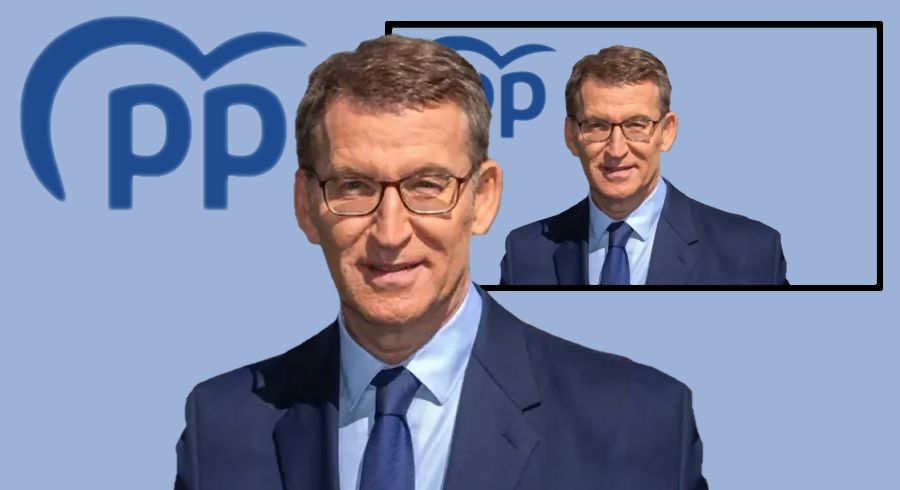 Alberto Núñez Feijóo asserted himself as the winner, claiming loud and clear the victory of the Popular Party in the legislative elections. From the balcony of the party headquarters, he declared that the PP had "won the elections" and expressed its intention to "form a government", while inviting the Socialists not to "block" this government formation. Indeed, on paper, the Spanish right obtained a positive result in these elections on Sunday July 23. With 33% of the vote, the Popular Party, led by Alberto Núñez Feijóo, won 136 seats, an increase of 47 deputies compared to 2019. However, it is still far from the 150 seats that the polls predicted for it to obtain the majority to the Cortes (out of a total of 350 deputies). Even with the support of the far-right Vox party (12.5%), which won 33 seats (down 19), as well as one or two right-wing regionalist deputies, the PP will not be able to achieve this majority . Therefore, his chances of forming a minority government in the House are very slim. Alberto Núñez Feijóo asserted himself as the winner, claiming loud and clear the victory of the Popular Party in the legislative elections. From the balcony of the party headquarters, he declared that the PP had "won the elections" and expressed its intention to "form a government", while inviting the Socialists not to "block" this government formation. Indeed, on paper, the Spanish right obtained a positive result in these elections on Sunday July 23. With 33% of the vote, the Popular Party, led by Alberto Núñez Feijóo, won 136 seats, an increase of 47 deputies compared to 2019. However, it is still far from the 150 seats that the polls predicted for it to obtain the majority to the Cortes (out of a total of 350 deputies). Even with the support of the far-right Vox party (12.5%), which won 33 seats (down 19), as well as one or two right-wing regionalist deputies, the PP will not be able to achieve this majority . Therefore, his chances of forming a minority government in the House are very slim.
For PP activists, the disappointment was palpable on Sunday evening. However, 61-year-old Alberto Núñez Feijóo seemed to be the man for the job. In April 2022, he saved the great right-wing party, undermined by internal struggles between its former leader Pablo Casado and rising star Isabel Díaz Ayuso.
Opposite, the Socialist Party of Pedro Sanchez achieved an unexpected performance. With 32% of the vote and 122 deputies (two more than in 2018), the PSOE managed to preserve its position. Its ally Sumar, a coalition of more left-wing and environmentalist parties, replaced Podemos, the radical left party. Despite everything, the socialist Pedro Sanchez, in power for five years, is in a more advantageous position than his conservative rival. He retains, against all odds, a chance to stay in power thanks to alliances. He could get the support of the Basque and Catalan parties, for which Vox is a bugbear.
The well-known anti-fascist slogan of the Civil War (1936-1939), "No pasarán" (They will not pass), was taken up enthusiastically by socialist activists on Sunday evening. By warning against the threat of the far right, but also by emphasizing its rather positive economic results (fall in unemployment, record growth in Europe), Prime Minister Pedro Sanchez succeeded in mobilizing well beyond the predictions of the institutes of survey.
However, like Feijoo, Sanchez does not seem to have the means to obtain an absolute majority in the Cortés, even with the support of the left-wing regionalist, Basque and Catalan parties.
The most likely scenario today is the calling of new elections, which would represent the fifth time that Spain has had legislative elections between 2015 and 2019. |
|
|
|
| Britney Delsey for DayNewsWorld |
 |
WILL TURKEY GO OUT OF ERDOGANISM ? | 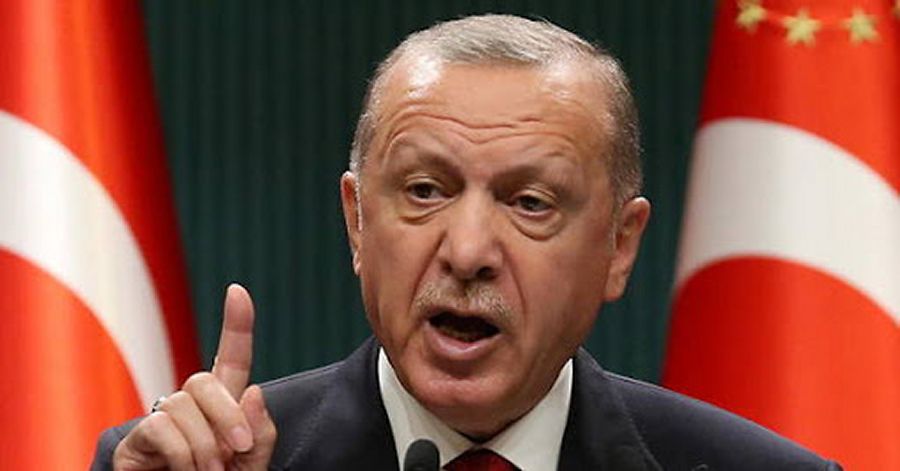
In Turkey, the presidential and legislative elections of May 2023 (first round on May 14 for both, second round on May 28 for the presidential election) will have the character of a referendum. Voters are, in fact, called upon to choose between two opposing political paths.
By voting in the presidential elections for Recep Tayyip Erdogan and in the legislative elections for the parties of the Popular Alliance formed around him and his formation the AKP (Party of Justice and Development), they will support the consolidation of an autocratic regime. implementing a repressive national-Islamist policy.
The other option is to vote for the return to democracy, the rule of law and the parliamentary system. The leader of the Republican People's Party (CHP, republican, social democrat and secular) Kemal Kiliçdaroglu embodies this second option, which would mean the end of Erdoganism, a regime tailor-made for the power of one man. For the first time, a very broad coalition – the Table of Six, gathered around the CHP, is united against Erdogan and his regime. Will this be enough to put an end to a system whose construction began twenty years ago?
Erdogan's hardening
The gradual slide towards autocracy began after the 2011 legislative elections.
Victorious for the third time in the general elections, Recep Tayyip Erdogan, prime minister since 2003, then began to praise a presidential system that would allow him to "run the country like a limited company" and "make decisions as soon as possible".
In 2014, for the first time, the President of the Republic must be elected by universal suffrage. Erdogan gets elected and declares that from now on “the regime has become, in fact, presidential”.
The coup attempt of July 15, 2016 and the state of exception that followed gave him the opportunity to transform this state of fact into a state of law.
Thanks to the support of the far-right MHP party, a new and essential ally of the AKP to retain the majority in Parliament, the presidential regime was narrowly ratified (51.4%) in April 2017, after a referendum marred by irregularities.
An elective and repressive autocracy, without separation of powers, based on a nationalist-religious ideology, a chaotic economic policy and an aggressive and opportunistic foreign policy was thus put in place. The economic successes of yesteryear have given way to a serious crisis marked by very high inflation, chaotic growth and the vertiginous depreciation of the Turkish lira.
The earthquakes of February 6, 2023, which caused tens of thousands of deaths, revealed all the weaknesses of the system put in place: the negligence of the institutions, the consequences of hypercentralization and nepotism in the administration, the results of the authorizations granted for electoral purposes to buildings that do not comply with anti-seismic standards… It is in this context that Turkey entered the electoral campaign.
An opposition finally united
Erdogan, losing popularity and for the first time in a defensive position, had to widen the coalition formed with the extreme right – the Popular Alliance – towards very minority parties claiming radical Islamist fundamentalism. Facing him, a coalition formed on the eve of the June 2018 elections, the Alliance of the Nation, expanded to other parties and became, in February 2022, the "Table of Six".
The first experience of forming an anti-Erdogan united front had yielded convincing results during the 2019 municipal elections. Building on this success, the leader of the CHP, Kemal Kiliçdaroglu, imposed on his party an aggiornamento to form alliances with conservative parties.
The Table of Six, or the Alliance of the Nation, therefore brings together the CHP, the Good Party (nationalist right formed in part by dissidents of MHP), two liberal and conservative parties created by dissidents of the AKP, and a party which represents historical Islamism and is very critical of the corruption and nepotism of the AKP. These six parties nominated Kiliçdaroglu as their candidate for the presidential election.
The left-wing pro-Kurdish party HDP (People's Democratic Party), which represents the majority of Kurdish voters in Parliament (the Kurdish population is estimated at around 18%), as well as the various currents of the left, have also called for a vote for him.
Seeing this danger of a united front coming, Erdogan had nevertheless taken care beforehand to have the very popular mayor of Istanbul, Ekrem Imamoglu (CHP), elected in 2019, removed from the presidential race, by having him sentenced in December 2022 to two years and seven months in prison for “insulting” certain senior regime officials.
The Head of State hoped to see the Table of Six tear itself apart in the search for its presidential candidate and finally break up. His strategy failed and the broad consensus achieved around a single anti-Erdogan candidate changed the traditional political context in which the latter used to maneuver easily.
A ballot that looks like a referendum for or against Erdogan
Since Erdogan's shift towards religious and authoritarian nationalism at the beginning of the 2010s, one of the major axes of his political strategy has been to stir up ethnic (Turkish-Kurdish), confessional (Sunni-Alevis) and cultural ( modernists-conservatives) who work society.
He placed himself as the natural leader of the Turkish sociological majority, Sunni and conservative, accusing the representatives of the opposition of being "dividers of national and confessional unity", "the extension of terrorist organizations" or agents foreign powers with designs on Turkey.
The expression "authentic and national" became his leitmotif to qualify the actions of his government.
But the composition of the parties that form the Table of Six around Kiliçdaroglu, the support of the Kurdish movement and leftist movements and the serious economic crisis have blurred his strategy.
The divide between supporters and opponents of Erdogan seems likely to overdetermine the outcome of the May 2023 elections.
With a personality diametrically opposed to that of Erdogan, Kilicdaroglu is positioning himself as a "quiet force" in this electoral campaign and has succeeded in creating real electoral momentum in recent weeks.
It responds to the aspiration of a large part of the population for a return to tranquillity, to a certain democratic normality and to more rational, less chaotic and unpredictable economic policies, for example with regard to interest rates than Erdogan pushed below 10% as inflation nears 100%.
For its part, the HDP, despite the almost daily repression and discrimination it suffers, succeeded in forming an alliance with small left-wing parties for the legislative elections.
And to short-circuit the sword of Damocles of a dissolution by the Constitutional Court on the eve of the election which has weighed on him for two years, he took the decision to stand for election under the colors of another party, the Green Left Party. This alliance, which does not present a presidential candidate and calls for a vote for Kilicdaroglu in the first round, will also have a decisive role to play in the future assembly. The support of its elected officials will probably be necessary to form a parliamentary majority with the Nation Alliance.
The common denominator of all these new rapprochement movements is their desire to end Erdogan's twenty-year rule, to return to parliamentary rule through constitutional change, to restore the rule of law and fundamental rights and freedoms, to put an end to arbitrariness, nepotism, corruption and the use of religion as an active political instrument, and finally to restore the confidence of international economic actors and to relaunch negotiations with the EU, which had stalled for several years.
And after the elections?
If the opposition wins these elections, the task of getting out of the system bequeathed by Erdoganism will be immense, and in any case Turkey will not quickly become a peaceful democracy. We can only hope that this great moment of democratic effervescence will not be temporary, as has been the case several times in the past.
On the other hand, in the event of a new victory for Erdogan and the AKP, Turkey will for a long time be engulfed in the camp of populist autocracies and authoritarian national-capitalism. Hopes for a possible exit from the autocracy through elections will be weakened.
What if the opposition wins but Erdogan does not recognize the election results or if the legal system he has put in place announces contrary results?
This question is of course in the minds of all opposition voters in Turkey. But apart from organizing a large civil mobilization to ensure the security of the ballot and doing hard work to convince reluctant voters to vote for change, all opposition parties are unanimous in not talking about this dark hypothesis before the elections.
First, so as not to frighten voters with such a scenario of chaos, for the moment hypothetical, and thus dissuade them from going to vote; then, because it is impossible and above all counterproductive to talk today about the means and methods of fighting against such a coup which would mean that Erdogan will have crossed the Rubicon and will have embarked on the path of an assumed dictatorship Such as.
The opposition first aspires to win the elections at the ballot box; it will be time, then, to take the necessary measures so that the popular will is respected.
Article by Ahmet Insel, published in The Conversation.
Economist, political scientist, professor emeritus at Galatasaray University, University of Paris 1 Panthéon-Sorbonne
Ahmet Insel is a founding member of the Green Left Party in Turkey created in 2012. |
|
|
|
| Steven Colton for DayNewsWorld |
 |
CEREMONY OF MAY 9, 2023 PUTIN DENOUNCED
A WAR ORCHESTRATED BY THE WEST
AGAINST RUSSIA |
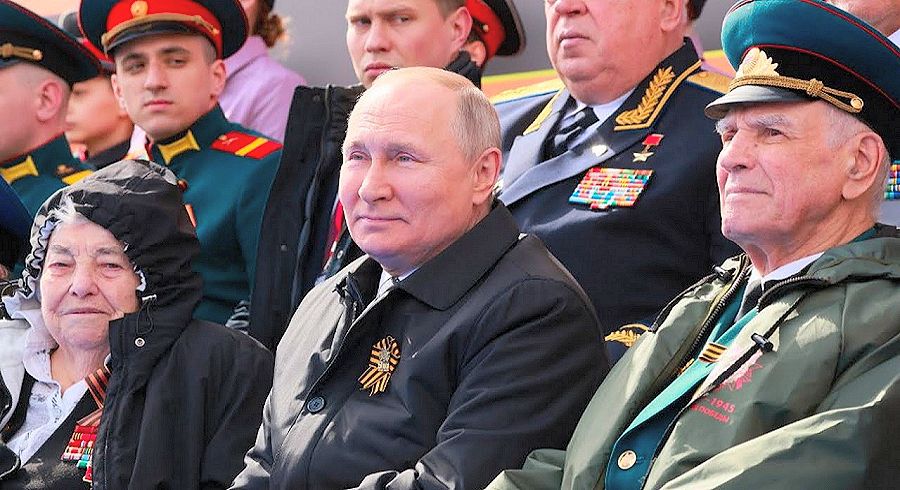
The Russian President spoke during the military ceremonies of May 9, 2023 to pay tribute to the victims of the "Great Patriotic War", the name given in Russia to the Second World War. Russia has limited the scale of victory celebrations against Nazi Germany on Tuesday (May 9). While the outline of Vladimir Putin's speech is a carbon copy of last year's, the tone was more serious.
Vladimir Putin believes that his country is still under attack. "A war has been launched against our homeland," said the Russian president in front of thousands of soldiers in Red Square, Moscow.
These commemorations were an opportunity for him to draw a parallel between the Second World War and the Ukrainian conflict. As during the Second World War, "civilization is again at a turning point", believes Vladimir Putin, who called for "victory" for his troops in the conflict in Ukraine.
For him, the future of Russia depends on this military victory, which is currently still lacking, more than a year after the invasion of the neighboring country.
"Nothing is more important right now than your military task. The security of the country today rests on you, the future of our state and our people depends on you," he said at the address of its armed forces. “You fulfill your military missions with honor, you fight for Russia,” the former KGB officer continued, before launching: “For Russia, for our valiant armed forces, for victory! Hooray!”
This seriousness, like the appearance of the word "war" in the president's lexicon, responds to a certain logic: Not only is it a war that is raging in Ukraine, but it has reached the national territory like the attack on drones over the Kremlin.
In addition, this annual parade comes as Yevgeny Prigojine, leader of the Wagner group, continues to openly criticize the strategy of the Russian army and the military hierarchy, which he accuses of not providing enough ammunition. He notably accused soldiers of the Russian regular army on Tuesday of having fled their positions in Bakhmout, the epicenter of the fighting in eastern Ukraine, and accused the state of being incapable of defending Russia.
The Heads of State or Government of seven countries of the Commonwealth of Independent States made the trip to Moscow: Kazakhstan, Kyrgyzstan, Tajikistan, Uzbekistan, Turkmenistan, Armenia, Belarus. In 2022, there were none. Among observers, some saw in the invitation of these leaders to the official platform the best possible protection for Mr. Putin
Russia threatened with 'collapse' and 'destruction', Putin says
In Moscow, the numbers engaged (10,000 men) approach those mobilized in 2022, which were down by a third compared to the previous year. On the other hand, no tanks or heavy equipment were presented, with the exception of the historic T-34 tank, and the air component of the parade was canceled. In the Republic of Tuva, in Siberia, horses have replaced tanks.
Across the country, the Immortal Regiment parade, popular with Russians, has been canceled; the same goes for military parades in around twenty cities, sometimes far from the Ukrainian border. Most have highlighted security issues, but the approach of a possible Ukrainian counterattack also plays a role.
A Violent Charge Against the West
For Russia, there is no hostile people neither in the East nor in the West, we wish a peaceful, free and stable future, insisted the Russian president.
“We have repelled international terrorism, the world is at a crossroads. Any ideology of superiority is repugnant, criminal, deadly. asserted the Russian leader without flinching, continuing his rhetoric opposed to the West.
According to Putin, it is the "globalized Western elites" who are at the root of the tensions between the West and Russia. The Head of State accuses these elites of "pitting peoples against each other, dividing societies, provoking bloody conflicts". For him, "their goal is to bring about the collapse and destruction of our country". |
|
|
|
| Alize Marion for DayNewsWorld |
 |
DO NOT TOUCH MY TV
CYRIL HANOUNA'S COMMENTS ON THE MURDER
DE LOLA DISPLEAS ARCOM | 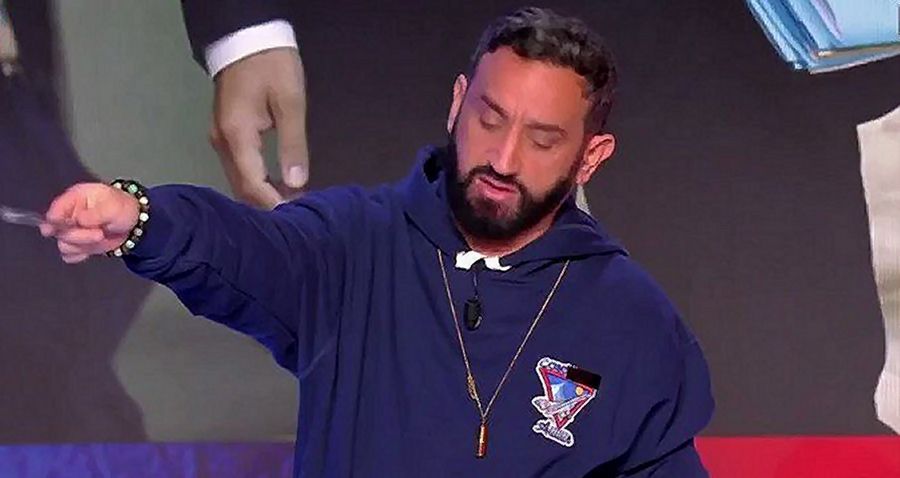
After Cyril Hanouna's remarks on the death of Lola, the C8 channel was given formal notice by the audiovisual supervisory authority.
It all started on October 18 on the set of the TPMP show. Cyril Hanouna spoke about the Lola case, this 12-year-old teenager brutally killed and found in a plastic trunk in the courtyard of her parents' home.
“If we have all the evidence, it's direct life. I am sorry. There is no alteration or non-discernment, ”said Cyril Hanouna on October 18 on the TPMP set. “This is the kind of case where, crazy or not crazy, she has to be in jail. It should not be treated, ”continued the star host.
Arcom notably criticizes the host for having repeatedly called for speedy trials and automatic life sentences in such cases.
Arcom, the audiovisual supervisory authority, announced Friday, November 18 the formal notice of the editor of the C8 channel following several sequences of the program "Touche pas à mon poste", hosted by Cyril Hanouna, concerning the murder of Lola, a 12-year-old girl killed on October 14 in Paris. The main suspect is a 24-year-old Algerian who was under an obligation to leave French territory (OQTF).
"The moderator, while the judicial investigation relating to this case was open, repeatedly made remarks relating both to the conditions in which the trial of the person charged was to be held and to its outcome, in particular with regard to the pain to inflict on him, than on his psychological profile . In particular, he has repeatedly called for speedy trials and automatic life sentences in such cases,” the organization wrote in a statement.
“The Autorité considers that these sequences, by their repetitive nature, reflect a breach by the publisher of the obligation to deal with moderation in an ongoing legal case, recorded in its deliberation of April 18, 2018 relating to honesty and the independence of the information and the programs that contribute to it. Arcom also notes that the host was able to express his opinion at length without a quick and effective contradiction being opposed to him, disregarding the obligation to respect the expression of the different points of view on the air on a subject lending controversial," adds Arcom.
Arcom has therefore put the publisher of the C8 channel on notice.
The circumstances of her death and the profile of the suspect, of Algerian nationality and under an obligation to leave French territory (OQTF), had generated strong criticism on the right and on the far right. Cyril Hanouna: “This is the kind of case where, crazy or not crazy, she must be in prison. She doesn't need to be treated. "Not aware of her actions?" It is a law that must also be revised. (…) Hearing this speech in France, I can't take it anymore, it's unbearable, and the laws must change, ”he concluded.
Asked about the host's position, the Minister of Justice, Eric Dupond-Moretti, had described it as "negation of the rule of law". "The rule of law protects us (...) and sweeping it away like that to arouse low instincts, to gain audience, ratings, it's something that personally, I cannot accept”, he declared in the program “C à vous” on France 5.
Little Lola, the rule of law did not protect her !!!
" You do not have to give your opinion on me”, replied on TPMP Cyril Hanouna, repeating himself in favor of “direct life".
|
|
|
|
| Pamela Newton for DayNewsWorld |
 |
DOES AGNES PANNIER-RUNCHER HAVE TO DO
WITH TAX HAVENS ? | 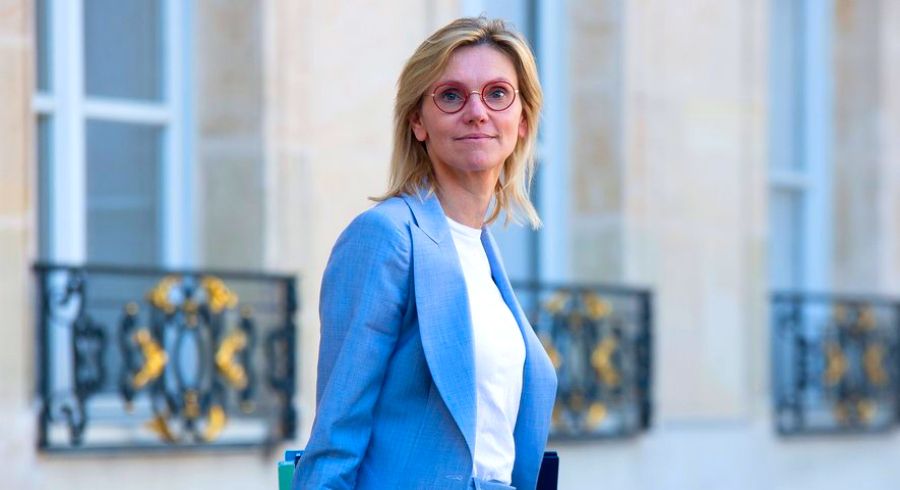
The children of the Minister for Energy Transition are partners in a company set up by her father and based on funds partly domiciled in tax havens, reports the investigative media Disclose. “False and slanderous allegations”, defends Agnès Pannier-Runacher
The children of the Minister for Energy Transition Agnès Pannier-Runacher are partners in a French company set up by her father, a former manager of the oil company Perenco, based on funds partly domiciled in tax havens and not mentioned on the declaration of interests of the minister, reports the investigative media Disclose on Tuesday.
Questioned by Disclose, the Minister refers to her father concerning the origin of the funds, of which she says she does not know the investment strategy, and she notes that she does not "have to declare this structure", since the law does not require not to declare the interests of his children. This Tuesday, she notably has "false and slanderous allegations".
No dividend
The minister's father, Jean-Michel Runacher, created this civil society in France, named Arjunem, in 2016 as part of a transfer of assets, bringing it to it for around 1.2 million euros in shares, according to the investigation of Disclose. Four of her grandchildren are partners, including the children of Agnès Pannier-Runacher who were minors at the time, and for whom the minister signed as legal representative.
She explained in a detailed response that they were bare owners and therefore received no dividend today, Jean-Michel Runacher remaining the usufructuary, and that Arjunem was indeed “subject to French taxation”. According to Disclose, this heritage comes from hedge funds, based in Delaware, Ireland and Guernsey, and in which Perenco also held investments. The financial products are deposited in a bank in Luxembourg, confirmed Agnès Pannier-Runacher.
"It's not about my heritage"
Of the Arjunem company, the minister does not mention in her declarations to the High Authority for the transparency of public life (HATVP). The law obliges him to declare his direct participations and those of his spouse, but not those of his children. “It is not about my heritage, but that of my children who, themselves, have no power to manage the company to date”, replied Agnès Pannier-Runacher to Disclose.
"The HATVP guide leaves no ambiguity that I did not have to declare this structure," she said. On the origin of the funds, Jean-Michel Runacher “contributed fund units that have no connection with Perenco. These are investments acquired in the past through his personal investments,” she said, referring to her father “for more details.”
"Whatever the legal form of these funds, the unitholder pays the taxation of his country of residence", also said the minister, who also sees no conflict of interest between his ministerial duties and the activities of his father, a former manager of Perenco.
"I did not have to deal with files related to Perenco", which "exercises most of its activities outside France," she assures.
Certainly, but for the exemplary nature of the politicians in their commitment... |
|
|
|
| Andrew Preston for DayNewsWorld |
 |
NICOLAS SARKOZY RUTHLESS ON THE REIGN OF EMMANUEL MACRON
|
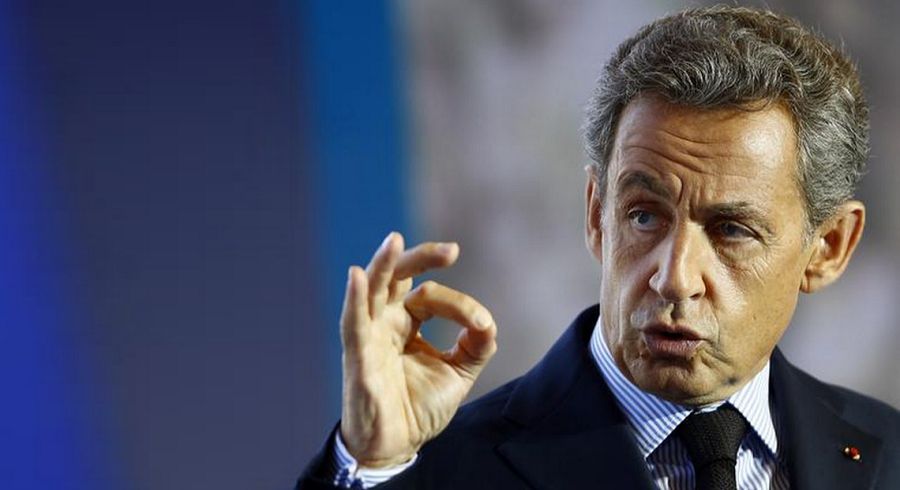
It 's been six years since Nicolas Sarkozy has held no political office at the national level. Rare in the media, the former head of state came out of silence to give a long interview to the Journal du Dimanche.
Nicolas Sarkozy supported Emmanuel Macron in the 2022 presidential election and he does not regret it. "In the interest of France, the best possible decision was therefore to help President Macron." “Politics is never a choice of absolute value, always a choice of relative value. During this presidential election, the Republican candidate, Valérie Pécresse, achieved an extremely low score in the first round. “To be able to choose a candidate in the second round, he still had to be qualified. Or that he has a credible chance of being so, ”says the former President of the Republic. He recalls that François Fillon made 20% in 2017, Valérie Pécresse 4.7% in 2022.
“Sometimes I wish he would cross the Rubicon”
He does not give a blank check to the current president: “Does this mean that I agree with everything, or satisfied with everything? This is an other story ". And he believes that Emmanuel Macron can sometimes be tempted to “stop in the middle of the ford. These are the disadvantages of 'at the same time'”, tackle Nicolas Sarkozy. Even if it means giving advice to the current Head of State: "I would sometimes like him to cross the Rubicon more frankly, because France is today mostly on the side of the party of authority, of firmness, freedom. Call it centre-right, centre, republican right, it doesn't matter: the country's strategic axis is clearly there”.
The use of section 49.3 an admission of weakness
Nicolas Sarkozy recalls that he never needed to use this article to have a text adopted without the vote of the deputies. He understands that Emmanuel Macron uses it, given that he does not have an absolute majority, but he warns that the head of state will not be able to do so indefinitely. He calls on Emmanuel Macron to "make a political agreement in good and due form with all those of goodwill ready to form a majority in the best interests of the country".
Thus the pension reform
The former president recalls first of all that his pension reform which has lowered the retirement age from 60 to 62 years "brings in 20 billion euros each year, which is very useful to pay the pensions of retirees". He believes that a further decline in the retirement age is the only solution to guarantee France's pension system, otherwise "the old-age system will go bankrupt". 63, 64 or 65, he does not specify his choice. He nevertheless believes that the retirement age should be immediately raised to 63 years.
The murder of Lola, "an absolute drama"
“I learned with dismay what had happened to Lola. I, like any father of a little girl of the same age, thought that it could have happened to her, ”says Nicolas Sarkozy in the JDD. “Mad people, barbarians, men or women, have always existed. I would like us not to mix everything, ”continues the former head of state. He is virulent vis-à-vis the political controversy surrounding this affair. "Political exploitation is still just as stupid and counter-productive."
“The non-execution of decisions to leave the territory is not the issue. I would have been just as upset if this despicable act had been committed by a Frenchman, ”supports the former tenant of the Élysée. For him, “the death of Lola, whoever the criminal, is an absolute tragedy. But I want to add that if Lola were still alive, I would still be outraged by the non-execution of deportations to the border,” he added.
"In my day, OQTFs weren't at 6% execution"
In the case of the murder of Lola, the main suspect was concerned by an Obligation to leave the territory. “We should have been concerned about the non-execution of escorts to the border for a long time,” explains Nicolas Sarkozy, returning to his visit to the Élysée. “I changed the law. I was literally insulted during my five years in office by all the 'human rights' people because we went so far as to organize return charters to the countries of origin. »
Before pointing the finger at the balance sheet of “immediate successor”” implied François Hollande. “In my time, the OQTFs were not at 6% execution, even if there was progress to be made. "The legislative arsenal to fight against irregular immigration that we had put in place has been systematically dismantled by my immediate successor. Gérald Darmanin is right to demand more firmness", assures Nicolas Sarkozy.
The energy crisis: the result of an “irresponsible strategic choice”
Among the subjects discussed with our colleagues from the JDD, Nicolas Sarkozy spoke about the energy crisis that France is going through. If the country is threatened by power cuts this winter, for the former tenant of the Élysée, this risk “is the result of an irresponsible strategic choice, in complete rupture with the history of the Fifth Republic. All the presidents, including François Mitterrand (...) have supported nuclear power. Until François Hollande who, to seduce the ecologists, took the foolish risk of suspending the future of the French nuclear industry”, castigates Nicolas Sarkozy.
The war in Ukraine: we must "alas" be worried about it
The former head of state also discusses the war in Ukraine, and for him, it is necessary “alas! " to worry. “I would like someone to explain to me one day what it means to 'wage war without making it'”, he says. “If there is a concept that should require clarity, it is that of war and peace. Either we make war or we make peace. Combining the two doesn't make much sense. In any case, when they are used at the same time”, explains Nicolas Sarkozy.
The former head of state believes that Emmanuel Macron is right to keep in touch with Vladimir Putin and that France has a key role to play. “Europe and Russia are condemned to maintain relations of peace and good neighborliness. If we have achieved Franco-German reconciliation, we will be able to reconcile Europe and Russia. It is up to France to take the lead in this crisis”.
His trial in the wiretapping case
Nicolas Sarkozy will be tried on appeal in the so-called wiretapping case at the end of the year.
He recalls that all his accounts have been scrutinized in detail for ten years - including his mother's estate - but he intends "to prove that I have never betrayed the confidence of the French".
|
|
|
|
| Garett Skyport for DayNewsWorld |
 |
WHO IS RISHI SUNAK FAVORITE TO SUCCEED
TO BORIS JOHNSON IN THE UNITED KINGDOM ?
|
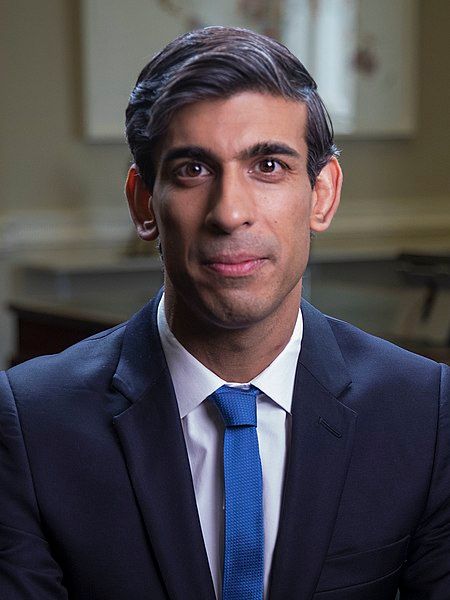
Since the resignation of the British Prime Minister last week, many personalities from the Conservative Party have declared themselves candidates to succeed “BoJo” .
Among them: the former Minister of Finance, Rishi Sunak, 42 years old. This son of Indian immigrants who went through Oxford and Stanford is among the favorites alongside former defense minister Penny Mordaunt and current foreign secretary Liz Truss.
Unknown to the general public a few years ago, Rishi Sunak has managed to establish himself as a key figure in the party and is now in the lead.
Before starting his political career, the former Chancellor of the Exchequer had a successful career in finance. Returning to the American bank Goldman Sachs in the early 2000s as an intern, he finally landed a position as a junior analyst in the investment bank.
He then joined The Children's Investment Fund (TCI), one of the most prominent hedge funds in London, before launching a hedge fund, Theleme Fund, in 2010 with former partners at TCI. Rishi Sunak was also the director of Catamaran Ventures, a venture capital fund owned by his father-in-law. The fortune of the former minister would amount, according to the "Sunday Times", to 860 million euros.
Rishi Sunak only started his political career in 2015 when he was elected from North Yorkshire. In 2016, he did not hesitate to support, from the first hour, a Brexit camp still in its infancy. This risky choice attracts him the favor of Boris Johnson, who will bring him into the Treasury as soon as he enters 10 Downing Street in 2019.
Rishi Sunak was for more than two years Chancellor of the Exchequer, that is to say Minister in charge of Finance and Treasury. Appointed in February 2020 at just 39 years old, "Rish", as his friends call him, has established himself over the months as one of the heavyweights of the British government.
His relations with "BoJo" have not always been very cordial. The dissension between the two men reached its climax in the summer of 2021, when Boris Johnson criticized his "lack of political sense".
Rishi Sunak was, along with Sajid Javid (Minister of Health), the first government heavyweight to resign from the government on July 5, citing "fundamentally too different approaches" with Boris Johnson.
The resigning ministers notably criticized “BoJo” for his behavior in the “Party Gate” affair, these parties organized at 10 Downing Street while the British were confined to their homes. On July 8, the day after Boris Johnson's resignation, Rishi Sunak officially declared himself a candidate for the leadership of the Conservative Party and therefore for the post of Prime Minister.
Rishi Sunak is married to a wealthy Indian heiress. He met his wife, Akshata Murthy, while studying at Stanford. They married in 2009 in his wife's hometown, Bangalore. Akshata Murthy is the daughter of a very wealthy Indian businessman, Narayana Murthy. Co-founder of Infosys, he is one of the richest men in India. His fortune amounts, according to the magazine “Forbes”, to 3.5 billion euros.
Last April, Rishi Sunak's popularity took a big hit after 'The Independent' revealed his wife's tax status. This indeed benefits from the status of “non domiciled” (“non dom”, in English). This status would have allowed Akshata Murthy to be exempt from tax on his foreign income and thus avoid paying several million pounds of tax. These revelations had shocked the British, in a context of purchasing power crisis linked to galloping inflation.
Rishi Sunak who has just faced Liz Truss in a decisive political duel, will he succeed in prevailing over his rival? In the columns of the Daily Telegraph, which headlined Thursday "Advantage Truss", Rishi Sunak tried to counter the head of diplomacy on the ground of the legacy of Margaret Thatcher.
"My values are Thatcherian, I believe in work, family and integrityé. "I am a Thatcherite, I compete as a Thatcherite, and I will rule as a Thatcherite." |
|
|
|
| Joanne Courbet for DayNewsWorld |
 |
INTERVIEW OF JULY 14, 2022
WOULD EMMANUEL MACRON DECENTRATE
TO THE RIGHT ? | 
After doing without the ritual of the interview for several years in a row, the President of the Republic has taken up the thread of tradition, thus responding to a requirement for unity in the face of the crisis. He therefore resumed Thursday with the traditional presidential interview on National Day, after the July 14 parade. Emmanuel Macron shared his perspectives for this new five-year term, and in particular on the war in Ukraine, issues related to energy and labor reforms.
The war in Ukraine
On July 14, the President of the Republic paid tribute at the start of the interview to all French soldiers, but also to fallen soldiers and their families. This military parade had a particular resonance in the context of the war at the gates of Europe. Faced with this high-intensity conflict, Emmanuel Macron announced that the government would propose a new military programming law, to plan state investments in armaments and increase its budget.
He also told the French that they had to be prepared "for what it lasts", and predicted very difficult months at the end of the summer and the beginning of the autumn. He recalled his support for Ukraine, and reaffirmed France's position, namely to try to stop the war without taking sides, and for that the only possible tool is to impose financial sanctions on Russia.
Energy
If France is not involved in the war in Ukraine, it will suffer the consequences, particularly on energy prices. Emmanuel Macron, who accused Moscow of using this gas as a "weapon of war", explained that France was in the process of diversifying its supply and replenishing its stocks. Emmanuel Macron did say that Vladimir Putin intended to "use gas as a weapon of war", and that we had to prepare for the scenario in which Russia will completely cut off its gas exports. If France only depends on it for 20%, the President of the Republic nevertheless calls on the French to be energy sobriety.
He indicated the preparation, with public administrations, local communities, companies, of a plan on energy sobriety. If the State secures energy stocks from other suppliers, and plans to reach 100% of its stocks by the fall, the Head of State invites all citizens to regulate their energy consumption to avoid any risk of cuts this winter.
Labor reform
One of the government's major milestones for this new five-year term is "full employment", because, according to the President of the Republic, "the best response to purchasing power is work". Moreover “There is no social model if there is no work to finance it”, declared the Head of State, who once again praised the value of work. "We must go further" on the reform of unemployment insurance, announces Emmanuel Macron, and this "as of this summer". He also cited the reform of the RSA, the promise of his presidential program: “They must commit, of course, those who receive the RSA. No one wants to stay at the RSA”. It therefore wishes to continue its policy which aims to support the unemployed towards employment on training, by conditioning certain aids to a professional activity, such as the RSA.
Emmanuel Macron also announced a series of reforms for the less to come: that of the vocational school, which should allow high school students to receive a small salary; continue the reform of unemployment insurance, the rules of which came into force last autumn and are due to expire on 31 October next. Finally, the president also wishes to pursue the apprenticeship reform already begun under his previous mandate.
Regarding wages, Emmanuel Macron encouraged employers to increase them, and announced discussions with all professional branches in the coming weeks, so that no worker receives less than the minimum wage.
Pension reform
On pensions, Emmanuel Macron has kept the same course since the start of the presidential campaign: “we have to work more and longer”, “I know that we have to work longer. We must carry out this reform.”, he hammered in front of journalists Anne-Claire Coudray and Caroline Roux.
Emanuel Macron. “What I am committed to is to say that we must gradually shift the legal retirement age to 65 by the 2030s.” Emmanuel Macron has his plan in mind: “I think that from the summer of 2023, we must have a first entry into force”.
With the Covid-19 crisis, the debt has increased, and the President of the Republic wishes to “return to budgetary seriousness”. For this, he refuses to raise taxes and to dig a little more debt, but wants France to work more.
Negotiations with the social partners should resume at the end of the summer. “The discussion should start at the start of the school year. At the end of the summer, there will be a discussion with all the living forces of the nation on all subjects, continued Emmanuel Macron. There will then be work with the trade union and employer forces, then with the political forces in Parliament. »
“Are you afraid of spending a five-year term seeing your projects challenged? asked Anne-Claire Coudray. “No”, immediately replied Emmanuel Macron. Because for him in the National Assembly: “There is no majority against the government except with a baroque team”.
These two reforms, unemployment insurance and pensions, are likely to once again put the Republicans in difficulty, who will find it difficult to fight them. Emmanuel Macron tried to underline their contradictions when he was asked about the rejection, on the night of Monday to Tuesday in the Assembly, of the "health watch and security" bill, relating to the possible return of an anti-Covid health pass for entry into France. “You have LFI deputies with RN deputies and Les Républicains deputies who voted together, he underlined. I do not believe that the Republican deputies have made a commitment in front of their voters to vote with LFI and the RN to prevent a border pass from being put in place”
A baroque hitch ?
Mocking this "baroque coupling", Emmanuel Macron believes that the LR deputies in question "will have a hard time explaining to their constituents what they did the other evening". He wants to believe in a “night heat stroke” and is counting on the “collective wisdom of senators”, mostly on the right, to restore the anti-Covid measure.
The President of the Republic therefore calls for “responsible compromises” to implement a reform that he had to abort during his first five-year term.
“To follow the reasoning of Emmanuel Macron when the RN votes against a bill, the Nupes should vote for; and vice versa. It can onlybe a question of a rhetorical strategy, altogether not very skilful, but the indignation and the astonishment of the majority these last days seem to foretell a real misunderstanding of the new political situation. “, analysis in the Figaro Benjamin Morel, lecturer in public law at the University of Paris II Panthéon-Assas.
“With a divided majority, a strong opposition, mobilized unions, and a scalded opinion, embarking on this battle, in the midst of an economic crisis, makes a strange political sense. While in times of crisis the country needs unity, the president does not hesitate to put forward the most divisive themes”, still according to the academic. |
|
|
|
| Garett Skyport for DayNewsWorld |
 |
LEGISLATIVE A SERIOUS WARNING
FOR MACRONISTS | 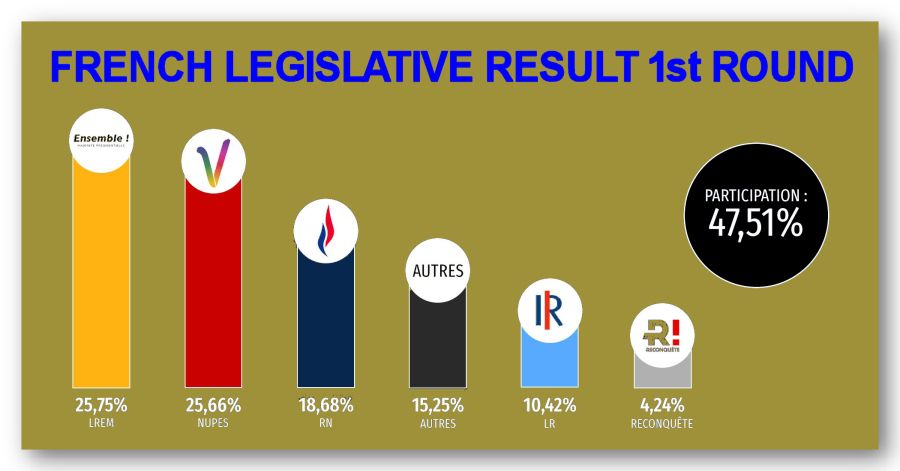
It is not a clap of thunder but a serious warning: the presidential coalition Together! (25.82%) is not guaranteed to obtain an absolute majority, Sunday June 19. Emmanuel Macron had called on the French to give him "a strong and clear majority" in order to win an absolute majority in the National Assembly, or 289 seats, for his second term.
However, the presidential coalition won by a short margin (25.75%), since “Together!” ahead of the left alliance, the Nupes (25.66%), by barely some 21,000 votes.
If the record abstention (52.49%) is also to be noted, the second round promises to be difficult for the President of the Republic, who would be forced to negotiate alliances to govern freely and pass his reforms.
This first round, which could have been a formality for Emmanuel Macron after his score in the presidential election, was therefore not the expected confirmation. “The absolute majority is not at this stage guaranteed to Together. The most likely, subject to the campaign, is that the presidential majority is relative, with less than 289 seats, even if an absolute majority of a few seats is still possible”, cautiously advances Mathieu Gallard, director of studies at the Ipsos Institute.
It is also the first time under the Fifth Republic that the party of the President of the Republic does not arrive in the lead in the legislative elections in the wake of the presidential election, or even declines between the two ballots.
In 2002, 2007 and 2012, the UMP, then the PS, had indeed exceeded, sometimes very largely, the bar of 30% of the votes in the wake of the election of Jacques Chirac, Nicolas Sarkozy or François Hollande. This time, the outgoing majority is doing much less well than five years ago (La République en Marche and the MoDem had obtained 32.33% of the vote in 2017), and recorded 2 points less than the score of the outgoing president. only seven weeks ago.
Opposite Emmanuel Macron, we find a very high score for the Nupes which should become the second most important group in the National Assembly. With an estimate of 275 to 310 deputies elected for Emmanuel Macron, against 346 outgoing deputies, this is a real setback.
The question that has obsessed the Head of State's advisers since yesterday evening is whether he will obtain the 289 deputies, that is to say an absolute majority.
Reduced room for maneuver
If so, this absolute majority will not be overwhelming. Emmanuel Macron's main partners, François Bayrou and Edouard Philippe, will see their political weight mechanically reinforced. And it will be impossible to pass laws without them. Emmanuel Macron's room for maneuver will therefore be reduced in comparison with the previous five-year term.
And, without an absolute majority, that is to say in the case of a relative majority, not only Bayrou and Philippe will become essential to the president, who will be less free to move. But, in addition, Emmanuel Macron will have no choice but to reach out to other competing parties to try to have a majority. This opening is almost impossible in the direction of Nupes. It is therefore towards the Republicans, who could obtain between 40 and 60 deputies, that Emmanuel Macron will try to turn. In a way, a government of German-style coalitions...
Now opens an era with a stronger parliament, alliances of circumstances and a country more difficult to govern.
In the case of a relative majority
In the event that the coalition of the presidential majority does not largely win, or worse, if it is defeated in the second round of the legislative elections, the consequences would be multiple for Emmanuel Macron.
Two scenarios are then possible.
If “Together!” comes first, but without reaching 289 seats, Emmanuel Macron will have a relative majority in the National Assembly. The scenario would be complicated for the President of the Republic who would then have two options before him. The first would consist in playing the game of alliances and seeking the support of other political formations, in order to have an absolute majority to vote on the texts of law. Some members of the government consider in particular that there is a reserve of votes available on the side of the right.
The second option would be to govern "in a minority" while retaining the Prime Minister of his choice, who would undoubtedly remain Elisabeth Borne if she wins in her Calvados constituency. Emmanuel Macron could choose to govern "in force" by resorting to the controversial article 49-3 which allows the government to adopt a text without submitting it to the vote of the Assembly. The government would nevertheless expose itself to a possible motion of censure, which could bring it down on condition of bringing together a majority of deputies to vote for it.
In the case of cohabitation
The second scenario for Emmanuel Macron, judged as "catastrophic" by one of his supporters, would be the defeat in the second round of the legislative elections for his coalition. This would lead to a cohabitation with the appointment (traditional but non-compulsory) of a new Prime Minister who would naturally be the leader of the opposition, Jean-Luc Mélenchon.
This scenario, the least favorable for the President of the Republic, would deprive him of almost all of his powers. Emmanuel Macron would nevertheless retain the possibility of dissolving the National Assembly and calling new elections to try to recover his majority. A risky tactic that proved to be a loser for Jacques Chirac in 1997, sanctioned by voters and forced to live with Lionel Jospin for the last five years of his seven-year term.
According to OpinionWay's projections, Emmanuel Macron should obtain between 260 and 300 deputies, which gives him about a one in two chance of obtaining an absolute majority. ..For his part, Jean-Luc Mélenchon should be able to obtain between 170 and 200 seats, knowing that the Nupes candidates have few reserves of votes for the second.
Projections which will be confirmed this Sunday, June 19 on the occasion of the second round of the legislative elections, which could mark a turning point in the policy of Emmanuel Macron.
|
|
|
|
| Jaimie Potts for DayNewsWorld |
 |
LEGISLATIVE THREE UNEQUAL STRATEGIES
FOR AN UNCERTAIN RESULT | 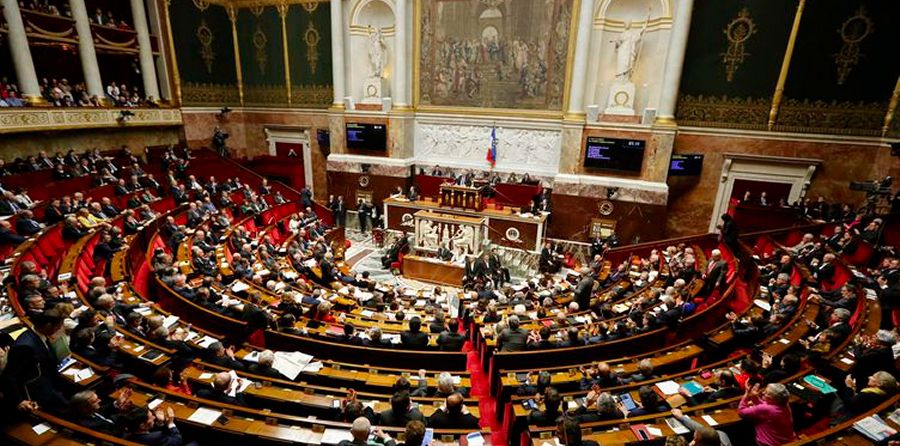 As the uncertainties about the outcome of the legislative elections on
June 12 and 19 have never been so numerous and that obtaining a majority
of deputies supporting the new elected president, Emmanuel Macron,
today seems uncertain, it seems instructive to return to the strategies
put in place by the three main political forces resulting from the
presidential election. On
the one hand to better understand and analyze the current situation when
abstention looks set to be historically high for legislative elections.
On the other, because the
strategies put in place, which turned out to be very different from
each other, should have a major impact on the outcome of the election. As the uncertainties about the outcome of the legislative elections on
June 12 and 19 have never been so numerous and that obtaining a majority
of deputies supporting the new elected president, Emmanuel Macron,
today seems uncertain, it seems instructive to return to the strategies
put in place by the three main political forces resulting from the
presidential election. On
the one hand to better understand and analyze the current situation when
abstention looks set to be historically high for legislative elections.
On the other, because the
strategies put in place, which turned out to be very different from
each other, should have a major impact on the outcome of the election.
The question of temporality A
few minutes after the election of Emmanuel Macron, Jean-Luc Mélenchon
launched the legislative battle by insisting on the idea that these
constituted the 3ᵉ round of the presidential election. He
thus posed as the first opponent, without giving Emmanuel Macron and
Marine Le Pen time to rejoice or digest their results of the second
round of the presidential election. The
weeks following Emmanuel Macron's election were dominated, in the media
and in public opinion, by negotiations between left-wing parties and
the establishment of the New Popular Economic and Social Union (Nupes )
while the National Rally rejected the advances of Reconquest! and that Marine Le Pen decided to go on vacation. Emmanuel
Macron seemed to openly agree to let go, arguing that there was a need
for post-presidential election democratic breathing. The idea was probably also to miss the media enthusiasm caused by this new union of the left. And
to regain the initiative when appointing his or her Prime Minister when
the time between the presidential election and the legislative
elections is this year two weeks longer and a re-election generally
provokes less enthusiasm than a first accession to power. Very different positions Emmanuel
Macron's re-election as president has, by his own admission, positioned
him as the president of all French people and inevitably limited his
role and action as a clan leader. While
Jean-Luc Mélenchon's speech on the evening of the first round of the
presidential election seemed to mark the announcement of a handover and a
withdrawal, on the contrary we are witnessing a strategy of strong
emphasis of the leader of La France Insoumise (LFI). If
this has prevented certain left-wing personalities from joining this
union movement (Carole Delgas, José Bové, Yannick Jadot, etc.), this
personalization undoubtedly aims to mobilize, during the legislative
elections, voters who are above all seduced by the personality and the
leadership of the rebellious chief during the presidential election. By
claiming the post of Prime Minister if the Nupes were to obtain a
majority in the legislative elections, Jean-Luc Mélenchon positioned
himself at the national level. From
this point of view, his decision, criticized by his adversaries, not to
stand again in the legislative elections finally allowed him to assume a
position above the parties, which a local field campaign would
undoubtedly have made more complicated. . By running in the legislative elections, Marine Le Pen has chosen a very different strategy. Although
a finalist in the presidential election, her candidacy positions her at
a more local level and legitimizes the idea, which she herself
defended, that Emmanuel Macron will necessarily obtain the majority to
govern for five years. Alliance strategies and dynamics The different alliance strategies no doubt also explain the current uncertainties. If
the establishment of Ensemble has given rise to some friction and some
concerns from some of its members, it has only formalized and organised,
with a view to a future term of office, support which was already
stakeholders in Emmanuel Macron's candidacy for the presidential
election. Despite
criticism and dissidence, the creation of the Nupes gave rise to a true
alliance of coopetition, by bringing together forces which had on the
contrary opposed and competed with each other. It
can therefore claim a new unifying approach in comparison with the last
presidential elections and refer to the electoral successes encountered
by the leftist unions that preceded it (Popular Front, Common Program,
Plural Left). By refusing to ally with Reconquest! Marine
Le Pen's National Rally took the opposite view of LFI's strategy of
unity and failed to create, if we are to believe the polls and outside
of important strongholds in the north, the dynamic that his
qualification in the second round of the presidential election could
have generated with a view to the legislative elections. Alliance strategies and dynamics In
reality, the various polls dedicated to the legislative elections have
not shown any significant change in terms of voting intentions at the
national level since the situation of the opposing forces was made
official. Together
and the Nupes are announced neck and neck around 27/28% in the first
round, when the National Rally is between 19% and 21% and Reconquest! between 5% and 6%. But
the projections in terms of the number of deputies from the second
round have on the other hand evolved and seem to show a dynamic in favor
of Nupes while Together was announced as a large majority a few weeks
ago. The union of the left
project carried by Jean-Luc Mélenchon seems to seduce part of the
left-wing electorate marked by divisions and the new absence, after
2017, of one of its representatives in the second round of the election.
presidential. But
beyond this mobilization, it is above all the choice of Elisabeth Borne
and the constitution of the new government that raise questions from a
strategic point of view. The crucial choice of the Prime Minister and the government In
2017, Emmanuel Macron had chosen to appoint as Prime Minister, Edouard
Philippe, a politician admittedly little known to the general public but
seasoned in electoral contests, to lead the battle of the legislative
elections. And his second
choice, during the reshuffle in 2020, was for a profile of a senior
civil servant and technocrat, simply elected local, with Jean Castex. This
decision seemed to give credence to the idea that it was necessary to
appoint a political profile at the start of the five-year term in order
to be able to rely on a personality accustomed to the harshness of a
national electoral campaign. By
choosing to appoint Elisabeth Borne, whose CV is closer to that of Jean
Castex than that of Edouard Philippe, Emmanuel Macron proceeded
differently and took the risk of leaving the field open to Jean-Luc's
media omnipresence strategy. Mélenchon and Nupes. Elisabeth
Borne and the Renaissance candidate of the 3ᵉ district of Côtes-d'Armor
Olivier Allier on a market in Lamballe as part of the electoral
campaign for the legislative ballot.
The
appointment of the new government should make it possible to highlight
the priorities of the new five-year term (ecology, purchasing power,
etc.) and regain control from a media point of view. But
the choice of Elisabeth Borne and the confirmation of several
heavyweights in key positions did not help, despite some notable strokes
of brilliance quickly tarnished by controversy (Pap Ndiaye at National
Education or Damien Abad at Solidarity) , to trigger a new dynamic. Emmanuel
Macron's recent trips certainly testify to a desire to refocus the
legislative elections around his project and his person in order to
succeed in winning. Will this involvement be sufficient to obtain the majority and avoid cohabitation? If
the first-past-the-post system in two rounds of the legislative
elections makes projection difficult and should theoretically favor the
candidates placed in the center of the political spectrum, it
nevertheless seems to give credence to the idea that the legislative
elections have indeed become the 3ᵉ round of the French presidential
election.. |
|
Article by Olivier Guyottot , teacher-researcher in strategy and political science, INSEEC Grande École, published in TheConversation
|
|
| Simon Freeman for DayNewsWorld |
 |
A
s the uncertainties about the outcome of the legislative elections on
June 12 and 19 have never been so numerous and that obtaining a majority
of deputies supporting the new elected president, Emmanuel Macron,
today seems uncertain, it seems instructive to return to the strategies
put in place by the three main political forces resulting from the
presidential election. On
the one hand to better understand and analyze the current situation when
abstention looks set to be historically high for legislative elections.
On the other, because the
strategies put in place, which turned out to be very different from
each other, should have a major impact on the outcome of the election. The question of temporality A
few minutes after the election of Emmanuel Macron, Jean-Luc Mélenchon
launched the legislative battle by insisting on the idea that these
constituted the 3ᵉ round of the presidential election. He
thus posed as the first opponent, without giving Emmanuel Macron and
Marine Le Pen time to rejoice or digest their results of the second
round of the presidential election. The
weeks following Emmanuel Macron's election were dominated, in the media
and in public opinion, by negotiations between left-wing parties and
the establishment of the New Popular Economic and Social Union (Nupes )
while the National Rally rejected the advances of Reconquest! and that Marine Le Pen decided to go on vacation. Emmanuel
Macron seemed to openly agree to let go, arguing that there was a need
for post-presidential election democratic breathing. The idea was probably also to miss the media enthusiasm caused by this new union of the left. And
to regain the initiative when appointing his or her Prime Minister when
the time between the presidential election and the legislative
elections is this year two weeks longer and a re-election generally
provokes less enthusiasm than a first accession to power. Very different positions Emmanuel
Macron's re-election as president has, by his own admission, positioned
him as the president of all French people and inevitably limited his
role and action as a clan leader. While
Jean-Luc Mélenchon's speech on the evening of the first round of the
presidential election seemed to mark the announcement of a handover and a
withdrawal, on the contrary we are witnessing a strategy of strong
emphasis of the leader of La France Insoumise (LFI). If
this has prevented certain left-wing personalities from joining this
union movement (Carole Delgas, José Bové, Yannick Jadot, etc.), this
personalization undoubtedly aims to mobilize, during the legislative
elections, voters who are above all seduced by the personality and the
leadership of the rebellious chief during the presidential election. By
claiming the post of Prime Minister if the Nupes were to obtain a
majority in the legislative elections, Jean-Luc Mélenchon positioned
himself at the national level. From
this point of view, his decision, criticized by his adversaries, not to
stand again in the legislative elections finally allowed him to assume a
position above the parties, which a local field campaign would
undoubtedly have made more complicated. . By running in the legislative elections, Marine Le Pen has chosen a very different strategy. Although
a finalist in the presidential election, her candidacy positions her at
a more local level and legitimizes the idea, which she herself
defended, that Emmanuel Macron will necessarily obtain the majority to
govern for five years. Alliance strategies and dynamics The different alliance strategies no doubt also explain the current uncertainties. If
the establishment of Ensemble has given rise to some friction and some
concerns from some of its members, it has only formalized and organised,
with a view to a future term of office, support which was already
stakeholders in Emmanuel Macron's candidacy for the presidential
election. Despite
criticism and dissidence, the creation of the Nupes gave rise to a true
alliance of coopetition, by bringing together forces which had on the
contrary opposed and competed with each other. It
can therefore claim a new unifying approach in comparison with the last
presidential elections and refer to the electoral successes encountered
by the leftist unions that preceded it (Popular Front, Common Program,
Plural Left). By refusing to ally with Reconquest! Marine
Le Pen's National Rally took the opposite view of LFI's strategy of
unity and failed to create, if we are to believe the polls and outside
of important strongholds in the north, the dynamic that his
qualification in the second round of the presidential election could
have generated with a view to the legislative elections. Alliance strategies and dynamics In
reality, the various polls dedicated to the legislative elections have
not shown any significant change in terms of voting intentions at the
national level since the situation of the opposing forces was made
official. Together
and the Nupes are announced neck and neck around 27/28% in the first
round, when the National Rally is between 19% and 21% and Reconquest! between 5% and 6%. But
the projections in terms of the number of deputies from the second
round have on the other hand evolved and seem to show a dynamic in favor
of Nupes while Together was announced as a large majority a few weeks
ago. The union of the left
project carried by Jean-Luc Mélenchon seems to seduce part of the
left-wing electorate marked by divisions and the new absence, after
2017, of one of its representatives in the second round of the election.
presidential. But
beyond this mobilization, it is above all the choice of Elisabeth Borne
and the constitution of the new government that raise questions from a
strategic point of view. The crucial choice of the Prime Minister and the government In
2017, Emmanuel Macron had chosen to appoint as Prime Minister, Edouard
Philippe, a politician admittedly little known to the general public but
seasoned in electoral contests, to lead the battle of the legislative
elections. And his second
choice, during the reshuffle in 2020, was for a profile of a senior
civil servant and technocrat, simply elected local, with Jean Castex. This
decision seemed to give credence to the idea that it was necessary to
appoint a political profile at the start of the five-year term in order
to be able to rely on a personality accustomed to the harshness of a
national electoral campaign. By
choosing to appoint Elisabeth Borne, whose CV is closer to that of Jean
Castex than that of Edouard Philippe, Emmanuel Macron proceeded
differently and took the risk of leaving the field open to Jean-Luc's
media omnipresence strategy. Mélenchon and Nupes. Elisabeth
Borne and the Renaissance candidate of the 3ᵉ district of Côtes-d'Armor
Olivier Allier on a market in Lamballe as part of the electoral
campaign for the legislative ballot.
The
appointment of the new government should make it possible to highlight
the priorities of the new five-year term (ecology, purchasing power,
etc.) and regain control from a media point of view. But
the choice of Elisabeth Borne and the confirmation of several
heavyweights in key positions did not help, despite some notable strokes
of brilliance quickly tarnished by controversy (Pap Ndiaye at National
Education or Damien Abad at Solidarity) , to trigger a new dynamic. Emmanuel
Macron's recent trips certainly testify to a desire to refocus the
legislative elections around his project and his person in order to
succeed in winning. Will this involvement be sufficient to obtain the majority and avoid cohabitation? If
the first-past-the-post system in two rounds of the legislative
elections makes projection difficult and should theoretically favor the
candidates placed in the center of the political spectrum, it
nevertheless seems to give credence to the idea that the legislative
elections have indeed become the 3ᵉ round of the French presidential
election. |
|
Article by Olivier Guyottot , teacher-researcher in strategy and political science, INSEEC Grande École, published in TheConversation |
LEGISLATIVE IN FRANCE
TOWARDS A DUEL BETWEEN TOGETHER! BY MACRON
AND THE NUPES OF MELANCHON | 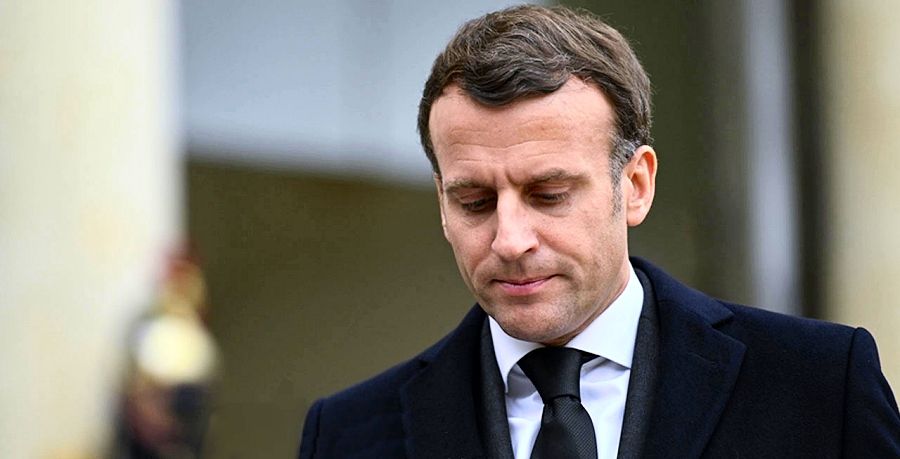
O n June 12 and 19, 2022, the French will elect their 577 deputies. “Third round” of the presidential election awaited by the oppositions, it will be decisive for all the political forces. Since the reversal of the electoral calendar in 2001, an elected president has never lost the legislative elections. But as the first round approaches, the macronists and Nupes de Mélenchon are neck and neck
According to the latest Elabe poll for L'Express and BFMTV, in partnership with SFR, LR would collect only 12.5% of the votes at the national level, against 25% and 24.5% for the alliance of left-wing parties and the confederation bringing together LREM, the MoDem and Horizons. Are we moving towards a neck and neck between the macronists and the leader of the Insoumis, relegating the other formations to the shadows, including the National Rally ?
Will the LRs resist ?
After the berezina of PS deputies in 2017, will we attend the Saint-Barthélemy of outgoing LR deputies, wonders a journalist.
The Republicans "should indeed be the big losers" of these legislative elections. The party chose independence: a perilous line in view of the 4.8% obtained by Valérie Pécresse. Some of the 101 outgoing elected officials joined the Head of State and about fifteen candidates will benefit from special treatment by not having to face a representative of the majority. The others rely on their territorial roots. “Some of the incumbents were elected in semi-rural constituencies and won in 2017 against the triumphant Macronie, so there is no reason to be pessimistic”, indicates MEP Brice Hortefeux. LR will in any case not give voting instructions on the evening of the first round of the legislative elections if its candidates are not qualified, in the case of
An unfavorable voting method for the National Rally
Marine Le Pen, meanwhile, has somehow thrown in the towel despite her second place in the first round and her 13.2 million votes on April 24, only reappearing in recent days. It is that the ambitions of the RN, which refused to ally itself with Reconquest, the party of Éric Zemmour (finally candidate in Saint-Tropez), prove to be reasonable insofar as the voting method is very unfavorable to it. Self-proclaimed "candidate of truth", Marine Le Pen also repeats that the logic of the institutions wants the President of the Republic to obtain a majority. While she obtained 41.4% of the votes in the second round and more than 55% in 87 constituencies, she set herself the objective of obtaining at least fifteen elected members, which would allow her party to form a group to the Assembly.
Indeed, since the establishment of the five-year term in 2002 and the reversal of the electoral calendar - the presidential election is held just before the legislative elections and not the reverse, in order to give the President of the Republic a coherent majority in the Assembly national - the winner of the race for the Elysée has for the moment systematically obtained a majority to carry out his program. Enough to make the legislative elections ratifying the result of the presidential election.
Thus, in 2002, in the wake of his re-election against Jean-Marie Le Pen, Jacques Chirac regained a majority in the National Assembly. In 2007, Nicolas Sarkozy, elected against Ségolène Royal, also won the legislative elections. In 2012, François Hollande's victory was accompanied by a pink wave at the Palais Bourbon. As for Emmanuel Macron in 2017, he won the legislative elections with 308 elected deputies.
But is this mechanism about to break down for the first time? This is what Jean-Luc Mélenchon wants to believe, cleverly making this meeting the “third round” of the presidential election, he who now sees himself as Prime Minister. So what are the polls saying? On this point, the polls give the presidential majority and the Nupes neck and neck. Last Friday, the Cluster 17 institute placed Nupes in the lead (31%) ahead of Together! (27%), the RN (19%) and LR (10%). But according to an Ifop survey of May 31, it's Together! which would come out on top with 27% ahead of Nupes (25%) and the RN (21%). According to this poll, which confirms the trend of that published yesterday by the Harris Institute (26% and 24%), the marchers and their allies would thus obtain between 275 and 310 seats, against 170 to 205 for the Nupes and 20 to 50 for the RN.Emmanuel Macron could therefore not have it.
Towards a duel between the Nupes de Mélanchon and Together! by Macron
In this last straight line, the polls confirm this duel between the macronists united under the banner Together! and Jean-Luc Mélenchon, now at the head of Nupes, the New Popular Ecologist and Social Alliance which brings together LFI, EELV, the PS and the PC.
Because we must now reckon with this purely “electoralist” union that is the Nupes.
The deputies of the Nupes (New Popular Ecological and Social Union) could well find themselves in the majority in the hemicycle. The ex-socialist, who is not standing, has already achieved a feat by reconciling (more or less) four political parties: LFI, EELV, PC 4 and PS. “We are in the process of writing a political history of France,” he assured. Released in the lead on April 10 in 106 constituencies and in the majority in 43, he considers that this is "a good starting point". The projections give its candidates present in the second round in more than 300 constituencies. “The fact that the left has united and that it can thus claim to have many elected members, or even why not, a relative or absolute majority in the National Assembly,
What majority for Emmanuel Macron ?
In 2017, the head of state had managed to build a solid majority with 350 elected officials, including 308 LREM. He wants to repeat the feat. In the history of the Fifth Republic, haven't the presidents always won the legislative elections organized in the wake of their election? After endless negotiations, an agreement has also been reached between the partners who will leave under the Together banner. The majority party has reserved 400 constituencies and granted a hundred to its MoDem allies and 58 to Horizons, the party of Édouard Philippe. While more than a third of the 2017 candidates came from civil society and had no mandate, the 505 candidates already invested are moreover for the most part experienced,
But in the face of the polls and the offensive campaign of Mélenchon, Emmanuel Macron beats the ground again. After having waved the brown cloth during the presidential election, the head of state is waving the red cloth, multiplying the attacks against Jean-Luc Mélenchon, designated as the number one opponent. After two trips last week, to Cherbourg on health, then to Marseille on education, it is this Thursday, June 9, 2022, tomorrow, in the Tarn, in Gaillac, to discuss everyday safety. A visit that comes as the police are once again shamefully singled out and in the crosshairs of… Nupes. On Saturday, in Paris, the passenger of a vehicle whose driver on semi-freedom, without a license and under the influence of narcotics, refused to comply with a control, was killed by police fire. " I do not see how this puzzle of circumstances that is the Nupes can win," said Richard Ferrand, the boss of the National Assembly, confident.
The arbiter of the ballot: the strong abstention expected
After reaching a record in 2017, abstention will again be the arbiter of the ballot, on June 12 and 19. In fact, to remain in the second round, the candidates must achieve at least 12.5% of the registrants. Which, in the perspective of a strong abstention, makes projections particularly difficult. According to the latest Ipsos Sopra-Steria survey for Cevipof, the Jean Jaurès Foundation and Le Monde published on Wednesday June 8, abstention could indeed reach between 52% and 56% on Sunday, with an average point of 54%.
A high abstention which will not be without consequence on the ballot since it will practically eliminate any possibility of a triangular and will therefore probably impose duels in all the constituencies... In 2017, already, there had been only one triangular , against 34 in 2012. “With this situation, we will only have duels in the second round”, also bets Gérard Grunberg, emeritus research director at the CNRS and director of the Telos site.
A low turnout, by promoting duels, could benefit the outgoing majority grouped under the Together! banner, more likely to benefit from the “useful vote”, that is to say the votes of voters wishing to block another candidate. "We can estimate that the majority candidate will arrive in the first two, with a few exceptions", predicts Jean Petaux, referring to the "fairly strong" expected mobilization of Emmanuel's electorate. In addition, the economic program of the Nupes being radical - Retirement at 60, increase in the minimum wage to 1,400 euros, blocking of the prices of basic necessities and a cookie-cutter formula like "the police kill", some could lean towards the macronists.
Anyway nothing is played in this duel between the Nupes and Together...
|
|
|
|
| Joanne Courbet for DayNewsWorld |
 |
SERIOUS MALFUNCTIONS AT THE STADE DE FRANCE OR THE DENIAL OF THE MACRON GOVERNMENT
|

How to explain the nightmarish evening at the Saint-Denis stadium on Saturday May 28, 2022 ?
The fault of the British supporters and the counterfeit banknotes maintained the Minister of the Interior Gérard Darmanin, before the Senate hearing committee. In a report to the Minister of the Interior, Didier Lallement barks in the same direction as his master announcing to seize the public prosecutor for "massive fraud with counterfeit notes".
According to him, between "30,000 and 40,000 people" showed up at the Stade de France without a ticket or with fake tickets, while the enclosure can only accommodate 80,000 people. The Paris police headquarters assures that the attempts of intrusion or use of counterfeit tickets were “generally” the act of “English supporters”.
There is outcry and indignation across the Channel. “Stade de Farce”, title in French the British newspaper The Sun, which does not take off. Police officers, present as British observers, were the first to be surprised by this communication from the French authorities. "The vast majority of England fans behaved in an exemplary manner, arriving at the turnstiles early and queuing." Liverpool club chairman Tom Werner wrote to the Sports Minister: “Your comments are irresponsible, unprofessional and totally disrespectful. […] These fans were treated like cattle […] and attacked by gangs. ".
The Liverpool club immediately called for the opening of an investigation "to determine the causes of these unacceptable problems". On Sunday, Britain's Secretary of State for Sport, Nadine Dorries, called on "UEFA to launch a formal investigation to find out what went wrong and why, in cooperation with stadium staff, the French police, the French Football Federation, the Merseyside Police [the Liverpool region] and Liverpool FC”. Apologies are requested. So what really happened ?
Counterfeit notes? “There were fake tickets and fake accreditations, we saw some, but in a very marginal way”, describes Pierre Barthélemy, lawyer for several groups of French supporters, present in Saint-Denis in Le Parisien. Ronan Evain, general manager of the Football Supporters Europe association, adds on France Inter that the fraudsters were "mostly young Parisians who came to try their luck around the Stade de France"
Contrary to what the Minister of the Interior has argued, the English supporters around the stadium were not Anglo-Saxon hooligans carrying counterfeit tickets. No desire to break or cause clashes among English fans who came to the Stade de France, unlike the usual actions of hooligans.
But it was a horde of young delinquents from the neighborhoods who were largely responsible for the mess that was created at the Stade de France. The number of 300 to 400 young people who looted personal effects and tickets for the match is mentioned. These young people also committed physical violence against the supporters present to enter the stadium. "We have undocumented thugs and city thugs who came opportunely to rob mainly Spanish and English spectators by stealing their personal effects, mobile phones and wallets and there were many thefts from vehicles parked around the Stade de France”, reported Matthieu Valet, spokesperson for the independent union of police commissioners to CNEWS.
In addition, Jérôme Jimenez, Ile-de-France UNSA Police spokesperson, indicated the majority presence of "people known to the police services" and many "minors". In total, 105 arrests and 48 police custody were made following the incidents. Only 2 Britons among them!! Reasons for their arrest: theft with a weapon, theft with violence, concealment, violence against persons holding public authority, violence in meetings, damage, attempted intrusion into the stadium, theft from the trailer.
The young rioters who came to provoke, to stir up trouble, to steal, thus confirm the “opportunity theory”. Aren't there frequent pickpockets and thefts near major sporting events ?
In addition, Seine-Saint-Denis, a department, many cities of which are part of the "republican reconquest district" system, has the highest crime rates in France, with nearly 145,000 crimes and offenses recorded in 2017 so how surprised by this delinquency?
A few days before the legislative elections, the minister's statement therefore seems above all very political. Not a single French authority proves capable of assuming the disastrous organization and not an official voice to blame the offenders that Seine-Saint-Denis for fear of displeasing some ... but at the cost of a shameless lie which only discredits political speech.
But would better organization have prevented this “ carnage ” ?
Yes without a doubt. The Stade de France is almost half the population of the city of Rennes or the 19th arrondissement of Paris. It is a city and its inhabitants who must settle in less than an hour in the stadium after having been partially searched, palpated, filtered, distributed.
The first mistake already lies in the fact of having accepted paper tickets, at least in part. It is already accepting that fraud can be organized as printers and software are today capable of reproducing and creating anything. This could only have delayed the entry and created grotesque situations in which jostling, impatience, vociferations and provocations took shape before being repressed.
Added to this, without a doubt, were the quite questionable choices of intervention, in the eyes of the public who crowded together and grew impatient. No hooligan, but supporters, certainly angry at not being able to enter the stadium, but also women, families, people of all ages. Added to these factors are transport strikes not anticipated by the organizers and the government, which could have provided alternative means.
These incidents, provided that everyone recognizes their responsibility for them, constitute a warning of what must be thought about, considered and implemented in a year (Rugby World Cup) or two years (Olympic Games 2024).
|
|
|
|
| Alize Marion for DayNewsWorld |
 |
THE BORNE GOVERNMENT OR THE CALL OF THE FOOT ON THE MELANCHONIST LEFT |
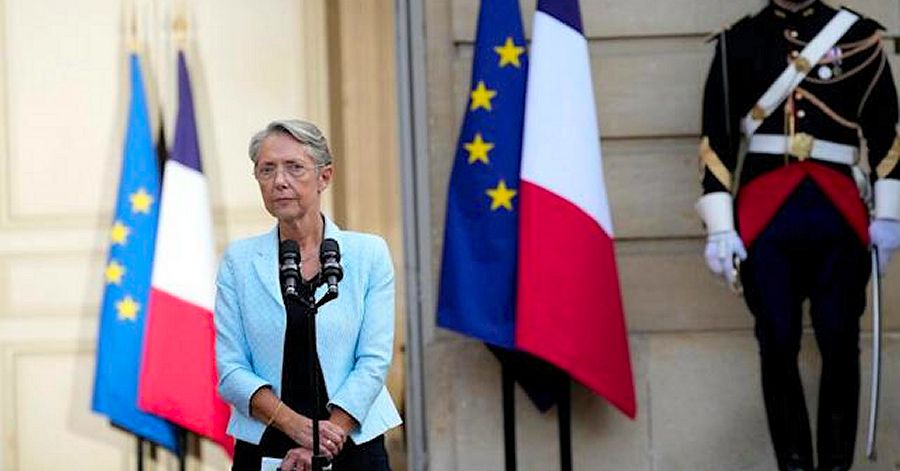
It is a government marked by continuity, but more cynically marked on the left,announced yesterday afternoon by Alexis Kohler, the secretary general of the Elysée. If the first government of Elisabeth Borne welcomes 13 new recruits out of the 27 ministers, deputy ministers and secretaries of state appointed yesterday, the vast majority of key positions have indeed been entrusted to pillars of the last five-year term.
Admittedly, the appointments to the Quai d'Orsay of Catherine Colonna and to Culture of Rima Abdul Malak could be a novelty, but in fact they are nothing extraordinary: the former, a seasoned diplomat, has already been a minister twice under Jacques Chirac and the second was until then the cultural adviser to Emmanuel Macron.
In addition, the vast majority of the most important positions have been entrusted to ministers already in place or to experienced politicians. Indeed, to carry out the ecological planning, the tenant of Matignon has surrounded herself with two faces known to the Castex government. Amélie de Montchalin – ex-Public Service – who will be in charge of Ecological Transition and Territorial Cohesion and Agnès Pannier-Runacher (ex-Industry) who will lead Energy Transition.
As for the other sovereign ministries, except for Foreign Affairs, therefore, there again, Elisabeth Borne trusted the “elders” of the last five-year term. Thus, Bruno Le Maire was reappointed at the head of Bercy as Minister of the Economy, Finance and Industrial and Digital Sovereignty. The one who put in place “whatever it costs” at the height of the pandemic, then the recovery plan and who had the support of the bosses and the support of Brussels confirms his key role in the macronie. He is now number 2 in the government. In number 3, another essential of the last quinquennium the former Sarkozyist Gérald Darmanin remains indeed inside. Damien Abad, the former boss of the LR deputies in the Assembly, is the latest war prize. The deputy for Ain inherits the Ministry of Solidarity, autonomy and people with disabilities. Yet given as a starting point, Éric Dupond-Moretti also retains his functions in Justice, despite his indictment. Finally, Sébastien Lecornu, the former overseas minister, waspromoted to the Armies, in place of Florence Parly.
In addition, Olivier Véran left Health to Brigitte Bourguignon (former Secretary of State in charge of autonomy) and took over the Ministry of Relations with Parliament. As for Gabriel Attal, he was appointed to the Public Accounts. And it is Olivia Grégoire, (former Secretary of State for the Social and Solidarity Economy), who replaces him as government spokesperson. Close to Emmanuel Macron, Clément Beaune remains in Europe.
To the left of Mélanchon
This new government must also be read through its political balances.
Elisabeth Borne, through her career, must mark a leftward inflection. The Modem Marc Fesneau, the former Minister of Relations with Parliament, goes to Agriculture. Olivier Dussopt, the boss of Territories of Progress, the left wing of Macronie, is appointed Minister of Labor. He was previously in charge of the Budget. As for Franck Riester, the president of Agir, he remains in Foreign Trade. Christophe Béchu, the mayor of Angers and number 2 of Horizons - the party of Édouard Philippe -, has been appointed minister delegate in charge of local authorities.
Places also go to first-day walkers. Party boss Stanislas Guerini has been appointed Minister of Transformation and Public Service, the President of the Law Commission in the Assembly, Yaël Braun-Pivet, has been promoted to Overseas France. Amélie Oudéa-Castera, the former patroness of the Tennis Federation, reaches the Ministry of Sports.
The greatest turn to the left is embodied on the side of National Education in the replacement of Jean-Michel Blanquer, holding a strict secular line, by the historian Pap Ndiaye, "who is accused of to belong to "decolonial" thought, and to have declared a few years ago in an interview with Le Monde, that "there is indeed structural racism in France".
For the right, this appointment is above all a signal to a fringe of Jean-Luc Mélenchon's electorate…”, analyzes Anita Hausser, journalist, in her editorial Electoral cynicism and deconstruction in government at Atlantico.
|
|
|
|
| Garett Skyport for DayNewsWorld |
 |
ELISABETH BORNE PRIME MINISTER
A CHOICE OF REASON | 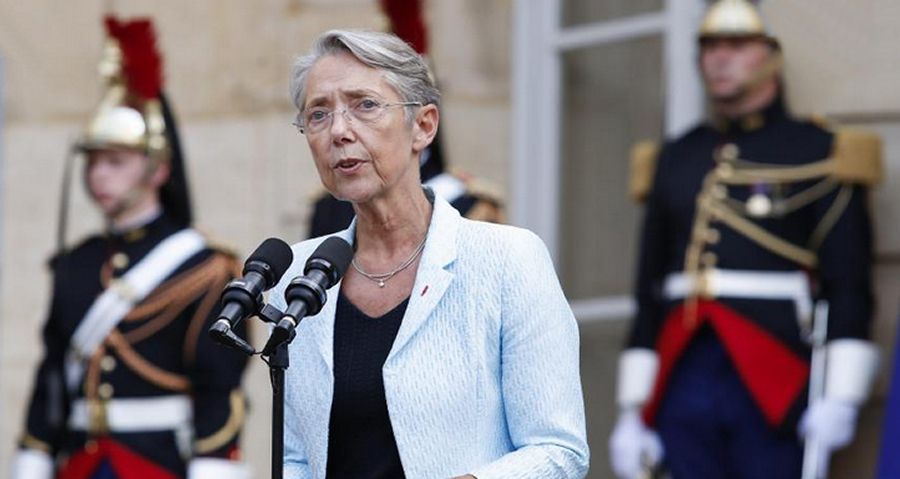
The appointment of Elisabeth Borne to the post of Prime Minister did not generate, this Tuesday, May 17, enthusiasm in the French press, which however welcomes the choice of a woman at Matignon. For the Iberian newspaper El Pais , the former Minister of Ecology is perceived more as a pragmatic choice, “who fulfills almost) all the conditions to be Prime Minister of France. "It is the choice of competence in the service of France, of a woman of conviction, action and achievement" soberly announced the Elysée in its press release, Monday afternoon.
The Head of State indeed wanted a profile "attached to the social question, the environmental question and the productive question". He also wanted to entrust the reins of government to a woman, thirty years after Edith Cresson, the only woman to have held the position in France until then. Minister since 2017 of the Philippe and Castex governments, this “techno” had been cited for several weeks to enter Matignon. Woman, on the left and with an environmental streak, the former boss of the RATP, aged 61, ticked many boxes wanted by Emmanuel Macron
"I think it's a very good choice, because she's a remarkable person, not because she's a woman," immediately reacted her distant predecessor on BFM. “She is sufficiently competent and experienced, and in addition, she is courageous, which is a very necessary virtue in this function”.
A former student of the Ecole Polytechnique (class of 1981), an engineer with a degree from the Ecole Nationale des Ponts et Chaussées, Elisabeth Borne did not go through the ENA, the classic course for great servants of the State. She began her career in 1987 at the Ministry of Equipment, before joining various ministerial cabinets and being appointed prefect of Vienne and the Poitou-Charentes region in February 2013 – she is the first woman to hold this position. Her career in the senior public service earned her this image of "good technician", combining discretion and loyalty to the president.
If Elisabeth Borne cut her teeth in the ministerial mysteries, the polytechnician also rubs shoulders with the business world. In 2002, she was director of strategy for SNCF before joining Eiffage in 2007. But she is best known for her time at RATP, which she headed between 2015 and 2017.
She led two major reforms of the quinquennium
Elisabeth Borne joined the government in May 2017 as Minister in charge of Transport under the leadership of Nicolas Hulot, Minister for the Ecological and Inclusive Transition. She impresses in this position by leading one of the first projects of the five-year term, the thorny reform of the SNCF.
With the arrival of Jean Castex at the head of the government, she changed her portfolio to that of the Minister of Labour, Employment and Integration. She is notably responsible for two major reforms, that of pensions and that of unemployment insurance. If the first does not succeed, the second comes into force in December 2021.
"Minister of impossible reforms made possible", according to the punchline of former Minister Castaner, the new tenant of Matignon will now have to demonstrate her ability to lead a government team.
|
|
| Alyson Braxton for DayNewsWorld |
 |
A WOMAN PRIME MINISTER IN MATIGNON ?
|
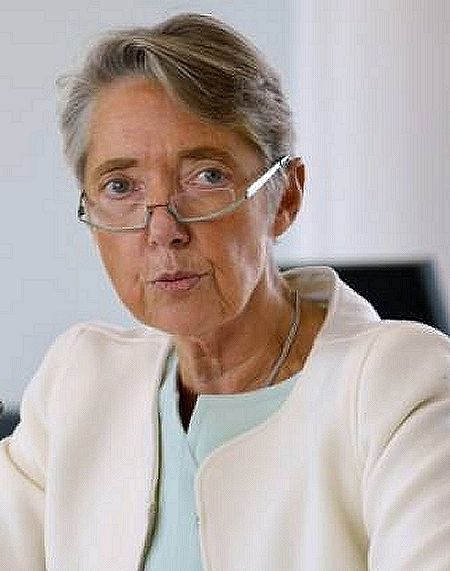
President is looking for the ideal woman to establish a professional relationship of trust. Already in 2017, Emmanuel Macron had mentioned his ambition to install a head of government in Matignon. Before sending Édouard Philippe there.
Required profile: ecological fiber, social dimension, attachment to the "productive question", political experience and a sense of listening. The only certainty, believes his entourage : it will be a woman. For the head of the Modem François Bayrou, an ally of Emmanuel Macron, you need a person, man or woman, who has “leadership, experience.
And you need a fairly great empathy with the President of the Republic "because" when the President of the Republic hates the Prime Minister things can only turn out badly, "he stressed to the Grand Jury on Sunday, citing the case of François Mitterrand and his Prime Minister Michel Rocard (1988-1991).
The women's card seems to be a major asset for Macron. Because 74% of French people are for it, according to an Ifop poll published in the JDD. Because installing a "Prime Minister", for the first time since Edith Cresson, the only woman in the entire history of the Fifth Republic to have held the post of head of government, from May 1991 to April 1992, would certainly be a signal strong.
And, also, because the Head of State knows that he must correct the image that his political system has offered up to now: that of a "boys' club", as he had shaken up one of his interlocutors during the debate “Face aux Françaises”, organized at the beginning of March by LCI and the magazine Elle.
The name of Catherine Vautrin emerges
After those of the Minister of Labor Elisabeth Borne and the former Minister of Health Marisol Touraine, the name that comes up insistently is that of Catherine Vautrin, former Minister of Social Cohesion of Jacques Chirac, who had given her support to Emmanuel Macron before the 1st round of the presidential election. Problem: this former LR MP, who campaigned against same-sex marriage in 2012 and 2013, bristles on the left.
"She is undoubtedly a woman of quality" but "is she ready to deny all the ideas she has defended for so long", criticized MEP LR Nadine Morano on Europe 1.
Also points to the name of the Vice-President of the Senate Valérie Létard, stamped "baby Borloo" for having started in politics in Valenciennes alongside the centrist Jean-Louis Borloo, before being Secretary of State in charge of green technologies in his ministry. of Ecology from 2009 to 2010, within the Fillon government. She also ticks the "social box" since she was Secretary of State for Solidarity in the same Fillon government from 2007 to 2009.
A casting intended to confirm or not the orientation that the Head of State intends to give for this start of the second five-year term, as important as the ability of the future Prime Minister to pilot the explosive pension reform, to support the ecological transition and even, above all this, to lead the battle for the legislative elections.
End of suspense at the end of the day...
|
|
|
|
| Alyson Braxton for DayNewsWorld |
 |
ERIC ZEMMOUR CANDIDATE IN THE LEGISLATIVE BATTLE |
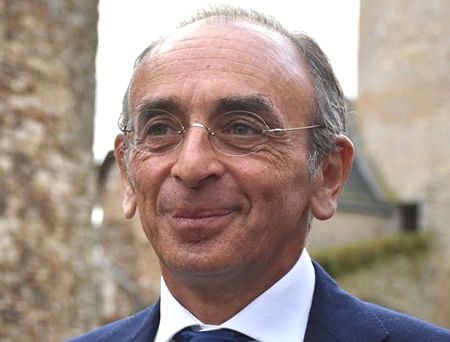
Will I go or won't go ?
The suspense is finally lifted. Eric Zemmour has finally announced that he will be a candidate in the legislative elections in the 4th district of Var. He will be present this Thursday evening at a meeting with activists in Cogolin in the Var.
It had been several weeks since the leader of Reconquest! cast doubt on his candidacy for the legislative elections. "It will be in Paris or in the Var," he said ten days ago. And it will be in the Var, in the 4th constituency, the only one where his party had not yet unveiled a candidate.
Eric Zemmour will make it official this Thursday evening on the land of Marc-Etienne Lansade, the mayor of Cogolin, former FN, and early support in the Var of the former journalist. It is also the stronghold of the outgoing Renaissance deputy, Sereine Mauborgne, candidate for re-election.
The choice to settle in the Gulf of Saint-Tropez is not insignificant, Eric Zemmour, "very attached to his Mediterranean roots" achieved his best scores in the presidential election in the Var. Moreover, "it is a region in which he has been coming regularly for 20 years" according to his entourage. In Saint-Tropez in particular, where it exceeded 22%, but also in Grimaud, Sainte-Maxime and Cogolin.
It is also in Toulon that Eric Zemmour had started the campaign to promote his book before launching into the presidential election. |
|
|
|
| Andrew Preston for DayNewsWorld |
 |
THE NUPES OR THE OPPORTUNIST ALLIANCE
LEFT FOR LEGISLATIVES | 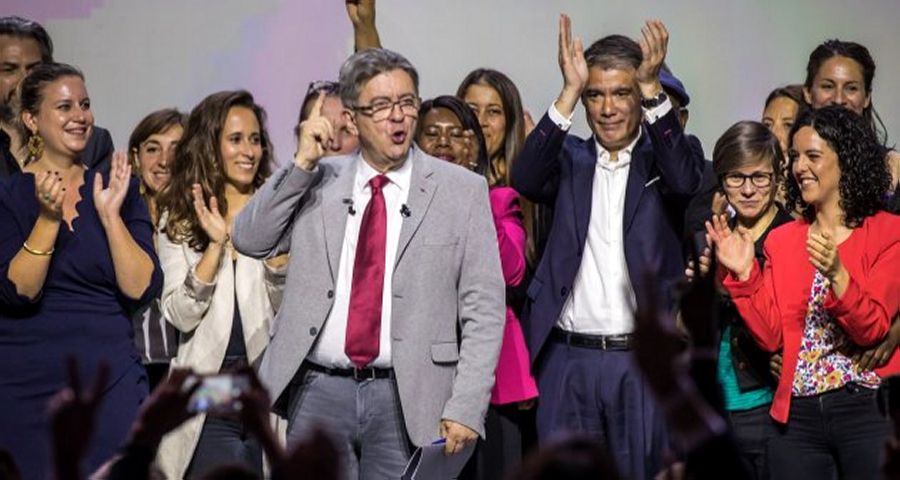
Ahead of the legislative elections in June, insubordinate France, Europe Écologie les Verts, the Communist Party and the Socialist Party are now forming an alliance in a New Popular Ecological and Social Union (Nupes). The national score obtained by the leader of LFI ( 21.95%) made his party the main political force on the left in the first round of the presidential election, far ahead of the other candidates appearing on this side of the political spectrum, namely Yannick Jadot (4.63%), Fabien Roussel (2.28%) or Anne Hidalgo (1.74%). Their three respective parties have joined the New Popular Ecological and Social Union, alongside La France Insoumise.
What changes the union of the left in the balance of power in the different constituencies? After insubordinate France, Europe Ecology, the Greens and the Communist Party, the Socialist Party finally joined the New Popular Ecological and Social Union on Thursday, May 5. An alliance formed by parties that hope to impose themselves in the territories and form, after the election, a majority in the National Assembly in June.
In an attempt to analyze the potential strength of this union of the left in each constituency, we immersed ourselves in the scores of the first round of the 2022 presidential election, adding up the results of the candidates of the four parties of Nupes, territory by territory.
Nupes gains ground in the South
On the basis of these results, the left alliance won in the south of the country, and collected a majority of votes in half of the constituencies in the area.
To compare, during the first round of the 2022 presidential election, the candidate of La France insoumise Jean-Luc Mélenchon came out ahead in the votes in the constituencies of the Ile-de-France region and the overseas territories.
Leading in almost half of the ridings
In the first round of the presidential election, it was Emmanuel Macron who most often came out on top in the territories (256 constituencies), ahead of Marine Le Pen (206) and Jean-Luc Mélenchon (104).
Thanks to this alliance, and if we stick strictly to the results of the presidential election, Nupes passes in front of the two candidates of the second round of the presidential election. The union comes first in 260 constituencies among the 566 of metropolitan France and the overseas territories, against 161 constituencies for Marine Le Pen and 145 for Emmanuel Macron.
Nevertheless, this remains a simple overview, because due to their historical local roots, the balance of power of the parties on the ground is different. It is also necessary to take into account the fact that the method of voting for the legislative elections is not comparable to that of the presidential election.
Deputies are elected by direct universal suffrage, by two-round majority voting and by constituency. To be elected in the first round, a candidate must obtain more than 50% of the votes cast. And in the second round, more than two candidates can present themselves, unlike that of the presidential ballot. The two who came first, and the following candidates, provided they had obtained a number of votes at least equal to 12.5% of the number of registered voters.
However, "we cannot mechanically translate these votes from the first round of the presidential election into legislative votes", tempers Olivier Rouquan, political scientist, teacher-researcher in political science and researcher associated with CERSA (Center for Studies and Research in Administrative Sciences and Policies). But these projections can still shed some light on the possible weight of this alliance of the left during the next legislative elections.
Verdict next June.
|
|
| Garett Skyport for DayNewsWorld |
 |
LEGISLATIVE A MAJOR FINANCIAL ISSUE
FOR PARTIES | 
Behind the political issue of the legislative elections, which are being held on June 12 and 19, 2022, lies a major financial issue.
It is the results of this election which in fact determine the public aid from which each party will benefit for the next five years. Allocations which represent part of the financing necessary for the life of the parties.
However, some, such as Les Républicains or Europe-Écologie Les Verts are now "on the bone" after their debacle in the presidential election.
The rules: two envelopes and conditions
There are two public funding envelopes. When you vote for a legislative candidate, your vote will allow the candidate's party to collect, for five years, €1.64, even if he is not elected. One condition: his party must have won at least 1% of the votes in fifty constituencies in the first round.
To receive the most funding possible, the parties therefore have an interest in presenting as many candidates as possible, even without the hope of seeing them elected. This is also why each party is currently fighting to have a maximum of invested candidates.
Since 2017, La République en Marche has received, for example, 10.1 million euros per year, the National Rally 4.9 million euros.
Please note that financial penalties may apply if the parties have not respected the principle of gender parity in the presentation of candidates for the elections.
This is what happened to the Republicans, who lost 1.8 million euros on their first envelope of 3.9 million euros. Or to La France insoumise, which lost €252,000 out of €3.8 million.
Second envelope. After this election, the final number of parliamentarians, deputies and senators will make it possible to release an additional €37,400 per elected official and per year. With its 291 parliamentarians, LREM, for example, received 10.9 million euros, i.e. a total, over the two envelopes, of more than 21 million euros per year.
In 2020, the total amount paid to the parties amounted to 66 million euros.
Within the framework of a coalition, each wanting his share of the cake, the rules of the game of public aid lead to strange negotiations: a candidate can for example be invested under the name of a party (for the first envelope), and be attached to the group of his original party (for the second)…
Other financing
Public aid is not the only source of financing. The parties are also financed, in particular, thanks to donations from people, contributions from members and elected officials. Substantial sums: in total, 60.1 million euros in 2020.
Public aid is paid only to parties that have presented candidates. This does not favor the emergence of new parties. Unless relying on private donations.
|
|
|
|
| Jaimie Potts for DayNewsWorld |
 |
LEGISLATIVE
THE CRITICAL VOTING METHOD | 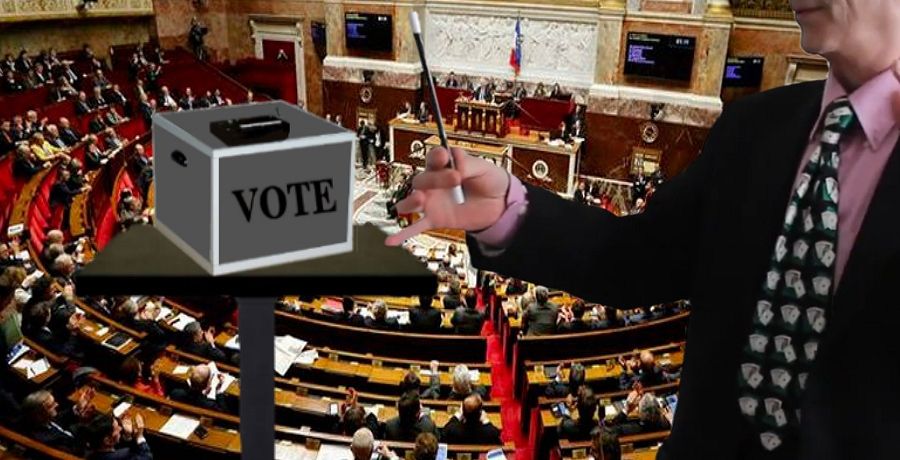
The two-round single-member ballot and the high risk of abstention make small parties invisible. He forces them to make alliances to increase their chances.
The election of the 577 deputies to the National Assembly is by uninominal majority ballot in two rounds. Voting is by constituency, each corresponding to one seat. The seat is won by the candidate who obtains the most votes. The objective is to obtain an absolute majority of seats, ie 289 deputies.
Since 2002, the legislative elections follow the presidential elections. And usually voters give the newly elected president a majority in the National Assembly.
To be elected in the first round, the candidate must have obtained an absolute majority (50% of the votes plus one, representing at least 25% of those registered). Otherwise, a second round is organized and it is then the candidate who has obtained the most votes (the relative majority) who wins. But only candidates who have obtained 12.5% of the votes of the number of registered voters can participate in the second round.
Benefits
This voting method offers the benefit of achieving clear majorities through candidates having obtained an (absolute or relative) majority of votes. Stop overrepresenting them. It generally has the virtue of giving the executive a solid basis for governing. It was moreover to put an end to the political instability of the Fourth Republic that General de Gaulle had reestablished, in 1958, the majority ballot for the election of deputies.
The inconvenients
This ballot eliminates, conversely, the other candidates, whether they have obtained 5% or 40% of the votes. This is why he is criticized for penalizing the smallest parties, established on the territory but benefiting from an insufficient number of voters to win. These rules of the electoral game therefore do not allow all political sensitivities to be heard.
Five years ago, the National Rally, little established and without allies, had obtained only six deputies and two relatives despite its 13.2% of the votes in the first round of the legislative elections. The abstention, which reached records, also weighs very heavily on the ballot.
To qualify for the second round, you must obtain 12.5% of the votes of the number of registered voters. But with a 50% abstention, this amounts to having to win 25% of the votes cast in the first round. And with almost 58% abstention as in 2017? 29%.
The results
The vote and the level of abstention require alliances to be forged from the first round to increase one's chances. This is what the various political parties are currently actively working on.
Aborted reforms
The smaller parties have long been calling for a change in the voting system in the legislative elections. And the debate is reactivated this year, as was already the case in 2017.
Emmanuel Macron then promised to integrate a dose (15%) of proportional representation in the legislative ballot, "to reflect the pluralism of our political life". Text finally buried.
The election concerns the 577 deputies in the National Assembly.
|
|
|
|
| Jaimie Potts for DayNewsWorld |
 |
There are no translations available.
COMMENT LE PEN ET MACRON SE PREPARENT
AU DEBAT D'ENTRE-DEUX-TOURS
|
 La même affiche, mais pas de remake. Le second tour entre Emmanuel Macron et Marine Le Pen, dimanche prochain, se déroule sous des auspices bien différents. D’abord parce que le rapport des forces se révèle infiniment plus serré qu’en 2017. Certes, le Président compte aujourd’hui, dans les enquêtes d’opinion, une avance qui s’est précisée tout au long de la semaine . Mais cet écart, bien qu’au-dessus de la marge d’erreur, n’est plus suffisant pour lui assurer une réélection sans coup férir. La même affiche, mais pas de remake. Le second tour entre Emmanuel Macron et Marine Le Pen, dimanche prochain, se déroule sous des auspices bien différents. D’abord parce que le rapport des forces se révèle infiniment plus serré qu’en 2017. Certes, le Président compte aujourd’hui, dans les enquêtes d’opinion, une avance qui s’est précisée tout au long de la semaine . Mais cet écart, bien qu’au-dessus de la marge d’erreur, n’est plus suffisant pour lui assurer une réélection sans coup férir.
Cinq ans après le débat spectaculaire du printemps 2017, le président-candidat et la cheffe de file du Rassemblement national fourbissent à nouveau leurs armes. Le débat retour entre Emmanuel Macron et Marine Le Pen, mercredi à 21 heures sur TF1 et France 2, n’offrira pas la même physionomie qu’en 2017. À l’époque, la différence de niveau entre les deux finalistes était abyssale.
En cinq ans, l’écart entre les deux finalistes s’est considérablement réduit. La confrontation entre un candidat issu de l’arc républicain et une candidate d’extrême droite se rapproche désormais des scores des traditionnelles oppositions entre droite et gauche, au second tour, sous la Ve République.
Abandonnant la traditionnelle posture de dénonciation morale de l’extrême droite, Macron a assuré cette semaine vouloir livrer un combat « projet contre projet ». Il s’agit, en réalité, d’un autre type de confrontation : rejet contre rejet. Surfant sur les plus hostiles au sortant, dans le sillage des Gilets jaunes et des antivax, et en appelant à tous les déçus du macronisme, Le Pen tente d’organiser un référendum anti-Macron. Jeudi à Avignon (Vaucluse), elle a retourné au chef de l’État le compliment du « barrage », appelant à en ériger un contre sa réélection.
Quant au traditionnel « barrage » contre l’extrême droite, il a du plomb dans l’aile. Certes, hormis Éric Zemmour et Nicolas Dupont-Aignan, presque tous les candidats battus au premier tour ont appelé, au minimum, à ne pas voter pour elle.
Ironie de l’histoire : pour les deux finalistes, la principale réserve de voix se situe chez ceux qui ont opté pour Jean-Luc Mélenchon au premier tour. Alors même que, à leurs yeux, Macron et Le Pen constituent deux repoussoirs… Quelle proportion des 21,95 % de l’Insoumis se reportera sur le Président ?
Pour la première fois, une présidentielle se jouera non sur une adhésion minimale, mais sur un refus.
Sur le fond côté Macron: économie, diplomatie, avec bien sûr les relations entre Marine Le Pen et Vladimir Poutine, état de droit. La dénonciation morale de l’extrême droite ne semble pas à l’ordre du jour. Le
Macron nouveau serait celui de l’association, de la concertation, du
temps long. C’est du moins ce que promet le candidat de La République en
marche s’il est réélu dimanche prochain. Remisé, le président pas
encore quadragénaire qui, dès les premiers mois de son mandat,
bouleversait le code du travail par ordonnances, supplantait l’impôt de
solidarité sur la fortune (ISF) par celui sur la fortune immobilière
(IFI), ouvrait la SNCF à la concurrence, le tout au pas de charge. «
Conférence des parties prenantes » et « convention transpartisane »
peuplent désormais le programme 2022 d’Emmanuel Macron. « J’écoute », «
j’entends », répète-t-il en référence à ses déplacements de campagne,
cherchant à incarner « cet “avec vous” [qui] est une nouvelle manière de
faire », assurait-il encore mercredi sur TF1. En défense, l’équipe du sortant s’attend à des tirs en rafale contre le « président de l’argent », sur l’« appauvrissement » des Français ou encore sur « la France d’en bas contre celle d’en haut ». D’où un impératif : se montrer empathique.
Dans le camp adverse, Marine Le Pen, mettra en scène sa sérénité . Sur le fond, Le Pen espère ouvrir une brèche sur le sujet de la réforme des retraites, afin de séduire l’électorat de Jean-Luc Mélenchon.La candidate RN « veut faire un gouvernement d’union nationale », dit-elle. Elle est censée montrer que Marine Le Pen est capable de « dépasser » son propre camp et de créer « l’ouverture », comme l’avait fait Nicolas Sarkozy en 2007, lorsqu’il avait fait venir Bernard Kouchner ou Frédéric Mitterrand dans le gouvernement de François Fillon. Marine
Le Pen présidente suivra à la lettre la Constitution de la Ve
République. Elle nommera dans un premier temps un Premier ministre, qui
pourra d’ailleurs changer après les législatives. Charge à lui de
présenter un gouvernement, que le Président approuve ou pas. »
Dès l’été, la candidate prévoit de faire voter deux collectifs budgétaires pour supprimer la redevance télé, pour instaurer une part fiscale pleine dès le deuxième enfant, pour rétablir la demipart fiscale pour les veuves et les veufs, et pour créer un impôt sur la fortune financière (IFF) dans le but de remplacer l’impôt sur la fortune immobilière (IFI). L’exonération de l’impôt sur le revenu pour les moins de trente ans et la possibilité pour les entreprises d’augmenter de 10 % les salaires jusqu’à trois fois le smic sans augmentation des charges patronales passeront par un référendum. Son équipe de campagne sait que l’entre-deux tours ne tourne
plus autour de la question du pouvoir d’achat, du prix de l’essence et
de la retraite à 65 ans, mais plutôt autour d’une autre : comment
entend-elle gouverner, si elle est élue ?
« Je vais diriger le pays en
mère de famille », a-t-elle dit en marge d’un déplacement en Eure et
Loir, comme l’a rapporté Le Figaro.
|
|
|
|
| Joanne Courbet pour DayNewsWorld |
 |
There are no translations available.
LES ENJEUX DE REPORT DE VOIX
POUR SECOND TOUR DE LA PRESIDENTIELLE
|
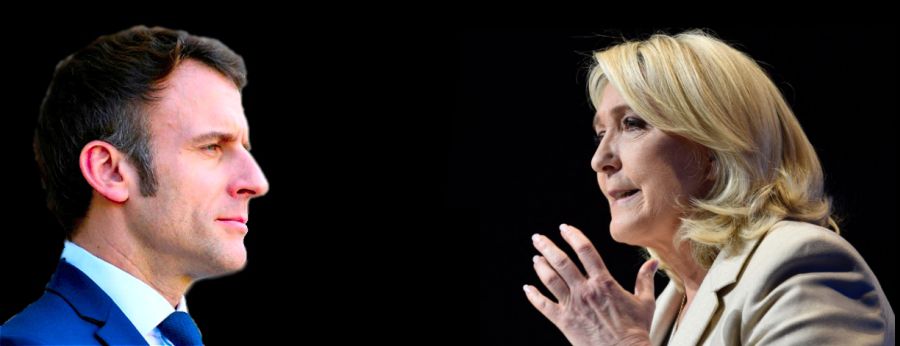 Le résultat du premier tour laisse planer une fausse clarté sur l’issue du second. Le résultat du premier tour laisse planer une fausse clarté sur l’issue du second.
Engagés dans une rude bataille pour un second tour à suspense, Emmanuel Macron et Marine Le Pen tentent d'élargir leur base électorale, notamment à gauche, du côté des électeurs très courtisés de l'Insoumis Jean-Luc Mélenchon, fort de ses 21,95 % des voix au premier tour. Quelle dynamique va présider pour les reports de voix au second tour ?
Le système majoritaire poussant à rétrécir le débat autour d’une opposition binaire, Emmanuel Macron l'aborde en se présentant comme le candidat de l’ouverture face à une extrême droite xénophobe et anti-libérale. Le président-candidat semble faire le pari qu’il pourra compter sur le rejet toujours majoritaire de leurs positions xénophobes et que ce clivage entre ouverture et fermeture lui sera donc favorable.
Suivant cette même logique, le peu d’accent placé par Marine Le Pen sur les enjeux d’immigration n’a pas empêché Éric Zemmour et Nicolas Dupont-Aignan d’annoncer qu’ils voteraient pour elle. Leurs électeurs sont nombreux à envisager de faire de même malgré des divergences en matière sociale. Elle peut de surcroît, au vu de l’attitude du numéro 2 de la primaire LR, Éric Ciotti, partisan d’une droite dure, espérer une part des voix recueillies par Valérie Pécresse.
Vers un nouveau Front Républicain ? Cependant, ce cadrage n’apporte guère de réponses aux demandes de protection sociales exprimées dans les sondages et, sans doute, dans le vote de dimanche.
Le pari pourrait s’avérer risqué si les considérations d’ordre culturelles poussent les électeurs situés à droite vers Marine Le Pen, tandis que les programmes sociaux dissuadent trop d’électeurs de gauche de lui faire barrage.
Et dans le cadre d’une sorte de « tout sauf Macron », elle pourrait bénéficier de certains suffrages de Jean-Luc Mélenchon bien que ce dernier ait appelé à plusieurs reprises dimanche soir à ne « pas donner une seule voix » à l’extrême droite sans pour autant donner une consigne en faveur d’Emmanuel Macron. Selon Manuel Bompard, La France insoumise n'a « rien à négocier » avec Emmanuel Macron au second tour de la présidentielle. La drague à gauche du président sortant reposerait sur « une logique assez évidente », mais il faudra « davantage que de la communication » pour convaincre les électeurs de Jean-Luc Mélenchon, selon son ancien directeur de campagne invité sur France Info, qui a appelé le chef de l'État à abandonner sa réforme des retraites.
Une campagne ardue pour Emmanuel Macron
Face à ces deux blocs qu’unit leur commune hostilité au président-candidat, Emmanuel Macron ne dispose pas des mêmes ressources potentielles. Certes, aussi bien Anne Hidalgo que Valérie Pécresse, Yannick Jadot et Fabien Roussel ont fermement et clairement appelé à voter pour lui. Le candidat Macron est sur la posture de celui qui prétend incarner la raison, le combat pour faire barrage aux populismes. Et quand on voit les appels de Yannick Jadot, de Valérie Pécresse, voire de Jean-Luc Mélenchon (toutefois bien plus ambigu), il y a la volonté de recréer une forme de Front Républicain subliminal ou light. Mais les électeurs s’affranchissent de plus en plus des consignes de vote et l’Emmanuel Macron 2022 n’est plus tout à fait celui de 2017. Et pour cause : il est le sortant. Selon le politologue Bruno Cautrès. le président sortant est vu, par ceux qui ne l’aiment pas, « comme le président des riches à cause de son parcours de banquier et de haut fonctionnaire. Il est aussi vu comme quelqu’un qui ne sait pas bien où il va, de beaucoup trop opportuniste, qui pense avoir toujours raison, qui n’écoute pas les Français, qui prend les décisions par le haut… Il est même qualifié de monarque et voire de dictateur » par certains, souligne-t-il. Il lui faudra donc ferrailler dur pour amener à lui les électeurs de gauche qui auront voté Mélenchon afin d’éviter trop de déshonneur à leur camp. Reste à jouer sur la participation et susciter une dynamique parmi les abstentionnistes du premier tour.
Le président sortant va être le porteur de l’étendard du tout sauf Marine Le Pen tandis qu’elle sera la candidate du tout sauf Emmanuel Macron. |
|
|
|
| Abby Shelcore pour DayNewsWorld |
 |
There are no translations available.
EMMANUEL MACRON EN CAMPAGNE
POUR LE SECOND TOUR
|
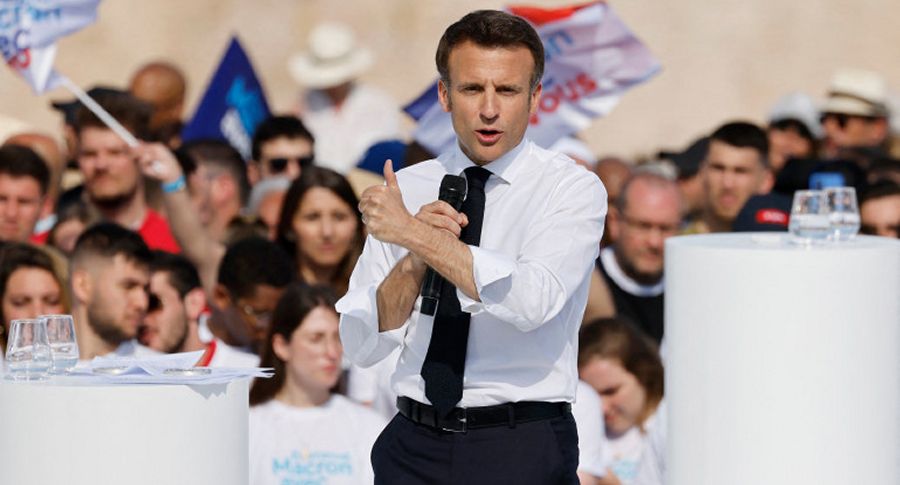 Emmanuel Macron, cette fois-ci bien décidé à battre la campagne, a multiplié les déplacements et les échanges. Après un déplacement mouvementé dans les Hauts-de-France lundi, le président sortant se rend, ce mardi, dans le Grand-Est et notamment à Mulhouse. Sur place, Emmanuel Macron veut jouer la carte du candidat rassembleur en draguant les électeurs de Jean-Luc Mélenchon sur la question des retraites et ceux de la droite. Emmanuel Macron continue donc son opération séduction dans tous les camps alors que ,dans le même temps, il a reçu ce mardi 12avril 2022le soutien de Nicolas Sarkozy ou encore celui de Lionel Jospin. Emmanuel Macron, cette fois-ci bien décidé à battre la campagne, a multiplié les déplacements et les échanges. Après un déplacement mouvementé dans les Hauts-de-France lundi, le président sortant se rend, ce mardi, dans le Grand-Est et notamment à Mulhouse. Sur place, Emmanuel Macron veut jouer la carte du candidat rassembleur en draguant les électeurs de Jean-Luc Mélenchon sur la question des retraites et ceux de la droite. Emmanuel Macron continue donc son opération séduction dans tous les camps alors que ,dans le même temps, il a reçu ce mardi 12avril 2022le soutien de Nicolas Sarkozy ou encore celui de Lionel Jospin.
De plus le président-candidat Emmanuel Macron se rend à Strasbourg pour investir le sujet de l'Europe, central dans son programme. Le candidat Macron va mettre l'accent sur son projet européen radicalement différent de celui de sa rivale Marine Le Pen. Le président-candidat est convaincu que ce thème est l’une des principales clés pour aller chercher les voix de droite et de gauche durant cet entre-deux-tours. Il veut défendre une Europe plus forte, développer une Europe de la défense en plaidant pour de plus grandes capacités militaires des États membres et en renforçant la coordination. Le candidat Macron souhaite également travailler à une autonomie énergétique de l’Europe.
Le projet de Marine Le Pen est, lui, diamétralement opposé à celui du président-candidat. Même si Marine Le Pen ne souhaite plus sortir la France de l’UE, ni sortir de l'euro comme elle le projetait il y a cinq ans, la candidate du RN veut consacrer la suprématie du droit français sur le droit européen, via un référendum. Pour elle, la souveraineté nationale est prioritaire. La députée du Pas-de-Calais souhaite aussi réinstaurer des contrôles aléatoires aux frontières, restreindre l’accès des citoyens européens aux droits sociaux et réduire de 25% la contribution française au budget de l’Union européenne.
Le chef de l'Etat se rend en périphérie de Mulhouse, dans un centre de rééducation pour y échanger durant une heure environ avec une quinzaine de soignants. A Châtenois, à quelques kilomètres, Emmanuel Macron rencontre des habitants et des commerçants pour évoquer la thématique chère à l'électorat de droite de la sécurité. Sur sa réforme des retraites, il s'est déjà dit prêt à bouger et évoque maintenant 64 ans au lieu de 65 comme âge de départ.
Une concession aux allures de reculade pour tenter de séduire l'électorat de Jean-Luc Mélenchon... Il faudra cependant au président ferrailler dur pour amener à lui les électeurs de gauche qui auront voté Mélenchon afin d’éviter trop de déshonneur à leur camp...
|
|
|
|
| Britney Delsey pour DayNewsWorld |
 |
There are no translations available.
LES RESULTATS DU PREMIER TOUR MARQUE UNE RECOMPOSITION DU PAYSAGE POLITIQUE FRANCAIS
|
 Les résultats du premier tour des élections présidentielles de 2022 confirment, à première vue, les rapports de forces issus du précédent scrutin. Emmanuel Macron (LREM) avec 28,4% des suffrages et Marine Le Pen (RN) avec 23,2% sont, comme en 2017, qualifiés pour le second tour – dans le même ordre qu’il y a cinq ans. L'historien Mathias Bernard fait part de son analyse dans The Conversation Les résultats du premier tour des élections présidentielles de 2022 confirment, à première vue, les rapports de forces issus du précédent scrutin. Emmanuel Macron (LREM) avec 28,4% des suffrages et Marine Le Pen (RN) avec 23,2% sont, comme en 2017, qualifiés pour le second tour – dans le même ordre qu’il y a cinq ans. L'historien Mathias Bernard fait part de son analyse dans The Conversation
Le même duel aura donc lieu au cours de deux élections présidentielles successives.
Cette stabilité est en grande partie liée à la notoriété des principaux candidats, déjà présents il y a cinq ans. Ces candidats ont su fidéliser un socle électoral auquel se sont agrégés, au cours des dernières semaines, des électeurs qui ont fait prévaloir un vote utile, de préférence à un vote d’adhésion.
Des votes utiles
Emmanuel Macron progresse de près de quatre points par rapport à 2017, alors même qu’il a, au cours de son quinquennat puis lors de sa campagne présidentielle, abandonné la position d’équilibre entre droite et gauche qui avait assuré son succès initial pour adopter un discours qui le situe clairement au centre-droit.
Cette évolution lui a aliéné une fraction de ses électeurs venus de la gauche, mais a permis d’attirer une partie plus importante des électeurs du centre et de la droite – le très faible score de la candidate LR Valérie Pécresse (4,7 %) en témoigne.
Marine Le Pen, quant à elle, enregistre une progression presque comparable et obtient un score jamais atteint par le FN puis le RN à une élection présidentielle. Elle aussi a bénéficié d’un vote utile et a ainsi pu largement surclasser la candidature d’Éric Zemmour qui, après avoir menacé son leadership, a finalement parachevé sa stratégie de dédiabolisation engagée il y a dix ans : en occupant le créneau de la droite identitaire, le candidat de Reconquête a en effet permis à Marine Le Pen de davantage investir les thématiques sociales qui ont favorisé sa progression au sein de l’électorat populaire.
Tout comme Marine Le Pen, Jean-Luc Mélenchon obtient, pour sa troisième tentative depuis 2012, son meilleur score à une élection présidentielle, bénéficiant lui aussi du soutien in extremis d’un électorat de la gauche modérée soucieux avant tout d’éviter un second tour opposant Emmanuel Macron à Marine Le Pen.
Une tripolarisation du champ politique français
Cette dynamique de vote utile, qui s’est enclenchée à peine un mois avant le scrutin, semble amplifier la restructuration du champ politique français autour de trois grands pôles
-Un pôle libéral, centriste et européen qui rassemble, à chaque élection nationale, un peu plus d’un quart des électeurs mais qui, grâce à la mécanique du scrutin majoritaire, parvient jusqu’à présent à dominer la vie politique.
- Un pôle populiste et identitaire, aujourd’hui dominé par Marine Le Pen et représenté par deux candidats dont le score cumulé (plus de 30 %) constitue un record historique pour l’extrême droite identitaire et populiste à une élection nationale en France : c’est donc ce pôle qui enregistre la plus forte progression au cours des cinq dernières années.
-Et un pôle de gauche radicale, dominé par La France insoumise, et qui, si l’on intègre les résultats des candidats communistes et trotskistes, rassemble un peu moins de 25 % des voix.
Cette tripolarisation conduit à marginaliser les deux forces politiques qui, depuis les années 1970, structuraient la vie politique française.
Le déclin des partis traditionnels : un air de déjà vu
Avec moins de 2 % des voix, le Parti socialiste confirme un déclin qui, en 2017, pouvait apparaître comme simplement conjoncturel. Son évolution rappelle aujourd’hui celle du Parti radical au début de la Vᵉ République : ce parti qui avait dominé la gauche avait alors été victime de la bipolarisation du paysage politique enclenchée par De Gaulle et n’avait survécu que grâce à un important réseau d’élus, surtout présent (comme celui du PS aujourd’hui) dans le sud-ouest de la France.
Le déclin de la droite traditionnelle est l’un des autres faits marquants de cette élection, puisque la candidate du parti Les Républicains a divisé par quatre le score réalisé il y a cinq ans par son prédécesseur. Ce résultat prolonge l’échec enregistré par LR lors des européennes de 2019 et souligne l’étroitesse de l’espace politique désormais occupé par ce parti, coincé entre le centre-droit macronien et l’extrême droite populiste de Marine Le Pen.
Des évolutions importantes depuis 2017
Il faut donc se garder de voir dans les résultats de ce premier tour une répétition de l’élection de 2017. La stabilité apparente des rapports de forces masquent des évolutions importantes.
1° La droitisation du paysage politique se poursuit. Elle se manifeste par l’irruption de la nouvelle droite identitaire d’Éric Zemmour, le repositionnement de l’offre politique proposée par Emmanuel Macron et la faible progression de Jean-Luc Mélenchon, qui ne compense pas l’affaiblissement du PS.
2°Les populismes continuent également leur progression, autour d’un discours qui, en cinq ans et sous l’effet d’un certain nombre de mouvements sociaux (les gilets jaunes notamment), s’est radicalisé : plus que jamais, la coupure entre peuple et élite se manifeste dans les urnes. Cette progression du populisme fragilise Emmanuel Macron, dont la position est moins favorable que ce qu’elle peut laisser paraître de prime abord.
3°Le président sortant obtient des scores comparables à certains de ses prédécesseurs qui n’ont pas été réélus pour un second mandat : Valéry Giscard d’Estaing en 1981 (28 % des voix), Nicolas Sarkozy en 2012 (27 % des voix). Il ne peut par ailleurs capter la volonté de changement qui avait en grande partie expliqué sa victoire il y a cinq ans.
La campagne de l’entre-deux-tours mettra ainsi en jeu deux projets antagonistes, deux visions de la société mais aussi une tension entre le « dégagisme », hostile au président sortant, et l’appel au barrage contre l’extrême droite, qu’ont lancé une majorité de candidats battus au premier tour.
|
|
|
|
| Carl Delsey pour DayNewsWorld |
 |
There are no translations available.
LES CONSEQUENCES ECONOMIQUES DE LA GUERRE EN UKRAINE POURRAIENT BENEFICIER A MARINE LE PEN
|
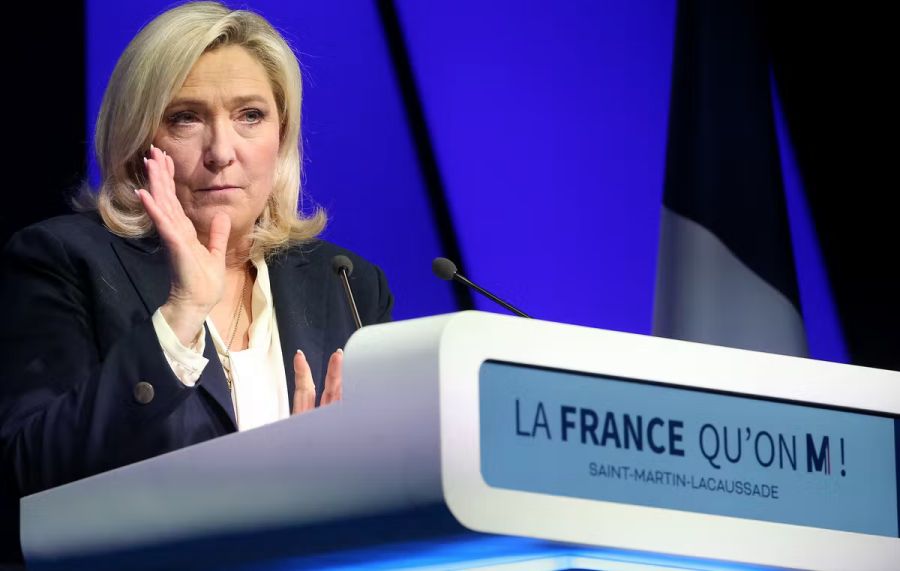 L’impact économique de la guerre en Ukraine pèse sur les électeurs français. La flambée des prix de l’énergie s’ajoute à l’inflation qui a accompagné la reprise de l’économie française après les confinements liés à la pandémie de Covid-19. L’impact économique de la guerre en Ukraine pèse sur les électeurs français. La flambée des prix de l’énergie s’ajoute à l’inflation qui a accompagné la reprise de l’économie française après les confinements liés à la pandémie de Covid-19.
La stratégie « social-populiste » de Marine Le Pen – à savoir un positionnement à la gauche économique associé à une rhétorique populiste et nationaliste , mise en œuvre depuis dix ans par la présidente du RN, pourrait s’avérer un pari politique gagnant.
Les inquiétudes économiques s’imposent comme le thème dominant de la campagne. Selon les dernières enquêtes électorale du CEVIPOF , 58 % des Français déclarent que les prix et le pouvoir d’achat auront une influence importante sur leur vote en avril, soit une hausse conséquente depuis début mars. Comme ailleurs en Europe, les prix du carburant ont grimpé en flèche en France à la suite de l’invasion de l’Ukraine par la Russie, le blé, certaines métaux pourraient également fortement augmenter.
Les questions liées au pouvoir d’achat s’imposent dans la campagne
À la lumière de ces nouvelles données le résultat du premier tour de l’élection présidentielle dépendra en grande partie de la réponse des divers candidats aux questions de pouvoir d’achat, d’augmentation des prix et de protection des Français face à l’impact économique de la guerre.
Anticipant « une crise qui va s’installer », le gouvernement de Jean Castex a d’ores et déjà souligné l’importance de soutenir l’économie française en élaborant un plan d’urgence de « résilience ». Après le « quoi qu’il en coûte » pendant la pandémie de Covid-19, ce nouveau plan de 7 milliards d’euros est destiné à aider les entreprises et les ménages à faire face à la hausse des coûts de l’énergie suite aux sanctions économiques imposées par l’Occident à la Russie.
Si Emmanuel Macron semble encore dominer pour l’heure la bataille du premier tour avec un petit 24 % des intentions de vote , les préoccupations économiques sont devenues une des clés de la bataille pour la deuxième place.
A droite, des stratégies économiques divergentes
À droite, les stratégies économiques des trois principaux prétendants divergent. Pour l’essentiel, les grandes orientations de campagne de Valérie Pécresse, Éric Zemmour et Marine Le Pen ont été définies il y a plusieurs mois, bien avant le déclenchement de la guerre en Ukraine. Mais à l’approche du premier tour, la crise ukrainienne crée des opportunités différentes pour chacun de ces candidats.
Sur le plan économique, Éric Zemmour et Valérie Pécresse défendent un programme à tonalité libérale, marqué par la lutte contre l’« assistanat » chez le premier ou la réduction du nombre de fonctionnaires chez la candidate LR. Tous deux sont également en faveur d’un recul de l’âge légal de départ à la retraite – 64 ans pour E. Zemmour et 65 ans pour V. Pécresse –, une réforme qui continue d’être rejetée par près de 7 Français sur 10.
En pleine tempête sur les prix et le pouvoir d’achat, cette orientation libérale se heurte aux attentes qui existent, notamment au sein de l’électorat populaire, de plus de protection sociale, de santé et de redistribution .
Ces questions sociales sont précisément au cœur de la campagne de Marine Le Pen. Face à ses deux principaux concurrents à droite, la candidate du Rassemblement national a très tôt choisi une voie économique différente, mettant l’accent sur le pouvoir d’achat, la santé, la défense des services publics et la redistribution.
Avant même l’invasion de l’Ukraine par la Russie, la candidate du Rassemblement national avait promis un « choc de pouvoir d’achat » en s’engageant à « protéger notre peuple » et à « rendre leur argent aux Français ».
Ce discours à forte tonalité sociale a assez rapidement permis à Marine Le Pen de détourner l’attention de ses positions pro-russes et de son soutien à Vladimir Poutine dans le passé, pour recentrer sa campagne sur les conséquences économiques du conflit ukrainien sur la vie quotidienne des Français
Marine Le Pen ou la stratégie « social-populiste »
Plus encore, il permet à la candidate du RN d’asseoir sa crédibilité en tant que candidate du « pouvoir d’achat » auprès des catégories populaires et des classes moyennes les plus inquiètes de l’impact économique de la crise.
Une analyse statistique du projet présidentiel de Marine Le Pen montre que la composante de « redistribution » représente pas moins des deux tiers (66 %) de son programme économique : il s’agit là du pourcentage le plus élevé depuis la percée électorale du FN au milieu des années 1980. Ce premier pilier réunit toutes les mesures sociales ou économiques d’orientation keynésienne, fondées sur la demande, la protection sociale et la redistribution.
Le programme de Marine Le Pen propose, entre autres choses, des baisses de TVA, une hausse des salaires, des exonérations fiscales et la gratuité des transports pour les jeunes travailleurs. Cette offensive de redistribution tous azimuts sur le pouvoir d’achat et la santé a pour cibles prioritaires les catégories populaires et les jeunes actifs, qui constituent le gros des bataillons de l’électorat RN.
Autre cible : les retraités, qui demeurent, eux, moins enclins à soutenir le RN – seuls 13 % d’entre eux voteraient pour sa présidente. Aux séniors, Marine Le Pen promet la revalorisation des retraites et du minimum vieillesse, et la suppression des impôts sur l’héritage direct pour les familles modestes et les classes moyennes.
Parallèlement, le RN s’est éloigné de positions économiques plus libérales sur les fonctionnaires, la dérégulation ou le retrait de l’État providence.
Il a conservé, enfin, son ancrage de nationalisme économique (13 % du programme). Marine Le Pen continue de défendre la souveraineté économique nationale, le protectionnisme, le refus du libre-échange ou la préférence donnée aux entreprises nationales contre la libre concurrence de l’Union européenne.
Ce positionnement à la gauche économique, associé à la rhétorique populiste et nationaliste traditionnelle du RN opposant les élites économiques et politiques « mondialistes » au peuple, dessine les contours d’un « social-populisme » qui distingue aujourd’hui très clairement Marine Le Pen de ses autres compétiteurs à droite, y compris Éric Zemmour.
Le pari gagnant de Marine Le Pen ?
Tout au long du quinquennat d’Emmanuel Macron, Marine Le Pen s’est employée à cultiver son image social-populiste, rejoignant à plusieurs occasions les rangs de la gauche et des syndicats. Fin 2019, elle s’était fortement opposée à la réforme des retraites. En mars 2021, la présidente du RN avait également dénoncé la réforme de l’assurance-chômage par le gouvernement, demandant à Emmanuel Macron de mettre un terme à cette « saignée sociale ».
Les dernières enquêtes électorales confirme qu’il s’agit là d’un pari potentiellement gagnant : Marine Le Pen y recueille 22 % des intentions de vote , loin devant Éric Zemmour (10 %) et Valérie Pécresse (10 %).
En meeting à Saint-Martin-Lacaussade le 25 mars, Marine Le Pen a répété sa vision populiste du duel qu’elle espère livrer face à Emmanuel Macron, opposant les « gros » aux « petits », le « peuple » aux« élus ». « Entre Emmanuel Macron et nous, a-t-elle déclaré, c’est le choix entre le pouvoir de l’argent qui profite à quelques-uns, et le pouvoir d’achat qui profite à tout le monde ».
Défendre un programme social-populiste aux préoccupations socio-économiques bien avant le déclenchement de la guerre en Ukraine, un pari gagnant pour Marine Le Pen ? |
|
|
|
| Andrew Preston pour DayNewsWorld |
 |
There are no translations available.
J-3 AVANT LA PRESIDENTIELLE
POURQUOI EMMANUEL MACRON EST-IL EN DANGER ?
|
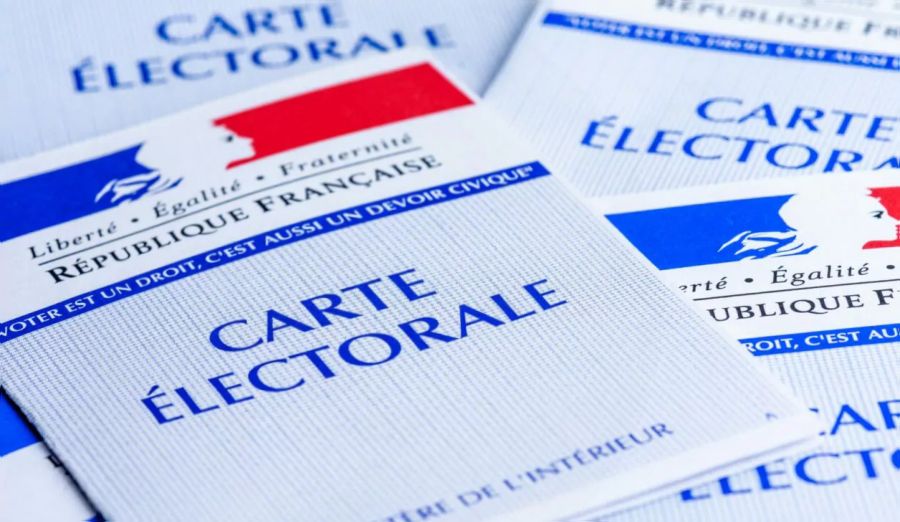 Emmanuel Macron demeure le petit favori du premier tour, dimanche prochain, avec 4 points seulement d’avance sur Marine Le Pen, selon les derniers sondages. En tête avec 26 % des intentions de vote, Macron perd cependant 2,5 points en deux semaines (il pointait alors à 29,5 %), selon un sondage Ifop, et voit Marine Le Pen rattraper de son retard , dans le baromètre quotidien OpinionWay - Kéa Partners. Avec 22 % des intentions de vote contre 18,5 % il y a deux semaines, la candidate du RN a fortement réduit l’écart. Et l’inquiétude,chez les macronistes, sera démultipliée en cas de deuxième tour opposant les deux. Voilà pourquoi nombre de ses soutiens, dans la dernière ligne droite, s’inquiètent et non sans raison. « Il y a de quoi se faire peur, admet un ministre. Dans un contexte où l’idée que la victoire du Président est acquise s’est installée dans l’esprit de tout le monde, et où le deuxième tour se déroule en pleines vacances… Trump, personne ne l’avait vu venir. » . Emmanuel Macron demeure le petit favori du premier tour, dimanche prochain, avec 4 points seulement d’avance sur Marine Le Pen, selon les derniers sondages. En tête avec 26 % des intentions de vote, Macron perd cependant 2,5 points en deux semaines (il pointait alors à 29,5 %), selon un sondage Ifop, et voit Marine Le Pen rattraper de son retard , dans le baromètre quotidien OpinionWay - Kéa Partners. Avec 22 % des intentions de vote contre 18,5 % il y a deux semaines, la candidate du RN a fortement réduit l’écart. Et l’inquiétude,chez les macronistes, sera démultipliée en cas de deuxième tour opposant les deux. Voilà pourquoi nombre de ses soutiens, dans la dernière ligne droite, s’inquiètent et non sans raison. « Il y a de quoi se faire peur, admet un ministre. Dans un contexte où l’idée que la victoire du Président est acquise s’est installée dans l’esprit de tout le monde, et où le deuxième tour se déroule en pleines vacances… Trump, personne ne l’avait vu venir. » .
Le MacKinsygate
Le scandale McKinsey continue de prendre de l’ampleur. Au pavé dans la mare politique s’ajoute désormais une affaire judiciaire. Le Parquet national financier (PNF) indique en effet dans un communiqué avoir ouvert le 31 mars une enquête préliminaire pour blanchiment aggravé de fraude fiscale à l’encontre du cabinet de conseil. La justice s’appuie sur le rapport de la commission d’enquête du Sénat, accusant les entités françaises du cabinet McKinsey d’optimisation fiscale, de telle sorte qu’elles n’auraient versé aucun impôt sur les sociétés entre 2011 et 2020.
Et la seule réaction du président-candidat Emmanuel Macron a alors été de mettre au défi ses accusateurs : « s’il y a des preuves de manipulation, que ça aille au pénal », a-t-il ainsi lancé lors d’une émission dimanche 27 mars 2022, sur France 3. Il a donc choisi la solution offensive, une attitude qui rappelle furieusement le « qu'ils viennent me chercher » dans l'affaire Benalla. Est-ce une réponse digne d'un président ? Tout le monde a vu ce qu'il en était de l'affaire Benalla. Aux tribunaux de trancher donc... Ces derniers jours d'ailleurs, le candidat et ses soutiens, dans chacune de leurs interventions, n’ont eu d’autre choix que de s’attarder sur cette affaire McKinsey. Multiplication des argumentaires, dont les comparaisons avec d’autres pays ou avec les pratiques des collectivités territoriales ; conférence de presse de deux ministres… Voilà une affaire qui réactive l’image d’un Président proche des puissants et des fortunés.
Le pouvoir d'achat
« La campagne a trouvé son thème : le pouvoir d’achat, qui écrase tout et structure tout », diagnostique Frédéric Dabi, directeur général de l’Ifop. 93 % des sondés estiment ainsi que ce thème aura un impact sur le vote des Français au premier tour de la présidentielle, et 74 % sur leur propre choix. Emmanuel Macron ne semble pas pâtir outre mesure de cette situation : c’est à lui que 21 % des Français font le plus confiance pour améliorer la situation, contre 17 % à Marine Le Pen.
A Dijon (Côte-d’Or), lundi, pour le premier déplacement de campagne du chef de l’État, c’est le pouvoir d’achat qui revenait dans les interpellations des habitants. « Avec 575 euros, on ne vit pas ! » « Est-ce que vous trouvez ça normal que je n’arrive plus à vivre de mes revenus ? » pouvait-on entendre. Et le sort des retraités n'a pas été traité convenablement sous ce quinquennat.
La montée des violences
L'ordre public et la sécurité demeurent des leitmotivs dans l'information. Pas un jour sans son horreur :les récents événements de Sevran (Seine-Saint-Denis), où un policier a fait feu et tué un homme il y a une semaine, et où des heurts ont éclaté dans la ville et les communes voisines, les heurs violents entre jeunes mineurs et police dans un quartier de Rouen, Vénissieux...Sans oublier le drame du jeune homme handicapé Jérémie Cohen écrasé par un tram après avoir fui un tabassage en règle par des jeunes voyous. La révélation des circonstances de la mort de Jeremie Cohen, ce jeune homme de 31 ans percuté par un tramway après avoir été frappé par des jeunes à Bobigny (Seine-Saint-Denis), le 16 février, suscite l’indignation des candidats à l’élection présidentielle. C’est le candidat d’extrême droite Eric Zemmour qui a été le premier à
réagir. Dans l’un de ses messages posté sur Twitter, lundi, il
s’interrogeait au sujet de la mort de Jeremie Cohen : « Est-il mort pour
fuir les racailles ? Est-il mort parce que juif ? Pourquoi cette
affaire est-elle étouffée ? » Le soir, le père du jeune homme a expliqué
sur BFM-TV avoir « demandé à Eric Zemmour » de l’aider à relayer
l’information sur la mort de son fils. Les autres candidats à l’Elysée, à l’image de Jean-Luc Mélenchon, Fabien Roussel, Yannick Jadot ou encore Marine Le Pen, ont aussi réclamé que toute la lumière soit faite sur ce drame, évoquant le possible caractère antisémite des violences qui l’ont ciblé. Valérie Pécresse a notamment évoqué lundi un « lynchage ignoble, qui pourrait être de nature antisémite », et plaidé pour une « impunité zéro face aux barbares ». Les troubles en Corse
Même problématique après les troubles en Corse consécutifs à la mort en prison d’Ivan Colonna, l’assassin du préfet Érignac, et mêmes attaques sur le déficit d’autorité de l’État sous ce quinquennat. L’attaque sur Yvan Colonna a en effet marqué le début d’une vague de violences sur l’île de beauté qui s’est embrasée progressivement sous le feu des cocktails Molotov. Dans ce contexte, après l’échec du Premier ministre à restaurer la paix par la décision de rapatriement du militant indépendantiste corse, c’est l’autonomie qui est envisagée cette fois par le ministre de l’Intérieur Gérald Darmanin pour répondre à « la gravité des événements » qui secouent l’île. Emmanuel Macron a dénoncé « une faute » après la mise en berne des drapeaux sur l’île par la collectivité territoriale. Mais les violences perdurent ...
L'image ternie du Président
Il se veut pensé en chef de guerre sur la brèche, mais l'image n'a pas imprimé. Personne par contre n'a oublié ses sorties et ses petites phrases, tout au long du quinquennat . Des « Gaulois réfractaires au changement » aux « gens qui ne sont rien », des « fainéants » au « pognon de dingue » en passant par le chef de l’État qui « traverse la rue » pour trouver du travail. Elles ont contribué à façonner l’image d’un Président arrogant, déconnecté et frappé d’hubris. Même s'il avait fait amende honorable.sur TF1, en décembre : « J’ai blessé des gens, je ne le referai pas. »,il n' a pu s'empêcher de récidiver à propos de l’affaire McKinsey. « Que ça aille au pénal », a-t-il lancé, bravache, réactivant le souvenir du fameux « qu’ils viennent me chercher », prononcé en pleine affaire Benalla. Selon la politologue Chloé Morin, qui s’est interrogée sur l’efficacité de l’administration dans Les inamovibles de la République (l’Aube) en 2020, l’affaire McKinsey représente un « point de fragilité qui peut coûter cher au candidat Macron » .
Les macronistes savent que cette polémique a plus de chances que les autres de s’installer dans le paysage.Viennent s'ajouter les rumeurs sur son patrimoine suite au travail du site Off Investigation sur le patrimoine du candidat qui peuvent entacher durablement sa campagne
« Elle entre en résonance avec le procès fait au macronisme : le monde de l’argent, la confusion public-privé, l’ancien banquier de Rothschild, le soutien des grands patrons », énumère un conseiller.
Une quasi- absence de campagne
Imagine-t-on un président sortant ne s’engager pleinement que lors des deux dernières semaines de la campagne ? Emmanuel Macron n’aurait guère eu le choix : l’épidémie de Covid-19, puis l’invasion russe en Ukraine l’ont contraint à conserver jusqu’au bout son costume présidentiel. Il en ressort plutôt que c'était un moyen de ne pas se lancer dans l'arène du débat pour prendre le moins de risques possible et préserver son avantage concurrentiel.
Sa première sortie de campagne, à Poissy (Yvelines) face à des participants triés sur le volet, avait d'ailleurs « donné l’impression d’une campagne Potemkine », soupirait alors un ministre. Pour le sprint final, Macron et son équipe enchaînent émissions télévisées et radiophoniques, conférences de presse, déplacements éclairs. Et un unique meeting d'auto-congratulation. Et de conclure avec Jean-Michel Apathie qui s'est attardé sur la campagne d'Emmanuel Macron depuis le plateau de Quotidien. Le journaliste politique qualifie la performance du président-candidat de « lunaire ». « Au sens où il a habité sur la lune pendant cinq ans et il a démontré que revenir sur Terre c'était pratiquement impossible. [...] Il n'a pas su revenir nous parler », précise-t-il.
Et encore l'abstention...
L’abstention devrait représenter, une fois encore, le premier parti de France. Selon évaluation elle atteindrait 28 %, soit environ le niveau du premier tour de la présidentielle de 2002, et 13 millions de Français (sur 48 millions d’inscrits). C’est la première fois que la participation à un scrutin présidentiel redescendrait au niveau de ce fameux 21 avril, le plus mauvais cru de l’histoire de la Ve République en matière d’abstention, qui avait vu Lionel Jospin éliminé au profit de Jean-Marie Le Pen.
Sans surprise, les catégories populaires et les non-diplômés devraient davantage s’abstenir que la moyenne (33 %), de même que les moins de 35 ans (35 %). Quant à la proximité politique, on constate une abstention très élevée à gauche (31 %), alors que les partisans de La République en marche (16 %), de Reconquête ! (13 %) et du Rassemblement national (17 %) sont les plus mobilisés. Idem pour ceux qui avaient voté pour Le Pen (17 %) et Macron (20 %) en 2017. En achevant vendredi soir sa campagne de premier tour par une interview sur Brut, média en ligne prisé des jeunes, Emmanuel Macron parie à nouveau sur les réseaux sociaux, qui lui permettent aussi de s'affranchir des règles d'égalité de temps de parole. Avec cette émission, le président candidat échappe à la fois sur l'interdiction d'utiliser son compte personnel Twitter aux 8 millions d'abonnés et sur l'égalité du temps de parole à la télévision et la radio.
Et le programme dans tout ça ?
Si en 2017, il avait été accusé de ne pas avoir de programme, cette fois, son projet a été jugé peu créatif, mais aussi quelque peu répulsif. Ainsi ses propositions de repousser à 65 ans l’âge légal de la retraite ou le conditionnement du versement du RSA à une activité. Et quid des problèmes de sécurité et d'immigration incontrôlée qui polluent la vie des Français ?
Le président-candidat a tout de même ressenti le besoin de donner un petit coup de barre à gauche et de parler de mesures sociétales, dans son discours à la Défense mais aujourd’hui, jeudi 7avril 2022, d'indexer les retraites sur l'inflation... N'a-t-il pas affirmé qu’il ne souhaitait « pas faire cinq ans de plus pour faire cinq ans de plus (…). Le monde a changé, il n’est pas le même qu’il y a cinq ans. Les engagements que j’ai pris il y a cinq ans, j’ai essayé de les tenir et je les ai tenus »?
Et pourtant les deux tiers des Français, eux, souhaitent changer de Président...
|
|
|
|
| Joanne Courbet pour DayNewsWorld |
 |
There are no translations available.
L'AFFAIRE MCKINSEY OU LE CAUCHEMAR D'EMMANUEL MACRON
|
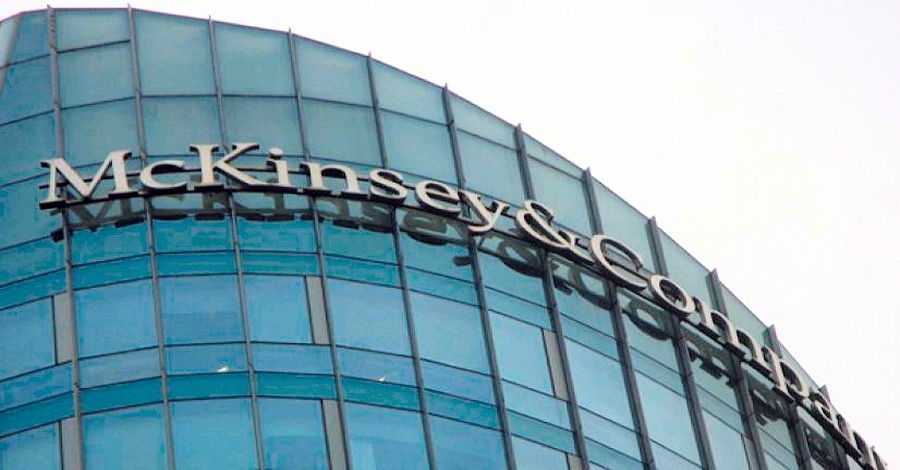 Ce qu'il est désormais commun d'appeler « affaire McKinsey » émeut une partie de l'opinion, consternée par la supposée proximité entre Emmanuel Macron et un cabinet de conseil, soucieuse d'une saine gestion des deniers publics et inquiète de voir une partie des prérogatives stratégiques de l'État potentiellement sous-traitée à une entreprise privée américaine. Ce qu'il est désormais commun d'appeler « affaire McKinsey » émeut une partie de l'opinion, consternée par la supposée proximité entre Emmanuel Macron et un cabinet de conseil, soucieuse d'une saine gestion des deniers publics et inquiète de voir une partie des prérogatives stratégiques de l'État potentiellement sous-traitée à une entreprise privée américaine.
En effet mi-mars, un rapport sénatorial a dénoncé la « dépendance » du gouvernement français et des pouvoirs publics aux cabinets de conseil, ainsi que l'optimisation fiscale pratiquée par l'entreprise américaine, sous les yeux de l'administration fiscale. Jeudi 17 mars, un rapport sénatorial alertait sur le poids des cabinets de conseil dans la mandature actuelle.
Les élus du Palais Bourbon estiment à plus d'un milliard d’euros l’enveloppe allouée par le gouvernement à ces conseils en tous genres (pas uniquement McKinsey.) Ce chiffre a plus que doublé en cinq ans. A tel point que les journalistes de l’Obs Matthieu Aron et Caroline Michel-Aguirre évoquent un « putsch progressif, presque rampant, sans effusion de sang » mais qui « a changé la France » dans un livre-enquête publié en février dernier. Comment
un cabinet de conseil a-t-il pu prendre une telle place au cœur de la
gouvernance d'un pays ? C'est la question que pose le « McKinseygate »
Pour ces raisons le sujet du « McKinsey Gate » s’est immiscé dans la campagne présidentielle. Le Président français risque de traîner ce dossier comme un boulet jusqu'à l'élection présidentielle.
La stratégie de défense offensive d'Emmanuel Macron
À deux semaines du premier tour, le président-candidat Emmanuel Macron a ainsi mis au défi les accusateurs : « s’il y a des preuves de manipulation, que ça aille au pénal », a-t-il ainsi lancé lors d’une émission dimanche 27 mars 2022, sur France 3. Face à la virulence des réactions, le Président, tentant de se justifier pour éteindre la polémique, a donc choisi la solution offensive, en invitant ses accusateurs à régler le problème devant les tribunaux , une attitude qui rappelle furieusement le « qu'ils viennent me chercher » dans l'affaire Benalla. Autre point commun d'ailleurs avec l'affaire Benalla, le Sénat a saisi la justice pour « suspicion de faux témoignage » dans le cadre de cette commission d'enquête à propos de Karim Tadjeddine, responsable du pôle secteur public de McKinsey. ..
Quid du cabinet international de conseil McKinsey ?
McKinsey est un cabinet international de conseil qui emploie près de 30 000 personnes dans 65 pays. Surnommée « La Firme », cette entreprise américaine a vocation à fournir du conseil et des recommandations à des acteurs privés et publics sur des thématiques très variées, au même titré que des entreprises comme KPMG ou encore Capgemi ; Ce cabinet a été mis en lumière par un rapport de la commission d’enquête du Sénat publié le 17 mars à propos de l’influence des cabinets de conseil privés sur les politiques publiques.
Les thématiques sur lesquelles le gouvernement a fait appel à McKinsey sont extrêmement variées. Cela va de la réforme du mode de calcul des APL (3,88 millions d'euros) jusqu'à la gestion de la campagne vaccinale contre le Covid (12,33 millions d'euros) en passant par l'organisation d'un colloque international commandé par l'Education nationale (496 800 euros) qui a finalement été annulé à cause du Covid. Un rapport en vue de préparer la réforme des retraites avait également été réalisé, pour 950 000 euros, alors que cette dernière a été reportée.
Une dépendance de l'Etat envers ces cabinets privés
Si le recours à ces cabinets est une réalité internationale systémique, depuis plus d'une décennie, le premier souci qui ressort de ce rapport sénatorial, rendu public le 17 mars et consultable par tous, concerne la place qu'ont pris les cabinets de conseil dans la fabrique des politiques publiques. Ils y décrivent des pans entiers de la puissance publique tombés sous l’influence de consultants, pour beaucoup issus de sociétés anglo-saxonnes. Ainsi, les sénateurs expliquent que « le recours aux consultants constitue aujourd'hui un réflexe », ces cabinets étant pour les sages « au cœur des politiques publiques ». À tel point que les parlementaires évoquent une situation de « dépendance » de l'Etat envers ces cabinets.
Explosion des dépenses...
Dans leur rapport, les sénateurs mettent également en avant l'explosion des dépenses liées au conseil dans les différents ministères. En 2021, ce sont plus d’un milliard d’euros qui ont été versés dont 893,9 millions par les ministères à plusieurs cabinets de conseil, pas seulement McKinsey. Ce chiffre a plus que doublé en quatre ans. En 2018, les dépenses des ministères pour des cabinets de conseil n’atteignaient « que » 379,1 millions d’euros.En 2021, le gouvernement Castex a ainsi dépensé la somme de 893,9 millions d'euros contre 379,1 millions en 2018, plus du double.
Doublée d'optimisation fiscale
Autre élément pointé par le rapport concerne la fiscalité, les parlementaires allant même jusqu'à parler d'un « exemple caricatural d'optimisation fiscale » . D'autant que la maison mère se trouve au Delawere, « considéré par l'OCDE et l'article 238-A de notre Code des impôts comme disposant d'un "régime fiscal privilégié" propre à focaliser l'attention française. « Le constat est clair : le cabinet McKinsey est bien assujetti à l'impôt sur les sociétés en France mais ses versements s'établissent à zéro euro depuis au moins dix ans, alors que son chiffre d'affaires sur le territoire national atteint 329 millions d'euros en 2020, dont environ 5% dans le secteur public, et qu'il y emploie environ 600 salariés ».
Pour des résultats d 'une « valeur ajoutée quasi-nulle, contre-productive parfois »
Une journée de consultant coûte en moyenne 1 528 euros à l'État, a calculé la commission d'enquête. Le rapport du Sénat met le doigt sur des missions payées très cher pour des résultats discutables
496 800 euros à McKinsey pour un colloque sur le métier d'enseignant (colloque finalement annulé)
558 900 euros au BCG et à EY pour une convention des managers de l’État, qui devait réunir 1 821 hauts fonctionnaires en décembre 2018 (annulée à cause des gilets jaunes puis de la crise sanitaire).
280 200 euros à Cap Gemini pour une mission visant à « structurer un réseau de professionnels soutenant les parcours de vie des personnes en situation de handicap ». Travaux jugés par la DITP d’une « compréhension limitée du sujet », d’une « absence de rigueur sur le fond comme sur la forme » et d’une « valeur ajoutée quasi-nulle, contre-productive parfois », mais travaux payés.
373 740 euros à Inop's en 2019 pour une prestation d’accompagnement à la transformation de la direction générale des entreprises (DGE). Prestation marquée selon la DITP par un « Manque de rigueur, une absence de pilotage par le manager », favorisant la restitution de « nombreux livrables d’une qualité irrecevable ». Prestation payée.
« Si l’expertise des consultants n’est pas remise en cause, leurs livrables ne donnent pas toujours satisfaction », lit-on dans le rapport. « Les productions des consultants ne donnent que rarement des résultats à la hauteur des prestations attendues. »
Des conclusions sans appel : selon le Sénat, les méthodes « disruptives », proches de celles des start-up, utilisées par les cabinets de conseils ne sont pas toujours adaptées à la fonction publique. Le rapport pointe aussi des travaux « inégaux » qui n’apportent pas toujours satisfaction et estime que les résultats pourraient être meilleurs et moins chers en s’appuyant sur des ressources internes. La commission d'enquête conclut à ce propos : « On peut alors légitimement s’interroger sur l’intérêt que trouve l’État, au-delà des arguments convenus, à recourir à des consultants parfois peu expérimentés, mal encadrés, qui n’ont qu’une connaissance restreinte du secteur public et dont les livrables lui imposent parfois un important travail de correction ».
Et quid du rôle de la haute -fonction publique ? « Avec le recours aux cabinets de conseil, on a d’abord un sujet de confiance et d’organisation de l’administration. La gouvernance d’Emmanuel Macron repose sur un paradoxe originel. Il s’agit d’un triomphe de la technocratie qui semble s’émanciper de la tutelle des politiques et des partis, du contrôle militant et du personnel politique. Emmanuel Macron, Alexis Kohler et nombre de ministres incarnent cela. », résume un analyste dans Atlantico « Le triomphe du monde d’après est surtout marqué par la victoire de jeunes technocrates brillants sur leurs aînés ayant suivi le cursus honorum politique classique. », poursuit-il.
Quel intérêt alors de recourir à ces cabinets de conseil ?
La « maîtrise de l’incertitude » ou soif de « réassurance »
Les dépenses de conseil dépendent fortement d’une autre dimension culturelle appelée « maîtrise de l’incertitude » (c’est-à-dire la mesure dans laquelle on cherche à réduire l’incertitude dans un pays). Les dépenses de conseil sont ainsi beaucoup plus élevées dans les pays où la volonté de maîtriser l’incertitude est forte, comme l’Allemagne ou l’Autriche, que dans les pays où elle est faible, comme l’Italie ou le Portugal. La France se situe entre ces extrêmes. En bref, les dirigeants font plus appel aux consultants pour se rassurer que pour résoudre des problèmes qui pourraient souvent être réglés sans aucune aide extérieure. Comme l’a bien résumé un consultant dans la revue McKinsey Quarterly :« Pour la plupart des dirigeants, une seule chose est pire que faire une erreur : être le seul à la commettre. » « Cette soif de « réassurance » semblerait également expliquer la popularité des consultants auprès de l’État français...
Opacité du système et des conflits d’intérêt : la campagne de 2017
L'opacité du système s’appuie par ailleurs sur la présence historique de consultants dans les différents écosystèmes de la macronie. Selon le magazine M, une dizaine de salariés de McKinsey ont participé à l’élaboration du programme d’Emmanuel Macron en 2017, et les allers-retours sont nombreux entre la « firme » McKinsey et la macronie. Face au tollé suscité par la publication de ce rapport sénatorial, McKinsey a tenu à rappeler qu'elle respectait « l'ensemble des règles fiscales et sociales françaises applicables ». Mais malgré tout, le Sénat continue de douter sur la véracité de ces déclarations et a annoncé vendredi 25 mars avoir saisi la justice pour « suspicion de faux témoignage ». Karim Tadjeddine est un proche d'Emmanuel Macron, artisan de sa campagne en 2017. Lors de son audition au Sénat, il reconnaît avoir mélangé les genres en utilisant son adresse McKinsey pendant la campagne de 2017 pour ses conseils de campagne. Il admet que c'était une « erreur »...
Pour qui travaille au fond McKinsey sur les deniers de l'État ?
Le rapport du Sénat ne tire aucune conclusion à ce propos, mais c'est une question qui se pose en filigrane à la lecture de ce rapport. Ce n'est qu'un des aspects de ce phénomène « tentaculaire » décrit par le Sénat
Un point de fragilité qui peut coûter cher au candidat Macron, selon Cloé Morin Pour la politologue Chloé Morin, qui s’est interrogée sur l’efficacité de l’administration dans Les inamovibles de la République (l’Aube) en 2020, l’affaire McKinsey représente un « point de fragilité qui peut coûter cher au candidat Macron ». Les macronistes savent que cette polémique a plus de chances que les autres de s’installer dans le paysage. « Elle entre en résonance avec le procès fait au macronisme : le monde de l’argent, la confusion public-privé, l’ancien banquier de Rothschild, le soutien des grands patrons », énumère un conseiller. Le candidat de Reconquête ! n’a d'ailleurs pas hésité mardi, sur Europe 1, à parler non seulement de la « soumission aux Etats-Unis » d’Emmanuel Macron mais également de conflit d'intérêt . « Je pense qu’on pourrait aujourd’hui, justement, accuser M. Macron d’avoir renvoyé l’ascenseur et d’avoir donné de l’argent public au groupe McKinsey, parce que les gens de McKinsey ont travaillé pour sa campagne électorale » de 2017, a-t-il accusé. Une controverse qui arrive donc pour les macronistes au mauvais moment, en période d’égalité de temps de
parole et
au terme de plusieurs mois d’une politique étatiste et protectrice qui
avait gommé l’image du « président des riches » et de seulement une dizaine de jours du premier tour..
La majorité craint que l’affaire ne pousse encore un peu plus haut la candidature de Marine Le Pen, dans un contexte de flambée des prix de l’énergie...
« Avec Emmanuel Macron, McKinsey, qui vous a coûté l’an dernier 1 milliard d’euros pour des missions bien floues, continuera à se gaver d’argent public, à ne pas payer d’impôts et à se permettre de mentir devant le Sénat ! », a-t-elle assuré brutalement à ses militants. |
|
| Garett Skyport pour DayNewsWorld |
 |
There are no translations available.
PRESIDENTIELLE APRES LES MEETING-DUELS
MARINE LE PEN ET ERIC ZEMMOUR
AU COUDE-A-COUDE DANS LES SONDAGES
|
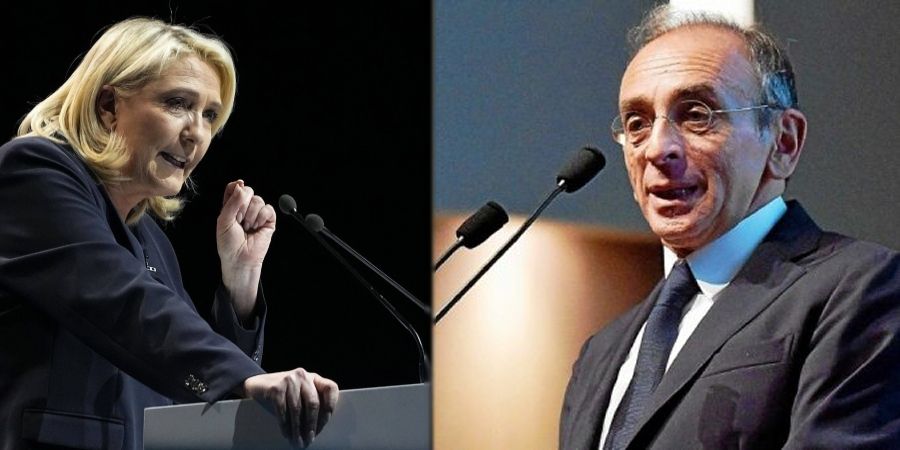 Alors que le duel se resserre entre Valérie Pécresse, Marine Le Pen et Eric Zemmour pour décrocher une place pour la deuxième place de la présidentielle, un nouveau sondage Ipsos Sopra-Steria pour franceinfo et Le Parisien Aujourd'hui-en-France montre une remontée des intentions de vote pour Éric Zemmour (+2 points) à 14% par rapport à la précédente étude, le 7 janvier 2022. Alors que le duel se resserre entre Valérie Pécresse, Marine Le Pen et Eric Zemmour pour décrocher une place pour la deuxième place de la présidentielle, un nouveau sondage Ipsos Sopra-Steria pour franceinfo et Le Parisien Aujourd'hui-en-France montre une remontée des intentions de vote pour Éric Zemmour (+2 points) à 14% par rapport à la précédente étude, le 7 janvier 2022.
Les ralliements successifs à Éric Zemmour de personnalités venues du RN et de LR ont-ils un lien avec ce léger rebond du candidat de Reconquête! ?
Ainsi, à 64 jours du premier tour de l'élection présidentielle, les deux candidats d'extrême droite sont désormais à égalité puisque Marine Le Pen, candidate du Rassemblement national, descend à 14% (−3 points).environ 2 mois du premier tour de l'élection présidentielle, l'écart se resserre entre Marine Le Pen et Éric Zemmour.
Jusque-là, Marine Le Pen conservait une légère avance sur son rival, le candidat de Reconquête. Mais en gagnant 2 points d'intention de vote, Éric Zemmour se hisse aux côtés de la candidate du Rassemblement National pour obtenir un score équivalent : 14%. De fait, il semblerait que l'essayiste puisse bénéficier du vote de près d'un tiers de l'électorat Le Pen en 2017 (32%)
La proximité des deux candidats dans le sondage fait d'ailleurs écho à la temporalité commune de leur agenda : samedi, Marine Le Pen effectuait un grand meeting à Reims quand Éric Zemmour tenait un meeting à Lille. 4000 militants dans le premier, 8000 pour le second venu chasser sur des terres historiquement attachées au parti de Marine Le Pen.
Lutte fratricide à droite de la droite pour la présidentielle française ?
Éric Zemmour loue la « France qui travaille »
Éric Zemmour a consacré son meeting à louer la « France qui travaille » et à parler pouvoir d'achat. C'est sur ce thème cher à la droite et à la gauche, que le candidat de Reconquête! a décidé d'insister.
Sur les terres défavorisées du nord de la France, la promesse d'Éric Zemmour était claire : parler salaire et imposition. « Tous les candidats répètent en boucle qu'ils sont "le" candidat du pouvoir d'achat. Oui, je les écoute depuis des semaines, et en réalité, de la droite jusqu'à la gauche, ils disent tous la même chose : ils ne disent rien. »
Éric Zemmour déroule ses propositions, attaque Valérie Pécresse, et Emmanuel Macron, sur le pouvoir d'achat donc. Mais rapidement, son obsession migratoire revient au galop : « Savez-vous qu'en plus d'un hébergement gratuit, nous donnons à chaque demandeur d'asile pendant près d'un an une carte bancaire créditée de 430 euros par mois afin que celui-ci puisse dépenser tranquillement l'argent de vos impôts ? »
Galvanisé devant plus de 6 000 personnes, Éric Zemmour flatte son auditoire, sans jamais citer Marine le Pen.
« RSA, allocations familiales, aide au logement. Il n'est plus admissible que votre fiche de paie vienne financer l'assistanat des étrangers.»
« Dans le Nord, longtemps le « cœur industriel » du pays avec ses « générations d'ouvriers », « encore plus qu'ailleurs, l'assistanat est une insulte », a martelé le candidat Reconquête! devant ses partisans Il a consacré une bonne partie de son meeting de Lille à fustiger « l'assistanat » des « aides sociales », en promettant aux salariés de « la France qui travaille » une « prime zéro charge » au bon vouloir des employeurs.
Mélanger pouvoir d'achat et immigration, un cocktail savamment dosé par Éric Zemmour pour tenter de séduire de nouveaux électeurs, sur ces terres d'habitude acquises à Marine le Pen.
Dans un duel à distance, Marine Le Pen a tenu à marquer ses différences, à Reims, avec Eric Zemmour, indiquant avoir un « projet travaillé, réfléchi, complet ».
Macron comme adversaire de Le Pen
Son adversaire est clairement Emmanuel Macron, vu le nombre de fois que la candidate du Rassemblement national a prononcé le nom du président de la République. Il est responsable selon elle de la « régression »"d'une France « polytraumatisée », « abandonnée » et « ensauvagée ».
Devant 4000 militants, drapeaux bleu-blanc-rouge à la main et chantant à plusieurs reprises "On va gagner!", la candidate du RN a appelé à « briser le cycle du défaitisme » face à « un appauvrissement des Français » qui « n'est pas une fatalité » à ses yeux.
Marine Le Pen parle d'elle
Changement de ton au bout d'une heure de discours. Marine Le Pen quitte son pupitre, s'avance vers la foule, pour parler d'elle, de l'attentat contre son père quand elle avait 8 ans et de sa famille.
« Vous savez, j'ai connu la violence politique quand j'étais petite fille. À l'école. On m'a fait payer l'engagement de mon père. Et puis je suis devenue maman, vite, d'une famille nombreuse. Vite. Trois enfants en moins d'un an. Je sais la difficulté psychologique que ça représente d'être en même temps le papa et la maman. »
Marine Le Pen joue la carte personnelle comme jamais. Une tentative inédite pour distancer ses adversaires. Elle a tenu à conclure son discours sur une note plus personnelle, exercice rare pour elle, évoquant son parcours et confessant « avoir parfois échoué », « être tombée » et « s'être toujours relevée ».
« Je vais vous dire quelque chose mes amis, l'argent magique n'existe pas. L'argent public, l'argent théorique, l'argent gratuit, leurs belles promesses, tout cela n'existe pas. Ils sont en train de vous acheter avec votre propre argent. », a martelé Eric Zemmour.
« Notre adversaire à nous, c'est Emmanuel Macron, ça n'est pas Éric Zemmour, qui, je l'espère appellera à voter pour Marine Le Pen au second tour s'il est un patriote sincère, ce que je crois. », conclut Jordan Bardella. |
|
|
|
| Alyson Braxton pour DayNewsWorld |
 |
There are no translations available.
PAGAILLE DANS UNE GAUCHE FRANCAISE
SANS BOUSSOLE
POUR LA PRESIDENTIELLE 2022
|
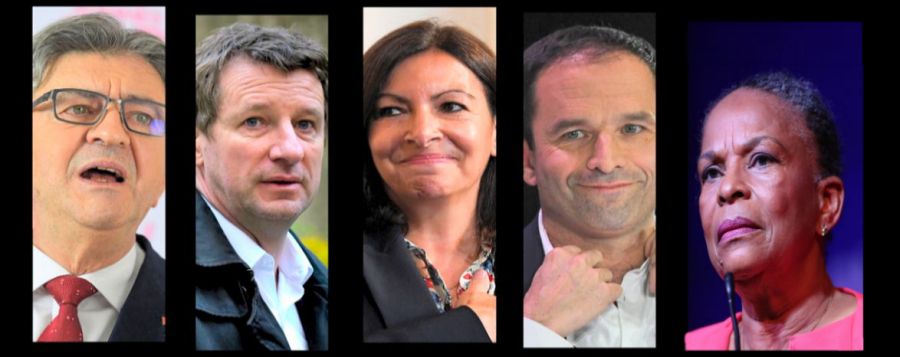 Christiane Taubira a remporté hier la Primaire populaire, organisée pour désigner un candidat unique à gauche. Christiane Taubira a remporté hier la Primaire populaire, organisée pour désigner un candidat unique à gauche.
Elle devance Yannick Jadot et Jean-Luc Mélenchon, qui avaient demandé à ne pas y être mêlés. Le résultat de cette investiture au jugement majoritaire avait l’allure d’un sévère rendu de copies pour une gauche mauvaise élève. Christiane Taubira, mention bien plus, Yannick Jadot, assez bien plus, Jean-Luc Mélenchon, assez bien moins, Pierre Larrouturou, passable plus, Anne Hidalgo passable plus, Anne Hidalgo prend une claque de plus en terminant en cinquième position derrière Pierre Larrouturou, bien qu'elle ne participait pas officiellement au scrutin- Charlotte Marchandise, passable moins, Anna Agueb-Porterie, insuffisant.
Mais si ce scrutin, rejeté par les principaux candidats à gauche, a donné l’investiture à l’ancienne ministre de la justice pour l’élection présidentielle 2022, il ne parvient pas à rassembler son camp comme il avait l’ambition de le faire.
Le résultat de la Primaire populaire « change la donne » à gauche, se targue pourtant Christiane Taubira, après l'avoir remportée dimanche 30 janvier. « À gauche, c'est le plus large socle de légitimité en termes de désignation », a souligné la candidate à la présidentielle, en référence aux 392 738 personnes qui ont pris part au vote là où, par exemple, 104 772 personnes se sont prononcées au second tour de la primaire écologiste.
La Primaire populaire, cette initiative citoyenne qui voulait unir la gauche et l’écologie, n' a pourtant seulement débouché que sur une candidature de plus, celle de Christiane Taubira.
« Je suis une candidate de plus pour celles et ceux qui considèrent qu'un processus démocratique ça ne vaut strictement rien du tout, qu'un demi-million de personnes qui votent ça ne vaut rien du tout », s'est défendue Christiane Taubira après les propos, entre autres, d'Anne Hidalgo ou de son concurrent écologiste Yannick Jadot, qui a estimé après l'annonce du résultat que sa candidature en était « une de plus, exactement l'inverse de ce que souhaitait la Primaire populaire ».
L'ancienne ministre de la Justice avait elle-même avait assuré qu'elle ne « serait pas une candidate de plus » dans une vidéo mise en ligne le 17 décembre dernier, où elle annonçait « envisager d'être candidate ». Le perdant Jean-Luc Mélenchon, candidat de La France insoumise à l'Elysée, a jugé qu'en remportant le scrutin, « elle a enfilé la chaussure qui a été préparée pour elle »...
« Soit le peuple de gauche a définitivement abandonné toute velléité démocratique, soit l'aveuglement est devenu tel que les électeurs de gauche sont des zombies qui se mettent en mouvement en entendant le nom 'Taubira' », a taclé fort pertinemment Abnousse Shalmani dans sa chronique de l'Express. Préoccupant, non ?
|
|
|
|
| Andrew Preston pour DayNewsWorld |
 |
There are no translations available.
PRESIDENTIELLE 2022
MACRON EN FORTE BAISSE AU PREMIER TOUR
|
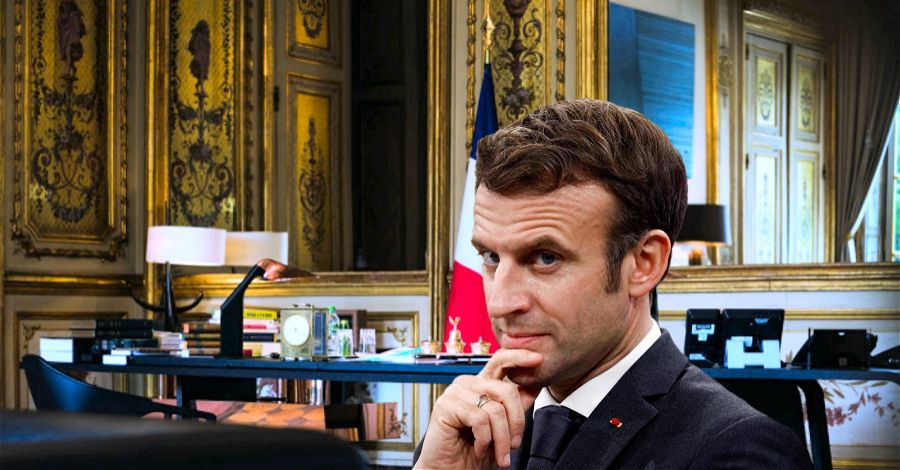 Emmanuel Macron perd environ trois points dans les intentions de vote au premier tour de l'élection présidentielle, selon une enquête menée par Elabe pour BFMTV, L'Express et SFR. Emmanuel Macron commence-t-il par pâtir de ses dernières déclarations ? Emmanuel Macron perd environ trois points dans les intentions de vote au premier tour de l'élection présidentielle, selon une enquête menée par Elabe pour BFMTV, L'Express et SFR. Emmanuel Macron commence-t-il par pâtir de ses dernières déclarations ?
Après sa sortie de la semaine dernière - où il avait dit vouloir «emmerder les non-vaccinés (...) jusqu'au bout», la popularité du chef de l'État semblait stable dans plusieurs sondages. Mais une enquête d'opinion Elabe publiée ce mercredi par BFMTV, L'Express et SFR le met cette fois-ci en difficulté
Il perd environ trois points et se retrouve, en fonction de la candidature ou non de Christiane Taubira, à 22,5% ou 23% des intentions de vote.
C'est d'ailleurs dans ce dernier cas de figure que l'écart entre le chef de l'État et ses principales rivales se resserre le plus. Dans l'hypothèse d'un premier tour le 10 avril prochain sans l'ancienne Garde des Sceaux, Marine Le Pen et Valérie Pécresse seraient en effet à égalité avec 17% des intentions de vote. Quatrième, Éric Zemmour stagne quant à lui à 13%.
En cas de candidature, Christiane Taubira recueillerait 4% des voix et ferait particulièrement perdre des suffrages à Anne Hidalgo (2,5%), Yannick Jadot (6%), et dans une moindre mesure à Valérie Pécresse (16%).
Au second tour, le pas encore candidat Macron ne parvient pas à creuser un écart significatif, ce dernier se réduisant même.
Dans l'hypothèse où il devrait affronter Valérie Pécresse, les deux prétendants restent au coude-à-coude et sont donnés à 50-50. n cas de duel avec Marine Le Pen, s'il est toujours donné gagnant, Emmanuel Macron perd encore un peu de terrain. Il l'emporterait avec 54,5% des voix si le second tour avait lieu aujourd'hui, contre 45,5% pour sa rivale.
*Échantillon
de 1465 personnes représentatif de la population française et
sélectionné selon la méthode des quotas appliquée aux variables
suivantes: sexe, âge et profession de l'interviewé après stratification
par région et catégorie d'agglomération. L'interrogation a été réalisée
par internet les 10 et 11 janvier 2022. Jamais l'écart, n'avait été aussi faible. Pour rappel, en 2017, Emmanuel Macron l'avait emporté avec 66,1% des voix. |
|
|
|
| Britney Delsey pour DayNewsWorld |
 |
There are no translations available.
VALERIE PECRESSE S'EMPARE DE LA LIGNE WAUQUIEZ-CIOTTI A DROITE TOUTE
POUR LA PRESIDENTIELLE
|
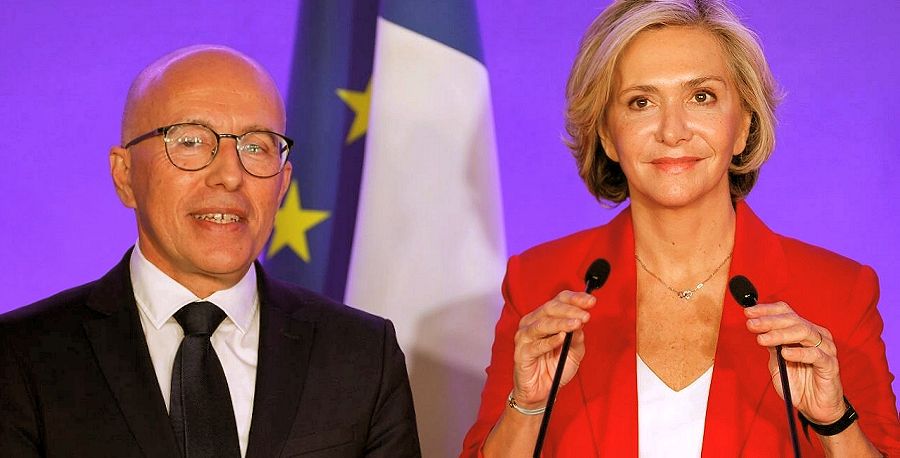 Une semaine après avoir remporté la primaire du parti Les Républicains, Valérie Pécresse a tenu samedi 11 décembre 2021 son premier meeting de candidate à l’élection présidentielle. Une semaine après avoir remporté la primaire du parti Les Républicains, Valérie Pécresse a tenu samedi 11 décembre 2021 son premier meeting de candidate à l’élection présidentielle.
Au programme l’appel au rassemblement. « J’ai une bonne nouvelle : la droite est de retour », a-t-elle annoncé. Prenant soin de remercier ses précédents adversaires au sein de LR, « les quatre mousquetaires de la primaire » , qui ont fait le choix, en se ralliant à elle cette semaine « du panache, de la loyauté et de l’amitié » : leurs directeurs de campagne ont ainsi tous rejoint sa campagne. Valérie Pécresse tient compte en effet des deux courants qui traversent son parti. Et elle ne modère pas ses propos dès lors qu’il sera question d’identité, d’immigration, de sécurité et d’insécurité, de « grandeur » ou de « décadence », ce week-end, lors d’une réunion à Paris des dirigeants et des cadres du parti. « Notre principal défi est de refaire nation. », assure-t-elle. « Nous avons une histoire à défendre, un héritage, un mode de vie. » ou encore « Il faut stopper l’immigration incontrôlée. », de petites saillies qui parsèment son discours. Pour séduire les partisans plus orientés à droite d’Éric Ciotti, finaliste malheureux de la primaire LR et proche de Laurent Wauquiez, Valérie Pécresse a promis de soutenir les forces de l’ordre, donner plus de moyens à la justice, en opposition, notamment à ce qu’elle appelle « l’immigration incontrôlée, l’intégration ratée, la mixité oubliée ». « En France les femmes sont libres et lois de la République sont respectées. » Elle avait déjà assuré lors du premier débat de la primaire que « l’immigration a un lien avec la montée de la violence et de la délinquance ». Ses propositions pour encadrer l’immigration sont construites sur base d’une loi constitutionnelle visant à mettre en place des quotas annuels d’immigration par métier et par pays et « votés chaque année au parlement ».
C'est que Laurent Wauquiez, ancien responsable des Républicains, en clamant haut et fort son indéfectible soutien à Valérie Pécresse, n’en a pas moins rappelé les principes auxquels il ne serait pas bon pour la candidate de déroger. Avec des soutiens, tel le président de la région Auvergne-Rhône-Alpes, Madame Pécresse est renvoyée direct dans les cordes de la droite radicale. Un positionnement de toute façon nécessaire pour récupérer des voix lui permettant de se qualifier pour le second tour de l’élection présidentielle.
Mais elle ne doute pas non plus qu'un tel positionnement ne doit être exclusif. Alors à elle de cogner, par allusions historiques, sur Éric Zemmouren se référant certes à de Gaulle- bien sûr-, mais encore au Chant des partisans, cette ode à la résistance-, mais surtout avec cette formule « Je ne choisis pas Pétain, mais les marins de l’Ile de Sein », les premiers Français à avoir répondu à l’appel du 18 juin et à avoir rejoint de Gaulle à Londres. Pour réussir, elle table également sur un programme économique « Fillon compatible » au libéralisme assumé.
Mais Valérie Pécresse sait encore que ce sera insuffisant. Et à elle aussi de contourner un autre obstacle, celui des électeurs de droite macron-compatibles.
Après s’en être pris par allusions à Marine Le Pen et à Eric Zemmour, Valérie Pécresse s'en est pris au président, l’homme du « déclin » et de « l’immobilisme », où le tout en même temps se paye par le quoiqu’il en coûte ...
|
|
|
|
| Simon Freeman pour DayNewsWorld |
 |
THE ELECTION OF DAVID LISNARD AT THE AMF SOUNDS LIKE A CAMOUFLET FOR EMMANUEL MACRON
|
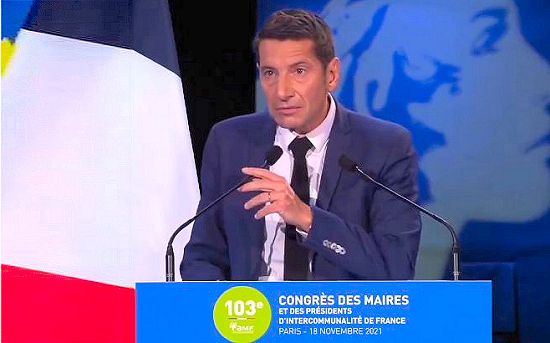 New “electoral” snub for Emmanuel Macron five months before the presidential election. Members of the Association of Mayors of France (AMF) have in fact led the 52-year-old Republican, David Lisnard, a staunch opponent to the head of state. New “electoral” snub for Emmanuel Macron five months before the presidential election. Members of the Association of Mayors of France (AMF) have in fact led the 52-year-old Republican, David Lisnard, a staunch opponent to the head of state.
Faced with the winner, the UDI mayor of Sceaux led a list of elected macron-compatible with the added bonus of Edouard Philippe's desire to take advantage of this election to count his supporters and weigh on the future.
A very politicized election against the habits of the AMF since until then, the different political currents agreed in the name of the best interests of municipalities to influence national decisions.
This election therefore sounds like a referendum for or against the person of Emmanuel Macron. "By wanting to put the AMF back on the right track of his five-year term, Emmanuel Macron has transformed the ecumenical assembly into a counter-power", according to Maurice Bontinck in Charente libre.
In addition, this election only confirms the incomprehension between the Elysee and local communities. The municipal elections of 2020 did not make it possible to tip any large city into the hands of La République en Marche.
And the last regional ones were catastrophic for the majority, with the humiliating scores of certain ministers who left for the campaign ... LREM did not therefore succeed in establishing itself in the territories, testimony of the very vertical and solitary conception of power by the government. President of the Republic.
“The election of David Lisnard marks the Waterloo of macronism. All that will remain of the so-called new world will be contempt for the territories and the French, ”replied the deputy for the Alpes-Maritimes Éric Ciotti on Twitter.
|
|
|
|
| Alyson Braxton for DayNewsWorld |
 |
MAY 1ST VIOLENCE
ALEXANDRE BENALLA CONDEMNED
AT THREE YEARS IN PRISON WITH A FARM |
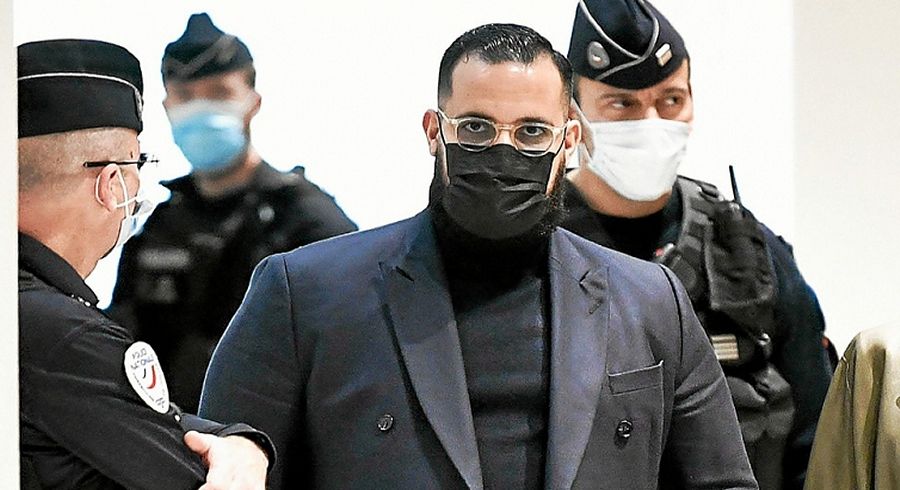
With nearly three weeks of trial last September, the Paris Criminal Court rendered its judgment on Alexandre Benalla, tried for the violence of May 1, 2018 but also for the fraudulent use of his diplomatic passports.
The former Elysee mission manager was sentenced to three years in prison, including a farm with an electronic bracelet and a five-year ban on practicing in the public service, in particular for "willful violence in meetings", "port of 'prohibited weapon' and 'use of diplomatic passports' in the case of the violence of May 1, 2018.
The prosecution had required 18 months suspended imprisonment against Alexandre Benalla, now 30 years old.
Throughout the trial, he defended his innocence on almost all of the facts.
"The court judges that only a mixed sentence is likely to mark the gravity of the facts", explained the president of the court, Isabelle Prévost-Desprez, who underlines the "feeling of impunity and omnipotence" of the defendant.
"You have been invested with a certain power, real with regard to your functions, supposed because of your proximity to the President of the Republic", declared the president of the court Isabelle Prévost-Desprez while pronouncing the judgment.
"You have betrayed the trust placed in you by this appointment," she continued.
The court chose this sentence "in view of the seriousness of the multiple facts, the missions you carried out, which required rigor and exemplarity from you, your unbearable behavior in the social body".
Three other proceedings in progress
In addition to this trial, three other legal proceedings concerning him are still ongoing. One concerns suspicions of “corruption” in a contract between Vincent Crase's company, Mars, and a sulphurous Russian oligarch. A second concerns the mysterious safe he had at his home.
Finally, the third concerns suspicion of "false testimony" before the Senate commission of inquiry.
Lighter sentences for other defendants
During the trial in September, the prosecution requested suspended sentences of two to twelve months against his co-convicts, the ex-employee of En Marche! Vincent Crase and two police officers.
Vincent Crase, a 48-year-old reservist gendarme, was sentenced to two years in prison.
The two police officers from the Paris police headquarters, Maxence Creusat and Laurent Simonin, tried for having transmitted CCTV images to Alexandre Benalla, were respectively sentenced to a 500-euro fine and a three-month suspended prison sentence, without registration for the two in the criminal record.
Prolix at the helm, Alexandre Benalla had assured to have been "lawful, loyal, honest" and contested any "voluntary violence"...
|
|
|
|
| Alize Marion for DayNewsWorld |
 |
FOR A WORK OF MEMORY BUT NOT
A SINGLE SENSE ON THE WAR IN ALGERIA |
Emmanuel Macron added an additional stone to his memorial recognition project started since the start of his mandate to try to close the scars of the Algerian war.
Saturday, on the occasion of an official ceremony for the 60th anniversary of the massacre of Algerians on October 17, 1961 in Paris, Emmanuel Macron denounced "inexcusable crimes for the Republic". “France looks at its entire history with lucidity and recognizes the clearly established responsibilities. It owes it first and foremost to itself, to all those whom the Algerian war and its procession of crimes committed on all sides have bruised in their flesh and in their soul ”, explains a press release. of the Élysée. While in 2012, François Hollande admitted "a bloody repression", the Head of State therefore went even further by participating in the national tribute paid on the banks of the Seine, at the level of the Bezons bridge,borrowed 60 years ago by Algerian demonstrators who arrived from the neighboring slum of Nanterre at the appeal of the branch of the FLN installed in France.
The current tenant of the Elysée has also planned “three commemorative and emblematic days”. And this, after the release, last January, of the report by historian Benjamin Stora on colonization and the war in Algeria. Emmanuel Macron paid tribute to the Harkis on September 25. The commemoration of this Saturday is therefore the second for the Head of State, who will participate in a third in March, for the sixty years of the Evian agreements.
But this umpteenth repentance calls for some remarks that those responsible for the right have not failed to make.
Marine Le Pen has indeed castigated "repentance repentance" while the president of Debout France and presidential candidate of 2022, Nicolas Dupont-Aignan remarked that "Algeria spits on France and Emmanuel Macron does penance . The head of state must inspire pride and not the shame of being French. », He reacted.
Shouldn't memory work be done in both directions? France has the right to expect Algeria to also do its memorial aggiornamento instead of living on "its memorial rent", a remark made by the French president during an exchange with descendants of the protagonists of the Algerian war. - Words that had provoked the anger of Algiers who had, in response, recalled the same day its ambassador based in Paris and closed its airspace to French military planes the next day ...-
"Criminalizing our history is a mistake"
Also the deputy LR Michèle Tabarot considers that "our country does not have to submit to the memorial injunctions of the Algerian regime which multiplies the anti-France provocations". “Criminalizing our history is a mistake. One-sided repentance too, ”she scolds.
Some also insisted on the fact that certain other events were neither commemorated nor even mentioned by the President of the Republic. Thus the deputy of the Alpes Maritimes Éric Ciotti to remind: "We are still awaiting the commemoration by the president of the massacre of Oran of July 5, 1962 where the FLN massacred several hundred Pied-Noirs and Harkis loyal to France", a- he added. Same reproach of Senator LR of Bouches-du-Rhône Valérie Boyer who invites Emmanuel Macron to "go further on the missing, the recognition of the massacres of the rue d'Isly and d'Oran, the maintenance of French cemeteries in Algeria ... ”. And let's not forget to contextualize the events ...
“The duty to remember must prevail, but contempt for our History and this permanent one-sided repentance are unworthy. (...) To look at objective facts is to look at the whole of history. Including, therefore, the crimes committed by the FLN against the French in Algeria, ”she concludes, in a letter addressed to Emmanuel Macron and posted on Twitter.
One can rightly wonder if this “victim propaganda” denounced by the right is not also part of a strategy to differentiate itself from Marine Le Pen, political calculation in view of the presidential election ...
But more broadly let us recall that the transmission of memory does not pass through politics but indeed through history.
|
|
|
|
| Emily Jackson for DayNewsWorld |
 |
There are no translations available.
FIN DE SUSPENSE POUR XAVIER BERTRAND
QUI PARTICIPE AU CONGRES DES REPUBLICAINS
|
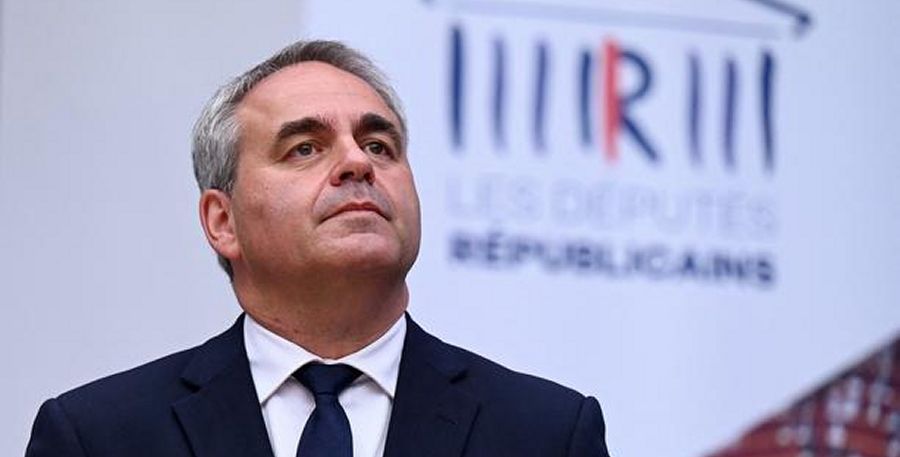 Après plusieurs jours de réflexion, le patron des Hauts-de-France a décidé de se lancer dans la compétition que vont organiser Les Républicains pour désigner leur champion pour l’Elysée. Après plusieurs jours de réflexion, le patron des Hauts-de-France a décidé de se lancer dans la compétition que vont organiser Les Républicains pour désigner leur champion pour l’Elysée.
Lundi soir, sur le plateau du « 20 Heures » de TF1, Xavier Bertrand a donc officiellement sollicité le soutien des Républicains et accepté de se présenter au congrès du 4 décembre, aux côtés notamment de Michel Barnier et Valérie Pécresse.« Oui je participerai à ce congrès », a indiqué Xavier Bertrand , remerciant les Républicains « d'avoir écarté la primaire ». « Ce
congrès, c'est la seule façon d'avoir le plus vite possible un seul
candidat de la droite et du centre. J'ai deux certitudes : divisés, on
est sûrs de perdre, rassemblés on peut gagner. Et je veux gagner. Je
veux gagner pour le peuple de la droite et du centre, mais aussi pour
l'ensemble des Français », a développé le président des Hauts-de-France.
Comment pouvait-il en être autrement pour l'élu des Hauts de France alors qu'Éric Zemmour continue de progresser dans les sondages et qu'Édouard Philippe, ex-LR , vient de créer son parti Horizons ? D'ailleurs Gérard Larcher, le président du Sénat, ne lui laissait pas le choix « S'il ne décidait pas de participer au congrès, il ne pourrait pas être le candidat de notre formation politique », avait-il clairement prévenu. Ses deux principaux concurrents Valérie Pécresse et Michel Barnier rappelaient qu'il existait des règles pour porter les valeurs des Républicains. « Celles et ceux qui veulent proposer leur candidature pour porter le projet des Républicains et qui ont besoin de leur soutien doivent respecter la règle », répondait Michel Barnier dans les colonnes du Figaro, le 7 octobre tandis que Valérie Pécresse ajoutait de son côté : « Je veux l'unité et je joue collectif depuis le début. Les Républicains ont fixé des règles du jeu que je respecte. Nous devons nous y plier. ». Dans ce contexte, et après deux défaites de la droite à la présidentielle, beaucoup d'élus lui ont rappelé l'importance d'obtenir officiellement le soutien des Républicains à six mois de la présidentielle pour que la droite ne se livre pas un combat fratricide pour les présidentielles qui annihilerait toute victoire de leur camp. « Les adhérents ont dit non à la primaire, car ils ne veulent pas d’affrontement. (...) Je leur présenterai mon projet et ils diront qui peut l’emporter », s’est justifié l'élu des Hauts-de-France.
Xavier Bertrand doit désormais convaincre les adhérents LR, qui lui reprochent toujours son départ du parti en 2017, qu'il est le principal atout pour gagner la présidentielle. Le candidat sait que la tâche s'annonce compliquée. « Si une présidentielle c'était facile, ça se saurait ! », sourit le candidat. Il affrontera donc Michel Barnier, Valérie Pécresse, Eric Ciotti et Philippe Juvin. Avec à la clé un soutien militant, un réseau d'élus et quelque 10 millions d'euros pour mener la campagne.
|
|
|
|
| Britney Delsey pour DayNewsWorld |
 |
MARINE LE PEN ENTERS A PRESIDENTIAL CAMPAIGN UNDER THE SIGN OF "FREEDOMS"
|
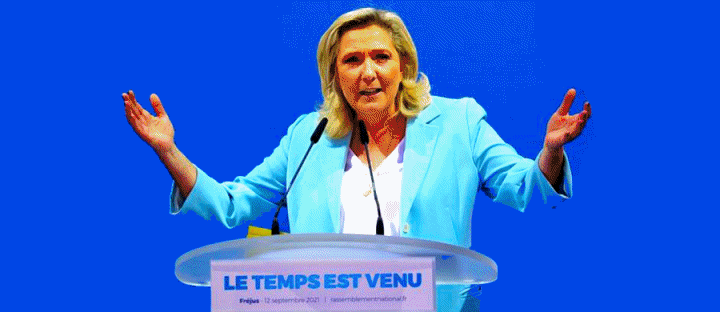
The launching of Marine Le Pen took place this Sunday, September 12, 2021 in Fréjus, in front of the party executives gathered in the national council. The patroness of the National Gathering officially left, for the time of the presidential election, the reins of her movement to her dolphin: the young vice-president of the RN, Jordan Bardella to underline the overtaking by the candidate of her own party and go to the conquest of the French who no longer believe in it.
"Marine Le Pen will be a detached candidate for the presidency of the RN to bring together beyond," argues the future number one of the party, who will be 26 on Monday, pleading that the presidential election is "the meeting between a man or a woman and the French people ”. Already at the beginning of July Marine Le Pen had urged his activists to “seek victory” by continuing to “open” the party. In this regard, she appointed as campaign director a former prefect, Christophe Bay, who did not come from the partisan seraglio, unlike David Rachline, mayor RN of Fréjus, who held this position in 2017.
Also the RN candidate launched her presidential campaign under the sign of "freedoms", to find this new lease of life.
“Freedoms, cherished freedoms! », An expression inspired by La Marseillaise (where it is written in the singular), will be his campaign slogan on posters without the name Le Pen or that of the party.
"The president of French freedoms"
Marine Le Pen presented herself as "the president of French freedoms". “In France, the French have the right to live like French people. The delinquents will be put out of harm's way, French delinquents in prison, foreigners on the plane, ”she promised. Taking part in “the deafening silence of so-called feminists” about certain practices imposed by communities, she promised to free the women concerned from the “obscurantist yoke (of the) Taliban from within”.
"A choice of civilization"
The candidate affirmed that the 2022 presidential election "will not only be a choice of society, as the previous polls have been able to be, it will be a choice of civilization". According to her, only two alternatives are presented to the French: "either the dilution of France by deconstruction and (migratory) submersion, or the salutary leap that will bring France into the third millennium around the idea of Nation". An immigration bill is due in October, which she has promised would go to a referendum to be passed if she gains access to the Elysee Palace.
In addition to the questions of immigration and security, which obviously hold a very important place in the program, the candidate has added ecology to it, under the theme of "the protection of our place of life". Marine Le Pen also wants to boost the birth rate, with a loan to young parents that they would no longer need to repay after the birth of their third child.
She also detailed several prominent wills, such as the nationalization of highways. According to her, this measure should make it possible to reduce tolls by 10 to 15% and limit the "spoliation of the French", she described in Figaro. One and a half billion euros should also return to the state budget, to finance a policy of regional development. Another strong idea is to privatize the public audiovisual sector. What "return to the French" 2.8 billion royalty, according to her. The overseas canals, the INA or Arte would be preserved.
A third candidacy tarnished, however, by the signals sent by Eric Zemmour on a possible presidential candidacy... |
|
|
|
| Andrew Preston for DayNewsWorld |
 |
AGNES BUZYN EXAMINATION
TO ENDANGER THE LIFE OF OTHERS |
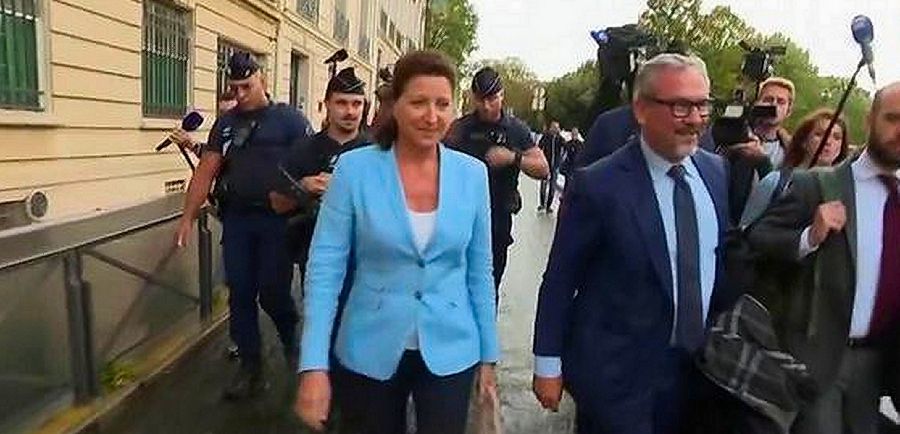
After a hearing of more than nine hours, Friday September 10, 2021, before the Court of Justice of the Republic, the former Minister of Health, Agnès Buzyn was indicted for "endangering the life of others ”by the Court of Justice of the Republic.
Agnès Buzin was also placed under the status of assisted witness for "voluntary abstention from taking specific measures to combat a disaster".
Now representative of the World Health Organization (WHO), Agnès Buzyn, 58, was Minister of Solidarity and Health from 2017 to February 2020, when the pandemic worried the whole world, she left her post. to run for the City of Paris without success.
If this indictment for "endangering the lives of others" certainly created a dangerous precedent for the next ministers and testifies to a judicialization of the political, it also shows that "the political leaders are not au- above the laws ”, according to Jean-Philippe Derosier, professor of public law at the University of Lille in an interview with Les Echos. |
|
|
|
| Garett Skyport for DayNewsWorld |
 |
There are no translations available.
LE PROJET DES REPUBLICAINS
POUR LA PRESIDENTIELLE 2022
|
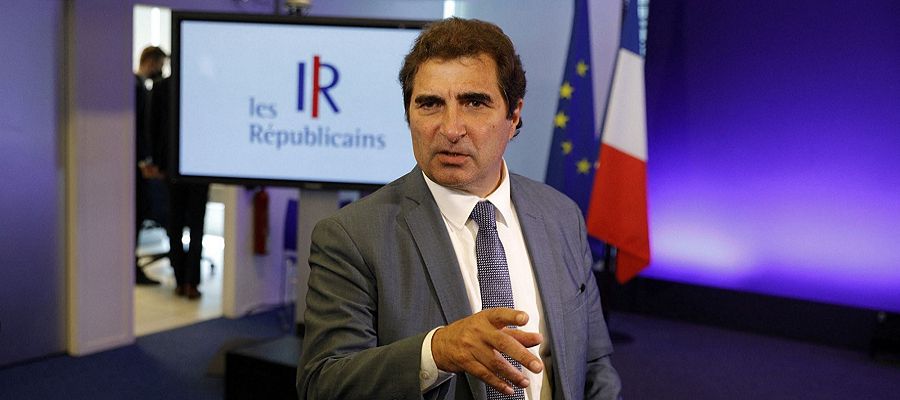 Les Républicains ont mis l'accent sur leur projet pour la présidentielle 2022 ce samedi 4 septembre 202 avec des universités d’été des jeunes LR au Parc floral à Paris. « Nous sommes de retour », a lancé le président de LR Christian Jacob après dix ans passé dans l'opposition. Plus de 1 500 personnes étaient inscrites pour ces universités d’été, deuxième édition pour le mouvement des jeunes de LR qui revendique plus de 10 000 membres. Les Républicains ont mis l'accent sur leur projet pour la présidentielle 2022 ce samedi 4 septembre 202 avec des universités d’été des jeunes LR au Parc floral à Paris. « Nous sommes de retour », a lancé le président de LR Christian Jacob après dix ans passé dans l'opposition. Plus de 1 500 personnes étaient inscrites pour ces universités d’été, deuxième édition pour le mouvement des jeunes de LR qui revendique plus de 10 000 membres.
Trois candidats Michel Barnier, Éric Ciotti et Philippe Juvin étaient invités aux tables rondes alors que la présidente de l’Île-de-France Valérie Pécresse, qui a quitté LR en 2019, s'est invitée suscitant un attroupement. Et de montrer qu'elle joue « collectif ». « Nous allons gagner car nos idées sont majoritaires et sont attendues par les les Français », a-t-elle insisté.
Contrairement à Xavier Bertrand, grand absent qui compte se lancer dans la course à l’Elysée sans passer par une éventuelle primaire. Il est pour l'instant le mieux placé dans les sondages.
Leur « projet pour la France » en vue de la présidentielle de 2022 présente trente propositions articulées autour des thématiques phares « protéger, libérer, rassembler ».
En matière de police, le projet s’attaque au cas des récidivistes avec la suspension des allocations familiales pour les parents de mineurs délinquants récidivistes et l’instauration de peines minimales pour les récidivistes et/ou quand la victime est force de l’ordre. Il prévoit aussi de lancer un plan de 25 milliards d’euros sur cinq ans pour les forces de l’ordre et la création de 20 000 places de prison. En plus, ce programme porte à 3 milliards d’euros le budget de la justice.
Concernant les retraites, le parti veut notamment porter progressivement l’âge de départ à 65 ans et mettre fin aux régimes spéciaux.
De nombreuses mesures en termes de fiscalité sont abordées dans ce plan : diviser par deux les impôts de production, permettre aux entreprises de fixer le temps de travail, exonérer de charges sociales pendant six mois le premier emploi d’un jeune, exiger le remboursement des aides publiques aux entreprises qui délocalisent…
Sur l’environnement, c’est un retour en arrière avec l’arrêt des fermetures des centrales nucléaires, le prolongement de la durée de vie des réacteurs jusqu’à 60 ans, ainsi que l’arrêt des subventions des secteurs éolien et solaire. LR souhaite lancer un plan hydrogène de 11 milliards d’euros (d’ici 2040) pour faire de la France le leader mondial.
Afin d’« éradiquer l’islamisme », les Républicains veulent fermer les mosquées radicalisées et inscrire dans la Constitution un « état de nécessité antiterroriste ». Un plafond annuel d’immigration serait également inscrit dans la Constitution. En outre, leur programme en matière d’immigration interdit les régularisations en cas d’entrée irrégulière et conditionne les aides sociales à cinq années de cotisations.
Autre investissement majeur annoncé (sur la santé) : le lancement d’un plan Alzheimer de 1,6 milliard d’euros sur 5 ans. Le programme de LR compte aussi mettre fin au collège unique et permettre l’apprentissage dès 14 ans, mais aussi instaurer un service à la nation obligatoire d’au moins quatre mois.
En quête d’un candidat
La droite se cherche toujours un candidat pour la prochaine présidentielle et les deux favoris ont quitté LR (ils ne se sentent donc guère liés par le projet de leur ancienne famille politique). « Chaque candidat a la liberté de présenter son projet. Mais il est bien évident que Les Républicains se tourneront vers celui qui reprendra le plus [le nôtre]», a assuré Christian Jacob. « La préoccupation des Français est de savoir notre capacité à gagner l’élection. ». Reste à savoir si les LR vont organiser une primaire ...Rendez-vous pour le congrès prévu le 25 septembre 2021.
|
|
|
|
| Alyson Braxton pour DayNewsWorld |
 |
FRANCE REGIONALS THE REPUBLIC ON THE MARKET
TAKES A SLAP |
It's a first round that doesn't really look like what the polls predicted. More than 66% abstention, or two out of three French people who shun the ballot box! This is 17 points more than in the previous edition in 2015.
In a context of “abysmal” abstention, the candidates of the LREM majority will not be able to influence the second round.
The Republic in March "KO standing"
Eliminated in Hauts-de-France, Auvergne-Rhône-Alpes and Occitanie, barely more than 10% in other regions: the lists of La République en Marche and its allies experienced a severe rout on Sunday evening , depriving the macronie of any possibility of being kingmaker. LREM wanted to be modest, hoping to garner 15% of the vote, perhaps even more in some regions, as some optimistic polls predicted. Alas: the presidential party convinced only about 10 of the voters. . Its candidates record such disappointing scores, sometimes under 10%, that they do not even allow themselves to be maintained and to play a role in the second round.
Worse: he was eliminated from the second round in Occitanie, Auvergne-Rhône-Alpes and especially in Hauts-de-France, where Minister Laurent Pietraszewski is announced between 7.3% (Harris Interactive) and 9.1% (Ifop) , despite the presence of four other members of the government on its list - Agnès Pannier-Runacher, Éric Dupond-Moretti, Gérald Darmanin and Alain Griset. Despite her five ministers, she recorded a bitter failure. Another disillusionment: the Modem Marc Fesneau, the best Macronist hope to win a region, finished fourth in the first round. In Brittany, the battle of the heirs of Le Drian turns to the profit of the socialist rather than of the "walker".
Outgoing region presidents topped the list
Despite the abstention, the outgoing presidents can have a smile. The two main traditional parties are fully benefiting from the "leavers' bonus", which were in charge during the health crisis. This allows the right to hope to be able to keep its seven regions and the left its five in mainland France. On the right, Xavier Bertrand, Laurent Wauquiez, Valérie Pécresse, Jean Rottner or even Hervé Morin are now well placed to bere-elected. Just like on the left, Carole Delga in Occitanie or Alain Rousset in New Aquitaine. In Brittany, while he was neck and neck with LREM, the socialist Loïg Chesnais-Girard takes the lead and could leave for a second term (especially in the event of an agreement with EELV). Within the left, the ecologists pull out their game when there was no outgoing PS: this is the case in Ile-de-France where Julien Bayou wins the small primary with Audrey Pulvar and Clémentine Autain.
Bertrand well placed for 2022?
With more than 41% of the vote in the first round, Xavier Bertrand can savor his victory and become essential on the right for the presidential election of 2022. He is undoubtedly one of the big winners of the evening. Xavier Bertrand, declared rival for the presidential election, comes out reinforced, with the added bonus of proof that he can alone, without the reinforcement of the macronists, beat the RN.
Gérald Darmanin, however, refuses to see a warning for the 2022 presidential election in the mediocre results of the presidential party in the regions. “I consider that the French answer the question asked: 'who do you want as president of the region? They responded. Let us not jump to conclusions about the presidential election. (...) When they vote for the President of the Republic, they will choose the President of the Republic, ”commented Gérald Darmanin.
The RN back?
Opinion polls promised the National Rally (RN) to come out on top in 6 of the 13 metropolitan regions while it only succeeds in one, in Provence-Alpes-Côte d'Azur (PACA). He was announced high in the polls. While he had turned in the lead in six regions in 2015, he won this first round only in one region: Provence-Alpes-Côte d'Azur.
Thierry Mariani, defector from the right, turns well ahead but does not widen the gap as much as announced; the second round promises to be tight. In Hauts-de-France, where Marine Le Pen had collected 40.6% in the last regional, Sébastien Chenu falls to around 24%. The abstention did not at all succeed in the party of Marine Le Pen which knows many disappointments. Recognizing that his constituents “did not come”,Marine Le Pen called "a start" for the second round.
How to explain these failures ? Do they want the abstention which would have affected the electorate of the National Rally more ( which was not necessarily the case until now ) ?
At the choice of the candidates ?
To the “trivialization” strategy desired by Marine Le Pen ? For the one who is embarking on her third presidential candidacy, it is in any case an alert not to be overlooked.
Situation reversal
The majority candidates only cross the 10% mark - the minimum threshold to maintain themselves - only in 8 regions. Right and left, meanwhile, maintain their positions. Apart from PACA, all the outgoing region presidents came out on top.
The close match announced with the RN did not take place, the declared presidential candidate Xavier Bertrand can already establish his image as a man capable of beating the RN, "my one and only enemy", he declared . He reverses the balance of power with Marine Le Pen's party compared to 2015
It's a first round that doesn't really look like what the polls predicted.
The results of the 2021 Regionals of the first round shake up the presidential strategies of Macron and Le Pen. Until then, the negotiations of alliances, mergers or withdrawals will feed the chronicle until the filing of the lists Tuesday at 6:00 p.m., in particular in Paca, region where the RN is best placed.
“The abstention of 66% of the French now confirms a form of democratic fatigue, as if a growing part of the citizens, disillusioned by politics or policies, no longer considered it useful to vote. ".
If the slap is confirmed in the second round for the majority, the question of a government reshuffle could be asked, while Emmanuel Macron must present in early July the roadmap for the end of his five-year term, which he wishes "useful"
"Complaining is good, but voting is better", tried to mobilize Jordan Bardella on television, taking up the slogan of the RN candidates, from Mariani to Odoul via Chenu, in an attempt to mobilize their troops for the second round. |
|
|
|
| Joanne Courbet for DayNewsWorld |
 |
PANDEMIC YELLOW VESTS
"WE REVIEW VERY AVERAGE TIMES"
ACCORDING TO EMMANUEL MACRON | In an interview with the magazine Zadig , the Head of State expands on the health crisis experienced by all for a year and a half and comparable, according to him, to the period of the Middle Ages. One year before the presidential election, Emmanuel Macron says he is "very confident" for the future.
If a year and a half after its appearance, the epidemic is still not absorbed, vaccination gives a glimmer of hope and allows politicians to draw the first lessons. In an interview with the magazine Zadig, the president also spoke about this epidemic and its consequences on French society. “This pandemic is the metaphor of our time.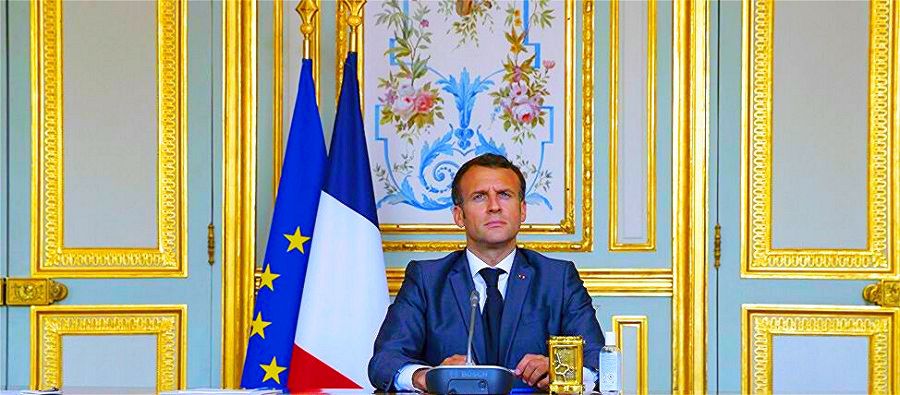
We relive times with a very medieval background: the great jacqueries, the great epidemics, the great fears ... ", considers Emmanuel Macron, going further:" It was the time of great fears, of phenomena which forged a people, I would even say of the reinvention of a civilization. It is also a time of tensions that are affecting the country ”.
With the "yellow vests", "we rediscovered violence
Speaking of returning to a medieval era, the president also alludes to the yellow vests crisis, which preceded that of the Covid and which gave rise to demonstrations for several months on roundabouts and in the big cities of France. According to him, the social movement marked “a return of violence in society”, “one of the fundamentals of our old country, made up of jacqueries.” “We have rediscovered violence. Political and militant violence had existed for several years in our democracy, with the return of the black blocks in European demonstrations and then in France in 2016. With the 'yellow vests', it is a return of violence in society . We find one of the fundamentals of our return of violence in society. We find one of the fundamentals of our old country,made of jacqueries. "If no politician has been able to anticipate the formation of this protest movement, which will last nearly a year, Emmanuel Macron explains that he was not" surprised at what was happening ", seeing in the French" a very resistant ”but which“ flares up with anger ”.
France is not "an addition of minorities or resentments".
"France is a daily will, it is not a fixed identity", affirms Emmanuel Macron about "African immigration". "We must say to these men and women: you who are there by the cruelties of history, by the will of your grandparents, your parents or your own, you are a chance for our country" . In Seine-Saint-Denis, “all that's missing is the sea to make California”. And to praise the merits of 93: "I am going to describe to you, asking you to close your eyes, the youngest department in France, with two international airports, the most important French sports stadium and the largest number of start-ups. -up per capita. The only thing missing is the sea to make California… ”, assures the President of the Republic. According to him,Seine-Saint-Denis is at the same time "a lung", "a unique space of economic and social transformation" is a department where "all the French weaknesses are concentrated". It is in particular “the only place where we have assumed to be a country of immigration, which integrates, which raises the children born here as elsewhere.” “Our country needs, to live serenely, to build a story common and to take actions recognizing all these lives, all these memories ”, assures the President of the Republic.to build a common narrative and to take actions recognizing all these lives, all these memories ”, assures the President of the Republic.to build a common narrative and to take actions recognizing all these lives, all these memories ”, assures the President of the Republic.
The reform of the ENA is also mentioned, the Head of State defending it at all costs: “France's disease is not bureaucracy or centralism but corporatism. That is to say, interests that protect the inter-self. The ENA has allowed corporatisms to reconstitute themselves. ”According to him, it is necessary to“ select differently ”for the senior civil service because“ when one comes from a working-class background, and even more when one comes from the immigration, it takes five to six generations to reach even the middle of the social scale. It is enormous and, to be honest, discouraging. ”An ordinance must come to ratify the reform this Wednesday, May 26, replacing prestigious school ofadministration by the Public Service Institute (ISP) on January 1, 2022 while providing guarantees of independence to outgoing senior officials.
Emmanuel Macron also underlines the urgency to respond to the feeling of “dropping out” of a part of the population who expresses “the same concern about deindustrialisation, a feeling of injustice, an impression of democratic betrayal”.
In this long interview of twenty pages, devoted to "his vision of France" and the "carnal relationship" he maintains with the country, the Head of State assures him of having confidence in the future and the ability to recover. after a health and social crisis of this magnitude. “If we have collective energy and a vision, we will move forward. I think that we have the possibility of it ", estimates it, evoking" the capacity to embrace the future, to project (...) then decisive for the rebound which the country takes ". One year before the presidential election, Emmanuel Macron therefore displays a certain optimism, saying he has "the foreknowledge that we have this strength and this inspiration in us" and believes "a lot in the inspiration of the French people".
He ensures that his role "is, each time, to trace the right path, to put the right word there, even if I make mistakes, to allow that to happen".
|
|
|
|
| Joanne Courbet for DayNewsWorld |
 |
FRANCE
A NEW FORUM OF MILITARY
TO DENOUNCE THE THREAT OF CIVIL WAR
|

Valeurs Actuelles continues to be the spokesperson for part of the army. Two and a half weeks after a controversial first text, calling on Emmanuel Macron and the executive to defend patriotism, the weekly Valeurs contemporaine published, Sunday, May 9, 2021, in the evening, a new forum. This time, launched by active soldiers, it is open for signatures.
“Our elders are right on the substance of their text, in its entirety. We see violence in our towns and villages. We see communitarianism taking hold in public space, in public debate. We see hatred for France and its history becoming the norm. The first text had caused much ink to flow, the second risks driving the point home. "
“Take action, ladies and gentlemen. This time, it is not about custom emotion, ready-made formulas or media coverage. It is not a question of extending your mandates or conquering others. It is about the survival of our country, of your country ”, write the authors in this text addressed to the President of the Republic, to ministers, parliamentarians and general officers.
A first shocking platform on April 21
Current Values had published, on April 21, a first shocking platform in which "twenty generals, a hundred high-ranking officers and more than a thousand other soldiers" called on President Emmanuel Macron to defend patriotism and said " willing to support policies which will take into consideration the safeguard of the nation ”. This text had triggered a lively controversy in the political class.
Seized by parliamentarians from rebellious France, the Paris prosecutor Rémy Heitz rejected the request to initiate proceedings against the authors and broadcasters of the platform because “no criminal offense” appears there. According to the Harris Interactive poll conducted for LCI, 64% of people questioned about the first forum had heard of this forum denouncing the "disintegration" of France due to "a certain anti-racism", "the Islamism and suburban hordes ”. In total, 58% of those questioned supported the soldiers who signed the platform, according to the poll, carried out on a sample of 1,613 people.
Still according to the same survey, 84% of French people questioned think that violence is increasing day by day and 73% of them believe that the country is crumbling. The supporters of the right and the far right seem more in agreement with the ideas of the signatories. In particular on the issue of security: for example, 93% of Republicans and 94% of supporters of the National Rally think that the laws of the Republic do not apply in some cities. And two-thirds of the panel believe that the signatories of the platform should not be punished.
"The generation of fire"
The authors of the second column say they have “recently entered the quarry” and specify that they cannot “legally” express themselves “with their face uncovered.” “We are from what the newspapers have called“ the generation of fire ”. ". Men and women, active soldiers, of all armies and of all ranks, of all sensibilities, we love our country. These are our only claims to fame, ”they write to introduce themselves.
“Afghanistan, Mali, Central African Republic or elsewhere, a number of us have experienced enemy fire. Some have left comrades there. They offered their skin to destroy Islamism to which you are making concessions on our soil, ”say the authors. “Almost all of us have known Operation Sentinel. We saw with our own eyes the abandoned suburbs, the accommodation with delinquency. We have undergone the attempts to instrumentalize several religious communities, for whom France means nothing - nothing but an object of sarcasm, contempt and even hatred ”.
While Emmanuel Macron appeared, as a sign of unity, with the chiefs of staff of the armies on Saturday, May 8 during the commemorations of the German surrender in 1945, the soldiers, confronted with the realities on the ground, continue to denounce "forfeiture", "communitarianism" and "Islamism" to which the executive would make "concessions."
According to the signatories, who rely on their experience of Operation Sentinel to justify their assessment of the situation in France, the civil war is "brewing.
|
|
|
|
| Alize Marion for DayNewsWorld |
 |
THE GENERAL TRIBUNE "FOR A RETURN OF THE HONOR OF OUR GOVERNORS"
|

At the initiative of Jean-Pierre Fabre-Bernadac, some twenty generals, a hundred high-ranking officers and more than a thousand other soldiers signed an appeal for a return of honor and duty within the political class.
"For a return of the honor of our rulers". This column was featured on Wednesday April 21 in Current values but was published on April 8. This forum calls on the political class to fight against “the disintegration” of France. "It is no longer time to procrastinate, otherwise, tomorrow, the civil war will put an end to this growing chaos, and the deaths, for which you will bear the responsibility, will number in the thousands", we can read. The letter from the soldiers, undated, is addressed to the "president", to the government and to parliamentarians, that is to say to all the representatives of the Republic.
"The hour is serious, France is in danger, several mortal dangers threaten it, write the generals. Our honor today lies in the denunciation of the disintegration which strikes our homeland. "This disintegration is based on three points:" a certain anti-racism ", which intends" to create on our soil a malaise, even a hatred between the communities ", but" it is the racial war that these hateful and fanatic partisans want " . Then disintegration "with Islamism and the suburban hordes", then finally with these "demonstrations where the power uses the police as auxiliary agents and scapegoats in the face of French people in yellow vests expressing their despair", "then that infiltrated and hooded individuals ransack businesses and threaten these same police forces ”.
The text had an echo and caused a stir in the political space. This platform calls out to the country's leaders one year before the presidential election. "Do not waste time and know that we are ready to support policies which will take into consideration the safeguard of the nation", they say in this forum of April 21.
Marine Le Pen quickly replied that she shared their analyzes and invited them to join the National Rally (RN). "I subscribe to your analyzes and share your grief," replied the president of the National Rally. The left rebels against this forum of soldiers and the appeal of Marine Le Pen. On Franceinfo Monday April 26, Agnès Pannier-Runacher, Minister Delegate in charge of Industry, "unreservedly condemned this platform of a quarteron of generals in Charente who call for an uprising". An “irresponsible” politicization of the armed forces, retorts Florence Parly, the Minister of the Armed Forces. At the Ministry of the Armed Forces, we are analyzing the list of signatories. If active soldiers appear there, they will be punished , they say.
The pre-campaign has indeed started. Let us not forget the bookstore success achieved last year by General de Villiers' latest book.
|
|
|
|
| Garett Skyport for DayNewsWorld |
 |
BATTLE-BOTTOM ON
"DAILY SAFETY"
VIOLENCE, DELINQUENCY AND DRUGS IN FRANCE |
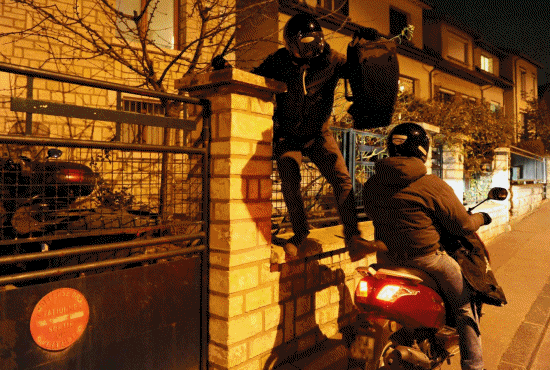
While President Macron is in Montpellier on a visit on the theme of "daily security", a man was shot and wounded during a shooting on Monday, April 19, 2021, in the Beaux-Arts district.
On the eve of his visit to a Montpellier police station with his Interior Minister Gerald Darmanin, Emmanuel Macron gave an interview to “Figaro” on Sunday April 18.
Police, drugs, repercussions after the trial of the murderer of Sarah Halimi :
the head of state launched a new offensive on security, a key subject of the 2022 presidential election and assured himself to fight "for the right to peaceful life".
10,000 police recruitments confirmed by 2022
Emmanuel Macron had already announced the recruitment of 10,000 additional police and gendarmes by the end of his five-year term. It confirms this objective. "Each police district will have more police at the end of the five-year term than at the start, without exception." 4508 police officers and 1706 gendarmes have already been recruited. The President of the Republic has promised to want to meet his objective of 10,000 additional police and gendarmes. "Each French will see more blue on the ground in 2022 than in 2017. It reassures people, it deters delinquents," he announced.
"We will have in addition, from this year, 2000 police and gendarmes more" of which "most" will go "directly on the public highway".
Numbers and more numbers
Emmanuel Macron also announced the creation in Montpellier, where 50 additional police officers will come as reinforcements by the end of 2022, of a "war school with continuous training" for police officers as well as the modernization of their uniform and the replacement of the cap by a cap.
The President of the Republic is also counting a lot on the deployment of pedestrian cameras, within the framework of the “global security” law just adopted in Parliament: “They will change everything”, because they will help “prevent slippages” and “ inhibit violent people ”.
No "systemic police violence"
He also returns to “police violence”, and wants to be extremely clear: “There is no systemic violence by the police, it is false; there is no systemic racism in the police, that is wrong, any more than there is in the gendarmerie or in the state. ".
Emmanuel Macron had used the expression "police violence" in December to immediately contradict it.
"" If in all the polls, all the field surveys, young people tell you that they undergo face checks, tell them: 'no, there isn't, it's a feeling you have' , it is as crazy as going to explain to people: “you may feel insecure but it is not a reality”. ”"
Drugs as "economic matrix of violence in our country"
Regarding the proliferation of violent settling of accounts between gangs, Emmanuel Macron notes that drug trafficking “explodes” and “forms the economic matrix of violence in our country.” “Eradicating them by all means has become the mother of battles. , since drugs innervate certain separatist networks but also everyday delinquency, including in the small towns spared until now. Leaving no respite to drug traffickers is to reduce delinquency everywhere, ”he underlines He declared that 70,000 fixed tort fines have been drawn up since September. These fines of € 200 penalize the use of narcotics. President Macron recognizes a "sharp increase" in violence against people.
Regarding drugs, "France has become a country of consumption and therefore, we must break this taboo, launch a major national debate on drug consumption and its deleterious effects". But also a self-sufficient production country for cannabis.
Emmanuel Macron also said he wanted a change in the law so that the abolition of discernment caused by taking narcotics does not exonerate his criminal responsibility , after the decision of the Court of Cassation in the murder of Sarah Halimi, a Jewish sexagenarian. killed in 2017 in Paris. “Deciding to take drugs and then going 'like crazy' shouldn't take away your criminal responsibility in my view. On this subject, I hope that the Minister of Justice will present a change in the law as quickly as possible, ”declared the Head of State.
15,000 prison places confirmed
Also in his interview, Emmanuel Macron confirmed the creation of 15,000 new prison places under his five-year term. “We have already launched 7,000 and I will hold the 15,000 there too. We will do the remaining 8,000 in stride. As of this week, the government will present the action plan and the sites for these additional places ”.
The hallucinatory verdict of police attack in Vitry-Châtillon
But while the President of the Republic is paying a visit on the subject of security this Monday in Montpellier, the police are still as targeted in recent weeks, in particular by fireworks mortar fire. The trial of the Viry-Châtillon tragedy also delivered its verdict this weekend, causing incomprehension among many police officers. The Paris Assize Court in fact sentenced five defendants on appeal to terms ranging from 6 to 18 years' imprisonment and acquitted eight others. They were on trial for the violent assault on police officers in Viry-Châtillon in 2016 (throwing Molotov cocktails at police vehicles and assaulting injured police officers). A judicial shipwreck for the police.The thugs who lock up two police officers to burn them would they be "a wealth for the Nation ", as the Advocate General said at the trial? !!
Police unions have called for action, a demonstration on Tuesday, April 20 around noon.
The focus of criminologist Alain Bauer on CNews
Alain Bauer therefore addressed the delicate question of the penal response in France: the police and the justice must speak to each other as partners, recalls the criminologist. "The police consider the magistrates as lax and the magistrates consider the police and fascists. These two postures which aim to insult rather than construct a penal policy are important. (...) In France we do not know how to talk to each other and we consider ourselves as adversaries whereas we should rather be partners ”.
He also spoke about the anger of the police:
“They are extremely mistreated. If the state were a private employer, he would be in prison for not respecting labor regulations, ”according to the criminologist.
Faced with the exasperation of the French in the face of multiple insecurities, "destructuring of the model of the State" (according to Alain Bauer), Emmanuel Macron tries to regain control of the regal face to the right and the extreme right of Marine Le Pen. |
|
|
|
| Garett Skyport for DayNewsWorld |
 |
HARO ON "NON-MIXED RACISE" MEETINGS
|
A position that divides. The candidate of the socialists and the radicals for the presidency of the Ile-de-France region, Audrey Pulvar, has drawn the wrath of the right and the far right for having declared, during an interview broadcast on BFMTV on Saturday 27 March, that the "single-sex" meetings between people affected by racism did not "shock her deeply", and that it should be possible to ask white people who wished to attend "to be silent".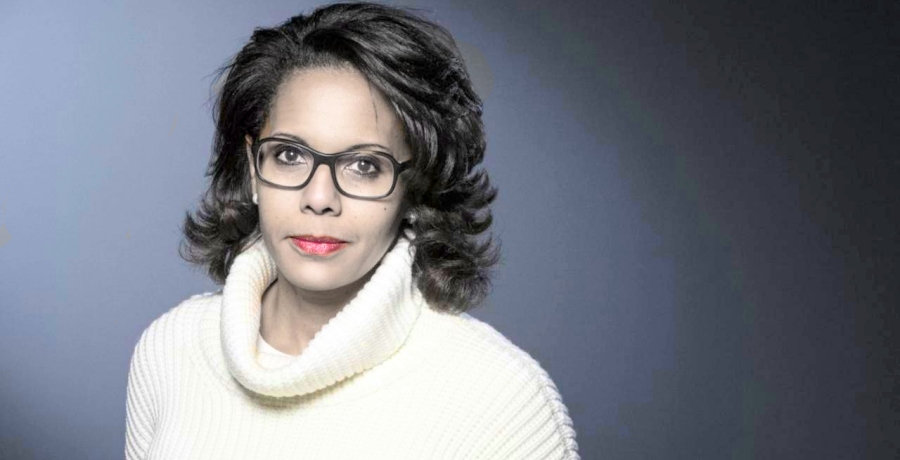
“If it turns out that a white woman, a white man comes to this workshop [for black and mestizo people], there is no question of throwing her away. On the other hand, we can ask him to be silent, to be a silent spectator. "
Audrey Pulvar, PS candidate for regional in Ile-de-France
Strong reactions
His comment aroused the ire of some elected officials, especially on the right.
“In my region, no inhabitant should be discriminated against for the color of their skin. There is no such thing as 'acceptable' racism ”, reacted on Twitter the current president of the Ile-de-France region, Valérie Pécresse.
“The whites must be silent. Audrey's shocking and shameful sentence #Pulvar. She must apologize to the Republic ”first commented the vice-president of the region Geoffroy Didier on the social network.
MP LR, relaying a video published by another vice-president of the region, member of the majority of Valérie Pécresse, Patrick Karam, launched hostilities. It is thus several figures of the right-wing majority in the region who have stepped up to denounce the remarks of the member of the majority of Anne Hidalgo in Paris.
On the far right, too, the reaction was almost immediate. The president of the National Rally, Marine Le Pen, even called for the intervention of justice against the elected. “The prosecution must bring charges for incitement to racial discrimination against Ms. Pulvar. We must put an end to this racist escalation on the part of a part of the extreme left which is freed from all legal, moral and republican rules ”she commented on Twitter.
Support left
Another reaction from the LREM deputy, Laetitia Avia. "You can ask a white woman or a white man to be silent." NO. The fight against racism does not pass through exclusion and discrimination, but through dialogue, which is the best weapon against prejudice, ”reacted the Parisian parliamentarian.
The boss of LREM deputies, Christophe Castaner, wanted to be more nuanced : while recognizing words "at least clumsy", this historical macronist and former PS refused to "contribute to the hunt against it" and recalled that "this type of meetings are sometimes necessary to free a voice for a group that feels victim ”.
Support from Jean-Luc Mélenchon on the other hand, who had already refuted the controversy over the Unef a few days ago.
“Audrey Pulvar is not racist ! "
She just understood what a support group is.
Those who pounce on it, on the other hand, cannot hide their sexist and discriminating inclination. Public debate is collapsing.
Will the PS defend its candidate in Île-de-France ? Asked the leader of France Insoumis.
|
|
|
|
| Garett Skyport for DayNewsWorld |
 |
There are no translations available.
QUID DU VOTE ELECTRONIQUE PAR ANTICIPATION A LA PRESIDENTIELLE DE 2022 EN FRANCE
VOULU PAR LE GOUVERNEMENT ?
|
Un petit amendement, glissé mardi par le gouvernement au projet de loi sur l’organisation de l’élection présidentielle de 2022, a provoqué la surprise au Sénat. Il permettrait, s’il était approuvé par le Parlement, de voter de manière anticipée à l’élection présidentielle de 2022. Des « machines à voter » seraient mises en place pour faciliter l'opération. Seuls certains bureaux, dont le nombre et l'emplacement seront définis par le ministère de l'Intérieur, permettraient aux électeurs de s'exprimer à l'avance. Quant à la date à partir de laquelle il sera possible de voter, elle sera « prévue par décret pris au plus tard le sixième vendredi précédent le scrutin ». par l’intermédiaire d’une machine à voter.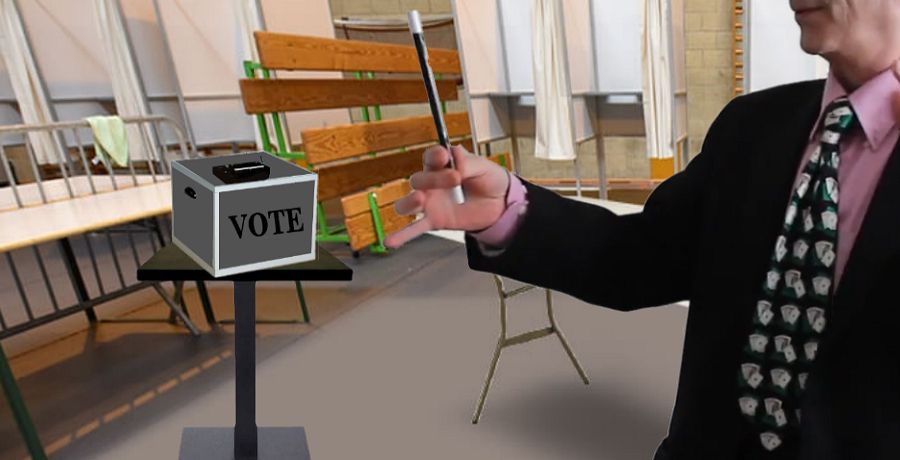
Pourquoi un vote par anticipation ?
Si elle est adoptée par les parlementaires, cette mesure constituera une première en France, alors qu'elle est déjà en place dans plusieurs pays (Allemagne, Suisse, Canada, Etats-Unis). Elle pourrait alors fournir une nouvelle arme contre l'abstention, qui a battu des records lors des dernières élections municipales. Depuis 2007 celle-ci ne cesse de progresser. Lors du dernier scrutin des présidentielles, en 2017, plus d’un Français sur cinq (22 %) inscrits sur les listes électorales ne s’était pas déplacé aux urnes au premier tour. Un Français sur quatre (25 %) ne l’avait pas fait au second tour pour trancher le duel Macron/Le Pen. En cause, en partie seulement, les vacances de printemps.
Comment ça fonctionnerait ?
Avec la mise en place du vote anticipé, tel qu’il est prévu par l’amendement du gouvernement, les électeurs pourraient commencer à voter une semaine avant le scrutin, pour le premier et le second tour. L’amendement le prévoit uniquement pour l’élection présidentielle. Pour se faire, des « machines à voter », électroniques, seraient installées dans les villes préfectures. Il faudrait donc s’y déplacer pour voter.
Logiquement, un électeur ne pourrait pas voter deux fois. Une fois son vote anticipé pris en compte, il ne lui serait plus possible de donner procuration et - évidemment - de voter le jour du scrutin.
L 'opposition contre
Mais l'avenir de cet amendement est très incertain, l'opposition ayant d'ores et déjà fait part de son désaccord. « Nous y sommes fortement opposés. D'abord, c'est un amendement, ce qui permet au gouvernement de passer sous le radar du Conseil d'Etat, et en dehors d'une discussion parlementaire approfondie. Ensuite, pour l'élection présidentielle qui est la clé de voûte de nos institutions, on ne peut pas faire les choses à la va-vite », a déclaré le président des sénateurs Les Républicains, Bruno Retailleau. Même son de cloche du côté du chef de file des Centristes, Hervé Marseille. « La majorité sénatoriale ne va pas déférer à un texte comme celui-là, dans les conditions dans lesquelles ça arrive. Ce n'est même plus du mépris », a-t-il dénoncé, qualifiant l'amendement d' « ovni ». Finlande, la Lettonie, la Norvège, la Suède et la Suisse.
Déjà voté en janvier à l'Assemblée nationale, le texte doit désormais être examiné par la commission des Lois puis être soumis en séance publique, jeudi, au Sénat.
|
|
|
|
| Alize Marion pour DayNewsWorld |
 |
50 TH ANNIVERSARY
DEATH OF GENERAL DE GAULLE |
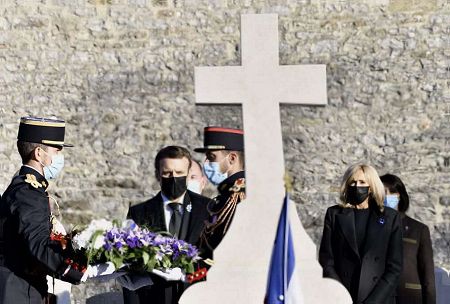 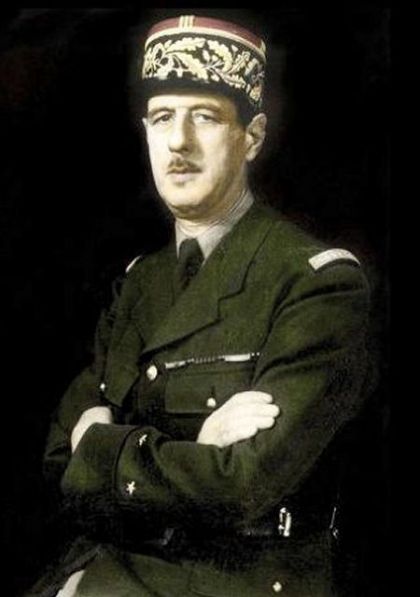
"General de Gaulle is dead, France is a widow”, declared Georges Pompidou, the one who had succeeded him.
On Monday, November 9, 1970, one of the most illustrious men of the 20th century disappeared.
By the fireside, in the library of his house in Colombey-les-deux-Églises, De Gaulle died in a few seconds.
Due to the health crisis affecting the country, the tribute to the 50 years of the death of General de Gaulle, Monday, November 9, 2020, was more intimate, but despite everything fundamental for Emmanuel Macron.
Charles de Gaulle died, leaving behind the image of a great head of state.
It was in Colombey-les-Deux-Églises in Haute-Marne that Emmanuel Macron was expected to pay tribute to the memory of the general.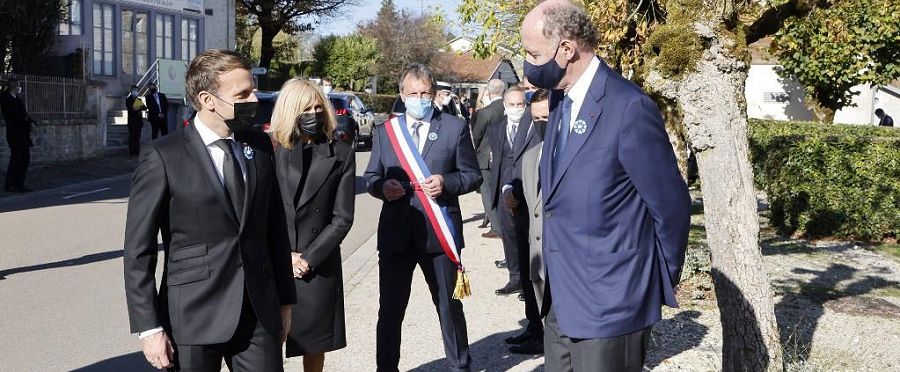
A ceremony without an audience marked by sobriety.
The President of the Republic visited La Boisserie, the family home, and deposited a germ on the tomb of the deceased resistant before presiding over a military ceremony.
During this day, Emmanuel Macron tried, like General de Gaulle in his time, to unite the French around common objectives.
Today's ceremony has a strong symbolic significance, at a time when the Head of State regularly calls on the French to unity to overcome the current triple crisis:
"Health, economic and terrorist" big challenges therefore for the French head of state Emmanuel Macron.
To be continued.....
|
|
|
|
| Alize Marion for DayNewsWorld |
 |
COVID-19: SEARCHES AT THE HOME AND OFFICE OF THE MINISTER OF HEALTH OLIVIER VERAN
|
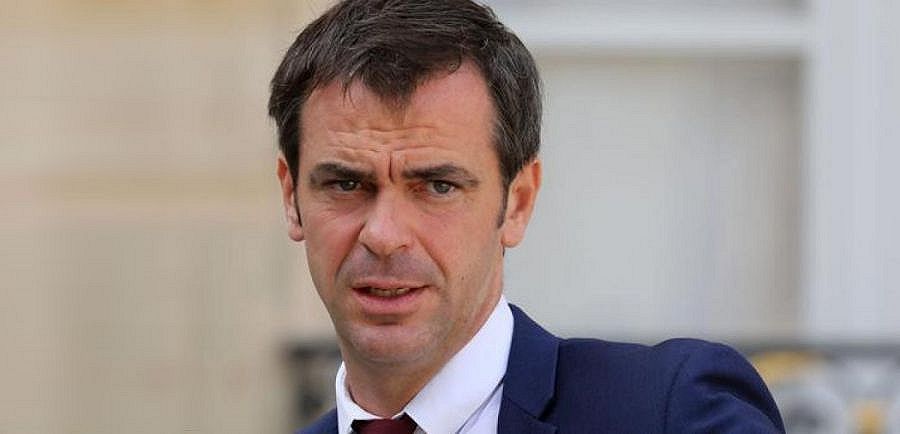
Ministers and ex-ministers searched
Long planned, searches were carried out this Thursday morning at the homes and offices of Minister of Health Olivier Véran. The homes and offices of several political figures were searched on Thursday, October 15. This vast, unprecedented and spectacular search operation also concerns former Prime Minister Edouard Philippe, former Minister of Health Agnès Buzyn, the former government spokesperson Sibeth Ndiaye, as well as the Director General of Health, Jérôme Salomon. Other searches were carried out at the director general of Public Health France, Geneviève Chêne.
Searches ordered by the Court of Justice of the Republic
The searches are part of a judicial investigation opened by the Court of Justice of the Republic on the management of the coronavirus crisis, the Ministry of Health announced in a press release. At the origin of these searches is the Court of Justice of the Republic, whose investigating committee acts as an investigating judge and leads the investigations. A judicial investigation was indeed opened on July 7 for “abstaining from fighting a disaster”. It is based on article 223-7 of the Penal Code: “Anyone who voluntarily refrains from taking or initiating measures allowing, without risk for himself or for third parties, to fight a disaster likely to create a danger for security of persons is punished by two years ofimprisonment and a fine of 30,000 euros. "
"Abstention from fighting a disaster"
At first, there were complaints from relatives of Covid-19 victims or doctors. Nearly 90 complaints were lodged between March and June with the Court of Justice, the only body empowered to prosecute ministers.
Nine of these complaints gave rise to the opening of a judicial investigation in early July, with a central question: what did the ministers know when making their decisions, in particular on the effectiveness of the masks? Have they deliberately refrained from taking protective measures? Gendarmes and police immediately set to work to answer these questions.
Guest on BFMTV, Maître Arié Allimi, lawyer for the Inter-Urgences collective who had filed a complaint at the end of June with the Paris prosecutor's office with the constitution of civil party, develops the situation. The collective had already filed a complaint last March in the company of another, the C19 collective, for "abstaining from fighting a disaster", but wants justice to speed up its investigations.
“The reason for this complaint is to say that the government did not allow caregivers to protect themselves from a disease that it knew was coming and from which it knew the means to protect itself. This is the object of this complaint, there are administrative, political, but also criminal responsibilities, and the justice system is investigating to determine who is responsible, ”he explains.
"Caregivers have been contaminated"
The lawyer wished to recall the situation in which caregivers in France found themselves in the spring, when the health crisis was at its height on French territory.
“There are a number of caregivers who have been infected, some have had very serious after-effects, and others have died as a result of the Covid contamination. You also know that a large number of caregivers did not have the necessary equipment to protect themselves when they were in contact with infected people, in particular masks, gowns, etc. "
Three doctors, members of the C19 collective and supported by more than 600 members of the health staff, also lodged a complaint against the Minister of Health, by seizing the Court of Justice of the Republic. Their lawyer, Fabrice Di Vizio, estimated that "the government has not presented so far proof of orders or contracts for the necessary equipment" of protection, such as masks. These three doctors also filed a complaint against Agnès Buzyn and Edouard Philippe. Fabrice Di Vizio accuses them of having "refrained" from taking measures in time to stem the Covid-19 epidemic.
Computer equipment seized
It was the gendarmes of the Central Office for the fight against environmental and public health attacks and the Central Office for the fight against corruption and financial and fiscal offenses who carried out these searches.
The investigators were accompanied by computer specialists. It was a question of seizing and putting under seal computer equipment, learned France Televisions from sources close to the investigation. The members of the investigative committee of the CJR are looking for possible evidence (non-public reports, professional emails ...) showing the degree of knowledge the government had, for example alerts that it would not have taken into account. Masks are the most emblematic case.
Searches that raise questions
The investigation "is not there to define political or administrative responsibilities", had explained at the time the prosecutor Rémy Heitz, "but to bring to light possible criminal offenses" of national decision-makers (except the head of the State, not criminally responsible, and members of the government).
Several personalities reacted concerning the date chosen for these searches. These come to scramble government communication the day after President Emmanuel Macron's intervention, and the shocking announcement of nocturnal curfews in Île-de-France and in eight metropolises.
"It's not the emergency today, we have to fight against the second wave and I'm not convinced that we should waste time with that", reacted on BFMTV the president of the UDI, Jean- Christophe Lagarde, who does not believe "in the criminal responsibility of ministers in this affair". The deputy of rebellious France Eric Coquerel was also skeptical. “I do not find these searches to be opportune, there is a judicialization of political life. It's more a staging than anything else, ”he lamented on LCI.
A political drift of the French judiciary ? |
|
|
|
| Britney Delsey for DayNewsWorld |
 |
There are no translations available.
CRISE D'IDENTITE AU LREM
LE PARTI PAS EN ORDRE DE BATAILLE POUR LA PRESIDENTIELLE
|
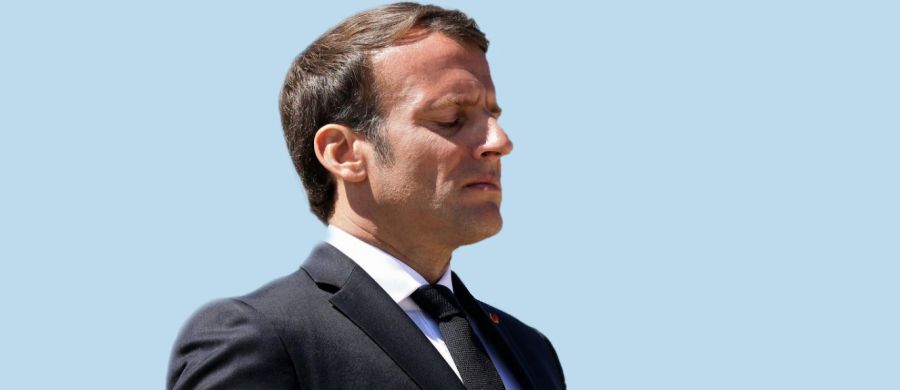 Changement de visages à Matignon, au gouvernement, et au groupe LREM à l'Assemblée : la majorité a connu un vaste remaniement ces dernières semaines. Seul le parti avait jusqu'à présent résisté à cette «réinvention» prônée par Emmanuel Macron, pour sortir de la double-crise sanitaire et économique .Mais il s'agit d'affronter les 18 derniers mois de son mandat le cas dans les meilleurs conditions.C'est pourquoi Pierre Person, annonce son départ ce 21 septembre dans un entretien avec le journal Le Monde : il:quitte ses fonctions de délégué général adjoint du mouvement présidentiel, dont il estime qu'il ne produit plus d'«idées nouvelles» . Changement de visages à Matignon, au gouvernement, et au groupe LREM à l'Assemblée : la majorité a connu un vaste remaniement ces dernières semaines. Seul le parti avait jusqu'à présent résisté à cette «réinvention» prônée par Emmanuel Macron, pour sortir de la double-crise sanitaire et économique .Mais il s'agit d'affronter les 18 derniers mois de son mandat le cas dans les meilleurs conditions.C'est pourquoi Pierre Person, annonce son départ ce 21 septembre dans un entretien avec le journal Le Monde : il:quitte ses fonctions de délégué général adjoint du mouvement présidentiel, dont il estime qu'il ne produit plus d'«idées nouvelles» .
Pierre Person craint même que LREM ne soit pas en ordre de bataille pour la prochaine course à la présidence. «Le mouvement est resté dans sa logique de 2017, qui était de porter le projet présidentiel. Mais il ne produit plus d'idées nouvelles. Le travail dans ce domaine est insuffisant», assène-t-il .
Issu des rangs de la gauche, le député de Paris digère mal la récente droitisation de l'écosystème macroniste. «Le dépassement, ce n'est pas l'effacement. La promesse originelle était de dépasser les clivages, pas d'effacer nos différences. En ce sens, notre unité ne doit pas se résumer à l'unanimité ou à une synthèse molle», déplore-t-il.Le parti ne permet ni de faire vivre nos différentes sensibilités, ni de mener le rassemblement, ni de produire des idées neuves. Cela doit le redevenir. ». Le centre de gravité du parti penche essentiellement à droite, pour coller à l’agenda d’un exécutif à la recherche d’une stratégie de réélection visant à siphonner l’électorat LR. « Résultat de cet alignement avec les orientations de l’Élysée : un malaise grandissant au sein de la majorité qui, mois après mois, voit des députés quitter le navire, soit pour renforcer une « aile gauche » émancipée, soit pour rejoindre les troupes du MoDem, dont le président de groupe Patrick Mignola a récemment multiplié les clins d’œil aux députés macroniste », avance un confrère du Huffpost. « Je me suis heurté à une organisation trop repliée sur elle-même et qui ne tient pas assez compte de ses « marcheurs », de ses élus locaux ou de ses parlementaires », continue-t-il.
Avec sa démission Pierre Person appelle les marcheurs à un sursaut .
Interrogé sur son soutien à Emmanuel Macron pour la présidentielle de 2022, Pierre Person s'exclame : «Evidemment ! La raison de mon engagement dans ce mouvement, c’est la vision qu’il porte depuis 2017. Je serai à ses côtés pour tous ses combats. Mon départ vise justement à susciter une nouvelle dynamique. Le président a besoin d’un parti fort pour 2022.»
La ligne politique de LREM est pour le moins insaisissable sur de nombreux sujets ! Décidément rien ne va plus au parti "Des Marcheurs" !
|
|
|
|
| Garett Skyport pour DayNewsWorld |
 |
There are no translations available.
CORONAVIRUS LE POINT SUR LA PANDEMIE DANS LE MONDE
|
 La pandémie de Covid-19 poursuit sa progression dans le monde, avec plus de 925.000 morts depuis l'apparition du virus en Chine, fin 2019. La pandémie de Covid-19 poursuit sa progression dans le monde, avec plus de 925.000 morts depuis l'apparition du virus en Chine, fin 2019.
Plus de 29,3 millions cas d’infection ont été officiellement diagnostiqués depuis le début de l’épidémie, dont au moins 19,5 millions sont aujourd’hui considérés comme guéris. Les États-Unis sont le pays le plus touché, tant en nombre de morts que de cas, avec 194.081 décès pour 6.520.235 cas recensés, selon le comptage de l’université Johns Hopkins. Au moins 2.451.406 personnes ont été déclarées guéries. Après les États-Unis, les pays les plus touchés sont le Brésil avec 131.625 morts pour 4.330.455 cas, l’Inde avec 79.722 morts (4.846.427 cas), le Mexique avec 70.821 morts (668.381 cas), et le Royaume-Uni avec 41.628 morts (368.504 cas) .Plus de
29.061.830 cas d’infection ont été officiellement diagnostiqués, depuis
le début de l’épidémie, dont au moins 19.334.000 sont aujourd’hui
considérés comme guéris. Sur la journée de dimanche, 3.844 nouveaux
décès et 253.832 nouveaux cas ont été recensés dans le monde. Les pays
qui ont enregistré le plus de nouveaux décès dans leurs derniers bilans
sont l’Inde avec 1.136 nouveaux morts, les États-Unis (494) et le Brésil
(415). Israël, de son côté,a annoncé un nouveau reconfinement national.
Du Royaume-Uni à la France en passant par le Canada, les tours de vis sanitaires se multiplient dans le monde, en raison de la progression galopante de la pandémie de Covid-19, les gouvernements cherchant à tout prix à éviter un reconfinement aux conséquences économiques désastreuses.
Pékin reconfine une ville du Yunnan
Ainsi l'expansion de la pandémie de Covid-19 contraint par exemple la Chine au reconfinement de la ville de Ruili, dans la province du Yunnan, à la frontière avec la
Birmanie, et a lancé un dépistage général des habitants après la
découverte de trois cas de Covid-19. Les quelque 100 000 habitants de la
ville doivent désormais rester chez eux et subiront un test de
dépistage, a précisé la mairie, ajoutant qu’aucune entrée ou sortie de
la ville n’est autorisée. Par ailleurs, les commerces de la commune sont
fermés, à l’exception des supermarchés, des pharmacies et des marchés
d’alimentation.
Depuis plusieurs mois, la Chine affirme avoir endigué l’épidémie sur son sol. Seuls quelques nouveaux malades sont recensés chaque jour, la quasi-totalité étant des Chinois revenus de l’étranger et placés en quarantaine dès leur arrivée.
La course au vaccin continue
Les potentiels vaccins contre le coronavirus actuellement en développement en Chine pourraient être disponibles pour le grand public dès début novembre, a déclaré lundi soir une représentante du Centre chinois de prévention et de contrôle des maladies. Quatre vaccins développés en Chine sont entrés dans l’ultime phase des essais cliniques (phase 3).Des doses d’au moins trois vaccins expérimentaux ont été proposées aux travailleurs essentiels dans le cadre d’un programme d’urgence lancé en juillet. La phase 3 des essais cliniques se déroule sans accroc et les vaccins pourraient être prêts pour la population en novembre ou décembre, a déclaré Guizhen Wu lors d’un entretien à la télévision publique. Elle a dit avoir elle-même reçu en avril un vaccin expérimental, sans préciser lequel, et ajouté ne pas avoir connu de symptômes anormaux au cours des derniers mois .
Près de 5 millions de contaminations en Inde
L’Inde a recensé plus de 83 000 nouveaux cas confirmés de contamination au cours des vingt-quatre dernières heures, un plus bas quotidien en une semaine, selon les données communiquées mardi par le ministère fédéral de la santé.
Le bilan dans le pays est désormais de 4,93 millions de cas et plus de 80 000 décès, dont 1 054 morts recensés au cours des dernières vingt-quatre heures .
En Australie, les 5 millions d’habitants de Melbourne reconfinés
Accalmie dans l’Etat australien du Victoria
Pour la première fois depuis deux mois, le Victoria, le deuxième Etat australien le plus peuplé, n’a rapporté aucun décès dû au Covid-19 au cours des vingt-quatre heures précédentes. Si 42 nouveaux cas de contamination ont été confirmés, c’est un nombre infime au regard du pic de plus de 700 infections supplémentaires signalées en août dans cet épicentre national de l’épidémie.
Ces données sont de nature à confirmer l’efficacité du confinement imposé aux près de 5 millions d’habitants de l’Etat pendant près de sept semaines pour endiguer la propagation du virus. Melbourne, la deuxième ville la plus peuplée d’Australie, se trouve en confinement prolongé jusqu’au 28 septembre. Les mesures ont toutefois été assouplies lundi du fait de la chute du nombre de nouveaux cas
Hausse des cas au Canada
La remontée des cas de Covid-19 au Canada ces derniers jours « devrait inquiéter tout le monde », a estimé lundi le premier ministre, Justin Trudeau, en appelant ses compatriotes à rester « extrêmement vigilants ». Le Canada a recensé plus de 1 300 nouveaux cas de Covid-19 au cours du week-end, niveau qui n’avait pas été observé depuis le début de l’été. Lundi, le Québec et l’Ontario, les deux provinces les plus peuplées et les plus touchées par la pandémie, dénombraient près de 600 nouveaux cas.
Le
Canada recensait lundi 14 septembre 2020 plus de 137 000 cas depuis la mi-mars (dont 120
000 personnes déclarées rétablies). L’épidémie y a fait plus de 9 200
morts.
L 'Allemagne un exemple?
Contrairement à la France , l'Allemagne beaucoup d'Allemands sont restés chez eux cet été, limitant les risques de contamination. Les plus aventureux ont par ailleurs dû se soumettre à des tests de détection à leur retour en Allemagne, le gouvernement ayant étoffé la liste des pays classés à risque au fil de l'été, à mesure que les cas de coronavirus augmentaient rapidement dans les destinations chères aux touristes allemands.Outre les règles d'hygiène et de distanciation sociale, les autorités sanitaires ont très tôt mis en place un système de détection et de gestion des foyers d'infection pour les isoler plus rapidement. Pensé pour Ebola en Afrique, le logiciel de surveillance open source SORMARS (« Surveillance Outbreak Response Management and Analysis System), édité par le centre Helmholtz de recherche sur les infections à Hanovre, a notamment été adapté et mis à disposition des autorités de santé allemandes.
De plus Berlin mobilisera jusqu'à 750 millions pour accélérer le développement d'un vaccin. L'Allemagne a en effet annoncé mardi son soutien financier à trois entreprises
allemandes en course pour développer un vaccin contre le coronavirus.
BioNTech et Curevac devront ainsi recevoir respectivement 375 millions
d'euros et 230 millions d'euros tout au long du développement de leur
antidote, tandis que des discussions sont en cours de finalisation avec
IDT Biologika.
La ministre allemande de la recherche, Anja Karliczek, a cependant
souligné ne pas s'attendre àun vaccin avant
l'an prochain, la sécurité étant selon elle la priorité absolue.
|
|
|
|
| Andrew Preston pour DayNewsWorld |
 |
There are no translations available.
LE TEMPS DES TEMPETES DE NICOLAS SARKOSY UN LIVRE SUR LE POUVOIR
|
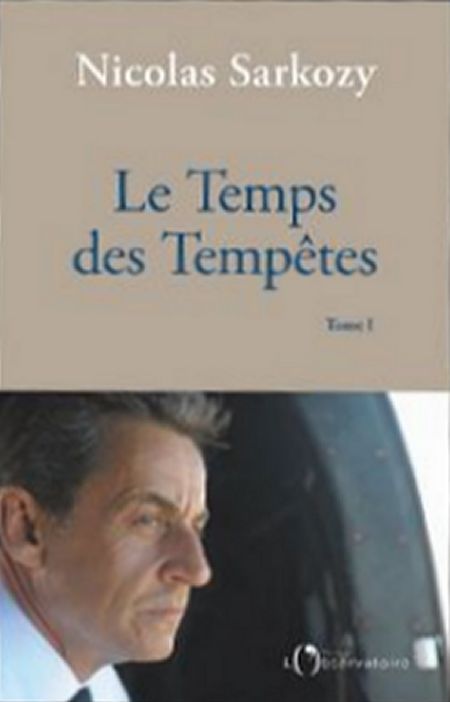 Il est de retour... en librairie. Un an après son best-seller Passions- il s'est vendu à plus de 200 000 exemplaires -,Nicolas Sarkozy revient sur le devant de la scène ce vendredi 24 juillet avec un nouvel ouvrage, Le Temps des tempêtes. Un grand coup médiatique, à 600 jours de la prochaine élection présidentielle. Il est de retour... en librairie. Un an après son best-seller Passions- il s'est vendu à plus de 200 000 exemplaires -,Nicolas Sarkozy revient sur le devant de la scène ce vendredi 24 juillet avec un nouvel ouvrage, Le Temps des tempêtes. Un grand coup médiatique, à 600 jours de la prochaine élection présidentielle.
Il se dédouane pourtant de toute ambition politique : « Je ne suis pas en campagne. Ça ne me manque pas ! » a-t-il déclaré au Figaro qui publiait les bonnes feuilles de ce nouvel ouvrage.
Dans cet opus de 522 pages, majoritairement écrites pendant le confinement, l'ancien président y retrace ses deux premières années à la tête du pays, mêlant Histoire et son histoire.
Histoire(s) de crises
Fidèle à son tempérament, Nicolas Sarkozy aborde ainsi plusieurs des épisodes forts de sa présidence en évoquant la manière dont lui, l’homme, et pas seulement le président, a vécu les événements. Il revient principalement sur son action à l'international.:
la crise financière sans précédent, la crise entre la Géorgie et la Russie ou la libération des otages - comme Ingrid Bétancourt - À propos de la libération d’Ingrid Betancourt notamment, l’ancien chef d’État se remémore l’admiration qu’il eut pour les voyages dantesques de l’émissaire envoyé dans la jungle colombienne.
L'occasion aussi de brosser de petits portraits ciselés à sa façon des différents leaders internationaux, qu'il a fréquentés dès son entrée à l'Elysée : Angela Merkel, Georges Bush - dont il fait un portrait plus flatteur qu'on ne l'imagine et qu'il a préféré finalement à Obama -, Vladimir Poutine, le Prince Charles, la reine d'Angleterre.... D’Angela Merkel, Nicolas Sarkozy retient surtout le courage, la détermination, la capacité de travail mais aussi la résilience, « à l’image de sa coiffure qui ne change jamais », s’amuse-t-il. Il dépeint aussi une chancelière gourmande qui préfère se priver des petits-déjeuners en chambre au profit des buffets mieux garnis...
Des règlements de compte avec ses rivaux
Mais pour la chroniqueuse politique Catherine Nay ce qui constitue « un agrément du livre » , ce sont les portraits que l'auteur dresse de certains de ses rivaux politiques, au vitriol. Des politiques français qu'il n'aime pas du tout comme Jean-Louis Debré, François Bayrou, Philippe de Villiers, Laurent Fabius, Dominique Strauss-Kahn et Alain Juppé. Premier visé et touché, le chiraquien Jean-Louis Debré. Leur détestation n'est un secret pour personne. « Il m'a toujours voué une haine tenace fondée sur une jalousie irrationnelle, mais assez fréquente chez cet homme. Sentiment au demeurant très étrange pour celui qui connut une carrière inespérée au regard de son peu d'intérêt pour les débats intellectuels ou programmatiques »
A propos de Daniel Cohn-Bendit, il dit « qu'il vivait dans sa bulle et n'était jamais confronté aux réalités du terrain ». De Dominique Strauss-Kahn, dont les ambitions présidentielles ont été emportées par l'affaire du Sofitel, alors qu'il présidait le Fonds monétaire international, Nicolas Sarkozy écrit : « Aujourd'hui, j'avoue ne plus trop savoir qui est ce DSK que j'ai propulsé à la tête du FMI.Si c'était à refaire, je ne le referais pas. »
Mais sa cible préférée reste François Bayrou, sur lequel il écrit deux pages et demie au vitriol : « Son tempérament profond le portait à une détestation de tous ceux qui avaient réussi là où il avait lui-même échoué. Emmanuel Macron en fera à son tour, avant la fin de son quinquennat, l'amère expérience. »Nicolas Sarkozy va jusqu'à comparer le maire de Pau à l'abbé Frollo, le trouble et pervers personnage de Notre-Dame de Paris qui prône la rigueur et la morale tout en pratiquant l'absolu contraire.
Quelques anecdotes personnelles
Au-delà de ces règlements de compte, l'ancien président consacre quelques pages à son divorce avec Cécilia, sa deuxième vie avec Carla Bruni, son mariage et la façon dont il a vécu ces épreuves personnelles. Dans ce livre tiré à 250 000 exemplaires, il amorce des mea-culpa lorsqu'il revient sur son célèbre « Casse toi pauvre c.. ». Il se reproche d'avoir été grossier, d'être tombé dans un « piège de débutant ». Mea culpa aussi lorsqu’il revient sur le discours de Dakar. En déplacement au Sénégal en juillet 2007, Nicolas Sarkozy avait choqué en évoquant un homme africain « pas encore entré dans l’histoire ». « C’était une erreur, comment le contester », écrit-il, treize ans plus tard.
Un livre sur l'exercice du pouvoir avant tout .
|
|
|
|
| Joanne Courbet pour DayNewsWorld |
 |
There are no translations available.
LES ANNONCES D'EMMANUEL MACRON CE 14 JUILLET 2020
|
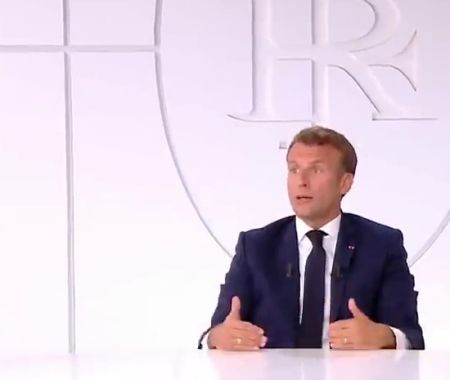 Le président de la République a précisé, lors d’un entretien, ce « nouveau chemin » qu’il entend désormais suivre, entre épidémie, crise économique et lutte pour le climat.Cent milliards d’euros de plan de relance, masque obligatoire dans les lieux publics clos, volonté d’inscrire la lutte pour le climat dans la Constitution : Le président de la République a précisé, lors d’un entretien, ce « nouveau chemin » qu’il entend désormais suivre, entre épidémie, crise économique et lutte pour le climat.Cent milliards d’euros de plan de relance, masque obligatoire dans les lieux publics clos, volonté d’inscrire la lutte pour le climat dans la Constitution :
Le chef de l’Etat était interrogé par Léa Salamé et Gilles Bouleau, pour son premier entretien en direct depuis sa conférence de presse du 25 avril 2019, après les manifestations des « gilets jaunes ».
Interrogé sur les raisons pour lesquelles il avait décidé de renouer avec l’exercice de la prise de parole présidentielle le 14-Juillet, Emmanuel Macron a expliqué que « le pays a été profondément bouleversé et traumatisé, ajoutant : « Je crois que ce 14-Juillet avait un tour particulier qui justifie cet échange. »
Une autocritique
Le chef de l'Etat a commencé par une autocritique sur sa manière de gouverner pendant ses trois premières années de pouvoir. « J'ai commis des erreurs », a-t-il déclaré, reconnaissant ne pas être parvenu à réduire les divisions qui fracturent la société. Rappelant avoir été élu « pour mener des réformes tambour battant », il a admis avoir donné l'impression aux Français qu'il réformait « malgré eux, comme pour adapter le pays à quelque chose (...) qui n'était pas juste ».
« Nous avons vécu une crise sociale avec les “gilets jaunes” qui a été la colère d’une partie du peuple français, qui (…) s’est dit : “Ce monde n’est pas fait pour nous. Les réformes qu’ils font, ce qu’ils nous demandent de faire n’est pas fait pour nous.” (…) Nous n’avons pas produit de résultats, on n’a pas été assez vite. »
Il a donc fait valoir sa volonté de passer par « davantage de dialogue social ».
Masque bientôt obligatoire « dans les lieux publics clos »
Questionné sur la reprise de l’épidémie en France, le président a reconnu que « nous avons des signes que ça repart quand même un peu » avant d’ajouter que « nous devons prévenir et nous préparer ». Il a rappelé l’importance de respecter les gestes barrières « J’ai demandé qu’on passe une étape au gouvernement et je souhaite que, dans les prochaines semaines, on rende obligatoire le masque dans tous les lieux publics clos. »
« Nous serons prêts » en cas de nouvelle vague épidémique, a-t-il assuré, précisant qu’il était opposé à un reconfinement généralisé du pays :
Le président a en effet assuré que le pays possédera assez de matériel médical, de tests, ou encore de médicaments en cas de seconde vague : « Nous avons à la fois les stocks et les approvisionnements qui sont sécurisés. »
Emmanuel Macron a dit vouloir permettre à tout Français de se faire tester, même sans prescription médicale. Si un vaccin contre le coronavirus était trouvé, « la France sera servie parmi les premiers pays », a déclaré le chef de l’Etat, alors que le groupe français Sanofi travaille à l’élaboration d’un vaccin contre le virus.
Un plan de relance d’« au moins 100 milliards »
Le plan de relance de l’économie française représentera « au moins 100 milliards d’euros », en plus des 460 milliards déjà engagés en mesures sectorielles et de soutien à l’économie depuis le début de l’épidémie, a annoncé Emmanuel Macron :
« On met avec ce plan de relance, en plus de cet argent déjà mis, au moins 100 milliards pour faire la relance industrielle, écologique, locale, culturelle et éducative. Je suis convaincu qu’on peut bâtir un pays différent d’ici à dix ans. »
Le chef de l’Etat assure qu’il fera tout pour éviter un « maximum de plans sociaux » grâce à « un plan de relance maximum ». Le président a dit avoir un « objectif à six mois » : « Tout faire pour éviter le maximum de plans sociaux, réduire leur importance avec les mesures d’urgence qu’on a pu prendre, (…) protéger. »Au-delà de la crise sanitaire, Emmanuel Macron a évoqué la situation économique et sociale.
Selon lui, il y aura « entre 800 000 et un million de chômeurs de plus à l'horizon du printemps 2021 ». Pour lutter contre cette « augmentation massive », le chef de l'Etat a estimé que la « jeunesse doit être la priorité ». Le chef de l'Etat a annoncé plusieurs mesures pour « ne pas perdre la bataille de l'apprentissage », et fustigé les entreprises « irresponsables » qui « préfèrent prendre des stagiaires plutôt qu'un contrat professionnel ou un alternant ».
Ainsi, un « dispositif exceptionnel d'exonération de charges » va être mis en place pour « un à deux ans » pour les jeunes gagnant jusqu'à 1,6 smic.
Pour accompagner les nouveaux diplômés notamment dont la recherche du premier emploi a été compliquée par la crise provoquée par le confinement, le président a également annoncé la création de 300 000 contrats d'insertion pour les jeunes les plus éloignés de l'emploi, un quasi doublement des effectifs du service civique avec 100 000 bénéficiaires supplémentaires par rapport aux 140 000 actuels, ainsi que 200 000 places dans des « formations qualifiantes supérieures ».
Gérald Darmanin défendu
Concernant la nomination de Gérald Darmanin, visé par une plainte pour viol, au ministère de l’intérieur, qui choque notamment les associations féministes, le chef de l’Etat a indiqué qu’il y a une « relation de confiance d’homme à homme », « d’un président de la République à un ministre nommé sur la réalité de ses faits », et s’est posé comme le garant des « principaux fondamentaux de notre démocratie » Emmanuel Macron a donc réitéré sa confiance envers le ministre, rappelant son droit à la présomption d'innocence.
« Je pense qu'aucune cause n'est défendue justement en bafouant les principes fondamentaux de notre démocratie », a-t-il asséné.
« Je le dis pour un ministre, comme je le dirais pour quelque citoyen que ce soit. Je suis aussi, de là où je me place, le garant de cette présomption d’innocence. »
La réforme des retraites : « Une réforme juste »
M. Macron a confirmé sa volonté de vouloir mettre en place la réforme des retraites :
« Je crois que cette réforme est juste. Il faut peut-être lui donner un peu plus de temps, mieux la concerter. (…) La retraite, c’est le patrimoine de ceux qui n’en ont pas (…). Nous devons regarder notre système de retraite en face. »
La lutte contre le réchauffement dans la Constitution
Emmanuel Macron veut inscrire « le plus vite possible » la lutte contre le réchauffement climatique dans la Constitution :
« La seule question sur laquelle il peut y avoir un référendum (…) est une réforme constitutionnelle, celle de l’article premier qui place l’objectif de lutte contre le réchauffement climatique, et aussi le respect de la biodiversité dans notre texte constitutionnel. (…) Je pense que c’est une avancée majeure. »Il est aussi question de « redévelopper le fret ferroviaire massivement » et de soutenir les trains de nuit et les petites lignes, « parce que tout ça, ça permet de faire des économies et de réduire nos émissions ».
Le président a rappelé son ambition de développer les primes à la conversion vers des véhicules moins polluants, ainsi qu’un plan pour « rénover massivement » les bâtiments. Avant d’évoquer la relocalisation de certaines industries en France, dans cette optique écologique :
« On peut redevenir une grande nation industrielle par l’écologie, parce qu’on ne va pas importer des matériaux de l’autre bout du monde, dont le bilan carbone est absolument abominable. On va re-produire dans nos régions parce que le numérique va nous permettre de produire de plus petites quantités, plus vite, grâce à l’impression 3D. »
Emmanuel Macron s'est dit « convaincu qu'on peut bâtir un pays différent en 10 ans ». « On doit trouver un chemin commun pour bâtir un nouveau modèle écologique, » a-t-il résumé.
|
|
|
|
| Alyson Braxton pour DayNewsWorld |
 |
There are no translations available.
LE GOUVERNEMENT CASTEX
DANS LA CONTINUITE
|
 Lundi, le secrétaire général de l’Elysée Alexis Kohler a dévoilé la composition du gouvernement Castex, avec une équipe de 16 ministres et 14 ministres délégués, et des secrétaires d’Etat qui suivront dans la semaine. Quasi trois quarts du casting choisi par Jean Castex faisait déjà partie du gouvernement d’Edouard Philippe si bien que l'on peut parler sans conteste de remaniement dans la continuité. Lundi, le secrétaire général de l’Elysée Alexis Kohler a dévoilé la composition du gouvernement Castex, avec une équipe de 16 ministres et 14 ministres délégués, et des secrétaires d’Etat qui suivront dans la semaine. Quasi trois quarts du casting choisi par Jean Castex faisait déjà partie du gouvernement d’Edouard Philippe si bien que l'on peut parler sans conteste de remaniement dans la continuité.
Face à la pandémie du coronavirus, Jean Castex s’appuie en effet sur une colonne vertébrale inchangée sur plusieurs portefeuilles stratégiques que sont la Santé, l' Economie, l'Education, les Affaires étrangères et les Armées. Gérald Darmanin, lui, succède à Christophe Castaner à l’Intérieur, tandis que la fidèle d’Emmanuel Macron Barbara Pompili s’installe à la Transition écologique. Enfin, la surprise du chef, c’est l’arrivée de la star du barreau Eric Dupond-Moretti à la Justice.
Ceux qui conservent leur poste
- Bruno Le Maire (Economie, Finances et désormais Relance)
- Jean-Yves Le Drian (Europe et Affaires étrangères)
- Florence Parly (Armées)
- Olivier Véran (Solidarités et Santé)
- Jean-Michel Blanquer (Education mais aussi Jeunesse et Sports, avec Roxana Maracineanu ministre déléguée aux Sports)
- Frédérique Vidal (Enseignement supérieure, Recherche et Innovation)
- Jean-Baptiste Djebbari (ministre délégué aux Transports, contre secrétaire d’Etat précédemment)
- Jacqueline Gourault (Cohésion des territoires)
Ceux qui changent de ministère
- Gérald Darmanin (Intérieur, en provenance des Comptes publics)
- Elisabeth Borne (Travail, Emploi et Insertion, qui arrive de la Transition écologique)
- Julien Denormandie (Agriculture et Alimentation, qui était en charge de la Ville et du Logement)
- Sébastien Lecornu (Outre-Mer et Territoires, en provenance des Collectivités territoriales)
- Annick Girardin (Mer)
- Marlène Schiappa (ministre déléguée chargée de la Citoyenneté, après l’Egalité entre les femmes et les hommes)
- Frank Riester (ministre délégué au Commerce extérieur et à l’Attractivité, en provenance de la Culture)
- Amélie de Montchalin (Transformation et Fonction publique, qui était secrétaire d’Etat aux Affaires européennes)
Les nouveaux
Il y a finalement peu de véritables nouvelles arrivées. La surprise, c’est la nomination d'une star du barreau Eric Dupond-Moretti à la Justice tandis que la fidèle d’Emmanuel Macron Barbara Pompili hérite de la Transition écologique et Roseline Bachelot de la Culture.
Le gouvernement Castex s’appuie sur dix ministres LREM, quatre étiquetés à gauche , une représentante de la droite et une du MoDem; Deux
fortes personnalités que sont Roselyne Bachelot à la Culture et Éric
Dupond-Moretti à la Justice. font leur entrée dans ce gouvernement qui
vont « capter la lumière, pendant un temps », selon le journaliste
Arnaud Boutet. Quant au reste du gouvernement, le président de la
République a joué à « un jeu de chaises musicales ».Avec Jean Castex,
ancien secrétaire de l’Elysée de Nicolas Sarkozy à la barre, Bruno Le
Maire confirmé à l’Economie et l’ex-lieutenant sarkozyste Gérald
Darmanin promu à l’Intérieur, le gouvernement penche plutôt à droite.
Emmanuel Macron fait ainsi le pari de la continuité avec un gouvernement de défense pour sortir de la crise du coronavirus. |
|
|
|
| Garett Skyport pour DayNewsWorld |
 |
There are no translations available.
LA FRANCE DOIT-ELLE S'EXCUSER
POUR SON PASSE COLONIAL EN ALGERIE ?
|
La France a fait un geste fort d'apaisement en matière de mémoire en restituant vendredi les restes de 24 combattants algériens tués au début de la colonisation française au XIXe siècle.Ces crânes étaient conservés depuis le XIXe siècle dans les collections du Muséum national d'Histoire naturelle de Paris.
Cette restitution offre une détente dans les relations entre l'Algérie et l'ancienne puissance coloniale, marquées depuis l'indépendance en 1962 par des polémiques récurrentes et des crispations. « Ce geste s'inscrit dans une démarche d'amitié et de lucidité sur toutes les blessures de notre histoire », a commenté vendredi l'Elysée.
Mais le président algérien demande un pas de plus dans l’apaisement. Abdelmadjid Tebboune a déclaré samedi attendre des excuses de la France pour la colonisation de l’Algérie. Il a surtout estimé que son homologue Emmanuel Macron était « quelqu’un de très honnête » susceptible de contribuer à ce climat d’apaisement.
« Des demi-excuses »
« On a déjà reçu des demi-excuses. Il faut faire un autre pas (…) On le souhaite », a-t-il demandé lors d’un entretien à la chaîne internationale France 24. « Cela va permettre d’apaiser le climat et le rendre plus serein pour des relations économiques, pour des relations culturelles, pour des relations de voisinage », a poursuivi le président en rappelant que plus de six millions d’Algériens vivent en France et qu’ils « peuvent emmener quelque chose là-bas et ici ».
Lors d’une visite à Alger en décembre 2017, le président français s’était engagé à restituer les restes humains algériens entreposés au Musée de l’Homme. La même année, mais avant son élection, il avait qualifié à Alger la colonisation de l’Algérie de « crime contre l’humanité ». La question mémorielle reste au cœur des relations volatiles entre la France et l’Algérie, où la perception est que la France ne fait pas assez pour solder son passé colonial.
Si la France peut se retourner sur son passé colonial mais surtout sur les atrocités de la guerre d'indépendance d'Algérie, les jeunes Français issus des anciennes colonies doivent-ils pour autant se considérer comme des victimes de ce passé ?
|
|
|
|
| Jenny Chase pour DayNewsWorld |
 |
There are no translations available.
LE COUT DES ANCIENS PRESIDENTS
A L'ETAT FRANCAIS EN 2019
|
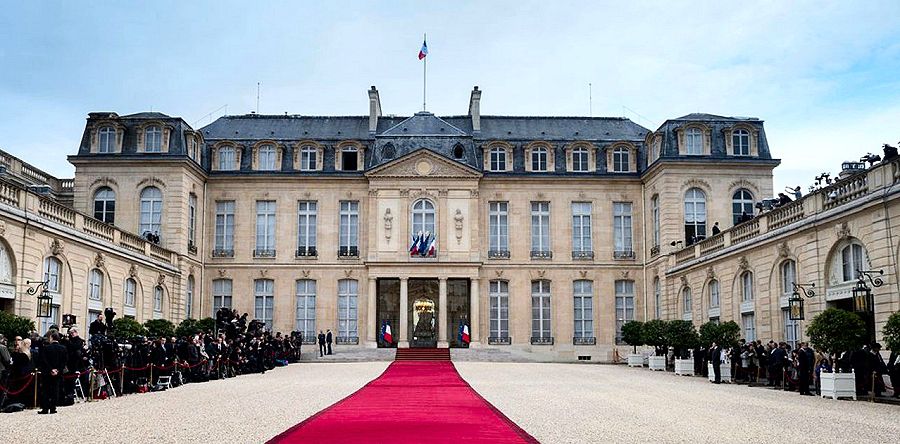 Des années après leur départ de l’Élysée, les anciens présidents conservent encore nombre d’avantages. Des années après leur départ de l’Élysée, les anciens présidents conservent encore nombre d’avantages.
D’après les informations du quotidien La Lettre A, les dépenses de Valéry Giscard d’Estaing, ont atteint 646 000 euros en 2019, en nette baisse depuis un an (-10 %).
866 000 euros ont été consacrés à Nicolas Sarkozy en 2019, soit une hausse de 4 % au regard de l’année précédente.
Cette somme comprend le loyer et l’équipement de ses bureaux du VIIIe arrondissement de Paris ( 295 000 euros par an), ainsi que les rémunérations de ses collaborateurs et agents de service, estimées à 570 000 euros.
François Hollande, quant à lui, est parvenu à réduire son budget de 6 %, en 2019, qui s’élève à 756 000 euros. L’ancien président socialiste a installé ses bureaux rue de Rivoli pour un loyer d'environ 250 000 euros.
Bien que les chiffres révélés par Matignon jeudi 2 juillet 2020 n’incluent ni la retraite, ni le salaire de leur chauffeur et les dépenses de sécurité, la baisse de l’ensemble de ces coûts devrait se poursuivre. En effet; le décret du 4 octobre 2016 correspondant au soutien matériel de l’État.
Il a été modifié, permettant ainsi une limite de trois collaborateurs et d’un agent de service au-delà des cinq années qui suivent la fin de leur mandat. |
|
|
|
| Andrew Preston pour DayNewsWorld |
 |
There are no translations available.
JEAN CASTEX
NOUVEAU PREMIER MINISTRE FRANCAIS
|
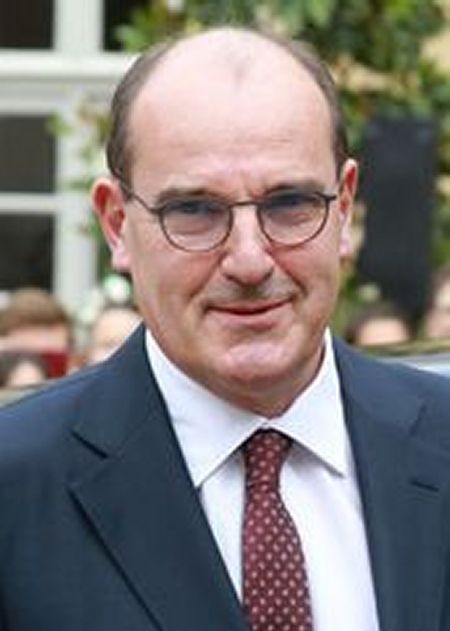 Après trois ans en fonction, Édouard Philippe a quitté le gouvernement ce vendredi 3 juillet. Emmanuel Macron a nommé pour le remplacer son « M. Déconfinement », Jean Castex. Haut fonctionnaire, cet énarque de 55 ans, ancien secrétaire général adjoint de l’Élysée sous Sarkozy, est aussi un élu local, maire LR de Prades (petite bourgade des Pyrénées-Orientales), qui incarne une droite sociale. Après trois ans en fonction, Édouard Philippe a quitté le gouvernement ce vendredi 3 juillet. Emmanuel Macron a nommé pour le remplacer son « M. Déconfinement », Jean Castex. Haut fonctionnaire, cet énarque de 55 ans, ancien secrétaire général adjoint de l’Élysée sous Sarkozy, est aussi un élu local, maire LR de Prades (petite bourgade des Pyrénées-Orientales), qui incarne une droite sociale.
Un élu de terrain
Il est maire depuis2008 de la commune de Prades avec ses 6 000 et quelques habitants .Au premier tour des municipales de 2020, qui se sont déroulées le 15 mars dernier, il a d’ailleurs été réélu avec 75% des voix.
Un véritable plébiscite. Il est également conseiller régional et départemental dans le Languedoc-Roussillon. Il s’était présenté aux législatives de 2012, mais avait été battu par la candidate socialiste.
Un sarkozyste remplace un juppéiste à Matignon. Profondément ancré à droite, Jean Castex a longtemps soutenu François Fillon, notamment aux dernières primaires en 2016. Sa carrière, il la doit à un autre ponte de l'ancienne UMP : Xavier Bertrand. En 2004, alors qu’il est ministre de la Santé de Jacques Chirac, ce dernier nomme Jean Castex directeur de l'hospitalisation et de l'organisation des soins, avant d'en faire son directeur de cabinet. Un poste qu’il occupera ensuite au ministère du Travail jusqu’en 2008. En 2010, il est appelé par Nicolas Sarkozy à l’Élysée pour remplacer Raymond Soubie au poste de conseiller social. En 2011, Castex est même promu secrétaire général adjoint de l’Élysée.
Une nomination dans l'air du temps
La nomination de l'élu de Prades est dans l'air du temps. La crise sanitaire a révélé les faiblesses d'une France trop jacobine, trop « verticale » et bureaucratique, nommer un homme de terrain s'imposait. Mais en désignant Jean Castex, proche d’Édouard Philippe à bien des égards, Emmanuel Macron mise sur la continuité confirmant qu’il entend mener une politique plus à droite qu'à gauche. Lors de la passation des pouvoirs, vendredi dans la cour de l’Hôtel Matignon, le nouveau premier ministre a d'ailleurs revendiqué une « communauté de valeurs » avec Edouard Philippe, « ces valeurs démocratiques et républicaines ». En esquissant la suite, il a jugé qu’en raison de la crise sanitaire « les priorités devront évoluer, les méthodes devront donc être adaptées ». « Il nous faudra plus que jamais réunir la nation » pour poursuivre les réformes déjà engagées afin « que nous en [sortions] plus forts et plus solidaires ».
Le nouveau chemin pour les deux dernières années du quinquennat n’est pas un changement de cap, mais la redéfinition de grandes priorités dictées par les circonstances. Il s’agira d’investir massivement pour relancer l’économie, accélérer la transition écologique, sauver les emplois en ayant non moins massivement recours à l’endettement.
La composition du nouveau gouvernement pourrait rééquilibrer peut-être la balance vers le centre..
|
|
|
|
| Garett Skyport pour DayNewsWorld |
 |
There are no translations available.
UN REMANIEMENT DU GOUVERNEMENT FRANCAIS IMMINENT
|
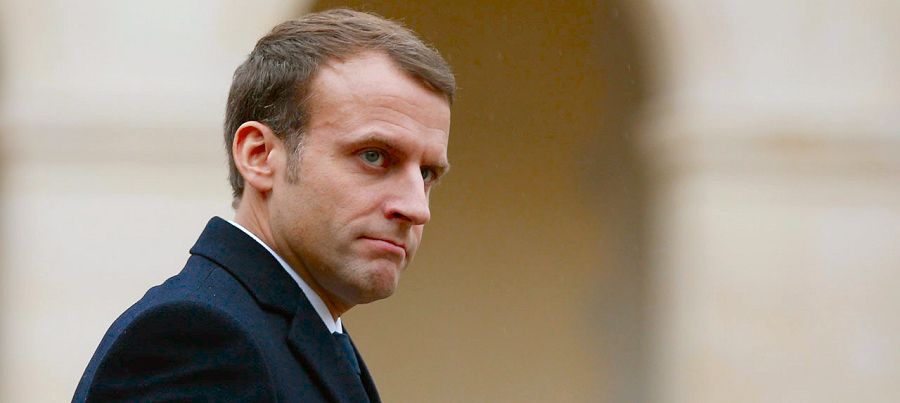 Le paysage politique français va être modifié prochainement au lendemain d'une « vague verte » dans les grandes villes lors des élections municipales: le remaniement gouvernemental interviendra avant le mercredi 8 juillet. Le dernier Conseil des ministres de l'équipe actuelle aura lieu ce vendredi 3 juillet. Le paysage politique français va être modifié prochainement au lendemain d'une « vague verte » dans les grandes villes lors des élections municipales: le remaniement gouvernemental interviendra avant le mercredi 8 juillet. Le dernier Conseil des ministres de l'équipe actuelle aura lieu ce vendredi 3 juillet.
Il s'agit en effet pour Emmanuel Macron d'amorcer la dernière ligne droite de son quinquennat en donnant un nouveau souffle à son gouvernement, plus axé sur l'écologie.
Comme le veut l'usage, l'actuel Premier ministre Édouard Philippe va remettre la démission de son gouvernement, ce qui n'empêche pas Emmanuel Macron de pouvoir renouveler sa confiance au maire du Havre. Si par contre Édouard Philippe n'est pas reconduit, Jean-Yves Le Drian, actuel ministre des Affaires étrangères ou Florence Parly, ministre de la Défense, pourraient faire partie des potentiels candidats au poste. Édith Cresson, sous François Mitterrand, avait été le première femme à occuper ce poste mais aussi la dernière. Nommer une femme serait un geste symbolique puissant pour le président. En mars 2017, Emmanuel Macron, alors en campagne, avait évoqué cette possibilité : « Je ne vais pas choisir un Premier ministre parce que c’est une femme. Je choisirai le Premier ministre le plus compétent, le plus capable, avec le souhait et la volonté que ce soit une femme. »
Christophe Castaner, fragilisé à son poste de ministre de l'Intérieur, pourrait hériter d'un autre maroquin tandis que .Nicole Belloubet tout comme Franck Riester à la culture ne seraient pas reconduits. L'avenir est aussi incertain pour Muriel Pénicaud au Travail, Christelle Dubos, aux Solidarités, Geneviève Darrieusecq aux Anciens combattants ou Frédérique Vidal à l'Enseignement supérieur, la Recherche et l'Innovation.
Pierre angulaire des deux dernières années du quinquennat, l'écologie pourrait également changer de visage pour s'incarner en Laurence Tubiana, qui gère la Convention citoyenne pour le climat . Les membres du parti écologiste Europe Écologie-Les Verts ont d'ores et déjà annoncé qu'ils refuseraient de participer au nouveau gouvernement.
Après avoir perdu la majorité absolue à l'Assemblée nationale, le président de la République va en effet devoir récompenser ses alliés du MoDem et d'Agir, qui lui permettent de garder un poids important au Parlement. Emmanuel Macron se retrouve ainsi face à un casse-tête.
|
|
|
|
| Jenny Chase pour DayNewsWorld |
 |
There are no translations available.
CONDAMNATION SEVERE DU COUPLE FILLON DANS L'AFFAIRE DES EMPLOIS FICTIFS
|
C'est dans un climat tendu après les révélations de la juge Eliane Houlette- qui a récemment fait état de « pressions » procédurales de sa hiérarchie pendant l’enquête- que le tribunal correctionnel de Paris a rendu son jugement le 29 juin 2020. François Fillon, son épouse, Penelope, et son ancien assistant parlementaire Marc Joulaud ont été reconnus coupables, lundi 29 juin, de détournements de fonds publics, complicité et recel.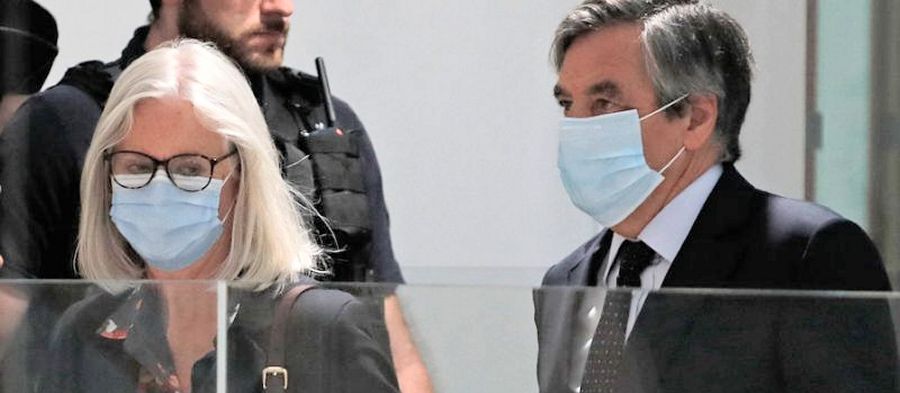
L’ancien premier ministre a été condamné à une peine de cinq ans d’emprisonnement, dont deux ferme, 375 000 euros d’amende et une peine d’inéligibilité de dix ans. En faisant « prévaloir son intérêt personnel sur l’intérêt commun » dans un but d’« enrichissement personnel », François Fillon, 66 ans, « a contribué à éroder la confiance » des citoyens, a souligné la présidente du tribunal, Nathalie Gavarino.
Penelope Fillon est condamnée à trois ans de prison avec sursis, 375 000 euros et deux ans d’inéligibilité. Entre 1998 et 2013, la discrète Galloise de 64 ans a perçu au total 613.000 euros net au titre de trois contrats d’assistante parlementaire.Pour le tribunal, ses contrats n’avaient « aucune consistance » et ne répondaient à « aucun besoin ».
Marc Joulaud, maire sortant de Sablé-sur-Sarthe, battu dimanche soir aux élections municipales mais élu au conseil municipal, a quant à lui été condamné à trois ans d’emprisonnement avec sursis, 20 000 euros d’amende avec sursis et cinq ans d’inéligibilité.
L’ancien premier ministre et son épouse font appel de cette condamnation. « Cette décision, qui n’est pas juste, va être frappée d’appel (…), il y aura un nouveau procès », a ainsi annoncé devant la presse Antonin Lévy, conseil de M. Fillon. L’avocat de Penelope Fillon, Pierre Cornut-Gentille, a, lui, dénoncé une peine « sévère ».
« Il y aura un nouveau procès, c’est d’autant plus nécessaire que, depuis quelques jours, on commence enfin à comprendre ce que nous pressentons depuis 2017, les conditions ubuesques dans lesquelles cette enquête s’est déclenchée, les conditions scandaleuses dans lesquelles cette instruction a été ouverte, les conditions surprenantes dans lesquelles les investigations ont ensuite été conduites », a affirmé M. Lévy.
Cette affaire aux multiples rebondissements avait stoppé net la course en tête pour la présidentielle de François Fillon, le candidat de droite, parti favori dans les sondages, faussant l'élection présidentielle.
|
|
|
|
| Jaimie Potts pour DayNewsWorld |
 |
There are no translations available.
VAGUE VERTE ET DEBACLE DE LREM
AU DEUXIÈME TOUR DES MUNICIPALES
|
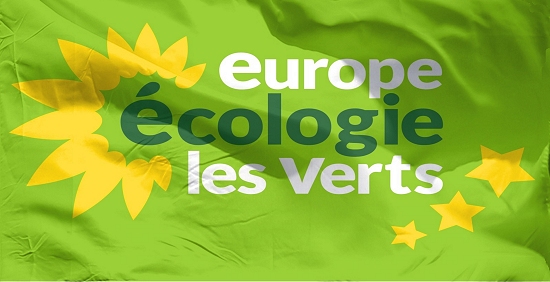 Le scrutin a eu lieu dans 4.827 communes où les conseils municipaux n'avaient pas été élus au complet au premier tour, et quelque 16,5 millions d'électeurs étaient appelés aux urnes, soit environ 39 % du corps électoral. Les résultats avaient été acquis dès le premier tour, le 15 mars, dans 30.143 communes. Le scrutin a eu lieu dans 4.827 communes où les conseils municipaux n'avaient pas été élus au complet au premier tour, et quelque 16,5 millions d'électeurs étaient appelés aux urnes, soit environ 39 % du corps électoral. Les résultats avaient été acquis dès le premier tour, le 15 mars, dans 30.143 communes.
Dans cette élection municipales, les écologistes apparaissent comme les grands vainqueurs dans les métropoles françaises alors que le parti présidentiel a subi un lourd revers électoral sous fond d''abstention record.
Une abstention record :
Parmi les 16,5 millions d'électeurs appelés à voter, ils sont nombreux à avoir boudé le scrutin. Le taux de participation s'établit entre 40 % et 41 %, selon les estimations, contre 62,1 % en 2014. Cette abstention historique s'inscrit certes dans le contexte de crise sanitaire liée à l'épidémie de coronavirus, qui a freiné les électeurs, mais aussi d'une lassitude des Français face à la politique.
Percée historique des écologistes
Les écologistes ont été les grands gagnants de ce scrutin, engrangeant une série de victoires dimanche, avec notamment la conquête de Lyon, Montpellier, Bordeaux ou Strasbourg.
Si EELV a dû se contenter du rôle du lieutenant à Paris, derrière la socialiste réélue Anne Hidalgo, mais aussi à Nantes ou à Rennes, et que le parti a perdu d'un cheveu à Lille, ce sont bien des majorités écologistes qui s'emparent, ce 28 juin, de deux grandes métropoles, Lyon et Bordeaux, qui viennent s'ajouter à Grenoble, où le maire sortant Eric Piolle a été largement réélu. Les
écologistes remportent ainsi une large victoire à Lyon, où Grégory Doucet, à
la tête d'une coalition EELV-PS-PCF-LFI, arrive en tête, devant Yann
Cucherat, poulain du maire sortant Gérard Collomb.
A Bordeaux, ils
mettent fin à 73 ans de domination de la droite avec la victoire de
l'écologiste Pierre Hurmic devant le maire sortant LR Nicolas
Florian .« J'ai beaucoup de tristesse je n’ai rien à dire sur la
stratégie, c’est la démocratie » a réagi Alain Juppé, ému, en sortant du
palais Rohan. « Il y a une vague verte », a constaté lui-même l’ancien
maire emblématique de Bordeaux.
Ils arrachent aussi Marseille grâce à Michèle Rubirola, à la tête d'une coalition de gauche, devant la candidate LR Martine Vassal et le candidat RN Stéphane Ravier, mettant fin à l'ère Gaudin.D'autres
villes, et non des moindres, tombent également dans l'escarcelle des Verts dont. Strasbourg , Tours, Poitiers, Besançon, Annecy.
Débâcle de LREM
Par contre le second tour des municipales a tourné à la déroute pour la macronie.
Les candidats LREM, ou les maires sortants soutenus par la majorité, ont été balayés, comme à Strasbourg ou Bordeaux tandis que Lyon est devenu le tombeau du macronisme.
A Paris qui avait plébiscité Emmanuel Macron à la présidentielle, Agnès
Buzyn, la candidate de La République En Marche, a essuyé un sérieux
revers. Comme au premier tour, ses listes sont arrivées loin derrière
celles d'Anne Hidalgo et de Rachida Dati (Les Républicains), mais avec
un score plus faible que le 15 mars (entre 13,7 et 16 %, selon les
estimations). Son résultat dans le XVIIe arrondissement, où elle était
tête de liste (13,02 %), ne lui permet pas non plus de devenir
conseillère de Paris . Il en est de même pour Cédric Villani, le candidat dissident macroniste, qui ne siégera pas même au Conseil de Paris n'arrivant que troisième dans le XIVe arrondissement. A Paris toujours, les deux femmes au gouvernement, soutiens de la Marcheuse Agnès Buzyn, ne parviennent pas non plus à devenir conseillères d'arrondissement. Dans le 14e, Marlène Schiappa, ex-conseillère municipale du Mans (Sarthe), deuxième sur la liste, voit sa candidature plonger à la quatrième place. Dans le 16e, Agnès Pannier-Runacher, septième sur la liste des Marcheurs, est battue (23,8%) à plate couture par Francis Szpiner (76,2%). A la défaite des candidats macronistes à Paris s'ajoute celle du secrétaire d'Etat Gabriel Attal à Vanves (Hauts-de-Seine), deuxième sur la liste des Marcheurs,qui voit sa candidature arriver en troisième position (19,9%). La victoire d’Europe Ecologie-Les Verts dans plusieurs grandes villes est un sérieux camouflet pour le président Macron dont le parti n'a pas su s'implanter localement après quatre ans au pouvoir. « C’est à la fois une victoire de la gauche unie, et une victoire de l’écologie, que tout le monde va désormais essayer de s’approprier. C’est maintenant que commence la guerre pour l’appropriation de l’écologie, et pour savoir qui est “le plus écologiste” », analyse la sociologue Vanessa Jérôme, spécialiste de l'écologie politique en France.
|
|
|
|
| Garett Skyport pour DayNewsWorld |
 |
There are no translations available.
QUAND EMMANUEL MACRON PORTERAIT ATTEINTE A LA SEPARATION DES POUVOIRS
|
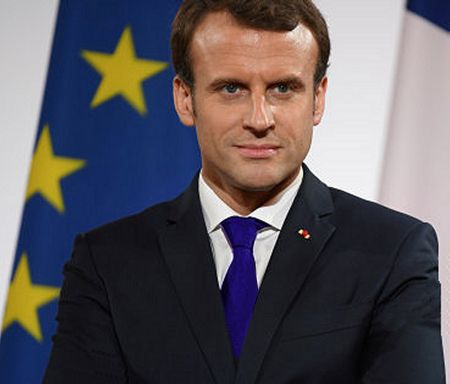 Alors que le débat sur l’indépendance de la justice a été relancé par des « soupçons » de pression dans l’affaire Fillon, l’exécutif a été accusé mardi d’attenter à la séparation des pouvoirs après la mise au jour d’une note d’Emmanuel Macron dédouanant son bras droit Alexis Kohler alors qu’il était visé en 2019 par une enquête pour prise illégale d’intérêt . Alors que le débat sur l’indépendance de la justice a été relancé par des « soupçons » de pression dans l’affaire Fillon, l’exécutif a été accusé mardi d’attenter à la séparation des pouvoirs après la mise au jour d’une note d’Emmanuel Macron dédouanant son bras droit Alexis Kohler alors qu’il était visé en 2019 par une enquête pour prise illégale d’intérêt .
L’an dernier, le président Macron a en effet transmis une lettre aux enquêteurs qui s’intéressait à Alexis Kohler, secrétaire général de l’Elysée, soupçonné de prise illégale d’intérêts. Une atteinte à la séparation des pouvoirs
L’exécutif a été accusé mardi d’attenter à la séparation des pouvoirs après la mise au jour d’une note d’Emmanuel Macron dédouanant son bras droit Alexis Kohler alors qu’il était visé en 2019 par une enquête pour prise illégale d’intérêt.
Dans cette attestation, dont l’association anti-corruption Anticor a récemment fait état et qui a été publiée mardi par Mediapart, le chef de l’Etat assure que M. Kohler n’est jamais intervenu, au moment où il était son directeur de cabinet à Bercy, dans des dossiers liés à l’armateur italo-suisse MSC avec lequel il entretenait d’étroits liens professionnels et familiaux.
La conclusion de Mediapart est sans détour : l’affaire Kohler a été classée sans suite après intervention d’Emmanuel Macron.
C’est parce qu’Alexis Kohler était soupçonné d’avoir dissimulé ces liens devant la commission de déontologie que le parquet national financier (PNF) avait ouvert une enquête le 4 juin 2018 pour prise illégale d’intérêts. Cette enquête avait été finalement classée sans suite en août 2019 peu après que la note du chef de l’Etat, adressée initialement à Alexis Kohler, a été envoyée par l’avocat de ce dernier au PNF.
Pour expliquer l’abandon des poursuites, les magistrats avaient alors assuré ne pas avoir pu « caractériser les infractions initialement suspectées » et l'affaire avait été classée sans suite. Mécontent du classement sans suite, Anticor a récemment tenté de relancer l’enquête visant M. Kohler en déposant une plainte avec constitution de partie civile.
Le président de la République est pourtant censé être garant de l’indépendance de l’autorité judiciaire ...
|
|
|
|
| Garett Skyport pour DayNewsWorld |
 |
THE EXPLOSION OF THE LREM PARTY
|
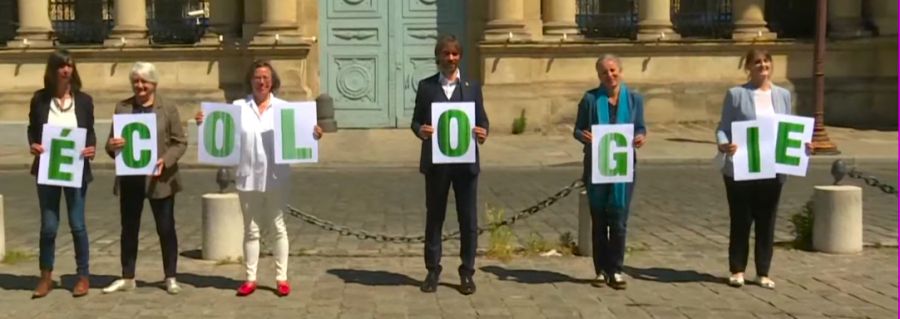
Hard blow for the party of Emmanuel Macron. A ninth political group with "walkers" and ex "walkers" was "officially deposited" in the National Assembly on Tuesday, May 19, announced founding members. The Republic on the march (LREM) thus loses the absolute majority.
Called "Ecology Democracy Solidarity", this new group is "independent", "neither in the majority nor in the opposition", write in their political declaration the elected officials. Are notably in this group Matthieu Orphelin (close to Nicolas Hulot) or Cédric Villani or Aurélien Taché, who said on Sunday that he was leaving the presidential party.
The new group intends to contribute to "a strong ambition for social and ecological transformation".
"Responding to the ecological emergency, modernizing democracy, reducing social and territorial inequalities: we can do more and better in the National Assembly", say these deputies, for whom "after Covid-19, nothing should be left like before ".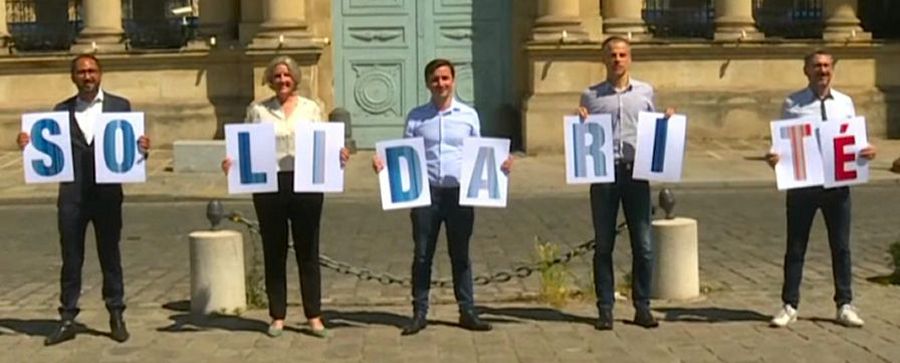
With this ninth group, the La République en Marche group lost seven of its members or related parties and therefore had 288 elected representatives, just below the threshold of an absolute majority (289 seats) which it had previously held alone.
A strong symbol, even if the presidential camp can rely on the 46 MoDem and the ten elected officials Agir.
|
|
|
|
| Alyson Braxton for DayNewsWorld |
 |
CORONAVIRUS SIXTY-THREE COMPLAINTS AGAINST MEMBERS OF GOVERNMENT | 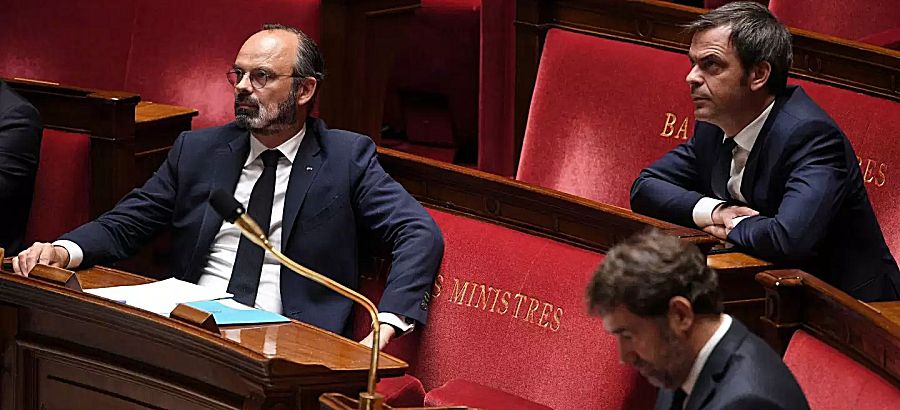
Sixty-three complaints against members of the government have been filed so far with the Court of Justice of the Republic to denounce their management of the crisis coronavirus, according to a tally announced Tuesday by Attorney General Francois Molins on RTL.
"There are exactly 63 complaints that have been filed with the CJR this evening," the only body empowered to judge acts committed by members of the government in their functions, said the attorney general at the Court of Cassation.
These complaints are currently being examined by the requests commission of the CJR, "which acts as a filter and will have to assess for itself the follow-up to be given to these 63 complaints". This commission, composed of ten high-ranking magistrates, can "decide either the classification without any follow-up or the transmission to the public prosecutor who would then be required to seize the commission of instruction which will act finally as an examining magistrate", a -he explains.
Members of government targeted
These complaints most often concern the Prime Minister, Edouard Philippe, the two successive health ministers, Agnès Buzyn and Olivier Véran, as well as their justice counterparts, Nicole Belloubet, du travail, Muriel Pénicaud, and de interior, Christophe Castaner. "These complaints can come from very different horizons (...) from private individuals, unions, associations, doctors ... There are a few cases, with complaints on one page absolutely not motivated and others more detailed and more referenced, about twenty pages, "detailed the attorney general.
Doctors, unions, detainees among the complainants
Among the complainants are a collective of doctors and unions, such as the prison CGT or Vigi-Police. At least fifteen complaints have been made by detainees, according to a judicial source.
In parallel, dozens of complaints from individuals, groups or elected officials are being examined by the public health department of the Paris public prosecutor's office, either against X or against officials of the administration, in particular the Director General of Health. Jérôme Salomon.
"Manslaughter"
The complainants denounce, as the case may be, facts of "endangering the life of others", "manslaughter", "failure to assist a person in danger" or failure to take timely action to contain the epidemic .
The Paris public prosecutor's office must soon rule on their classification without action or on possible openings of judicial inquiries.
The Head of State, Emmanuel Macron, is criminally irresponsible for acts carried out in the exercise of his functions.
|
|
|
|
| Boby Dean for DayNewsWorld |
 |
ELECTION OF MAYORS BY MUNICIPAL COUNCILS ELECTED ON THE FIRST ROUND IN FRANCE
|
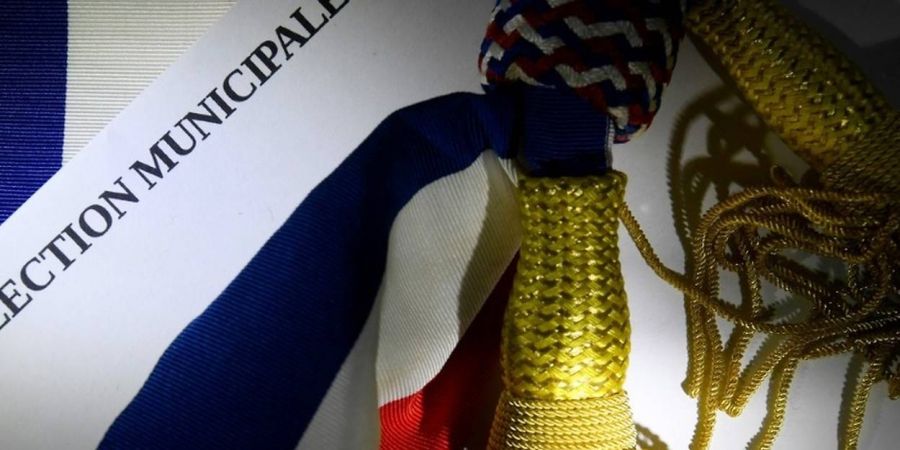
According to a government report to Parliament dated this Tuesday, May 12, 2020, the executive gave the green light to the installation advice municipal officials in the first round of municipal elections.
Édouard Philippe announced that they will take office on Monday, May 18.
After two months of waiting, the 431,739 municipal councilors elected in the first round on March 15, 2020 will officially take office on Monday, via a decree issued on Friday.
Between 23 and 28 May 2020, they will be able to elect the mayor and his deputies in 30,139 municipalities, out of around 35,000 in total.
An ordinance presented Wednesday in the Council of Ministers will detail the strict sanitary modalities recommended for the meeting of the municipal councils by the scientific council, guaranteeing in particular the respect of physical distancing. Elected officials will thus be able to meet outside the town hall in the event of a room that is too small.
Each municipal councilor may hold two proxies, and the quorum will be set at one third of the council's staff.
By May 23, the scientific council must give another opinion on the state of the epidemic and the possibility of organizing the second round and in the approximately 5,000 remaining municipalities. |
|
|
|
| Jenny Chase for DayNewsWorld |
 |
POLICY ON THE EVENT OF THE CORONAVIRUS PANDEMIC
|
From the start of the crisis, on March 16, Emmanuel Macron urged politicians to unite in the fight against the coronavirus, urging "all political actors [...] to join this national unity", far from internal quarrels . This call to "build another project in harmony [...] with all the components of our nation", the President of the Republic reiterated during his speech on April 11.
Lack of " national unity" in the war against the coronavirus
However, the maintenance of the first round of municipal elections in full coronavirus was immediately subject to controversy. In the midst of a pandemic and when confinement was to be announced the day after the election, would it not have been wiser to postpone it?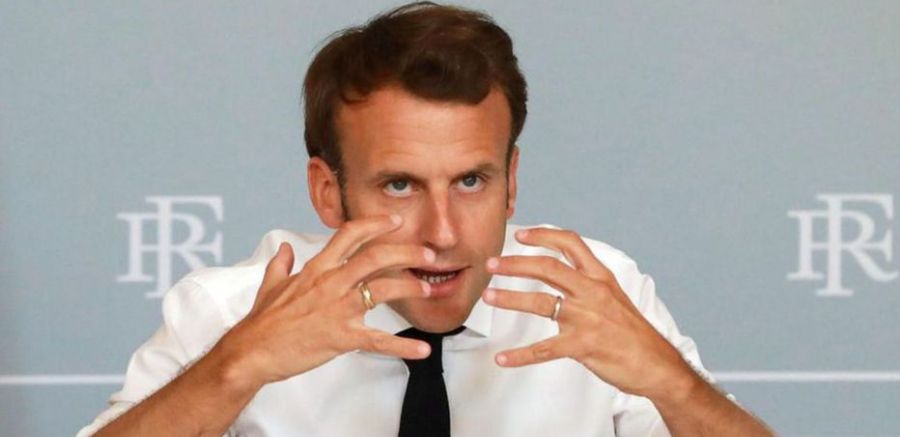
“National unity cannot be achieved on the back of the French. This is why we continue to denounce the government's lies ”, summarizes the deputy RN for the North Sébastien Chenu. Even if the government tried to be as "transparent" as possible in its management of the health crisis, it was not immune to some lies that the opposition did not fail to emphasize .
So the wearing of the mask supposedly useless at the start to become mandatory today in public transport. Wasn't this lie supposed to hide the negligence of an executive ill-prepared to manage the crisis? The same was true for the shortage of tests when other European countries such as Germany were able to launch an extensive population screening from the start of the pandemic.
The former Minister of Health Roselyne Bachelot, accused of having over-reacted to the H1N1 flu by ordering more than 90 million vaccines, has not failed to take revenge. She defended the precautionary principle. "I was mocked but I am convinced, and the evidence proves it, that the theory of preparation, of maximum preparation, is the right one," she said.
Even the text on the “state of health emergency” is criticized by some opponents. The senatorial right has also announced that it will seize the Constitutional Council on the law of extension of this state of emergency and provides for a commission of inquiry on the health crisis in June.
The most severe crisis of confidence in European countries
While the executive multiplies the media interventions to try to eradicate the distrust of a part of the French, the confidence in the government to face the epidemic knows a drop in most of the polls. It is thus only 39%, according to an Ifop poll published Sunday, May 3, down 16 points compared to mid-March.
This distrust is based on a “feeling of deception” according to Frédéric Dabi, deputy director general of Ifop, evoking the government's hesitations on masks or screenings. France is also the European country most affected by this distrust. According to an Ipsos / Sopra Steria survey for Cevipof published on May 4, 62% of respondents in France say they are "dissatisfied" with government action compared to 26% in Germany, 39% in the United Kingdom, and 45% in Italy.
A group of caregivers has also filed a complaint against the Prime Minister and the former Minister of Health accusing them of having "refrained" from taking timely measures to stem the epidemic of coronavirus. "Agnès Buzyn told us wastes two decisive months "For Thierry Amouroux, spokesperson for the SNPI Professional Nursing Union, the shortage of masks is a" state scandal ". Complaints from associations have also been filed against Édouard Philippe, Olivier Véran or Agnès Buzyn for acts of "endangering the life of others", or "involuntary manslaughter" by associations at the Court of Justice of the Republic.
The weight of medicine in political decision-making
From the start of the pandemic Emmanuel Macron advocated "confidence in science" making decisions after consulting scientists. To do this, he set up on March 11 a scientific council made up of epidemic specialists and on March 24 a committee of researchers this time to work on treatments and screening.
“We are always listening to what scientists tell us. In the end, these are decisions that are not very political, they do not come under a doctrine or an ideology ”, explained about the wearing of the mask the Minister of Health, Olivier Véran, on April 30 on LCI. Major decisions such as the maintenance of municipal elections, the closing of schools and even confinement were based on medical expertise. But the political decision prevailed over medical expertise for the reopening of schools announced despite the contrary advice from doctors.
Debt explosion
While the executive has so far defended tooth and nail its liberal economic policy and advocated a drastic reduction in public debt, the pandemic has led it to take decisions contrary to its doctrine. In fact, to support the severely slower economy, the government has drawn aid for businesses and a partial unemployment plan. The 2020 budget has been corrected, up 110 billion euros on the expenditure side, including 24 to finance short-time working and 20 to recapitalize strategic businesses in difficulty. Enough to jump the debt, which should drop to 115% of GDP this year (+ 16 points), but not the politicians. Even the right, traditionally attached to the reduction of public spending, has approved this increase in debt.
A change in economic doctrine facilitated by the abandonment of the rules of budgetary discipline by the European Commission |
|
|
|
| Joanne Courbet for DayNewsWorld |
 |
WHY A LIMITING HEALTH EMERGENCY
INDIVIDUAL FREEDOMS | | Number of French people still take liberties with all the prohibitions set out. We have never seen so many joggers in the streets. In the markets, there are people and the safety distances of one meter are not necessarily always respected
The government therefore presented to the Council of Ministers on Wednesday an emergency bill providing for exceptional measures to fight against the coronavirus pandemic. And in particular a state of health emergency, limiting individual freedoms.
The Senate began, Thursday, March 19, 2020 in the late afternoon, the examination of the "emergency bill to deal with the Covid-19 epidemic" which will enshrine in our law a new legal regime d exception: "state of health emergency".
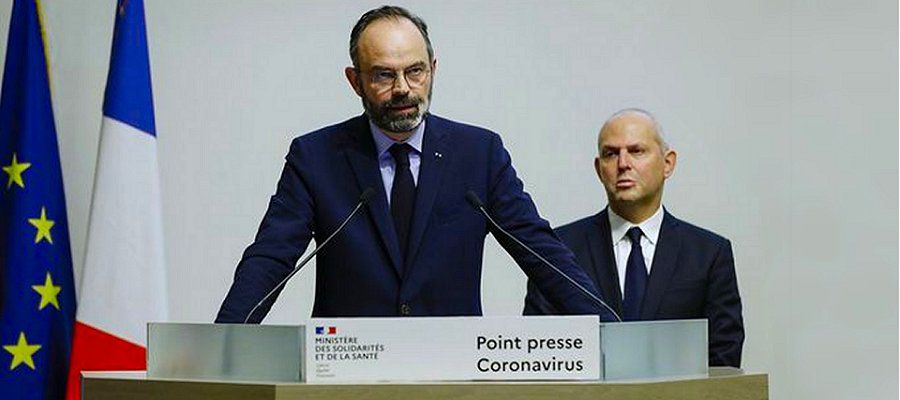 The government has indeed presented Wednesday, March 18 in the Council of Ministers a bill, establishing in particular the possibility of a "state of health emergency", on the model of the state of emergency activated after the attacks of 2015. The government has indeed presented Wednesday, March 18 in the Council of Ministers a bill, establishing in particular the possibility of a "state of health emergency", on the model of the state of emergency activated after the attacks of 2015.
"We found it necessary to incorporate into the law the lessons of crisis management for three months," said Prime Minister Edouard Philippe after the Council of Ministers. If he confirmed that this state of health emergency was inspired by "the law of April 3, 1955 relating to the state of emergency", according to him the comparison stops there. It is not a question of taking "individual measures restricting freedom", but "general measures to face the epidemic which would become generalized". "To underline the sanitary nature of this new regime, we have not registered the new device in the law of 1955 but in the code of public health", added Edouard Philippe. So what is this state of emergency ?
State of health emergency
Article 5 of the bill specifies that “the state of health emergency can be declared on all or part of the metropolitan territory, of the departments of overseas, of the communities of overseas governed by article 74 of the Constitution in the event of health catastrophe, in particular of epidemic involving by its nature and its gravity, the health of the population ”. "The state of health emergency is declared by decree in the Council of Ministers", indicates article 6. The decree "determines the territorial district (s) within which it comes into force. Within the limits of these districts, the zones where the state of health emergency is applied are fixed by decree taken on the report of the same minister. "
These provisions essentially reproduce those already permitted, in other words, by the public health code, and more precisely its article L3131-1. An article which specifies that "in the event of a serious health threat calling for emergency measures, in particular in the event of the threat of an epidemic, the Minister responsible for health may, by reasoned order, prescribe in the interest of public health any measure proportionate to the risks run and appropriate to the circumstances of time and place in order to prevent and limit the consequences of possible threats to the health of the population ”.
The decree adopted by the Council of Ministers establishes a state of health emergency for a period of twelve days. Beyond that, the extension of the state of emergency can only be authorized by law
Restrictions
According to Article 10, "the declaration of a state of health emergency gives the Prime Minister the power to take by decree (...) the general measures limiting the freedom to come and go, the freedom to undertake and the freedom of assembly and making it possible to requisition all goods and services necessary in order to fight against the health catastrophe ”. Article 11 indicates the powers given to the Minister of Health, namely "to prescribe by reasoned order all other general measures and individual measures to combat the disaster".
Punishments
Article 15 of the bill specifies that "violation of prohibitions or failure to fulfill obligations" will be punished with "the fine provided for fines of the fourth class" (135 euros). "Failure to comply with the requisitions mentioned in article 10 (restrictions on freedom, editor's note) is punishable by six months' imprisonment and a fine of 10,000 euros".
Safeguards
Article 9 indicates that “the National Assembly and the Senate are informed without delay of the measures taken by the Government during the state of health emergency. The National Assembly and the Senate may request any additional information in the context of the control and evaluation of these measures. "
A scientific committee may also hold the government to account. Thus, according to article 13, “in the event of declaration of a state of health emergency , a committee of scientists is immediately assembled. Its President is appointed by decree of the President of the Republic. It includes two qualified personalities respectively appointed by the President of the National Assembly and the President of the Senate and qualified personalities appointed by decree. This committee periodically publishes its opinion on the measures taken pursuant to Articles 9 to 10.
To establish this state of health emergency, the government was inspired by the law of April 3, 1955 relating to the state of emergency. "But the only measures that we will take here will make it possible to face the epidemic …… All of them will be able to be subjected to the control of the judge and the parliamentarians" ", affirmed the Prime Minister, Édouard Philippe, at the end of the Council of Ministers .
The state of health emergency is in a way an "additional turn of the screw" after the containment measures announced Monday evening by the President of the Republic.
Of course, but how can we not question a government that has failed to anticipate and forced to send healthcare personnel to the front without masks or tests ?
To govern is also to plan !!!
|
|
|
|
| Abby Shelcore for DayNewsWorld |
 |
THE CORONAVIRUS A THREAT FOR
MUNICIPAL ELECTIONS ? | | Faced with the threat of the coronavirus, France is preparing for the transition to stage 3 of the state of alert, "inexorable", according to President Emmanuel Macron. Unlike stage 2, stage 3, that of the epidemic, no longer aims to halt the spread but to mitigate the consequences. If it provides for the suspension of certain public transport, the closure of schools in all or part of the territory, the restriction of gatherings and the mobilization of all the care sectors, exceptions will be provided for and the prefects and ministries will have to " put together a list of events considered useful for the life of the nation ”. What about the municipal ones ?
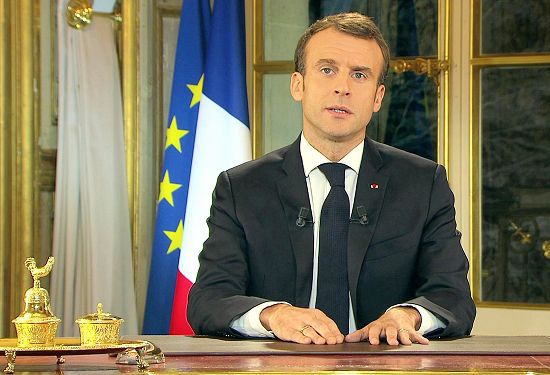 The Minister of Health announced Sunday evening the ban on the whole territory of all gatherings of more than a thousand people. The Minister of Health announced Sunday evening the ban on the whole territory of all gatherings of more than a thousand people.
Municipal "a moment of democratic breathing"
The ballot will not be canceled. On March 5, after an interview with François Baroin, the president of the Association of Mayors of France, Interior Minister Christophe Castaner confirmed that the municipal elections would be maintained despite the progression of the epidemic.
“It is not up to the mayors to cancel the polls. The current situation allows me to say that the elections will indeed take place on March 15 and 22, "he said.
And Edouard Philippe to write Sunday, March 8 to local elected officials. “The elections constitute, in the life of our territories, a moment of essential democratic breathing. There is therefore no question of postponing them, ”the Prime Minister informed them.
Measures put in place
Measures will therefore be put in place to ensure the proper conduct of the vote. The “barrier measures” (do not kiss, do not shake hands, sneeze in your elbow ...) will be reminded by small posters in the polling stations. The queues must be “managed” in order to “limit situations of prolonged promiscuity.” “Other questions, relating to the contact areas made up of ballot papers, pens used for signing up, regular cleaning , if necessary, voting machines, and the cleaning of polling stations, could be the subject of additional recommendations ”, continues the Prime Minister.
Finally, "particular attention will be paid to powers of attorney", for people unable to travel "in particular for reasons related to the health situation", such as the elderly living in accommodation establishments for dependent elderly persons ( Ehpad) or people made vulnerable by diseases of the immune system.
An impacted electoral campaign
However, faced with the threat of the coronavirus, the candidates and the municipalities are organizing for the smooth running of the electoral campaign which is turned upside down. And first the meeting.
This is how Rachida Dati lowers her ambitions. Coronavirus requires. For her last meeting before the first round of the municipal elections gatherings of more than 1000 people are now prohibited, the candidate of the right to the City of Paris has certainly chosen to maintain her meeting but by limiting the number of people. Difficult to cancel it indeed, since it is Nicolas Sarkozy who is announced as the star of the evening.
The former Keeper of the Seals should not be the only one impacted by this new regulation decided by the government. Other candidates for municipal elections, in Paris and in several big cities, will certainly have to reduce the number of places in their next meetings.
David Belliard, EELV candidate in the capital, even preferred to cancel the one he had to hold on Thursday, March 12 at Bataclan.
Anne Hidalgo, meanwhile, cancels her meeting to make it a "virtual" one. The outgoing PS mayor, candidate for his re-election, announced to BFM Paris the cancellation of his meeting scheduled for Thursday March 12 at the Japy gymnasium, hall of the 11th arrondissement with a capacity of 1,500 seats.
Towards record abstention ?
More than four in ten voters would consider not going to vote because of the risk of contamination. Especially the elderly. So who will benefit from this abstention ?
Another problem: volunteer assessors should be scarce at polling stations, threatening the proper organization of the poll.
To counter each one's problems his remedy. In the Hauts-de-Seine, a third of the municipalities have set up electronic machines to vote. This should limit promiscuity during the vote and the count. In Mulhouse, which has become one of the most important centers of the virus in France, in addition to electronic machines, voters will be advised to go and soap their hands before and after the vote. In other municipalities, we are also organizing for more security, but the means are often less. Surgical gloves, machines disinfected after each vote, more signing pens…
What about online voting only allowed for French nationals living abroad in legislative elections since 2012 and consular elections since 2014 ?
It could be the longer term solution....... |
|
|
|
| Joanne Courbet for DayNewsWorld |
 |
RETIREMENT THE USE OF 49-3 A STRONG PASSAGE | 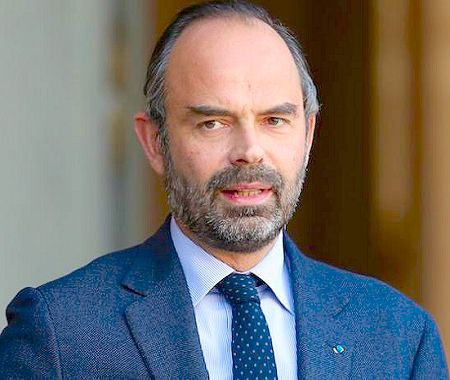
The government made the decision on Saturday noon to use article 49-3 on pension reform. Prime Minister Edouard Philippe went to the National Assembly to announce it to the deputies. The decision was ratified mid-day Saturday during a Council of Ministers, just after a Defense Council devoted to the epidemic of coronavirus.
The Prime Minister went up to the rostrum to make this announcement, in order to "put an end to this episode of non-debate" with the oppositions and "to allow the rest of the legislative process to start," he said. to the applause of the majority and to the boos of certain members of the opposition, including François Ruffin and Ugo Bernalicis (LFI).
Right and left standing wind
Right, left and unions are standing up against the use of 49-3 announced on Saturday. On the right as on the left, nobody spared his words to denounce the surprise announcement of Edouard Philippe on Saturday evening in the hemicycle. "Government coup" for the Communist Fabien Roussel, "totalitarian impulses" by Emmanuel Macron for the leader of the Insubmissives Jean-Luc Mélenchon, "worst solutions", for the ecologist Yannick Jadot, "the most total cynicism" for the boss of deputies LR Damien Abad…
Even many deputies of the majority criticize the fact of not having been informed before the announcement of the Prime Minister.
Discomfort among LREMs
Once past the stupor, the majority was ordered to unite behind the executive. It is an understatement to say that the announcement of the use of 49-3, "learned by the press", annoyed more than one among LREM deputies. We feel a real discomfort with the Republic on the move. Since 2017, around twenty deputies have left the group with acceleration in recent months (The group has 300 members and relatives today compared to 314 after the legislative elections). There is discomfort about the content of the reform and especially the way it was managed. And for the municipalities then, in cities with more than 50,000 inhabitants, there are dissident candidates in about a third of them.
Recourse to article 49-3 of the Constitution will allow the adoption of the pension reform without debate or vote in the National Assembly.
Without debate or vote at the Meeting
Contested for more than a year, the pension reform project was indeed the subject of a battle of amendments to the National Assembly for a week.
Since the arrival of the text - and its more than 41,000 amendments - in public session on Monday, February 17, debates were tense between majority and opposition. By Friday, the 100-hour mark had been crossed and MPs were sitting this weekend. The calendar planned to go until March 6 and the truce linked to the municipal elections. This will not ultimately be the case. As expected, 49-3 will therefore be used to pass the bill without a vote.
The National Assembly had voted on Saturday morning article 7 of the reform project which plans to integrate special regimes (SNCF, RATP, Paris Opera ...) in the "universal" pension system by points. The debates will therefore stop with the Prime Minister's announcement and the use of 49.3.
Censorship motions
But the element of surprise, however, did not prevent the opposition from tabling two motions of censorship on Saturday evening, the first by LR, the second by the PS, the PCF and La France insoumise. To be considered, a motion must be signed by at least one tenth of the members of the Assembly, that is to say 58 deputies. They should be discussed next Tuesday but have no chance of succeeding since LREM alone has a very large majority in the National Assembly and can count on the support of the Modem.
The government therefore takes no risk in unsheathing article 49-3 to push through its pension reform!
A strong move
But usually, we use article 49-3 to discipline a recalcitrant majority. Here the use of this article just allows to pass this pension reform in force after a year of unsuccessful social consultation and while public opinion is still mainly against the project.
The sequence of pension reform is not over yet. On the street side, the unions are already considering new mobilizations in the face of recourse to 49-3 deemed "deeply scandalous" by the CGT and "unacceptable" by FO. On the Senate side where the right is the majority, the executive is preparing for another parliamentary battle.
|
|
|
|
| Britney Delsey for DayNewsWorld |
 |
AN ECOLOGICAL DEMAGOGICAL TURN
AT EMMANUEL MACRON | 
Emmanuel Macron went to the Mont-Blanc massif on Thursday to "touch the finger" on the devastating effects of climate change.
A symbolic visit supposed to initiate the ecological shift of its five-year term but devoid of any new announcement.
In the early hours of the morning, the President of the Republic crossed the Mer de Glace for a long time. In a dark blue ski suit, he listened to the terrible climate inventory:
the ice is shrinking eight to ten meters per year, about two kilometers since 1850.
The glacier has lost 120 meters in thickness in a century. The most spectacular illustration of the impact of global warming in France.
In front of the alternation of gray rocks and bright blue ice, Emmanuel Macron lets go:
“I never imagined a cast so fast, it's impressive.
We realize how the non-decisions made it happen ”. "The glacier makes the invisible visible," notes glaciologist Luc Moreau.
"Climate emergency"
At the end of the morning, Emmanuel Macron delivered a fiery speech in Chamonix on the climatic "emergency", "the fight of the century" according to him. He said he felt here "our own vulnerability, the fragility of this landscape that was thought to be irremovable".
"We have to demonstrate that this strategy is compatible with economic progress because it is the strategy I believe in," he added.
Without a new announcement, he drew up the table of actions that he linked to ecological objectives, citing the revitalization of city centers to fight against urban sprawl, the law on recycling or even creation, announced the day before, new natural parks, including to protect Mont-Blanc.
biodiversity
In his speech Thursday, he said that the "fight for biodiversity is inseparable from the fight against global warming".
Some 60% of wild animals have disappeared in the past 50 years, the species disappear at a rate 1000 times higher than the rate of natural extinction, said Emmanuel Macron who also launched for the occasion the French Office for Biodiversity (OFB) .
With this trip, Emmanuel Macron wishes to make ecology one of the two priorities for his end of his five-year term, which is mired in pension reform. To open this chapter, he chaired an Ecological Defense Council on Wednesday at the Elysée Palace. The subject is unavoidable, including in the ballot boxes one month before the municipal elections.
Limit traffic
Emmanuel Macron was to have lunch in Saint-Gervais-les-Bains with local elected officials who heard him questioning the pollution in the Arve valley, caused by the passage of too many heavy goods vehicles and heating with wood.
On the spot, a demonstration against this pollution and the pension reform gathered 250 people, but it was dispersed before the arrival of Emmanuel Macron.
"Come to cry in front of the Mer de Glace when the agreements of the climate conferences are not respected and that the greenhouse gas emissions increase, it is parade, it is com '", tanced in the procession Pierre Delpy, energy advisor in an association.
An ecological turn more than demagogic ...... for the liberal convinced that he is !!!
|
|
|
|
| Alyson Braxton for DayNewsWorld |
 |
EMMANUEL MACRON LOWEST IN OPINION
|

Opinion studies worry the Élysée. While the majority and the government are committed to defending the presidential record, Emmanuel Macron remains low in opinion research.
Nearly two out of three French people (64%) believe that Emmanuel Macron is a "bad president", according to an Odoxa * poll for Le Figaro and franceinfo published Thursday February 6 on the occasion of the "1,000 days" of his entry into function. 32% of those questioned even consider him "a very bad president".
Those who have a bad opinion of him consider him 62% bad because of "his actions and the policy he led". And for 37% because of "his attitude, his tone and his communication", according to this survey with Dentsu Consulting.
The communication of the Head of State is judged particularly severely: 69% find it bad.
Regarding recent news, 73% of French people questioned consider "fairly serious" the rejection by LREM deputies of an amendment allowing 12 days of leave for parents who have lost a child.
The rejection by the Council of State of the first version of the pension reform project is also considered "fairly serious" by 57%, against 27% of a contrary opinion, the others having not heard of it.
This decline is also shared by the right-wing electorate, which criticizes the way the executive manages the conflict around pensions and yellow vests in particular.
At the top of the state, we therefore seek to communicate better. Those around him are thinking about the best way to finally get rid of the label of "president of the rich" by communicating around good results. One of the tracks therefore consists in multiplying trips in the field, by developing a presidential agenda only around good results.
But this communication is not always well controlled, sometimes because of the president himself. Last Thursday, Emmanuel Macron was in Angoulême to announce 5 billion of investment and hundreds of jobs, but opinion will have retained only his controversial photo with a t-shirt caricating the police violence.
Survey carried out online on February 5 and 6 among 1,002 people aged 18 and over, using the quota method. Margin of error from 1.4 to 3.1 points.
|
|
| Boby Dean for DayNewsWorld |
 |
RETIREMENTS, STRIKE AND ANGER OF MACRON
|
| The 51st day of strike against the pension reform coincides with the examination, in the Council of Ministers, of the two draft laws which will then be submitted to the deputies. The bills relating to the establishment of a universal pension system have indeed been presented to the Council of Ministers.
The unions, mobilized for the 51st consecutive day, demonstrated and went on strike across France. The demonstrators were 1.3 million according to the CGT, including 350,000 in Paris while the authorities announced that more than 127,000 people marched in sixty cities outside Paris according to the police and the prefectures.
The next mobilization day is set for Wednesday, January 29, without the participation of the CFE-CGC.
Reacting to the social situation in France marked by the conflict over the pension reform, the Head of State vehemently denounced on the plane returning from Israel "the extraordinarily guilty political speeches" affirming that France has become a dictatorship, and thus justifying political and social violence: "Today has established itself in our society, and in a seditious manner, by extraordinarily guilty political speeches, the idea that we would no longer be in a democracy. That there is a form of dictatorship that has taken hold. ".
"Go into dictatorship, and you will see," continued the president at the microphone of Radio J.
"But go to dictatorship! Dictatorship is a regime where a person or a clan decides the laws. A dictatorship is a regime where you do not change the leaders, never. If France is that, try the dictatorship and you will see! Dictatorship justifies hatred. Dictatorship justifies violence in order to get out. But there is a fundamental principle in democracy: respect for others, the prohibition of violence, hatred to combat. "
After several punching actions in the previous days, Emmanuel Macron denounced "the acts of violence and the radicalism of certain blockages", calling "to the greatest firmness towards their perpetrators" according to remarks reported by Sibeth Ndiaye , government spokesperson, after the Council of Ministers. According to Mr. Macron, "all those who today remain silent on this subject are accomplices, today and for tomorrow, of the weakening of our democracy and our Republic".
Asked when he returned from Israel, where he participated in the commemoration of the liberation of the Auschwitz Nazi camp on Thursday, the French president also clarified to a colleague his analysis of anti-Semitism , which he linked to the economic crisis and social.
"All Western democracies are experiencing a crisis, and it is a crisis that is exacerbated by the great contemporary fears," he said, citing digital transformation and climate change.
According to him, "anti-Semitism is the most advanced form, each time the most radical of fear of the other".
|
|
|
|
| Garett Skyport for DayNewsWorld |
 |
EXPLOSIVE FILE ON JEAN-PAUL DELEVOYE
THE RETIRED "MONSIEUR" RESIGNS
|
| Put under pressure after the revelation of new omissions in his declaration of interests, the high commissioner responsible for pension reform, Jean-Paul Delevoye, finally decided to resign.
At the height of the social conflict surrounding the pension reform, an explosive subject for which Jean-Paul Delevoye is responsible, Mr. Retraite finds himself pinned on several conflict of interest cases. Qualified by the modest term of "forgetfulness", they are more than annoying. 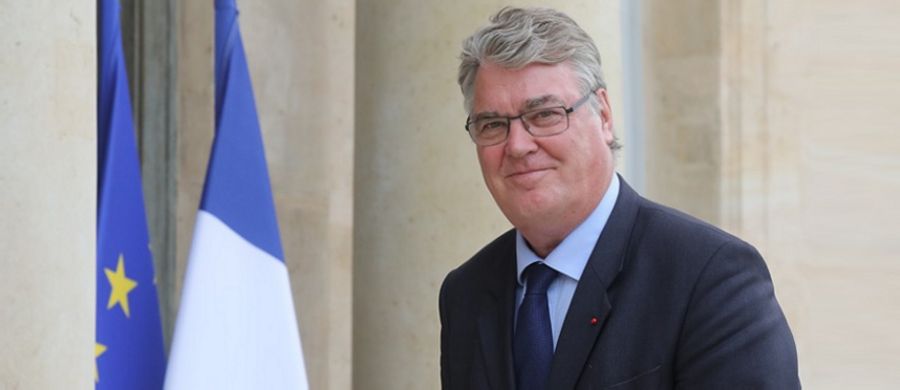
Especially since the World revealed Saturday, December 14, the second version of the declaration of interests signed by Jean-Paul Delevoye, the High Commissioner for Pensions. The politician finally declared thirteen mandates, of which eleven are still active, instead of the three initially indicated.
It was not all voluntary, so the mandate to advise for IGS, a higher education group, brought him 78,000 euros in 2017. This is almost twice as much as in the first version of his conflict of interest declaration. interest!
After his role as administrator in insurance - with the training institute for insurers Ifpass - it was a position at the SNCF foundation that was singled out. The High Commissioner for Pensions has been sitting on the board of directors of the SNCF Foundation since 2016, in charge of the group's sponsorship actions, and then other mandates ...
Suspicions of conflict of interest with insurance, accumulation of functions prohibited by the Constitution and now a new breach of its declaration of interest obligations!
Faced with these serious shortcomings in the declaration of activities and irregularities in its declaration of interests, the High Authority for the Transparency of Public Life (HATVP) is expected to rule on Wednesday December 18 on the transmission to justice of the high dossier -pension commissioner, Jean-Paul Delevoye.
Did Jean-Paul Delevoye think that he could be above the law: namely above article 23 of the Constitution, which prohibits a minister from exercising a professional activity at the same time?
With a status equivalent to a minister delegate in the government of Edouard Philippe M. Delevoye should indeed have given the body guaranteeing the probity of public decision-makers a complete declaration!
Jean-Paul Delevoye, 72, was deputy for Pas-de-Calais in 1986, senator, mayor, mediator of the Republic, etc. He was also a minister under Chirac. In 1999, he ran for president of the RPR, but lost to Michèle Alliot-Marie. "However, Jacques Chirac had bet everything on the man he nicknamed - certainly affectionately - the" big cunt ".
"Because he is tall and because he is stupid," he would have explained himself quite simply. , can we read with a colleague.
"A reflection that Emmanuel Macron may also have done by reading the revelations" on the annoying "oversights" of Delevoye...
|
|
|
|
|
|
|
|
| Garett Skyport for DayNewsWorld |
 |
THE RISKED STRATEGY OF EMMANUEL MACRON TO "CROSS THE WALL OF DECEMBER 5"
|
In spite of the barely extinguished movement of the "yellow vests", the head of state is decided, with the ball in his head, to continue to reform by opposing the opponents of the pension reform. At the risk of rousing the anger of the street again. Emmanuel Macron knows it but, as he said during his trip to Rouen, he is "not even afraid". He polishes his strategy to "not face the wall of December 5". 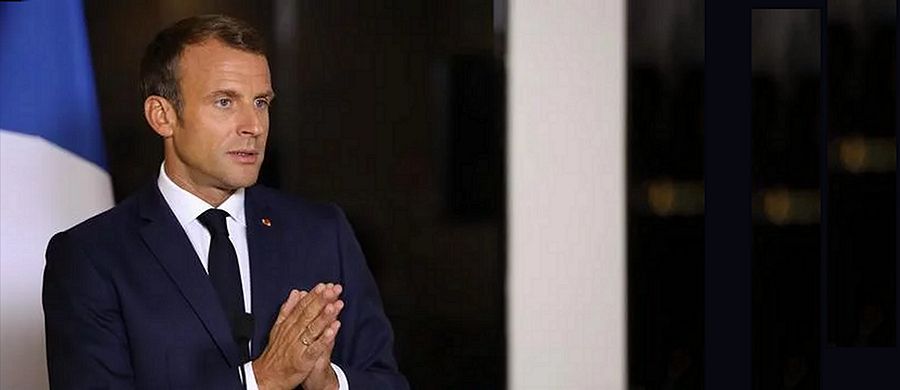
To do this he beats the reminder of his troops .
Ten days before the strikes of the SNCF and the RATP, the Prime Minister Edouard Philippe, indefatigable marathoner, receives on two days the unions and the employers for a final lap of track. Bis repetita. Édouard Philippe had already received them in September. For the same reason. In the same format.
Sunday, he summoned the entire government to Matignon, to detail the official line and avoid polyphony at the top. On Tuesday evening, the head of government is to host a meeting of parliamentarians LREM and MoDem, along with the Minister of Health, Agnès Buzyn, and High Commissioner Jean-Paul Delevoye.
In addition the party En Marche is summoned to reactivate its members as it had done at the beginning of the crisis of "yellow vests". The Republic in March asks its leaders, its activists on the ground throughout France to give him their impressions.
A communication to extol the reform
The idea is to convince the public that the merger of the 42 existing pension plans into a single (point-based and career-based) system is "fair". High Commissioner Jean-Paul Delevoye acknowledged that there was a lot to do. And to add: "There are a number of untruths. Our fight is to be able to retricft these false truths upside down and to show how this project brings solidarity, generosity and solidity ".
Stigmatize the privileged special diets
In this war to prevent the public opinion to support the strikers as during the great strikes of 1995, the Head of State had, too, to go to the forefront qualifying the claims of employees benefiting from the special regimes demands "From another era". He exploits the only idea that puts almost all French people in agreement: it is not normal for railwaymen to retire before everyone else. By targeting these plans, which Richard Ferrand refers to as whiners, the government also wants to isolate them and avoid strikes by proxy or opportunity. Richard Ferrand, exhausted "a mobilization to maintain inequalities". "Attention to the image they can give, we could have the impression that they do a little corporatism," added, for its part, Elizabeth Borne.
But it is not certain that this bold strategy on the part of the government will succeed in defusing the mistrust of pension reform.
A risky strategy
Each passing day reinforces the mobilization of opponents of the pension reform. The call for the "unlimited strike" at the RATP and the "strike extendable" at the SNCF is coupled with a day of interprofessional strike decided by the CGT, Force Ouvrière, the FSU, Solidaires and four youth organizations. The left parties invite themselves to the processions, the extreme right too. According to a poll for La Tribune, Orange and RTL, six out of ten French people approve of the December 5th strike.
"The President of the Republic, who should be the president of all the French, tries to divide the French," thundered on Sunday, the Secretary General of the CGT, Philippe Martinez.
If Emmanuel Macron seems to want nothing to give on the reform project, the French still do not know the exact terms of the reform and are tired.
Because the vagueness and the hesitations have ended by making everyone doubt the relevance of this universal system.
|
|
|
|
|
|
|
|
| Garett Skyport for DayNewsWorld |
 |
FRANCOIS BAROIN PRESIDENTIABLE
|
Go ? or not go ? . The question promises to be back in all directions by 2022. François Baroin, who chairs the powerful Association of Mayors of France (AMF), is considered a "safe haven" by several leaders of Republicans to carry the hopes of 'a right decimated in the next elections, including the presidential 2022. But the main interested Tuesday morning at Jean-Jacques Bourdin, did not show enthusiasm overflowing when the issue was raised. 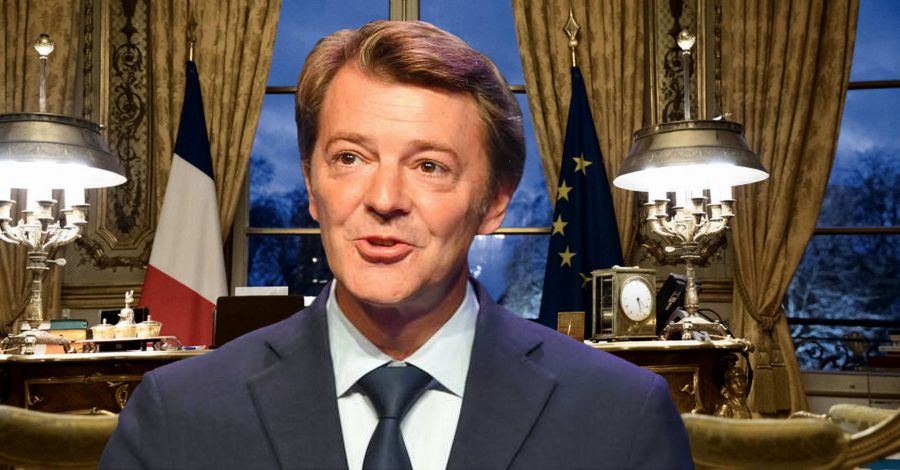
"The post is not open, Emmanuel Macron is President of the Republic. It will be open in 2022, then it may be open in 2027, after it will open in 2032, "he first scanned.
The mayor (Republicans) of Troyes, François Baroin, did not say no to a candidacy for the presidential election, but "in quite exceptional circumstances".
In a hurry to unveil himself, an exercise he likes to avoid, the Mayor of Troyes finally answered that he would think of presenting himself "under very exceptional circumstances"
Baroin is worried about the "trap" of a duel announced between Emmanuel Macron and far-right leader Marine Le Pen in 2022, scenario that the President of the Republic is working to install in minds.
"The duality between Macron and Le Pen, between the National Front and En Marche, to accept it without saying anything, arms dangling, in a deafening silence (...) is to accept the alternation," reaffirmed the former minister.
"We lost two presidential elections. All is to start again. How to imagine talking about the incarnation if we do not talk about the substance? "Warned François Baroin, while Valérie Pécresse and Xavier Bertrand do not hide their ambitions for 2022.
"We must first get together, then we must work on the evolution of the country and try to provide answers, the incarnation will come (...) when the time comes. »
|
|
|
|
|
|
|
|
| Britney Delsey for DayNewsWorld |
 |
There are no translations available.
QUI EST DAMIEN ABAD
NOUVEAU PRESIDENT DU GROUPE LES REPUBLICAINS A L'ASSEMBLEE NATIONALE ?
|
|
Le député de l’Ain Damien Abad vient d’être élu nouveau président du groupe Les Républicains à l’Assemblée nationale, succédant ainsi à Christian Jacob, devenu patron du parti de droite. Il veut incarner une droite « sociale, populaire, de progrès » qui reste « déterminée sur les questions de laïcité, d'immigration, de sécurité ».
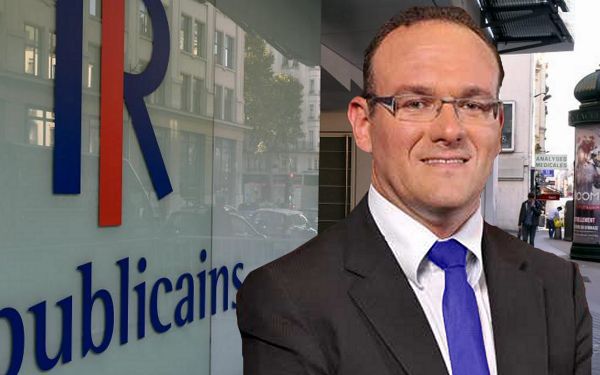
A 39 ans, l'élu de l'Ain devient le plus jeune président de groupe du palais Bourbon, à la tête de la plus importante escouade de députés de l'opposition.
Damien Abad est député de l’AIN depuis 2012 et 3ème Vice Président de LR depuis l’élection de Laurent Wauquiez à la tête du Parti de la droite sociale et libérale. (Les Républicains)
A ce titre il est depuis longtemps présent sur les plateaux de TV ou dans les rédactions des groupes de Presse où il est invité régulièrement pour commenter l’actualité politique et donner son point de vue sur tel ou tel sujet du moment. Sa notoriété grimpe.
L’homme est jeune, souriant et habile ; il maîtrise tout à la fois, une fine rhétorique et une dialectique redoutable tout en entretenant d’excellentes relations avec les journalistes.
Le public a déjà commencé à découvrir cette nouvelle figure politique, atypique.
Damien Abad est en effet ce jeune député facilement reconnaissable, qui intervient souvent à l’assemblée nationale où il occupe physiquement un siège à droite et tout en bas des travées, siège qui a été aménagé spécialement dès le lendemain de son élection pour tenir compte de son handicap.
Damien Abad est en effet atteint d’une maladie rare, l’arthrogrypose, une maladie congénitale difficile à détecter in utero.
Les séquelles de la maladie lui donnent cette démarche dandinante qui lui a valu le capital de sympathie qu’il attire très régulièrement et qui en a déjà fait le héros du handicap. Les handicapés ont trouvé en sa personne, leur porte- voix.
Damien Abad est né le 5 avril 1980 à Nîmes (Gard) où il fit ses études secondaires au lycée Alphonse Daudet . Après son baccalauréat, il intègre Sciences Po Bordeaux dont il sort major, puis Sciences Po Paris en 2004.
Il échoue par deux fois au grand oral de l’ENA, qu’il abandonne pour se tourner rapidement vers la politique de terrain qui le passionne.
Il a une sensibilité centriste et c’est donc tout naturellement qu’il se tourne vers L’UDF et son Président de l’époque François Bayrou, lequel à l’occasion du Congrès de Lyon de janvier 2006, s’était proclamé dans une motion unique, votée largement ( !), « libre et indépendant » mais néanmoins partisan d’une alliance pré-électorale avec l’UMP.
Vite repéré par les patrons du Centrisme, il est, à partir de mars 2006 embauché comme collaborateur de groupe à l’Assemblée Nationale. Au sein des services du groupe UDF, Damien Abad se voit confier un poste de chargé d’études sur les questions budgétaires et fiscales, un domaine et une spécialisation qui lui serviront grandement par la suite dans ses fonctions électives locales.
Mais le Centre éclate en 2008 suite à la décision de François Bayrou de créer le Modem. Cependant, tous les centristes ne font pas le choix de suivre le « béarnais » et les députés (les ¾ des députés centristes de l’époque ne l’ont pas suivi) qui avaient décidé de soutenir Nicolas Sarkozy pour l’élection présidentielle de 2007, conviennent de créer le Nouveau Centre qui verra le jour en mai 2008 à l’occasion du Congrès de Nîmes (la ville de naissance de Damien Abad).
Et c’est à Nîmes qu’est élu à la Présidence du Nouveau Centre, Herve Morin, ancien lieutenant de François Bayrou (il fut son porte parole pour les élections présidentielles de 2002).
Mais Herve Morin avait dès 2007 anticipé et fait dissidence, l’occasion des élections législatives de juin, où il a présenté, sous les couleurs du Parti Social et Liberal Européen « des membres de sa famille et certains de ses employés ».
Pour avoir soutenu Nicolas Sarkozy, il fut dès lendemain des élections remercié et nommé en sa qualité de nouveau chef de file des Centristes/compatibles UMP, Ministre de la Défense dans le premier gouvernement Fillon. (Herve Morin fut confirmé à ce poste dans le second gouvernement Fillon).
Et c’est à partir de là, que va démarrer la carrière politique de Damien Abad, qui bien que candidat malheureux dans la 5ème circonscription des Yvelines (3,17%) en 2007 se vit désigner par le Nouveau Centre, en récompense de son sacrifice et de sa fidélité, à Hervé Morin, candidat en seconde position sur la liste conduite par Françoise Grossetete (UMP) pour la grande circonscription du Sud Est (laquelle regroupait les Régions Rhône Alpes et PACA) à l’occasion des élections européennes de 2009.
La voie était tracée, sous les augures d’un Hervé Morin qui amicalement l’interpellait alors comme ceci dans les réunions publiques Damien, si les petits cochons ne te mangent pas et si les gros te laissent, je présage que tu feras une belle carrière politique ».
Et jusqu’ici, les petits cochons ne l’ont pas mangé et les gros se sont écartés !
Depuis qu’il a été nommé vice président des LR, Damien Abad a entrepris une tournée des fédérations LR. Il laboure le terrain, rencontrant inlassablement les militants qu’il faudra mobiliser dès la rentrée de septembre pour animer la campagne.
Il a acquis également une solide expérience de terrain en occupant la fonction de Président du Conseil Départemental de l’AIN entre avril 2015 et juillet 2017. Il n’occupe plus cette fonction depuis l’interdiction du cumul des mandats avec une fonction exécutive, mais il continue à siéger en qualité de conseiller départemental.
A l’occasion d’un récent sondage, les Français ont désigné la droite républicaine comme le second opposant à Emmanuel Macron, derrière le Rassemblant National (RN) de Marine Le Pen (ex FN), ceci alors même que LREM peine à rassembler !
Damien Abad est probablement un choix avisé pour sortir la droite de l’ornière dans laquelle elle était encalminée depuis les élections présidentielles de 2017 et qui selon les propos de Damien Abad lui même « aurait compris … enfin…qu’elle devait sortir du sang et des larmes » et assurer tout son rôle d’opposant, clairement et humainement.
|
|
|
|
|
|
|
|
| Clara Mitchell pour DayNewsWorld |
 |
There are no translations available. c
FRANCE: CHRISTIAN JACOB PRESIDENT OF THE UMP
|
|
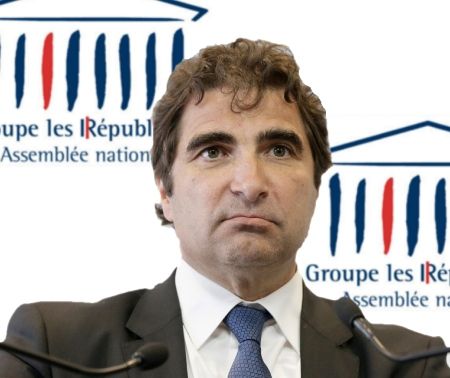
A nine-year-old member of the LR legislature, Christian Jacob was elected Sunday night as the new president of the Republican party with 62.58% of the party's vote, ahead of Julien Aubert and Guillaume Larrivé.
The activists preferred to trust a faithful to the history of the party, rather than two young deputies quadras who intended to embody the break with the return to a line right for Julien Aubert, nostalgic of the RPR and a right Liberal and national for Guillaume Larrivé.
This former agricultural unionist spotted by Jacques Chirac in 1988 and atypical course - he has only the BEPC in his pocket - will have to tackle the difficult task of rebuilding a political family today in tatters.
And to drive it until the next presidential elections of 2022. The task is titanic and complicated, and he knows it.
"Everyone knows the difficulty of putting back on track our movement which for seven years has lived so many critical periods. We will only succeed if everyone clearly agrees to put their personal ambitions and their egos aside to devote themselves exclusively to the preparation of our project alternation macronism. "Warned the former mayor of Provins who pledged not to run for president. A foot call to the lost sheep Xavier Bertrand and Valérie Pécresse?
But the next test will be that of the municipal, this appointment that should not miss the right that has an important territorial network of local elected officials from the blue wave of 2014. "It will be a moment of truth between macronism and the Leninism on one side and us on the other. "
To do this, Christian Jacob intends to put back to the heart of the debate the unifying priorities of restoring the authority of the state, the fight against "the poison of communitarianism and uncontrolled immigration", but also the fight against "the impoverishment of the middle classes and pensioners ".
After the debacle of 2017 and the rout of the European May, LR has more than ever an effective mediator to reconcile the different rights. Republicans seem to have found it.
|
|
|
|
|
|
|
|
| Garett Skyport for DayNewsWorld |
 |
BAD CASTING AND CAMOUFLET FOR
EMMANUEL MACRON WHY THE CANDIDATURE OF SYLVIE GOULARD
COULD THERE BE ONLY REJECTED ?
|
|
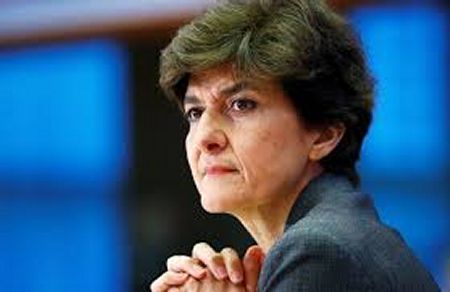
The candidacy of the French Sylvie Goulard for the post of European Commissioner for the Internal Market was drastically rejected on Thursday, October 10, during a second hearing. Of the MEPs, 82 voted against his nomination, 29 for, and one abstained. Only Renew's liberals, whose Renaissance list of Emmanuel Macron's majority is the main formation, have all brought their voices
If the former French minister (Enarque, polyglot, expert of the European institutions), at first glance, had the ideal CV for the post of commissioner, she nevertheless dragged pots and pans behind her.
Indeed, the former MEP (2009-2017) is subject to two investigations, one from the French justice system and one from the European Anti-Fraud Office (Olaf). They concern the case of the allegedly fictitious jobs of MEPs from the MoDem, which led to his resignation from the government of Edouard Philippe on June 21, 2017, after a month of exercise. Or she refused to commit to resign if she had to to be indicted in the case of the fictitious jobs of the MoDem. One weight, two measures?
MEPs also had reservations about a possible conflict of interest regarding her work as a "consultant" between 2013 and January 2016 for the Berggruen Institute, while she was a member of the European Parliament. For these activities in the think tank founded by the billionaire US-German Nicolas Berggruen, she received "more than 10 000 euros" gross per month, said the Olaf.
Emmanuel Macron experienced this refusal as a snub. But to propose an application tainted by two cases was it not in itself risky?
Moreover, Emmanuel Macron wanted to impose for his commissioner a portfolio with ultra-broad skills, ranging from the Internal Market to Defense, through Space or Digital, with budgets of several tens of billions of euros. Such a portfolio would have given France a disproportionate power within the Commission. This is also what MEPs rejected this Thursday. The political groups advocate for a redistribution of powers.
The scathing refusal of MEPs to appoint Sylvie Goulard to the European Commission sounds like a personal affront to Emmanuel Macron and his excessive European pretensions.
The New York Times explains that with this rejection of Sylvie Goulard, the European Parliament wanted to "show the muscles", and reaffirm its intransigence in matters of ethics in politics against a France that had found nothing better to propose "A technocrat targeted by no less than two investigations into alleged financial malpractice".
"In a climate of increasing distrust of the political world, it is not so bad that the future commissioners, without any other legitimacy than the heads of state who appoint them, have to answer to the deputies. elected. ", Rightly concludes in Les Echos the journalist Lucie Robequain.
|
|
|
|
|
|
|
|
| Garett Skyport for DayNewsWorld |
 |
THE PUNCHLINES OF THE FORMER PRESIDENT
JACQUES CHIRAC
|
|
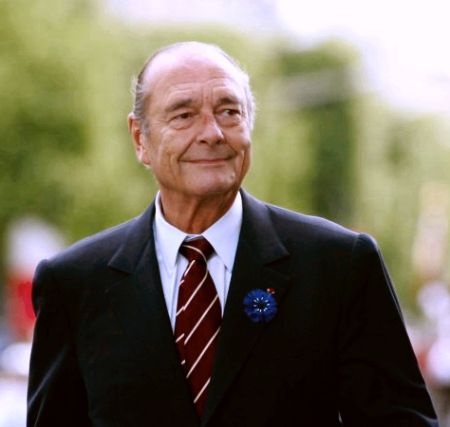
In a forty-two year political career, former French President Jacques Chirac has left a number of memorable statements, including historical speeches, provocations, blunders and slippages.
Here is an anthology:
Our house burns
"Our house is burning and we are looking elsewhere. The mutilated, overexploited nature can no longer reconstitute itself and we refuse to admit it. [...] Earth and humanity are in danger and we are all responsible for it "(Johannesburg Earth Summit, 2 September 2002)
Rafle of the Vel d'Hiv 'Yes, the criminal madness of the occupant was seconded by the French, by the French State. [...] Fatherland of the Light and the rights of the man, land of reception and asylum, France, that day, carried out the irreparable. Missing her word, she delivered her proteges to their executioners "(Recognizing the collaboration of France with Nazi Germany during the Winter Velodrome Rally, July 16, 1995)
What do you want?
"What do you want? Do you want to go back to France? Is that what you want? Let them go, let them do. "(" What do you want? That I go back to my plane and I come back to France? That's what you want? Let them go, let them do it ") (Altercation with Israeli security services interposed between him and the Arab population in the Old City of Jerusalem, October 22, 1996)
Household
"What more does she want, this housewife? My balls on a platter? "(At a European summit, Jacques Chirac, then Prime Minister, does not know that his microphone remained open and gets carried away against his British counterpart Margaret Thatcher, February 1988)
Immigration
"Our problem is not foreigners, it's overdose. [...] How do you want the French worker who works with his wife and who, together, earn about 15,000 francs, and who sees on the landing next to a family with a father, three or four wives? , and a score of kids, and who earn 50'000 francs of social benefits, without naturally working! If you add to that the noise and the smell, well the French worker goes crazy! [...] And it's not to be racist to say that "(Dinner-debate with activists of his party, June 19, 1991)
The pug
"It is certainly not you, Mr. Fabius, who will destabilize me. Be nice to let me talk and stop intervening shortly, a little like the pug! (In October 1985, Jacques Chirac inflicts on Laurent Fabius, then Prime Minister, a daring reframing on the set of TF1)
Apples
"It's primarily because I like apples a lot, I'm an apple eater. (In 1995, he released a book, La France pour tous , whose cover depicts an apple tree.) Questioned about this choice by Alain Duhamel, Jacques Chirac simply explains it in this way.A sentence that will become the slogan "Eat apples" under the pen of Guignols de l'info, and which, according to some observers, will contribute to his victory in the 1995 presidential election.)
Far right
"I can not accept the banalisation of intolerance and hatred" (Justifying his refusal to debate with the president of the National Front (FN, extreme right) Jean-Marie Le Pen, his opponent in the second round of the election presidential election, 23 April 2002)
Travel paid in cash
"It's not that they are deflating, it's that they (sums) are pschitt, if you allow me this expression." (TV interview at the presidential palace, July 14, 2001)
A staggering story
"I am indignant at the process, indignant at the lie, indignant at the outrage ... There must be limits to the slander ... Today we are reporting a history that is staggering." (In September 2000, during of an interview on France 3, Jacques Chirac questioned on the occult financing of his party, the RPR, revealed by Jean-Claude Méry, a member of the central committee of the party.)
Sarkozy
"I decide and it executes" (Refocusing Nicolas Sarkozy, then his Minister of Finance, July 14, 2004)
"Sarkozy, have to step on him. And left foot, it brings good luck. "
Holland
"I can say that I will vote Holland!" (June 11, 2011 in Corrèze, about François Hollande, socialist candidate for the French presidential election of 2012 and while Nicolas Sarkozy is also candidate.The entourage of the former president will speak " of Corrèze humor »)
After two terms, ie twelve years at the helm of the country, Jacques Chirac gives his last official speech of President of the Republic. In this last emotionally charged address, the Head of State declares to the French:
"Not a moment, you have not ceased to live in my heart and mind. Not a minute, I have not stopped acting to serve this beautiful France. This France that I love as much as I love you.
|
|
|
|
|
|
|
|
| Carl Delsey for DayNewsWorld |
 |
THE REBELLIOUS PROCESS JEAN-LUC MELENCHON
|
|
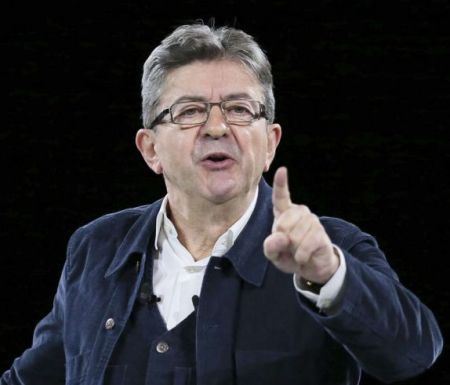
The trial of Jean-Luc Mélenchon and five of his relatives opened on Thursday in the Criminal Court of Bobigny with the distribution of videos of the eventful search at the headquarters of LFI in October.
The search at the heart of the trial
The search at the heart of the trial was conducted at the Paris headquarters of LFI in the context of two investigations of the Paris prosecutor's office on the accounts of the 2017 presidential campaign and on the conditions of employment of assistants of MEPs from LFI, entrusted since then to examining magistrates.
Filming live on Facebook the search of his home, Jean-Luc Mélenchon had first denounced a "huge political police operation" before going with relatives at the headquarters of the movement.
In front of cameras, he had called his family to "break the door" to enter the premises.
He was also seen shaking up a representative of the prosecution, as well as a police officer trying to intervene.
Up to ten years in prison
"To accuse an insubordinate of crime of rebellion, it is a form of pleonasm," threw on Thursday at the helm Jean-Luc Mélenchon, tried with five of his relatives in Bobigny for rebellion and acts of intimidation, during the search at the headquarters of LFI in October.
The trial, scheduled for two days, opened in an electric climate, fueled by the repeated attacks of the leader Insoumis against justice. To the judge who asked him if he agreed to appear, Jean-Luc Mélenchon replied: "I do not think I have a choice, but yes".
Jean-Luc Mélenchon is being prosecuted for "acts of intimidation against a magistrate and a depositary of public authority, rebellion and provocation".
He incurs up to 10 years in prison, a fine of 150,000 euros and 5 years of ineligibility. Also present are MPs Bastien Lachaud and Alexis Corbière, MEP Manuel Bompard, President of the "People's Era" Association Bernard Pignerol and the press officer of LFI.
An oratorical contest between two tribunes
The leader of LFI, the first to be interviewed, said he felt "a sense of humiliation". The day of the search, on October 16, 2018, "the day began in an atmosphere of confusion, of amazement", with the search of several unsubdued militants, justified Jean-Luc Mélenchon, when the president of the tribunal Benoît Descoubes emphasized that the materiality of what he is accused of was established.
Jean-Luc Mélenchon pointed out that he was also afraid that the file of 500,000 registered on the LFI platform would be seized while he had a "moral responsibility vis-à-vis those who gave their name and address for support (his) presidential campaign ".
And he said he was again the victim of a "political trial": "I'm not talking about conspiracy, but about system effect".
To the questions of Me Eric Dupond-Moretti, one of the lawyers of the civil parties, the leader of France Insoumise could not help but retort: "It is a classic technique, to cut small piece by piece the Questions. Go straight to the goal, be offensive! ", Jean-Luc Mélenchon told him.
Visibly annoyed, Eric Dupond-Moretti joked: "Here we are in a court, not in front of the court, with signs!" An allusion to the dozens of unsubdued activists who were waiting in court to support the defendants.
A duel between two high - colored characters, the media lawyer and the tribune who had started a muted war on social networks, on the eve of the trial.
|
|
|
|
|
|
|
|
| Britney Delsey for DayNewsWorld |
 |
HARDENING MIGRATION POLICY WANTED BY EMMANUEL MACRON
|
| The immigration debate was launched on Monday evening by Emmanuel Macron during his pot of re-entry with the parliamentarians of the majority "We are a land of immigration. This creates tensions, but it must be seen in the face, "argued the head of state.
"We do not have the right not to look at it in the face. (...) The left did not want to look at this problem for decades.
Popular classes have migrated to the far right. " 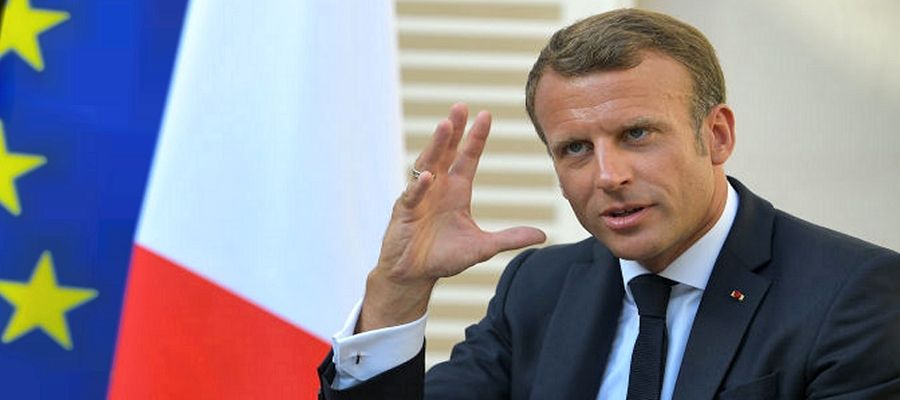
The president does not intend to leave the subject on immigration to the right and the extreme right in view of the next elections, municipal in 2020 followed by the presidential election of 2022.
One of the priorities of this second part of the quinquennium is to reconnect with the working classes after the crisis of "yellow vests" which has shaken the power. So the president on Monday called his majority and his government to the firmness on immigration, to avoid being "a bourgeois party" that ignores the opinion of popular classes seduced by the far right.
Because immigration concerns the French well and truly. According to an Ipsos Sopra-Steria study for Le Monde published Monday, September 16, 64% of respondents feel that "we do not feel at home as before" (+4 points since 2017), and 63% think that there are too many foreigners in France. How to respond to these concerns?
Right of asylum
Emmanuel Macron intends to act mainly on the right of asylum, a principle he reaffirmed but that he considers "diverted from its purpose by networks, people who manipulate". France recorded a 23% increase in asylum applications last year, after already increasing by 7.1% in 2016 and 17.5% in 2017.
With demands coming from Albania and Georgia, which are rising sharply, that the public authorities consider largely unfounded. 27% of applications were accepted, a stable figure compared to the previous year.
However, there is very little deportation at the border, so that the unsuccessful ones increase the number of illegal immigrants.
The restriction of AME
The debates in parliament will also focus on state medical aid (AME) to "control the costs and ensure that it goes well to people in distress," according to government spokesman Sibeth Ndiaye .
The AME, which represents a budget of some 943 million euros and covers more than 300,000 people, allows foreigners who are illegally resident and have been living in France for more than three months to benefit from access to healthcare.
A 2015 parliamentary report estimated that 70% of the MEA was for hospital costs related to serious illnesses, such as tuberculosis or HIV, and some deliveries. The government is thinking of restricting access to the MEA.
Two tracks seem to emerge: either via the criteria to be profitable, or via the number of treatments that can be reimbursed.
But to seize the subject of immigration is also to look at the problem of integration.
|
|
|
|
|
|
|
|
| Jaimie Potts for DayNewsWorld |
 |
There are no translations available.
LE REVIREMENT DE M. MACRON SUR LES RETRAITES POSE DE NOUVEAUX DEFIS
|
|
Le chef de l’État a annoncé qu’il préférait un accord avec les partenaires sociaux sur la durée de cotisation plutôt que sur un âge pivot de départ en retraite. Il s'agirait de demander aux salariés de travailler plus longtemps pour bénéficier de la retraite à taux plein. On augmenterait le nombre de trimestres nécessaires pour avoir sa pension, quel que soit l'âge.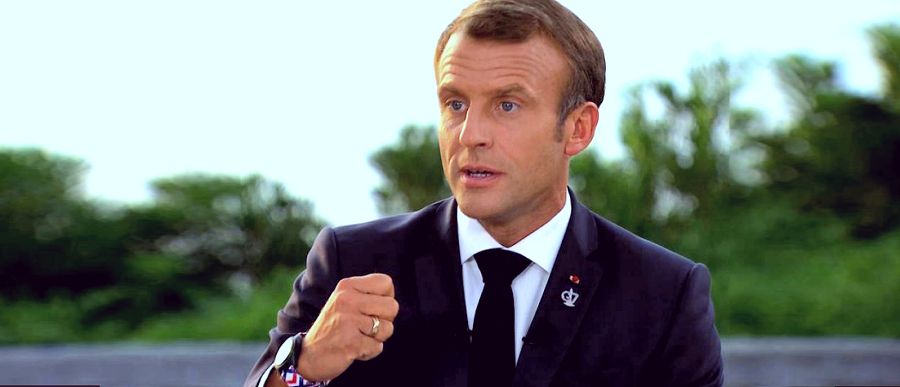
Age d’équilibre ou âge pivot
Jusqu’alors les porteurs de la réforme penchaient plutôt pour un départ à la retraite à un âge d’équilibre à 64 ans avec surcote et décote en cas de départ retardé ou anticipé. Aujourd’hui, l’âge légal de départ en retraite est fixé à 62 ans.
Pour l’heure, « rien n’est décidé », a affirmé Emmanuel Macron. « Il y a certaines professions qui - si on fait les choses mécaniquement - seraient lésées : infirmières, aides-soignants, enseignants », a souligné le chef de l’État, selon qui « il n’y aura pas de réforme des retraites tant qu’on n’aura pas bâti une vraie transformation de ces professions. »
Une accélération du calendrier de la réforme Touraine
Aujourd’hui, les Français doivent cotiser 166 trimestres, soit 41,5 ans pour bénéficier d’une retraite à taux plein. Mais cette durée doit augmenter dans les années qui viennent : c'est la conséquence de la réforme de Marisol Touraine. La durée de cotisation doit atteindre 43 ans, c'est-à-dire 172 trimestres, pour les Français nés après 1973.
L'idée serait d'accélérer le calendrier de la réforme Touraine, pour demander de cotiser plus longtemps aussi aux salariés nés dans les années 1960. Une recette déjà utilisée par les gouvernements précédents.
Cela avantagerait deux catégories de personnes, par rapport au système envisagé jusqu'ici. D'abord ceux qui ont commencé à travailler tôt. Et ensuite ceux qui bénéficient de trimestres de bonification, comme les parents de famille nombreuse, qui n'auraient pas besoin d'attendre 64 ans.
Ce choix avantagerait les salariés qui ne font pas beaucoup d'études, et pénaliserait ceux qui ont une longue formation et qui commencent à travailler plus tard.
Des problèmes pour déterminer la durée de cotisation
Si le calcul des retraites se fait uniquement sur la durée cela peut poser deux problèmes, d’après une économiste féru sur la question.
Le premier concernera les personnes avec des carrières en pointillé. Ceux qui cumulent des petits boulots ou qui font une pause dans leur vie professionnelle pour élever des enfants devront, avec cette option, travailler plus longtemps pour percevoir une pension de retraite décente.
L’autre problème posé par un système basé uniquement sur une durée de cotisation concernera la pension de retraite minimum. A partir de quel moment estimera-t-on qu’une personne doit la toucher s’il n’y a pas d’âge d’équilibre ? Seul un âge d' « équilibre » pourrait déterminer le déclenchement de la pension minimum.
Beaucoup de questions auquel le gouvernement va devoir répondre dans les prochaines semaines. Emmanuel Macron a promis de « construire tous ensemble cette réforme », évoquant, « plus qu’une concertation », « une grande négociation », « un grand débat ».
Mais quid du déséquilibre financier ?
Si l'allongement de la durée de cotisation a été utilisée par bon nombre de gouvernements, le candidat Macron avait critiqué ces réformes techniques, en expliquant que lui, il allait faire beaucoup mieux. Car leur inconvénient, nous disait-il, c'est qu'elles ne règlent les problèmes financiers que pour un moment.
Macron tiendrait à cette réforme qui se voudrait inventive, juste, anticipatrice.
« Il veut persuader les jeunes qu'ils bénéficieront d'une retraite, sinon arrivera le moment où ils ne voudront plus cotiser ( ...)
Le système actuel est en outre défavorable aux carrières hachées, alors que les gens vont être de plus en plus mobiles. », explique Richard Ferrand !!! ???
|
|
|
|
|
|
|
|
| Jaimie Potts pour DayNewsWorld |
 |
There are no translations available.
UN VIRAGE STRATEGIQUE
DANS LA REFORME DES RETRAITES
|
« Je veux que cette réforme incarne un changement de méthode », a martelé Emmanuel Macron.
|
|
|
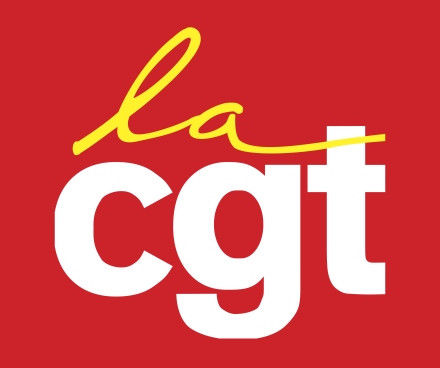 Il est certain que la réforme des retraites fait partie des dossiers brûlants de la rentrée. Il est certain que la réforme des retraites fait partie des dossiers brûlants de la rentrée.
Mais pour éviter une rentrée houleuse alors que se préparent des mobilisations pour le 21 septembre à l’appel de FO et le 24 à l'appel de la CGT, le gouvernement fait montre de souplesse ne comptant pas souffler sur les braises laissées par le mouvement des Gilets Jaunes.
Si l'exécutif compte toujours avancer dans ses réformes, c'est donc avec une nécessaire concertation et en y associant l'ensemble de la société.
« On va la construire tous ensemble cette réforme », a-t-il assuré, évoquant, « plus qu'une concertation », « une grande négociation » car «rien n'est décidé » à ce stade, a-t-il affirmé.
Lundi soir, Emmanuel Macron a cependant indiqué sur France 2 sa préférence, dans le projet de refonte du système des retraites, pour un calcul des droits à la retraite lié à la durée de cotisation plutôt qu'à l'âge de départ .
Le président de la République a également reconnu que le système des retraites était en déséquilibre financier et qu’il faudrait remettre les finances d’aplomb pour 2025.
Ce à quoi a répondu le ministre de l'Économie, « l'important, c'est de réformer. ». « Nous devons tous travailler plus », estime Bruno Le Maire.
Pour le ministre, l'objectif doit aussi être de parvenir à l'équilibre du système en 2025.
« L'ambition doit être la même, le système doit être à l'équilibre en 2025, a-t-il déclaré. Il doit être plus juste. (...) Ce qui compte, c'est de refonder le système de répartition. »
« Nous devons tous, collectivement, travailler plus, a-t-il encore souligné. D'abord en baissant le chômage, ensuite en permettant aux jeunes de rentrer plus facilement sur le marché du travail », mais aussi en permettant aux plus de cinquante ans de retrouver du travail.
Le ministre a également insisté sur la nécessité d'une grande concertation avant toute réforme. « Il faut une réforme juste et acceptée par les Français, a avancé M. Le Maire. Vous ne passerez en force sur rien. C'est la réalité de notre démocratie, et c'est une bonne réalité. »
L'âge de départ à la retraite concentre une grande partie des débats autour du futur « système universel » des retraites prévu pour 2025.
Le haut-commissaire Jean-Paul Delevoye, qui a rendu ses préconisations mi-juillet, a recommandé, quant à lui, un « taux plein » à l'âge « pivot » de 64 ans, assorti d'un système de décote/surcote.
|
|
|
|
|
|
| Jaimie Potts pour DayNewsWorld |
 |
There are no translations available.
DES INSULTES EN GUISE DE DIPLOMATIE
DU BRESIL A LA FRANCE ?
|
|
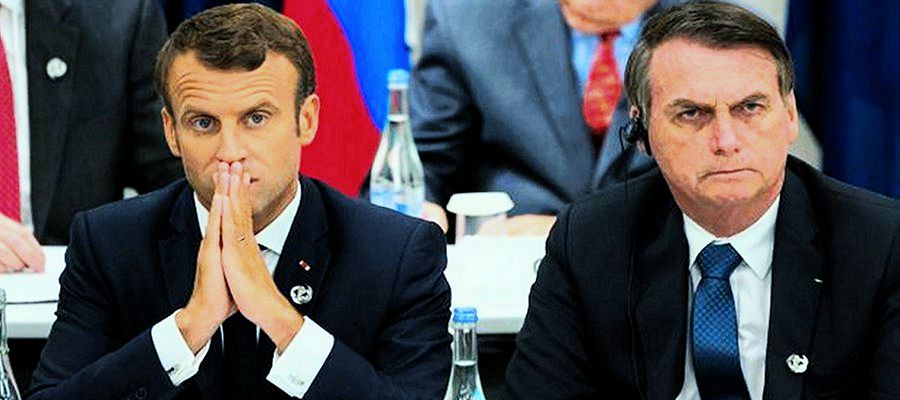
Le président brésilien Jair Bolsonaro aurait approuvé dimanche sur Facebook un commentaire offensant pour la première Dame Brigitte Macron, tandis qu'un de ses ministres traitait le chef de l'Etat français Emmanuel Macron de « crétin opportuniste ».
Jair Bolsonaro aurait réagi à un post se moquant du physique de la première Dame française en le comparant à celui de Michelle Bolsonaro (37 ans), rayonnante le jour de l'investiture de son mari. « Vous comprenez maintenant pourquoi Macron persécute Bolsonaro? », peut- on lire à côté de photos des deux couples présidentiels. « C'est la jalousie (...) de Macron, je parie », écrit l'internaute, Rodrigo Andreaça.
« N'humilie pas le type - MDR », aurait répondu en commentaire le président Bolsonaro en référence à son homologue français.
Ce post a-t-il été publié par le chef de l'Etat lui-même ? A un porte-parole du palais présidentiel de Planalto de répondre « Nous ne faisons pas de commentaire ».
Le président français Emmanuel Macron a déploré les « propos extraordinairement irrespectueux » du président brésilien.
Insultes
Dimanche également, Emmanuel Macron a été copieusement insulté sur Twitter par le ministre brésilien de l'Education, Abraham Weintraub. « Macron n'est pas à la hauteur de ce débat (sur l'Amazonie, ndlr). C'est juste un crétin opportuniste qui cherche le soutien du lobby agricole français », a écrit le ministre de l'éducation, en référence à l'opposition du président français à l'accord de libre-échange UE-Mercosur.
Le terme utilisé en portugais (« calhorda »), très loin des usages diplomatiques, n'a pas d'exact équivalent en français mais se trouve à la croisée de « tricheur », « crétin » et « connard ».
Olavo de Carvalho, écrivain et "gourou" de Jair Bolsonaro, exilé aux Etats-Unis, a de son côté forgé sur Twitter le nom de "Macrocon", au moment où la sphère bolsonariste se déchaîne contre le président français.
Ces attaques inédites marquent une très nette escalade dans les tensions entre Brasilia et Paris.
L'Amazonie a jeté de l'huile sur le feu d'une relation franco-brésilienne qui s'est tendue après l'arrivée au pouvoir à Brasilia du président d'extrême droite.
Jair Bolsonaro avait infligé un affront diplomatique fin juillet au ministre français des Affaires étrangères Jean-Yves Le Drian, en visite à Brasilia, en annulant leur rencontre.
Il avait posté sur Facebook un direct dans lequel on le voyait se faire couper les cheveux à l'heure prévue du rendez-vous, qui avait été annulé "pour des questions d'agenda".
M. Le Drian, qui avait rencontré des ONG brésiliennes souvent hostiles à Jair Bolsonaro, avait ironisé sur cette « urgence capillaire ».
Ces derniers jours, à propos de l'Amazonie, Jair Bolsonaro a accusé M. Macron d'avoir une « mentalité colonialiste » tandis que celui-ci l'accusait d'avoir « menti » sur ses engagements climatiques.
Des méthodes dignes des plus mauvais soaps politiques.
|
|
|
|
|
|
|
|
| Jaimie Potts pour DayNewsWorld |
 |
There are no translations available.
SAUVER LE G7 A TOUT PRIX
PAR UN COUP D'ECLAT LA VISITE IMPROMPTUE DU
MINISTRE IRANIEN JAVAD ZARIF
|
|
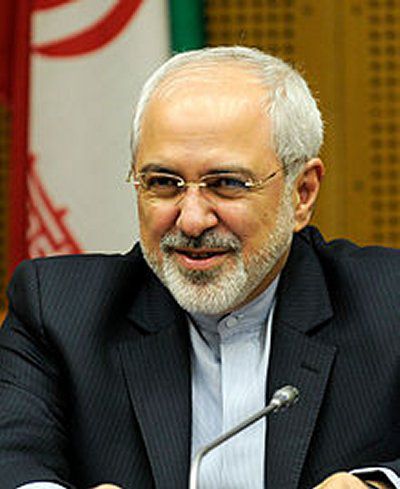 A quoi sert le G7 ? A quoi sert le G7 ?
La légitimité du G7 reste à prouver après ces deux jours de raout des grandes puissances industrialisées qui ont mis au ban la Russie et préféré inviter des chefs d' Etats d'autres continents.
D'ailleurs de nombreuses rencontres se font bilatéralement au détriment du multilatéralisme.
Or le président français Emmanuel Macron, hôte de ce G7, veut à tout prix faire montre de son emprise sur le G7 de Biarritz.
Après avoir incendié le président brésilien Bolsonaro -grand admirateur de Trump- pour sa gestion des feux ravageant la forêt amazonienne quoi de mieux alors que d' inviter à Biarritz le ministre iranien des affaires étrangères, réformateur, Javad Zarif à Biarritz?
Mais une invitation en marge du sommet pour un entretien exclusif avec son homologue français Jean-Yves Le Drian, rejoint à la fin par Emmanuel Macron, ne risque-elle pas de dénoter, d'incommoder ?!
Pas sûr que le président Donald Trump encaisse le coup d'épée dans le dos sans coup férir !
Il a certes fait bonne figure devant les caméras du monde entier assurant que rien ne pouvait remplacer les approches bilatérales avec sa propre administration.
Mais en pleine escalade verbale et militaire contre l’Iran, Donald Trump a tout de même nié a priori tout droit au président français de négocier « au nom des Etats-Unis ».
Une mise en scène qui aurait ennuyé l'entourage de la présidence américaine...
Mais au- delà de ce vaudeville franchouillard, faut-il y voir la volonté de souligner la possible crise internationale face au déclenchement d’une possible guerre avec l'Iran ?
Le chemin de la négociation pour l'éviter ne serait-il pas alors des plus urgents ?
Un coup de projecteur capable peut-être d'initier un processus de désescalade salutaire de cette crise déclenchée par le retrait des Etats-Unis de l’accord international sur le nucléaire iranien signé par Barack Obama.
Mais attendons-nous à ce que Donald Trump active sa machine numérique à invectives dès son vol retour vers Washington face à un pari audacieux quelque peu prétentieux du Président français.
Un coup d'épée dans l'eau pour les Iraniens conservateurs dont ne fait pas partie Javad Zarif, le "côté souriant de l'Iran" !
|
|
|
|
|
|
|
|
| Garett Skyport pour DayNewsWorld |
 |
CASE FRANCOIS DE RUGY OR THE TV SERIE OF THE SUMMER OF EMMANUEL MACRON
|
| Here we are this summer again plunged into a scandal of Macronie! What better dreams for vacationers fond of political and financial scandals!
Wednesday morning, July 10, 2019, Mediapart revealed that François de Rugy, then president of the National Assembly, organized lavish private dinners at the expense of the taxpayer. With his wife, Séverine Servat de Rugy, he would have received several of their friends under the paneling of the hotel Lassay for evenings where the grands crus (500 euros the bottle) flowed and lobsters covered the tables. 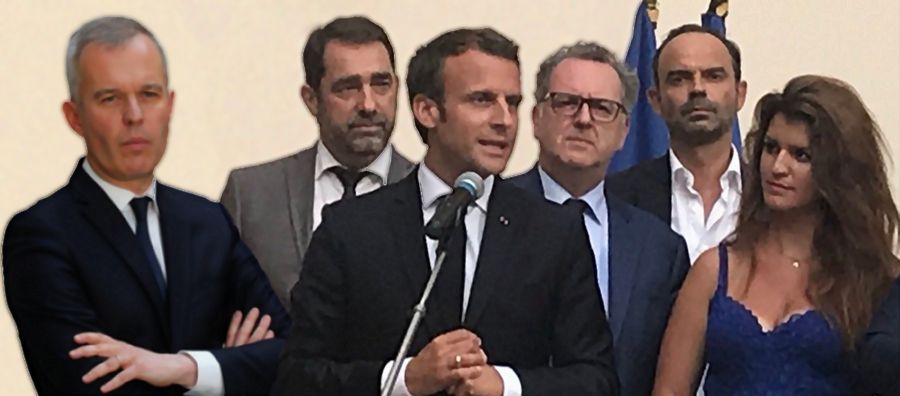
François François de Rugy assumes and justifies himself. On the same day, Wednesday evening, another announcement falls. The journalist Fabrice Arfi of Mediapart reveals indeed in the wake that the minister's director of cabinet, Nicole Klein, still occupies a social housing in the XIVth district since 2001, while she did not work in Paris between 2006 and 2018 .
A situation that "deprived of housing one of the approximately 200,000 applicants for social housing in Paris, who wait for many years before obtaining an apartment," says Mediapart. The reaction of his boss François de Rugy was not long in waiting: she was dismissed without further trial, Thursday, July 11.
And a new revelation would tarnish the reputation of the minister. Thursday the 13th of July in the morning the De Rugy couple have made realize, according to Mediapart, more than 63 000 euros of work, always paid by the taxpayer, in their private apartments of the ministry. Of course the number 2 of the government was again quickly justified.
But wanting to extinguish the fire as soon as possible, two investigations were ordered by the government.
Emmanuel Macron still remembers the so-called "Benalla" case which began in July 2018 to be fueled until the spring of 2019. Each day brought its share of twists, as well in the columns of the World as in the other daily titles and weekly, which, as in the nineteenth century to Eugene Sue with The Mysteries of Paris published in the Journal des débats, kept the French in suspense.
Two open investigations that would clear François de Rugy
One is led by the services of the National Assembly and deals with the allegedly private dinners he organized at the Hotel de Lassay when he was its president. The other is headed by the General Secretariat of the Government (SGG) and concerns the work carried out in its former official residence of the Hotel de Roquelaure (VII), for an amount of 63,000 euros.
The result of these instructions should be unveiled Tuesday morning.
Part of the result of the investigations, however, transpired in the press that the famous dinners would all be "professional", thus clearing the former minister.
And what about the result of the inquiry organized by the Prime Minister's services on his job accommodation? He would be of the same ilk. The total bill of 63,000 euros is explained by the specificities of the building built in the eighteenth century and requiring specialized providers. These would be the conclusions of the inspection launched by Matignon and entrusted to the general secretariat of the government. The full report will be known on Tuesday.
Investigations by government-related services in place
"A joke," reacted on Twitter, Fabrice Arfi. "If the National Assembly has investigated De Rugy as she investigated Benalla, we know what to do," quipped the journalist Mediapart.
Especially when one dwells on the very nature of these two surveys, carried out by services related little or more to the power in place ...
"Besides, there is also the desire not to overwhelm him anymore. He has already paid a high price, "said a ministerial adviser according to Franceinfo. Especially since another file, much more sensitive, could potentially undermine Rugy: that of the payment in 2013 and 2014 of a portion of its contributions to EELV with its compensation representation fee (IRFM).
The beginning of a second "murderous summer" for Emmanuel Macron or late game ?
|
|
|
|
|
|
|
|
| Garett Skyport for DayNewsWorld |
 |
ABOUT POLICE VIOLENCE IN FRANCE
|
| Nearly 300 people gathered on Friday, June 29, for an operation to block the Sully Bridge in Paris after a call for non-violent civil disobedience against "climate inaction".
The ecologist protesters of Extinction Rebellion, who were participating in a peaceful (but undeclared) rally to block a bridge in Paris on Friday, were dispersed manu militari by the police. Images of tear gas and dragged militants provoked many indignant reactions.
 "Police, gently, we do that for your children! ". "Police, gently, we do that for your children! ".
About 300 activists of the group Extinction Rebellion organized, Friday, June 28, a blocking operation of the bridge of Sully, in Paris. This group, born in late 2018 in the United Kingdom, calls for non-violent civil disobedience against "climate inaction". They were quickly and violently dislodged by the police
Pacifist protesters dislodged by tear gas
Around noon, after blocking some streets of the 4th arrondissement, the militants joined the bridge of Sully for a "festive" event. The demonstration had not been declared officially, but the prefecture had been warned the day before the mobilization.
The intervention of the police was muscular: the police sprinkled with tear gas the militants.
A report was requested from the police prefect
Following this evacuation, Christophe Castaner asked a report to the Paris police chief on the "modalities" of the evacuation. "At the request of the Minister, a technical inspection was launched and a report was requested to the Prefect of Police on how to manage this operation of law and order made necessary to restore traffic in the heart of Paris," he said. said the Ministry of the Interior.
The blocking of the Sully bridge, which links the 4th and 5th arrondissements, hindered the traffic routes, while France was going through a period of heatwave and alternating traffic was imposed in the capital that day.
According to the police headquarters, the police intervened to "stop the obstruction of the traffic generated by this action". After asking the officials "several times to disperse" and "in the face of their refusal to leave the premises," summonses were made without more success, said the prefecture. "This rally was later dispelled by the police," said the administration, which states that two people were placed in custody for offense of obstruction of traffic.
Criticism of law enforcement by the government?
"When I saw that, I asked myself questions and watched the video as a whole," said Ecology Minister François de Rugy, asked about this episode on Sunday on BFMTV.
Government spokeswoman Sibeth Ndiaye was more vocal on LCI: "I believe the activists in question were participating in a rally that was neither declared nor authorized. But "it does not justify gassing in the face and with such proximity, of course," she added.
As a reminder, tear gas can not be used within one meter and only to disperse violent demonstrations and not peaceful demonstrations. The police response was disproportionate, it seems.
The use of legitimate violence against troublemakers?
As it has been in certain manifestations of the "Yellow Vests" so that the act XII "Yellow Vests" had been planned as a "white march" in Paris for the wounded demonstrators.
"Today, there are 2,000 of which a hundred seriously affected," denounced Maxime Nicolle, one of the figures of the dispute. This was confirmed by the militant group "Disarming them." They lost an eye after a shot of LBD, a hand after the explosion of tear gas grenades GLI-F4, or were wounded by shots of pounding grenade DMP . Among them, Jérôme Rodrigues wounded in the eye by a shot of LBD or fragments of grenade DMP, he who filmed the rally place de la Bastille.
As much as they are to be seen, they denounced the use of these weapons by the police at the same time as they denounced "police violence".
The French government, for its part, defended the need for these weapons to avoid violent direct contacts and more injuries between protesters and police.
"What I know is that if we take them away from our police, what's left of them? They still have the body-to-body or their service weapon. I do not wish that they use their service weapon, and I wish to avoid the body-to-body. ". The speech of the Ministry of the Interior is that if we suppress them, the police will have no choice but to resort to their firearms and that there will be deaths. And the Council of State, seized in urgency, to reject the requests for suspension of the use of the launcher of defense bullets (LBD), believing that the risk of violence made it "necessary to allow the police to resort to these weapons ". But this speech sounds wrong in comparison to what is happening in other democracies.
In 2016, the Catholic Association against Torture and the Death Penalty (ACAT), published a report investigating police violence in France, entitled "Order and strength": the human toll is already heavy. The 112-page dossier, based among other things on the work done by Ivan Du Roy and Ludo Symbille, already highlights between 10 and 15 deaths per year and calls into question the use of sub-lethal weapons (LBD, Taser) and Police detective techniques (folding, ventral plating) in this one.
Convictions of international bodies of the use of LBD
On 14 February, a group of experts from the UN Human Rights Council issued a ground-breaking communiqué on the subject, saying that "the right to demonstrate in France has been disproportionately restricted" while giving the figure of 1700 wounded.
On 25 February, the Council of Europe calls on France to suspend the use of LBDs.
"The injuries caused by LBD shots reveal a disproportionate use of force, as well as the maladjustment of this type of weapon in the context of law enforcement operations," noted the Commissioner of Human Rights. Man of the ECHR, Dunja Mijatovic, in a ten-page memorandum.
And finally, Michelle Bachelet, the United Nations High Commissioner for Human Rights, has not failed to ask that France investigate police violence that has occurred during the Yellow Vest demonstrations since then. mid-November in a speech to the Human Rights Council in Geneva "We encourage the (French) government to continue the dialogue and urgently call for an in-depth investigation of all reported cases of excessive use of force Michelle Bachelet continued, putting France on the same list as Venezuela or Haiti.
The use of legitimate violence against troublemakers? Yet the same injury can be the result of legitimate and illegitimate violence
So much so that the parquet floor of Paris opened several preliminary inquiries
On Monday, 1 July, he also announced that he had opened a preliminary inquiry into "willful violence by a person in the custody of the public authority", in order to shed light on the conditions of this muscular evacuation. Being a "depositary of public authority" may also constitute an "aggravating circumstance" under Articles 222-12 and 222-24 of the Penal Code.
The subject of police violence must no longer be treated in the manner of the blunder, the exception, the accident, the slippage but not as part of an economic, political, social system, according to the researcher Mathieu Rigouste.
"What police, for what missions? What connections between the police and the government, what control of citizens over the police? "So the question arises.
|
|
|
|
|
|
|
|
| Garett Skyport for DayNewsWorld |
 |
CASE OF NICOLAS SARKOSY WILL BE
JUDGE FOR CORRUPTION
|
| For the first time under the Fifth Republic, a former president will be tried for corruption.
The Court of Cassation rejected Tuesday, June 18, the last appeals filed by Nicolas Sarkozy, his lawyer Thierry Herzog and the former high magistrate of the Court of Cassation Gilbert Azibert to avoid a trial for "corruption" and "trading in influence" .
The court has finally validated the referral to the criminal court of former President Nicolas Sarkozy, prosecuted including the "corruption" of a senior magistrate of the Court of Cassation in this case revealed by wiretapping. Messrs. Herzog and Azibert will also be tried for "breach of professional secrecy".
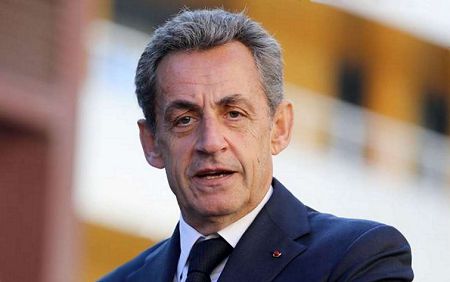 The secret phone of "Paul Bismuth". The secret phone of "Paul Bismuth".
In a document, the judges of the national financial prosecutor's office PNF ensured that the investigation of the judges had
"Highlighted heavy and concordant charges against MM. Azibert, Herzog and Sarkozy ", going so far as to compare the methods used by the former president and his lawyer to those of" senior offenders "including the recourse, to communicate confidentially, to the false identity of" Paul Bismuth "...
Investigators had realized that the former president, placed on tapping in another investigation, and his lawyer communicated via cell phones acquired under a false identity, including that of Paul Bismuth for Mr. Sarkozy. The former head of state is suspected of having attempted to obtain secret information from Gilbert Azibert at the beginning of 2014, via his lawyer Thierry Herzog, in proceedings concerning the seizure of his agendas in the Bettencourt affair in exchange for a boost for a prestigious position in Monaco.
But according to Me Jacqueline Laffont, the Court of Cassation would however "not dismiss the legal grounds" raised by the defense and left the court "the care to settle" ( Le Monde ).
According to her, "these legal issues therefore remain relevant, in particular that relating to the prohibition by the European Court of Human Rights to use retranscriptions of wiretaps with its lawyer against a litigant".
|
|
|
|
|
|
|
|
| Garett Skyport for DayNewsWorld |
 |
GENERAL POLITICAL SPEECH SOFT REFORMISM PROMISED BY EDOUARD PHILIPPE
|
| In the National Assembly, the Prime Minister presented the calendar and method of the coming months, until the municipal elections of March 2020. He then obtained the confidence of the deputies by 363 votes to 163.
The situation of "emergency", which led to the election of Emmanuel Macron, continues after two years of office, said the Prime Minister in attacking his policy speech in the National Assembly. And to list the "economic", "social", "ecological" and finally "political" emergencies that determine the need to "stay the course set (...) to release the forces of our country and protect its citizens".
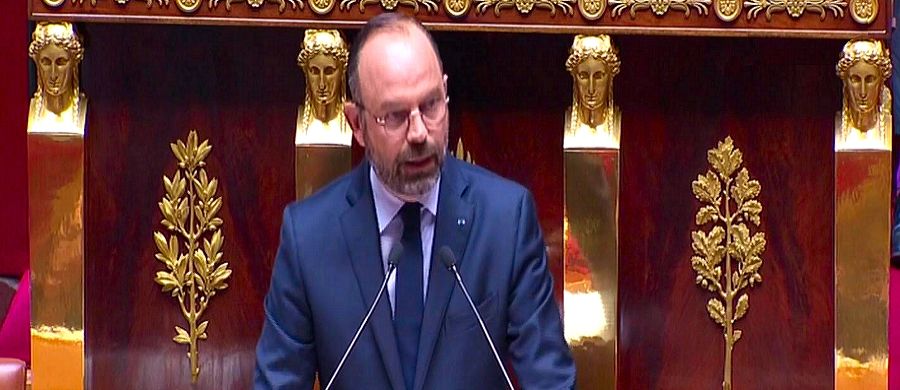 "We want to rebuild trust, by returning to the idea of power, a guarantee of our greatness and our way of life, a France faithful to itself, a France that is hard-working, supportive and environmentally-friendly, drawing on what it produces. the source of social justice, "concluded Philippe. "We want to rebuild trust, by returning to the idea of power, a guarantee of our greatness and our way of life, a France faithful to itself, a France that is hard-working, supportive and environmentally-friendly, drawing on what it produces. the source of social justice, "concluded Philippe.
1) Edouard Philippe promises the gradual end of special diets and says it will take longer to work. Employees will still have the opportunity to retire at age 62, but a break-even age will be offered with benefits for anyone who chooses this age of balance. The Prime Minister also ensures that the rules will be the same for everyone. The new system "will define an age of equilibrium and incentives to work longer".
2) Lower taxes
Household taxes will fall by 27 billion euros over the five-year period. Édouard Philippe announces a decline of 350 euros on average per household for the first installment.
The tax loopholes will be re-studied, the ministers of Bercy Bruno Mayor and Gerald Darmanin will reveal their leads in early July.
Édouard Philippe also confirmed that "the residence tax on the main residence will be completely removed for all French. "
3) Bioethics Act
The bioethical bill, including the LDC for all, will be adopted by the Council of Ministers in July and then examined at the end of September at the Assembly. "I am convinced that we can achieve a kind of serene, deep, serious debate, up to the demands of our country, which is my ambition anyway," the prime minister said.
4) Access to public services
"Maisons France services". Édouard Philippe hopes to see 300 open by January 1, 2020 and at least one by township by the end of the five-year period. Objective: to allow every French to have access to public services.
5) Financing the dependency
"Measures to support home care" of the elderly and "investments" in retirement homes will be included in the 2020 budget of Social Security, promised Édouard Philippe. He confirmed the presentation "at the end of the year" of a draft law on dependence.
The Minister of Solidarities and Health, Agnès Buzyn, will present "a bill that will define a strategy and programming of the necessary means to take care of dependence," he added. This reform "will be another great social marker of this five-year period, perhaps one of the most important".
6) Support for single-parent families
30,000 crèche places will be created for these families.
By June 2020, the government will put in place a new system to protect single people against the risk of unpaid alimony, "said the Prime Minister." By decision of a judge, or on request in case of incidents payment, the pensions will be automatically withdrawn by the CAF to be paid to their beneficiaries and it is the CAF that will trigger a recovery procedure in case of unpaid, "he said.
7) State Reform
Regarding the administration, the emphasis is on strengthening local authorities: "local services will be strengthened, and central governments reduced".
8) Reform of the institutions
Édouard Philippe opens the door to a postponement after the senatoriales of September 2020 if an agreement with the room proves impossible. "We will wait for the right moment and the will of the Senate, which may only come after the renewal of the Upper House in 2020," said the Prime Minister.
9) Migrants : combating abuse and holding an annual debate
Édouard Philippe pleads for European harmonization. "The number of asylum seekers has dropped by 10% in Europe but continues to grow in France by around 22%. If we are to welcome, we must control these migratory flows. In the coming months, France will embark on a plan for a complete refoundation of Schengen. The right of asylum is a treasure, we are devoting resources to it. "
Each year there will be a debate in Parliament on the country's migration policy. The first will be organized in September.
10) Reform the Islam of France
The head of government reaffirms the will of the state to fight against Islamism and pleads for a revamp of the Islam of France. "Islam of France must train imams in France who speak French and put an end to the system where many imams or chants are paid by foreign states".
11) "A new act of decentralization"
The Prime Minister wants to take measures to encourage the mayors' commitment, which will be presented in July. The project could go to the Senate in September. The head of government wants to "clarify the territorial mille-feuilles".
12) Fight against insecurity
Édouard Philippe intends to "fight against gratuitous violence". Interior Minister Christophe Castaner will issue a white paper on internal security this summer, a law must be passed in the wake.
The focus is on the fight against narcotics: "Over the next twelve months, our priority will be to fight drug trafficking. (...) It involves harassing sales outlets, neutralizing distribution ladders, knocking out network heads "
13) "Ecological acceleration"
"The next twelve months will be those of ecological acceleration," promises Édouard Philippe, who wants social housing to end the "energy sieves".
The head of the government wanted the draft laws on mobility and energy-climate to be adopted before the summer.
14) Reform of institutions : towards a postponement
Edouard Philippe opened the door postponing the review of institutional reform after the senatoriales of September 2020, calling however not to "resist the desire for change expressed by the French."
"We will wait for the right moment and the will of the Senate, which may come after the renewal of the Upper House in 2020," said the Prime Minister.
Mr. Philippe also recalled that "the President of the Republic has the ability to directly question the French [by referendum] on the reduction of the number of parliamentarians". |
|
| |
|
| |
|
| |
|
| Britney Delsey for DayNewsWorld |
 |
POLITICAL CARICATURES ARE INDISPENSABLE TO FREEDOM OF EXPRESSION
|
| Following the publication of a controversial caricature, the American newspaper The New York Times took a radical step: it banned political cartoons. Cartoonist Plantu sees it as a threat to "the future of our democracies". "Humor and disturbing images are part of our democracies," says French designer Plantu. Founder of the Cartooning for Peace association, which criticized Tuesday the New York Times' decision to ban political cartoons from its international editions. "It's as stupid as asking children on Mother's Day to stop making drawings for their moms," said the cartoonist Le Monde history.
The daily said it had been thinking for a year to "align" the international edition to that published in the United States, which no longer includes political cartoons for many years. He intends to put this project into effect as of July 1st.
Controversy over caricatures
At the origin of this controversial decision was a caricature of comedian Antonio Moreira Antunes. In late April, the publication of a cartoon of Israeli Prime Minister Benjamin Netanyahu and US President Donald Trump sparked an uproar within the Jewish community and beyond. The head of the Israeli government was drawn in the form of a guide dog, wearing a necklace with a star of David, and kept on a leash by the blind American president with a kippah on his head. This caricature
The New York Times has announced Monday that it will publish more political drawings in its international edition, after a recent controversy related to a caricature deemed antisemitic. These drawings are already banned from its American edition for several years.
For me . Plantu the American newspaper has "flattened itself in front of the social networks by apologizing several times for having published a drawing", and he should "get back together" and say that he was "wrong to separate from the designers because we can not imagine newspapers without the images of opinion ".
Press drawing is a "fundamental human right" for Plantu
Through the association Cartooning for peace (created in 2006 with Kofi Annan), and with the NGO Reporters Without Borders (RSF), Plantu is leading a campaign for press design to be recognized by UNESCO as a human right. fundamental. He therefore expressed his solidarity with his colleagues working for the New York Times, including Antonio Moreira Antunes, whose caricature is at the origin of this controversial decision.
The mobilization of the cartoonists
It is on Twitter, and with pencils, that cartoonists have reacted to the controversy. Authors like Ménégol, caricaturist who collaborates notably with the Figaro, fought back on the social network. In his drawing, the emblematic letters of the New York title became sawtooth, cutting up a pencil. The cartoonist Glon amused himself by caricaturing Donald Trump with his advisor. "But why does not the New York Times ever talk about me again?", The US president wonders. "They stopped the political caricature, Mr. President," his neighbor replies.
"As we supported the cartoonist Antonio who was censored by the New York Times (...), the association Cartooning for peace supports the cartoonist Patrick Chappatte", one of the cartoonists of the American newspaper for twenty years. years, pointed out the draftsman. "We are worried about the future of our democracies and the freedom of opinion," he added.
Cartoonists worried about democracy
"Maybe we should start to worry," said Patrick Chappatte "And we rebel. News cartoonists are born with democracy and when liberties are threatened, so are they. "
For his part, the head of the editorial section of the New York Times James Bennet said on Twitter that the newspaper wanted to continue working in the future with Patrick Chappatte and Heng Kim Song, his other star designer, on other formats...
|
|
|
|
|
|
|
|
| Alize Marion for DayNewsWorld |
 |
CLIMATE OBJECTIVE NEUTRALITE CARBONNE BY 2020
|
Under the Paris Climate Agreement, the signatory countries pledged to announce new efforts by 2020 to strengthen their national plan to reduce greenhouse gas emissions, in order to contain the global rise in temperatures.

"There are 80 countries that have already told us to be ready" to rev up their ambitions, Luis Alfonso de Alba told reporters.
"But that does not mean they want to do it the scale we need," he said.
Target: carbon neutrality by 2050
The United Nations is pushing governments to reduce greenhouse gases by 45% over the next ten years and achieve carbon neutrality by 2050.
"We need to dramatically increase our ambition," said the UN climate envoy. "We are not talking about a gradual approach, but a drastic increase. ".
A total of 197 parties signed the Paris Agreement in 2015 following COP21, and 186 have since ratified it.
The United States of Donald Trump has decided to withdraw from the agreement, but this withdrawal will only be effective in 2020.
Luis Alfonso de Alba is organizing next September an ambitious summit on the environment in New York.
He was in Washington last week to meet with US officials. "Very positive" meetings, according to the UN envoy.
The United States is the second largest polluter in the world after China.
|
|
|
|
|
|
|
|
| Kelly Donaldson for DayNewsWorld |
 |
ECOLOGICAL DEFENSE COUNCIL
AN OPPORTUNISTIC MOBILIZATION OF GOVERNMENT IN THREE DAYS OF EUROPEANS
|
AT three days of the European elections Emmanuel Macron unites the first Ecological Defense Council. This Council, whose creation, in the manner of the Defense Council, was announced on April 25th at the conclusion of the great national debate, is composed of the Prime Minister and twelve ministers. It aims to coordinate the government's environmental action and ensure their "priority" in public policies, says the presidency.
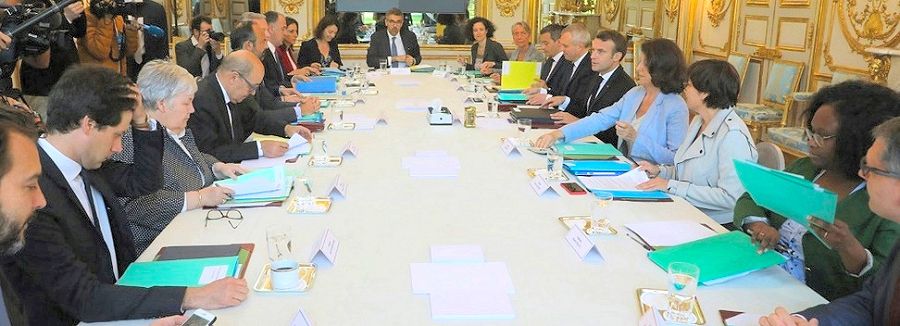 "It is a form of council of ministers, but dedicated entirely to the ecological transition.The priority indicated by the President of the Republic to the climate issue can not be the affair of a single minister, it brings together all the ministers the more concerned ", it is known in the entourage of the Head of State. The Prime Minister and the Ministers of Ecological Transition, Economy, Budget, Foreign Affairs, Agriculture, Territorial Communities, Health, Housing and Overseas are permanent members of this Council , lists the decree of the Official Journal. "It is a form of council of ministers, but dedicated entirely to the ecological transition.The priority indicated by the President of the Republic to the climate issue can not be the affair of a single minister, it brings together all the ministers the more concerned ", it is known in the entourage of the Head of State. The Prime Minister and the Ministers of Ecological Transition, Economy, Budget, Foreign Affairs, Agriculture, Territorial Communities, Health, Housing and Overseas are permanent members of this Council , lists the decree of the Official Journal.
Some announcements are expected as the probable abandonment of the project "Montagne d'Or", this open-pit gold mine in Guyana "incompatible with environmental requirements," according to Emmanuel Macron. The minister of ecological and solidarity transition, François de Rugy, must also go to Guyana in mid-June.
A series of other topics will be discussed, such as the reinforcement of protected natural areas, a trail evoked by the head of state after his meeting with the UN biodiversity experts in early May. The Council could also propose to curb the artificialisation of soils, to stop the reduction of agricultural land in favor of subdivisions, to set new plastic recycling targets or to specify the future law on the circular economy, expected at the beginning of July in the Council of Europe. ministers.
This Council will also have to take stock of the climate plan adopted in July 2017 and the biodiversity plan adopted in July 2018 and, more generally, monitor the "green" programs already announced, such as the cycling plan.
This staging of the declared voluntarism of the Head of State on environmental issues did not fail to elicit reactions from his critics denouncing an "electoral opportunism" to three days of voting in France for the European elections.
Has not his party, LREM, made the ecological transition a priority of its program for Europeans with the rallying of some headliners stuck in the environmental camp, like Pascal Canfin and Pascal Durand ?
The REM knows that the list of Europe Ecology-Greens (EELV) represents a threat likely to make the majority lose some valuable points ...
In addition, a day of international youth mobilization and numerous marches are announced, Friday and Saturday, in France and abroad.
No question for Emmanuel Macron to let the ecologists take back ground.
|
|
|
|
|
|
|
|
| Garett Skyport for DayNewsWorld |
 |
LEAKS ON MEASURES EMMANUEL MACRON
|
| I angry some of the retirees with the rise of the CSG. That is why the President must announce the reindexing of "pensions of less than 2,000 euros" on inflation in the short term, that is to say from 1 January 2020. "Pensions of less than 2,000 euros will be reindexed on inflation as of January 1, "according to this draft speech.
As a cost-saving measure, Prime Minister Edouard Philippe announced at the end of August that the increase in retirement pensions would be capped at 0.3% in 2019 and 2020, an unpopular measure which was added to the effect of the rise in CSG for some retirees.
On December 10, during a televised speech, Mr. Macron had already announced the cancellation, for 2019, of the planned increase in the CSG for retirees receiving less than 2,000 euros per month.
A drop in "taxes of the middle classes" will be financed in particular by "the suppression of certain tax loopholes." Prime Minister Édouard Philippe had referred to the "fiscal exasperation" as the main lesson of the great national debate launched in early January.
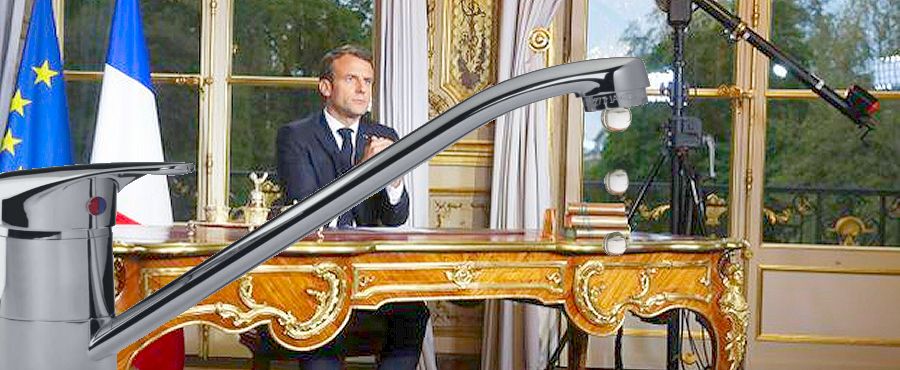 Among the measures in favor of purchasing power, the text also mentions that the exceptional bonus of € 1,000 tax-free and without social contributions, decided at the end of December 2018, will be "perpetuated" and open to employers "every year". Among the measures in favor of purchasing power, the text also mentions that the exceptional bonus of € 1,000 tax-free and without social contributions, decided at the end of December 2018, will be "perpetuated" and open to employers "every year".
Regarding the wealth tax, the President of the Republic refuses as planned to restore it immediately but announces an "objective assessment" of the controversial reform of 2017, pledging on this basis to "make all the changes and necessary corrections ".
It is also planned to abolish certain tax loopholes. All this will be a reality from the beginning of next year.
Emmanuel Macron explains that he no longer wants "no closure of school and hospital until the end of the five-year period", "unless the mayors ask".
Acknowledging that "many of our fellow citizens feel that their territory is abandoned," the Head of State wants to "ensure the presence of public services" and "open a new act of our decentralization", including with "more officials on the ground, with greater responsibility, "" and fewer officials in Paris to write standards or create rules ". Emmanuel Macron sets the new ceiling at 24 pupils per class, from the large section of kindergarten to CE1, including outside REP.
To respond to the pressing demands of the Yellow Vests and some oppositions such as France insubordinate (LFI), Emmanuel Macron is therefore "favorable" to that referendums of citizen initiative (RIC) "can be organized on certain topics of interest local".
He is also "in favor of making more accessible, by simplifying the rules", the referendum of shared initiative (RIP), provided for by the Constitution but extremely complicated to implement. The RIP was introduced into law in 2008 by Nicolas Sarkozy but the implementing decree was only promulgated in December 2014.
The text of Emmanuel Macron's speech also provides that "an agreement of 300 citizens drawn by lot" will be installed "next month", in May. She will be in charge of "working on the ecological transition and the concrete reforms to take". For the last two years, the constitution of a citizens' assembly dealing with ecological issues has been proposed many times.
Finally, the President wants a new act of decentralization designed with elected officials and forces to simplify the "millefeuille".
The President of the Republic said he was in favor, according to his draft speech, to the abolition of ENA (National School of Administraton), which he himself graduated in 2004. The Head of State is favorable to a change of "training, selection, careers by removing the ENA and several other structures," according to the speech of his speech. "We need an elite, decision-makers," says Emmanuel Macron, who wants "all our young people to be given their chances based solely on their merit and not on their social or family background," according to the document
The fire of Notre-Dame de Paris has certainly upset the agenda of the President of the Republic, forced to postpone its announcements of exit of the "big debate" to later. But the French are impatiently waiting for the president to clarify the measures envisaged and the mode of governance.
|
|
|
|
|
|
|
|
|
| Garett Skyport for DayNewsWorld |
 |
EMMANUEL MACRON AT MANEUVER
FOR THE GREAT NIGHT OF MONDAY
|
"It is a president of lightning who often referee at the last moment", according to a close of the president.
|
|
| Prime Minister Edouard Philippe woke up for a week to curb the impatience of the French after the close of the great debate. Place tonight to the concrete answers of President Emmanuel Macron.
Emmanuel Macron will unveil, this Monday evening at 8 pm on television, "priority action projects and the first concrete measures" to respond to the great national debate and the crisis of "yellow vests", announced the Elysee, this Sunday evening.
On Wednesday, he will "make new announcements", "explain and detail" his major projects at a press conference at the Elysee. His first in France since the beginning of his quinquennium in May 2017, he had draped in an attitude of Olympian. Objective of this speech: to provoke a "blast" effect by speaking to the greatest number.
"It's a president of lightning who often referee at the last moment," said a close.
But the suspense that the president maintains for weeks on this intervention must meet the expectations of the French.
"In-depth changes will be launched" to mark "a new act", predict some. Others even promise "surprises" for Monday to revive a quinquennium in decline.
But had not Edouard Philippe slowed the ardor of some? The output of the great debate "will last a long time" and "will not be done in three announcements," he also warned late March. Before also warning that all the expectations, sometimes contradictory, French could not be satisfied. "Adding 66 million individual votes does not build a common project," he said in Saint-Brieuc.
The tracks are not lacking to come out of the top of this unprecedented impasse of power.
Some in advance seem excluded, such as the return of the ISF whose removal has earned him to be called "president of the rich." A track that evokes others makes dream some: that of the creation of a universal allowance ...
According to the Ifop survey, 88% of French want to reindex the small pensions on inflation, 87% want to force doctors to settle in medical deserts, 82% want a general decline in income tax and 80% remove the television fee.
It will have included measures to improve their purchasing power, for taxation and pensions. Because we are not mistaken: the trigger of the crisis of "yellow vests" is above all the increase of gasoline at the pump. "A Jacquerie of the 21st century" ?
|
|
|
|
|
|
| Garett Skyport for DayNewsWorld |
 |
There are no translations available.
QUE PROMET LE GRAND SOIR D'EMMANUEL MACRON ?
|
|
Edouard Philippe, qui joue le paratonnerre du Président, est à la manœuvre :
il a passé sa semaine à meubler le temps avant les grandes annonces d'Emmanuel Macron.
À l'Assemblée, Philippe a promis mercredi 9 avril 2019 des décisions « puissantes et concrètes » pour répondre au grand débat.
 Des solutions « dont beaucoup devront être du sur-mesure », a-t-il jugé bon de préciser. Des solutions « dont beaucoup devront être du sur-mesure », a-t-il jugé bon de préciser.
À la fin de son discours, le chef du gouvernement a annoncé que « sur les sujets qui devront faire l'objet d'une concertation, le président de la République fixera le cap ».
« Il nous appartient de passer du consensus sur le diagnostic au compromis et aux choix démocratiques qui font les grandes solutions », a-t-il renchéri, évoquant une phase à venir à laquelle participeraient syndicats, patronat et associations.
Mais il en faudra plus que pour le dialogue social se rétablisse avec les élus et tout particulièrement avec le Chef de l'Etat, sur qui colle toujours l'étiquette de Président des riches.
Car comment sortir du « grand débat » sans couac et avec succès ?
« Le président a conscience qu'il joue son va-tout », comme l'a indiqué un ministre, ajoutant que « si ça ne marche pas, on retombe dans des semaines de violences », abonde un ministre.
A Emmanuel Macron de jouer serré
Le chef de l'État devrait répondre en deux temps, d'abord à travers une allocution solennelle, puis avec des interventions médiatiques soigneusement calibrées. Et ce dans les jours qui suivent, mais pas plus tard que mercredi pour que les les annonces ne se télescopent pas avec la mobilisation des gilets jaunes du samedi qui suit.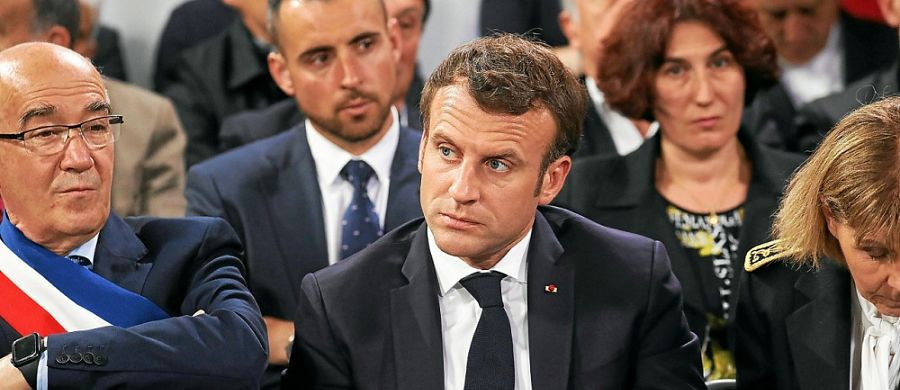
Des bruits courent et des pistes se dessinent.
Au menu :
1° La potentielle création d' « service public de la pension alimentaire ». Nombreuses sont celles à ne pas toucher pour leurs enfants la pension de l'ex-conjoint. Grâce à ce nouveau service en cas de non-versement de la pension, l'État s'en porterait garant et se réserverait le droit de s'attaquer au conjoint fautif.
2° La création d'une Loi d'initiative citoyenne (LIC). À partir d'une pétition, une « conférence de consensus » serait organisée et en cas d'aboutissement, la proposition serait alors envoyée au Parlement, qui la soumettrait au vote.
3° Un impôt plus progressif
A l'étude, une plus grande progressivité de l'impôt sur le revenu semble actée.
4° Parmi les mesures plus symboliques, une « réforme » de l'ENA-et non sa suppression- est toujours sur la table.
Ce ne sera certainement pas le Grand soir. !!
|
|
| |
|
| |
|
| |
|
| Garett Skyport pour DayNewsWorld |
 |
There are no translations available.
LES PROBLEMES DE RECRUTEMENT
D' EMMANUEL MACRON
|
|
On ne compte plus les départs des conseillers d'Emmanuel Macron qui quittent le navire avant qu'il ne prenne l'eau.
Ils sont au nombre d'une douzaine à partir. D'autres changent de poste: Stéphane Séjourné, ex-conseiller politique, devient candidat et directeur de campagne pour les européennes pour La République en marche.
Sibeth Ndiaye, conseillère presse, occupe désormais le poste de porte-parole du gouvernement.
Avec des assistants ou chargés de mission, ils étaient d'ailleurs une petite vingtaine à faire leur pot de départ lundi soir à l'Élysée. Et le Président aurait des problèmes de recrutement pour des postes restés vacants !
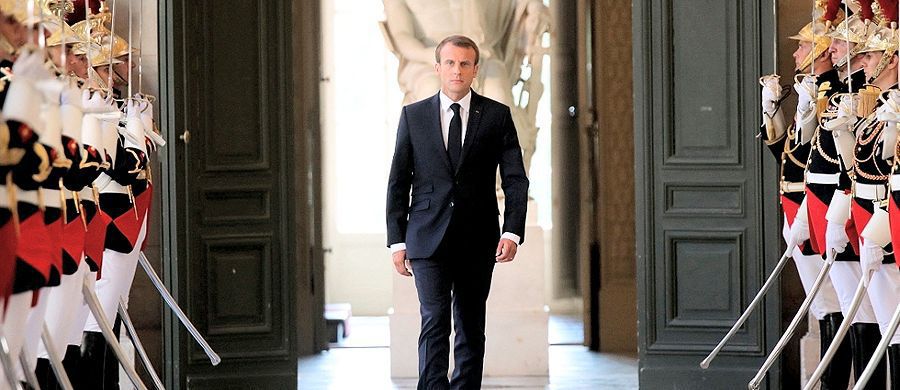 Certains sont aussi sous pression judiciaire. Certains sont aussi sous pression judiciaire.
Et voici que les trois plus proches collaborateurs d'Emmanuel Macron sont convoqués mercredi 10 avril par les juges chargés de l'affaire des passeports diplomatiques d'Alexandre Benalla.
A l'agenda des juges figurent Alexis Kohler, le secrétaire général de l'Élysée, Patrick Strzoda, le directeur de cabinet, et François-Xavier Lauch, le chef de cabinet du président, figurent.
La question est de savoir pourquoi Alexandre Benalla détenait encore ses passeports diplomatiques depuis son licenciement
Ces affaires peu glorieuses se multiplient dans l'entourage du chef de l'État qui avait pourtant juré de faire de la politique autrement ! De quitter l'ancien monde ! En ce moment, c'est plutôt le nouveau monde de ces presque quadragénaires peu exemplaires qui est mouillé dans les affaires.
Alexis Kohler est visé par trois plaintes de l'association Anticor, notamment pour conflit d'intérêt présumé. Il lui est reproché des liens familiaux avec l'armateur MSC, principal client des chantiers navals STX, où il représentait l'État au conseil d'administration.
Il avait déjà demandé à rejoindre MSC après le départ de Pierre Moscovici du ministère de l'Économie en avril 2014, mais s'était vu opposer un avis défavorable de la commission de déontologie de la fonction publique !.
Celle-ci arguait alors qu'Alexis Kohler était intervenu en 2010 auprès de STX France en donnant son avis sur un contrat conclu avec MSC, alors qu'il travaillait pour l'Agence des participations de l'État, un service à compétence nationale.Libération indique que Pierre Moscovici avait été « averti de ses liens familiaux » et avait « [pris] soin de l’écarter de tout dossier relatif à MSC » .
L'Express indique qu'après ce refus, comme directeur de cabinet d'Emmanuel Macron,« Kohler décide de ne pas traiter des sujets concernant STX, puisqu'il a été en pourparlers avec MSC et qu'il ne perd pas de vue une future embauche » .
Et l'affaire continue : on le retrouve fin mars 2017 participant à une réunion à Bercy en tant que représentant de MSC au sujet du rachat de STX France, MSC étant opposé à une reprise par le groupe public italien Fincantieri...
Gardons-nous bien de faire une liste à la Prévert, nous verserions dans l'ennuyeux. On achève bien les chevaux.
|
|
|
|
|
|
|
|
| Garett Skyport pour DayNewsWorld |
 |
GREAT DEBATE SYNTHESIS AND DECEPTION
|
| What should we expect from the synthesis of the great debate ?
After two months of consultations, Monday, April 8, 2019, under the glass roof of the Grand Palais in Paris, Edouard Philippe presents the report of the contributions.
Only 1.5 million contributions were posted on the website of the great national debate. The Opinion Way sounder has processed them to deliver an encrypted report. The sounder only dealt with closed questions, that is, questions that can only be answered with "yes" or "no"
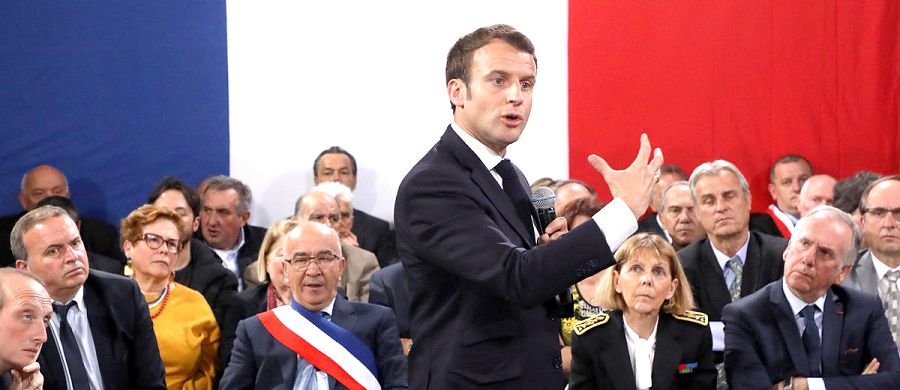 Lower taxes Lower taxes
It is first and foremost the desire for greater justice and efficiency in dealing with the tax that has manifested itself. Several tracks are cited: that everyone pays income tax (34.7%), that taxation is reformed and simplified (28.2%), that the richest contribute more (27.8%), that the tax loopholes be removed (11.8%) and that the ISF is restored (10.3%). Of the respondents, 12.9% offer to reduce VAT on basic necessities.
The reduction of public expenditure
52% surveyed call for public services closer to home and more human since 49% of them have already given up an allowance because of too complicated administrative procedures.
In order to finance social expenditure, 52% are for the introduction of counterparts to the various solidarity allowances, the increase in working time (24%) as well as the decline in the retirement age (22%).
For the reduction of the deficit, public spending should be reduced, according to 75% of them, and especially State expenditure.
Less immigration
With regard to immigration, 10% are for a hardening of reception conditions, with quotas (9.3%) whereas 5.5% advocate the suppression of family reunion and the right of the soil, having a policy European Union.
The proposals that oppose immigration are more numerous than the desire to improve reception conditions (10%). Education and learning French is considered the most effective and fair integration tool (20%).
A reduction of parliamentarians and referendums at the local level
Regarding democracy, 69% demand that the white vote be taken into account while 57% want the vote to become mandatory. Referendums at the local level are claimed at 80%. And 42% wish to facilitate the use of the referendum of shared initiative (RIP), in particular by lowering the trigger threshold (14.4%) and by associating a citizens' initiative referendum (5.8%).
Contributors overwhelmingly (86%) favor a reduction in the number of parliamentarians and the introduction of proportional representation (42.2%) so that the different political sensitivities are better represented.
64% believe that the non-cumulation of mandates is a good thing whereas 53% want a transformation of the assemblies. If 86% of respondents voted against the administrative mille-feuilles, being attached primarily to the town (68%).
The French are very concerned about ecology .
A large majority of them (86%) believe that they can help protect the environment.
On the other hand, 55% think that taxes on diesel and gasoline will not change behavior. To finance the ecological transition, the general budget of the State and the ecological taxation should do it. And this funding should be distributed according to 69% of respondents between companies, administrations and individuals;
The synthesis will not solve everything and may disappoint. Why ?
The synthesis will serve as a working basis to enlighten those who decide by providing them with leads for the best possible decisions. To representatives of the people, elected officials, to make these decisions.
If the Great National Debate has been an exercise in participatory democracy it is indeed for representative democracy to take over. And the announcements will be made by the Head of State in the coming days.
Advertisements "neither" in the "denial nor" in the stubbornness "which are not likely to satisfy the most radical yellow jackets.
|
|
|
|
|
|
|
|
| Joanne Courbet for DayNewsWorld |
 |
THE DESCENT TO THE HELLS
OF EMMANUEL MACRON ?
|
| As we know, the word of Emmanuel Macron has lost a lot of credit and for good reason. In a few days last week only.
Camouflets.
Whether it is her empathic commentary to the address of the septuagenarian wounded in the head during a demonstration of Yellow Vests on Saturday, March 23, 2019:
When he lodged a complaint about "violence in a meeting with a weapon by persons holding public authority against a vulnerable person", Emmanuel Macron hastens to exonerate the security forces responsible for dispersing a few demonstrators gathered in an unauthorized sector.
 "This lady has not been in contact with the police," asserts the head of state in the columns of Nice Matin this Monday, March 25. However, the city prosecutor finally admitted Friday, March 29, 2019 " that a police officer has removed the arm to his right Mrs. Legay" during the dispersion "causing its fall". "This lady has not been in contact with the police," asserts the head of state in the columns of Nice Matin this Monday, March 25. However, the city prosecutor finally admitted Friday, March 29, 2019 " that a police officer has removed the arm to his right Mrs. Legay" during the dispersion "causing its fall".
Whether it's his closest adviser Ismaël Emelien until Monday, March 25th. It was he who made broadcast in mid-July 2018 via anonymous Twitter accounts a distorted montage to defend Alexandre Benalla, mixing images of CCTV obtained illegally and images of another scene of violence!
Or that it is still the fact of the prince dismounted by the Council of State.
"I will continue to open all positions, especially the administration of the senior civil service, to people of talent and merit from other horizons because it's a good thing," said Emmanuel Macron after the appointment in August 2018 of Philippe Besson, a close relation of the presidential couple, as consul general in Los Angeles thanks to a decree modifying the rules of recruitment.
Well, no, the Council of State decided otherwise! Cancellation of the decree since only career diplomats can occupy this type of post as always. So decided the institution against the executive who wanted to be all-powerful.
No wonder the head of state appears physically challenged. After so many camouflets the presidential speech is discredited.
Serial departures from the presidential cabinet.
And to this are added the successive departures of several of his closest advisers: the Elysian cabinet has been reduced to a trickle. Ismael Emalien left the ship for the release of his book. Nothing to do with the Benalla case, he swears. After the departure of Benjamin Griveaux, Mounir Mahjoubi - one for the municipal, the other for Amazon - and Nathalie Loiseau, named head of LREM list for European, the Elysee had to draw from its last reserves to replace them.
It would be close to burn-out, they say in well-informed spheres. He sighs, sighs that detonate with the public image of a dashing and confident head of state. And a colleague to tell the small sentences launched by his entourage. "He lost the tail of Mickey, he can not hang it," says one "It's not far from the burn-out," says the other. A "little hand" adds: "Fortunately it is made up, otherwise we would see how it is burst ...".
The head of state appears very much alone as the outcome of the great national debate is approaching which finally tires the opinion. He is a man exhausted by a very solitary exercise of power far from the official story, the "storytelling" that his faithful soldiers are hearing about the "extraordinary" intelligence of their hero. And the head of state has his share of responsibility in this hellish chaos this descent straight into hell. "If he disappoints, he is dead. And he will disappoint ... ", advances one of his relatives.
"I give him advice, but he does not hold back any. ", Indignant Nicolas Sarkosy.
If Nicolas Sarkozy appreciated the current president at the beginning of the term, the relations seem to have cooled down considerably since then. The former president criticizes the length of the great debate, or the last reshuffle made by the executive. He is also critical of the upsurge of anti-Semitic acts and the lack of strong action by the ruling power.
"The state must answer. I am sure he will do it. But it must be done now and with extreme firmness, "he said, according to Le Figaro. And slip to a friend on the same Macron: "I give him advice, but he retains none. It starts to force me. "
The verdict of Nicolas Sarkozy is also without appeal on the future of macronia. "It will end badly. ". And to conclude with Rachida Dati, the gunslinger: "It's Usain Bolt on the starting line. He is waiting for the pistol shot.
|
|
|
|
|
|
|
|
| Garett Skyport for DayNewsWorld |
 |
NEW CASTING AT THE ELYSEE
|
|

After the departures of Benjamin Griveaux, Mounir Mahjoubi - one for the municipal, the other for Amazon - and Nathalie Loiseau, named head of list LREM for European, the Elysee announced the appointment of relatives of the first hour .
Sibeth Ndiaye, 39, current Press and Communication Advi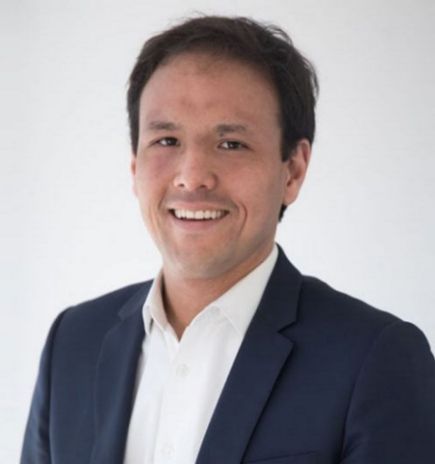 ser to the Head of State, has been appointed Secretary of State to the Prime Minister and Spokesperson of the Government. ser to the Head of State, has been appointed Secretary of State to the Prime Minister and Spokesperson of the Government.

In charge of Emmanuel Macron's press relations during his campaign, she followed the president after his inauguration.
Cédric O, 36 years old, economic adviser to the presidency of the Republic, obtains the digital secretary of state.
Supporting the head of state since 2017, he had been treasurer of his presidential campaign, then a member of the investiture commission of En Marche for the legislative elections.
The position of Secretary of State for European Affairs goes to Amélie de Montchalin, 33, MP (LRM) of Essonne and figure of the majority.
She is a member of the 6th constituency of Essonne since June 2017.
Economist and once close to the Republicans, she joined En marche in 2016.
From 2018 to 2019, she is first vice-president of the LREM group.
Two very close and one ex-Juppéist on the start, two very close and an ex-Juppéist at the finish.
|
|
|
|
|
|
|
|
| Carl Delsey for DayNewsWorld |
 |
BENALLA CASE
HARO ON THE FALSE MONTAGES VIDEOS
OF ELYSEE
|
| On July 18, the Le Monde newspaper unveiled videos of Alexandre Benalla, at the time in charge of Emmanuel Macron's mission, violently striking a couple during a demonstration.
It was necessary at any price and at any price to contextualize the muscular intervention of Alexandre Benalla attacking a couple place of the Contrescarpe. Ismael Emelien, in charge of the crisis communication of the Elysee, to retaliate to exonerate the protected President.
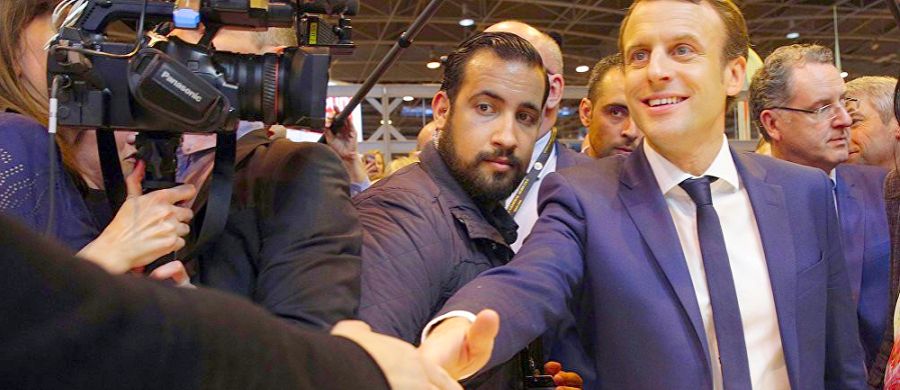 To do this, he recommends using images of the drama and have them published on militant accounts and an anonymous account, @frenchpolitic held by a LREM officer Pierre Le Texier. The videos, which Alexandre Benalla has retrieved from the archives of the Paris Police Prefecture, are posted on these accounts. To do this, he recommends using images of the drama and have them published on militant accounts and an anonymous account, @frenchpolitic held by a LREM officer Pierre Le Texier. The videos, which Alexandre Benalla has retrieved from the archives of the Paris Police Prefecture, are posted on these accounts.
The montage contains two videos. On the first, we see the molested couple throwing bottles at the police. On the second, we see a very agitated man who chases a member of the police with a chair. The first date was shot on the Place de la Contrescarpe - the day of the event - but the second was filmed at another place, in the evening ...
Ismail Emelien, who resigned from the Elysee Palace on February 11, was sworn in before the Senate Inquiry. Ismaël Emelien invited on France 5 March 28 to promote the trial does not fall from the sky (Editions Fayard) told the reporter questioning he did not know that the man on the chair had no connection with the student of the other video. "I do not know, I do not know who this gentleman is, I do not know if it's this one or not," he said.
As mentioned by Le Monde, Emmanuel Macron, as a lesson giver to the people, had denounced anonymous accounts on social networks:
"What I can do in the social network, now I do it in the street. Anonymity becomes a helmet, a hood, a mask, "he explained. For his closest advisors too !
|
|
|
|
|
|
|
|
| Garett Skyport for DayNewsWorld |
 |
CASE BENALLA OR SAVE THE PRESIDENT MACRON AT ELYSEE
|
|
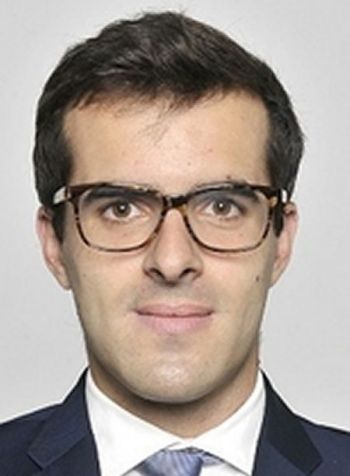
Ismael Emelien is the special adviser to President Macron. He was auditioned by the General Inspectorate of the National Police (IGPN) on January 16th.
The latter admitted having asked a LREM employee to broadcast a video to "defend" the Elysee and the President of the Republic in the Benalla case.
The counter-offensive of the Benalla affair came from the Elysee, from the office of one of Emmanuel Macron's closest collaborators: Ismael Emelien.
This testimony, now on record, specifies the conditions under which CCTV images from the Paris police headquarters were broadcast, on July 19, via a Twitter account pro Macron, used by LREM but from unofficial way.
This sequence was supposed to mitigate the responsibility of Alexandre Benalla accused of molesting a couple, on the sidelines of the violence of May 1, 2018. It shows, in fact, the two young people throw projectiles against CRS.
Emelien confirms having organized this media response, but he assures that he ignored at the time the origin of these images obtained by Benalla, and deposited at his office at the Elysee, on the morning of the 19th.
According to him, they could come from a video found on the Internet, images of tourist webcams or private videoprotection.
It was above all to "ensure the defense of the President of the Republic." 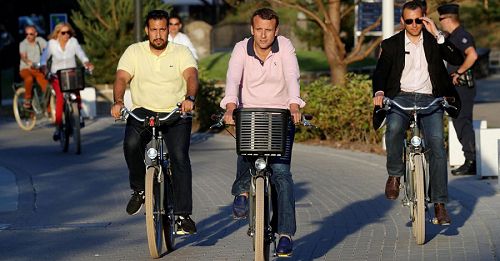
The only idea that the adviser had in mind was to clear Emmanuel Macron.
"It was not, he said, to ensure the personal defense of Mr. Benalla, but that of the Elysee and the President of the Republic who were caught in part in this crisis. ".
Also according to his testimony, the advisor sends the sequence to Pierre Le Texier, in charge of the digital response for LREM, one of his relays in the party posting video on the account @Frenchpolitic.
Also according to the words of the special advisor. "In the late afternoon, I am alerted by the press service of the Elysee on the fact that journalists are questioning us about a video that would have been stolen in connection with Benalla. I am in doubt and I ask Mr. Le Texier to withdraw the publication, "says Emelien during his hearing.
According to his story, it is only then that he becomes aware of the origin of these images and the illegal nature of their dissemination. The video is then transmitted by the Elysee to the public prosecutor. And a dismissal procedure brought against Alexandre Benalla.
But Ismael Emelien is the specialist in digital strategy. So could he ignore that these images had been filmed by the police ?
It is the answer to this question that will determine whether we can blame him for the offense of "hijacking of images from a system of video surveillance and concealment of images from a system of videoprotection and concealment of violation of professional secret " .
A game of fools.
|
|
|
|
|
|
|
|
| Garett Skyport for DayNewsWorld |
 |
CASE BENALLA ACT II SCENE 2
THE BAL OF LIARS
|
| We have just learned that following a second application for release, Alexandre Benalla and Vincent Crase were released on February 26, one week to the day after their placement on February 19, 2019 in custody.
Alexandre Benalla slept since 19/02 at the prison of Health in Paris, while Vincent Crase had been placed in that of Bois d'Arcy (Yvelines) on the decisions of judges and a judge of Freedoms and Detention, confirmed by the Investigating Chamber of the Paris Court of Appeal.
Opposed to these decisions, their respective lawyers had filed, in the same Trial Chamber, in the form of a free trial, new applications for release which were thus examined on February 26, separately, the said lawyers considering that their incarceration was unjustified and unfounded in law.
Even if, we agree, deprivation of liberty must be the exception, we have been taken seriously by these successive twists and turns.

|
|
| * Humorous illustration image |
|
| The Benalla affair, which for several weeks has caused a general panic at the Elysee, makes indeed more and more uncomfortable, especially since the publication on 20 February 2019 of the report of the Senate Inquiry Commission that those interested can read online (the report was published on the Senate website). It will be until March 21 to know if Gerard Larcher will file a complaint for the facts exposed.
The case is becoming surreal.
Recall !
Alexandre Benalla, the guardian angel of Emmanuel Macron (and often Brigitte) who had only to cross the street in the aftermath of the presidential elections of May 2017 to find a job in charge of missions doubled the duties of guard of the body and maid (?) is at the origin of what today appears to be a Macron affair and therefore a matter of state (see our previous editions).
It all starts on May 1, 2018. Disguised as a policeman, Alexandre Benalla wrestles in physical acts, violently, on opponents to Emmanuel Macron who came to protest on the Place de la Contre Escarpe in Paris. A video immortalizes the incident and this video circulates widely enough to become public and create the attention of the two parliamentary assemblies which then decide, one and the other, to set up Commissions of Investigations.
The Commission of Inquiry of the National Assembly "sinks" very quickly.Ses works are a fiasco of which its President, Yaël Braun Pivet, Deputy LREM, President of the Commission of Constitutional laws (lawyer by profession in the civil life) carries the entire responsibility. Yaël Braun Pivet has become the result of its events the emblematic figure of Parliamentarism Godillot that earned him the Prize Pan Pans awarded on January 10, 2019 by the Anticor Association.
At the same time, the Senate Inquiry Committee is resisting the pressures, continues on its merry way, investigates and questions with every turn. His works are broadcast publicly on the TV channel and the French (or foreigners interested in French politics) become "taped" listening to the revelations that arise hearing after hearing.
Following these revelations Alexandre Benalla and Vincent Crase are indicted on July 21, 2018 and placed under judicial control which makes them absolutely forbidden to meet and exchange.
A few months later, our colleague Médiapart published, on January 30, 2019, the audio recording of a strange conversation between the two men about secret appointments, erasing data on their respective laptops etc.
Médiapart states that these conversations were recorded on July 26, 2018 only a few days after the indictment of the two men; these recordings show that Alexandre Benalla and Vincent Crase violated their judicial control.
From then on, it was inevitable that the mechanics of a state affair would start and the crisis meetings would follow one another at the Elysee.
It is therefore because of the violation of their judicial control, of which Médiapart declares to hold certain evidence that the two men, summoned to the all nine Palais de Justice of Paris on February 19th, were placed in detention.
The two men have "languished" in prison since that date, leaving their respective lawyers to organize their defense and therefore to seek, in summary, liberty, again in front of the Trial Chamber of the Court of Appeal of Paris their release.
It is said that since then, Alexandre Benalla would be ready to "swing" Emmanuel Macron? In this antagonism of "rascals" it would be interesting to compose a new literary book titled "The revenge of Scapin".
But this path is not certain? The Elysee could continue to protect his dear "Benallou" by increasing pressure on the public prosecutor, Rémi Heitz, appointed November 8, 2018 in incredible conditions thanks to the stubbornness of Emmanuel Macron, which Rémi Heitz recognizes that it is today in a particularly uncomfortable situation. Yet it is he, who at the request of the Minister of Justice, Nicole Belloubet decided to search Médiapart ...
This last issue is indeed not impossible especially when we learn that Alexandre Benalla and Vincent Crase "were placed on February 19, 2019, the same day they were remanded for violation of their judicial control, in the same box and left 1:30 face to face .... the time they give their violins.
This huge mess was put on the account of "poor transmission of instructions from magistrates to police escorts" (in fact the @mail would not have been sent?). The TGI of Paris declined to comment, but a source familiar with the case called the situation ubiquitous!
As usual, for Christophe Castaner, the Minister of the Interior, the Benalla case is not a matter of state. The Minister claims to have questioned the possibility that the Médiapart recordings were made by a police service, whether they were judicial or administrative. He says he had checked!
For his part, our colleague Médiapart recalled that he was not an information office, but an information newspaper, which fights against the obstacles to the truth in this case or in others.
To protect its sources, Médiapart objected, as has just been indicated, to a search carried out as part of a preliminary investigation following a complaint lodged by Alexandre Benalla and Vincent Crase, "for breach of privacy of their private life (?) ".
As a result of this incident, Médiapart officially handed over a copy of the 7 unpublished recordings that Justice wanted to obtain by force.
The Benalla affair is not over.
The media, the parliament and the rustling of the web will be able to comment for a long time on what appears today as a sordid affair, symptomatic of what one can describe as the stables of Augias of the Presidency of the Republic.
And we must admit, these stables there, "they stink", as the system has been worm-eaten and perverse. The waving of the Macronist Republic will fill the atmosphere for a long time.
|
|
|
|
|
|
| Clara Mitchell for DayNewsWorld |
 |
EUROPEAN LIST LOSES DIRECTOR
HAYK SHAHINYAN COUNTRYSIDE
|
| A while the list consisting of some jackets for European is contested by many demonstrators, the one who was to be the campaign manager, Hayk Shahinyan, announced on Monday on Facebook that he took the field.
The 29-year-old Lyonnais, who was to support Ingrid Levavasseur at the head of the Rally of Citizenship initiative, is personally challenged because of his past membership of the Young Socialist Movement
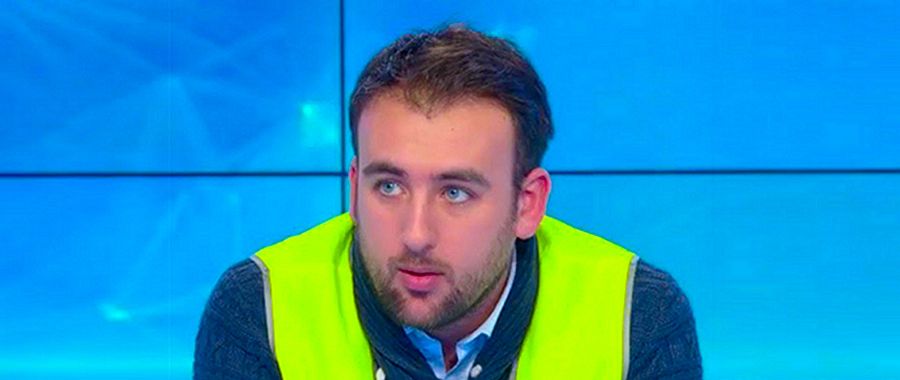 "I made the decision to withdraw from all my activities, return to Lyon, and take a week to analyze, think, prepare proposals, and take a step back. He writes in his post. "I made the decision to withdraw from all my activities, return to Lyon, and take a week to analyze, think, prepare proposals, and take a step back. He writes in his post.
He writes that he is seized by "doubt", and evokes "the haste with which (he has) let himself be carried away in a different configuration from what he had been advocating for weeks".
This decision comes after the injury to the eye of Jerome Rodrigues during Saturday's demonstration in Paris.
Hayk Shahinyan speaks of "the serious wound of Jerome that I know and for whom I have a lot of respect".
It also lists "the accumulation of the seriously wounded", "the approach of a general strike" (Tuesday, February 5) and "many other parameters" that "create doubt".
However, he ensures not to give up his fight with yellow vests. "I have always been and I will always be a free man, whether I like it or not. I will not let go of the fight. Never.»
|
|
|
|
|
|
|
|
| Carl Delsey for DayNewsWorld |
 |
YELLOW VESTS OR A LIST TO THE EUROPEAN
|
A lot of people were calling for it but not really believing it.
A first list "yellow vests" led by Ingrid Levavasseur was announced in a statement Wednesday, February 23. entitled
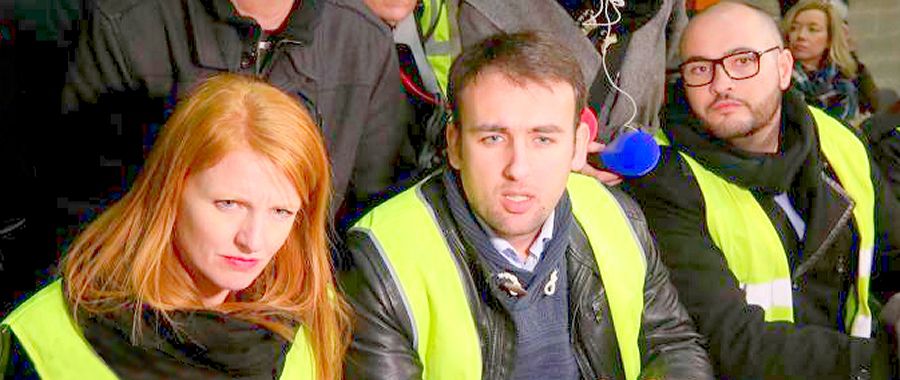 "Citizens 'Initiative Rally" (RIC) - taking the acronym for the citizens' initiative referendum, one of the first demands of the "yellow vests" - the list is composed of ten names, in order to constitute a complete list 79 candidates by mid-February, the statement said. "Citizens 'Initiative Rally" (RIC) - taking the acronym for the citizens' initiative referendum, one of the first demands of the "yellow vests" - the list is composed of ten names, in order to constitute a complete list 79 candidates by mid-February, the statement said.
To be included in the next European elections, the "Citizens' Initiative Rally" list must obtain the necessary funds from a minimum of € 700,000 to € 800,000. A call for donations has been launched.
Various profiles
If the call for applications on the list is open "to all citizens" as assured by campaign director Hayk Shahinyan, another known figure of the movement, the fact remains that it is reserved for "people who have made this mobilization since the beginning on the roundabouts, not technocrats, "adds the leader. Some personalities would have been refused on the list.
The first known name on this list is none other than Ingrid Levavasseur, a 31-year-old nursing aide in the Eure, who recently gave up on becoming a columnist for "yellow vests" on BFM TV, who received threats.
The top ten candidates are between 29 and 53 years old, and various professions (driver, lawyer, head of small business, housewife, civil servant).
For a third place in the European
According to an Elabe poll released on Wednesday, a list of "yellow vests" would be in third place, with 13% of the vote, behind La République en Marche and the National Rally, but ahead of Republicans and France Insoumise.
A burst of yellow vests "that would play the game of the LREM while harming the RN according to the survey
Far from wanting to make the policy of the empty chair, "yellow vests" intend to assert themselves as an independent force and weigh on the long term...
|
|
|
|
|
|
|
|
| Garett Skyport for DayNewsWorld |
 |
SYRIA: THE SENSE OF DONALD TRUMP OR
THE OTHER GEOPOLITAN ANALYSIS
|
|
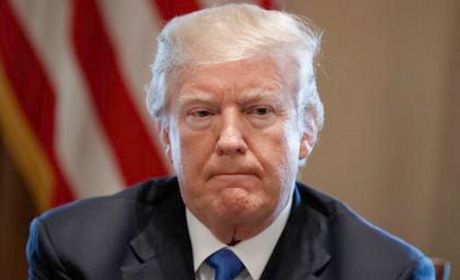
On 21 November 2018, the Afghan Presidency, which reported that "the withdrawal of a few thousand military personnel would have no impact on the security of the country", gave substance to the assumption that Donald Trump was preparing to announce the return of the US military based in Afghanistan. Let us recall at this time that the US presence in Afghanistan was extended from 2016 to the end of 2018, a time needed to verify that the country would remain secure and free of Taliban. The official withdrawal of US troops from Afghanistan was announced on December 20, the day after Syria.
However, what is important to remember is that it was from Syria that Donald Trump, first decided to withdraw, announcing the next day the withdrawal from Afghanistan.
But why build a link between the US presence in Afghanistan and Syria?
Donald Trump signed on December 23 the decree of withdrawal of the American troops from Syria, while giving himself 100 days to prepare this departure. Late Sunday night (23/12/2018) the US President indeed tweeted: "our troops are coming home! Adding that "this withdrawal would be slow and coordinated" ... and for good reason, we will see later ...
The entire international community has been speechless about this decision, which has been troubling US allies. But the US President's decision also provoked a shock, internally, in the United States itself, a shock such as this, led to the early resignation of the Secretary of Defense, General Jim Mattis and the envoy for the coalition international anti-Jihadist Brett McGurk, both opposed the withdrawal.
At the moment of these crucial decisions at the end of the year 2018, everyone immediately wondered who they would benefit from, and who, on the other hand, would be wronged because some dominoes will fall one after the other.
First of all, in our view, they are going to benefit the Americans themselves, the disappointed American, who are dissatisfied with the policies that have been in place since the end of the Cold War, policies that have not been successful despite the deployment of forces (military in particular) and considerable financial resources. Among American citizens, this decision will also and above all satisfy the electorate of Donald Trump who was waiting for the fulfillment of his campaign promises.
They will also benefit, perhaps, to the citizens of the world, the Syrian conflict being likely for many months, the slightest collision, more risky than the others, to lead to a globalized war (spread so far thanks to cold blood of Vladimir Putin and the good agreement between Washington and the Kremlin right now?).
Winning countries: 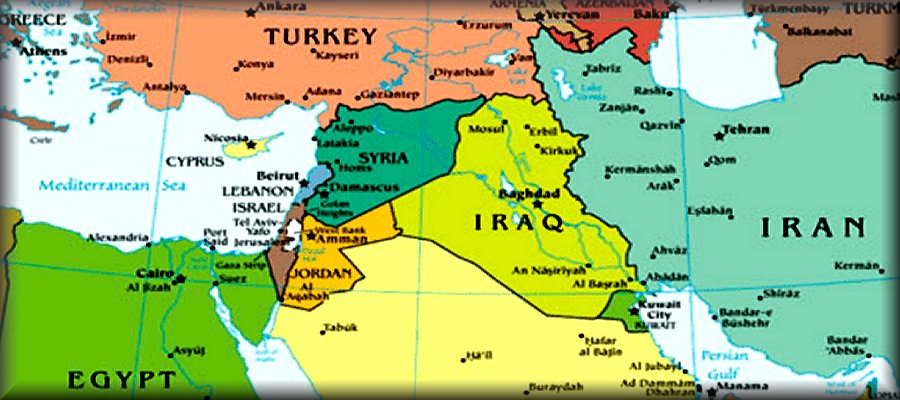
Russia (and its satellite state, Kazakhstan), China which since 2010 increasingly oppose their vetoes to the UN, but Iran too.
China and Russia had opposed their vets for several years at the UN because they were unhappy with what was happening in Central Asia.
Explanation! The main reason for the war in Afghanistan was to exclude China from a political equation that could link it to Iran, its long-time ally, from which it is separated by Tajikistan. The war in Afghanistan and its corollary, the US occupation, had the additional objective of controlling the oil and gas tap that came from Kazakhstan (rich in hydrocarbons). The pipelines go from Kazakhstan to India via Pakistan and then to China. These pipelines could be an alternative to supply China and India unable to obtain supplies in Iran in the event of war and the closure of the Straits. 'Ormuz (under the control of Iran).
From Kazakhstan, another pipeline crosses the Caspian Sea via Azerbaijan to head via Syria to the oil port of Ceyhan in the far south of Turkey, a few kilometers from the Syrian-Turkish border and beyond in Europe.
So what will happen concretely now after these decisions: the Resistance in Lebanon, Syria (liberated) Iraq, (partly liberated even if there is still an American presence), Iran, Afghanistan , Tajikistan and China will together form a direct line on the Mediterranean. China is a big winner.
Russia had already, via the Black Sea, since the Georgian affair of 2006 and the annexation of Crimea, access to the Mediterranean. It will nevertheless strengthen it, without having to cross all of Turkey systematically. The relations of Vladimir Putin with President Erdogan not being good, it will be any benefit for Russia ...
After the decisions of Donald Trump, China and Russia will henceforth have access to the "NATO" sea of the Mediterranean, which remains under NATO surveillance, from Libya.
Iran, on the other hand, which has improved relations with Armenia, is no longer encircled and isolated because the bolt of Syria has just jumped this country no longer an obstacle. Iran will nevertheless have to manage the embargo initiated by the US alone.
But Iran has no border with Syria, will you say? It does not matter! Trade with Iran will pass through Turkey. In fact, Donald Trump spoke at length with the Turkish President Recep Tayyip Erdogan, a few hours before the famous tweet of December 23rd. It was at this point that the two leaders agreed to "agree to coordinate military, diplomats and other leaders of their countries to avoid a power vacuum that could result from the exploitation of the withdrawal. (2000 US soldiers) and the transition phase in Syria. Since then Turkey has been transporting military units (cannons, artillery batteries) to the border, President Erdogan having assured Donald Trump "in very strong terms, that he will eradicate what remains of the IS (the state djhiadist) already largely defeated.

Since (Christmas-25/12) Erdogan even invited Donald Tromp to Ankara (in 2019) "to tighten their relations and coordinate the withdrawal". Turkey had not raised before it should be noted, no protest against the decision of Donald Trump, which could foreshadow difficult times for the Kurdish minority, which has always fought loyally alongside the coalition. For them and for humanitarian reasons it will be necessary for the international community to watch! Very seriously!
But it is fair to learn that Kurdish fighters have appealed for help to the Syrian regime, revealing an unexpected reversal of alliance after years of ambiguous relations with Damascus. Bashar el Assad has just accepted this extended hand by reinforcing his troops around the city of Manbij located north-east of Aleppo, near the Turkish border.
But there are those who do not win the turn of the American Empire, and who have just lost their hegemonic situation in the Middle East, like Israel and its Prime Minister, "Bibi" (Benjamin) Netanyahu which, however, in an exacerbated political context, had nevertheless obtained a few months ago that the United States Embassy was closed in Tel Aviv and transferred to Jerusalem.
This was obviously necessary for Benjamin Netanyahu to save his head after many years of authoritarian rule when he did not move the peace process with the Palestinians with one inch ("Gaza is an open prison "once said Nicolas Sarkozy, unlikely to sympathize anti-Israel), and at the same time let the religious flourish and settlements unfold, all these options going against the general and national interests of the country (Israel has the highest poverty rate among developed countries).
Yet, if the pipeline from Kazakhstan were to be extended to Ashdod, an Israeli port on the Mediterranean coast, Israel could become less dependent on the Gulf countries and Saudi Arabia, which it has recently come closer to? The Israeli Prime Minister had to think about it?
Donald Trump has just revealed the new US geostrategy. We have confirmation that the US president no longer wants the US is still the world's policeman. "America first" order! Words now make sense. Donald Trump seems to have also demonstrated that he is a man of peace?
We saw before our eyes a blow of billiard with 4 or 5 bands, masterly!
But at this point will you tell me where are the interests of Donald Trump and America?
Concurrently, this unexpected decision by Donald Trump highlighted more than ever the failings of the American-Zionist complex, which proved powerless for decades, but which was supported so eagerly by Hillary Clinton during the presidential campaign.
The war that justified all wars has just been explained, suddenly and limpidement, and that does not militate in favor of Barack Obama and his camp. The camp of the Democrats who just imposed the "shut down" during the budget debate does not grow out at the end of this presentation. Peace in the Middle East is Donald Trump who could impose it!
But after the US withdrawal from Syria, many things will have to change and new principles emerge.
The Sino-Russian project backed up by Donald Trump's recent decisions should not break Israel. This is an important point, validated by China and Russia, which, by letting the Syrian link relax, will allow the US to implement another regional policy.
For it will be imperative to seek to rebalance trade relations in this sector, and beyond with the Far East.
The last piece of the puzzle that Donald Trump holds for it in his hands will most certainly be on the Straits of Ormuz, owned by Iran but around which permanently patrol the US warships that are still Iranian hostages. Iran has a window (border) on the Persian Gulf (or Arabian Sea) north of the Strait of Hormuz. This sea connects Iran to the Gulf countries where, as the British said, only the Iraq / Iran / Yemen triangle is capable of protecting oil.
However, since September 2014, under the guise of a religious war (Sunni against Shiites backed by Iran) which is in fact only a regional war of an economic nature, Yemen is engaged in a merciless conflict against the country. Saudi Arabia has savagely attacked and wants the attachment of this small state located south of the Arabian Peninsula. We understand why!
Both Saudi Arabia and Iran both wanted to control the area so far and financed the various belligerents engaged in a civil war where all the horrors were allowed. Having obtained the one and the other satisfaction as for the respect of their own interests, they will have to put an end to the sounds of boots and the din of the guns.
Moreover, we can better understand, through this geopolitical description, the why of the severe lesson administered by Donald Trump to the young Prince Mohamed Ben Salman following the Khashoggi affair. This case was a mess; the entire international community denounced the violent and inhumane behavior committed by Saudi Arabia in Yemen. It might hinder the implementation of the political project of the President of the United States. Saudi Arabia will now be forced to return weapons very quickly!
While visiting the US troops still stationed in Iraq, Donald Trump was right to make politics in his speech, if only to make his geostrategic project understood and emphasize that "the mission (his) had been accomplished" The US President has confirmed that he no longer wants, but really more than the US is still the world's policeman. "America first" order! Words come to make sense. On the other hand, one understands at the same time that Europe has been left to its fate (sad), all frontiers open, and it is not the critics "on the disloyalty of the US vis-à-vis its allies" that held Emmanuel Macron from Chad where he was at the same time that will change anything. Europe will be tomorrow alone facing her destiny.
The war is over in Syria but it may start in the Gulf where Donald Trump will have to secure the oil supplies of America and the West, without relying on the "Sheikhs" but while relying on the Iraq where US troops are still stationing. The new geostrategic challenges of the US will be in "this smallest part" of the world now. Let's hope that the sense of negotiation that Donald Trump seems to be showing will help him to avoid the resumption of arms in this part of the world.
|
|
|
|
|
|
|
|
| Clara Mitchell for DayNewsWorld |
 |
THE TERRORIST FUSILLADE OF STRASBOURG BECOMES FOR DONALD TRUMP
ANOTHER REASON FOR WALL
|
"Another terrible terrorist attack in France. We will further strengthen our borders, "tweeted Wednesday morning President Trump.
|
|
|
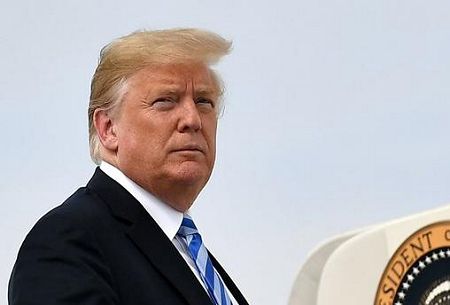
Donald Trump definitely has his eye on French news and when he does not like to comment on it as for "yellow vests", he learns from it. So it was split on Wednesday morning a tweet for the least absurd. "Another terrible terrorist attack in France. We will further strengthen our borders "
. "Chuck and Nancy have to give us the votes so we have more Border Security! He continued. Chuck Schumer is the leader of the Democrats in the US Senate while Nancy Pelosi is expected to chair the House of Representatives in January.
Why? The fact is that the American president is in the middle of a discussion about the "wall" he wants to erect on the Mexican border to stem immigration.
And a stormy meeting between the US president and the Democratic leaders of Congress was held Tuesday in the Oval Office in the presence of journalists. And this about the wall on the border of Mexico promised by the latter in the countryside. "There is no border security without the wall! Donald Trump said as he warmed up. 
The Democrats refuse to give Congress the necessary votes to fund it.
Donald Trump then denounces the danger he believes the "caravans" of migrants trying to enter the United States.
Nancy Pelosi recalls, she, the position of the Democrats. Democrats are ready to unlock $ 1.6 billion for border security but not a dollar for the wall.
A Donald Trump to threaten to go to the "shutdown" (paralysis of some administrations) if the Democrats refuse to vote the financing of his emblematic campaign promise.
"I will be proud to" close the government "in the name of border security, I will take responsibility. The people do not want criminals and drugs to pour into our country, "said the US president.
Given the turn of the discussion Nancy Pelosi suggested that the debate not continue in front of the cameras.
The chair responded tactfully to tact. "It's not a bad thing, Nancy, it's called transparency ..." replied ironically.
|
|
|
|
|
|
| Abby Shelcore for DayNewsWorld |
 |
TOWARD A NEW WAR
BETWEEN RUSSIA AND UKRAINE?
|
| The Sea of Azov, bordered by both Ukraine and Russia and closed by the Kerch Strait, has been the scene of intense tensions for five days between Ukraine and Russia. Sunday, November 25 Russia opened fire and intercepted three Ukrainian ships, taking their crews near the Crimean peninsula.
 For Moscow, these ships illegally entered Russian waters, which Kiev denies invoking a 2003 Russian-Ukrainian treaty on navigation in the region. For Moscow, these ships illegally entered Russian waters, which Kiev denies invoking a 2003 Russian-Ukrainian treaty on navigation in the region.
Two Ukrainian ports on the Sea of Azov, Berdiansk and Mariupol, are under Russian blockade, ships can not get out or enter, said Ukrainian Minister of Infrastructure, Volodimir Omelian, four days after the naval incident on Sunday in the Kerch Strait.
It is forbidden for no less than thirty-five vessels to operate according to their wishes. Only boats bound for Russian ports in the Azov Sea are allowed to cross the Kerch Strait, according to the minister on Facebook.
"The goal is simple - by blockading the Ukrainian ports of the Sea of Azov, Russia hopes that Ukrainians will leave their own territory - a territory that is ours under all relevant international law," she said. -he says.
The Kerch Strait linking the Sea of Azov and the Black Sea is currently under Russia's control. In May this year, an 18-km-long bridge connecting its territory to the Crimean Peninsula, annexed in March 2014, was inaugurated. by Moscow.
There is therefore an escalation of tension between the two countries. Martial law was introduced for 30 days by Ukrainian President Petro Poroshenko, who, fearing a ground invasion, asked NATO, including Germany, to send ships to the Azov Sea to support Kiev in his arm wrestling with Moscow. Moscow, for its part, accuses its neighbor of putting oil on the fire.
Europeans, reluctant to intervene, are trying to relieve the pressure. Angela Merkel urged on Thursday Ukrainians to remain "wise" and "reasonable" and swept any military confrontation. "There can be no military solution to these confrontations," insisted the German Chancellor.
"France and Germany are ready to work towards a solution in the Normandy format with Russia and Ukraine, even though the results have so far been very, very modest," added the German Chancellor.
Nor is there any question of strengthening economic sanctions against Russia. Finally, NATO reporting that the presence of its ships in the Black Sea has been consistent this year, namely 120 days in the Black Sea against 80 last year, does not envisage any other action for the moment.
At the G20, which opened this Friday in Buenos Aires, Argentina, the subject was to be addressed even if no official meeting between Putin and Donald Trump is scheduled, the latter having canceled it for reasons of domestic politics.
The crisis in Ukraine is a test of European solidarity.
|
|
|
|
|
|
|
|
| Garett Skyport for DayNewsWorld |
 |
AND IF DONALD TRUMP HAD REASONED
THE TWEETS ANTI-MACRON
|
|
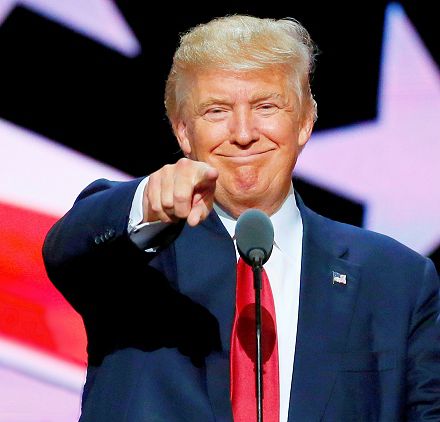
A few days after commemoration of the 100th anniversary of the First World War armistice in Paris, Donald Trump sent several unwelcome tweets against Emmanuel Macron.
To see only a whim of the tenant of the White House would be a serious mistake.
Because we do not deceive the American president has a hard tooth.
And he certainly did not appreciate the Elysée's tweet about the creation of a European army to defend against the great powers like the United States or China.
Comment that Mr. Trump not yet on the Paris tarmac, had already judged very "insulting". Back in Washington: new tweet and new attack:
"Emmanuel Macron suggested the creation of their own army to protect Europe against the United States, China and Russia.
But it was Germany in the first and second world war, "he wrote on Twitter. "What consequence for France?
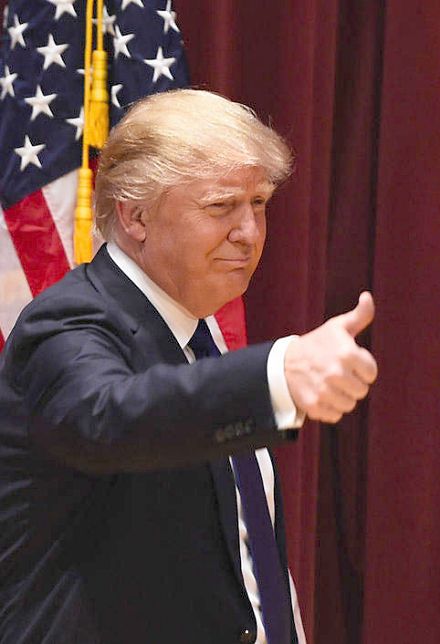
They were learning German in Paris before the United States intervened. For Donald Trump, it is essential for France to finance NATO.
"Pay for NATO or not! Why are Europeans not spending more on their military spending when they pledged to Washington to reach 2% of GDP in 2024?
Only a few countries like Greece respect this commitment, France is at 1.8%, Germany at 1.2%. the Cold War is over, the Europeans have to finance their defense more and not just rely on America.
A position that was already that of his predecessor Barack Obama.
While without financial aid and US military the Allies would not have won the First World War, Emmanuel Macron is sitting at the Arc de Triomphe, Angela Merkel between him and Donald Trump. Protocolal freak.
And to persevere casually towards Donald Trump when in his speech Emmanuel Macron hammers the difference between patriots and nationalists, a stone thrown in the garden of the White House.
In the following tweets the 45th US president made an analysis of the French situation with "Emmanuel" in the line of fire. "The problem is that Emmanuel suffers from a very low popularity in France, 26%, and an unemployment rate of nearly 10%. ".
A reality that is poor compared to Trump's America, which shows full employment guaranteeing a popularity rating to its President.
So what should the French president do to regain the trust of his fellow citizens?
The American president gives him somehow a political lesson
" About ! there is no country more nationalistic than France, the French are people very proud of what they are - and that's good! ".
Those people whom Emmanuel Macron opposes to the good-minders of the "happy globalization", Donald Trump, congratulates them. Those whom the French president designates as nationalists, populists, leprosy must be taken into account to give hope to the French.
Trump suggests to Macron to do as he did, to address the suffering France and remobilize around the national feeling.
"MAKE FRANCE GREAT AGAIN," wrote Donald Trump in a final tweet echoing his own campaign slogan.
|
|
|
|
|
|
|
|
| Garett Skyport for DayNewsWorld |
 |
THE LEADER OF NATIONALISM IN EUROPE
ACCORDING TO EMMANUEL MACRON
|
It is on the eve of celebrating the centenary of the end of the First World War in the north and east of France for a week from Sunday before a grand ceremony commemorating the armistice of November 11, 1918 to the Arc de Triomphe in Paris that Emmanuel Macron warns against a risk of resemblance with the thirties.
Emmanuel Macron. The president says he is "struck", in an interview with the daily Ouest-France, by the similarity between the current situation in Europe and that of the 1930s, and calls for "being lucid" and "resisting" .
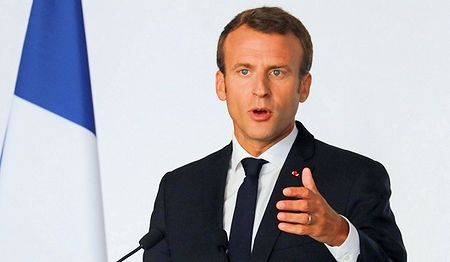 "I am struck by the similarity between the moment we live and that of the inter-war period," said the head of state in remarks on the sidelines of a visit to an exhibition dedicated to Georges Clemenceau , head of the French government in the early twentieth century. "I am struck by the similarity between the moment we live and that of the inter-war period," said the head of state in remarks on the sidelines of a visit to an exhibition dedicated to Georges Clemenceau , head of the French government in the early twentieth century.
"In a Europe that is divided by fears, the nationalist withdrawal, the consequences of the economic crisis, one sees almost methodically all the things that have punctuated the life of Europe after the First World War to the crisis of 1929, " says Emmanuel Macron.
Today, "Europe faces a risk: to be dismembered by nationalist leprosy and to be jostled by external powers.
And therefore to lose his sovereignty.
That is to say, to have its security, which depends on the American choices and its changes, to have a China increasingly present on essential infrastructures, a Russia that is sometimes tempted by manipulation, great interests financial markets and markets that sometimes exceed the position that states can take, " concludes the head of state.
If the tenant of the Elysee wants to understand the lessons of history by waving the red rag, should we not also remember that the analogy has its limits. Indeed if the rise of populism in Europe is palpable, if the Hungary of Viktor Orban and Italy of Salvini skid to the extreme right, Europe was built to no longer relive wars between European countries, nationalisms Europeans are in no way comparable to Nazism or fascism.
In the 1930s, they were constituted states, powers that do not recognize the rules of the international game and want war. This is the case of Nazi Germany or fascist Italy.
Moreover, the countries that are rocking today in the extreme right have no expansionist aim as was the case ... Fundamental differences, if any.
But are not we also in the electoral campaign for the Europeans?
|
|
|
|
|
|
|
|
| Garett Skyport for DayNewsWorld |
 |
TAX MATTING WITH PUMP
EDOUARD PHILIPPE RIGHT IN HER BOOTS
|
|
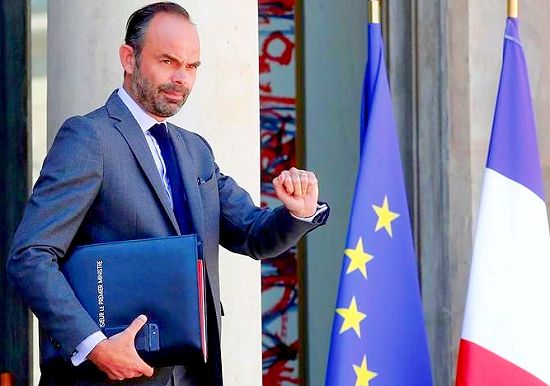
"We are assuming the increase of the carbon tax and the fact that gradually the use of oil is increasingly expensive, to fight against global warming.
We must give ourselves the means of ecological transition, irreversible, while accompanying the most modest. This transition has a cost ...
Hence, it is true, the price increase! ..
The carbon tax, we did not create it. The rise had been announced.
This is not a surprise, it will continue. " (Excerpt from the interview given by Ed. Philippe to a colleague.
Climato skeptics, go your way!
Right in his boots, like his mentor Alain Juppé, the Prime Minister assumes in ecological matters, his policy led under the leadership of Emmanuel Macron since the last presidential elections.
Admittedly, before 2007, there existed a CO2 penalty on motor vehicles, malus supported on the principle of "polluter pays" , an idea launched in 1968 by the Canadian John Dales, taken up by the Rio Declaration of 1975 and its transpositions both on European law and on national law.
This principle, taken up again by the Tokyo agreements (1997), is commendable: human activities which are only increasing and which therefore increase, in fact, the polluting discharges, must be taxed in a dissuasive way.
 As a result, it is in this context that EU countries have introduced fiscal measures, nicely called excise duties (indirect taxes). As a result, it is in this context that EU countries have introduced fiscal measures, nicely called excise duties (indirect taxes).
Initially, the introduction of the carbon tax led to a massive fraud (on the rights to pollute) known as the "carousel of VAT" (or EU trading system / ETS) . The fraudsters were severely convicted in 2016 and measures were taken to put an end to these drifts.
But, as far as automobiles are concerned, the contribution of climate energy has gone through the creation of a registration certificate leading to the introduction of a bonus bonus scheme (on new cars only at first) calculated according to the carbon dioxide emission rate in proportion to the tax power of these.
But then, the carbon bonus (which at January 1, 2015 could reach € 10,000) has not stopped falling under Emmanuel Macron, which according to his good habits and to justify his decisions, has constantly called the motorist Gallic, to change their behavior: use of other non-polluting means of transport, move less (?) work more in the form of telecommuting, practice eco-driving etc ...
Recommendations often futile because the use of the car is very often essential!
But, let it be said, we still need to reduce CO2 emissions. For a few months, the consumer has been invited to pay attention to the consumption of his future vehicle by choosing a hybrid or electric vehicle.
However, the process does not go fast enough, so the state turned to punitive ecological measures. As a result, the transitional tax aids did not cease to fall when, at the same time, the mischievous sanctions progressed rapidly.
From 2018, under the influence of Nicolas Hulot, the penalty was hardened with an ever lower application threshold. Since 1 September 2018, manufacturers have been obliged to display the CO2 emission values of their vehicles, estimated value according to the WLTP standard. Always in the name of the ecological transition even second-hand vehicles will now be taxed.
And, to improve the yield of these taxes the government has just invented the additional tax on vehicles! A real tax jackpot! Our colleague "the newspaper Argus" has just told us that it is 27.6% of the automotive market that in the first half of 2018 was indebted for this surtax, an increase of 11.1 % compared to the first half of 2017. It is easy to imagine that from now on, the further reduction of the tax threshold by 3% will produce new budgetary revenues, the lowering of the threshold intervening moreover opportunely, in a cycle period of approval.
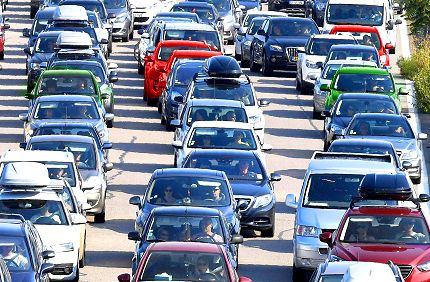 The anxiety and indecision of motorists has therefore continued to increase. Because, with the increase of the additional tax on the vehicles was added an exponential increase of the price of the fuels. In one year the price of diesel has increased by 20% and the super by 14%. Both prices are now above € 1.50 per liter; and the dissatisfaction of consumers has grown to the proportion. The anxiety and indecision of motorists has therefore continued to increase. Because, with the increase of the additional tax on the vehicles was added an exponential increase of the price of the fuels. In one year the price of diesel has increased by 20% and the super by 14%. Both prices are now above € 1.50 per liter; and the dissatisfaction of consumers has grown to the proportion.
As of January 1, 2018, the weight of taxation, pointed at the finger had been relatively absorbed by the moderate price of a barrel of oil. But this one went in October to 85 dollars. And this is how the cocktail TICPE, carbon contribution and VAT significantly increased the price at the pump. The 2019 budget also provides that the day after the New Year's Eve of 31 December 2018 the diesel will increase by 6.5 cts € the super of 2.9 cts €.
As a result, vehicles crossing France refuel before crossing the border, cross-border commuters speed their way back and forth, and fuel thefts are on the increase.
As a result, this "accentuation of the bullish trajectory" has caused a discontent that is also taking flight. Every day, the online petition changes.org gathers new signatures. A Facebook page even calls for a national block on November 17, against the rise in fuels; and this page is flores ..
The opposition to the governorship of Edouard Philippe consequently became hardened. His stinging and flippant attitude has, moreover, given the example of what happened to Emmanuel Macron, censor of Gallic supposedly incivic or lazy, a sling that swells daily. The RN (formerly FN) and Debout France (Nicolas Dupont Aignan) have already announced that they will join the movement.
Even Ségolène Royale just got involved. She has just accused the government of practicing "a punitive ecology" to "make tax" . Just that !
Finding: Between the 80 km / h, the additional surcharge on polluting vehicles and rising fuel prices, the pressure on the road is becoming unbearable and people growl ... until it will go?
Despite this situation, by the voice of Edward Philippe, the government has just said that it does not intend to change course at the risk of causing a great revolt that will be difficult to contain ...
At this time, the government will certainly be obliged to review its copy, even though today Benoit Simian, MP LREM, just said "it is difficult to stop the budget mechanism."
|
|
|
|
|
|
|
|
| Clara Mitchell for DayNewsWorld |
 |
AND IF IT IS JEAN LUC MELENCHON
WHO WAS REASON?
|
| Everyone is free to think what he wants about the cries and fury of Jean Luc Mélenchon during the searches carried out at 7 am at the headquarters of France Insoumise (employment of European parliamentary assistants) or at his home (examination of his campaign accounts).
Nevertheless, there are many who today, in a global context of authoritarian drift Emmanuel Macron, ask the question of whether it is the theatrical drift of Jean Luc Melenchon or that of Emmanuel Macron, who most violate institutions or fundamental freedoms.
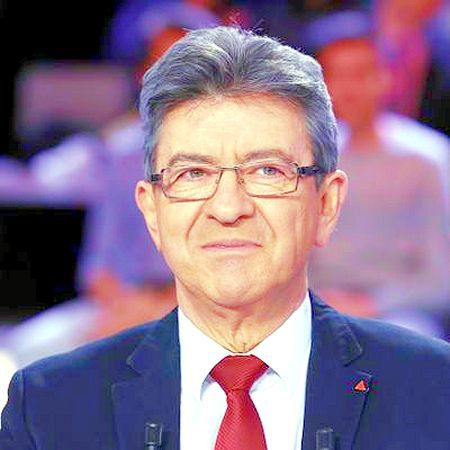 To demonstrate how a technocrat designated by the globalist oligarchy tramples on the principle of absolute respect for fundamental freedoms, we go, mixes up, quote all the cases that make (or are made) debate in files or the freedom of expression or (and) liberties as a whole were outright disregarded: To demonstrate how a technocrat designated by the globalist oligarchy tramples on the principle of absolute respect for fundamental freedoms, we go, mixes up, quote all the cases that make (or are made) debate in files or the freedom of expression or (and) liberties as a whole were outright disregarded:
- Michel Onfray, Laurent Gerra or Patrick Sebastian banned from speech and antennas
- Fréderic Taddeï, journalist, forced to seek refuge at Russia Today
- TV Libertés censored, with the guarantee of power, by facebook, twitter and You Tube
- Secularist reaction and its leaders hunted down brutally
- the law on Fake News whose fundamental objective is to muzzle the opinion
- the appointment of an attorney general under conditions that have created a serious malaise
- the Fillon case where justice has operated urgently, the day after the publication of the Duck Enchainé
- the blocking of the subsidies of the RN (formerly National Front) ordered by two judges of Nanterre including no one, a decision which one can not imagine that this could be done without the agreement of the political power and whose aim is to destroy a opposition party
- Identities on the way to winning .. can be .. their bet, and targeted .. for this reason alone.
- the former President of the Republic, Nicolas Sarkozy still and always hunted
And all that while in parallel ..
- The investigation into the financing of Emmanuel Macron's campaign was carefully buried by the judges
- The Bayrou Modem, ally of LREM and the power, involved in the same way as Marine Le Pen and Jean Luc Mélenchon in a case of European parliamentary assistants and who were not abused like the first ones.
- The Benalla affair that shocked most of the French, especially regarding its lies (or against truths) and the mysterious disappearances of the safe in the night before the search
- Emmanuel Macron, all exhilarated who in St. Martin embraces the cameras of young West Indian delinquents, shiny bare torsos ....
This long list, which is not exhaustive, shows, if it was still necessary, the double weight and two measures. It is understandable that the outrage has grown and that the rigorous searches of Jean Luc Mélenchon and the Insoumis led many of us to question or even to rebel.
Moreover, and beyond the principles, these searches pose many technical and even ethical problems:
- The number of LFI deputies in the European Parliament is 3; the possible harm is, if it exists, minimal
- A search, which must remain an exceptional measure, is traumatic. It must therefore be strictly necessary, because in law it is more like a penalty (humiliating) than a procedural act. What was the interest of the excavations at Jean Luc Mélenchon, potron-twink? Looking for compromising photos? Inventory ladies panties?
Is that deserved such a deployment of means: police equipped with bulletproof vests and presence of the Prosecutor of the Republic.
- The campaign account of Jean Luc Mélenchon has already been examined in all directions for 18 months! What were investigators and magistrates looking for?
- Nothing forced the prosecution and police to operate from 7am and no one can believe that the prosecution and the police did not know where to find Jean Luc Mélenchon that morning
- Being a "directed" investigation against the President of France Insoumise we can only criticize the fact that the prosecution and the police have forbidden him to attend in person the search at the Headquarters of France Insubordinate and all the more so since no MEP was present that morning!
In the light of these incidents, the search procedure has now become inadequate. Indeed, when it comes to seizure of phone, iphone, smartphone, computer and other hard drives, it must be agreed that this list could not be established and countersigned by the interested ... which poses a serious problem of law
As Sophia Chikirou has just stated, Mélenchon's former communications director, Jean Luc Mélenchon, may well have had a "brilliant" reaction on the morning of October 16, 2018. It must be emphasized that his cries and his protests will certainly have had the effect of making it now essential to reform the conditions of a search, both for common law suspects and for policies, the respect for the rights of the defense having appeared on this occasion unsuited to the means of communication modern.
|
|
|
|
|
|
|
|
| Clara Mitchell for DayNewsWorld |
 |
There are no translations available.
RECHERCHE MINISTRES EN CDD
|
|
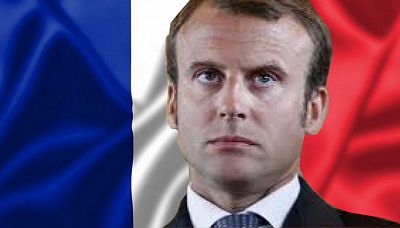  Emmanuel Macron a-t-il fait appel à Pôle emploi ? Emmanuel Macron a-t-il fait appel à Pôle emploi ?
La macronie ne semble plus faire rêver !
Va-t-il falloir radier tous ces fainéants qui ne se bousculent pas au portillon de l' Elysée ?
Triste constat quinze mois seulement après l'élection du président.
Alors que le remaniement se fait de plus en plus attendre, l'hypothèse selon laquelle la liste des membres du gouvernement ne serait pas encore complète, devient de plus en plus plausible. Instabilité gouvernementale de la IVe République ?
Emmanuel Macron et Édouard Philippe auraient déjà essuyé cinq refus d'entrée au gouvernement...
Emmanuel Macron qui se voulait à la tête d'une entreprise … et pourtant les ressources manquent au sein de la macronie et il ne faut pas d'erreur de casting car même les plus fidèles vous lâchent, Gérard Collomb l'a montré.
C'est là, justement toute la difficulté pour le couple de l'exécutif
Le poste de ministre au sein du gouvernement d'Édouard Philippe ne fait donc plus rêver. Le socialiste Mathieu Klein a annoncé avoir refusé un poste de ministre au sein du gouvernement d'Édouard Philippe.Sur Twitter, Mathieu Klein a écrit : « Je ne ferai donc pas partie du prochain gouvernement. Je souhaite qu’il réussisse à faire reculer la pauvreté et continuerai à y contribuer dans les fonctions qui sont les miennes, avec un état d’esprit aussi exigeant que constructif ».
Quant au « successeur » au Ministère de l'Intérieur, on cherche le bon « profil », politique ou technicien ou les deux "en même temps" ? Mais les candidats qui correspondraient au poste ne sont pas légion chez les Marcheurs. Et ceux qui dans l'opposition ou au Centre passaient pour « macron-compatibles », deviennent soudain très prudents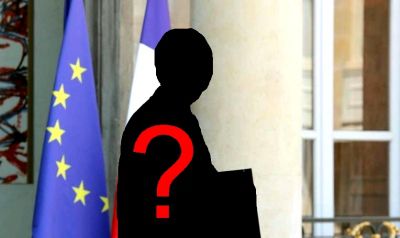
Pour remplacer Gérard Collomb place Beauvau, les noms des ministres Christophe Castaner (Relations avec le Parlement), Jean-Yves Le Drian (Affaires étrangères) ou Gérald Darmanin (Comptes publics) sont évoqués. L'exécutif pourrait aussi être tenté de faire confiance à un expert, sur le modèle de Jean-Michel Blanquer à l'Éducation. Le procureur de Paris François Molins ,la directrice de la PJ Mireille Ballestrazzi, Jean Castex, un haut fonctionnaire qui a servi Nicolas Sarkozy à l'Élysée, ou de l'ancien patron de la police nationale Frédéric Péchenard ?
L’attente va durer encore plusieurs jours puisque Emmanuel Macron doit quitter le territoire pour se rendre à Erevan (Arménie), pour le sommet de la Francophonie, jeudi et vendredi.
Pour un remaniement a minima , le remaniement se faisant « sans que le Premier ministre ne donne sa démission et celle de son gouvernement », a fait savoir la présidence de la République, mardi soir.
Le signe d’un remaniement a minima ou seulement un moyen d’éviter à Édouard Philippe une nouvelle déclaration de politique générale ?
La démission de Gérard Collomb du ministère de l’intérieur est intervenue une semaine plus tôt. « C’est une attente qui est longue : on est plus dans la République en surplace que dans La République en marche », a moqué ,de son côté, le vice-président de LR, Damien Abad.
« Le président de la République démontre son total isolement, sa solitude, il est obligé de puiser en permanence au-delà de ses amis, parce qu’ils sont très peu nombreux, a remarqué Brice Hortefeux. Au rythme où vont les choses, l’ancien monde va devenir l’avenir. »
Une manière de rappeler que Edouard Philippe, transfuge de LR, aimerait puiser dans le réservoir de ses ex- amis républicains.
« D’une manière générale, on a toujours intérêt à élargir », a pour sa part estimé l’ancien premier ministre Jean-Pierre Raffarin, sur RTL.
|
|
|
|
|
|
|
|
| Garett Skyport pour DayNewsWorld |
 |
There are no translations available.
DISPARITION OU LIQUIDATION DU JOURNALISTE SAOUDIEN JAMAL KHASHOGGI EN TURQUIE?
|
|
 Jamal Khashoggi redoutait lui-même une arrestation après avoir critiqué certaines décisions de MBS et l'intervention militaire de Ryad au Yémen. Ce journaliste saoudien, désormais installé aux États-Unis et qui écrivait notamment pour le Washington Post, a disparu mardi 2 octobre à Istanbul alors qu'il se rendait au consulat saoudien d'Istanbul pour des démarches administratives en vue de son mariage avec sa compagne turque. C'est la dernière fois qu'il a été aperçu, même si l'Arabie Saoudite répète qu'il en est ensuite reparti. Jamal Khashoggi redoutait lui-même une arrestation après avoir critiqué certaines décisions de MBS et l'intervention militaire de Ryad au Yémen. Ce journaliste saoudien, désormais installé aux États-Unis et qui écrivait notamment pour le Washington Post, a disparu mardi 2 octobre à Istanbul alors qu'il se rendait au consulat saoudien d'Istanbul pour des démarches administratives en vue de son mariage avec sa compagne turque. C'est la dernière fois qu'il a été aperçu, même si l'Arabie Saoudite répète qu'il en est ensuite reparti.
Lundi, la Turquie a haussé davantage le ton, en exigeant du Royaume de Ryad qu'il prouve que le journaliste a bien quitté le consulat alors que des responsables turcs avaient affirmé quelques jours plus tôt que, selon les premiers éléments de l'enquête, Jamal Khashoggi y a été assassiné.
Plusieurs responsables turcs affirment qu'il a été tué sur place.
« Nous pensons que le meurtre était prémédité et que le corps a ensuite été déplacé du consulat », a déclaré un représentant turc, sous couvert d'anonymat. D'autres membres de la police turque et de l'AKP, le parti au pouvoir, ont réitéré ces accusations.
Selon ces sources, il aurait été assassiné peu de temps après son arrivée au consulat. Un groupe de 15 hommes, venus d'Arabie saoudite le jour-même de la disparition de Jamal Khashoggi et repartis dans la foulée, était alors présent dans les locaux.
Lundi 8 octobre, les autorités turques ont demandé à fouiller le consulat saoudien d'Istanbul. Ce mardi, l'Arabie saoudite a finalement donné son feu vert pour une fouille de son consulat à Istanbul par les services de sécurité turcs. «Les autorités saoudiennes ont fait savoir qu'elles étaient prêtes à coopérer et qu'une fouille pourrait avoir lieu au consulat», a indiqué le porte-parole du ministère turc des Affaires étrangères dans un communiqué.
De son côté, Riyad a assuré ne rien avoir à cacher. « D’après ce que j’ai compris, il est entré au consulat puis en est ressorti après quelques minutes ou une heure. Je ne suis pas sûr », a déclaré Mohamed Ben Salmane, le prince héritier saoudien, à l’agence Bloomberg.
Le président turc Recep Tayyip Erdogan a lui-même pris la parole lundi, lors d'une visite en Hongrie. « Les responsables du consulat ne peuvent pas s'en tirer en disant qu'il a quitté le consulat, les autorités compétentes doivent le prouver », a-t-il déclaré. « S'il est en parti, vous devez le prouver avec des images », a-t-il ajouté, semblant accréditer la thèse de la liquidation du journaliste Jamal Khashoggi par ce commando de 15 personnes.« Les allers et venues à l'aéroport sont en train d'être examinés. Il y a des gens qui sont venus d'Arabie saoudite », a encore précisé Recep Tayyip Erdogan lundi .
Les Etats-Unis inquiets
Dans un éditorial dimanche, le Washington Post avait appelé les Etats-Unis à « exiger des réponses fortes et claires » de l'Arabie saoudite. « Si le prince héritier ne répond pas en coopérant pleinement, le Congrès doit, dans un premier temps, suspendre toute coopération militaire avec le royaume », estime le quotidien.
Le jour suivant, Donald Trump s'est dit «préoccupé» par la disparition du journaliste. «J'espère que ça s'arrangera. À l'heure actuelle, personne ne sait rien là-dessus. De mauvaises histoires circulent. Je n'aime pas ça», a déclaré le président américain à des journalistes à la Maison-Blanche. «Nous appelons le gouvernement d'Arabie saoudite à soutenir une enquête approfondie sur la disparition de M. Khashoggi et à être transparent quant aux résultats de cette enquête», a indiqué dans un communiqué son secrétaire d'État, Mike Pompeo.
Des premiers résultats de l'enquête en cours sur cette disparation sont attendus mardi.
Cette affaire Jamal Khashoggi pourrait en tout cas gravement affecter l'image du Royaume et de son prince héritier, qui promeut une campagne de modernisation.
Mohammed ben Salmane dit "MBS", 33 ans, à l'ascension fulgurante,avait déjà fait l'objet de critiques en novembre 2017 quand le Premier ministre libanais Saad Hariri s'était retrouvé bloqué deux semaines à Ryad...
|
|
|
|
|
|
|
|
| Alize Marion pour DayNewsWorld |
 |
TRUE FALSE START OF GERARD COLLOMB
COM OR EXECUTIVE TO OUT ?
|
|
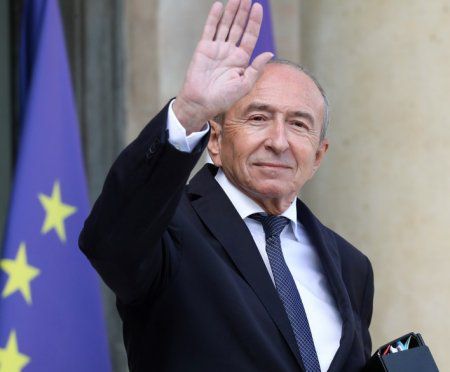
Gerard Collomb handed in his resignation to Emmanuel Macron, who refused it.
While the tension between Emmanuel Macron and Gerard Collomb, the Minister of the Interior has proposed to the president to leave the government, Monday, October 1. A request refused by Emmanuel Macron.
In recent times, Gérard Collomb had not failed to be particularly critical of the President of the Republic. He was even open to journalists on September 6, during a lunch, saying they were "not many can still talk to him , " stigmatizing the "lack of humility" of the president.
Decidedly Emmanuel Macron's political troubles have only continued since the end of July. The Benalla affair, its own media projections badly perceived by the public, or this photo taken with two young people doing the finger of honor, all combine to weaken the presidential office. The Jupiterian attitude had not accustomed us to such arrogance or disastrous awkwardness.
And Gérard Collomb to add his stone. The interior minister announced to Le Figaro that he had submitted his resignation to the president, resignation refused by the latter. The boss of Beauvau had announced, from 18 September, his next candidacy to the municipal of Lyon and, therefore, his intention to leave the Ministry of the Interior after the European elections But the opposition had seized this announcement to destabilize a minister who would not already be fully mobilized place Beauvau. "To think that we can have a part-time interior minister shows the disconnection of power over the insecurity suffered by the French," reacted Laurent Wauquiez.
But the president has "renewed his confidence and asked him to remain fully mobilized on his mission for the safety of the French . " And we know that, according to article 8 of the Constitution, a minister can leave the government when he wants ...
For proof: Nicolas Hulot resigned from his ministry of ecological transition and solidarity to the surprise, announcing on the radio. Emmanuel Macron could only make it clear: "He is a free man, I respect his freedom," he declared.
Obviously the Elysée is struggling today to direct its heterogeneous government.
Obviously a true false start orchestrated as a com' or an executive at bay?
|
|
|
|
|
|
|
|
| Garett Skyport for DayNewsWorld |
 |
A BREATH OF OXYGEN
FOR THE NATIONAL GATHERING
|
|

Pursued in the case of fictitious parliamentary assistants in the European Parliament, Marine Le Pen's party was forced to do without its first tranche of public subsidies, ie two million euros.
What is it about ?
Would there be a loss of seven million euros for the European Parliament? In the case of suspicions of fictitious jobs, investigating judges are investigating a possible "system" organized by the party and Marine Le Pen to make pay for permanent staff with European funds reserved for the hiring of parliamentary assistants. About forty European assistants are concerned and the total damage estimated by the European Parliament is seven million euros over the period 2009 to 2017.
The two investigating judges in charge of the case decided in July, on the requisition of the prosecution, to seize two million euros "as a precautionary", and this before any conviction of the party on the merits.
In their decision, the magistrates put forward the risk that the party, "highly indebted" , will use it to repay its loans and is no longer able to pay the fines and damages in case of conviction.
Marine Le Pen had immediately made known his outraged disapproval especially since it is a procedure hitherto unpublished in the political field.
" The will to assassinate the 1st opposition party is an unprecedented coup against democracy! " , Tweeted Marine Le Pen as soon as the announcement of this deduction of public endowment.
Since then, Marine Le Pen had agitated the threat of a disappearance of the party of which she is the president.
To make up for the lack of cash, the party had to appeal for donations to obtain more than 650,000 euros. These donations had paid for part of the operating costs, but a third of the offices had been closed.
Will the National Gathering recover the two million euros of endowment retained since July, in the context of the case of European parliamentary assistants?
The deliberation of the investigating chamber, this Wednesday, September 26, gives an answer.If it confirms the judicial seizure, it however gives the party half of its grants, or a million euros.
"This is a first victory, but I think we are going to put an appeal on the very principle of seizure which seems to me to be a real problem," said Rodolphe Bosselut, a lawyer for the party. In a statement, the party of Marine Le Pen confirmed to file an appeal in cassation against this seizure.
The party, which is in financial difficulty, welcomes this half-victory on appeal, which allows him to recover one million euros on the two seized by the court in July. The second tranche of public subsidies, which should reach this time € 2.5 million, is expected in November.
In this case, Marine Le Pen, and several of his relatives, are indicted in particular for breach of trust.
At eight months European women, a small breath of oxygen.
|
|
|
|
|
|
|
|
| Andrew Preston for DayNewsWorld |
 |
MANUAL VALLS MUST RESIGN
FROM THE ASSEMBLY?
|
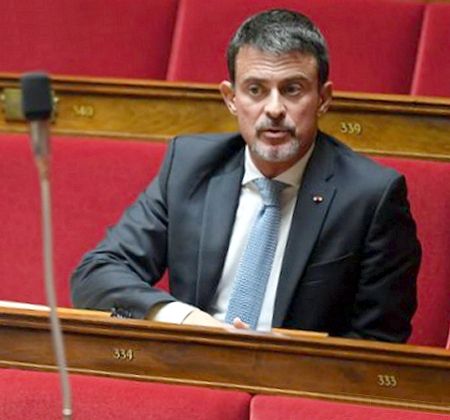 Calls for the resignation of Valls to the Assembly are multiplying. Calls for the resignation of Valls to the Assembly are multiplying.
The former prime minister may announce Tuesday his candidacy for mayor of Barcelona. For his colleagues in the Assembly, he should then resign from his mandate as MP for Essonne.
Especially as Manuel Valls deserted more and more the Assembly to turn to the Barcelona City Hall.
Since the end of May, the LREM MP from Essonne has only been present for four days at the Palais Bourbon.
This situation does not fail to arouse criticism among his colleagues as the interest of the former prime minister in Barcelona's mayor is sharpened.
If he came to apply for Barcelona he would be in a unique situation as a French deputy.
But no law obliges deputies to a minimum time of presence in the Assembly. They can not therefore be dismissed for absenteeism.
Of course the regulation of the National Assembly provides for financial sanctions that could affect Manuel Valls in case of too frequent absences. But even if François de Rugy had said, at the perch, that this sanction would be applied ...
it has never been since the date of its establishment in 1994. There is therefore no legal obstacle to the deputy of Essonne is absent to conquer the mayor of Barcelona. All the more so because no legislative or regulatory provision compels a Member to have a minimal presence in France or in his constituency of election.
Could he then go to cumulate the functions?
In France the law prohibits the cumulation of the mandates. Since 2017, the date of the application of the 2014 law, French parliamentarians can no longer cumulate their national mandate with a local executive function, including that of mayor. Manuel Valls, however, does not enter this case since he aspires to become mayor of a city of another European state. Cumulation with a foreign municipal mandate is simply not provided for by law.
No provision therefore prohibits the candidacy for such functions for French parliamentarians.
And yet many voices have risen against this situation. It is that politics goes beyond the law. The question that arises in particular is whether a Member paid by the French Republic can devote himself mainly to an activity outside the territory.
The answers of his colleagues are clear.
"Since April he has been thinking about his candidacy in Barcelona. This situation has only lasted too long. This is an untenable situation! Said Manuel Valls' former rival in the legislative elections, Farida Amrani (LFI). "It is more correct vis-à-vis the voters he resigns as soon as his nomination," said the PS PS Cécile Untermaier, in the wake of the president of the elected Socialists in the National Assembly, Valerie Rabault.
"He knows he should resign . " notes Marie Lebec, member of the majority LREM that Manuel Valls had joined in June 2017 after leaving the PS.
If Manuel Valls was elected mayor of Barcelona while keeping his seat of deputy, the Constitutional Council would probably decide.
|
|
|
|
|
|
|
|
| Alyson Braxton for DayNewsWorld |
 |
MARINE THE PEN AND THE PHOTOS OF DAECH
BEFORE THE COURT
|
"I thought I was entitled to everything: well no! For denouncing the horrors of Daesh by tweets, the justice submits me to a psychiatric expertise! How far will they go? "
The president of the National Gathering on Twitter this Thursday morning, revealing at the same time the order issued by the Nanterre High Court.
But Marine Le Pen will not go there.
"I will not, of course, submit to this psychiatric expertise," she told reporters in the National Assembly.
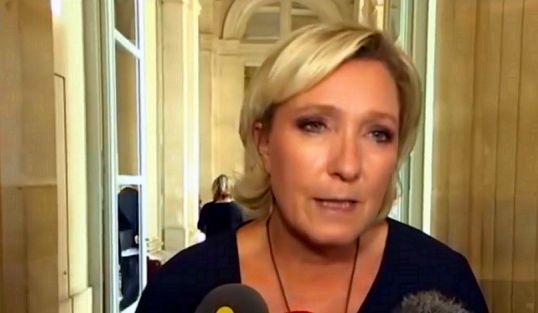
"I'm waiting to see how the magistrates intend to force me," she added. The decision to submit the former presidential candidate to expertise was taken by magistrates in a case dating back to 2015, in which Marine Le Pen was indicted in March for "dissemination of images violent. "
He is accused of posting photos of hostage executions by the Islamic State group, including the American James Foley, on social networks.
If his supporters denounce burst on social networks, a decision recalling "punitive psychiatry in the USSR", an act "worthy of Brezhnev", ensuring not to forget the name of the judge "red" who "could officiate in Korea. North, this type of expertise is quite common, and even automatic, in this type of procedure.
The Code of Criminal Procedure states in article 706-47-1 that "persons prosecuted for one of the offenses mentioned in article 706-47 must be subjected, before any judgment on the merits, to a medical report."
The notification specifies that the lawyer has "a period of 10 days to request that the questions be changed or that the expert or experts already appointed be appointed an expert of (his) choice" . The expertise can also be denied by the mis en cause, without it being sanctioned.
If Marine Le Pen decides not to submit to the court order, she is not risking much.
The expert will then write "a certificate of default" , the consequences of which will be assessed by the judges of the merits.
In the event of a conviction for broadcasting violent images, the MEP faces three years' imprisonment and a fine of 75,000 euros, particularly since minors are likely to have seen the images.
Will the latter hold rigor to the member for Pas-de-Calais to have thus evaded expertise?
|
|
|
|
|
|
|
|
| Andrew Preston for DayNewsWorld |
 |
SOON A WOMAN IN PERCHOIR!
A DREAM ONCE MORE
|
| Can the perch of the National Assembly this time be feminized? This is the question that arose with passion, conviction or disdain the political world, elected, unelected or citizens of all horizons, before Monday, September 10, 2018.
The answer fell in the early afternoon.
Not surprisingly, but with regret, Richard Ferrand was the No. 1 choice of the deputies of the Republic in Marche. He will be the candidate labeled LREM, tomorrow Wednesday, September 12 candidate for the general election perch and elected, the LREM group counting 312 deputies, so an absolute majority.
On the starting line, they were in fact four candidates, two men and two women from the LREM group to present themselves for this very political "primary" .
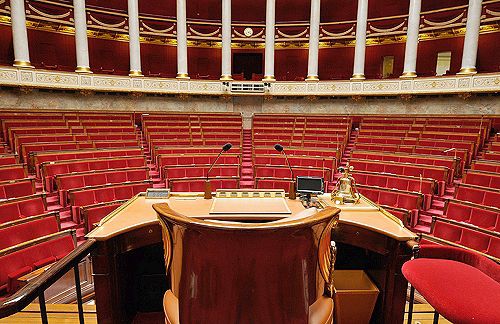 Barbara Pompili, the former Secretary of State for Diversity was the most serious rival of Richard Ferrand, the " darling" of Emmanuel Macron, walker from the first hour, who was ahead of his 3 other opponents with 64.20 % voices. Barbara Pompili, the former Secretary of State for Diversity was the most serious rival of Richard Ferrand, the " darling" of Emmanuel Macron, walker from the first hour, who was ahead of his 3 other opponents with 64.20 % voices.
Barbara Pompili nonetheless gathered nearly 30% of the votes (29,21% more precisely). She was not elected but her result is not neutral.
Because since the beginning of the summer all barometers of confidence vis-à-vis Emmanuel Macron / Jupiter show that it is in serious loss of speed. It was down -24% between July and August. Institutes of foreign polls, which the National Press is careful not to publish on pain of receiving the wrath of Olympus gives it even 14% confidence.
Macron House is declining seriously. The first ferments of a truly serious doubt have appeared in a hitherto benevolent public opinion.
Confidence was lost, facing the reformist frenzy of the Head of State, both impressive and disconcerting.
Moreover, asphyxiation is lying in wait for the government and Macron / Jupiter has, contrary to what it asserts, neither the financial means nor the ability to carry out all these projects, especially with such a concentration of powers. Emmanuel Macron behaves indeed as a monarch, who at the dawn of the storm that is preparing needs all his followers and all his courtiers, aware that today, at the slightest misstep, the regime could be seriously shaken , or even disappear in a thick cloud of scandals and discontent, disappear like the two twin towers on September 11, 2003.
It was absolutely necessary to tighten or tighten the ranks.
Also, who better than Richard Ferrand can today ensure this mission.
"Richard Ferrand is the voice and the arm of the President" (Michel Onfray). Not very concerned about the democratic rules, it is a close not to say the closest of the President of the Republic which does not forget that he was the first to support him when he entered the campaign. From the beginning of the legislature, he was "appointed" President of the LREM group to the National Assembly.
The surprise resignation of Nicolas Hulot has just done the rest!
The replacement of Nicolas Hulot by François de Rugy who never hid his interests to become Minister (it was missing from his hunting chart) was not a surprise.
Given the profile of François de Rugy, everyone knows that Emmanuel Macron was very satisfied with this recent appointment.
With Rugy, there will be less risk of vocal noise and instability than with Nicolas Hulot. This appointment also settles the problem of the rivalry which became more and more visible between him and Richard Ferrand at the National Assembly. Macron has done double hit!
Richard Ferrand will be from tomorrow, Wednesday, September 12, 2018, alone at the controls. President of the National Assembly, it's still not nothing. It immediately makes it easier to lead a bloated political group or begins to emerge a few slingers that will have to be ruthlessly put in the ranks.
According to Emmanuelle Ménard, an unregistered member of the 6 th district of the Herald, "with Richard Ferrand, it's going to be sectarianism on the march" because the pedestrian is not made to think but to follow the supreme guide.
In such a context, the candidature of Barbara Pompili, if she had succeeded, would have been, for the executive that additional source of difficulties and ... useless.
So the dream of the feminisation of political life, of male-female equality, which had to be the great cause of Emmanuel Macron's mandate, which was to inspire and reinforce the modernization of French institutions, is now over.
For this revolution equality between men and women at the perch of the National Assembly, we will have to wait!
The legal troubles of Richard Ferrand with the Mutuelles de Bretagne have also not constituted an obstacle, although they represent a real Sword of Damocles on the political future of the one who tomorrow, will certainly be elected President of the 'National Assembly.
A reminder: the case of Mutuelles de Bretagne was the subject of a ranking without action by the Justice in October 2017. It rebounded in January 2018 and it is the National Public Prosecutor's Office (PNP) which had to look into the file after the filing of a complaint with constitution of civil party filed by Anticor Association, for "illegal taking of real interest and complicity for this offense".
Since July 2018, the financial center of the Paris Court has been removed from the case and it is a judge from Lille who now holds in his hands the future of the Minister who faces up to 3 years imprisonment and 200 000 € fine. This court ride is troubling but significant.
The election of Richard Ferrand will therefore be a bad signal for the moralization of political life, a theme that under the influence of François Bayrou was the subject of a specific law in the first weeks of the legislature.
For her part, Barbara Pompili who did not deserve a score of 30% said, despite defeat, 24 hours ago, she would continue her fight for the transformation and democratic modernization of the country.
Since Monday, she has received countless messages of support, from right or left; she says she is very proud of this rather unexpected result, which confirms the decline of Maison Macron.
She will be able in her next speeches to recall the words of Olympe de Gouge, 1791: "The woman has the right to go up to the scaffold; she must also have the right to go to the Tribune "...
|
|
|
|
|
|
|
|
| Clara Mitchell for DayNewsWorld |
 |
SUBMISSION OF LAURA FLESSEL MINISTER OF SPORTS
|
|

The former fencer, appointed minister in May 2017, evokes "personal reasons" for her departure.
Sports Minister Laura Flessel announced her departure from the government on Tuesday, 4 September.
She said she had "laid the foundation for a profound overhaul of the French sports model, including its governance" and have experienced "an exceptional sporting year, with the awarding of the 2024 Games, the Rugby World Cup 2023, numerous victories including the emblematic one of our French football team ".
She now says she wants to "rediscover past commitments, focused on the human, solidarity and international cooperation".
This decision comes as a reshuffle of the government is expected in the day, especially after the resignation of Nicolas Hulot, the Minister of ecological transition and solidarity, last week.
This is a new resignation of a personality from the "civil society"
This is the other resignation of the government. But this one was totally unexpected.
The former fencing champion is the most popular government minister.
If the person mentioned "personal reasons" to justify this sudden departure, according to several sources, other reasons would be responsible for the resignation: a tax problem.
|
|
|
|
|
|
|
|
| Alyson Braxton for DayNewsWorld |
 |
MUSICAL CHAIRS GAMES FOR MINISTERS
|
"It is to be feared that the new minister will apply the policy of Emmanuel Macron without a state of mind, and will follow the voice of his master. It is up to Emmanuel Macron to finally take the measure of his immense responsibility. The next few weeks will show if he learned the lessons of Nicolas Hulot's resignation or whether he continues his policy of false pretense, " reacted to the appointment of François de Rugy to the government Jean-François Julliard, General Manager of Greenpeace France .
|
|
| François de Rugy succeeds Nicolas Hulot as minister of ecological transition.
He will have to get to work quickly. The multi-year Energy Program and the National Low Carbon Strategy, the Mobility Act (another very big issue), the Agriculture and Food Bill, the 2019 Finance Act, the public debate on nuclear waste ...
An appointment for which it is difficult to speak of "happy elected" , as the task is difficult.
Nicolas Hulot and Minister of Transport, Elisabeth Borne, unveiled certain LOM measures and promised to include an ambitious cycling plan. But will it be endowed with 200 million euros per year as claimed by the FUB (Federation of bicycle users). "Feasible," replied Nicolas Hulot early June. "But there is no formalization to date," impatient Morgane Créach.
Besides, let's not fool ourselves: the draft budget law 2019, presented at the end of September, is little about ecology. Except that the growth prospects for 2019 are weaker than expected, which mechanically will bring less money into the coffers of the state and push the government to save money. " The replacement of Nicolas Hulot will have to ensure that the planing does not interfere too much with the devices supposed to encourage the ecological transition" , estimates Guillaume Garot. Just think of financial aid for the energy renovation of buildings, housing weighs very heavy in the carbon footprint of the French.
Fears in all ecological issues.
Jean-David Abel still has in mind a long list of crucial issues to arrive quickly on the desk of François de Rugy. The development of the new Common Agricultural Policy (CAP), for example, which will cover the period 2021-2027. Negotiations are underway and should lead to the adoption of a political agreement by the Council and the European Parliament in the spring of 2019. "These very important financial aids have mainly benefited so far from the industrial and intensive agricultural model, explains the vice. President of the FNE. This reform is an opportunity to change the paradigm and condition in the future these aids to the implementation of agricultural practices more environmentally friendly. "
It is the "ministry of the impossible", explained Robert Poujade, the first to occupy the post in 1974. Nevertheless, François de Rugy, become Tuesday the successor of Nicolas Hulot to the ministry of the Ecological Transition, will have to make his possible.
Daniel Cohn-Bendit, Pascal Canfin, meanwhile, refused the job knowing that they would not have any latitude to act. To François de Rugy, more malleable and more pragmatic, to take back the yards left by Nicolas Hulot, convinced and utopian ecologist, behind him.
|
|
|
|
|
|
| Joanne Courbet for DayNewsWorld |
 |
THE 2018 RETURN
LAURENT WAUQUIEZ
|
| Physically and according to a tradition already well established, the President of the LR, Laurent Wauquiez made his political return by climbing "at the speed of a TGV" (the man is sporty) Mont Mézenc, accompanied by elected officials, activists and sympathizers ... sometimes exhausted when arriving at the summit.
Apart from "Operation Mont Mézenc," Laurent Wauquiez put an end to this day, to his summer of rest, during which he imposed a cure of silence, to better enjoy the joys of the family, a silence who had led some to wonder: "But where did Laurent Wauquiez go?"
Silent, even during the Benalla affair!
 Officially, Laurent Wauquiez had made it known that he too was entitled to holidays, politics too far away from his family to which he is very attached. Officially, Laurent Wauquiez had made it known that he too was entitled to holidays, politics too far away from his family to which he is very attached.
Meanwhile, his lieutenants did not leave the field, like Damien Abab, rising to the crenel, whenever necessary, especially at the time of the Benalla affair whose dubious and sulphurous aspects have not finished to make talk.
From our point of view, and while mixing the useful with the pleasant, Laurent Wauquiez had to work without any doubt, taking advantage of his holidays to reflect on the future of the LR and the next European elections .
The speech of Mont Mézenc, intelligent, clever and affectionate for the French, strongly applauded under some of its angles ( "the French have the feeling to no longer live at home! ") However did not bring any information on the next European elections.
But, undeniably, they will have an essential political importance, as much for the RLs as for the other French political formations, of right and left.
For the pro-European current that LREM represents and that Emmanuel Macron has already tried to amplify, with the political recomposition already begun in the government with the arrival of Bruno Le Maire or Gérard Darmandin, the stake, however important seemed But things have gotten complicated with the Benalla affair, which has significantly damaged the image of the President of the Republic.
On the side of the LR and Laurent Wauquiez the battle is just as vital and the party should no longer yield an ounce of land to LREM in terms of rallying compatible Macron.
Concomitantly, hypotheses flourish.
For some, freezing the game with a Michel Barnier, already solicited, outgoing European Commissioner, negotiator Brexit "experienced technician" European mechanisms, would be an ideal solution; she is supported by the old guard Juppé and Raffarin ... ..macro-compatible
However, the hypothesis is far from creating enthusiasm and critics are already starting to burst at the LR. Laurent Wauquiez did not say a word on the subject of the Europeans during his speech on Mount Mézenc, forcing himself to stay in the political game, before approaching the future, but very embarrassed so far Certainly the choice of Michel Barnier would allow Laurent Wauquiez to change in a more "mainstream" direction for the LR right, his European speech. But ... ???
But this choice entails significant risks, because experts less Europeanist watch and they will not refrain from making audible "very loud" their voice, to awaken the people remained so far on the edge of the key, whereas globalization, originally announced as a chance, has only created, more unemployment and inequality. And, these same criticisms are also shared, mutatis mutandis by La France Insoumise, The RFN of Marine Le Pen or the France Debout of Nicolas Dupon Aignan. Suffice to say, many people!
Michel Barnier would be a bad choice for Laurent Wauquiez, who would shoot himself a shot in the foot, raising many questions on the anti-French past Michel Barnier (a European member of the nomenclature Europeanist) far from innocent in the disastrous experiences against Greece and Cyprus for example. For the most hostile to Michel Barnier it would be part of the "European scoundrels " responsible for the situation of Greece to whom the huge loans that were granted were for the sole purpose of charging unbearable interests, which have unbalanced budgets but ... we dreamed about it ... had to avoid the financial bubble! We have seen more! After a decade of austerity (like the one that Emmanuel Macron is preparing for France, Greece has not recovered despite the coo of financiers: the Greek population has become considerably poorer, unemployment reaches 43%, the same the level of the French suburbs.The debt is still high and the risk is great that it will never be reimbursed, for some it's obvious!
A campaign run against Michel Barnier, held for a cold, inhuman and haughty official would ensure a resounding failure for LR, because of the wrong choice of the head of list.
If Laurent Wauquiez wants to serve France, and he can, and he wants it by accompanying a real political project of truth and transparency, he must avoid this kind of error.
At the same time, Emmanuel Macron gives Michel Barnier soft eyes ... presumed macro-compatible; So let Barnier to social-macronistes, otherwise Marine Le Pen and his supporters have every chance to win.
Laurent Wauquiez is not of this ridiculous intellectual level; on the contrary, it has the height (in the intellectual sense of the term) and it can without resistance resist the pressures of these twisted coteries which represent only themselves
Of course, the recent speech of Mont Mézenc was silent on this point!
Rightly ... certainly ... as part of a good strategy.
That Laurent Wauquiez still gives himself a moment of reflection (or gives the impression if his decision is already made) to avoid going to a breakage masterful pipe under the pressure of friends of 30 years who as everyone knows do not want him not only good.
|
|
|
|
|
|
|
|
| Clara Mitchell for DayNewsWorld |
 |
MACRON NEED PERSON!
OR
HIS NEW WORLD IS DEAD?
|
"The French want us to continue to reform. We will work in our corridor, without taking into account the pikes of our critics , " insists a Matignon advisor.
"Do not believe for a second that I intend to slow down or deviate," said Friday, the president during one of his last walkabouts, near Fort Brégançon.
|
|
| E xit the positive spin-offs of the victory of the French team at the World Cup: the head of state went on holiday a few days after the start of the Alexandre Benalla affair.
And after two weeks of vacation, the government meets Wednesday, August 22 for a council of ministers.
And Emmanuel Macron, who was always so sure of himself and impetuous, launched during one of his last crowd baths, near Fort Bréganço: "Do not believe for a second that I intend to slow down or deviate"
How to turn the page? That was the stakes of the first post-holiday Council of Ministers this Wednesday. To forget the Benalla affair? "This storm in a glass of water. "?
The challenges of this autumn: to forget
But mission impossible!
The first Council of Post-Holidays Ministers is held this Wednesday morning. To turn the page of the Benalla affair, the President of the Republic intends to maintain the pace of reforms. But question: What reform to start to revive the seized machine?
The draft law on businesses to lift the blockages of the French economy, the examination of the institutional reform mired at the Bourbon Palace, at the time of the Benalla affair, the poverty plan abandoned in June, the reform of the health system . Sensitive files ...
The Benalla case has highlighted "fragilities already known within the Elysee, with teams that do not love each other and do not talk to each other" confessed a close to the Elysee. And the president must reframe the organization of his administration of 800 people. "The head of state will tighten the bolts," says a member of his first circle.
Thorns in the foot of the majority, because the resumption of debate will provide a forum for opposition reinvigorated by business. Jean-Luc Mélenchon and Laurent Wauquiez will take advantage of their political comeback this week to turn the knife in the wound. No reason to deprive them so much they have to say and so much yet they were muzzled.
Macron's sights are on the European elections next May, the first election since his victory. So, his visits to Denmark, Luxembourg and Germany, hoping to federate the European "progressives" against the "populists" ".
The president will have to face headwinds, however!
Emmanuel Macron has to face a stronger polarization of opinion: 33% of the French do not trust him at all whereas on the right we find many disappointed and erosion in his own electorate first round operates.
Nearly 60% of French people think that the executive's policy "degrades their personal situation" . Six out of ten people describe the president as "worrying" . Nothing very reassuring.
In addition, many obstacles will hinder it. To only cite a few :
1 ° The leader of the deputies The Republicans Christian Jacob could ask "a second commission of inquiry" on the file Alexis Kohler, of the name of the general secretary of the Elysium targeted by a complaint of the association Anticor for "illegal catch interest
Mediapart revealed that Alexis Kohler had approved, as a senior official, contracts concerning the MSC owner, founded and run by his mother's cousins. Justice had opened an investigation by the end of May. The most serious accusations that could shake the presidency of the Republic. Indeed the number two of the Elysee said he always deviated from the debate when he had to know the record because of his function. Only, Mediapart proves the opposite with the publication of two minutes of the Supervisory Board of the "Grand Harbor Maritime Le Havre" which claim the opposite. Decidedly the lie is still at the rendezvous. We are in the era of transparency but also of "suspicion"
2 ° New revelations released by Le Monde could also talk about the Benalla affair in September. According to the daily, the two protesters struck by Alexandre Benalla instead of Contrescarpe on May 1, 2018 did not seek to conceal their identity contrary to the instructions of the police chief under oath before the parliamentary commission of inquiry of the Assembly. Michel Delpuech, was also targeted by the Duck chained for sending a warm word of thanks to Alexandre Benalla, while he said he did not personally know the latter in front of the deputies!
Words, words ...
Even if the majority had to bet on the merits of the reforms to hope to regain control, the macronie was so trivialized ...
|
|
|
|
|
|
| Garett Skyport for DayNewsWorld |
 |
THIERRY SOLERE THE DEPUTE
THE REPUBLIC WALKING ON THE BOARD
|
|
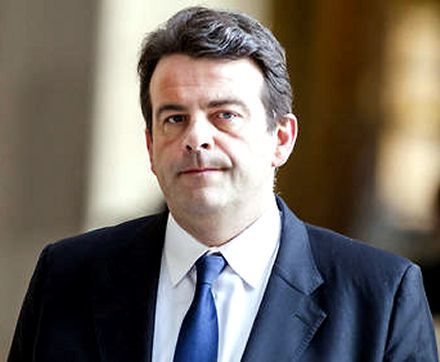
Thierry Solère is believed to have favored former employers, but also it must be heard about hiring the wife of one of his former bosses and undeclared loans.
Thierry Solère deputy The Republic on the march (LREM) Hauts-de-Seine was placed in police custody on July 17, 2018 morning in the premises of the judicial police in Nanterre (Hauts-de-Seine).
He has also been targeted since September 2016 by a judicial inquiry against him for serious suspicions of tax evasion.
The suspicions against Thierry Solère have since been extended to the heads of influence peddling, corruption, abuse of social good, illegal financing of election expenses and breaches of reporting obligations to the High Authority for the transparency of life (HATVP).
The lifting of his parliamentary immunity had asked the Nanterre public prosecutor's office to conduct his investigation and to be able to hear him in custody.
Finally his parliamentary immunity was lifted on July 11, 2018 by the National Assembly Bureau after much resistance.
The Nanterre public prosecutor's office had motivated its request, explained to the members of the office that the custody was "well in this case the only way to achieve the execution of the investigations".
Thierry Solère the deputy La Republique en Marche is notably suspected of having used his position of elected to favor companies for which he worked elsewhere.
Justice also wanted to hear about the hiring as a parliamentary assistant of the wife of one of his former employers.
A job that justice presumes of course fictitious, and secondly Thierry Solère should also be questioned on loans granted by one of his relatives, real estate developer, for more than a million euros, which would not have been declared.
Thierry Solère, of course, denies the allegations against him
Other unexpected consequences in this case, the ex-Socialist Seals guard Jean-Jacques Urvoas was put under examination by the Court of Justice of the Republic for "violation of the professional secrecy" .for having transmitted to Thierry Solère the elements on this investigation.
Here is another case that splashes and hurts once again The Republic in March and its members of the so-called new world that looks more and more like the old !!!
|
|
|
|
|
|
|
|
| Simon Freeman for DayNewsWorld |
 |
THE COVERS OF SIMONE AND ANTOINE VEIL
MEMORY OF SHOAH BEFORE ENTERING THE PANTHEON
|
"I have the feeling that when I die, it's the Shoah that I'll think about," Simone Veil said in 2009.
|
|
|

On Friday and Saturday, the coffins of Simone and Antoine Veil, covered with French flags, are exposed in front of the black marble Star of David in the crypt, place of memory of the genocide of the Jews, in Paris in the 4th arrondissement. On the coffin of Simone Veil, member of the French Academy, rests his Grand Cross of the Legion of Honor, awarded by François Hollande in 2012.
The public can come to the coffin of the former minister and her husband, whom she did not want to be separated after death.
One year, almost to the day, after her death, Simone Veil will become, Sunday, July 1, the fifth woman to enter the Pantheon, alongside her husband, Antoine. But, before this ceremony, a last tribute is returned to him, Friday 29 and Saturday, June 30, at the Memorial of the Shoah, in the 4th district of Paris.
She continues as well as during her life to be accessible until the day before her "pantheonization" Sunday. This Holocaust survivor and defender of women's rights, will be buried with her husband, Antoine Veil, at the Pantheon Sunday.
The two coffins will finally be shipped Sunday to the nave of the Pantheon, accompanied by the Veil family and the couple Macron. The public will be able to pay a last tribute to the couple Veil from 16 hours.
Simone and Antoine Veil will have descended Monday morning, in the presence of only the family, in the vault VI, where Jean Moulin and André Malraux, two great resistance fighters, Jean Monnet, one of the founders of the European Coal and Steel Community, are already resting. Steel (ECSC), and René Cassin, Nobel Peace Prize in 1968.
|
|
|
|
|
|
| Britney Delsey for DayNewsWorld |
 |
A POOL IN THE FORT OF BREGANCON
OR THE FACT OF PRINCE
|
|

The presidential couple is planning to set up a swimming pool in the Fort Varois, a holiday resort for the head of state. He decided to spend his holidays this summer at Fort de Brégançon, a holiday resort for Presidents of the Republic, located on the Var commune of Bormes-les-Mimosas.
General De Gaulle was the first President of the Republic to stay in August 1964. Georges Pompidou, Valery Giscard d'Estaing or Jacques Chirac were in love with the site. And François Hollande spent his first summer as president with Valérie Trierweiler. And they went there on vacation, happy to enjoy an imposing building built between the thirteenth and seventeenth century with a private beach below. Fort Brégançon, built on an island in the Var municipality of Bormes-les-Mimosas, surrounded by gardens and terraces with trees and flowers has "enchanting" with an "exceptional panorama" according to the tablets of the Center of National Monuments. Located below the fort, a beautiful private beach.
But to the taste of Macron, she would not be isolated enough! Below the fort. " At 300 meters from the edge, boats can anchor. Besides, the paparazzi make pictures of all the presidents who stay there. And Emmanuel Macron and his wife have grandchildren, whose privacy they wish to preserve. "
Brigitte and Emmanuel Macron want to bask in the sun of Le Lavandou at the edge of a swimming pool this summer at Fort Brégançon.
The Elysee has confirmed that the project was indeed "under study" in the holiday resort Var: "This study concerns both the rules of the architects of buildings in France, as technical and financial issues , says L'Elysee in a statement relayed by L'Express. It should go back to the president in the coming weeks (...) It will probably be an above ground pool, because it is impossible to dig a pond. Classified historical monument, Fort Brégançon can not be subjected to heavy work. Hence the likely choice of an above ground pool. On the other hand, L'Elysée did not wish to speak about the cost of this work : "We do not know the cost at this stage, but it must be reasonable" . The total cost of this development would be included in the 150,000 euros that the Elysee puts in pot each year for the maintenance of Fort Brégançon. Theoretically, the cost of buying an aboveground pool would be lower than that of the means deployed at sea to ensure the safety and tranquility of the presidential couple ...
Macron judging this building a little austere have already begun work in the summer residence of Heads of State by refreshing some parts, including cooking. And a new paint job is also planned before this summer. So why not now a swimming pool?
Above ground swimming pool of course: the site is classified as a historical monument, it is impossible to dig a pond. A study is underway concerning the rules governing architects of buildings in France as well as technical and financial issues.
The reason invoked: the preservation of privacy. The predecessors of this couple were satisfied with the beauty of this place, but this couple eager for beautiful things (the dishes of Sèvres for a cost estimated at 500,000 euros actually, to shine the arts we were told) has other requirements !!
Also for their comfort and intimacy the couple Macron close the doors of Fort Brégançon public ... The fact of the prince.
|
|
|
|
|
|
|
|
| Kate White for DayNewsWorld |
 |
DECREE PUBLISHED FOR 80KM / HOURS
DESPITE THE STRONG OPPOSITION OF SENATORS
|
|
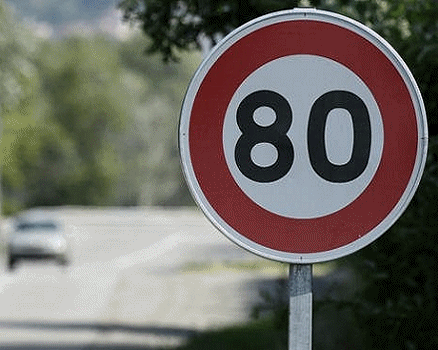
The application decree reducing from 90 km / h to 80 km / h the maximum authorized speed on 400,000 km of secondary roads from 1 July was published on the night of Saturday to Sunday in the Official Journal, after months of controversies!
This speed limit will apply on the two-way secondary roads without central separator (wall, slide), which is 40% of the French road network.
Source of everlasting quarrels, this measure would aim to reduce road deaths ...
In the face of the anger of their constituents, senators had created a working group to evaluate the "usefulness and effectiveness" of the measure.
They advocated a "decentralized and targeted" application, with roads limited to 80 km / h chosen at the level of the departments according to their dangerousness.
The option, although most judicious, was not chosen by the government.
A "rendezvous clause" is set for July 1, 2020. "If the results are not up to our expectations, (...) the government will take its responsibilities," said Philippe.
Safe reason? ! Not only, it seems ... !!!!!!!
|
|
|
|
|
|
|
| Sandra Stac for DayNewsWorld |
 |
THE DISPUTE BETWEEN MARLENE SCHIAPPA
AND HER COMMUNIST FATHER THROUGH
SOCIAL NETWORKS
|
|
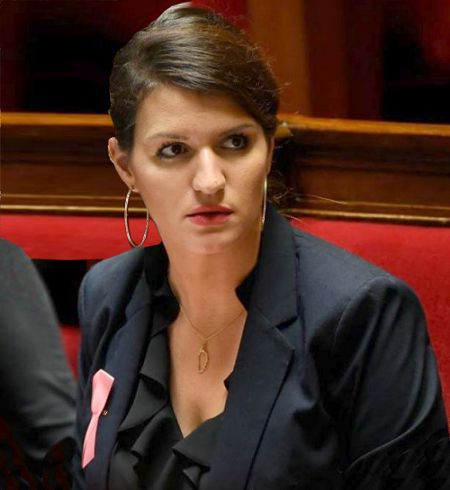
The Secretary of State for Gender Equality saw fit to quote Karl Marx in support of the government's vision for the RSA.
"Touch € 550 of RSA per month does not get out of poverty if there is no effective coaching to work. A real job, a real salary: this is the project of the government! " , She enthused, before quoting Marx: " The emancipation of workers will be the work of the workers themselves " .
But it seems that she misunderstands according to her father, former Trotskyist teacher, the thought of Marx. Indeed Jean-Marc Schiappa, published a text on Facebook targeting his daughter and his references to the author of Capital.
Not only does he rectify an error of his daughter who commits a first mistake attributing the sentence to the German philosopher. It is " the First International [who] writes, on the proposal of Karl Marx (so it is incorrect to quote this sentence as coming from the only Marx), "the emancipation of the workers will be the work of the workers themselves" " , corrects the former union delegate Force Ouvrière.
But it gives him a lesson in political philosophy aimed at both the Secretary of State (without ever naming it), the government to which it belongs and the policy.
For Schiappa father, his daughter is totally off topic. "It is a collective work (" the workers ") and not individual (each worker having to fend for himself); the goal is collective emancipation (and not a personal success - which, by the way?), that of the workers, the proletariat , he recalls on the social network. One can not expect anyone's salvation except organized, therefore conscious action. ". We are far from the individualism of start-ups ...
Marlène Schiappa, "humble valet" of "conservative interests"
The French Communist Party has also been ulcerated after the intervention to support the government policy of the Secretary for Equality between Women and Men
The PCF, in turn, took his pen, quoting Capital, the founding work of communism: "When Marx speaks of the emancipation of the workers, it is precisely to get rid of people like you who defend the conservative interests of which [ you are the humble valet.
Also on Twitter, Marlène Schiappa reacted to her father's message, explaining that her "political disagreement" with him had "nothing new", while criticizing the title chosen by Le Monde, which speaks of "lesson" given by his father, a sexist way of presenting things in his eyes.
"The patriarchy has a bright future ahead of it," she wrote.
|
|
|
|
|
|
|
|
| Britney Delsey for DayNewsWorld |
 |
THE PRESIDENT OF THE VERY RICH EXCHANGES
THE OFFER OF THE ELYSEE
|
|
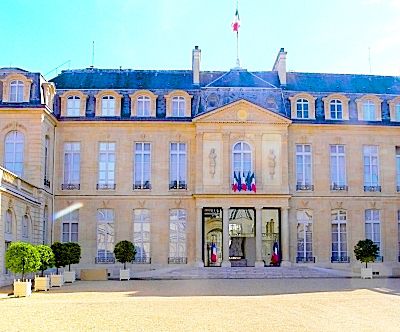
It is the JDD of June 10, 2018 which first raised the hare, the information having been resumed quickly by Valeurs Actuelles ... then today by the Chained Duck which added comments more squeaky.
And we will do the same, as the information becomes unseemly in these days!
So, the couple Macron will spend 50 000 € to replace the dishes of the Elysée !!!
"Royal Fantasies" or support for the "radiation of the arts"! it's hard to choose between one and the other?
What we know concretely nevertheless, is that these 50 000 € are intended to remunerate the 30 artists who participated in the contest organized by the Manufacture de Sèvre, it being specified that only one was selected for the drawing.
It is the Ministry of Culture which should assume this expense of 50 000 €!
And, it is the artist Evariste Richer who was selected at the end of the contest.
Evariste Richer was born in 1968 in Montpellier. He graduated from the Ecole des Beaux Arts in Grenoble and the Ecole Supérieure des Arts in Cergy Pontoise, where for the first time, in 2001, he presented his works at the "Retina" Gallery / Center. Contemporary art ".
The new service of the Elysee (230 to 270 seats) which should be called "Blue - the royal color - Elysée" will use the "Bleu de Sèvres" both for the listels of plates and for their center, which on a white background, will see fit the drawing "features of the buildings of the Elysee buildings presented graphically, in plan".
This choice, made in all likelihood by the First Lady, has the declared goal of "give a boost" to the pace of the grand banquets of the Presidency of the Republic ???
Which act!
But this decision would also have been taken because the current dishes present some traces of wear; (The dishes are made by hand at the Elysée to avoid this wear!); and it would have been taken too, because there would have been a little breakage since the delivery under the Chirac presidency of the current "Blue Constellation" service?
Moreover, the information turned "to the joke" against a backdrop of outrage, on social networks: "what shame, can we read, King Macron needs a new dishes paid 50 000 € (?) , even though it forces taxpayers, retirees or the poor to tighten their belts "... because" we must fund the "Royal Fantasies"? Wow! The scaffold does not seem far!
But conversely, would it be possible that this decision was mainly taken by the Elysee Palace to support French Art and Savoir Faire?
Why not ?
But from this point of view, given that Evariste Richer's project is still not visible, we want to ask some complementary questions.
Evariste Richer would have an artistic practice inspired by "the regeneration of the Universe and its natural phenomena or the mechanisms of the universe" (we do not know if Nicolas Hulot was consulted?) Or an inspired practice by "the impermanence of things and relativism linked to notions of truths".
 As a result a question? on this last point, Emmanuel Macron's presidential term would fall within these characteristics given his complex - and relative - thinking which has already been marked by the uncertainties - the impermanence of things - as to its duration. ? As a result a question? on this last point, Emmanuel Macron's presidential term would fall within these characteristics given his complex - and relative - thinking which has already been marked by the uncertainties - the impermanence of things - as to its duration. ?
We will not answer and we will remain for our part, "again and again in the concrete, feet in the clay, remembering that the Enchainé Duck has just revealed, this morning, the true cost of the dish service, which would be close to 1,2 M €, the average cost of a plate of Porcelain of Sèvre being about 400 €. (And 1300 to 1400 pieces must be manufactured).
But this cost would not be borne by the budget of the Elysee, the Manufacture de Sèvre having decided to bear the cost of manufacture?
The ! This information hit us deeply and hit more than one!
Indeed, the reforms initiated by Nicolas Sarkozy under his presidency, to make more transparent the operating budget of the Elysée now requires that it no longer to support some of its own expenses by another department of the State or structures financed by the state.
But the budget of the prestigious Manufacture de Sèvre is 60% financed by the state budget ... and therefore by the taxpayer ...
"Past there is nothing to see! This is the message that seems to be passing recently, the silence of the Elysee knowing that these latest revelations, which have increased the indignation of Internet users or readers, have been judged by the Presidential Palace, petty, because insensitive to the radiation of the French Arts via the famous Manufacture?
Moreover, the harsh comments on the subject do not say whether to compensate, the most angry French, will be invited to the dinner at the Elysee, or if, in "punishment" Emmanuel Macron would be personally obliged to take responsibility the price of dishwashing liquid from the Elysee ..
And new comments to fall again, early in the morning, which take up their account on the subject, the words of Emmanuel Macron yesterday
"But what are we spending like cash, for nothing and for no efficiency by buying a new service of crockery for the Elysée !! ".
Tweet this morning of the communication department of the Elysee, tweeting a video in which we hear Emmanuel Macron say, very angry: "but what is spent as a cash in social minima, and this for no efficiency ..."
|
|
|
|
|
|
|
|
| Clara Mitchell for DayNewsWorld |
 |
RUSSIA THE CORRIDOR PROJECT
|
|

The "Corridor" project is a project launched in 2000 by the Russian Minister of Transport.
Russia decided at the time to build its own project of "Suez Canal" to bypass the control of the United States and Europe on the existing Suez Canal.
Until now, shipments from India and South East Asia were transported to Europe via the Suez Canal built by Ferdinand de Lesseps' company between 1859 and 1869, expanded and doubled in size. 2015, to serve as a springboard for the development of world trade.
With this new itinerary, the INSTC (International North South Transport Corridor) will be able to carry cargo from Saint Petersburg to the Indian metropolis of Mumbai via Iran and Azerbaijan via Astrakhan.
In addition to the objective of circumventing the control of shipping routes by Europe and the United States, this new route, which has left its study phase, should reduce the cost of trade between India by 30%. , South East Asia and the Baltic Sea. This new route is indeed much shorter than the standard route of the current Suez Canal, with only 7200 km in length. Instead of taking 35 to 40 days, the freight transported in the future should only take 20 to 23 days, saving time and money.
The roadmap for the project is expected to be presented to all participating States in the near future.
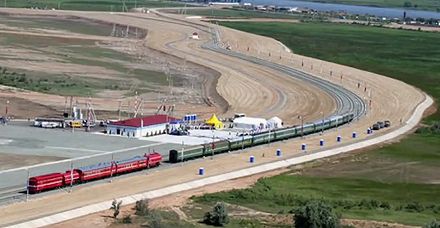 But curiously the French press has not or little mentioned this business, whose importance both commercially and geopolitically, is not to be demonstrated, and this even as she recounted the recent meeting between Emmanuel Macron and Vladimir Putin in St. Petersburg. But curiously the French press has not or little mentioned this business, whose importance both commercially and geopolitically, is not to be demonstrated, and this even as she recounted the recent meeting between Emmanuel Macron and Vladimir Putin in St. Petersburg.
Yet Emmanuel Macron spent two days in Russia to attend the international economic forum, where he was a guest of honor, a forum held from 24 to 26 May 2018 with bonus, therefore, a face-to-face meeting with Vladimir Putin.
Pitiable! Lamentable! But it must be said that for many months the Elysee has closed its doors to the Russian Press!
Overall the meeting between the two heads of state was nonetheless judged "positive"
But some unhappy spirits, however lucid, have nevertheless depicted the position and the behavior of the President of the French Republic as "a political dance" , hesitating, in pas de deux, between his indisputable relations, with Vladimir Putin and the signs of "cordial friendship" exchanged between him and Donald Trump on the occasion of the official trip of the presidential couple to Washington in April 2018 ...
And this situation did not fail naturally to make us want to plagiarize the saying "Often Macron varies, very crazy who relies on it"
France's relations with Russia are nevertheless, it should be remembered, particularly difficult, this under the background of economic sanctions decided by the EU after the Ukrainian affair.
A "History" that allowed Vladimir Putin, who is today an experienced politician (18 years of power) to remind the "young" President of the French Republic "representative of the new world" and wanting, without an official mandate , representative of Europe ... that things had changed.
Vladimir Putin did not fail to recall the occasional Gaullian description of the old Russian world made by Emmanuel Macron that it was no longer put right now. Russia no longer extends from the Urals to the Atlantic but from "Lisbon to Vladivostok" . Which act!
It must be noted, however, the incredible collapse between this information and the violent telephone conversation that took place between Donald Trump and Emmanuel Macron a few hours ago, the latter having given the President of the United States a lesson on the legality of freedom of international trade! In other words, the lesson was not appreciated ...
Also, between these two masters of the world, one can not fail to ask the question of which jump seat the ambitious President of the French Republic will sit?
Because Russia has become a formidable economic and political partner on the world plan, a finding that leads inevitably to admit that the economic sanctions practiced by France and the EU in the last decade, pushed against all expectations, this one to turn more towards China and Asia, while at the same time helping it develop its agriculture and its advanced industries, especially oil.
The financially ambitious and politically ambitious project of the so-called "Corridor" canal is a testimony to this.
Russia has been challenging the US and Europe on all fronts for a few years, and in doing so, its ferocious orientations and appetites are giving substance to the creation of a non-dollar zone (and petrodollars), so much feared by America, but only one effective guarantee for many to the development of a multipolar world whose purpose is to purge US imperialist tendencies.
In this titanic fight we must therefore wonder about the place that France will occupy on the world chessboard, the guarantee of a young president, pretending to represent the modern world and its future, is not, obviously assured .
|
|
|
|
|
|
|
|
| Clara Mitchell for DayNewsWorld |
 |
THE INTEGRATION POLICY OF REFUGEES IN FRANCE
|
|
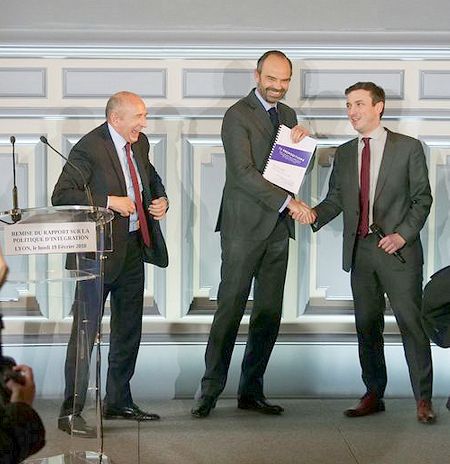
Three months after the adoption of the asylum and immigration law, the Prime Minister announced on Tuesday, June 5, various measures likely to improve the integration of foreigners, including refugees, in France without however quantifying them. It is a question of catching up with "the delays of the promise granted by the Republic" and the "lack of ambition" with regard to integration, declared the prime minister. These measures are largely inspired by the "72 proposals for an ambitious policy of integration of foreigners arriving in France" , recorded in the report of the LREM deputy of Val-d'Oise, Aurélien Taché.
Doubling the volume of language hours
As early as 2019, foreigners who legally settle in France will benefit from doubling the hours of language lessons, ie 400 hours, in order to get closer to German or Norwegian European standards. 600 hours will be spent for people "not knowing, read or write" , this would concern about 3500 people, according to Ofii (French Office for Immigration and Integration). "Smaller, more homogeneous" classes will be formed and childcare will be developed so that young parents can attend the course.
Strengthening professional integration
Today, only 35% of immigrants who arrived less than five years ago have a job, according to the OECD. In order to remove the "obstacles" to immigrants' access to employment, several avenues have been mentioned, such as the development of professional language training, better recognition of training and previous experiences, as well as better " Mobilization of corporate networks" such as the Foundation act against exclusion (FACE). Each newcomer looking for a job will benefit from a professional interview and accompanying path. The Hope program (housing, orientation, career path) offering eight months of language training and apprenticeship in sectors in tension such as construction, will be extended to 3000 refugees, against 1000 currently.
Better integration into society
The integration into society will go through a reform of the Republican Integration Contract (CIR), a program for newcomers obtaining a residence permit. Thus the civic training will be spread over 24 hours, instead of the current 12 hours. For young people, the development of specific courses is announced: thus a "linguistic and socio-professional language" , lasting from 3 to 6 months, will be set up for 3000 young foreigners recently arrived in France from 2018 (and 5 000 in 2019). Young people will also be awarded the "culture pass" of 500 euros, just like other young French people. Specific projects for refugees will be developed with the platform "sport factor of social inclusion". A national civic service campaign for refugees will also be launched. To improve access to bank accounts, a working group will be set up with La Poste Group.
Edouard Philippe also recalled the difficulty of accessing housing for refugees. Accompanying measures, such as citizen housing for private individuals, will be renewed, as part of the circular last December asking the prefects to mobilize 20,000 housing units for refugees.
"This integration policy is an essential subject of interest and dignity for the entire French nation," said Edouard Philippe after an interministerial committee in Matignon.
|
|
|
|
|
|
|
|
| Britney Delsey for DayNewsWorld |
 |
MACRON WOULD HE KNOW ON
HER DECLARATION OF HERITAGE ?
|
|

Anticor considers that "the exhaustive, exact and sincere character" of the declaration of inheritance of the candidate of March to the presidential one lacks of clarity and must be submitted for verification to the High Authority for the transparency of the public life (HATVP) . Indeed the personal fortune of Emmanuel Macron raises many questions.
The anti-corruption association Anticor points out a "lack of coherence between the incomes and declared wealth" of the candidate.
As manager and then managing partner at Rotschild & Cie between 2008 and 2012, he is not subject to wealth tax (ISF). When he joined the government, his wealth declaration seemed oddly modest for a former banker of business.
Anticor wonders with reason.
Difficult to juggle the numbers and fall back on his feet with the statements of a former banker.
In his declaration of interests signed on October 24, 2014, Emmanuel Macron indicates that he perceived, as a banker at Rothschild Bank and then as Deputy Secretary General to the Presidency of the Republic, "3.3 million euros of pre-tax income "over the period of 2009 until his entry into the government as Minister of the Economy in August 2014, according to a statement from Anticor.
His activities in the merchant banking allowed him to earn "2.8 million euros" between 2009 and his appointment in May 2012 to the general secretariat of the presidency under François Hollande.
But in his declaration of assets, also signed in October 2014, Mr. Macron reported a wealth of "1.2 million euros and a debt of 1 million euros", "a net worth only 200,000 euros »
The association Anticor announced Monday, March 13 that it has seized the High Authority for the transparency of public life (HATVP) to ask him to "verify the completeness, accuracy and sincerity" of the declaration of patrimony of Emmanuel Macron .
In its statement, Anticor denounces a "lack of coherence between declared income and wealth".
TO BE CONTINUED !
|
|
|
|
|
|
|
|
| Steven Colton for DayNewsWorld |
 |
ONE YEAR POLICY OF HULOT
AND ITS DISASTER BALANCE |
|
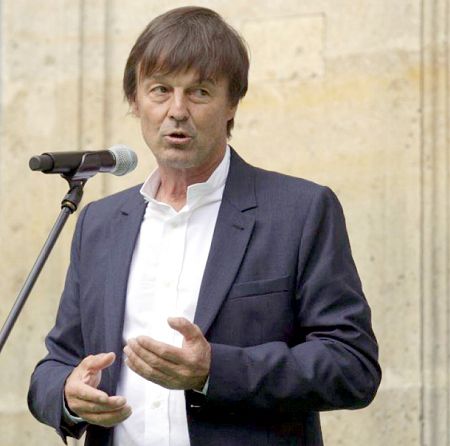
The Minister of Ecological Transition comes to Jean-Jacques Bourdin, the defeated mine, showing his doubts about his balance sheet.
It is true that his files are advancing only with no turtle. "I especially see what remains to be done ... Until the summer, my head under the water. This assessment, I will do it this summer. I'll have enough evidence to see if I'm participating in this societal transformation , "he says.
Emmanuel Macron had promised to evaluate his ministers; it is himself that Nicolas Hulot is preparing to evaluate. "This summer, we will have a moment of truth with the President and the Prime Minister .... If I feel that we are not moving forward ... I will learn the lessons. " He will decide.
Hulot annoys his confreres. "He dresses his lack of work by a lack of ambition of others! Work by a lack of ambition of others! ", We squeak. "He's showing that he does not have the mind of a minister. "
It even happens to unleash social networks that test a new hashtag #unjobpourhulot. And Edouard Philippe to give him a session of "hugotherapy" in his turn.
But this only highlights the emptiness of the character who has so far only swallowed snakes ...
Nuclear, palm oil, pesticides are three most bulky cases for Nicolas Hulot
En Marche's candidate had promised to reduce the share of nuclear power in French energy to 50%, while it is currently 75%, by 2025. But it was clear last November, for Nicolas Hulot that the commitment would be difficult to keep within the deadlines, included in the energy law of 2015.
Let's move on to palm oil and deforestation
Total has converted the La Mède refinery (Bouches-du-Rhône) into biodiesel production using plant materials. And to do this the Ministry of Ecology has simply given permission to the group to import 300,000 tons per year of palm oil from Indonesia or Malaysia. "I ask them, I had (the CEO of Total, Patrick) Pouyanné, to minimize the use of palm oil (...) and to try from year to year to reduce the share of 'palm oil and increase the share of used oil ,' hammered Nicolas Hulot while palm oil contributes to deforestation. But contrary to what Total says, that its oil would come from certified sustainable forests, a report from a Dutch foundation showed that these certifications, in Indonesia in particular, were not very serious ...
And let's not talk about the pesticide episode!
While the government is asking French farmers to diversify!
|
|
|
|
|
|
|
|
|
|
|
|
|
| Alyson Braxton for DayNewsWorld |
 |
CASE JEROME CAHUZAC THE PARADOX !
|
|
Jerome Cahuzac did not want to go to prison!
Four years in prison including two suspended sentence is the price set by the Court of Appeal of Paris for the paradox of Jérôme Cahuzac
The former minister had appealed his conviction of first instance of December 8, 2016 for this reason mainly, unable to resolve to suffer this shameful and unbearable punishment, assimilated by him to a small social death, through the condemnation that the Paris Criminal Court had inflicted with 3 years in prison.
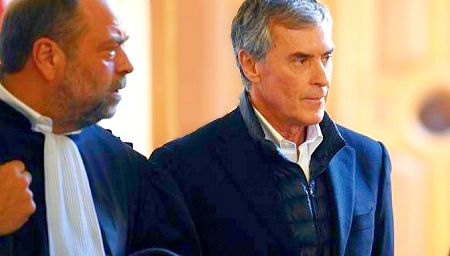 While increasing the quantum of the main sentence by setting the sentence of Jerome Cahuzac to 4 years in prison, the Court of Appeal of Paris matched this sentence of 2 years of suspended sentence. While increasing the quantum of the main sentence by setting the sentence of Jerome Cahuzac to 4 years in prison, the Court of Appeal of Paris matched this sentence of 2 years of suspended sentence.
The two years of residual prison may be developed by the wearing of an electronic bracelet or works of general interest (TIG) or ... etc.
The panel of alternative sentences offered by the Code of Criminal Procedure is broad on this point.
The precise conditions of this adjustment of sentence will be defined by a judge of enforcement of sentences, that Jerome Cahuzac will meet soon, most likely, accompanied by his lawyer
Jérôme Cahuzac has also been fined € 300,000 and 5 years eligibility.
To obtain this result, Jérôme Cahuzac not only had to appeal the decision of first instance, but also allocate the services of the famous tenor of the bar, Maître Dupont Moretti.
The decision of the Court of Appeal of Paris of today which certainly gave satisfaction to the former minister and his council, correlatively and inversely wanted to maintain an exemplary sanction, this because of the lies in which Jérôme Cahuzac s was locked up and also that he had also outrageously mediatized, out of bravado.
The Cahuzac affair had, it should be remembered, shaken the government of François Hollande for many months, the Minister of Finance having been the pillar.
For several weeks, "the eyes in the eyes," the Minister had ensure that he had no hidden account abroad, before resolving, before the overwhelming facts revealed by the investigation, to confess that he had an account in Switzerland and another in Singapore. Accounts opened under the nickname "Birdie" and supplied for 3 million euros, three million euros that had escaped tax.
Sad political end of a man who had been a super surgeon, a super mayor, a super deputy and a super minister ....
The future of a whole conquering left then ...
At the end of the verdict, Jérôme Cahuzac threw himself into the arms of a friend who was waiting for him, probably relieved.
Since the affair broke out, Jérôme Cahuzac has fallen into remorse and loneliness, voluntarily abandoning all social life or not, sealing himself out of sight in the family home of Corsica. Even finding an activity in an NGO has become a problem and a difficulty for him!
The case Cahuzac is for some the most serious of the Fifth Republic. It has made such an impression that since it broke out many reforms have taken place to punish money laundering or corruption even more severely.
The case has also and partly led to the creation of the Parquet Financier de Paris which has since been charged with all kinds of business and among them some very media like the Bygmalion case, the Libyan affairs of Nicolas Sarkozy or even more recently the Fillion case.
There is no doubt that in the future, the Financial Prosecution will again be entrusted with equally resounding cases, perhaps even one day, that relating to the financing of Emmanuel Macron's presidential campaign.
|
|
|
|
|
|
|
|
| Clara Mitchell for DayNewsWorld |
 |
MARION MARECHAL THE FUTURE PEN
LEADER OF RIGHT ON LYON ?
|
| In a previous edition, we talked about the performance of Marion Marechal Le Pen before the conservative Republicans Republicans, packed!
At the same time, we mentioned the latter's intention to open a political academy in Lyon
Since then, the MMLP Academy project has been realized and finalized. It is in Lyon and more precisely in the district of Confluence, just a step away from the Hotel of the Region Auvergne Rhône Alpes that is in the process of settling.
The exact address is now known: at the corner of Smith Street and Casimir Perrier Street in Lyon, on a surface of 400 m2.
 It is the company "Idea O '" (based in Montretout, within the family domain of Saint Cloud) which has been designated as the carrying structure of the project. It is the company "Idea O '" (based in Montretout, within the family domain of Saint Cloud) which has been designated as the carrying structure of the project.
MMLP has already made the deposit of its original project to the INPI (National Institute for the Protection of Industrial Property).
The areas of activity of the company that have been declared are: office work, organizational and business management consultancy, communication consulting, public relations, conference management.
The MMLP project in Lyon
The overall intention of MMLP is to "give intellectual, cultural, legal, technical and media weapons to future generations so that they are able, as best as possible, in the business as well as in the political arena, to convince. "
In concrete terms, the objective of the academy will remain to offer students courses leading to recognized diplomas.
The layout of the premises should be completed in the coming weeks. An open house and a communication campaign are already scheduled.
Among the relatives of Marion Marechal Le Pen, several personalities are likely to help. This is the case of the industrialist Charles Beigbeder (former member of the UMP) and close to Charles Million, former Minister of Defense, former Deputy and former President of the Rhone Alpes Region. Charles Beigbeider supported the launch of the "Avant-Garde" association promoted by Charles Millon.
We also know that Christophe Boudot, leader of the 30 regional advisers Auvergne Rhône Alpes came to support him, supported by his troops. It is most likely this move that caused him to be removed from the political office of the FN.
Moreover, the choice of Lyon for the establishment of the Political Academy of MMLP has certainly not been innocent!
Lyon has always been a city where various right-wing and extreme right movements abound, following the example of Génération Identitaire but also of the "Manif for all" and its political emanation "Common Sense" .
Although it has been well received by some, the MMLP project in Lyon has undeniably appeared for others to be a direct competition; example that of Laurent Wauquiez, the boss of LR but also president of the Auvergne Rhône Alpes Region.
To put a stop to all criticism MMLP once again recalled that it had withdrawn from politics, the operational policy is no longer relevant for it; It must be recognized that this political positioning is serving him for the moment. Nevertheless, some people feel very seriously that even in this configuration and thanks to his personality it participates ... again and again to the destabilization of his aunt Marine Le Pen.
Because, in fact, nothing says that she will not one day have the taste of "come back" ?
And in this case it may be without the FN, historical version, that it will make his "come back" , but rather with other political figures like ... Laurent Wauquiez?
However, it will first be necessary to lift some mortgages, including for example ... its possible participation in the 2020 municipal elections in Lyon.
In Lyon, we know that Gerard Collomb is considering not representing himself. But we also know that he caresses the idea of propelling his wife Caroline Collomb, 30 years his junior who has been for several months the place of reference for LREM, a calculation that has already attracted many critics ... within from the Lyon left.
Caroline Collomb currently divides her time between the Secretary of State for Digital and the Minister of the Interior, her husband, "Gege" for the close friends. A Caroline Collomb hyperactive for some time, who shouts victory for having set up no less than "24 thematic commissions to enrich the action of the government" and which envisages the creation of a "campus en marche" to train those who want to be elected. A word of warning hello!
But Caroline Collomb who is already preparing his campaign will have to seriously fight because of the hostility that have already manifested to him several elected "on the move" as Guy Corazzal who has already deposited his logo at the INPI.
The name of Nathalie Perrin Gilbert, mayor of the 1st arrondissement, who could represent France Insoumise also circulates. Nathalie Perrin Gilbert who is known for his franc spoken has already released his stink balls by swinging his first deputy about a case concerning the conduct of his marriage. Hello atmosphere!
One two Three ! What else!
The municipal of Lyon could give link to a women's war, because we also speak of Laurence Balas or MP Anne Bugnera or the insatiable centrist Fuziya Bouzerba.
Marion Maréchal Le Pen may already have decided not only to decide to discover the charms of LYON, the city of Light, the former capital of Gaul, the city that Prince Charles accompanied by Camilla his wife come to honor on occasion from their recent visit.
She could indeed have the ambition to participate in this war of ladies!
Unless, close the ban, some local politicians do decide to start, like Charles Millon who would like to find "the spirit of Uriage" or Etienne Blanc, First Vice President of the Auvergne Rhône Alpes region which according to some cleverly distilled confidences has already begun a discreet campaign.
Etienne Blanc could then have to face Pascal Blache, LREM too. Pascal Blache is Mayor of the 6th arrondissement, President of the micro-party he created, Cap Lyon Métropole. Pascal Blache, who does not hide his ambitions for Lyon, will nevertheless have an uneasy task.
Indeed, the left and the macronistes are numerous on Lyon; they are, however, divided which makes some say that we could well end up in the configuration of a 2001 upside down. Faced with the division of the right, it was Gerard Colomb who had won! This time the solution could be reversed.
It will follow the story of Lyon salads ...
|
|
|
|
|
|
|
|
| Clara Mitchell for DayNewsWorld |
 |
"SHOPPING OF ASYLUM" ACCORDING TO
MINISTER NATHALIE LOISEAU
|
|
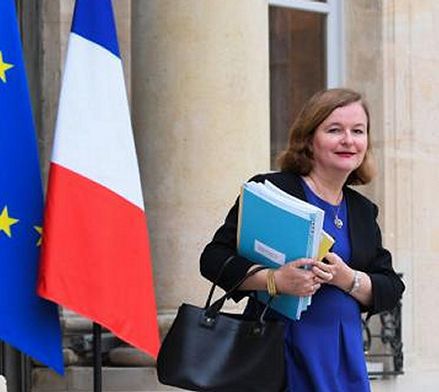
The minister Nathalie Loiseau creates the controversy but assumes by denouncing the Senate, Wednesday, May 9 the "shopping of the asylum" of some migrants, who would choose between "Sweden and Italy" to settle.
Asked about refugees in Europe, the European Affairs Minister has caused an uproar in the ranks of the left by using this expression as if some migrants choosing a host country were shopping in the supermarket.
"When we arrive from South Sudan, we can go shopping in the asylum and find that we are better in Sweden than in Italy but still , " said Nathalie Loiseau, before try to justify herself by explaining that she herself went to South Sudan.
His remarks made the senator ecologist Esther Benbassa jump. "How dare you use this word" shopping "to talk about people who are in misery, in suffering, in destitution? She replied sharply.
Other senators also expressed their indignation on Twitter.
If the minister then explained herself on Twitter. "The expression is not happy indeed," according to Nathalie Loiseau, she did not withdraw his words.
It noted that the term "shopping for asylum" refers to "a reality and is commonly used by specialists in the European asylum system".
"This term is included in several texts The fight against 'shopping for asylum' is an objective of the review of the European asylum system France supports the harmonization of procedures and the precision of each person's responsibilities and solidarity among states, " she added.
|
|
|
|
|
|
|
| Carl Delsey for DayNewsWorld |
 |
WHY TALK ABOUT ECOLOGICAL DEBT
IN FRANCE FROM 5TH MAY
|
|

The WWF WWF sounds the alarm: every year this fateful date arrives earlier and earlier since 2014 and France is one of the first predators on the planet.
If the whole world lived like France, from May 5, the planet would have consumed all the natural resources that the Earth can renew in one year, announced the NGO WWF France.
And she would "need the equivalent of 2.9 Earth planets to provide for her needs," according to WWF France. According to this report, France is among the first 10 countries to live on credit this year on the back of nature, behind Qatar, the United States or Russia, but well before Spain or Morocco for example.
If all humanity consumed like the French, it would take almost three planets to meet the needs!
The world average is around 1.7 Earth.
Fishing, agriculture, livestock, carbon footprint, each year the NGO WWF in partnership with Global Footprint Network calculates the "day of overcoming" of each country to around the world.
Humanity is therefore living more and more " on credit" from an ecological point of view.
"We call on the government to know if it is ready to implement a real strategy of ecological deleveraging," said the director of WWF France.
This worrying situation is worsening from year to year. "All scientists are alerting us to the fact that the ecological crisis is not only for 20, 30 or 40 years, it is now that the impacts begin to be felt", points out Pascal Canfin, director General WWF France "No country in the world has both a satisfactory level of economic and social development and respect for the limits of the planet's natural resources ," he says.
The fall in the price of oil has a not insignificant influence. .
"Ten Africans have a lesser ecological footprint than an American," says the former minister responsible for development in the five-year term of François Hollande. And France is not exemplary in this regard. A paradox for Pascal Canfin, while the Hexagon was host to the Paris agreement on climate.
"The ecological footprint of the French has deteriorated in the last three years, particularly because of the decline in the price of oil," says Pascal Canfin. "The main culprits are the means we use to heat, transport and eat," he continues.
Yet the solutions to save the planet exist.
Pascal Canfin points out that the trend can be reversed ..
"We are able to drastically reduce the impact we have on our planet. We have all the solutions. We know how to build houses that are less emitting, we know how to pass cars. We know how to do it, but we are not there yet, "he insists.
When we pride ourselves on being the leader of the COP 21! |
|
|
|
|
|
| Britney Delsey pour DayNewsWorld |
 |
URBAN VIOLENCE AT 1ST MAY IN PARIS
AND OPERATION DEMINING THE GOVERNMENT
|
| The day after the demonstrations of May 1st, the accounts were made: violent excesses and acts of violence on the sidelines of the processions took place in the French capital. The Paris police chief, Michel Delpuech, reported 109 people in police custody.
The demonstrations of May 1st were marked by overflows. The police chief of the capital announced on Wednesday May 2 that 109 people were in police custody.
Obviously the authorities had been warned of possible acts of violence on the part of the "Black Blocks" but for the prefect of police there was no underestimation of the situation with the mobilization of 1,500 police forces .
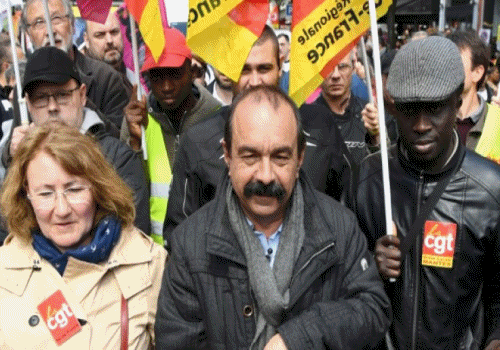 An admission of weakness, however, from the Minister of the Interior who has promised to increase the police presence at future events. "For the next events, there will be even more law enforcement with the intention this time to completely separate the protesters from those who want to break," said Gerard Collomb. An admission of weakness, however, from the Minister of the Interior who has promised to increase the police presence at future events. "For the next events, there will be even more law enforcement with the intention this time to completely separate the protesters from those who want to break," said Gerard Collomb.
What happened ?
1,200 hooded people of radical radical movement of extreme left of the black blocks arrived in group, well equipped and organized, according to the prefecture of police. Police used tear gas and two water launchers.
Gerard Collomb regrets the nascent controversy over the reaction of the security forces and the extent of the damage, the main one for him being the absence of serious injuries (4 injured too much, however). Same speech on the side of Prime Minister Édouard Philippe.
"Either we move too fast, or we move not fast enough, or there are too many people, or there are not enough people," he said about the police device. But the Prime Minister especially "found that there were no wounded."
In any case the responsibility of the government remains in question and the French can not be satisfied with a statement of Emmanuel Macron since Australia
"May Day is workers 'day, not rioters' day , " Emmanuel Macron said at a press conference this morning in Sydney to hammer his " sesame miracle" against Violence "Everything will be done so that their authors are identified and held responsible for their actions," tweeted the French president, traveling to Australia.
The opposition gave voice.
Laurent Wauquiez, President of the Republicans (LR), regretted "terrible images for our country," in a tweet. "Bankruptcy of the sovereign state. It is urgent to restore authority: full support for our law enforcement agencies who are facing these thugs, " he added.
Republican spokeswoman Lydia Guirous mocked Emmanuel Macron, who "continues his business banker road show in Australia, forgetting the French and their safety . yet it is its primary mission , " lamenting that " the state is disintegrating in Paris ".
The demonstrations gathered over 210,000 people in France according to the CGT. There were 143,500 demonstrators for the Interior Ministry, against nearly 142,000 last year.
A first May in fact confiscated to the demonstrators ...
|
|
|
|
|
|
|
|
| Britney Delsey for DayNewsWorld |
 |
NOTE OF HUMOR
BRIGITTE AND EMMANUEL IN AMERICA
|
|
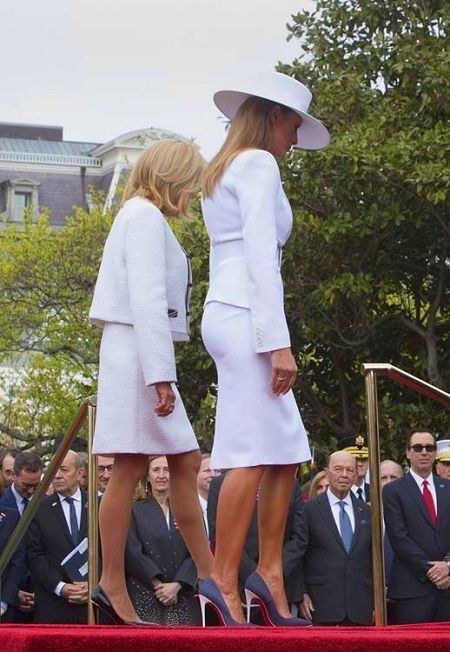
It is difficult for now, hot, to draw serious lessons and built on the visit of Emmanuel Macron to Donald Trump. 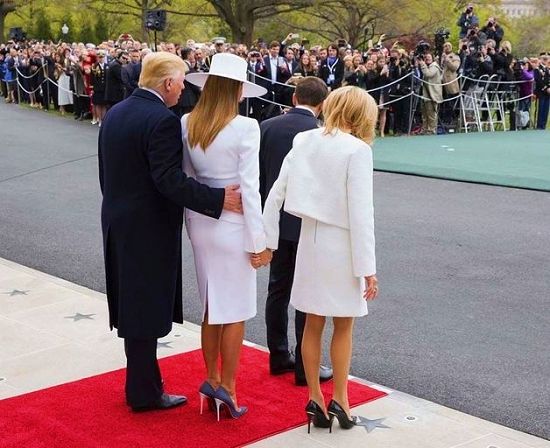
So for the moment, we will stick to the only comments of images, some of which, on each side of the Atlantic have sparked smiles, sarcasm or even admiration from their side surprising.
A malicious photographer photographed the two presidential couples from the back on the second day of Emmanuel Macron's visit to Washington.
The two First Ladies were in white; Melania Trump wore a huge hat. White too.
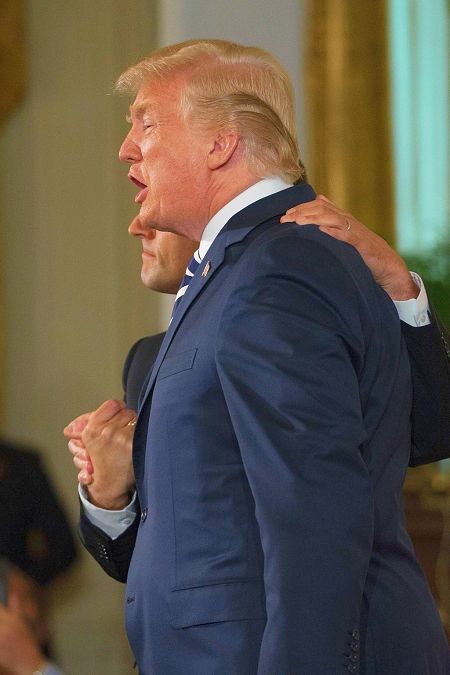 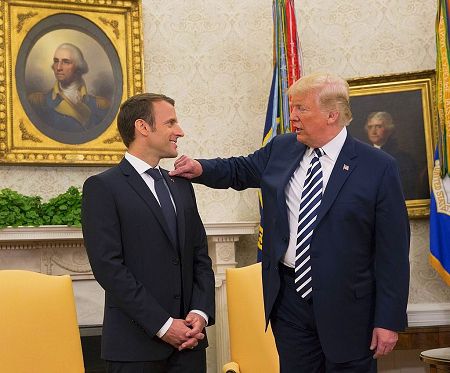 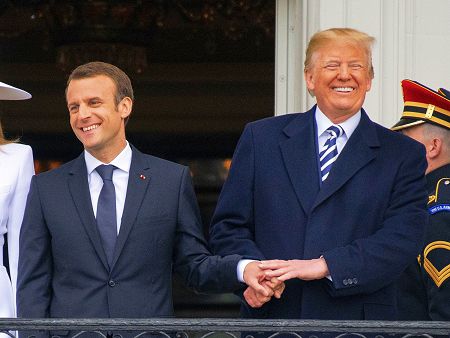 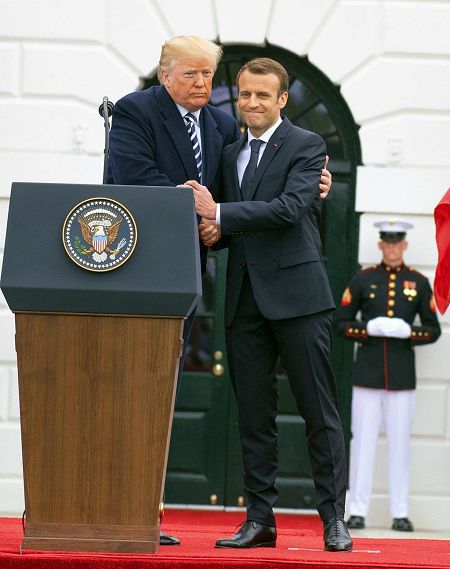 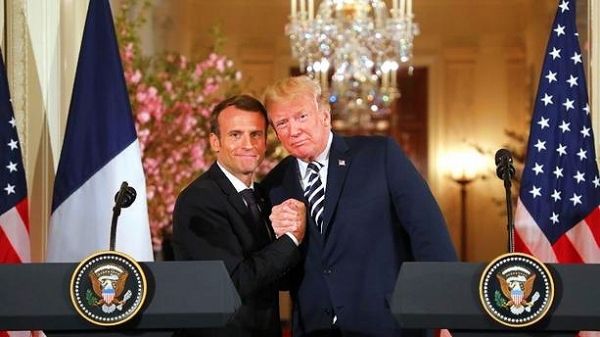  From this unofficial photo taken at the White House, we could see the bouncing buttocks Melania Trump, neighbor with the sad buttocks Brigitte Macron. The image has panicked the web! For us it will be: No more comment! From this unofficial photo taken at the White House, we could see the bouncing buttocks Melania Trump, neighbor with the sad buttocks Brigitte Macron. The image has panicked the web! For us it will be: No more comment!
The strange embraces on both cheeks and the endless handshakes of the two heads of state were the delight of comedians and us too.
These images have stunned each side of the Atlantic. They even shocked the United States where these behaviors in public are in principle reprobated 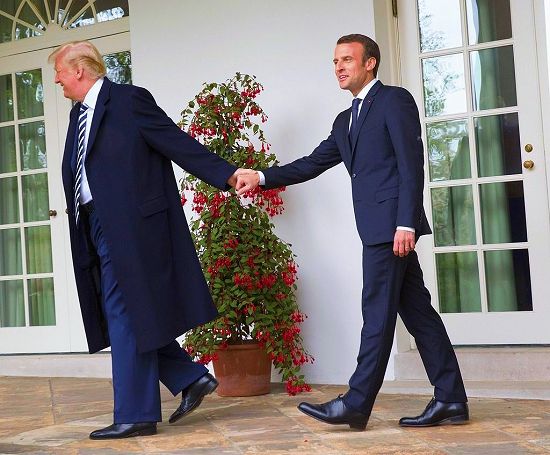
On the French side, the images of Papa Donald pulling Emmanuel's hand ...
to take him to school were more surprised on the French side than on America. Beyond the political jokes, these images appeared heavy sense.
When the "alfalfa" monkey tears his vassal when they meet in the oval office.
The gesture or Donald Trump dust dandruff on the dark jacket of Emmanuel Macron, which was meant as a mark of sympathy and a sign of complicity ...
could on the French side be considered a gesture intended to humiliate
Emmanuel Macron's trip to Washington marked the spirits. Many questions remain pending with the first one concerning the degree of influence of France on the USA. Did Emmanuel Macron change Donald Trump's opinion on sensitive issues such as the Paris Agreements or Tehran's nuclear weapon ?
Case to follow.
|
|
|
|
| Clara Maybac for DayNewsWorld |
 |
ELECTIVE AFFINITIES
BETWEEN DONALD TRUMP AND EMMANUEL MACRON
|
|
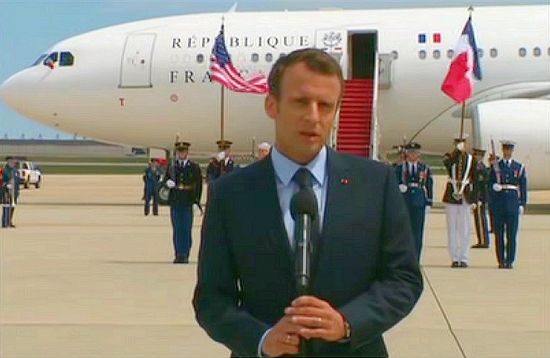
Both heads of state would have "a very special relationship" , a "very strong personal relationship". Emmanuel Macron us the "basin".
And the endless handshake in front of the cameras we remember of course.
For a year now, they have shown their friendship and put themselves on the stage.
Results are remembered almost more since Emmanuel Macron has done white cabbage.
But what do they have in common, they ask themselves, across the Atlantic?
Curious this way to appear as a duo while everything could separate them.
One is a colorful businessman while the other a pure product of the ENA passed by the bank Rotchild.
One is protectionist with its slogan "America first", the other speaks only globalization. Donald Trump likes in Melania the model younger than him, Emmanuel Macron with his two rings on the fingers likes in Brigitte a woman older than twenty-five years that  him. him.
But it's a fact: in Europe, it is Emmanuel Macron that Donald Trump addresses.
As a friend?
Do not be naive! In politics at this level we have no friends but interlocutors !
France, outside the Gaullist period, has always maintained ties of friendship with the States of America. Cooperation ?
It has always existed between the two powers and it was not until the bombardment of Syria - with dead, of course - that the Allies acted together.
Anti-terrorist cooperation has been active for a long time ...
And do not let's face it: Donald Trump does not listen to his French counterpart. He came out of the Paris agreement.
 He put his embassy in Jerusalem. He imposed tariffs on steel and aluminum ... He put his embassy in Jerusalem. He imposed tariffs on steel and aluminum ...
He did not fail to deny the same night the words that Emmanuel Macron himself had persuaded the US President to stay in Syria. False, the American soldiers will go home!
No wonder many US media are skeptical, doubting that the "good relationship" between the two heads of state translates into real political progress.
It is skepticism that prevails.
For the New Yorker, Bloomberg, the New York Times or CNN, Emmanuel Macron's efforts to seduce Donald Trump are part of Macron's strategy.
" Trump's seduction by Macron is a definite exercise. The question is not whether Trump and Macron are friends; it's to know why, and for what purpose, " writes the New Yorker.
And at the famous weekly to unfold the theory of "bromance" between the two heads of state.
This word-case, "bro" (frangin) and "romance" (idyll), refers to a strong but platonic friendship between two men.
The bromance theory of Trump and Macron is based on the fact that their alliance is personal and special.
From Trump's point of view, it can be by flattery according to the newspaper for whom Macron "built his career" by flattering
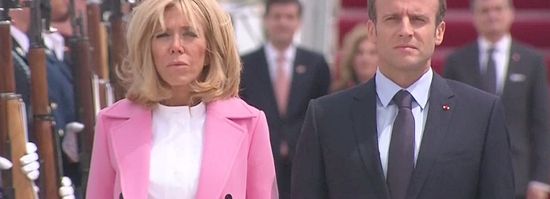
And compare the relationship of Emmanuel Macron and Donald Trump to that maintained by the former French minister with the president, Francois Hollande.
The New York Times makes the same comparison, and goes further:
" Mr. Macron has built a career by offering respectful and flattering attention to power figures older than him. Mr. Trump is only the last in the succession of these men, " writes the American daily while naming François Hollande and Jacques Attali as an example.
Worse the word of the end.
Jeremy Shapiro, research director at the European Council for International Relations, a think tank based in London, summarizes the visit of Emmanuel Macron in a pithy phrase:
" This tour will tell the story that the two men have a good relationship, but it may not make any real difference. A personal relationship is great, but Trump does not remember it once you leave the room, "he says, questioned by Bloomberg.
It is finished elective affinities!
|
|
|
|
|
|
|
|
| Garett Skyport for DayNewsWorld |
 |
REFORM OF JUSTICE
THE REFORM ALL-IN-ONE CONTESTED
|
| The text is presented as a "global" reform of the entire legal machine: Nicole Belloubet's ambition is to tackle the poor endemic of the slowness of the judicial machine and to unclog the institution ...
The main provisions of a gigantic bill presented by Nicole Belloubet Friday, April 20 was developed by the Chancellery at the end of the five yards of justice opened on October 5. Increase of the justice budget, registration of complaints online, generalization of the listening to all the offenses, the procedures, population of prison, ..., the text sweeps very broad and contrary to what announces Nicole Belloubet the litigant will be directly impacted.
Justice, not always well rendered, seems to be an ultra-sensitive area. 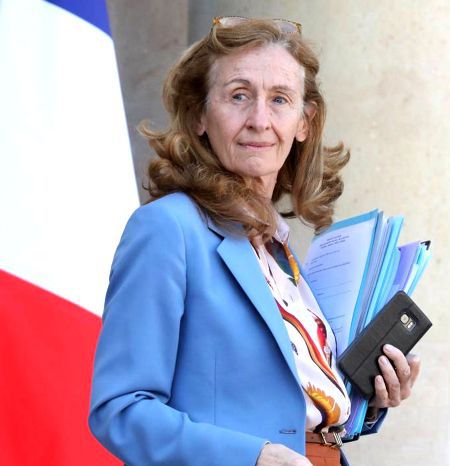 The justice budget will have to grow by 24% between 2017 and 2022, to 8.3 billion euros. The justice budget will have to grow by 24% between 2017 and 2022, to 8.3 billion euros.
Job vacancies will be filled, and 6,500 net job creations are scheduled. 7,000 prison places will be built as well as 20 closed educational centers for minors.
The main surprise after the passage of the text to the Council of State is the abandonment of the project of national prosecutor's office antiterrorist. While the State Council saw a "risk of isolation of magistrates" coupled with a "useless rigidity to adapt the workforce" at the mercy of the evolution of terrorism, "further reflection" is necessary c This is why the Paris prosecutor retains this national jurisdiction.
An overview of the measures in this text of 57 articles and some 80 pages.
It is organized around five major projects defined by the government: simplification of criminal and civil procedures, territorial organization, digitization, meaning and effectiveness of sentences.
Its scope is wide. The text concerns civil and criminal justice but also judicial procedure. Its entry into force would have concrete consequences for the litigants and the actors of the judicial world.
The goal, for the Prime Minister, is to "simplify" the steps: in the same city, the litigant will go to the TGI where it will be directed to the good service whether it is a dispute over a pension or a complaint of violence. But let's face it the merger is also a way to save money.
The merger of the district and high courts (TGI) is not without comment.
IT is a place of proximity justice, where civil cases are judged (over-indebtedness, unpaid rents, guardianship, etc.) for which the request is for amounts less than 10,000 euros. If the project plans to merge TI and TGI when they are in the same city, the same is not true for isolated IT will be "spare rooms". An experiment will be launched in two regions comprising several courts of appeal, allowing the grouping of certain civil disputes in the same court. The merger of these courts with the IMTs is the most contentious project of the justice reform. It will result, according to the Union of Magistrates (USM, majority) and the Union of Magistracy (SM), the suppression of the courts and the function of the magistrate. "The magistrate is recognized as being the judge of proximity, it is the judge of the one who does not have the means, neither intellectual, nor numerical, nor financial to seize a jurisdiction", advance Jérôme Gavaudan, which puts it has a "profound desire to change the judicial institution in its human nature".
Added the experimentation of a departmental criminal court.
Halfway between Assize Court and Criminal Court, he will judge crimes of up to 20 years imprisonment. Composed of magistrates only and no longer popular jurors about 57% of the cases currently judged at the assizes would be concerned.
On the criminal side, the project aims to develop the fixed fine for certain offenses, including the use of narcotics and will also favor the appearance on prior recognition of guilt.
Alternative dispute resolution methods such as conciliation, mediation and participatory procedure, for example, will become an obligatory step and then only seize a judge. Online mediation platforms will be certified. The stated intention is to favor the amicable settlement of the disputes to avoid the recourse to the judge as much as possible. The judge to enjoin the parties to meet a mediator for example. With the reform, a mediator can now be seized online, with companies private law, so pay. "They have neither ethics nor training," says Jérôme Gavauda
Litigation divorces will no longer have the prior conciliation hearing before the Family Court Judge. Consent to medically assisted procreation with donor will be collected by the notary and not by the judge, as the change of matrimonial regime.
Injunction proceedings will be dematerialized and centralized in one court.
Simplification of the criminal procedure
Victims will be able to file complaints online and the judicial police officers will no longer need to renew their clearance by changing their department. Police custody of twenty-four hours may be renewed once without presentation of the person to the prosecutor. But the special investigative techniques, such as sound and computer data capture, authorized for terrorism and organized crime, can be used for all crimes! The public prosecutor may ask the judge of freedoms and detention for telephone tapping, now limited to organized crime, for all offenses punishable by a sentence of three years or more .... Videoconferencing for a Remand hearing will be mandatory for the detainee.
The penal composition, which allows the prosecution to propose a sanction in exchange for the extinction of the prosecution, may be extended to all the offenses.
A new scale of penalties is introduced from the fine to the prison through mandatory internship, community service or home ownership under electronic bracelet. Prison sentences of less than one month are banned. From one to six months, the sentences will be carried out in an open environment or under an electronic bracelet. From six months to one year, they can be arranged by the judge of enforcement of sentences, but beyond (they are now suitable for up to two years).
The stay with probation is reinforced probationary suspension with individualized socio-educational monitoring. The release under duress will become the rule unless the judge decides otherwise, allowing the convicted person to serve the last third of his sentence outside the prison.
This project carried by the minister may be very controversial.
While it aims to simplify criminal and civil procedures while improving the effectiveness of sentences, it is also accused of undermining the rights of the defense and limit access to the judge, which can not be acceptable ...
Reform of justice: "In a democracy, it is up to the judge to settle a dispute" hammers Jerome Gavaudan,
According to him, she will remove the "justiciable of his judge".
"Many things are not going in this reform." Jerome Gavaudan, president of the conference of the bâtonniers and lawyer at the bar of Marseille, is very critical on the reform of justice,
Put the means in justice. For Jérôme Gavaudan, the urgency was not to legislate but to put means in justice. "There is no danger in the judiciary, but there is danger in putting the means," he says. "Do we want to maintain in a democracy like France access to the judge or do we want to save the judge from the motives of economy?", He wondered.
A reform challenged by many legal professionals, who denounce a text "detrimental to the rights of the defense," according to the beating of Paris, Marie-Aimee Peyron.
|
|
|
|
|
|
|
|
| Andrew Preston for DayNewsWorld |
 |
TOWARDS CONVERGENCE OF STRUGGLES ?
|
|

S NCF, Air France, civil servants, Ehpad, universities ...
While the days of sectorial actions multiplied, the CGT and Solidaires organized Thursday a national mobilization interprofessional. 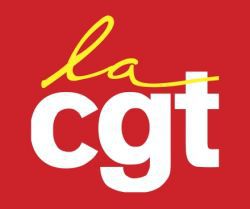
The stated goal: the formation of a united front against the government's policy.
Several events France and gathering of employees of the public and private, as well as students.
This time anger is felt in many sectors and the famous "social spring" hoped for by the unions could well take place to look at the numbers.
SNCF's two-day strike against rail reform continues as Thursday 19 April
in the transport sector, employees of RATP disengaged from Wednesday 22h until Saturday 7h and that the CGT and Unsa have filed a notice to participate in the day of mobilization.
These calls to strike by all the unions of civil servants have been unpublished for ten years.
With this call for mobilization, the unions CGT and Solidaires want to capitalize on the multiple protest movements to aggregate them.
In addition, anger goes beyond the strict framework of the world of work: universities (Tolbiac, Nanterre, Montpellier, Strasbourg) and Sciences Po also experience blockages.
Some in the context of a mobilization against the reform "Parcoursup", establishing the "selection" at the entrance to the university.
The others denouncing the lack of democracy in the way of governing Macron.
Emmanuel Macron refuted on Sunday any "coagulation" of "discontent" , but the strikers of April 19 intend to fight and wish a unitary movement "first May 1st.
But the unions do not agree on this for the moment. "The convergence of struggles is not the cup of tea of the CFDT.
For one simple reason: it never allows concrete results for the workers, " Laurent Berger, CFDT leader at the end of March, told Pascal Pavageau's arrival at the head of FO. give it.
Just 50 years after 1968 May !
|
|
|
|
|
|
|
|
| Britney Delsey for DayNewsWorld |
 |
THE CORDE OF THE FIRST OF CORDEE OFFERED
WITH MACRON WHICH DOES NOT APPRECIATE DECIDENTLY THE HUMOR
|
|
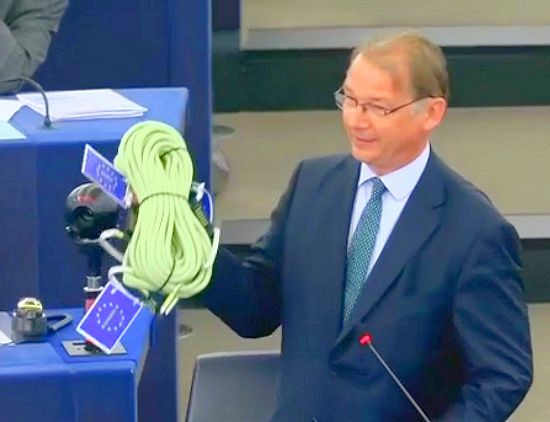
Belgian MEP Philippe Lamberts offered a rope to Emmanuel Macron on Tuesday 17 at the European Parliament in Strasbourg.
A "gift" to conclude an intervention on the precariousness of the workers who did not really like the President of the Republic.
"What defines the rope is the rope.
It allows the first to advance and the last not to fall.
But in our societies, this rope no longer exists.
The rich are getting richer, the middle classes are stagnating and precarious while the most fragile are abandoned to their fate. "
Philippe Lamberts, ecologist, then concluded his intervention by offering a green rope to Emmanuel Macron .
" You have a habit of giving your guests a symbolic gift, let me do the same . "
|
|
|
|
|
|
|
|
| Paul Emison for DayNewsWorld |
 |
THE PRESIDENT JUPITERIAN
FACE TO JEAN-PIERRE PERNAUD
|
|

Face to a Jean-Pierre Pernaut who has recognized human qualities, a kindness and expertise appreciated was held on Thursday on TF1 Emmanuel Macron sitting in a classroom Berd'huis, a small village in the Orne to explain that he will not quit his program.
The latter who wanted to fall from his sphere Jupiter could not find better to bring viewers of the TJ of thirteen hours to the specific audience, including seniors and rural people, that he heard "the concerns" , but also intended to continue " with the same force " reforms despite challenges.
On all the sensitive files he defended the decisions taken with arguments of a breathtaking simplicity whose principal is summed up in a motto:
"I ask you to trust me"!
"I'm not going too fast in my reforms. It's the world going at full speed.
France must adapt to this world in motion, " said Emmanuel Macron, he wants to get rid of the label of " president of the rich " that his opponents of right and left. Since the rich do not need a President The rich, like him, are the first to be roped.
The head of state has promised a boost on the incentive, all companies up to 250 employees can now distribute without charge or tax.
An exercise of style dull, cold, despite the thanks that the tenant of the Elysee has distributed to retirees he does not consider "portfolios" .
The first part of a media offensive followed by a second interview on Sunday evening of two hours with Jean-Jacques Bourdin and Edwy Plenel, on BFMTV, RMC and the Mediapart site.
|
|
|
|
|
|
|
|
| Kelly Donaldson for DayNewsWorld |
 |
GUARD IN VIEW OF JEAN-VINCENT PROLONGED PLACE
|
|
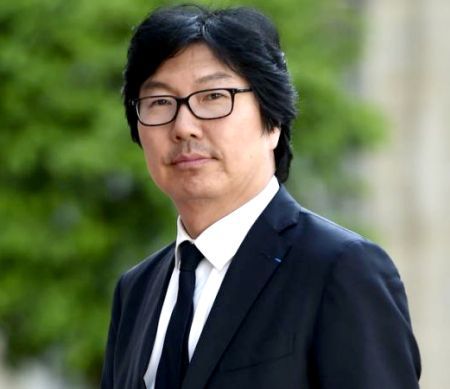
His custody was extended on Thursday night. A complaint for "contempt" was lodged by one of the police officers. The bouncer and the young woman could also file a complaint.
Jean-Vincent Placé was arrested drunk in the night of Wednesday to Thursday: the former Secretary of State in custody.is suspected of disturbing, drunk, women in a bar at Princesse Street, around 2 am and insulting police officers.
He verbally attacked a 20-year-old woman who refused to dance. After his refusal, he would have called "dirty whore who deserves that" .
Then he insulted the bouncer of the intervening establishment to calm the situation. "We are not in the Maghreb here" , or "I'm going to send you back to Africa, you'll see," he reportedly said to the vigil.
The latter signaled to BAC police who were passing by. Vincent Placé also insulted them, calling them "tocards".
"You do not know who I am," he would have repeated several times before many witnesses.
A blood alcohol level of 2.32 g
The custody was held for "contempt of any person depositary of public authority, racial insult and violence without disability committed under the influence of drunkenness" .
At the time of the facts, Jean-Vincent Placé was accompanied by Loïc Hervé, Senator of Haute-Savoie .
|
|
|
|
|
|
|
|
| Boby Dean for DayNewsWorld |
 |
HOW ARE WE ARRIVED IN THIS ISLAMIST GANGRENE IN EUROPE ?
|
| Let us put the problem of immigration in its historical and political context , in order to better understand the underside of the maps.
Information needed further! Yes ! Because the worst is perhaps still to come !! And will it be necessary to understand what is happening and why?
This ultra-confrontational subject, in fact risks to fly, in terms, in shine the EU ... if things are not taken in hand ... in transparency ..
The situation thus briefly summarized and the setting planted, we will make some historical reminders indispensable.
It was in 1973/1974 that, for the first time, in the aftermath of the 39/45 War, the migration policy of Europe was sketched out.
We must go back to 1974, the year of the founding of the Association of Parliamentarians for Euro-Arab Cooperation (APCEA) to touch the beginnings of this story that has lasted for almost 50 years.
At that time Europe, which was not yet called EU, had only 9 countries, including Great Britain. Remember, it was the Europe of 9 !!!
 The initial objective of this association (of European level) was defined on 7 and 8 June 1975, unanimously in STRASBOURG, in a political resolution which "asked the European governments to take the initiative of steps which would help to ensure the withdrawal of ISRAEL FROM ALL OCCUPIED TERRITORIES IN 1967. " The initial objective of this association (of European level) was defined on 7 and 8 June 1975, unanimously in STRASBOURG, in a political resolution which "asked the European governments to take the initiative of steps which would help to ensure the withdrawal of ISRAEL FROM ALL OCCUPIED TERRITORIES IN 1967. "
The background of this political resolution was accompanied by a request for help in the development and understanding of the Arab cause , in a context described as having never been so favorable to the cause (sic). .
In short, the Israeli-Palestinian conflict was immediately involved in the settlement of a conflict that has been going on since 1945 in this troubled Middle East.
An economic component follows the said Strasbourg resolution, which calls for the need (and usefulness ) for the establishment of close economic cooperation between Europe and the Arab world.
The first step in this economic cooperation was the concrete objective of providing support for the recycling of petrodollars, after OPEC decided to quadruple the price of oil (remember, this is the beginning of the crisis of oil)....
To complete the whole, the same resolution added a cultural component calling for the recognition of the historical contribution of Arab culture to European development (?) While completing the text with a critique of the situation of the time which, in the eyes of the signatories provided only limited space for the teaching of the Arabic language and Arab culture. (We saw a few years later how Najat Vallaud BelKacem sought to implement this principle definitively!)
In its conclusion, the Strasbourg Resolution expressed the wish that the European governments facilitate the demand of the Arab countries, by creating ample means for the reception of migrant workers and their families .... as well as the development of their cultural life and religious inspired by Arabic texts and Arabic architecture ..
From year to year, the foundations of this Strasbourg Resolution (ignored by a very large number of European citizens) have been deepened regularly, until the Protocols of Barcelona, signed in 1975 and where Europe has definitively switched to the camp. Arabic allowing some to say that "Europe had just been ceded to the Arab world .." But that was only the beginning ...
- Because, under the pressure of ISECO (Islamic Organization for Education, Science and Culture), an avatar of more Muslim brothers , whose headquarters are in Rabat, installed in a luxury hotel and otherwise called in French : Islamic Organization for Education, Science and Culture, the phenomenon of "colonization" of Europe (setlment in English) has continued to deepen, to the detriment of Europeans of origin.
- For, under the pressure of the OIC (Organization of Islamic Cooperation established in March 1972 in Jeddah) which is the largest intergovernmental organization at the United Nations (UN) and which includes 57 countries, all aimed at the consolidation of Islamic solidarity, the safeguarding of the Holy Places and an unwavering support for the Palestinian people, the arrival of migrants from North Africa or the Middle East, "Islamization" has continued to grow.
- Because the DOHA resolution (Qatar) taken at the conclusion of the 9 th Islamic Summit Conference held between 12 and 14 November 2000 , in Doha precisely, only confirmed once again that.
All these protocols and resolutions have thus progressively enabled the establishment of well-prepared Islamic communities, chosen to migrate to a European country and settle there as conquered countries, by refusing to submit to the principles of integration required. before. The phenomenon has only escalated ..... In response to a rejection from the indigenous populations.
For nearly 40 years, with the active support of the various French governments (both right and left) or European personalities such as Stefaan de Clerkc, son of Albert de Clerkc, both members of the Christian Democrats and Flemish, CD & V , well introduced and very influential in the European institutions, all the facilities were given to this migratory approach prepared for a long time and in detail.
We have just demonstrated that the agreement and the compromise were so strong that all the so-called wild immigration that we have seen for more than 20 years is in fact only the result of a particularly effective collaboration with the organizations Islamic ones set out above.
"The EU must accept one million asylum seekers (and migrants per year)."
"EU must give € 15,000 to each migrant for the first two years of their stay"
"The EU must finance Lebanon, Jordan and Turkey up to € 5,000 per refugee".
"The EU must finance secure roads and well-designed corridors to safely transport migrants from Greece and Italy to their final destination"
Consciousness and eyes begin to open. But do not forget, and this is what I wanted to show you, that this process was initiated in the 1970s, in all discretion, without the citizens being consulted.
This process was opened by the Strasbourg Declaration of 1974, this at the request of 200 persons under suspicion ... but hyperpuissant ...
|
|
|
|
|
| Clara Mitchell for DayNewsWorld |
 |
SARKOZY CASE AND THE APPEAL FOR JUDICIAL REVIEW
|
|
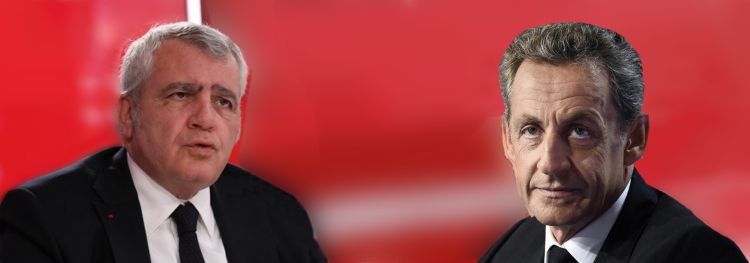
Nicolas Sarkozy's lawyer will appeal the judicial control imposed on the former president, indicted on Wednesday in the investigation into the suspicion of Libyan financing of his successful campaign of 2007, announced Friday Thierry Herzog on RTL
The former President of the Republic, indicted for "passive bribery", "illegal financing of electoral campaign" and "concealment of Libyan public funds" did not appreciate neither his unacceptable custody, nor his indictment with judicial review on Wednesday.
Its placing under judicial control includes several prohibitions:
ban not only to visit four countries (Libya, Tunisia, South Africa and Egypt) but also to contact nine people of the file including his friends Brice Hortefeux, Claude Gueant and Bernard Squarcini.
For a "question of principle", the former President of the Republic will challenge this judicial control.
He promised to "win (his) honor" victim that he is the "ignominy" of the "Gaddafi gang" and Mediapart, which had published in 2012 a Libyan document accrediting funding of about 50 million euros.
|
|
|
|
|
|
|
|
| Paul Emison for DayNewsWorld |
 |
GUARD IN VIEW OF NICOLAS SARKOZY
|
|
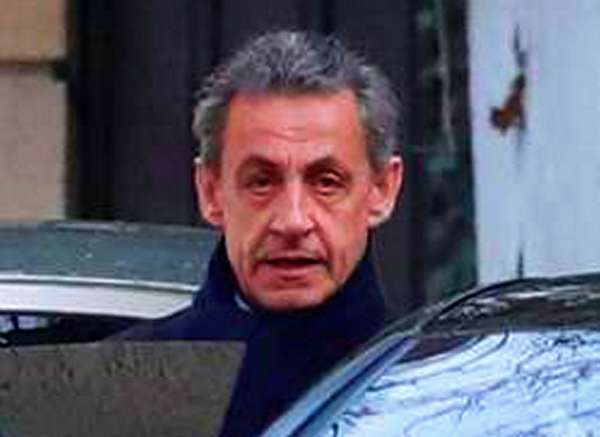
Placed Tuesday morning in custody in the premises of OCLCIFF, the anti-corruption office in Nanterre, Nicolas Sarkozy spent the night at home. His audition resumed Wednesday morning at 8 o'clock.
The former president is questioned in connection with the investigation into suspicions of Libyan financing of his campaign of 2007.
Could justice not hear the former President of the Republic in free auditor as it did for Brice Hortefeux.
There are countless investigations opened by justice against Nicolas Sarkozy that resulted in non-places ....
|
|
|
|
|
|
|
|
| Alyson Braxton for DayNewsWorld |
 |
ONCE AGAIN NICOLAS SARKOSY ON THE BOARD
|
| This morning, Nicolas Sarkozy was placed in custody in Nanterre (Hauts-de-Seine), as part of the case of alleged Libyan financing of his 2007 presidential campaign.
This is the first time that the former head of state is heard in this investigation.
Police custody in the premises of the Anti-corruption Office of the Judicial Police which can last up to 48 hours. Former Minister of the Interior Brice Hortefeux is also heard, but under the status of free hearing.
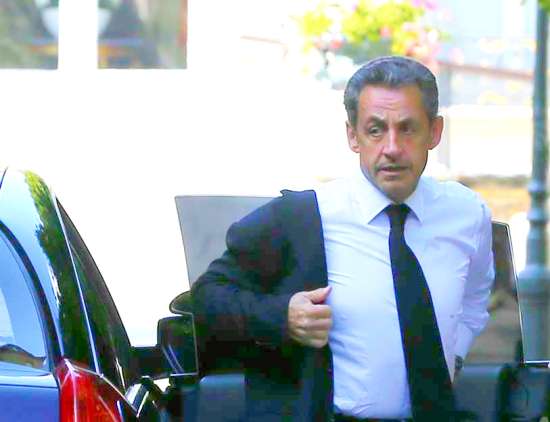 The judges have been investigating since April 2013 financial flows involving protagonists linked to the regime of Gaddafi, considered the pivot of terrorism, through the French-Lebanese businessman Ziad Takieddine. The judges have been investigating since April 2013 financial flows involving protagonists linked to the regime of Gaddafi, considered the pivot of terrorism, through the French-Lebanese businessman Ziad Takieddine.
The detention in custody of Nicolas Sarkozy this Tuesday follows the latest hearings by the French justice of several Libyan dignitaries, including Abdallah Senoussi (brother-in-law of Gaddafi).
Abdallah Senoussi said, during a hearing in the context of the International Criminal Court, "personally supervised" the transfer of five million euros "for the campaign of President Nicolas Sarkozy in 2006-2007", by Takieddine's intermediary.
"As for the support given to Western personalities to enable them to gain power, the sum of 5 million euros was paid for the campaign of French President Nicolas Sarkozy in 2006-2007. I personally supervised the transfer of this sum via a French intermediary, in the person of the chief of staff of the Minister of the Interior. Sarkozy was then minister of the interior. (...) I confirm that this sum has been received by Sarkozy, " he said on September 20, 2012.
Ziad Takieddine was indicted on December 7, 2016 for "complicity in bribery and trading in assets and liabilities." He had confirmed remittances of cash from Libya, made according to him at the request of Abdallah Senoussi, the former boss of Libyan intelligence, to " pay fees for training [...] Libyan agents" . According to him, he handed over several suitcases containing cash for a total amount of 5 million euros. During a trip in 2006 he explained that he had handed a suitcase of 1.5 million euros to Claude Gueant at the Ministry of the Interior. About ten days later, he handed him a suitcase containing 2 million euros. A third trip would have been organized in January 2007.
The books of former Libyan oil minister Choukri Ghanem, who died in 2012, were recovered by the French courts and also mention the existence of payments to Nicolas Sarkozy.
Bechir Saleh, the former grand financier of Gaddafi and a man of relations with France, recently wounded by gunfire during an attack in Johannesburg, had also told Le Monde: "Gaddafi said he had financed Sarkozy. Sarkozy said he had not been funded. I believe more Gaddafi than Sarkozy. "
Another key figure in the case, the Franco-Algerian businessman Alexandre Djouhri, a friend of Dominique de Villepin and Claude Gueant, was again detained on Monday, February 26. The judges of instruction of the financial pole of Paris wonder in particular on the resale at the price of a villa belonging to him in Mougins (Alpes-Maritimes) to the Libyan fund directed by Béchir Saleh.
A search carried out in Switzerland at the home of Alexandre Djouhri, allowed the investigators to seize documents. Some of them show the "business" links between Djouhri and Claude Gueant, indicted in the case for "laundering tax fraud".
The former head of the French state (2007-2012), candidate for a new presidential term in 2017, has always firmly denied these accusations. The right calls for respect for the presumption of innocence.
|
|
|
|
|
|
|
|
| Alyson Braxton for DayNewsWorld |
 |
WHEN THE WEATHER AND HOLIDAYS OF FEBRUARY UPHOLD ANNE HIDALGO'S "BLARNEY" IN AUTOMOTIVE POLLUTION
|
|
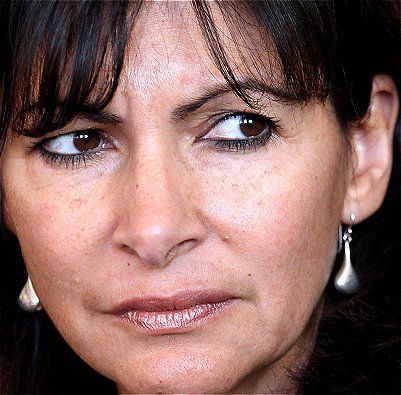
There was a peak of pollution detected in Paris and the Paris region on February 7, 2018. Detection scientifically made !

 Anne Hidalgo could have, as usual, convened the press and once again develop its certainties about the origin of this one: Anne Hidalgo could have, as usual, convened the press and once again develop its certainties about the origin of this one:
the car and the diesel, the usual culprits!
Well no !
We did not hear it!
And for good reason !
On 6 February 2018, Paris and its surroundings were drowned in the snow, a snow that blocked all transport and motorists in particular, forcing them to leave their cars in the garage or in the parking lot leaves to return to their home on foot if they were not too far away. 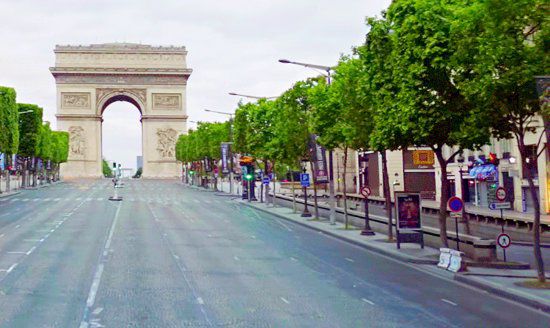
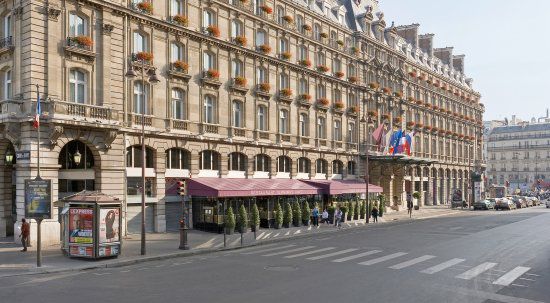 In some cases, halls, gymnasiums or public meeting rooms have been opened for their accommodation, warm with snacks in support. In some cases, halls, gymnasiums or public meeting rooms have been opened for their accommodation, warm with snacks in support.
There was a second peak of pollution on Paris and its region on 21 and 22 February 2018, a period when many Parisians had left the capital to go on holiday and join the snowy mountainous sites.
Results of this migration of Parisians:
less important intra and extra muros traffic, fewer deliveries, closing schools and removing school buses or parental trips to accompany children to school.
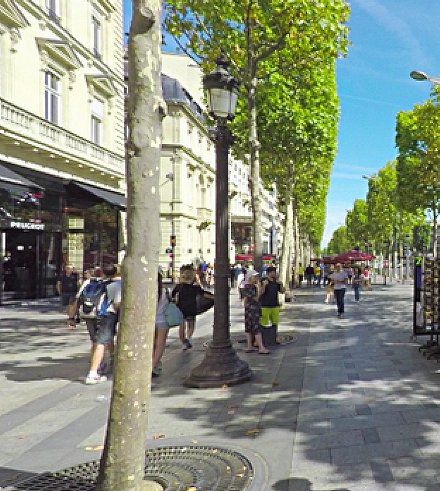
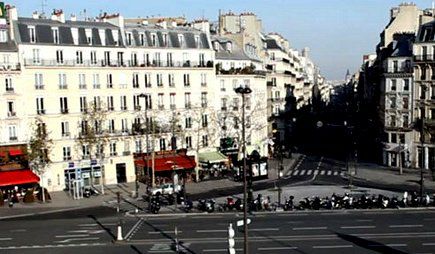
Find the mistake !
This has been done by a number of observers, engineers and even activists who have sought to explain these surprising pollution peaks.
Careful study done, on these two events the pollution came from a huge toxic cloud coming from the Eastern Countries (Germany, Poland, Hungary, .. etc ........)
or the thermal power stations were working at full regime to ensure the production of electricity necessary for the proper functioning of the economy and heating !!
And in terms of pollution Paris and its region were served, because it came from the burning of coal, coal and even more lignite ...
It's the European maps and their weather studies that revealed the problem!
The nonsense storytellers of the Hidalgo clan remained very discreet about these incidents. They will nevertheless have to review their copy and make sure that the misinformation that they make reign on the real and exact causes of pollution in Paris ceases as soon as possible. Parisians expect more transparency on the subject of pollution.
The re-information made of evidence and truth is the prerogative of a serious and conscientious press and journalists.
|
|
|
|
|
|
|
|
| Clara Mitchell for DayNewsWorld |
 |
DOUG FORD HEAD OF CONSERVATIVE PARTY
IN THE PROVINCE OF ONTARIO
|
|
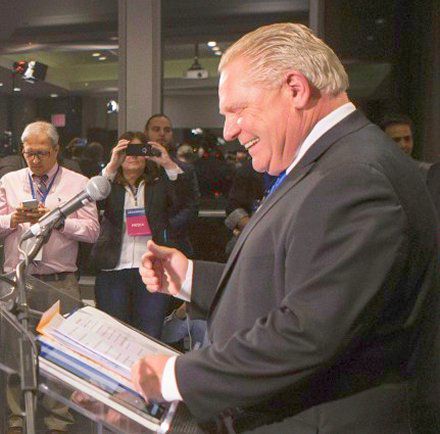
Conservative leader Doug Ford is in the lead and would be the best prime minister for 24% of the electorate.
The latter would be followed by far by the NDP leader Andrea Horwath at only 15%, as for the Liberal Prime Minister Kathleen Wynne, she would be only third at 13%.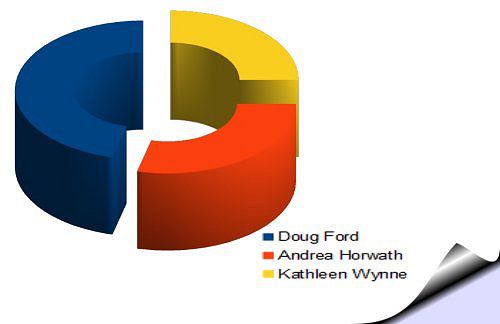
Progressive Conservatives dominate Ontario and Doug Ford is seen as the best premier for the province.
The Progressive Conservative Party gets 42% of the vote, compared to 26% for the Liberal Party and 24% for the New Democratic Party.
Let's hope that the June elections should confirm these figures in the ballot box, Ontario, but also all of Canada's eyes on the situation .
|
|
|
|
|
|
| |
|
| Steven Colton for DayNewsWorld |
 |
THE SIXTEENTH CONGRESS OF THE NATIONAL FRONT IN LILLE.
|
|
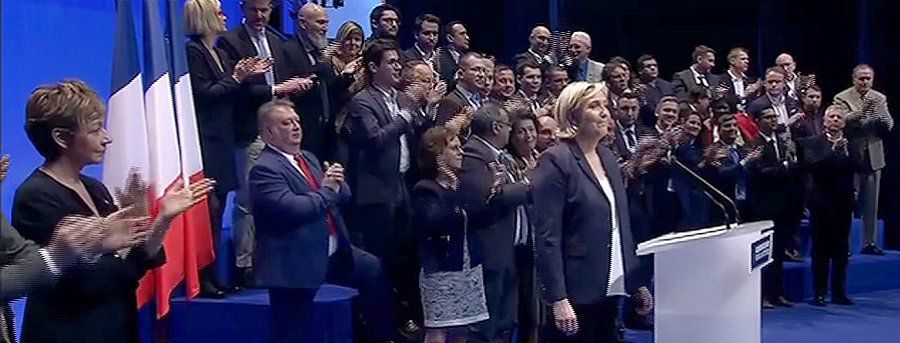
Lille, the capital of Hauts-de-France hosts the Sixteenth Congress of the National Front, the last under this name since Marine Le Pen has just given it a new name, to symbolize the character "government party" she wants to print to his training.
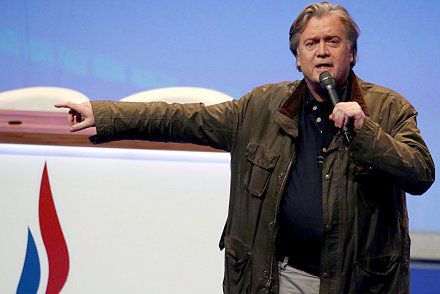 Steve Bannon was welcomed on Saturday, March 10 with American star. Steve Bannon was welcomed on Saturday, March 10 with American star.
A surprise guest at the XVIth Congress, Donald Trump's former strategic advisor made his show for about forty minutes, applauded by the delegates. 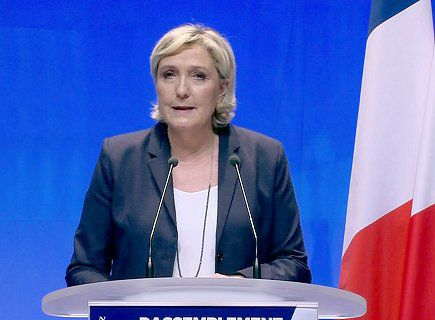
The former host of the right-wing US site Breibart, did not fail to decline his conspiracy creed: GAFAM (Google, Amazon, Facebook, Apple, Microsoft) interpenetrating with central banks and governments would destroy the purchasing power of the workers and the middle class.
He also traced Trump's election campaign, which he said was the victim of systematic smear campaigns: "You are fighting for your country and you are being labeled a racist. That kind of disgusting talk is over! " He exclaimed after greeting Marine Le Pen and the National Front, as well as the Italian League, the nationalist parties in Poland and Hungary.
 Marine Le Pen, the only candidate for her succession, was re-elected without surprise President of the National Front Marine Le Pen, the only candidate for her succession, was re-elected without surprise President of the National Front
, with 100% of the votes cast, after a postal vote. The results were proclaimed Sunday at the party congress in Lille.
The member for Pas-de-Calais begins a third term as head of the party she has led since she took over from her father in 2011.
The party has new statutes removing the function of honorary president, occupied since 2011 by the co-founder of the party Jean-Marie Le Pen. 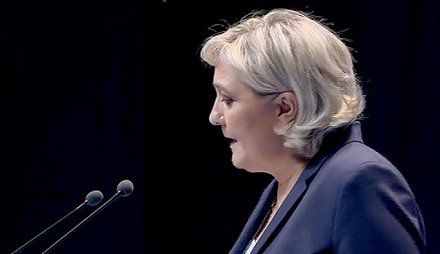
But internal quarrels, clashes at the top of the Front and the disappointing performance of Marine Le Pen against Emmanuel Macron between the two rounds of the presidential election last year have undermined a party that was on the rise.
In this face-to-face Marine Le Pen seems to have lost its legitimacy as a presidential candidate and reached the glass ceiling.
She struggles to raise her party after her failure in the presidential election and about which she admits "a hole of air" . Moreover, the proof of this is the number of members of his party who went from 100,000 in October 2017 (according to Marine Le Pen) to 81,000 in November (according to FN management), then to 51,487 in December (same source ). Moreover, since 2014, 25% of municipal councilors elected on an FN list have resigned from this training.
The hope of the frontistes: Marion-Maréchal Le Pen
The niece of Marine Le Pen is the great absent. The former MP from Vaucluse officially withdrew from politics to focus more on her daughter and move into the world of business. But how much is present in the conversations. Never absent will have been so present. At the Congress of the National Front, this weekend, in Lille, Marion Maréchal-Le Pen was in everyone's head. Temporarily removed from politics since last spring, the youngest of the Le Pen clan has nurtured many exchanges between activists. On February 22, Marion Maréchal-Le Pen caused a sensation by participating in the great congress of American conservatives, the CPAC, and by launching Trump's slogan "France first" .
Besides, to look at it is the political line defended by 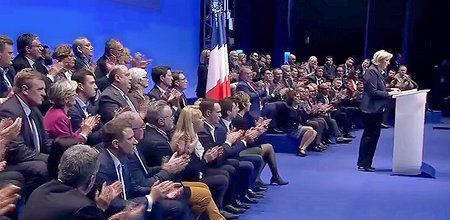 r the youngest Le Pen who was validated this weekend in Lille: economic issues have been pushed back, the time is back to fundamentals that are the fight against immigration, Islamism, "borders colanders "or" mondiaslism ". r the youngest Le Pen who was validated this weekend in Lille: economic issues have been pushed back, the time is back to fundamentals that are the fight against immigration, Islamism, "borders colanders "or" mondiaslism ".
Marion Maréchal-Le Pen's whole strategy shows that she intelligently prepares for her return to the political arena but for later weaving her canvas. The niece Marine Le Pen has just launched a "science-political academy" to detect and train future leaders of the French rights.
Marion Marshal-Le Pen also intervenes in "free forums" , notably at Valeurs Actuelles , has at his disposal discreet networks influential within the French radical right as those of the group Audace bringing together entrepreneurs close to the National Front as well as by the monthly L'Incorrect , a bridge between the Republicans and the National Front.
The political line of the niece of Marine Le Pen is shared by a large number of local and national leaders of the FN: liberalism on the economic level and conservatism in terms of morals. Marion Maréchal Le Pen also defends the rights not hiding his desire to unite with the other formations of the radical right, even with the party Republicans led by Laurent Wauquiez.
And 83% of FN voters say they want his return, according to a recent survey FIFG. What MP Gilbert Collard had abruptly summarized before the congress: "If Marine, for a reason that is so far unknown, decided not to continue, we have in reserve Marion.
In the next presidential election, she will be only 32 years old. Perhaps the relief of his aunt ...
|
|
|
|
|
|
|
| Alize Marion for DayNewsWorld |
 |
CRIMINAL REFINEMENT
ANNOUNCED BY EMMANUEL MACRON
|
| S urpopulation, overflows, wear guards ... The French prison system is in the grip of many damages. The year 2018 began with a generalized snort of prison supervisors who confirmed the need to intervene quickly.
Nearly a month and a half after the huge supervisors' strike, the president announced on Tuesday a "criminal overhaul" in order to make the prison more efficient by promoting alternative measures to short-term detentions and tightening conditions. adjustment of longer sentences.
The Head of State therefore wants a criminal justice system that abandons the prison preference for other "options" such as the electronic bracelet or the work of general interest, partly inspired by the countries of northern Europe and also intended to fight against prison overcrowding. With an occupancy rate of 200% in the Paris region and 120% at the national level, France is one of the worst students in Europe. As of January 1, 2018, 68,974 detainees were crammed into 59,765 places.
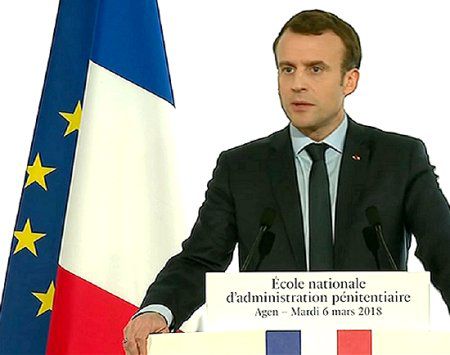 The measures mentioned by Emmanuel Macron are as follows: The measures mentioned by Emmanuel Macron are as follows:
1 ° The end of the "automaticity" of incarceration for prison sentences of less than one year.
Also "sentences of less than a month will be outlawed," said the head of state. It will no longer be possible for judges to incarcerate a prisoner with sentences of less than one month. "It's the small sentences that are the least effective," the President justified.
Certain offenses (road, drug use) will be fixed by fines or other sanctions. The electronic bracelet will be used more often at home and community service will be honored by working with businesses, communities and the state.
2 ° Short sentences executed outside prison.
Emmanuel Macron said that sentences between one and six months could be executed outside prisons.A way to fight against prison overcrowding ... To do this 1500 positions of counselors insertion and probation will be created. Currently the number of these advisers is 4 000 for 250 000 people followed in detention or in an open environment.
3 ° The end of the adjustments of sentences beyond one year.
For all sentences of more than six months "there will be more automatic development , " said the Head of State. "Beyond a sentence of more than one year, there will be no more adjustment of the sentence". Today the adjustments of sentences can be discussed with the judge of application of the sentences whatever the duration of the sentence.
4 ° The introduction of the unique personality file
"I wish [the introduction] of the unique personality file , " said the president. A document that already exists for minors. It allows to determine with precision the personality elements of the defendants before their judgment. "This will allow a better decision to avoid unnecessary prison sentences , " the president noted.
5 ° Voting rights granted to prisoners.
"We tried to explain why the detainees did not have the right to vote, I still have not understood," said the president who announced his willingness to grant the right to vote for prisoners . "An inmate is an individual simply deprived of his liberty, but not of his other rights," explained Emmanuel Macron.
6 ° The creation of 7000 new prison places.
During his five-year term, 7000 new prison places will be created instead of the 15.000 previously announced and the existing establishments will undergo renovations
Measures that, for Emmanuel Macron, should allow the fight against prison overcrowding, while respecting the "dignity" of prisoners and allowing their "reintegration".
|
|
|
|
|
|
|
|
| Alize Marion for DayNewsWorld |
 |
SEXUAL CONSENT FIXED AT 15 YEARS
BY THE GOVERNMENT
|
|

As the most sensitive issue since recent court decisions that have been debated, setting an age below which a minor could not be considered a willing adopter is one of the measures in the draft law against sexual and gender-based violence, which will be presented on March 21st in the Council of Ministers
For several weeks, the debate had been about a threshold of 13 or 15 years. The government has decided.
Marlene Schiappa, Secretary of State for Equality between Women and Men, said early Monday that the government decided to keep the age of 15 as a threshold below which one can not agree to a sexual relationship.
"After the citizens' consultations in the framework of the Tour de France of Equality and the conclusions of the expert report handed to Matignon, the government has decided to retain the age of 15 , " said the Secretary of State Equality between women and men.
Seven experts, commissioned in February by the government, to look into the subject and gave Monday their opinion to Matignon by opting to set at 15 years the minimum age of consent to sex.
They advocate introducing into law two new offenses of rape and sexual assault on minors under 15 years of age.
According to these lawyers, legal practitioners, doctors or childcare professionals, this age "does not seem excessive in the double imperative of strengthening the protection of minors from sexual offenses and clearly prohibiting sexual abuse. on a minor of 15 years by a major, " they write in their opinion given to Prime Minister Edouard Philippe.
The modalities of introducing this age limit into the penal code have not yet been specified. Marlène Schiappa was " happy" Monday that the age of 15 years, long sought by the associations that fight against violence against children, won.
|
|
|
|
|
|
|
|
| Jenny Chase for DayNewsWorld |
 |
END OF REGNE FOR ANNE HIDALGO
|
|
We have just learned that some would have given the nickname "Torquemadette" to Anne Hidalgo!
Not very bad or sign that a hallali is getting ready?
To take a closer look at what happened on Friday night,
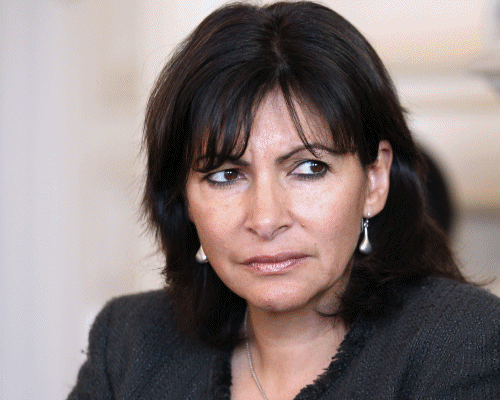 March 2, 2018 at the Salle Pleyel during the ceremony of the Caesars, we are forced to note that nothing goes for the Parisian Mayor, elected mayor in 2014. The Mayor of Paris has not received a warm welcome at the 43rd ceremony of the Caesars, broadcast on Canal +. March 2, 2018 at the Salle Pleyel during the ceremony of the Caesars, we are forced to note that nothing goes for the Parisian Mayor, elected mayor in 2014. The Mayor of Paris has not received a warm welcome at the 43rd ceremony of the Caesars, broadcast on Canal +.
The images show it twice: it was first whistled and booed by a part of the public, at the moment when Manu Payet delivered his opening speech, then tacked a little later in the evening when The latter recalled that in Paris "heavy legs and ants in the feet necessarily raised in Paris a traffic problem."
A traffic problem?
Yes !
But that the ways on banks that Anne Hidalgo, she said, does not intend to give back to motorists despite the cancellation of the deliberation of September 26, 2016 (and the decree of October 18 taken on its basis) by the Administrative Tribunal of Paris (decision published on February 28, 2018). The decision of the Administrative Court of Paris was a snub for Anne Hidalgo.
The Administrative Court has indeed considered "that the public could not appreciate the pedestrianization of the roads on banks in terms of its importance and its stakes", judging by implication, that the procedure initiated by the City of Paris was irregular.
On the basis of this unfavorable decision, still unfulfilled for some, the censors of the Mayor of Paris have again manifested themselves. And the topics of discontent are many!
On the closing of the traffic of the George Pompidou way, of the entrance of the Tuileries Tunnel and the creation of a public walk to their site: the critics are distributed of more beautiful, with the example of that emitted by this Parisian who believes that the decision of Anne Hidalgo is a huge mistake because the river corridors (the Seine in this case) are thermal drains that evacuate pollution (like the Rhone corridor) almost instantaneously, while the fact of closing the traffic on the center of Paris, confines this one inside the capital because of the verticality of the buildings!
On the same subject, others rage against the primary activism of the elected, "his fuel" favorite that leads them according to them, to tamper with the figures or interpret them in his favor. By mirroring the figures of the 5% drop in traffic with the 30% decrease in pollution announced by the services of the capital, it seems indeed possible to think that the pollution of Paris would not be solely due to the automotive and diesel hated, in particular.
And all the subjects who anger or exasperate pass there:
Hazardous and costly municipal management, like the Velib, a failure that gave the mayor cold sweats, because of vandalism that broke a record (thousands of gray biclous have been stolen or broken since their commissioning). ).
But also the colossal debt of the capital: the debt that continues to skid should reach 18 billion euros by the end of 2018. The Regional Chamber of Accounts recently lambasted management of the city, a management that impoverishes.
But also the project announced recently increase of 250% of the Housing Tax on second homes, to plug the holes naturally, decision will succeed the creation of new taxes all-round.
But also the presence of more and more migrants (between 300 and 500) and who squat the sidewalks where the charities come to ensure the distribution of meals (whose reliefs attract rats) to the chagrin of residents who start to s' to organize in defense committee. Opponents of the Mayor of Paris note that these migrants give a deplorable image of the city of Lights to tourists.
But also the rats that have proliferated because of the blatant dirt that reigns in the streets and that the recent floods have made out of their holes.
But also sectarianism and clientelism that reigns almost universally and that have impacted the city's relations with some of their users or partners, such as the Ferris wheel or the case of Michel Déon's burial
Anne Hidalgo has lost many supporters since the last municipal elections. Those who are still present seem to be divided in favor of this or that file.
A recent poll has just shown that it had collapsed in the latest rankings of opinion: It has more than 32% of supporters left on Paris and only 18% on the whole of France (Barometer Elabe / Les Echos)
Worse, she has recently become the target of comedian Nicolas Canteloup, who in a devastating recording summed up his main setbacks by having her answer as follows, to the most significant critics who concern her: "I made the decision to verbalize the rats who stay too long in the city of Paris ".
In one sentence everything is said or almost!
The battle of Paris seems obviously, already engaged.
|
|
|
|
|
|
|
|
| Clara Mitchell for DayNewsWorld |
 |
THE CASE OF GERALD DARMANIN "THE RETURN"
|
|
We learned on March 1, 2018, during the morning interview with Jean Pierre Elkabbach, that Gerald Darmanin, the Minister of Action and Public Accounts would file a criminal complaint for slanderous denunciation this Friday, March 2, against a second complainant whose name has not been revealed, who also accuses the minister of abuse of weakness, abuse of power and rape "by surprise".
The Minister "right in his boots" visibly feels entitled to undertake these prosecutions, the Paris prosecutor having filed the first complaint, filed by Sophie Patz, February 16, 2018, for identical facts.
On the advice of his lawyer, who said that his client would go to the end, Sophie Patz has resubmitted January 22, 2018 a second complaint with civil party.
A little reminder about news, which for some time has agitated the entire Parisian microcosm that has just discovered or rediscovered the "unfortunate" practices of Emmanuel Macron's minister!
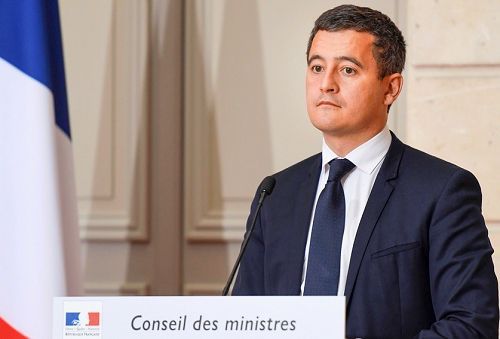 Indeed, Saturday, February 3, 2018, while he hosted Gerard Junot and Isabelle Margot in his show "Hello Terrians" Thierry Ardisson split an allusive tirade evoking the penchant of Gérald Darmanin for swapping that he would practice to practice in the famous club "Les Chandelles", the most posh club in the capital that once frequented Dominique Strauss Khann. Indeed, Saturday, February 3, 2018, while he hosted Gerard Junot and Isabelle Margot in his show "Hello Terrians" Thierry Ardisson split an allusive tirade evoking the penchant of Gérald Darmanin for swapping that he would practice to practice in the famous club "Les Chandelles", the most posh club in the capital that once frequented Dominique Strauss Khann.
It would indeed be in this club that the misadventure of Sophie Patz would have started in 2009.
Gérald Darmanin was at that time in charge of the UMP, after having been the parliamentary assistant of Jacques Toubon, then a close collaborator of Christian Vaneste of which he becomes the Campaign Director during the legislative elections of 2007, then In the national elections, he was from that time advisor to the legal affairs within the UMP, Xavier Bertrand being then general secretary of the party.
His rapprochement with Christian Vaneste (convicted of homosexual remarks) would have, according to the academic Anne Sophie Petitfils, closer to "the gray zone located on the edge of the Right and Far Right, leading him" to adopt positions traditional Catholics tinged with fundamentalism " and to collaborate with the monthly " Politique Magazine " , a press organ inspired by Charles Maurras related to the French Action and National Restoration movements. Gerald Darmanin would even have a time, at that time, was very close to the Royalist Movements.
At the same time, and always alongside Christian Vanesse who elected him municipal councilor of Tourcoing in 2008, Gerald Darmanin "would have implemented a form of neo-clientelism consisting of offering divisible goods (?) And to propose personal interventions to the electors of the 10th North District. "
No wonder then that Sophie Paz, who is now 46 years old, has asked the support of the future minister, to obtain his rehabilitation, following a criminal conviction dated October 15, 2003, sentence pronounced for having harassed his ex-companion from whom she wanted to recover the money he stole from him. A dark affair, which Sophie Patz's former call-girl profession (then called Olga Patterson before being married) had not allowed to temper, despite her protests; a conviction which she wished in any case to be cleared in 2009, thanks to the services of the specialist of the political intervention, that was already, Gérald Darmanin.
The facts denounced by Sophie Patz are apparently the result of the qualification "of rape, by consent acquired by surprise" and in exchange for services. In terms of services, there were none, so much so that the young woman was obliged, at the end of November 2009, to denounce the practices of the Nordic elected to Jean François Cope, who in response urged him to take legal action against the northern elect.
We understand better why among the UMP / Republicans, many seem to know the story of Sophie Patz and the inconvenient practices of Gerald Darmanin!
We also better understand why Gérald Darmanin's anti-Wauquiez counterattack, which only seems to be explained by the political proximity of Laurence Saillet, with Xavier Bertrand, member of the 2nd Aisne constituency since 2002, then a member of the government Raffarin III and Villepin and his new functions as spokespersons of the Republicans. In fact, everyone knows each other! and everyone knows the little secrets (or scandals) of others!
Sophie Patz has been fighting for a long time, alone, most certainly. And Gérald Darmanin, who has been trying to quell this dirty affair for as long as he has probably thought he could achieve his ends by joining the ranks of the Macronists (and their support) who have since May 2017 all the powers. So it does not matter betrayals and ideological differences!
We understand better why, too happy with the unexpected rallying of the one who called the Minister of Sports, Valerie Fourneyron to ban the wearing of the veil, and who was also chief of staff of David Douillet, Prime Minister Edouard Philippe renewed "all his confidence " to Gerald Darmanin recently.
But, it was without counting without this new complaint for abuse of weakness, February 13, 2018, against the minister of a resident of Tourcoing, city whose Gerald Darmanin was the mayor. This second complainant, Sarah, was called because she wished for the moment to remain anonymous. Having seen that a woman had lodged a complaint against Gérald Darmanin for acts of rape and abuse of weakness, Sarah decided to lodge a complaint against the Minister whose intelligence and power she had so far feared. Sarah has told since her fear of a powerful, which nevertheless left him a very bad memory in September 2015. As for the serial killers, the mode of operation of Gerald Darmanin was the same: in exchange for housing and work, Sarah was forced to give sexual favors to the minister.
Gerald Darmanin said at the microphone of Jean Jacques Bourdin recently that he was quiet as a Baptist, on these two stories ??? To have !
Certainly Gérald Darmanin benefits from the presumption of innocence. But these lacks of exemplary repetition are disorder in the government and ministerial table that was originally intended to rid the tinsel of the past, different and modern.
But Minister Darmanin is either wanted or not at the bottom of his responsibilities, facing the issue of abuse of power and respect for women, both in the old and new regimes. Still, the issue of abuse of power hinders the political class is obvious, following all these twists and turns. However, some elected officials probably do not want to be swept away by sandals of this type that work and reflect on the entire political class. Beyond this, experts have already tried to decipher the "affairs" that stick to the skin of Gérald Darmanin. And there we risk going from surprise to surprise.
Indeed, if according to these experts the rapes may be difficult to characterize legally, because of the difficulty of proving the absence of consent, the facts reported by the two complainants could enter into the Praetorian definition of the .. Prostitution since the minister's sexual needs would have been met for remuneration: an intervention, a home, or a job ...
We remember the scandal of Dominique Strauss Khann. Here a scandal of the same type could taint the activity of the government of Edouard Philippe and the choices of Emmanuel Macron. ?
It is understandable why, several elected on the right and Laurent Wauquiez in particular have asked during January the resignation of Gérald Darmanin, this without having recourse to any manipulation of the plaintiffs, perfectly useless handling, the minister having placed himself in the uncomfortable situation in which he finds himself today.
|
|
|
|
|
|
|
|
| Clara Mitchell for DayNewsWorld |
 |
POPULARITY OF EMMANUEL MACRON FREE FALL
|
|
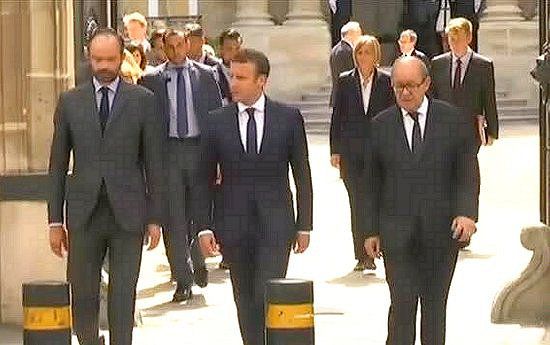
The popularity of Emmanuel Macron dropped by six points in one month according to a BVA poll broadcast Wednesday, February 2
8 and conducted February 26 and 27 with a sample of 1,019 people representative of the French population aged 18 and over (method quotas) .
The head of state is down for the second month in a row.
The tenant of the Elysee, with only 43% of favorable opinions, has fallen by nine points since December and is approaching its worst score, reached last October (42%). He loses points as well on the left as on the right and on the extreme right. He remains fortunately for him supported by his camp to 96%.
This decline in popularity is not only noticeable among retirees who are being impoverished by the CSG reform, but also in all strata of the population.
He is perceived as the President of the cities despite his attempt to soften the rural world by having received the young farmers at the Elysee Palace before his appearance at the Salon de l'Agriculture.
Moreover he is seen as the man of "social breakage" and ordinances perceived as a denial of democracy.
The Prime Minister, he is seen as "the man of the implementation of the reforms" which "assumes its role of shield" ...
|
|
|
|
|
|
|
|
| Britney Delsey for DayNewsWorld |
 |
ASYLUM AND IMMIGRATION OR INSUFFICIENT BILL TO MEET THE MIGRATORY CHALLENGE
|
|
|
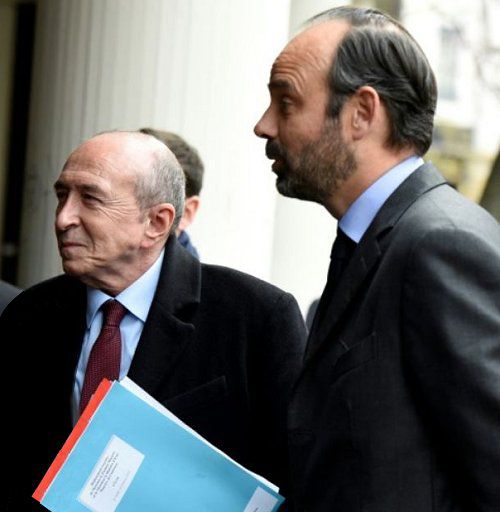
The "draft law for controlled immigration and an effective right of asylum " is presented on Wednesday 21 February in the Council of Ministers. "Balanced" for Gerard Collomb, the text is considered too repressive by the associations and "lax" by the right and the National Front. The text should then be examined in March in the Committee on Laws in the National Assembly, before being debated in April.
This text aims to "get out of the current situation where we do not welcome those to whom we must welcome, and we do not take away those who have no title to stay in France," summarized Monday, February 19 Édouard Philippe . No less than 130,000 foreigners settle each year in France and it is better to integrate them.
New rights are granted to immigrants such as the transition from one to four years of the residence permit for foreigners who do not have the status of refugees who can obtain a ten-year card. The text also proposes to provide better protection for girls who are threatened with excision and victims of domestic violence. Family reunification measures are extended to brothers and sisters.
The asylum application in the bill undergoes some changes to adapt to the less permissive European legislation than the current French law. Thus, the average duration of the asylum application will last six months compared to fourteen months, the maximum period for the application for asylum, from the entry into the territory, will increase from 120 days to 90 days. days as well as the appeal period before the CNDA- the appeal court that the asylum seeker can seize if unsuccessful-will be reduced to 15 days instead of 30.
Nationals of countries considered as safe as well as those who pose a threat to public order, must submit to an expulsion decision even in case of appeal to the CNDA.
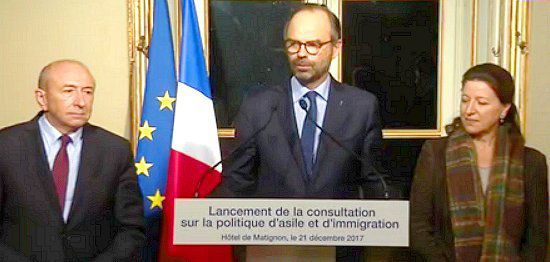 "A national scheme" will determine "the share of each region in the reception of asylum seekers" who will be required to "reside there to benefit from the material conditions of the reception", ie also the right to asylum seeker allowance (ADA). The integrated reception and orientation services (SIAO) managing the 115 will be required to communicate each month to the French Office of Immigration and Integration (Ofii) "the list of persons accommodated (...) having presented asylum application " or obtained protection to enable the enumeration of migrants. "A national scheme" will determine "the share of each region in the reception of asylum seekers" who will be required to "reside there to benefit from the material conditions of the reception", ie also the right to asylum seeker allowance (ADA). The integrated reception and orientation services (SIAO) managing the 115 will be required to communicate each month to the French Office of Immigration and Integration (Ofii) "the list of persons accommodated (...) having presented asylum application " or obtained protection to enable the enumeration of migrants.
The fight against irregular immigration will go through the prohibition of the right to remain on the ground "from the reading in public hearing of the decision of the CNDA" . Moreover a rejected asylum will no longer have the opportunity to seek the stay for another reason, for example medical, except "new circumstances". To these measures is added the creation of a "crime of unauthorized crossing of the external borders of the Schengen area" punished by one year in prison in order to discourage arrivals via Comoros or Guyana. The same measure is recommended for those who enter France without spending "during opening hours" by one of the approximately 285 border crossing points set up since the state of emergency.
For Bruno Retailleau, president of the LR group in the Senate, this bill "is falsely firm" does not change anything in terms of immigration. "We are in a situation, France and Europe, where in the coming years we will have a migration shock, a demographic shock (...) We are exploding the counters on immigration", has he warned about Sud Radio.
|
|
|
|
|
|
| Alyson Braxton for DayNewsWorld |
 |
QUICK ! A SEPULTURE FOR MICHEL DEON
|
|
This is our wish, because Alice, her daughter, is still waiting, for that, for an answer from the City of Paris!
"I really liked Michel Déon, a novelist whom I esteemed and whom I met often. He was always attentive to others, especially young writers. "
It left me a warm memory. "So spoke Milan Kundera of Michel Déon, the author of the Lunch of Sun, died December 28, 2016 in Galway in Ireland, his second homeland (which inspired him a lot) after France . Attentive! Warm! This is how Michel Deon's friends described him who did not deserve the last avatars relating to the setting in the ground of his ashes. According to his wishes, Michel Déon was cremated on the spot, in Galway and his ashes were repatriated by his daughter who resides in Paris, this in waiting to be definitively buried. The ashes of Michel Déon are stored since, in the apartment of the latter, closed in a cinerary urn.
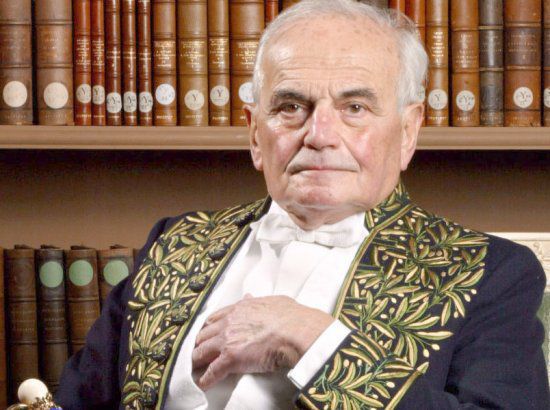 Remember that since 2008, it is forbidden to keep the ashes of the deceased at home ... and that every mayor is in charge of the law of this aspect of the funeral policy, thus acting in his capacity of civil registrar. The mayor is assisted in this by a police officer or the country guard as the case may be. (Small or large municipality) Remember that since 2008, it is forbidden to keep the ashes of the deceased at home ... and that every mayor is in charge of the law of this aspect of the funeral policy, thus acting in his capacity of civil registrar. The mayor is assisted in this by a police officer or the country guard as the case may be. (Small or large municipality)
Following the rules and words of her father, Alice Déon (Director of the Round Table Editions) therefore wished that her father had a tombstone so that, moreover, his memory remains visible of the walkers.
She asked the Paris City Hall to obtain a place in the Montparnasse Cemetery, the cemetery that already houses very large personalities (nearly 300) shows, science, or literature, such as Gainsbourg, Proust, Stendhal, Baudelaire, Sartre .... His idea being that he could talk closely, as a neighbor, with his illustrious accomplices.
To her surprise, Alice Déon was refused a Paris burial place for her father.
It all began with an @mail from the Deputy Director of the Cabinet of the Mayor of Paris, sent January 2, 2018, which invoked to justify this refusal Article L.2223-3 of the General Code of Local Authorities. A bureaucratic behavior, as recently denounced Hélène Carrère d'Encausse, Perpetual Secretary of the French Academy in which Michel Déon was admitted March 5, 1987. An overwhelming finding when it comes to burial and death, d a talented writer and well known.
Regulation for regulation, it will be recalled that any municipality is required to accommodate in its cemetery, a resident person, deceased on its territory or having a vault. But Michel Déon, who lived with his daughter in Paris when he was not in Ireland, did not have a cellar.
So ! Bureaucracy when you hold us?
Bureaucracy! but not that, perhaps, because we will be lost in conjectures and examine other points. As it is known, every mayor has the power to make exceptions, depending on the available places.
The first request of Alice Déon dates from the beginning of 2017 a request for which she did not receive a refusal one year later! , since the @mail of Ivoa Alavoine (the assistant director of cabinet) dates, as already stated, from January 2, 2018.
The press and the friends of Michel Déon immediately seized the question immediately.
Despite their indignation and especially that of his colleagues (Michel Déon was a journalist at Paris Match) the City Council confirmed last February 15, his refusal.
In a bombastic style, Anne Hidalgo herself (mayor of Paris) protested his good faith and political independence by writing to the heirs "that the undeniable demand of our city bylaws ran up against the equally unquestionable legitimacy. demand simultaneously " admitting simultaneously " that the regulation of the cemeteries of the City of Paris could have unsatisfactory " ...
Suddenly, a hundred writers and publishers mobilized to ask collectively, signature of petition in support, Anne Hidalgo, to find a quick and dignified solution. For a year, Michel Déon is indeed a "quasi-illegal resident" in the capital, this even though Paris is his hometown. Michel Déon was born rue de la Roquette on August 4, 1919. The writer was educated in the famous lycée Janson de Sailly before joining the Faculty of Law of Paris. Michel Déon was recruited from 1940 to 1942 and enrolled in the 152nd Infantry Regiment. Demobilized in Lyon in 1942, he became, for the southern area, secretary of the Drafting Action Charles Maurras French.
Michel Déon who was also Royalist, has all his life been clearly anchored to the right. Michel Déon has never put his beliefs in his pocket during his life. Michel Déon was also immortal. In fact and for many, and not only for the sorrowing spirits, the question is posed today: Michel Déon is it a death too right for Anne Hidalgo, the mayor of Paris?
These events have once again highlighted the sectarian nature of Anne Hidalgo, who under the pretext of Republican regulations, refused the request of Alice Déon, yet resident in Paris. And some remember that Anne Hidalgo has already been in the past, quick to venture into a battle of the same type, described as hazardous: example: the laying of a plaque in memory of Composer Henri Dutilleux, refused by Madam Mayor at first on the grounds of alleged collaboration with the Vichy regime and then greeted afterwards, participatory ceremony in support, shortly thereafter.
Some close to the Mayor of Paris, annoyed by the bad manners of Anne Hidalgo, as Bruno Julliard his first assistant or the writer Alexandre Jardin, would have advised him to be less rigid, Alexandre Jardin even going to him blow out to be "less cow" and stop this bullfighting. In order not to lose completely, Anne Hidalgo decided not to decide anything, by creating a commission ... to think about the problem. A gas plant that could in a few months (how?) Give birth to a thick report (!) To submit to the City Council of the City of Paris.
This unless the case and the corresponding Theodule committee were buried by then!
Because the Republican High Affairs, inspired by the principle of equality which does not leave room for human or contingent appreciation, which is immediately qualified as a right pass or precedent, requires, to emerge solutions of long palaver or galimatias .
Our humor is maybe a little black?
But we would have liked, like so many others, that Michel Déon quickly left the mantelpiece to go to rest in peace, definitely, and without consideration of his political opinions, in this Montparnasse cemetery where Stendhal had engraved at his time on his grave , "That here lay a Milanese heart .." and we wanted to say it because no one regretted to this day that Henri Beyle / Stendhal, one of the greatest French writers of the XIX century, rests in the cemetery of Montparnasse, Orne in its central place, the "Genie du Sommeil" sculpted by Horace Daillon.
|
|
|
|
|
|
|
|
| Clara Mitchell for DayNewsWorld |
 |
A PLACE TO FIND
FOR THE PATRIOTS OF FLORIAN PHILLIPOT
|
|
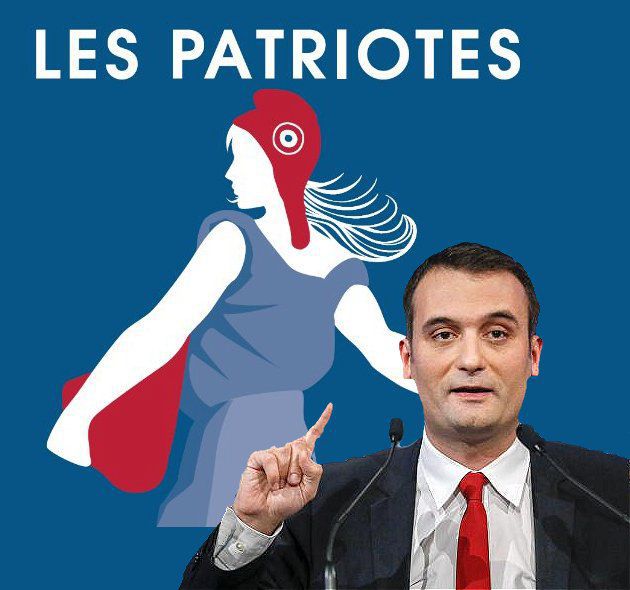
The young Les Patriotes party holds its founding congress this Sunday in Arras, in the Pas-de-Calais.
Florian Philippot, former number two of the FN, was unanimously elected president of the party by the militants.
Although he knows he has made "a bold choice" with the creation of this new political party in September, he remains convinced that there is "an enormous place" to take.
" There is a majority of French people who are in love with their country, who are for a free, independent France, leaving the European Union," he told more than 500 people.
The 36-year-old politician always carries the same speech:
he is " there to convince" of the need to take France out of the European Union.
He wants a French Brexit: a Frexit.
But is there really a place for Les Patriotes in the French political landscape?
Beside the nationalist party of Marie Le Pen, he will have to make a place among other sovereignists, like Nicolas Dupont-Aignan, president of Debout France and former ally of Marine Le Pen in the second round of the presidential election, and by François Asselineau. In the European elections the Patriots will play their all-round with their three seats, those of Florian Philippot, Mireille d'Ornano and Sophie Montel.
The path of Floriant Philippot is not unlike that of Bruno Mégret who in 1998 had split with the National Front ... We know the rest .........
|
|
|
|
|
|
|
|
| Carl Delsey for DayNewsWorld |
 |
FOR LAURENT WAUQUIEZ SPRING
POLITICS SEEMS TO BE SOON
|
|
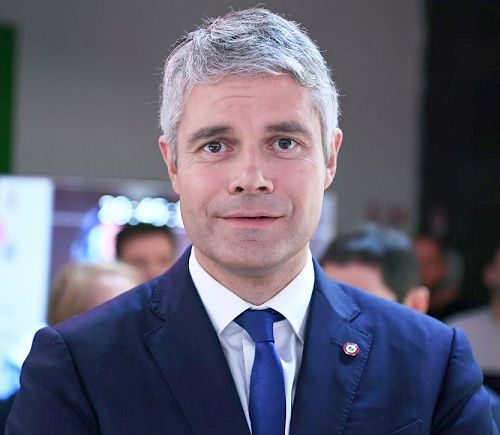
After the two victories in the by-elections of Val d'Oise and Territoire de Belfort, plus a successful show on France 2, the President of the Auvergne Rhône Alpes Region who has recently become President of "Les Républicains" has just started a good sequence .
This is in any case what has just revealed the latest survey IFOP-FIDUCIAL commissioned by many confreres.
Laurent Wauquiez, who had dropped by 8 points in January, jumped by 7 points in February, thus settling down, obviously in the role of leader of the Right and main opponent to Emmanuel Macron, who is going through a difficult time at the moment. .
Laurent Wauquiez realizes, on the studied sample, 41% of good opinions in this last survey.
Within the Republicans, Laurent Wauquiez wins 20 points (83% of good opinions) thus leaving for the first time Alain Juppé who loses 10 points (69%) and his rival Valérie Pecresse (58%).
Tested in duel with Valérie Pécresse, Laurent Wauquiez is still a little behind this one, with nevertheless a small gap of 2% (44% against 42%).
On the other hand he crushes Marine Le Pen (62% against 25%) in a similar test. Calm is not yet fully back to the right, but it is clear that a new page has just opened for Laurent Wauquiez who has lost much of his old image of "Bad Boy".
This evidence will be confirmed by the result of one of many polls to appear in much of the press ...
|
|
|
|
|
|
|
|
| Clara Mitchell for DayNewsWorld |
 |
NEW BUSINESS
FOR BENJAMIN NETANYAHU IN ISRAEL
|
The Israeli police on Tuesday urged the judiciary to charge "corruption, fraud and breach of trust" to Prime Minister Benjamin Netanyahu, who once again claimed his innocence and ruled out his resignation. "I can reassure you: the coalition is stable and neither I nor anybody has plans for an (anticipated) election. We will continue to work together for the sake of our Israeli citizens until the end of the mandate, " scheduled for 2019, Netanyahu said in a speech in Tel Aviv. 
In any case, the decision to officially put Mr. Netanyahu, 68, back to the Attorney General Avishai Mandelblit. It could take several weeks or months to decide.
But what are the cases threatening Benyamin Netanyahu?
1 ° M. Netanyahu is believed to have received bribes from wealthy personalities like Australian billionaire James Packer or Arnon Milchan, an Israeli producer in Hollywood.
These businessmen allegedly provided Benjamin Netanyahu and his family members in the form of cigars, champagne bottles and jewelery in the amount of one million shekels (approximately € 230,000) between 2007 and 2016. Benjamin Netanyahu assured that these gifts are nothing but gifts. In exchange, according to the police, Mr. Netanyahu has passed a tax law that benefited Arnon Milchan, and has given preferential treatment to some of his businesses. James Packer, a billionaire who owes his fortune to casinos, is meanwhile accused of providing luxurious travel (hotels and planes) to the Prime Minister's son.
2. The Prime Minister has made a pact with Arnon Mozes, head of the daily Yedioth Aharonot. Police have a record of the two men, in which the prime minister discusses the possibility of reducing the influence of a free daily, Israel Hayom, rival of Yedioth Aharonot, by "legislation and other means." In exchange, the daily, whose line is rather critical of Benyamin Netanyahu, would have treated the Prime Minister more favorably in his columns.
3. Some of its very close ones are touched by a particularly sensitive subject in Israel: the security of the country. These are retrocommissions paid on an armament contract signed in 2016 with the German shipyard ThyssenKrupp for the order of nearly 2 billion euros against the construction of three nuclear-powered submarines. David Shimron, Benyamin Netanyahu's cousin and personal lawyer, is believed to have received bribes to help the company circumvent the tender as he also worked for the German group in Israel.
The police's findings call into question the continued existence of Mr. Netanyahu, who has been in power for nearly 12 years in total, including the attitude of his coalition partners. The latter, however, have no intention of dissociating themselves. The police report is "as full of holes as a Swiss cheese , " Netanyahu said.
The man at the head of the government since 2009 has targeted his former finance minister Yair Lapid, a key witness in one of the cases, "while he promised to knock me down at any cost." Mr. Lapid appears in the polls as one of Mr. Netanyahu's main competitors in the event of an election ...
|
|
|
|
|
|
|
|
| Joanne Courbet for DayNewsWorld |
 |
WHAT ABOUT UNIVERSAL NATIONAL SERVICE ?
|
| T he candidate Macron promised in March 2017 to re-establish a "mandatory national universal service" of one month and for the whole of the same age group, between 600,000 and 800,000 young people per year. But this announcement was more than once contradicted and the government spokesman wanted to end the quack of this weekend.
This is why Benjamin Griveaux, spokesman for the government, has permanently cut short questions, declaring Tuesday, February 13, that the device would be " national", "universal" and " mandatory".
 The latter will concern between 600,000 and 800,000 girls and boys, who are not yet on the labor market but for legal reasons, it can not be imposed on adults. The latter will concern between 600,000 and 800,000 girls and boys, who are not yet on the labor market but for legal reasons, it can not be imposed on adults.
Indeed the service can not be made "mandatory for adults" while Macron targeted the age group of 18-21 years.
"Even if it is adopted by Parliament, even if the Constitution is changed, there could be an appeal to the European Court of Human Rights", argued Jean-Jacques Bridey, LREM deputy of Val-de-Marne.
This service, which could be implemented as early as 2019, will not last more than a month with varied teachings. Its vocation is not only to create a " social mix" but also to learn the sharing of republican values.
On the program, to inculcate "the discipline, the authority, the priorities strategies of France" , but also "physical and sports activities to allow cohesion" called this is what the counselor Emmanuel Macron thought about the issues military, the former UDI Mayor Serge Lepeltier.
However today the project is still vague and a report will detail the proposals of this national service, according to B. GRIVEAUX. But beyond these broad lines, the project of the Elysee, raises doubts because of its cost (estimated between two and three billion euros per year) and host capabilities armies, reduced since the deletion in 1997 military service. Just for the housing of conscripts, investments of 17 billion euros would be needed first and then the SNU would cost 2 to 3 billion per year.
But anyway, the founder of En Marche! promised that its funding would not weigh on the defense budget . "It will arrive safely, it will be conditioned by all the ministries concerned, and not just by the Ministry of the Armed Forces, it will have ad hoc funding, which will not impact the military programming law 2019-2025 which must to be presented soon , "he had said when he wished the army on January 19, 2017.
In any case, an overwhelming majority of French people are in favor of returning a national service.
|
|
|
|
|
|
|
|
| Alize Marion for DayNewsWorld |
 |
RETURN ON THE VICTORY OF THE RIGHT
PARTIAL LEGISLATIVE ELECTIONS
FROM 4 FEBRUARY 2018
|
| The question arose even before the second round of the partial legislative elections of February 4, 2018: Emmanuel Macron and the LREM group of the National Assembly will they lose deputies?
The answer fell on Sunday night: the two candidates in the second round, supported by a coalition of right, all currents, were elected, thus removing two seats to the majority that supports Emmanuel Macron.
These by-elections concerned the 1 st district of Territoire de Belfort and the 1 st constituency of Val D'Oise.
The parliamentary elections of June 2017 were canceled on December 8, 2017 by the Constitutional Council seized of appeal for annulment on the grounds that for the Territoire de Belfort leaflets falsely attributed to the opponents of the candidate LR had been distributed the day before polling day and for that of Oise because of the elective incompatibility of the substitute of the candidate LREM.
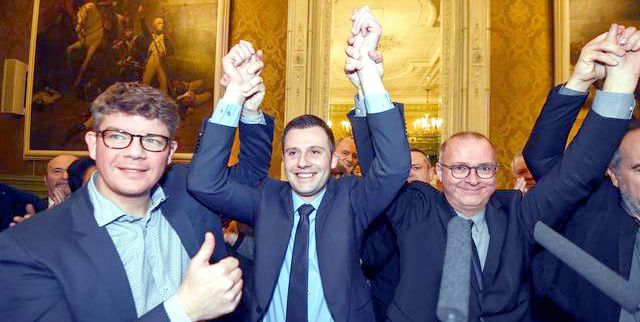 Voters were summoned to return to the polls. Voters were summoned to return to the polls.
For most political observers these results were unsurprising, both En Marche and Prime Minister Edouard Philippe were at the lowest level in the polls.
The double defeat of the candidates LREM has pleased, naturally, Laurent Wauquiez who qualified as early as Sunday evening, the scores obtained of "disavowal" for the Head of State, thus placing him in a position to claim the position of the first opponent of the Emmanuel Macron.
For Laurent Wauquiez, "the real France was expressed Sunday, in spite of the false communication of the government".
The strategy adopted by Laurent Wauquiez, since he was elected to the Presidency of the RL, seems to have paid off, just as his analysis and his speech, in favor of immigration seriously controlled and reduced, or that towards a European reconstruction less liberal and less globalist.
The executive and the presidential party have tried to mitigate the political consequences of these results, impacted it is true by a very low participation, "declaring that the by-elections are still difficult elections for the majority in place" . Christophe Castaner was nevertheless obliged to concede "that it was not necessary to interpret these results, as the French have not yet been able to see the positive effects of the social and economic policy choices made by Emmanuel Macron". Clearly, the presidential majority has asked time to time ... 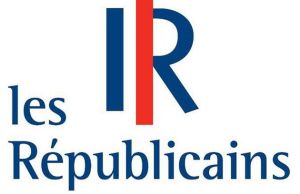
We will see in a while, because there will be other by-elections in the weeks to come.
Even if results similar to those observed this weekend came out again from the ballot boxes, it must nevertheless be admitted that these results will not change the political weight of LREM which will still retain for a long time an overwhelming majority.
But, these results must nevertheless be interpreted as the manifestation of a real impatience of the voters, when it is not that of a strong exasperation at 9 months (the duration of a gestation?) Of the presidential election of Emmanuel Macron.
So were elected deputies:
Ian Boucard, LR with 59.18% of the votes, in the Territoire de Belfort
Antoine Savignat, LR with 51.45% of the vote, in Val d'Oise.
For Laurent Wauquiez, LR is today the only opposition force capable of winning an election, noting that between the two LR towers was the only political force capable of winning votes while opposite LREM has lost, the left does not follow them anymore. "
Tuesday morning, at 11 am Laurent Wauquiez, accompanied by Christian Jacob, Chairman of the LR Group at the National Assembly came to welcome the two newly elected deputies
On the early morning of the 4 Vérités on France 2 the President of the Republicans, said he thought "a message had been sent" adding "that Emmanuel Macron had to listen to what the French say and understand what is their daily life.
"Everything has increased" insisted the elected right, pointing out that even the small pensions are affected by the CSG, "referring to" figures referring to a recurring criticism of the head of state, who on the budget 2018 has made 42 % of tax gifts to 5% of the richest French. For Laurent Wauquiez, "Doubt was instilled in En Marche, Emmanuel Macron seduced more than in ... the news or in the microcosm" ..
The presidential vessel is likely to take even more lodging in the coming days, given the monetary and financial crash (and stock market) that is emerging or some more political problems like the one that comes to Corsica in the favor of Emmanuel Macron's two-day visit.
|
|
|
|
|
|
|
|
| Clara Mitchell for DayNewsWorld |
 |
WHO WANT TO ASSASSINE MATHIEU GALLET?
|
|
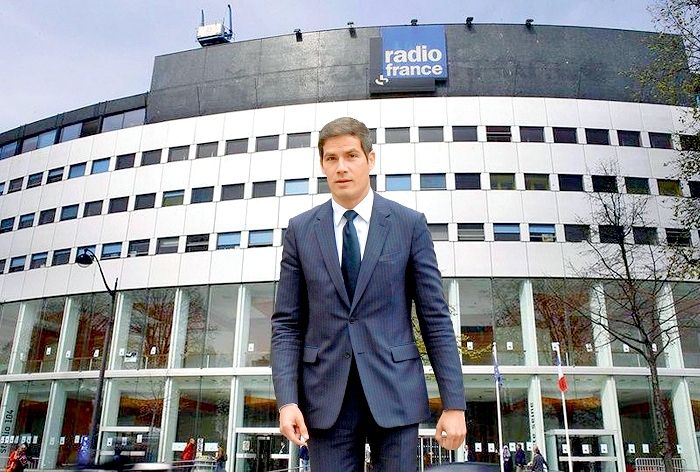
|
For many observers, some personalities wish (or wished for a long time) to obtain the "scalp" of Mathieu Gallet ...
As proof, the SMS exchanged in May 2016, between Aurélie Filipetti, (former Minister of Culture and former companion Arnaud Montebourg she had a daughter) and Agnès Saal.
It was Challenge who first told this incredible event.
In his SMS, Aurélie Filipetti welcomed the publication of a damning report on Mathieu Gallet whose Médiapart had made his fillies.
She added with perversity "we continue, we must not let go! ". What were the reasons for this plot between the two women, obviously very complicit.
E  n April 2014, the Minister of Culture, Aurélie Filipetti announced the appointment of Agnès Saal as president of the National Audiovisual Institute (INA) after almost appointing her as Director of Cabinet. Agnès Saal had previously worked in various ministerial offices of the Jospin government! n April 2014, the Minister of Culture, Aurélie Filipetti announced the appointment of Agnès Saal as president of the National Audiovisual Institute (INA) after almost appointing her as Director of Cabinet. Agnès Saal had previously worked in various ministerial offices of the Jospin government!
Agnès Saal, who would have left nearly 400 000 € of bills at the Center Pompidou of professional expenses a few years earlier, came (2016) to be pinned for a bill of 40 000 € for 10 months of taxi costs some of which concerned travel of his son who had his confidential booking code with the company G7.
The case was revealed by the association Anticor, which had published some crisp details on the notes of Taxi Agnès Saal, for the only month of August 2014 (6161 €) even though she was on leave in August ?
Referred to the Paris Criminal Court for embezzlement, Agnès Saal had stated in her defense that her predecessor, Mathieu Gallet, whose salaries had been increased by 55% between 2010 and 2013, would have spent some 1.3 million euros in Communication and Strategy Council, the file that led to his recent conviction.
For Mathieu Gallet, it all started with a vitriol report from the CGEFI (a service of Bercy) and an instruction of the Court of Auditors which had given rise to an investigation opened by the Créteil Public Prosecutor's Office on the management of Mathieu Gallet for offenses favoritism "on contracts concluded between 2010 and 2014" , contracts all falling within the competence of its Presidency. 
Agnes Saal's case continued in the courts, which sentenced her to 3 months suspended sentence and a fine of € 3,000 for her temporary exclusion from the public service for 6 months, all of which was ignored. according to her of her protests under which she had argued that his personal expenses had not reached 10% of those of his predecessor, Mathieu Gallet ... With his support, the "Taximan" had returned to the Ministry of Culture July 4, 2014. The social networks were ignited on this occasion. The canvas is still shaken!
Luc Besson was inspired by the story of Agnès Saal in his movie "Opus Taxi".
But the antagonism that had persisted between the two histrions was an open secret, especially since the turpitudes of Agnès Saal had been revealed by Mathieu Gallet himself during one of his investigative interrogations.
At these people! M'sieu, when we talk ... it's not for nothing!
The fact remains that for one as for the other the statement is overwhelming, revealing that the Very High Officials believe they are untouchable ... and budget ... It is in this context that Mathieu Gallet comes to be sentenced on January 15, 2018, to one year of suspended sentence and € 20,000 fine. It was the Reuters agency that first published the information, which immediately raised multiple speculations.
Mathieu Gallet! Will remain or will not remain at the head of Radio France of which he is the President since February 27, 2014.?
From the outset, Mathieu Gallet stated that he would not resign, rightly arguing, that having appealed, the decision of first instance was neither final nor binding. It was without counting on the ferocious intervention of Françoise Nyssen who in front of the microphone of Europe n ° 1 called immediately Mathieu Gallet "to draw all the consequences of the decision of justice of January 15, on behalf of the exemplarity (one pinches!) of the State shareholder, which exemplarity must be an absolute condition " ?
Exit the suspicions of sexual harassment of Gérald Darmanin, exit the unscrupulous and sometimes unlawful behavior of some LREM deputies, exit absenteeism of some deputies, exit the Bayrou and Marielle de Sarnez case, Exit the expenditure of nearly 350 000 Prime Minister Edouard Philippe for a Tokyo-Paris flight which was to save him only one hour ... on his schedule, an expense that the person concerned assumed .
In any case and obviously, Françoise Nyssen, who does not have in his capacity as Minister of Culture, direct authority on the career of Mathieu Gallet did not care! She, too, assumes ... in a flashy fashion (in a recent declaration to the world) an order that has certainly come from above.
 Jupiter had to demand the head of Mathieu Gallet, even if he defends himself ... His entourage nevertheless confirms, like his heavy silence on the subject! Jupiter had to demand the head of Mathieu Gallet, even if he defends himself ... His entourage nevertheless confirms, like his heavy silence on the subject!
Some are nevertheless embarrassed and have said, following the example of Frederic Mitterrand who exhumed "a rumor that gave Emmanuel Macron and Mathieu Gallet in a relationship, rumor that he believes would not have played in his favor."
The Parisian elite has nevertheless lost. Mathieu Gallet's dismissal took place on Tuesday, January 30, 2018. It is expected to take effect on March 1 st . Mathieu Gallet will give this Monday, February 5 a press conference that will follow. In the columns of the JDD of this Sunday, February 4, Françoise Nyssen, repeats to the envy that the CSA made its decision in all independence, recalling once again in a peremptory way, that she even considered "that the conditions were no longer fulfilled so that Mathieu Gallet remains at the head of a public company ".
Statutory interim presidency should be provided by Jean Luc Vergne, 69 years, for several weeks, leaving the time to put in place a number of reforms and changes in the audio-visual desired by Jupiter such as the attribution of the airtime to the various currents that will present lists for the European elections. Jean Luc Vergne is a "light" socialist who became a Macronist who committed himself at the beginning of April 2017 by signing a collective text in favor of Emmanuel Macron, a text published in HuffPost . This former boss of Human Resources of Sanofi, Elf / Total, PSA / Peugeot or BPCE is a player in the seraglio.
Moreover, even if the revocation of Mathieu Gallet seems to be part of a certain rationality, declared by the current team Macronnienne, we will like to make two observations:
1. Emmanuel, who has never ceased to plead and always pleads benevolence, seems to have given extremely hard orders, absent from all benevolence.
2. The attitude of the Minister is also contrary to the "free and plural" principles that she has publicly defended since the death of her son, a so-called early child.
The event led him to create, a school in the tradition of German philosopher Rudolph Steiner who developed a doctrine inspired by the anthroposophy of Helena Blavastky (XIX century), a philosophical current that made fury in Germany between the two wars.
This current builds on "religious syncretism, irrationalism, undemocratic and pro-capitalist elitism" (read Actes Sud / Comment Le Monde Diplomatique). Actes Sud is a publishing house created by her father, a publishing house she runs since the latter's disappearance.
We wonder? What will be the bases of the audiovisual reform?
The Minister has already put in opposition "her possible personal syncretism" with the French Catholic tradition when she had these days pummeled the 3 pages written by Olivier Dard on the occasion of 150th anniversary of the birth of Charles Maurras and Commemoration of the 100th anniversary of the end of the 1914-1918 war . From this point of view, the Mathieu Gallet case could only be an epiphenomenon. As "driver" by the Minister of Culture, this case could not hide deeper intellectual influences and can be very dangerous given the profile of the latter profile already denounced by Jean Luc Mélenchon, who has already qualified the school created by the sectarian school minister in the true sense of the word.
Case to follow very carefully !!
|
|
|
|
|
|
|
|
|
|
|
|
|
|
|
| Clara Mitchell for DayNewsWorld |
 |
AUTONOMY OR INDEPENDENCE OF CORSICA
NATIONALISTS HAVE MOVED IN QUIET
|
| The demonstration organized this Saturday in Ajaccio brought together several thousand people, a success for nationalist elected officials: thousands of protesters, 5,000 to 6,000 according to the police, more than 20,000 according to the organizers. A very honorable figure for this island of 330,000 inhabitants. "The bad weather probably deprived us of several thousand participants," said Gilles Simeoni.
 The latter, who were denied last week by Senate President Gérard Larcher and the Prime Minister, made the call. The rally followed the call of the presidents of the Corsican executive and the Territorial Assembly, Gilles Simeoni and Jean-Guy Talamoni. The latter, who were denied last week by Senate President Gérard Larcher and the Prime Minister, made the call. The rally followed the call of the presidents of the Corsican executive and the Territorial Assembly, Gilles Simeoni and Jean-Guy Talamoni.
The sympathizers hope that this mobilization citizen will weigh in the dialogue with Emmanuel Macron who arrives Tuesday on the island, in Ajaccio for the commemorations of the assassination of the prefect Erignac. Murder committed twenty years ago by a nationalist commando.
Paris demanded the end of the violence to begin any dialogue with the nationalists. It is done with this parade good child on the course Napoleon. Moreover, two figures of nationalism, Edmond Simeoni, father of the first, one of the pioneers of the movement and Charles Pieri, former cacique of the FLN, stood aside and did not respond to the solicitations of the press .A way of not appearing as stamped by the FLNC.
The bandera, the Corsican flag, in hand, thousands of protesters wore signs on which were inscribed the word Demucrazia (democracy) and young people sang "Sò elli", a well-known nationalist song and the Dio vi salvi Regina, the Corsican hymn.
Gone are the days of the FNLC bombs and fratricidal wars.
In the middle of the afternoon, everyone dispersed in the calm so that Gilles Simeoni savored this moment: "It is an unprecedented mobilization, without aggressiveness or tensions . Paris must now understand that there is no alternative strategy for them, that we must help us succeed, " said the president of the Corsican executive.
The President of the Republic, is expected firmly by the nationalists for a debate on the status of the island and its relations with the continent. "Now the President of the Republic to say, to speak and, I hope, to show that he heard what we said today" concludes Gilles Simeoni
|
|
|
|
|
|
|
|
| Kelly Donaldson for DayNewsWorld |
 |
GENERAL EARTHQUAKE ON ROAD REPRESSION
AND "RENTIFIED SECURITY"
|
|

The 90 - 80 km / h reduction in maximum speed on secondary roads starting July 1 triggered a sling among motorcyclists and motorists.
Events are organized this Saturday throughout France.
In Paris, appointment was fixed at 14 hours at the Château de Vincennes.
Nearly 60% of respondents say they oppose this reduction in speed.
If in many European countries, road safety statistics are much better than in France, it is not due to the single factor of speed as the government wants us to do.
"A European consensus admits a speed limit of 90 km / h on the secondary network," says the association 40 million motorists.
"With limitations at 90 or 100 km / h, some countries do better than us (on road mortality), it shows that it is not a question of speed but of behavior," insists the director general of 40 million of motorists, Pierre Chasseray.
Indeed the French Federation of Motorcyclists (FFMC) as the association 40 million motorists point out other aggravating factors as
1 Taking alcohol or drugs
2. The inexperience of the driver.
3 ° The bad state of the roads like a pothole destabilizing a biker, the guardrails ...
 "With this measure, we do not try to prevent accidents, which is the behavior of motorists and the state of infrastructure, but we try to limit the impact. It is a dressing on a wooden leg, " concludes Didier Renoux, spokesperson for the FFMC. "With this measure, we do not try to prevent accidents, which is the behavior of motorists and the state of infrastructure, but we try to limit the impact. It is a dressing on a wooden leg, " concludes Didier Renoux, spokesperson for the FFMC.
Associations denounce this new measure that they correctly tax "rentier security".
" The only concrete result of the experiment is the multiplication by three or four flashes of radars," quips Didier who does not hesitate to speak of " politics turned towards more repression".
This measure, which is far from unanimous even among the macronnistes (two ministers openly marked their opposition as Jacques Mézard, the Minister of Cohesion of the territories or Gérard Collomb)
urged the Senate at the request of some 50 senators to create a working group on road safety.
The Upper House wants to " evaluate the usefulness of this measure," said Senator (LR) Haute-Saone, Michel Raison.
The radar policy with 24.44 million flashes a year is not akin to road safety but rather to a new racket. It would be more judicious to proceed with an intelligent modulation of the limitation according to the dangerousness of the roads ...
|
|
|
|
|
|
|
|
| Britney Delsey for DayNewsWorld |
 |
SEXUAL VIOLENT AGGRESSION OR
FAKE-NEWS FOR AN ODIEUX CHANTAGE
THE DARMANIN CASE IN QUESTION !! ??
|
| At the weekend, the court confirmed the reopening of an investigation against Gérard Darmanin for rape charges. It is a 46-year-old woman, Sophie Spatz nee Olga Patterson, a former call girl who blames the Minister of Action and Public Accounts.
Sophie Spatz filed a complaint for rape against the minister. The latter contests the facts, which date from 2009, and filed a complaint for slanderous denunciation.
Sophie Spatz has been heard for more than eight hours by the judicial police and she believes she was raped on March 17, 2009 in a hotel in Paris. while in 2009 she would have changed her life, would be married to a finance engineer. She would have ended her activity.
 Facts Facts
She was 37 years old, then a supporter of the UMP, she wanted to erase in his criminal record a conviction for blackmail against one of his former companions pronounced against him in 2004. (10 months in prison suspended sentence and € 15,000 for damages for " blackmail" , "malicious appeals" and " threat of crime" against his former companion).
In 2006, this 46-year-old woman turned to Gérald Darmanin, then a young 26-year-old in charge of legal affairs at the UMP.
Gérald Darmanin was alleged to have obtained sexual favors from the complainant at a libertine club one evening in exchange for the promise of an intervention with the Chancery that was made.
Gérald Darmanin, denounces the "supposed intentions" to harm that are lent to him in this file.
"Mrs. Spatz and I are raising with the greatest vehemence against the supposed intentions which are lent to it afterwards. These allegations are devoid of material foundation and they also violate the chronological logic of the file, " denounced the plaintiff's lawyer, Me Élodie Tuaillon-Hibon in a brief email. "Mrs. Spatz hopes that the investigating services can do their job serenely, that all the witnesses present in 2009 will be heard, and that justice will be done," she added.
Everything is not very clean on the side of the ex-call girl .
The latter had formally filed a complaint against Gerald Darmanin in June 2017 without wanting to respond four times to the convocations of investigators ... Logically follows a classification without further action. But she changed her lawyer and Me Élodie Tuaillon-Hibon thinks that the accusation of rape " by surprise" can apply to her client since she "would have manifested clearly and unambiguously, even if it was courteously and tactfully, that she did not wish to comply with the sexual solicitations " of Gerald Darmanin. And the complainant was heard on Thursday.
Everything would suggest that the current Minister of Public Accounts has had sex with this lady ... "It will be necessary to help you too," he would have said ...
Should Gerald Darmanin resign?
The minister received Saturday the support of Prime Minister Édouard Philippe, who brought him "all [his] trust".
Still in office, the minister has received the support of members of the government and politicians right and left: Manuel Valls, Nicolas Sarkozy or Xavier Bertrand.
For Eric Woerth, Gérald Darmanin should not resign, MP LR of Oise, saying that "it is up to justice to say what happened"
And to add: "Anyone as long as it is not tried is entitled to the famous presumption of innocence. We will see what the investigation will give, but Gerald Darmanin is not prevented from performing his duties. Moreover, the government has repeatedly reiterated its confidence "
A dissonant voice of his party since the spokesmen of the party The Republicans said Monday that Gerald Darmanin "has no choice but to resign".
Concerned by a complaint for rape, Gerald Darmanin must he resign?
And Eric Woerth to say again: "When the tyranny of the media noise and the rumor prevails over the presumption of innocence, it is the democracy which is damaged"
|
|
|
|
|
|
|
|
| Britney Delsey for DayNewsWorld |
 |
NOTHING MORE FOR ALAIN JUPPE IN BORDEAUX
|
|
It was Michèle Aillot Marie (MAM) who opened the ball virulent and especially public criticism against Alain Juppé, declaring in the Parisian columns, January 21, 2018 and after the former Prime Minister assured that he put in withdrawal of "The Republicans": "it is the return of the Kindergarten School; since it is not me the chief, I'm leaving "... The declaration was made in the form of a plagiarism mimicking the character of the person concerned!
The phrase is a hit, because as everyone knows, Michele Aillot Marie knows very well and for a long time, Alain Juppé. The sentence is solid gold! It is revealing all the resentment that grows the one who imposed the primary of the Republicans before the presidential elections, otherwise his name could not have been in the debate ... and would have been definitely forgotten ...
And the former Minister of Jacques Chirac (former Minister of Defense) to still tacit a little more Alain Juppe who dares according to her announce that he will not pay his contribution 2018, even though he did not pay that of 2017, the year of the Primary. 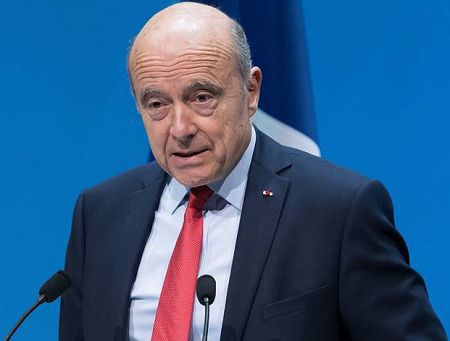
We can not believe it!
And the activists "LR" do not believe their ears !!
Michèle Aillot Marie added, by comparison, that "there are people in the LRG who are paid for the SMIC or who receive a very small pension and who nevertheless pay their annual subscription".
But "the best of us" as Chirac called it is not finished with strikes more or less vigorous even as it is increasingly isolated on the national political scene.
On January 24, 2018, it was learned that Alain Juppé and his team had just been severely blamed by the Regional Chamber of Accounts of New Aquitaine in terms of a report that had not yet been made public, but Reuters was able to obtain a copy.
The diagnosis of CRC is striking. It is based on the analysis of accounts from 2010 to 2016 of the city of Bordeaux.
The magistrates discovered during their investigation, that the city spent a lot during this period to finance the construction sites of the new stadium, the Cité Municipale and the Cité du Vin, thus leading to a doubling of the debt of the city which is from 185 to 377 million euros. These very worrying spending overruns should inevitably have appeared in the form of a deficit at the end of the year when the accounts were closed. But that was not the case!
Why ? And how ?
By means of a contrived trick! Unworthy of a former enarque and a former prime minister, father and paragon of rigor. Alain Juppé has simply registered in receipts, year after year, loans based on a virtual offer of loans, abandoned after the closing of the accounts. The flight forward ... It was necessary to think about it ..
CRC magistrates are concerned because they believe that the city's debt-deleveraging capacity is currently insufficient to repay additional loans to balance the city's accounts and cash.
And here is "the best of us" as Jacques Chirac, slayer of mismanagement and laudateur parallel of the good, serious, the same that promised us Emmanuel Macron, that he supported, comes from to be caught in the sack of a dark budget game.
On this, the anger of the Bordelais has only gone up! Until reaching a peak on January 27, 2018, on the occasion of the 8 th ceremony of vows. The agitation reached its climax; she was thundering, enamelled with shouts, whistles and finally shoving.
It was the protesters against the cost of parking recently put that messed up the Mayor of the Saint Augustine district and disturbed the ceremony of vows. It all started with the speech of Jean Louis David, Assistant in Charge of Urban Life, who accompanied the Mayor, Alain JUPPE. The effervescence only worsened when Alain Juppé took the floor. The latter quickly went away, shouting that it was the 8th ceremony of vows that he pronounced and that no where else he had found such behavior! Nothing helped ... The verbal pugilat continued with a resumption of demonstrators retorting "it was the last" (greeting ceremony!) Hello atmosphere!
Considering that "the consultation was not to yell, because it is useless ..et that the decision is made and will not be changed" Alain Juppé, right in his boots closed the ban.
A general scramble put an end to the ceremony, which was sloppy ... considering that we were, according to the recent murderous formula of Michèle Alliot Marie, about Alain Juppé at "the time of the sales" .
Many people have not always "swallowed" the treason of Alain Juppé and his colt Edouard Philippe! Many are also those that this incident will not annoy ...
And even more are those who think for a long time, "Alain Juppé has always been the biggest enemy of the right," as stated Eric Zemmour.
Meanwhile, it is clear that it smells of vinegar in the capital of the Duke of Aquitaine!
|
|
|
|
|
|
|
|
| Clara Mitchell for DayNewsWorld |
 |
There are no translations available.
GOUVERNEMENT ET SYNDICATS
PENTENTIARES DANS L'IMPASSE
|
|
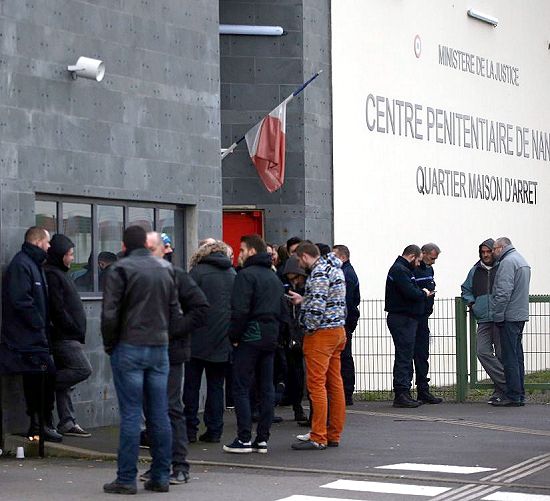 Après plus de dix jours de mobilisation des gardiens de prison, le mouvement se durcit ce lundi. Après plus de dix jours de mobilisation des gardiens de prison, le mouvement se durcit ce lundi.
Plus d'une centaine d'établissements pénitentiaires sont totalement ou partiellement bloqués ce lundi matin.
Nicole Belloubet recevra à 14 heures lundi les organisations syndicales pour reprendre le dialogue.
Elles ont rejeté un projet d’accord négocié avec le gouvernement, ne le trouvant pas suffisant.
Le rendez-vous de lundi aura lieu deux jours après que les surveillants ont rejeté un projet d’accord négocié avec le gouvernement. L’UFAP-UNSA, syndicat majoritaire (40 %), a fait savoir tard qu’après avoir interrogé ses militants, il ne signerait pas le texte.
La CGT-Pénitentiaire (environ 15 %) avait déjà annoncé qu’elle en ferait de même, évoquant des propositions « bien en deçà des attentes des collègues mobilisés, notamment en termes de reconnaissance et d’attractivité de [ses] missions de service public [indemnité et statut] et de l’insuffisance de création de postes proposés ».
Ce projet d’accord prévoyait la création de 1 100 emplois de surveillant sur quatre ans, « dont une première tranche de 100 emplois dès 2018 » ; des mesures pour améliorer la sécurité des gardiens ; un régime de détention spécifique pour les « détenus terroristes et radicalisés ».
Les surveillants des 188 établissements pénitentiaires français sont donc appelés au « blocage total » des prisons, dès 6 heures, lundi 22 janvier.
Lundi , le SNP-FO et l’UFAP-UNSA avançaient le chiffre de 130 à 145 établissements touchés en milieu de matinée tandis que l’administration pénitentiaire annonçait, à 9 h 30, 50 prisons concernées
Toujours est-il qu' à Fleury-Mérogis (Essonne), plus grande prison d’Europe avec plus de 4 300 détenus, environ 150 surveillants étaient rassemblés peu après 7 heures et bloquaient avec des barricades faites de pneus et de palettes l’accès à la prison.
FO-Pénitentiaire (environ 30 %), qui fait cavalier seul depuis le début du mouvement, a appelé à durcir le ton et à des débrayages et à des « dépôts de clés ».
Des agressions répétés n'ont fait qu'attiser la colère des gardiens jugeant leur profession dangereuse, mal payée et mal considérée. C’est l’attaque de surveillants par un détenu djihadiste à Vendin-le-Vieil (Pas-de-Calais), le 11 janvier, qui a mis le feu aux poudres. Depuis, une série d’agressions dans plusieurs établissements ont eu lieu à la prison de Longuenesse, dans le Pas-de-Calais, et à Châteauroux, des conflits dans les prisons de Maubeuge (Nord) et de Sequedin (Nord)
La ministre réaffirme également « son soutien et sa solidarité aux surveillants victimes d’agressions graves et intolérables » et dit mesurer « les difficultés et les risques auxquels ils sont confrontés à chaque déplacement qu’elle effectue, depuis son entrée en fonction, dans les centres pénitentiaires ».
|
|
|
|
|
|
|
|
| Carl Delsey pour DayNewsWorld |
 |
There are no translations available.
LE RECENT IMBROGLIO SUR LA TAXE D'HABITATION
|
|
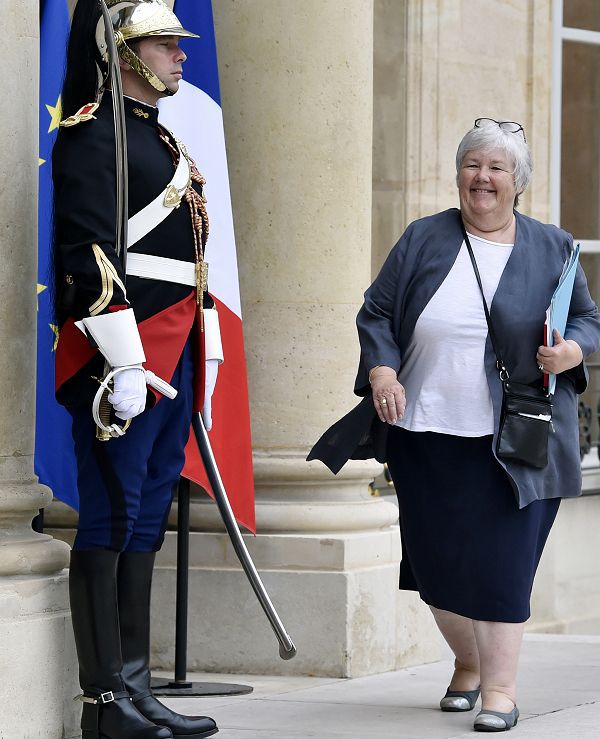 Souvenez-vous ! Souvenez-vous !
Emmanuel Macron l’avait inscrit dans son programme. La Taxe d’Habitation, jugée injuste par le candidat-président, sera supprimée.
Et comme toujours, ce que dit Emmanuel Macron, il le fait !
Le budget 2018 a commencé à prendre en compte la suppression de la Taxe d’Habitation.
A l’issue de ce premier acte de la réforme, l’Elysée et le Gouvernement ont poussé un ouf de soulagement, après que le Conseil Constitutionnel a validé, le 28 décembre 2017, l’essentiel du budget y compris pour le volet concernant la suppression de la TH pour 80% des contribuables.
Pour autant, le Conseil Constitutionnel n’a pas donné un blanc seing à la réforme, menaçant même de ré-examiner cette question en fonction de la façon dont sera traitée la situation des contribuables restant assujettis, tout en rappelant que l’autonomie des collectivités locales, inscrite à l’article 72 de la Constitution, doit rester la règle.
C'est dire que le débat est loin d’être clos et que tout le monde attend l’exécutif au virage.
Le dossier de la suppression de la TH, estimé à 20 milliards d’euros reste donc sensible !
C’est pour toutes ces raisons et par curiosité légitime, que Jacqueline Gourault, Secrétaire d’Etat auprès de Gérard Collomb, a été interrogée sur le sujet, au matin du 12 janvier 2018 sur le plateau de LCP-Assemblée Nationale. L’ex-sénatrice du Loir et Cher a été obligée de répondre à une question, que le gouvernement voulait éviter, suivant en cela les recommandations d’Edouard Philippe, le Premier Ministre qui avait déclaré la semaine précédente : « je veux que chacun des membres du gouvernement....travaillent en équipe, sans couac, de façon cohérente, compréhensible et efficace ». Et patatras ! Voilà que le premier couac sur le sujet de la Taxe d’Habitation est survenu !
Et pourtant, la suppression de la TH avait fait l’objet d’un si beau « story telling » pendant la campagne des présidentielles, pour vendre l’idée aux français qu’avec Emmanuel Macron, Président de la République, ils paieraient moins d’impôts !
Jacqueline Gourault a terni ce matin là, quelques belles pages de l’histoire.
La Secrétaire d’Etat, surnommée la Madame Corse du Gouvernement, en charge plus globalement des collectivités territoriales, a en effet indiqué très précisément ce matin là « que la suppression de la TH se fera dans le cadre d’une réforme globale, conduisant à instaurer un impôt plus juste, s’emboitant à la fin avec ladite taxe, pour assurer les besoins de financement des collectivités territoriales ».
Les mots ont été lâchés, même si la secrétaire d’Etat n’a pas donné de calendrier précis sur les intentions réelles du Gouvernement.
Jacqueline Gourault a simultanément ajouté qu’elle penchait pour que le bloc communal conserve un impôt en lien avec le territoire et en lien avec les citoyens.
Jacqueline Gourault a-t-elle été trop loin ? A-t-elle commis une impardonnable bévue, alors même qu’elle porte une image d’élue compétente, franche, directe mais néanmoins subtile et conviviale. A-t-elle lâché une information capitale sur les études, les simulations et les tractations qui sont discrètement en cours en ce moment sur le sujet ?
Très certainement recadrée dans la journée, Jacqueline Gourault a publié, le soir même, à 20h15 un tweet dans lequel elle disait « que la TH est définitivement abolie et ne sera pas remplacée par un autre impôt. La fiscalité locale sera entièrement repensée »...
Mais le doute s’est installé !
Alors en dépit de cette situation, Bruno Le Maire, Ministre de l’Economie et des Finances s’est fendu le lendemain matin, vendredi 12 janvier 2018, à l’antenne de BFMTV d’un rappel au discours macronnien : « la suppression de la Taxe d’Habitation coutera au total 20 milliards d’euros, dont 8,5 milliards restent encore aujourd’hui à financer" ; mais a-t-il ajouté" on ne supprime pas un impôt pour le rétablir par un autre ; on ne prend pas dans la poche des Français ce que l’on vient de leur donner de l’autre main ».
Le rétropédalage de Jacqueline Gourault et recadrage de Bruno Le Maire dans la foulée ont laissé subsister un malaise et l’inévitable impression que la promesse d’Emmanuel Macron de supprimer la TH était peut être un « fake news » ?
L’opinion publique devra suivre avec la plus grande attention cette affaire, comme le Conseil Constitutionnel a de son coté promis de le faire, avec de solides arguments.
Il reste néanmoins quelques esprits probablement mal tournés ( ?) qui ont déjà fait remarquer que la suppression de la TH en 2020, va tomber dans l’année des élections municipales (2020) dans l’année qui précédera les élections départementales et régionales (2021), 2 ans avant les élections présidentielles de 2022.
« Des élections à gagner, cela vaut peut être bien une petite dizaine de milliards d’euros », a conclu sur le sujet, dans son édition du 3 janvier 2018, le Canard Enchainé, toujours aussi malicieux.
|
|
|
|
|
|
|
|
| Clara Mitchell pour DayNewsWorld |
 |
There are no translations available.
POURQUOI DEFENDRE
LE PROJET DE LOI D'IMMIGRATION
|
« C'est un projet de loi totalement équilibré. Il reprend deux grands principes : la France doit accueillir les réfugiés, mais elle ne peut pas accueillir tous les migrants économiques », a estimé le ministre de l'intérieur Gérard Collomb.
|
|
|
Le projet de loi asile-immigration n'a pas encore été présenté au Conseil des ministres, mais son contenu enflamme déjà les nombreuses associations d'aide aux migrants.
C'est pourquoi dans un entretien au « Parisien », le ministre de l'Intérieur défend bec et ongles son projet de loi sur l'asile et l'immigration largement décrié par les associations. Pas question de céder aux pressions. Il prône un « accueil inconditionnel, mais pas indifférencié » .Il se défend de passer pour « le facho de service », mais Gérard Collomb évoque auprès du quotidien « un projet de loi totalement équilibré ».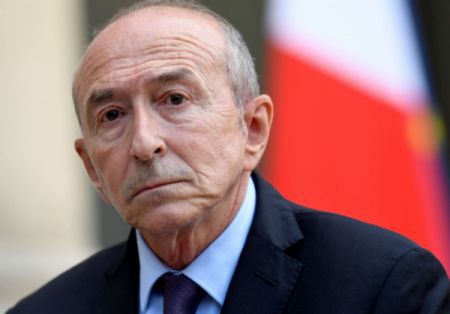
Alors que la France a enregistré plus de 100.000 demandes d'asile, selon l'Ofpra, et que 85.000 personnes ont été refusées aux frontières, Gérard Collomb tente de quantifier le phénomène. « Il est impossible d'accueillir dignement 185.000 personnes par an. C'est une ville comme Rennes ! », martèle-t-il.
En réponse au doublement de la durée de rétention administrative prévue par le texte, Gérard Collomb annonce la création de « 200 places d'ici à la fin du mois de janvier et 200 autres en 2018 ». Au sujet de la circulaire organisant le recensement des migrants dans les centres d'hébergement d'urgence le ministre de l'Intérieur assure qu'elle serait maintenue. « Cette circulaire a été extrêmement caricaturée, mais elle est assez nuancée », a-t-il déclaré.
Par ailleurs, Gérard Collomb a confirmé dans un communiqué « La création de 200 places en centre d'accueil et d'examen des situations (CAES) dans chaque région, soit plus de 2 600 places sur l'ensemble du territoire » annoncée dans un communiqué devrait rassurer les esprits surtout avec déjà 1 300 places opérationnelles d'ici au 31 janvier !
Ces centres , structures couplant accueil et contrôle administratif, permettent l'orientation des migrants vers des centres d'hébergement en fonction de leur droit au séjour.
Les CAES existent déjà en Île-de-France et dans le Nord. Après celui de Cergy (Val-d'Oise), un deuxième CAES ouvre cette semaine en Île-de-France, à Ris-Orangis (Essonne).
« Je fais ce que je crois devoir être fait » d'autant que le ministre a pris connaissance des résultats d'une enquête réalisée par l'Ifop qui révèle le rapport très sensible des Français à l'immigration. 72 % sont inquiets devant celle-ci pensant que « l'immigration est un processus inquiétant, qui cause des problèmes de coexistence entre des cultures très différentes et menace à terme [leur] mode de vie ».
Même les électeurs de Macron le pensent dans une large majorité.
|
|
|
|
|
|
| Andrew Preston pour DayNewsWorld |
 |
There are no translations available.
ENFIN UN GOUVERNEMENT
DE COALITION EN ALLEMAGNE
|
|
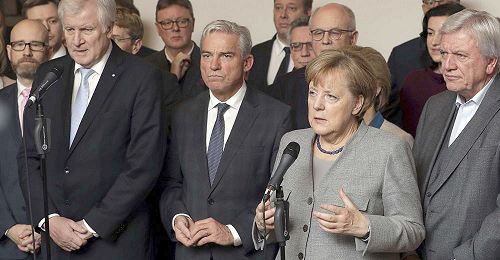 Angela Merkel a arraché de haute lutte un accord avec le SPD pour la formation de son gouvernement conservateur. Angela Merkel a arraché de haute lutte un accord avec le SPD pour la formation de son gouvernement conservateur.
Un accord était attendu depuis le 24 septembre, date des dernières élections fédérales en Allemagne. Après sa faible victoire avec seulement 32% des voix, la chancelière n'avait pas réussi à former une coalition «Jamaïque» avec les libéraux du FDP et les Verts.
Le SPD entendait devenir à nouveau une force d'opposition après son faible score 20,5% aux législatives .
Après trois mois et demi d'impasse politique pour le pays la CDU, parti de la chancelière, a trouvé, vendredi 12 janvier, un accord pour un gouvernement avec ses alliés conservateurs de la CSU et les sociaux-démocrates du SPD.
L'accord gouvernemental de principe conclu vendredi entre conservateurs et sociaux-démocrates propose de réformer la zone euro "en étroite collaboration avec la France" pour la rendre plus résistante aux crises mais aussi de limiter l'immigration en Allemagne.
Reste aux délégués du parti de donner leur feu vert lors du congrès extraordinaire du 21 janvier, à la décision du SPD d'entrer dans un nouveau gouvernement de coalition avec les conservateurs ...
Puis viendra l'heure des négociations dans le détail avant la mise en place du nouvel exécutif.
Vendredi, le président français Emmanuel Macron a dit être "heureux et satisfait" du compromis trouvé en Allemagne.
Toutefois " l'Examen " des propositions d'Emmanuel Macron (la création d'un budget de la zone euro, d'un ministre des Finances pour les pays de l'Union monétaire, d'un parlement propre à la zone euro...) ne seront examinées que plus tard par la nouvelle coalition gouvernementale.
|
|
|
|
|
|
|
|
| Alize Marion pour DayNewsWorld |
 |
There are no translations available.
UNE LOI DE PLUS
POUR MUSELER LA PRESSE
|
|
 Autant dire que les premiers vœux à la presse d'Emmanuel Macron à la presse étaient très attendus ! Les relations qu'il entretient avec la sphère médiatique depuis le début de son mandat ne laissent pas de poser des questions Autant dire que les premiers vœux à la presse d'Emmanuel Macron à la presse étaient très attendus ! Les relations qu'il entretient avec la sphère médiatique depuis le début de son mandat ne laissent pas de poser des questions
Presse muselée dès les vœux puisque que les journalistes ont dû écouter courtoisement sans droit de réponse. Une pensée présidentielle "trop complexe" pour se prêter à un jeu de questions-réponses avec les médias ?! Le mutisme imposé aux journalistes lors du rendez-vous de ce mercredi laisse songeur...
« Le maître des horloges » est reparti une fois son discours terminé. Après une mise en scène en majesté à l'Élysée.
Pas moins de deux lois ont été annoncées:
Une loi sur les fake news en période électorale et une sur l'audiovisuel public.
« En cas de propagation d’une fausse nouvelle, il sera possible de saisir le juge à travers une nouvelle action en référé permettant le cas échéant de supprimer le contenu mis en cause, de déréférencer le site, de fermer le compte utilisateur concerné, voire de bloquer l’accès au site internet », a-t-il indiqué.
Mais qu'est-ce qu'une fake news? Une fausse information?
Les fake news, ces fausses nouvelles en français, rumeurs ou propagande qui se répandent via les réseaux sociaux et des milliers de comptes comme une trainée de poudre. Mais les fake news, il y en a tout le temps...
Le nuage radioactif de Tchernobyl s'est arrêté à la frontière française ? L'eau de la Seine est devenue buvable ? Le patron de Bercy n'a aucun compte en Suisse, jure-t-il devant les représentants du peuple ? Allons donc relayer les propos mensongers de Jérôme Cahusac ? Et les mensonges d'Etat ? Le journaliste français est-il obligé de les relayer ?
« Nous allons faire évoluer notre dispositif juridique pour protéger la vie démocratique de ces fausses nouvelles », a déclaré Emmanuel Macron lors de son discours.
Traduction: museler la presse française !
« Se posant en surplomb de la profession, Emmanuel Macron a parfois donné l'impression de vouloir jouer le rôle de super régulateur du système médiatique. » conclut sobrement un journaliste..
Mais par contre les ministres sont désormais sommés de porter la bonne parole -l'inversion de la courbe du chômage fake d'Etat?- pédagogie du lourd programme de réformes engagé au premier semestre de l'année...
La presse n' est-elle pas assez grande pour respecter sa propre déontologie et ne doit-elle pas rester libre? Sinon gare aux bruits des bottes. La liberté de la presse fait partie du 1er et 4ème amendements...
|
|
|
|
|
|
|
|
| Paul Emison pour DayNewsWorld |
 |
There are no translations available.
DES VOEUX DU PRESIDENT MACRON
EN MAITRE D'ECOLE
|
|
C'était un passage quasi-obligé. Comme l'ensemble de ses prédécesseurs, Emmanuel Macron s'est plié au traditionnel exercice des «vœux aux Français» ce dimanche soir. Le chef de l'État s'est exprimé durant près de vingt minutes ce dimanche soir à 20 heures, depuis le bureau d'angle de l'Élysée.
Une « Marseillaise » en introduction. Le chef de l'Etat, assis derrière une table, à l'Elysée. Quelques notes sur lesquelles le président de la République.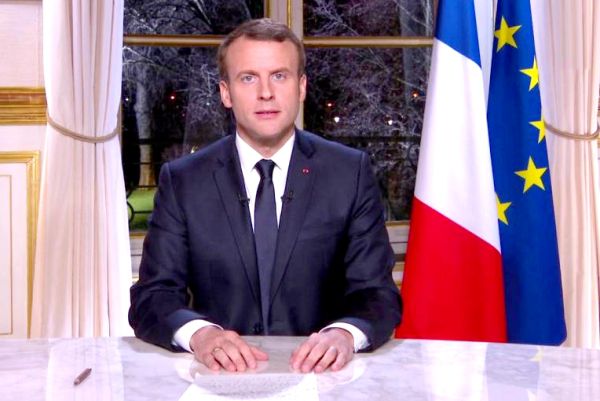
- «2017 s'achève et je ne veux pas passer trop de temps à revenir sur celle-ci» - «Par vos choix durant cette année, vous avez profondément renouvelé notre vie politique et permis une transformation en profondeur de notre pays», s'est-il ensuite félicité.
«Je veux miser sur la fraternité: c'est ce qui nous unit, ce qui nous a fait, ce qui nous tient ensemble. Je crois dans la réussite, dans le succès... Mais que valent-ils s'ils nourrissent les égoïsmes et le cynisme de quelques-uns? Rien de bien durable. .. «Nous avons besoin d'entreprendre un grand projet social»
Il doit inspirer notre politique de santé, notre politique vis-à-vis de ceux qui vivent en situation de handicap, notre politique d'hébergement des sans-abris, notre politique social pour aider les plus démunis...
1° «Vous appartenez à un collectif plus fort et plus grand que vous: la Nation française»
«La cohésion nationale ne dépend pas seulement du président de la République, du premier ministre, ou du gouvernement. Elle dépend de chacun d'entre vous. Demandez-vous chaque matin ce que vous pouvez faire pour votre pays. Au-delà des difficultés du quotidien et de la vie, dites-vous toujours que vous appartenez à un collectif plus fort et plus grand que vous: la Nation française. C'est ce collectif qui vous a éduqués ; qui vous soigne ; qui, quand vous tombez, vous aide à vous relever ; et qui vous aidera dans vos vieux jours. Dites-vous à chaque instant que vous avez quelque chose à faire pour votre pays.
Seul clin d’œil à l'Américain John Fitzgerald Kennedy. « Ne vous demandez pas ce que votre pays peut faire pour vous, mais demandez-vous ce que vous pouvez faire pour votre pays », avait déclaré l'ancien président des Etats-Unis en 1961, le jour de sa prestation de serment.
2° «Le travail est le cœur de notre projet commun»
«Je veux miser sur le travail. Il est au cœur de notre société parce qu'il permet de trouver une place, de progresser dans la vie, de s'émanciper de son milieu d'origine quand on le souhaite. Mais c'est aussi par le travail que notre Nation sera plus forte parce qu'elle produira et qu'elle s'enrichira. »
3° « L'année 2018 sera à mes yeux celle de la cohésion de la Nation. Nous nous sommes trop longtemps et trop souvent divisés. Les débats sont nécessaires, les désaccords sont légitimes, mais les divisions irréconciliables minent le pays. Je veux plus de concorde pour la France en 2018. Pour cela, je veux avant toute chose miser sur l'intelligence française, car nous avons cela en nous».
4° «Je crois profondément que l'Europe est bonne pour la France»
«Sur le plan européen, l'année 2018 sera décisive. Vous le savez, je me suis pleinement engagé dans cette bataille car je crois profondément que l'Europe est bonne pour la France. La France ne peut pas réussir sans l'Europe car elle la rend plus forte. Chers concitoyens européens, 2018 sera une année toute particulière, et j'ai besoin de vous: je souhaite que, par la consultation citoyenne, vous puissiez exprimer et dire ce que vous voulez pour l'Europe - quelques mois avant les élections européennes - et que vous permettiez à vos gouvernement de dessiner un grand projet. (...) Je crois profondément que l'Europe peut devenir une puissance économique, sociale, écologique et scientifique, qui pourra faire face à la Chine et aux États-Unis, en portant les valeurs qui nous ont fait et qui font notre histoire commune. J'ai besoin de votre détermination pour ce sursaut européen et pour que, ensemble, nous ne cédions rien ni aux nationalistes ni aux sceptiques. (...) Que nous retrouvions le goût commun d'un avenir où nous décidons pour nous-mêmes».
Emmanuel Macron a aussi réitéré sa volonté d'apporter un toit à tous les sans-abri, en écho à sa promesse formulée en juillet. Une promesse non tenue pour le moment. Premier vœu pieux du début de son quinquennat.
Une Marseillaise en guise de conclusion. Rien que du très classique dans cette mise en scène extrêmement sobre.
|
|
|
|
|
|
|
|
| Alize Marion pour DayNewsWorld |
 |
There are no translations available.
DURCISSEMENT DE LOI IMMIGRATION-ASILE
OU
LA FRACTURE CHEZ LES MARCHEURS
|
|
Pierre angulaire de la future politique d'immigration, le projet de loi "Immigration et asile", que prépare le gouvernement, est scruté attentivement. L'exécutif prend son temps : le projet a déjà pris un mois de retard .
La future loi "asile - immigration", préparée par le ministre de l'Intérieur Gérard Collomb s'annonce plutôt comme un dossier politiquement explosif.
"C’est un énorme texte, très volumineux, explique un proche du président. Il faut prendre le temps, et on fait preuve de prudence."
Lors de la dernière réunion interministérielle (RIM) sur ce dossier, vendredi soir à Matignon, nombre d’arbitrages ont été repoussés. C'est que l’exécutif avance sur ce texte comme sur des œufs.
On se souvient du discours d'Orléans, le 28 juillet : "Je ne veux plus, d'ici la fin de l'année, avoir des hommes et des femmes dans les rues, dans les bois", avait martelé le chef de l'État, qui avait aussi préconisé une "vraie politique de reconduite aux frontières". Mais la volonté affichée ne semble pas suffire, même présidentielle...
Il entendait distinguer clairement demandeurs d'asile et migrants économiques. Pour le ministre de l'Intérieur, si les réfugiés doivent être accueillis, les migrants dits "économiques" n'ont pas leur place.
Or 91.000 étrangers en situation irrégulière ont été interpellés en 2016.
Pour ce qui concerne l'asile, les mesures visent à réduire les délais de traitement des demandes, le Président ayant préconisé de les réduire à six mois maximum, contre quatorze jusqu'ici.
Mais pour ce qui a trait aux procédures d'éloignement des déboutés du droit d'asile ou, plus généralement, des personnes faisant l'objet d'une obligation de quitter le territoire français (OQTF), les mesures à mettre en places s'avèrent plus délicates.
Selon le ministère de l'Intérieur, sur 91.000 étrangers en situation irrégulière interpellés en 2016, seuls 31.000 se sont vu délivrer une OQTF et moins de 25.000 ont quitté le territoire français.
La solution envisagée par le ministère de l'Intérieur serait un allongement de la durée légale de rétention dans les centres de rétention administrative (CRA). Cette dernière passerait de quarante-cinq jours actuellement à quatre-vingt-dix jours, soit le double.
Un plan d'ensemble va également être mis en œuvre via des circulaires ou des réaffectations de moyens en augmentant ainsi de 400 le nombre de places en CRA, mais aussi les effectifs de la police de l'air et des frontières (PAF). A l'étude également la réorganisation des renvois par voie aérienne avec pour les préfets des objectifs d'expulsion des demandeurs d'asile qui sont astreints au règlement de Dublin .
L'enjeu pour le gouvernement est aussi de pouvoir identifier les migrants. Une autre mesure prise le 12 décembre permet ainsi à des personnels des préfectures et de l'Office français de l'immigration et de l'intégration de venir dans les centres d'hébergement d'urgence afin de recenser les personnes qui s'y trouvent. Une décision dénoncée par Jacques Toubon, le Défenseur des droits .
Ce durcissement se trouve étroitement lié aux évolutions de l'opinion publique traumatisée par l'actualité récente.
Après l'attentat de Marseille, le 1er octobre, le gouvernement a durci son discours. Deux jeunes femmes avaient été poignardées à la gare Saint-Charles par un individu en situation irrégulière qui avait été relâché par la préfecture du Rhône. L'homme n'avait pas été placé en rétention par la préfecture du Rhône la veille en dépit d'une interpellation en situation irrégulière. Aucune procédure d'éloignement n'avait été engagée à son encontre.
Mais des dents commencent à grincer chez certains LREM si bien que le Président a demandé à son Premier ministre, Édouard Philippe, d'entamer en janvier des "consultations" au côté de Gérard Collomb afin d'aboutir à "une position plus consensuelle". En Marche se divise déjà. Avec le futur projet de loi "immigration-asile", le groupe macroniste à l'Assemblée nationale risque ainsi de se fracturer si bien que le ministre de l'Intérieur reçoit depuis plusieurs semaines, par petits groupes, pour des petits déjeuners ou des dîners, les élus de la majorité.
Si bien que les Marcheurs espèrent que le nouveau patron de la droite, Laurent Wauquiez, se prêtera à la surenchère...Un signe de courage politique non négligeable chez les macronistes...
|
|
|
|
|
|
|
|
| Alizé Marion pour DayNewsWorld |
 |
There are no translations available.
LR LES REPUBLICAINS
OU « J'AI FAIT LE CHOIX DE RESTER »
|
|
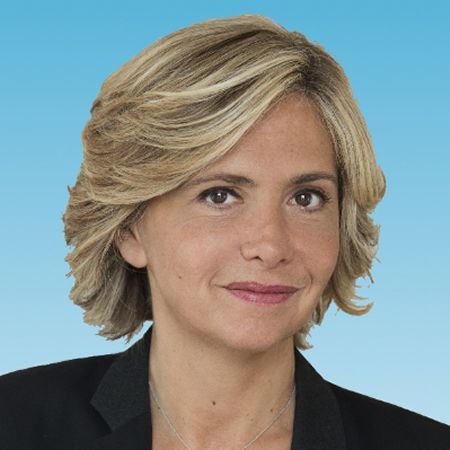
Valérie Pécresse a indiqué ce vendredi matin 15 décembre, son choix de rester au sein de LR, insistant sur sa "différence" avec Laurent Wauquiez
"J'ai fait le choix de rester",a annoncé Valérie Pécresse.
La présidente de la région Île-de-France a rencontré Laurent Wauquiez jeudi 14 décembre tout en refusant la proposition de ce dernier de présider le conseil national de leur parti pour défendre un courant alternatif à la ligne Wauquiez au sein des Républicains.
Et ce contrairement à Xavier Bertrand, qui a annoncé lundi son départ du parti.
Elle entend ainsi peser sur la ligne politique qui sera celle de la droite. . "Je fais le choix de la liberté dans ma famille politique. Je fais le choix - avec tous ceux qui partagent ma sensibilité politique - d'être dedans mais d'être différents".
"L'unité n'est pas l'uniformité", justifie-t-elle ainsi. "Je dis à tous les militants, à tous les élus qui sont tentés aujourd'hui de quitter la droite parce qu'ils ne se reconnaissent pas dans la ligne politique de Laurent Wauquiez, je leur dis 'restez avec moi, ne renonçons pas à peser sur l'avenir de la droite'", lance Valérie Pécresse.
En septembre, celle-ci avait lancé "Libres !", un mouvement politique par lequel elle souhaite rapatrier les déçus de la droite et ceux qui ne se reconnaissent pas dans la ligne Wauquiez. Valérie Pécresse semble vouloir donner de l'ampleur à son mouvement.
"Aujourd'hui la droite est convalescente, elle a besoin de renouveler puissamment son logiciel", déclare-t-elle, cinq jours après l'élection du président de son parti.
"Une famille politique meurt du caporalisme et aussi de l'uniformité", a également dit Mme Pécresse, qui "attend de voir les gestes de rassemblement (que Laurent Wauquiez) fera" énonçant trois principes:
la"non-porosité avec le Front national" et de ses "affidés", le "respect des sensibilités et de leur place" au sein du parti et la "ligne eurolucide et pas eurosceptique".
La présidente LR d'Ile-de-France se pose déjà comme l'une des adversaires du nouveau patron de la droite en vue de la présidentielle alors qu'elle avait elle-même refusé à se présenter, ce qui lui avait valu plusieurs remarques de Laurent Wauquiez.
En effet dimanche soir, juste après sa victoire, il avait notamment félicité ses deux concurrents, Maël de Calan et Florence Portelli, qui "ont eu le courage de se présenter", et appelé les "personnalités qui n'ont pas voulu s'engager dans cette campagne" à mettre leur "talent au service de la famille".
Valérie Pécresse dit attendre de voir les gestes de rassemblement que fera Laurent Wauquiez et juge inéluctable la tenue d'une primaire avant la présidentielle de 2022...
|
|
|
|
|
|
|
|
| Britney Delsey pour DayNewsWorld |
 |
There are no translations available.
AEROPORT DE NOTRE DAME DES LANDES
UN AEROPORT DE PLUS POUR RIEN
|
|
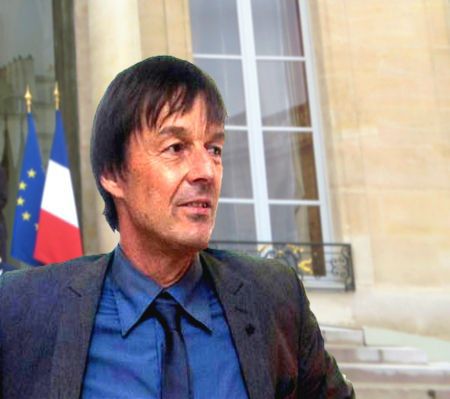
La gestion catastrophique du dossier du nouvel aéroport du grand ouest, de Notre Dame des Landes pourrait déboucher, enfin, sur une décision de principe définitive, avant les Fêtes de fin d’année ou dans les tous premiers jours de l’année 2018. C’est ce que vient de déclarer Nicolas Hulot, Ministre de la Transition Ecologique.
Pour achever les dernières pages du Roman Noir de cette affaire, le gouvernement actuel, devrait en effet , enfin s’armer du courage le plus élémentaire et décider, soit de se conformer aux décisions (dont un referendum local) et jugements pour construire le nouvel aéroport de Notre Dame des Landes, soit renoncer à ce projet, une fois pour toute.
C’est sur France Inter, vendredi dernier, 8 décembre 2017, que Nicolas Hulot a annoncé, que la décision sur ce projet très controversé serait prise bientôt, en suite au dépôt du rapport des médiateurs prévu pour le mercredi 12 décembre.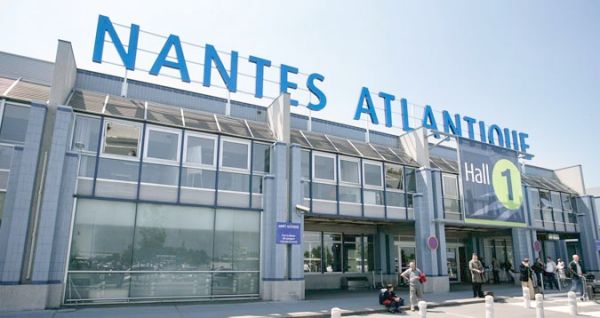
Gare à la tempête politique ! Ca va tanguer et chacun retient son souffle !
Ce rapport, c’est Emmanuel Macron qui l’a voulu, « pour apaiser les tensions »( ?) mais aussi plus probablement pour l’aider à trancher pour l’avenir, sur ce projet quinquagénaire qui a
« collé à la godasse de plusieurs générations d’hommes et de femmes politiques comme un chewing-gum ».
Des fuites ont déjà permis de savoir quelles sont les différentes options qui vont être présentées.
C’est le Télégramme (de Brest) qui a diffusé les premières informations.
Petit retour en arrière : Le 1er juin 2017, le nouvel exécutif nommait 3 experts pour une mise à plat de l’ensemble du dossier et construire à son intention une aide à la décision.
Une pluie de critiques s’était abattue sur cette nouvelle étape, jugée par beaucoup comme une ultime mascarade, et ceci à part égale, car l’un des experts s’était déjà prononcé publiquement en faveur du nouvel aéroport, quand un second est un proche avéré de Nicolas Hulot.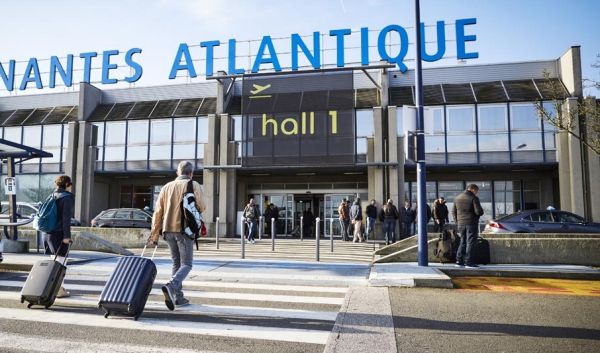
Après plusieurs semaines de travail, les experts ont fait un point d’étape le 26 septembre à Nantes, devant un auditoire de 200 à 300 personnes. Les deux études demandées par le gouvernement ont été esquissées ce jour là.
Suivant les fuites récentes voici les grandes lignes des options qui auraient été étudiées plus avant et leurs premières critiques
1- l’optimisation de l’aéroport de Nantes Atlantique : cette option comporte outre la rénovation de l’aéroport, la création d’une nouvelle piste. Mais alors que les opposants de l’aéroport de Notre Dame des Landes avaient estimé son coût à 175 millions d’euros, les auteurs du rapport ont chiffré cette optimisation dans une fourchette de 415 à 545 millions d’euros, soit un écart de près de 130 millions d’euros, soit entre 1/3 ou 1/4 du coût de l’estimation de base. Cela fait beaucoup quand même!
Les experts ont précisé que leur estimation a inclus, outre le coût des travaux, le manque à gagner pendant la fermeture de l’aéroport... Mais pourquoi donc prévoir une fermeture temporaire de l’aéroport ?
De mémoire, l’aéroport Saint Exupéry de Lyon qui a fait au cours de la dernière décennie l’objet de travaux d’extension et de modernisation importants, a continué de fonctionner pendant ceux-ci ?
l faudra que les experts s’expliquent sur ce point étrange !
Il faudra aussi qu’ils répondent sur le point de savoir s’il est vrai que le cap des 9 millions de passagers prévus initialement pour 2065 pourrait être franchi dès 2040 ?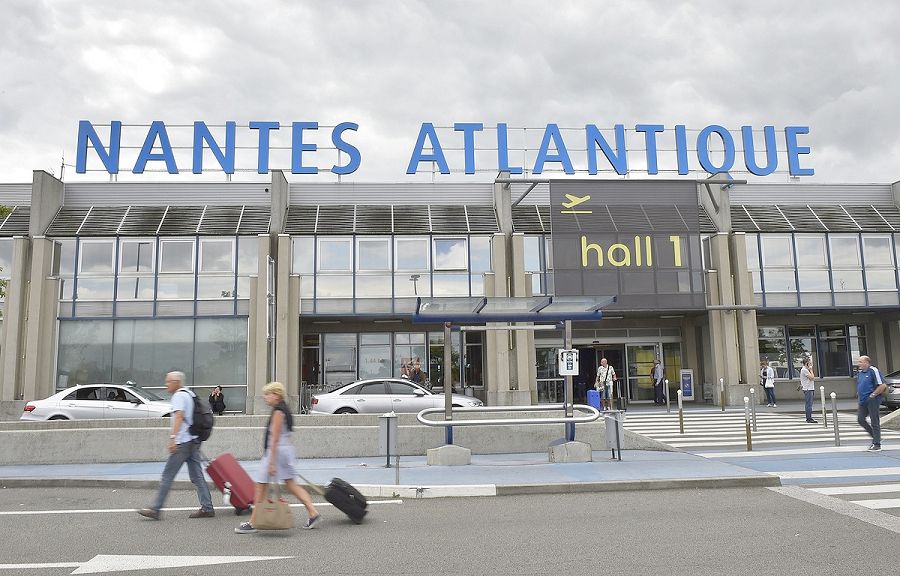
Il leur sera également demandé si l’allongement des pistes, dont le tracé devra éviter le survol des immeubles de Nantes, détruira comme certains le prétendent plusieurs zones humides ?
Ils pourront également confirmer si la solution de l’optimisation est celle qui s’en sort le mieux sur le plan de l’empreinte carbone ?
2- la construction d’un nouvel aéroport :
Prévu en 2010 pour accueillir 4 millions de passagers par an, la construction de Notre Dame les Landes aurait été estimée à 561 millions d’euros par les experts.
Les opposants prétendent que le coût final devrait être plus proche du milliard d’euros.
Les opposants indiquent déjà que le coût des nouvelles infrastructures pour accéder à l’aéroport n’a pas été chiffré sérieusement et que l’on ne sait toujours pas qui va les payer ?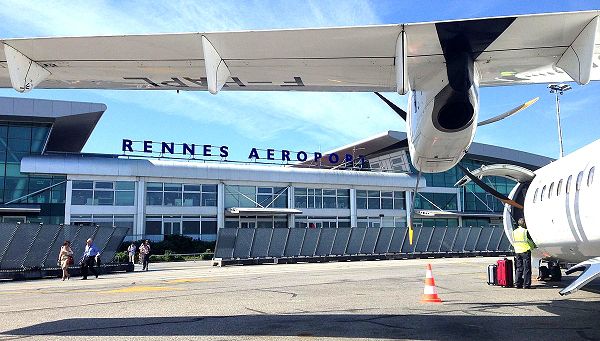
La décision du gouvernement va donc être difficile à prendre, face à un rapport qui semble ne pas avoir beaucoup éclairé les problèmes de coût, ni par voie de conséquence, par qui leur charge sera assurée.
Dans sa réflexion, il devra de surcroît tenir compte de facteurs extrinsèques au strict cout des travaux de bases, mais tout aussi puissants:
- comme ceux de l’évolution des volumes de fréquentations prévisibles, sachant qu’aujourd’hui le nombre de passagers de l’aéroport de Nantes Atlantique peine à atteindre les 3,5 millions de passagers par an, et qu’un objectif de 9 millions supplémentaires d’ici 40 ans ne serait qu’une fable.
- Comme ceux de savoir ce que l’on fait des aéroports de l’Ouest, notamment Rennes Brest. Si l’option retenue est celle de l’aéroport de Notre Dame des Landes, que se passera t il pour celui de Rennes distant de quelques 80 km de ce dernier ?
- Comme ceux de savoir, si le choix du gouvernement se porte sur l’aéroport de Notre Dame des Landes, ce qui va se passer dans le cadre de la libération du site.
Il faudra définitivement expulser « les zadistes » et les évacuer, au risque de provoquer une nouvelle fois des incidents graves.
Ces « zadistes » seraient aujourd’hui entre 200 et 300, prêts à devenir des martyrs et leur évacuation va être une affaire épineuse.
Ces opposants se sont organisés de façon quasi militaire et sont prêts à mourir pour la cause !
- Restera le problème de VINCI, l'entreprise avec laquelle le gouvernement précédent a signé de façon très imprudente un marché qui prévoit une clause de résolution. Si le projet est abandonné, cette clause résolutoire coûtera 280 millions d’euros à l’Etat ?
Il se pourrait alors que resurgisse une vieille affaire, révélée en son temps par Médiapart ; celle du préfet Bernard Hagelsteen, qui après avoir été en charge pour l’Etat de la concession de l’aéroport travaille aujourd’hui pour le groupe Vinci.
Le successeur de ce préfet a été Jean Daubigny, un proche de Manuel Valls, celui là même qui a envoyé les CRS déloger les opposants.
Pas très joli tout cela !
Voici 50 ans que Kafka règne sur ce dossier. Il y a 50 ans le développement urbanistique de Nantes n’était certainement pas celui constaté aujourd’hui et pour éviter tout ce saccage, il aurait probablement été possible de mieux prévoir.... et éviter que l’on fasse joujou avec l’argent des contribuables.
Mais ainsi va la vie publique en France !
|
|
|
|
|
|
|
|
| Clara Mitchell pour DayNewsWorld |
 |
There are no translations available.
G5 SAHEL : LA COURSE DU PRESIDENT MACRON
|
"Il nous faut gagner la guerre contre le terrorisme dans la zone sahélo-saharienne. Or elle bat son plein. Il y a des attaques chaque jour, il y a des Etats qui sont aujourd'hui menacés", a déclaré le président français Emmanuel Macron."Il faut donc intensifier l'effort (..) Nous avons un objectif simple qui est d'avoir des victoires au premier semestre 2018".
|
|
|
 La réunion internationale sur la Force commune du G5 Sahel a porté ses fruits . La réunion internationale sur la Force commune du G5 Sahel a porté ses fruits .
A Paris, le G5 Sahel trouve les moyens de ses ambitions. Dirigeants européens et africains se sont retrouvés mercredi à la Celle Saint-Cloud pour accélérer la mise en œuvre de la force régionale du G5 Sahel face aux djihadistes qui gagnent du terrain dans cette zone.
Le lancement effectif de cette force, baptisée FC-5GS par les militaires, achoppait encore sur le manque de fonds.
Les besoins de la force G5 Sahel (Mali, Niger, Burkina Faso, Tchad et Mauritanie) ont été évalués à 250 millions d'euros pour sa mise en place et à 400 millions pour la rendre pleinement opérationnelle.
L'Union européenne a confirmé mettre 50 millions d'euros sur la table pour financer cette force composée de troupes de cinq pays de la région, l'Arabie saoudite cent millions de dollars, les Emirats arabes unis, trente millions et les Etats-Unis 60 millions de dollars
La force antiterroriste du G5 Sahel a donc reçu mercredi de nouveaux soutiens financiers internationaux.. Le tour de table pourrait être bouclé lors d’une prochaine conférence prévue le 23 février à Bruxelles
La force du G5 Sahel, composée de soldats de cinq pays de la région (Mali, Tchad, Burkina Faso, Niger, Mauritanie) a effectué une première opération "exploratoire" en novembre mais doit monter en puissance pour atteindre au moins 5.000 hommes d'ici au printemps 2018. Le Niger a par ailleurs annoncé son intention d'ajouter deux bataillons, soit 1.600 hommes, aux effectifs du G5 Sahel.
Sur le plan opérationnel, les pays du G5 Sahel vont aussi "renforcer leurs efforts en priorité sur la zone centre (Mali, Burkina et Niger)", a expliqué Emmanuel Macron. Cela consistera en une "augmentation des effectifs engagés, un renforcement des postes de commandement, une planification accélérée des opérations, avec des objectifs au premier semestre 2018".
Les partenaires vont leur "donner les moyens et fournir les capacités", a ajouté la chancelière Angela Merkel en apportant équipements et infrastructures.La future force dispose déjà d'un quartier général à Sévaré, dans le centre du Mali, et de deux PC à Niamey et en Mauritanie.
Même si les jihadistes ne sont que quelques centaines - entre 500 et 800, selon les estimations - ils conservent cependant une forte capacité de nuisance
Surtout contre des Etats extrêmement fragiles tel le Mali dont le processus de paix tarde à se mettre en place. En effet le G5 devrait concentrer ses efforts sur le centre le Mali, où une rébellion à dominante peule, dirigée par Amadoune Koufa, gagne du terrain depuis près de deux ans. Ce combat ne pourra cependant être gagné sans qu'une ligne politique ne soit clairement définie. Or, c'est sur ce point que la lutte contre le djihadisme au Mali est la plus mal en point. Les accords d'Alger, signés en 2015, restent largement théoriques. Les négociations piétinent depuis des mois et rien ne laisse espérer une amélioration rapide.
Les jihadistes multiplient donc les attaques meurtrières contre l'armée malienne, ils étendent leurs actions dans le centre et dans le sud du Mali, au-delà des frontières avec le Niger et le Burkina Faso. Ces groupes jihadistes, certes dispersés lors de l'intervention française Serval en 2013, ont retrouvé un second souffle malgré la présence de 12.000 Casques bleus (Minusma) et de la force française Barkhane de 4.000 hommes dans la région.
"Nous sommes conscients que le temps nous est compté, qu'avec ce qui s'est passé au Moyen-Orient, avec la fin de la guerre en Syrie, il y aura un reflux (de jihadistes) vers nous", a dit Ibrahim Boubakar Keïta, président du Mali et du G5 Sahel.
D'où "l'urgence aujourd'hui à faire en sorte que les forces du G5 Sahel aboutissent rapidement à des résultats concrets", a-t-il indiqué avant d'insister. "Pour cela il nous faut tenir les engagements financiers que les uns et les autres ont faits".
Déclaration entendue. Mais au Mali de reconstruire une paix solide...pour des résultats concrets.
On notera cependant l'absence mercredi de l'Algérie, acteur majeur de la région.
La force conjointe du G5 Sahel (Mauritanie, Mali, Burkina Faso, Niger, Tchad) a pour objectif premier «d’éradiquer» selon le chef de l'Etat les groupes jihadistes qui continuent de frapper la région, mais a également pour mission de lutter contre le trafic de drogue, d’armes et de migrants à travers le Sahara. ..
Vaste mission qui pourrait à terme prendre le relais de l'opération «Barkhane»...
Mais ce mercredi, à La-Celle-Saint-Cloud, il aura été peu question de développement alors qu' Emmanuel Macron avait pourtant insisté sur la complémentarité «indispensable» des deux «volets».
|
|
|
|
|
| Joanne Courbet pour DayNewsWorld |
 |
There are no translations available.
LE ONE PLANET SUMMIT
LE VERDISSEMENT DE LA FINANCE OU
LE COUP DE COM DU PRESIDENT MACRON
|
|

Plusieurs dizaines de dirigeants sont réunis ce mardi à Paris pour donner un coup d’accélérateur au financement de la lutte contre le changement climatique.
Près de 4 000 invités sont conviés au « One Planet Summit » à La Seine musicale, le nouvel écrin culturel inauguré en avril sur l’île Seguin (Hauts-de-Seine).
Voilà deux ans que l’Accord de Paris visant à contenir la hausse de la température sous le seuil critique de 2°C a été signé.
Mais malgré les engagements pris par les Etats, rien ne change vraiment et Donald Trump a annoncé le retrait américain du pacte contre le réchauffement terrestre.
Triste nouvelle lorsque l'on sait que les Etats-Unis sont le deuxième émetteur mondial de gaz à effet de serre, derrière la Chine ! 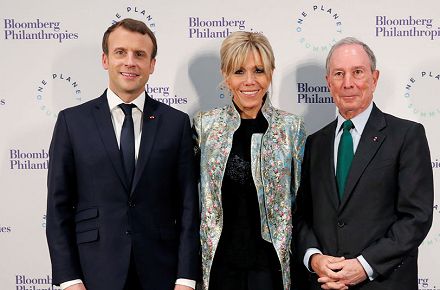
Concrètement pourquoi un tel sommet ?
Pour atteindre les objectifs déjà fixés par la COP 21 , il faut, on le sait déjà, de gros investissements financiers . Ce serait l’objectif du "One Planet Summit" :
"Une COP, c’est le consensus multilatéral, ce sommet, c’est la mobilisation de ceux qui veulent aller plus vite", explique Laurence Tubiana, économiste active de la COP21.
Or jusqu'ici pas plus de 50 grandes entreprises (Adidas, Allianz, Diageo, H&M, Philips, Unilever, Kering etc), ont publié une déclarationcommune pour "une action climat ambitieuse".
Comment inciter la finance privée et publique à aller dans la bonne direction ? En clair à ne plus investir dans les énergies fossiles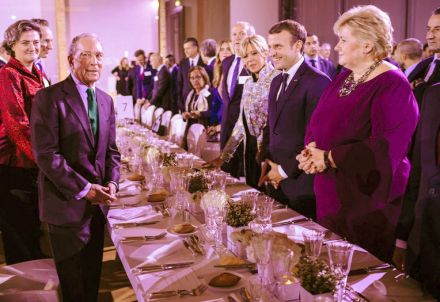
"BNP Paribas est le 41e plus gros financeur mondial du charbon, Société Générale le 45e et Crédit Agricole le 52e." rapporte un bilan des altermondialistes. Peut concluant !
Vers un "verdissement" de la finance ?
Les banques de développement et institutions publiques liées au G20 n'en prennent pas vraiment le chemin : elles dépensent annuellement 72 milliards de dollars dans des projets liés aux fossiles. Le Alors faut -il réorienter les capitaux vers les énergies vertes ?.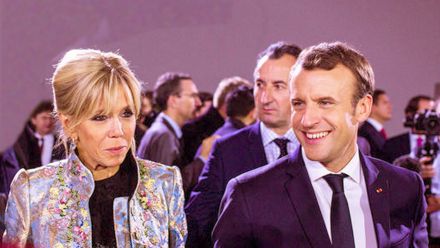
Selon Christian de Perthuis cela passerait par "le processus de labellisation de certains produits" dits verts : une labellisation modifiant le couple rendements/risques des produits. Ces derniers deviendraient ainsi moins coûteux et les financements plus nombreux.
Les besoins en financement d’infrastructures durables sont estimés à 90 000 milliards de dollars d’ici à 2030 par l’initiative New Climate Economy...
Le but de ce sommet est donc de convaincre les banques de développement, Etats, assurances, banques, fonds etc. à réorienter leurs capitaux en ce sens.
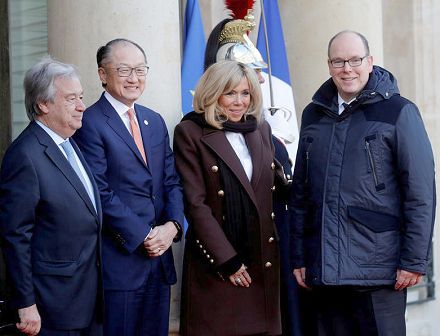 Mais ce sommet n’est pas une conférence des donateurs, insiste la présidence française !!! Mais ce sommet n’est pas une conférence des donateurs, insiste la présidence française !!!
Donc pour trouver d’autres sources de financement, l’idée brillante d’une taxe européenne sur les transactions financières, est revenue sur le tapis ...projet au point mort après des années de discussions. Le serpent de mer de la taxe sur les transactions financières européennes, que le président Macron assure vouloir relancer, ne figurera pas dans les déclarations.
Parmi les annonces nouvelles, une coalition de fonds souverains, avec la Norvège en chef de file, associe le Qatar, le Koweït, les Emirats arabes unis, l’Arabie saoudite et la Nouvelle-Zélande s’engageant à travailler ensemble pour verdir leurs portefeuilles.Mais aucun objectif chiffré.
Un « groupe de philanthropes », réunissant une dizaine de fondations, dont celles de Michael Bloomberg, Bill Gates ou encore Richard Branson, ont pris l'engagement d' augmenter la part de leurs actions en faveur du climat.
Du côté des investisseurs, une centaine de fonds d’investissement et de fonds de pensions, les américains CalPERS et BlackRock,et la banque britannique HSBC, « s’engagent à la transparence de leurs investissements climatiques vis-à-vis de l’ensemble de leurs actionnaires », explique-t-on à l’Elysée.
Mais en dépit des déclarations volontaristes du gouvernement aucun engagement ferme nouveaux.
Cet ensemble de mesures « comprend quelques initiatives intéressantes, beaucoup de choses recyclées et dénote une absence de volonté politique forte », déplore Armelle Le Comte, d’Oxfam France.
Une « douzaine d’annonces plutôt collectives », selon l’Elysée, devraient être rendues publiques mardi 12 décembre à la Seine musicale.
Constat amer du Président et joli coup de com: «On est en train de perdre la bataille», a-t-il martelé. Pour le président français, le compte n'y est pas. Les engagements pris il y a deux ans, lors de la Cop 21 à Paris, ne sont pas tenus !
|
|
|
|
|
|
|
|
| Andrew Preston pour DayNewsWorld |
 |
There are no translations available.
SANS SUSPENS VICTOIRE SALUEE DE
LAURENT WAUQUIEZ A LA PRESIDENCE
DU PARTI LES REPUBLICAINS (L.R.)
|
|
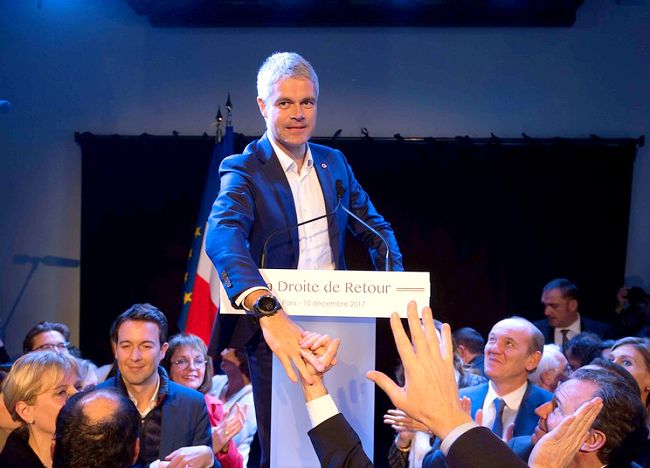 Ces élections à la Présidence du parti « Les Républicains » ont eu lieu, hier dimanche, 10 décembre 2017. Ces élections à la Présidence du parti « Les Républicains » ont eu lieu, hier dimanche, 10 décembre 2017.
La première incertitude du scrutin, résidait dans la participation des électeurs, tous obligatoirement militants de LR et à jour de leur cotisation.
A priori, ces élections ont eu lieu sans couac, tant sur le plan de son organisation que de son déroulement, suivies comme d’habitude par la Haute Autorité.
Si aucun des candidats n’avait obtenu 50%+1 voix, c’est à dire la majorité absolue, dès le premier tour, un second tour aurait du être organisé.
Or, au vu des résultats, cela ne sera pas nécessaire.
La « messe » a été dite dès le premier tour, et ceci quand bien même que Florence Portelli ait déclaré, au soir du scrutin « qu’elle entendait rester vigilante, parce qu’un tiers des militants ne s’étaient pas déplacés ».
Certes les militants sont, quelque soit le parti, considérés comme des individus plus engagés qu’un citoyen ordinaire, ce qui les inclinent plus à participer ; mais la remarque parait spécieuse, quand on se remémore le niveau de participation aux élections présidentielles de mai 2017 ou encore aux législatives de juin 2017.
L’équipe Wauquiez ambitionnait une participation aux alentours de 60 à 70 000 votants. Le pari a non seulement été tenu, mais les résultats ont été au delà de toutes les espérances : 99597 militants ont voté, soient en se déplaçant dans les bureaux de vote ouverts pour la circonstance, soient en votant par des moyens électroniques. Ce résultat a donné une légitimité immédiate à Laurent Wauquiez et ceux qui n’étaient pas, ou ne seront pas avec lui, en interne du parti devront très certainement en tirer les conséquences, d’eux-mêmes. On pense à Valérie Pécresse ou encore à Xavier Bertrand !
Les résultats définitifs sont les suivants :
Nombre de votants : 99 597
Laurent Wauquiez , élu : 74,64%
Florence Portelli : 16,11 %
Mael de Calan : 9,25%
Laurent Wauquiez était en droit de dire sa satisfaction dimanche soir et de constater que la Droite était de retour, bien vivante et mobilisée.
Dans sa déclaration, il a affirmé que non seulement elle était de retour, mais qu’elle était aussi «sereine et sûre de ses valeurs ». Il n’en demeure pas moins que Laurent Wauquiez va avoir tout à faire, tout à reprendre....probablement à abandonner le principe de l’organisation de primaires aussi stupides que celles qui ont eu lieu en décembre 2016, ceci tout en maintenant un vrai débat démocratique en interne. Pour cela, il faudra en passer par une réforme du statut. Maël de Calan, qui s’est aussi exprimé hier au soir comme Florence Portelli, a indiqué « qu’il fallait ouvrir le débat et qu’il jouerait tout son rôle dans ce cadre ».
Mais ce résultat d’élection, sans bavure ni contestation possible, à la présidence de LR, va pouvoir être entendue « comme un message d’espoir pour le futur » pour défendre selon Bernard Accoyer, Président par intérim sortant, « un vrai projet pour la France ».
Si Laurent Wauquiez n’était pas tout à fait un inconnu pour les Français, sa notoriété restait à faire vis a vis d’eux, selon ses détracteurs. Cette notoriété va désormais pouvoir évoluer.... à la hausse, espérons- le et peut être plus rapidement que prévu.
En revanche, dans les milieux politiques, plus restreints, Laurent Wauquiez est bien connu et ses gestes sont depuis longtemps suivis à la loupe. C’est le cas pour Emmanuel Macron et ses équipes qui ont déjà compris que Laurent Wauquiez allait être un concurrent sérieux pour l’avenir. Une vraie menace !
Cette hypothèse reste bien sûr à confirmer, mais il faut rappeler qu’Emmanuel Macron a été élu par défaut, face à Marine Le Pen au second tour de l’élection présidentielle.
A noter, dans le droit fil de cette remarque qu’Emmanuel Macron, a été sifflé samedi, lors du discours qu’il a prononcé à l’occasion des obsèques de Johnny Halliday. Sa notoriété ne semble donc pas aussi sûre que certains le prétendent..
Des sympathisants de Marine Le Pen comme d’Emmanuel Macron pourraient rapidement se rétracter, face à une nouvelle offre politique, jeune et énergique en la personne de Laurent Wauquiez. A 42 ans (alors qu’Emmanuel Macron en à 39 ans) Laurent Wauquiez va pouvoir jouer dans la cour des grands, à égalité de moyens par rapport au Président de la République.
L’avenir est donc plein d’espérance pour « Les Républicains » et leurs sympathisants, conduits désormais par leur nouveau champion.
|
|
|
|
|
|
|
|
| Clara Mitchell pour DayNewsWorld |
 |
There are no translations available.
POUTINE IV
A
LA PRESIDENTIELLE 2018
|
|
Le chef du Kremlin a officiellement annoncé son intention de briguer un quatrième mandat à la tête de la Russie
.Voici dix-sept ans qu'il dirige le pays. « La Russie continue d’aller vers l’avenir et personne, jamais, ne l’arrêtera. Oui, je vais présenter ma candidature » à l’élection présidentielle, a annoncé, mercredi 6 décembre, Vladimir Poutine devant les employés de l’usine automobile GAZ de Nijni-Novgorodune , rencontre retransmise en direct à la télévision. «C'est toujours une décision très importante pour n'importe quelle personne, car la motivation doit venir uniquement de la volonté de rendre la vie meilleure dans ce pays, de le rendre plus puissant, mieux protégé», a-t-il poursuivi.
D’une durée de six ans (depuis 2012), son nouveau mandat s’achèvera en 2024. Car personne ne doute de sa victoire. Au pouvoir depuis dix-sept ans, il a déjà dépassé Brejnev en devenant le dirigeant à la plus longue longévité au Kremlin après Staline.
Peu de concurrence périlleuse pour le scrutin prévu le 18 mars 2018 : son principal opposant, Alexeï Navalnya été condamné pour des malversations financières. La candidate Ksenia Sobtchak, fille de l’ancien mentor en politique de Vladimir Poutine, journaliste, figure de l’opposition libérale, candidate "Contre tous" à l’élection présidentielle inaugurait au même moment son local de campagne. Le second d’Alexeï Navalny est condamné à vingt jours de prison pour appel à un rassemblement illicite.
A Vladimir Jirinovski, président du parti nationaliste LDPR, candidat à l’élection présidentielle d'ajouter: « Aujourd’hui, Poutine et moi-même sommes les deux seuls candidats sérieux »
Viatcheslav Volodine, porte-parole du parlement russe, Russie Unie : "Cette décision de se présenter à un nouveau mandat inspire l’espoir et la certitude que nous continuerons de nous développer à l’avenir."
Natalia Poklonskaïa, députée de Crimée, égérie du mouvement conservateur religieux en Russie : "Je suis POUR Vladimir Poutine, et je tiens à dire que je ne fais confiance qu’à notre président qui nous a rendu notre patrie, restaure la Russie et aime son peuple."
Poutine IV n’est cependant plus tout à fait le même que Poutine I, que tant d'années passées au pouvoir ont transformé. Il n'est plus l’ancien officier du KGB prenant les rênes du pays en 2000.
Poutine, 65 ans, avait été élu président pour la première fois en 2000, réélu en 2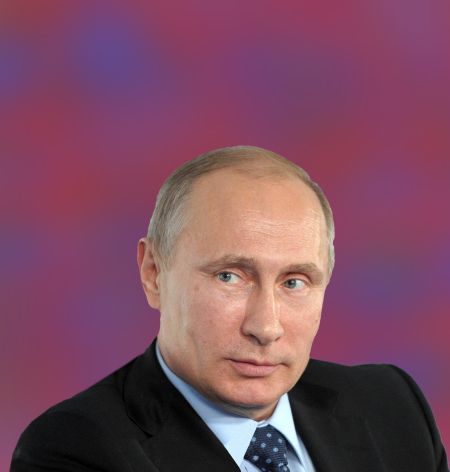 004. Il était ensuite devenu Premier ministre sous la présidence de Dimitri Medvedev en 2008, avant de reprendre son fauteuil au Kremlin en 2012. 004. Il était ensuite devenu Premier ministre sous la présidence de Dimitri Medvedev en 2008, avant de reprendre son fauteuil au Kremlin en 2012.
Vladimir Poutine incarne avec autorité l'ambition d'une grande Russie à la puissance retrouvée.
Arrivé au pouvoir en 2000 dans un pays au pouvoir instable et à l'économie chancelante, M. Poutine représente pour beaucoup l'homme de la stabilité et d'une nouvelle prospérité, grâce à une manne pétrolière conséquente pendant des années.
Sur la scène internationale, celui qui avait qualifié la disparition de l'Union soviétique de "plus grande catastrophe géopolitique du XXème siècle" s'est employé à restaurer l'influence de la Russie dans le monde, mise à mal après la chute de l'URSS et les années de Boris Eltsine.
Vladimir Poutine a redoré le blason de la "grande Russie" en annexant la péninsule ukrainienne de Crimée, après son occupation par des troupes russes et un référendum même s'il est jugé illégal par la communauté internationale.
La Russie est redevenue un acteur de premier plan sur la scène internationale en passe de gagner sa guerre en Syrie en soutien à son allié Bachar Al-Assad. L'intervention militaire de la Russie depuis 2015 en soutien au régime de Damas a changé le cours de la guerre et permis à Bachar al-Assad de rester au pouvoir.
Le président russe a aussi cherché à imposer son pays comme puissance sportive en organisant en 2014 les jeux Olympiques les plus chers de l'histoire dans la station balnéaire de Sotchi et en se se préparant à l'accueil en 2018 du Mondial de football.
Mais les rêves du Kremlin sont assombris par Malgré les accusations de dopage institutionnalisé depuis la sortie du rapport McLaren en 2016 et au lendemain de la décision du Comité international olympique d’exclure la délégation russe des JO d’hiver de Pyeongchang (Corée du Sud) en février, Vladimir Poutine reprend l'offensive : « La Russie continue d’aller vers l’avenir et personne, jamais, ne l’arrêtera. Oui, je vais présenter ma candidature ».
Une façon de faire passer un message clair : peu importent les critiques étrangères, du CIO ou de la presse occidentale, le Kremlin reste en charge et la Russie suit son chemin.
S'ajoute une exposition à la gloire de Poutine l'exposition «SuperPutin» qui a ouvert ses portes au sein du musée d'art contemporain de Moscou, l'UMAM. Elle met à l'honneur le président russe rendant un hommage appuyé à Vladimir Poutine par 30 œuvres mettant en avant un trait marquant dans la personnalité de celui qui est à la tête du pays depuis 2000.
Il ne manque certes pas d'organisations dénonçant un recul des droits de l'Homme et des libertés en Russie.
Les relations avec l’Occident, et en particulier les Etats-Unis, n’ont jamais été aussi tendues depuis la fin de la guerre froide...
A cause des sanctions occidentales et de la chute des cours du pétrole, le revenu par tête a baissé et le PIB a dégringolé pour retrouver son niveau de 2009 mais la réélection l’an prochain, garantie grâce à une popularité supérieure à 60 % selon les sondages, lui permettra de rester à la tête du pays jusqu’en… 2024..
,"Je viens d'une famille modeste, j'ai vécu très longtemps cette vie" raconte-t-il sur un site internet dédié à sa biographie. De cette jeunesse dans les rues de Léningrad, il déclara en 2015 avoir appris une chose: "Si le combat est inévitable, il faut frapper le premier". C'est la méthode de cet homme à poigne qui n'a pas peur des décisions difficiles!
|
|
|
|
|
|
|
|
| Joanne Courbet pour DayNewsWorld |
 |
There are no translations available.
BRAS DE FER ENTRE LAURENT WAUQUIEZ ET L' ETAT LE DUEL ENTRE EMMANUEL MACRON ET LAURENT WAUQUIEZ SERAIT- IL EN TRAIN DE COMMENCER
|
|
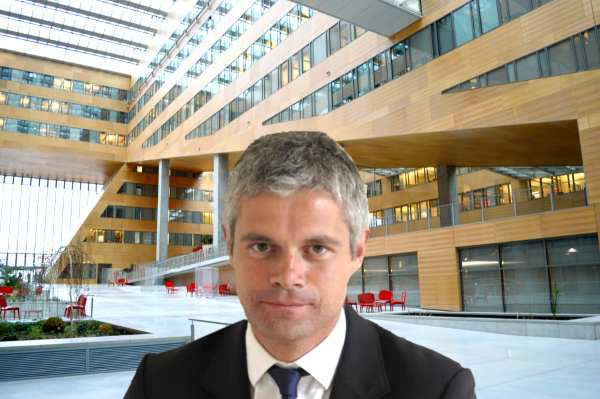 De la capitale des Gaules, sur laquelle règne depuis 2001 Gérard Colomb, actuel Ministre de l’Intérieur, Laurent Wauquiez a défié l’Etat Français. De la capitale des Gaules, sur laquelle règne depuis 2001 Gérard Colomb, actuel Ministre de l’Intérieur, Laurent Wauquiez a défié l’Etat Français.
L’épisode s’est déroulé à l’occasion de la dernière séance publique du Conseil Régional qui s’est tenu les 29 et 30 novembre 2017, au siège du tout neuf l’Hôtel de Région implanté dans le quartier de la Confluence, ceci avec conférence de presse simultanée.
Il est vrai que Laurent Wauquiez avait des raisons solides pour entrer en résistance publiquement. Le conflit avec l’Etat a des origines multiples :
1° Sur le sujet des « Crèches de Noël ». Le Président de la Région a qualifié cette péripétie de « caprice », en ajoutant que l’affaire « est une provocation à la laïcité ».
Ces déclarations suivaient la récente décision du Tribunal Administratif de LYON (en date du 6 octobre) qui avait annulée celle du Conseil Régional décidant d’installer une crèche dans le Hall d’entrée de l’Hôtel de Région. C’est au nom d’une laïcité radicale que la décision a été prise par les magistrats de la juridiction administrative lyonnaise, les motivations du jugement indiquant que la décision de la Région "méconnaissait le principe de neutralité (.....) et que le caractère culturel, artistique et festif invoqué par celle-ci n’étant pas démontré".
La Région Auvergne-Rhône Alpes a évidemment fait appel de cette décision judiciaire, rappelant à nouveau que les départements de la Drôme et de l’Ardèche accueillent des entreprises qui fabriquent des santons de toutes les formes et de toutes les couleurs. Rappelons que la Justice administrative, qui doit être la même pour tous, avait légalisé précédemment la décision du Conseil Départemental de la Vendée ...
Mais ont est en Vendée , un département certes très catholique mais aussi LE département qu’a présidé pendant de longues années Philippe de Villiers ...Effectivement, en son temps , alors qu’il n’était encore que Ministre de l’Economie et des Finances , Emmanuel Macron avait fait un « pieux pèlerinage » au Puy du Fou, après avoir évoqué de façon « très émouvante » Jeanne d’Arc et rappelé qu’autrefois la France avait un roi ...
Ces rappels, qui auraient pu indigner tous les « laicards » de France, n’avaient , de fait et secrètement , qu’un but : laisser entrevoir qu’il (Emmanuel Macron) pourrait comme Jeanne d’Arc sauver la France, et s’installer sur un trône ... présidentiel... Et comme prévu par Philippe de Villiers dans ses prédictions pour l’élection présidentielle de mai 2017, Emmanuel Macron fut élu Président de la République ; chez les de Villiers, Philippe adore Emmanuel Macron, alors que son frère, Pierre, « ne peut pas le saquer »...D'où l'épisode du 14 juillet 2017 !
2° Laurent Wauquiez a raison parce que le Tribunal Administratif de Lyon, toujours lui, risque d’annuler dans les prochains jours « la clause Molière » introduite par le Conseil Régional, sur proposition de son Président, dans les Cahiers des Charges des contrats signés entre la Région et les entreprises qui travaillent pour elle. Cette clause a été écrite, en Français, par le nouveau Conseil Régional issu des urnes en décembre 2015, « pour que soit assuré la bonne compréhension des consignes de sécurité par les travailleurs étrangers et aussi pour rendre plus difficile les recours à des travailleurs étrangers ». Bref ! pour dissuader le recours aux travailleurs détachés ! Emmanuel Macron ne professe pas autre chose !
Laurent Wauquiez défend toujours sa mesure, mais à l’audience publique qui s’est tenue récemment, le rapporteur public, qui est la voix de l’Etat et du gouvernement en place a conclu dans son rapport à l’annulation de la délibération critiquée.
Cette clause Molière est d’ailleurs déjà appliquée dans la Région Ile de France, présidée par Valérie Pécresse ... mais peut être pas pour longtemps, car le Conseil d’Etat a été saisi du problème. La Haute Assemblée a déjà déclaré que la décision « Pécresse » était illégale, et l’illégalité constatée devrait être appliquée sur tout le territoire français. En toute hypothèse les juges, « indépendants », du Tribunal Administratif, qui devraient se prononcer prochainement devrait tirer de l’avis du Conseil d’Etat leur propre décision. Attendons de voir le jugement qui sera proclamé. !..
3° Laurent Wauquiez a, une troisième fois, défié l’Etat et ceci juste avant le vote du budget 2018 (session des 29 et 30 novembre). Accompagné d’Etienne Blanc, Premier Vice Président de la Région, en charge des finances, Laurent Wauquiez, visiblement très contrarié, voire en colère, a protesté contre la baisse des dotations de l’Etat, allant jusqu’à mettre en cause le fonctionnement du Fonds de Soutien au Développement Economique dont les crédits sont destinés aux Régions ...
La critique est grave !
La perte totale de recettes à constater par la Région serait, pour 2018 de 91 millions d’euros !!
A ce propos, Laurent Wauquiez a rappelé que la « fameuse compensation à l’euro près » de la réforme de la taxe d’habitation n’était que billevisées puisque les compensions de l’Etat baisseront cette année encore de 10 millions d’euros. Le contrat de confiance (quelle ironie !) proposée par l’Etat aux collectivités territoriales est déjà rompu ! De contrat de confiance, il n’en est point , puisque sur le papier, les régions sont déjà obligées de réduire leurs dépenses de fonctionnement !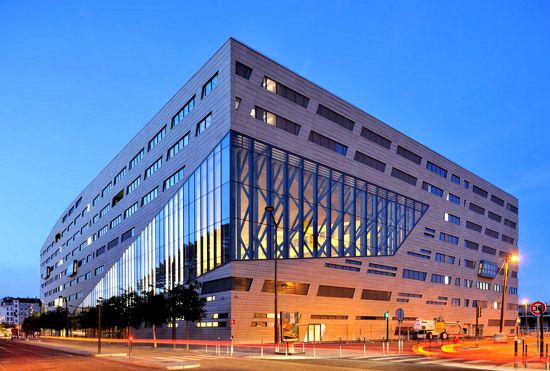
La baisse de 91 millions de recettes provoquée par le désengagement de l’Etat, pour la Région Auvergne Rhône Alpes, représente tout de même, le coût moyen de ... deux lycées...
Ces baisses de dotations ont même été déplorées par l’opposition régionale.
Laurent Wauquiez avait de toute évidence le beau rôle, lorsqu’il a rappelé que simultanément l’Etat ne s’impose pas les mêmes règles, les budgets des ministères ayant augmenté de 2%... et d’ajouter qu’en 2 ans, depuis qu’il dirige la Région, d’importantes économies ont été faites, ce que confirme le rapport publié le 17 octobre 2017 par la Cour des Comptes sur les finances des collectivités locales.
Dans son rapport la Cour a confirmé que la Région Auvergne Rhône Alpes était celle qui avait réalisé le plus d’économies sur son budget de fonctionnement et le plus d’efforts financiers pour l’investissement. « Quelle hypocrisie » conclut Laurent Wauquiez, qui ajoute que « le gouvernement voudrait nous mettre à la diète sans s’imposer les mêmes règles ».
Dans cette affaire, c’est bien évidemment le contribuable et les électeurs qui arbitreront dans les années à venir le match et qui choisiront le plus vertueux des deux : Laurent Wauquiez ou Emmanuel Macron ?
Le prochain rendez vous électoral aura lieu à l’occasion du renouvellement des députés européens. Les élections européennes vont avoir lieu en même temps dans tous les pays de l’UE, le 25 mai 2019. Elles précéderont les élections municipales qui auront lieu l’année suivant, en 2020.
Les élections européennes ont commencé à faire débat, le gouvernement ayant fait part de son intention de modifier le mode de scrutin, en abandonnant le principe des listes régionales pour revenir à des listes nationales.
Gageons que dans cette hypothese Laurent Wauquiez pourrait prendre la tête d’une liste nationale surtout s’il venait à être élu à la Présidence des Républicains courant décembre 2017.
Ces hypothèses ont très certainement été celles retenues par le Figaro Magazine, du 1er décembre qui titrait, sur fond d’une photo en noir et blanc, de Laurent Wauquiez : « Et si c’était lui ? »
Cette hypothèse semble tétaniser Emmanuel Macron qui, comme cela vient d’être démontré, n’est pas près de lui faciliter la tâche. Selon les experts, Emmanuel Macron « s’adapte au danger permanent que représente Laurent Wauquiez » (Didier Geoffroy, son directeur de campagne pour les élections des Républicains). Les deux sont de la même génération.
En tout état de cause, et pour l’immédiat, ce sont les élections internes chez les Républicains qui sont scrutées. Le tribun Wauquiez s’exprime régulièrement devant les militants. Les salles sont pleines à craquer. Un bon signe, puisque ce sont les militants qui vont voter.
PS : Privé de crèche par la Justice, Laurent Wauquiez vient de présenter une exposition de santons de Provence dans l’Hôtel de la Région, ces derniers jours....
|
|
|
|
|
|
|
|
| Clara Mitchell pour DayNewsWorld |
 |
There are no translations available.
L'AUDIOVISUEL PUBLIC
"LA HONTE DE LA REPUBLIQUE"
SELON EMMANUEL MACRON
|
|
 Pour Emmanuel Macron, l'audiovisuel public est "la honte de la République" alors qu'il a été adulé par certaines chaînes pendant sa campagne présidentielle n'hésitant pas au passage à avoir quelques intérêts avec une chaine.. Pour Emmanuel Macron, l'audiovisuel public est "la honte de la République" alors qu'il a été adulé par certaines chaînes pendant sa campagne présidentielle n'hésitant pas au passage à avoir quelques intérêts avec une chaine..
Mais le chef de l'Etat a parfois la mémoire courte et assuremment un sacré culot !.
Donc le chef de l'Etat aurait prononcé cette phrase en marge d'une rencontre avec les députés de la commission des affaires culturelles de l'Assemblée nationale...
Si Emmanuel Macron ne porte pas l'audiovisuel public dans son cœur , il en a égrainé les motifs :
il dénonce leur mauvaise gestion, la médiocrité des contenus qu'elles proposent mais aussi les relations pernicieuses qu'elles entretiennent avec leurs partenaires extérieurs (animateurs, producteurs...). Questionné par un député sur la question des fake news, il a répondu que les journalistes n'ont pas fait le travail d'éthique nécessaire sur le sujet. Il a condamné le mode de nomination des présidents de ces entreprises par le CSA. Une fois nommés, les intéressés n'ont de compte à rendre à personne.
Le gouvernement d'Edouard Philippe planche actuellement sur un véritable big bang concernant l'audiovisuel public composé de France Télévisions, Radio France, France Médias Monde, Arte et l'INA.
Le président a déjà imposé 80 millions d'économies dès 2018 à l'audiovisuel public pour une réforme en profondeur : des suppressions de chaînes, des fermetures de bureaux en région, un regroupement des entreprises au sein d'un seul et unique holding une révision de gouvernance et du mode de nomination des patrons.
Mais pourquoi réduire par exemple la fréquence de diffusion des magazines d'information "Envoyé spécial" et "Complément d'enquête" sur France 2 ? Les journalistes de France Télévisions étaient montés au créneau pour protester contre cette perspective. Le mot-dièse #TouchePasAMonInfo a émergé sur les réseaux sociaux en soutien aux journalistes enquêteurs...
Le programme d'En marche ! affichait sa volonté de rapprocher "les sociétés audiovisuelles publiques pour une plus grande efficacité et une meilleure adéquation entre le périmètre des chaînes et leurs missions de service public". . "Leurs conseils d'administration seront plus indépendants et plus ouverts dans sa composition. Ils seront chargés de designer les dirigeants, après appel public à candidatures", annonçait ainsi la plateforme.
Le futur président de la République avait aussi fait savoir sa volonté d'accélérer la "transformation
numérique" de l'audiovisuel public "en concentrant les moyens sur des chaînes moins nombreuses mais pleinement dédiées à leur mission de service public".
Cette violente diatribe contre l'audiovisuel intervient alors qu’un document de travail du ministère de la Culture a fuité qui prévoie des réductions drastiques d’effectifs.
La présidente Delphine Ernotte présentera le 21 décembre au conseil d'administration du groupe un vaste plan de réduction des dépenses, passant notamment par la suppression de 180 postes à la faveur de départs à la retraite.
Ce plan suscite l'inquiétude chez les salariés et Delphine Ernotte est sous la menace d'une motion de défiance des journalistes.
Emmanuel Macron aurait enfin souligné que la situation de l'audiovisuel public ne pouvait se résumer ni à une question de personnes, ni à une question d'économies.
|
|
|
|
|
|
|
|
| Andrew Preston pour DayNewsWorld |
 |
There are no translations available.
BRIGITTE MACRON A BAPTISE LE BEBE PANDA
|
|
 Brigitte Macron a baptisé le bébé panda de Beauval. Brigitte Macron a baptisé le bébé panda de Beauval.
Le premier bébé panda né en France a désormais un nom. Il est né le 4 août et s'appelle Yuan Meng qui signifie «réalisation d'un rêve».
Etaient présents le vice-ministre des Affaires étrangères chinois Zhang Yesui et l'ambassadeur de Chine en France Zhai Ju, l’ex-Premier ministre Jean-Pierre Raffarin, grand amoureux de la Chine, tout comme Jean-Baptiste Lemoyne, secrétaire d'État auprès du ministre de l'Europe et des Affaires étrangères.
Brigitte Macron a prononcé son premier discours en tant que Première dame. «Il est dans la vie des bonheurs simples dont la profondeur vous étonne, c’est précisément ce que je viens de vivre en rencontrant Yuan Meng», a-t-elle introduit à la tribune. «Yuan Meng est né ici tout en étant d’ailleurs. Il est le fruit énergique et vigoureux de l’amitié franco-chinoise, de cette amitié solide où il est possible de confier ce qu’on a de plus cher à quelqu’un dont on sait qu’il en prendra soin comme de lui-même. C’est cela qui a été fait ici à Beauval», a poursuivi la marraine du bébé panda remerciant la famille Delord, propriétaire du zoo.
Brigitte Macron a adressé un message à la Première dame chinoise, Peng Liyuan, absente de la cérémonie : « Je suis heureuse de vous transmettre toute mon amitié et de vous dire, madame, merci et à bientôt», a déclaré Brigitte Macron avant de tenter quelques mots en chinois - elle a dit «Je vous remercie» - pour «saluer la pérennité de l’amitié entre la France et la Chine». Brigitte Macron accompagnera son mari pour un voyage officiel en Chine début 2018
À première vue, l'événement peut sembler anecdotique. Mais il est en réalité éminemment politique et diplomatique.
«Cette naissance exceptionnelle, nous l'attendions depuis longtemps, après plusieurs tentatives», s'est ainsi félicité Rodolphe Delord, le directeur du parc zoologique.
La première dame a dit de cet événement qu'il était «l'illustration du dialogue toujours fécond entre nos deux peuples qui se regardent, s'écoutent et se comprennent depuis deux siècles».
|
|
|
|
|
|
|
|
| Carl Delsey pour DayNewsWorld |
 |
There are no translations available.
DE L'OPTIMISME AVEC BARACK OBAMA
|
|
Avec cette tournée internationale - justement, en Chine, en Inde et en France- Barack Obama est porteur d'un message essentiel : rappeler au monde que l'Amérique est toujours là porteuse d'un message d'optimisme.
C'était d'ailleurs le thème ambitieux «ne pas avoir peur et innover» de la soirée à l'auditorium de Radio France pour une conférence devant le «réseau social» des Napoléons, une «communauté» de 3000 Français passionnés d'innovation.
Un sujet, celui de sa campagne de 2008 : «l'audace de l'espoir».
«Le rythme de la globalisation et du changement technologique ont ébranlé le monde, les défis de notre temps ont créé des tensions et des inégalités énormes», selon l'ancien président démocrate. «Les gens veulent être rassurés, il était donc inévitable que nos politiques et nos modèles sociaux soient bousculés», poursuit Barack Obama
Il a en tête sans doute son successeur dont il ne prononcera jamais le nom mais aussi les nationalismes en Europe et dans le monde.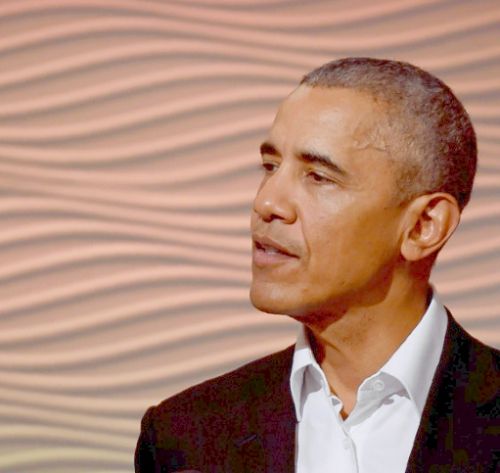
«Certains contre-récits ont gagné en puissance ces derniers temps, des gens qui disent que la force fait la loi, que les normes et les règles peuvent être ignorées… La question est de savoir si nous pourrons rebâtir nos arrangements institutionnels de manière à ce que le changement serve tout le monde afin que nous puissions rejeter le nationalisme et la xénophobie, et réaffirmer nos valeurs de pluralisme et de démocratie…», poursuit-il.
Il faut remplacer «la peur par l'espoir», dit Obama lucide de cette époque « la meilleure et la pire des époques» . «Je dis à mes filles que malgré tous ses tourments, le monde n'a jamais été aussi prospère», ajoute-t-il appelant aussi à la méfiance envers la désinformation et le rôle des réseaux sociaux.
Il loue «le projet européen» » tout en critiquant sa volonté de « micromanagement » .*
« L'Union européenne doit être préservée. Mais elle doit comprendre qu'essayer de micro-gérer chaque détail de la vie des citoyens énerve les gens. Il y a du nettoyage à faire. Les leaders européens sont un peu timides dans la défense du projet européen et dans la défense de leur démocratie. ». Il insiste sur la nécessité de collaborer entre nations, et notamment entre les États-Unis et ses alliés européens. Paris lui a déroulé le tapis rouge... Il évoque l'accord climat, signé l'an dernier à Paris. «Je vous concède qu'il y a une absence temporaire de leadership sur cette question» .
Le discours en faveur de l'Europe frappe chez un président américain étant, à ses débuts, plutôt indifférent au continent européen, et regardant du côté du Pacifique favorable qu'il était alors à un pivot vers l'Asie.
Le discours a martelé le même thème: l'espoir, la coopération internationale, la lutte pour les cause justes.
L'ancienne «rock star» de la politique américaine, après son discours, se prête à l'interview avec Stéphane Richard, le patron d'Orange et "parrain" des Napoléons.
Il dit sa peur de GAFA trop puissants…quoique américains, sa peur du changement climatique, de la prolifération nucléaire et des pandémies.
Mais il dit aussi sa confiance que «tout cela peut être géré, qu'on trouvera des solutions».
Rien de décisif en revanche sur les défis du terrorisme islamique ou les grandes migrations.
«La démocratie est difficile, les gains que nous faisons sont fragiles, mais je suis persuadé que l'avenir n'appartient pas aux hommes forts», affirme l'ancien président
« Cette histoire ensemble, ces efforts ensemble, démontrent le pouvoir de nos valeurs. Cela nous donne une confiance, mais cette confiance ne doit pas nous faire nous reposer sur nos lauriers. L'autosatisfaction n'est pas ce qui marque les grandes nations. Nous devons maintenir nos idéaux. Si nous commençons à douter de nous-mêmes, si nous remettons en question ce que nous avons obtenus dans l'ordre international depuis plusieurs décennies, nous allons ouvrir la porte à ceux qui disent que les démocraties ne fonctionnent pas, que l'organisation sur des bases ethniques et le tribalisme sont les réponses aux défis d'aujourd'hui."
Les Etats-Unis doivent montrer l'exemple et la puissance américaine ne sera que renforcée par la sécurité et la prospérité des autres. « Les Etats-Unis ne peuvent pas fonctionner isolés ; ils ont besoin d'un partenaire puissant comme l'Europe. J'ai eu la chance de travailler avec Angela Merkel, David Cameron, les présidents Nicolas Sarkozy et François Hollande. »
Voilà pourquoi il s’était fixé des objectifs ambitieux comme le Traité Trans-Pacifique, l'Accord de Paris sur le Climat ou encore l'Accord avec l'Iran sur le nucléaire.
Il s'agit de la défense d'une vision de l'ordre international : libéral, ouvert, équitable, avec des normes à respecter par chacun.
"La démocratie est difficile à maintenir. Je suis convaincu que le futur est de notre côté si nous faisons passer les valeurs que nous chérissons."poursuit-il.
"Seriez-vous un meilleur président aujourd'hui?", demande Richard. "Probablement, oui. J'étais meilleur à la fin. Mais ma femme me quitterait. Non, je n'y tiens pas. J'adore mon épouse." .
|
|
|
|
|
|
|
|
| Joanne Courbet pour DayNewsWorld |
 |
There are no translations available.
LE LOTO UNE SOLUTION POUR SAUVER
LE PATRIMOINE HISTORIQUE FRANCAIS
|
|
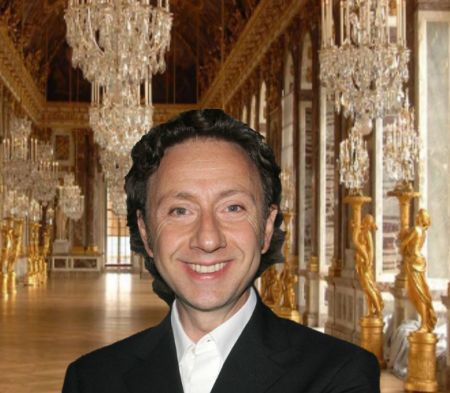 Comment financer les opérations de sauvetage du patrimoine français ? Comment financer les opérations de sauvetage du patrimoine français ?
Le débat a été mis sur la place publique, à l’occasion de la nomination de Stéphane Bern au poste de « Monsieur Patrimoine », crée pour lui et à sa mesure, par Le Président de la République, Emmanuel Macron.
A cette occasion, Stéphane Bern a demandé que soit mis en place un plan d’urgence pour la Défense du Patrimoine, qui, selon lui, doit devenir rapidement une cause nationale.
Cette nomination n’a pas fait l’unanimité, c’est le moins que l’on puisse dire !
Néanmoins, la Défense du Patrimoine est une cause à laquelle de nombreux français se sont déjà dévoués depuis longtemps, à titre individuel ou collectif (associations, Fondations etc.) alors que parallèlement, depuis la loi Malraux du 4 aout 1962, et malgré quelques rustines, rien d’important en matière de protection du Patrimoine n’a été ajouté aux politiques publiques mises en place dans les années 60.
Il apparait donc nécessaire aujourd’hui de reprendre le dossier et d’y ajouter des solutions neuves et supplémentaires pour dégager les enveloppes de financements qui, avec les nouvelles avancées technologiques et l’exceptionnelle qualité de la main d’œuvre, sont de plus en plus importantes
Malgré ce constat, cela fait donc 54 ans que bon gré, mal gré, ici ou là, ont été rénovés des centres villes historiques, des châteaux anciens, des abbayes etc..(Sans oublier le petit patrimoine : ponts, lavoirs, halles etc.) et ceci soit à l’initiative d’investisseurs privés soit à celle d’investisseurs publics.
Mais la France est un vieux pays, aux racines historiques très diverses. Au fil des ans et des siècles, les constructions religieuses ou civiles se sont accumulées, strates par strates, styles après styles, déployant ainsi sur l’ensemble du territoire des constructions d’une extrême richesse architecturale, une richesse à laquelle les français sont attachés. C‘est leur patrimoine ! celui de la Nation France.
Le recensement de ces joyaux architecturaux a révélé qu’à ce jour c’est quelques 44 000 monuments historiques qui ont été protégés d’une façon ou d’une autre.
Dans ce chiffre 9000 sites classés, inscrits ou à inscrire sont dans un état de délabrement avancé et c’est dans le patrimoine rural que leur nombre est le plus élevé ; 25% de ces joyaux nécessitent des restaurations plus ou moins rapides.
Or chacun sait que les petites communes rurales n’ont pas les moyens pour entretenir leur patrimoine historique, pas plus d’ailleurs qu’un grand nombre de propriétaires privés qui sont obligés de trouver des trésors d’idées et de trouvailles pour , chaque année, récolter l’argent nécessaire à leur entretien.
Et bien souvent cela ne suffit pas !
Le développement du tourisme a accéléré ces tendances. Chaque année, quelques 83 millions de touristes étrangers découvrent avec enthousiasme les richesses patrimoniales de la France et c’est en milliards d’euros que se calcule le chiffre d’affaire dégagé par l’accueil des touristes sur le sol français.
Ne pas suivre et accompagner cette tendance seraient une faute !
Jusqu’à présent, en dehors des billetteries ou des spectacles d’animations, c’est dans la poche du contribuable que l’argent a été trouvé. Le système a démontré néanmoins ses limites, compte tenu du niveau d’endettement du pays.
Les enveloppes financières sont en effet considérables. A titre d’exemple la refonte d’un musée de Reims a coûté près de 45 millions d’euros ; simultanément la ville a du trouver 5 millions d’euros pour restaurer, la seule, mais somptueuse Rosace de la Cathédrale, celle où les rois de France se faisaient couronnés et « oindre ».
Parmi les piste explorées ont trouve le Mécénat. Le mécénat s’est développé sur le principe de la carotte fiscale bien calculée pour que tout le monde y trouve son compte.
Cette piste intéressante à permis « aux Riches » voire à ceux qui sont devenus, par l’accumulation des richesses, années après années « très Riches » de s’engager dans des programmes de sauvetage du Patrimoine auxquels ils ont associés leur noms.
C’est l’exemple américain qui a ouvert cette voie, entretenue par une réflexion sur l’inanité de la quête du toujours plus...L’encouragement fiscal associé à la générosité prend dans ce cas la forme d’un acte civique ou moral... rassurant et revalorisant. De plus, mieux vaut investir dans le mécénat plutôt que payer des impôts !
Sauf que dans cette voie Emmanuel Macron n’a pas lancé « aux riches », dans ses premiers mois de mandat et ses premières réformes, un appel, qui aurait pu être associé à la Réforme de l’ISF ! Un acte manqué malheureusement !
Une autre solution a été dernièrement suggérée par Stéphane Bern : faire financer l’entretien des églises ou des cathédrales, propriétés de l’Etat ou des collectivités publiques depuis la loi de Séparation de l’Eglise et de l’Etat de 1905, au moyen de recettes de trésorerie procurées par une billetterie.
La plupart des églises en France étant consacrées, et donc lieu de culte, l’idée a suscité des remarques sévères et un rejet presque généralisé de part d’un grand nombre de pratiquants.
Les églises sont au demeurant accessibles à tous, gratuitement depuis toujours, dans le respect du bon déroulement des cérémonies religieuses !
La Ministre de la Culture, Françoise Nyssen, vient de lancer une autre idée : elle songe au Loto, un jeu à succès, accessible à tous, mais plus spécifiquement aux acharnés du grattage. Ironie de l’Histoire, qui bégaie :
le Loto, qui vient du mot italien Lotto (dont la racine est « lot/lotir ») était autrefois un impôt extraordinaire perçu au travers d’un jeu de hasard .
On en revient indirectement à une solution fiscalisée... volontaire ou non....pour sauver un patrimoine qui prend « l’eau » (et non lot) de plus en plus souvent. Ce loto patrimoine devrait être mis en place dès 2018. Affaire à suivre...
|
|
|
|
|
|
|
|
| Clara Mitchell pour DayNewsWorld |
 |
There are no translations available.
LA SURVIE POLITIQUE D'ANGELA MERKEL
|
|
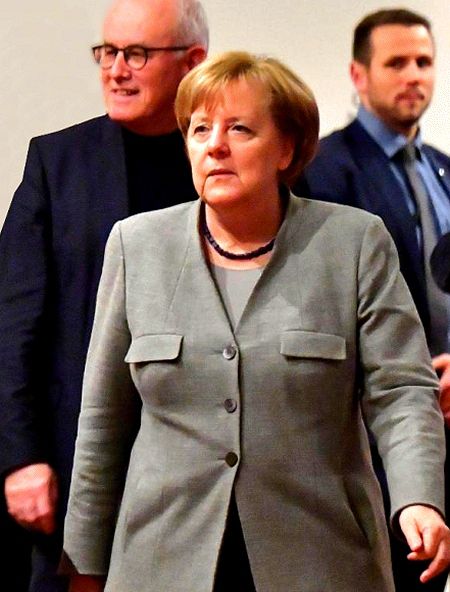
Dimanche soir les négociations pour la formation d'un gouvernement patinent toujours. Angela Merkel joue sa survie politique.
L’issue était encore incertaine dimanche soir. Nouveau report de cette «table ronde», échec total.
Après un mois de négociations, les différents partis de la possible coalition d’Angela Merkel – sans précédent au niveau fédéral – restaient toujours en désaccord sur les grandes lignes de la ligne gouvernementale de la prochaine législature.
La pomme de discorde entre le FDP, les Verts et la CDU-CSU porte sur la politique migratoire pour l'essentiel.
Pour éviter le désastre, les écologistes ont fait des concessions en acceptant la limite du nombre de réfugiés à 200 000, un douloureux compromis qui doit être avalisé par les militants le 25 novembre.
Mais le chef des Verts, Cem Özdemir, a exigé que les conservateurs cèdent en contrepartie sur le regroupement familial suspendu lors de la «crise es réfugiés».
Les écologistes (Die Grünen), qui ne sont jamais arrivés à s’accorder sur la réintroduction, en mars 2018, du droit au regroupement familial .
Entre 100 000 et 200 000 personnes pourraient en bénéficier en 2018.
Pour les ultraconservateurs de la CSU, la branche bavaroise du parti de Merkel, ce serait un suicide électoral, alors que l’extrême droite a battu des records en Bavière, terre conservatrice, aux élections de septembre.
Viennent s'ajoutait les luttes de pouvoir internes à la difficulté des négociations.
En effet le président de la CSU, Horst Seehofer, est très contesté tout comme la chancelière Angela Merkel à la CDU.
Un échec signifierait de nouvelles élections et sans doute la fin de la carrière politique de la chancelière et du patron de la CSU.
|
|
|
|
|
|
|
|
| Joanne Courbet pour DayNewsWorld |
 |
There are no translations available.
AVEC UN TICKET DE TYPE COREE DU NORD
LA DEMOCRATIE SEMBLE
NE PAS BIEN MARCHER CHEZ LREM
|
|
L’annonce de la démission de 100 membres (dont des députés) de LREM (La République en Marche) a fait l’objet d’une bombe.
Certes, on avait déjà entendu quelques protestations, contestations, divergences d’analyses, mais il avait été convenu que ces incidents, jugés isolés et particuliers, ne méritaient pas que l’on s’y attarde.
En fait, ces 100 membres démissionnaires ne sont pas contents, mais pas contents du tout !
Ils ont exprimé leur mécontentement dans une tribune diffusée mardi 14 novembre 2017. Leurs noms n’ont toujours pas été révélés ; mais en démissionnant ainsi ils entendent protester publiquement contre « le manque de démocratie interne chez LREM. ».
 Dans cette tribune ils ont même été jusqu’à dénoncer « les violences qui règnent à l’intérieur du parti », des violences souvent suivies « de menaces ». De plus, les démissionnaires anonymes craignaient « des représailles ». Dans cette tribune ils ont même été jusqu’à dénoncer « les violences qui règnent à l’intérieur du parti », des violences souvent suivies « de menaces ». De plus, les démissionnaires anonymes craignaient « des représailles ».
Au travers de leur déclaration, ces marcheurs ont expliqué que contrairement à la Chartre du Mouvement publiée en octobre 2017, laquelle stipule que le mouvement s’engage à respecter les règles de la République, à respecter les règles élémentaires de la courtoisie, à s’engager à ne commettre aucune discrimination ou abus de pouvoir( ?) à se dresser contre les corporatismes, à transcender les intérêts particuliers et à croire à l’intérêt général, LREM était tout sauf bienveillant et empathique. Et pourtant la Chartre a été conçue comme le socle des valeurs défendues par le mouvement.
Avant de s’engager dans l’acte extrême qu’est une démission, ces marcheurs en colère ont rappelé qu’ils ont tout tenté pour « instaurer le dialogue » et sollicité (mais en vain) une médiation. Ils dénoncent le manque d’écoute, une des valeurs primordiales pourtant affiché par le mouvement crée par Emmanuel Macron.
La « désignation » avant l’élection, selon les bonnes vieilles méthodes du passé, de Christophe Castaner comme Chef du Mouvement, n’augure rien de bien, selon les démissionnaires et laisse peu d’espoir pour un futur fonctionnement démocratique du parti.
Christophe Castaner réfute bien sûr ces attaques, revendiquant l’adhésion de quelques 170 000 adhérents supplémentaires depuis l’élection à la Présidence de la République d’Emmanuel Macron, lesquels ayant voulu se débarrasser des oripeaux de l’ancien régime, on eut envie d’une organisation « démocratique dynamique ».
Les ténors majoritaires du parti, sont simultanément montés au créneau, pour relativiser l’événement qu’a constitué cette démission de 100 adhérents et dénoncer une tentative de déstabilisation.
Le parti est néanmoins en pleine crise de nerfs dans une ambiance générale morose et c’est dans cet état que va se dérouler le Congres de Lyon. Lyon la capitale de la macronie ! Lyon a été en effet avant l’heure, grâce à son sénateur-maire, Gérard Collomb qui a beaucoup soutenu Emmanuel Macron, une ville macroniste.
Le Conseil National de LREM (et non le Congrès, c’est ainsi que le désigne le nouveau parti qui veut marquer sa différence) va parait-il adopter, ce weekend, « les nouvelles valeurs du mouvement », désigner son délégué général, Christophe Castaner, (le toujours actuel Secrétaire d’Etat aux Relations avec le Parlement et porte parole du Gouvernement) et le bureau exécutif du mouvement?
Edouard Philippe, le Premier Ministre devrait prendre la parole. On attend aussi François Bayrou, qui a été invité.
Reste à savoir devant combien de participants ? (l’élection de Christophe Castaner s’est passée ce matin à huis clos, il a été difficile d’obtenir des informations précises).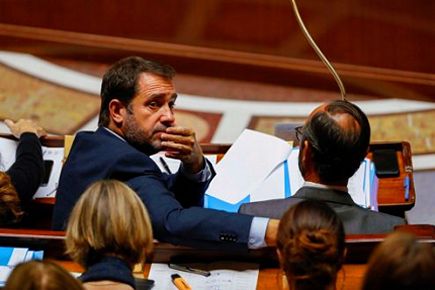
Car, plusieurs parlementaires trainent les pieds depuis plusieurs semaines. Certains se sont même étranglés en recevant « leur convocation ».
La vitalité militante des premiers jours s’est peu à peu affaissée, et même si en Aout 2017, le député macroniste, Arnault Leroy et membre du triumvirat qui a assumé provisoirement la gestion de En Marche, comptait près de 400 000 militants, le chiffre est impossible à vérifier et le doute a commencé à s’installer. Il se dit qu’ont été comptabilisés comme adhérents, toutes les personnes ayant communiqué, pour une raison ou une autre, leur adresse @mail. L’astuce est grossière !
En fait, le parti comptait 72 066 personnes, le 17 aout 2017. Le chiffre est issu de la comptabilisation des personnes ayant votées les statuts. LREM ne serait donc au final que l’un des partis présidentiels les plus riquiqui de la Vème République.
Il y aurait dans les faits, une véritable désaffection depuis quelques semaines, au fur et à mesure de l’apparition des dissensions. Les comités locaux se sont vidés et certains animateurs ont été jusqu’à se trouver seuls lors de certaines réunions locales. L’activité militante est au point mort ; une adhérente de Marseille aurait confié récemment qu’elle avait réalisé, trop tard, « qu’elle (ils) avait(ent) été des marionnettes, le temps de l’élection, car une fois terminée, ils n’ont plus eu besoins de nous ». Un autre adhérent dénonce les problèmes « autour de l’argent : même le pognon est virtuel ; grâce à ses parlementaires, la formation va percevoir 100 millions d’euros pour le quinquennat ; mais le trésor reste à Paris ; il sert à payer les 80 permanents qui ont été recrutés, en revanche les bénévoles sont taillables et corvéables à merci » dit-il. Une animatrice locale d’un département francilien, furibarde, a écrit dans un long @mail interne que : " l’audace et la bienveillance qui ont caractérisé la démarche de notre candidat (Macron) ont laissé place à l’arrivisme, la pusillanimité, à la servitude et à la défiance ».
Un propos qui pourrait être compris comme voulant épargner le responsable en tête, Emmanuel Macron, dans les dérapages constatés ; sauf que sachant aujourd’hui que c’est lui qui a choisi Christophe Castaner comme délégué général du mouvement (et que le vote d’aujourd’hui n’a été qu’une ratification), c’est bien lui qui est visé.
Toutes ces critiques se sont confirmées à l’occasion du débat entre les 4 listes de candidats à l’exécutif du mouvement, diffusé sur BFMTV. Selon RTL, le nombre de spectateurs qu’ont réuni sur Internet les débats qui s’est déroulé il y a deux jours, (deux jours avant le congrès) n’a pas dépassé les 270.
En toute hypothèse, ce débat avait déjà été compris comme un simulacre, cherchant à démontrer que les décisions internes étaient prises de façon horizontale alors qu’en fait, le Blabla et ses décisions induites n’étaient que verticales. Jupiter était déjà passé par là !
Dernière minute : Nous confirmons que Christophe Castaner a bien été « élu » ce matin à la délégation générale du parti. Le vote a eu lieu à main levée. Seuls deux participants se sont abstenus... !
Avec un parti baudruche, les flottements vont, malgré les apparences continuer à se manifester au risque de faire perdre encore plus de poids à la valeur confiance qu’avait récoltée Emmanuel Macron pour l’élection présidentielle.
Malgré une majorité pléthorique à l’Assemblée Nationale, Emmanuel Macron risque d’avoir mangé son pain blanc.. La suite risque d’être laborieuse voire dans certains cas, très conflictuelle.
Une question se pose, dès lors ? Combien de temps va-t-il tenir ?
|
|
|
|
|
|
|
|
| Clara Mitchell pour DayNewsWorld |
 |
EMMANUEL MACRON WHO ACCEPTED THE TITLE OF CHANOINE OF LATRAN CONFLICTS
SOME CERTAIN LAICITY AND ECUMENISM
|
|

The tradition goes back to Louis XI, 1482 exactly. It was renewed in 1604 by Henri IV, Huguenot by birth and became a Catholic , because "Paris was worth a mass."
In 1604, to testify to his real religious commitment, Henri IV decided to donate to the Lateran, the Cathedral of the Pope, the Benedictine Abbey of Clairac (Lot et Garonne) . To thank him, the Lateran granted him the canonical title of Canon and pledged to celebrate a Mass for the Kingdom of France every December 13, anniversary of the birth of Henry IV.
Despite the episodes of the French Revolution and the passing of the 1905 law, the tradition continued . The Presidents of the Republic are thus entitled, Canons of the Lateran . Nevertheless, it is diplomatic practice for the Vatican to wait for the new President to be installed to confirm the attribution of the title.
Traditionally, Presidents of the Republic accept this one; all did not, however, move to Rome to take possession of it.
It is within the framework of this tradition that Emmanuel Macron, former student of the Jesuit College of Amiens, initially accepted the title.
But, it must be known that Emmanuel Macron, who received the sacrament of baptism at the age of 12 years ... is today agnostic . Is this the reason why no trip to Rome is currently scheduled in the President's agenda to take possession of the title? Or is it because of the first critics of the left secularist who gave him his support for the presidential election?
However, the idea of an official visit of Emmanuel Macron to Rome seems to make its way according to certain information. On October 15th, Nathalie Loiseau, Minister of European Affairs, sent a message to Pope Francis, mentioning the wish of the President of the Republic to meet him . The wish is apparently shared on both sides!
The acceptance of the title by the President of the Republic has already provoked the ire of laypeople of all kinds, "who cry out for the diversion of secularism in favor of a regressive reading that replaces ecumenism" (see Marianne of 3 / 11/2017) who accuses Emmanuel Macron of perverting the Republic! Just that ! What will these say, if Emmanuel Macron decides to go to the Vatican to take possession of the title?
All this would have been an epiphenomenon, if once again the question arises of who is actually Emmanuel Macron . This question, Pope Francis was already asking on April 29, 2017, in the plane that brought him back from Egypt: "Emmanuel Macron! I do not know who he is, I can not give a clear opinion. "
So what will Emmanuel Macron do in fine, he who is neither left nor right, but left and right, it seems?
Even though this case does not have any direct economic consequences, it has in fact the principles and the tradition, which have a certain influence on the world media and diplomacy.
Emmanuel Macron will be forced to leave his game, to stop playing hide and seek or to bend the rules. Will he decide clearly that Paris is worth a mass?
Or the opposite?
|
|
|
|
|
|
|
|
| Clara Mitchell for DayNewsWorld |
 |
There are no translations available.
LE LIBAN VEUT RECUPERER
A TOUT PRIX
SON PREMIER MINISTRE SAAD HARIRI
|
|
La démission surprise de Saad Hariri fait planer le spectre pour les Libanais d' une nouvelle guerre entre sunnites et chiites .Pas moins de quarante mille personnes ont participé au marathon de Beyrouth dimanche !
Un marathon qui s'est transformé en manifestation pour Saad Hariri avec des t-shirts, des pancartes, des déclarations d’amour, gage de stabilité et d'équilibre politique dans un petit Etat fragilisé.
Que réclamaient ces dizaines de milliers de manifestants si ce n'est le retour du Premier ministre démissionnaire et actuellement en Arabie Saoudite.
Une mobilisation interconfessionnelle et intercommunautaire pour demander le retour de Saad Hariri, pour le fonctionnement du gouvernement et celui du système politique. Il était Premier ministre depuis onze mois et cela fonctionnait plutôt bien au regard de ce qu'avait déjà vécu le Liban.
Et l'intéressé a finalement rompu le silence écrasant dans la soirée, à Ryad, pour une interview télévisée, assurant qu’il était libre et qu’il allait bientôt rentrer.
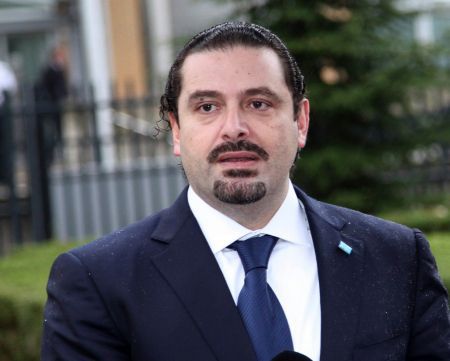 En Arabie Saoudite de son plein gré et « libre » !? En Arabie Saoudite de son plein gré et « libre » !?
Plus d' un Libanais pense qu’il est retenu contre son gré. Tous voient dans sa démission le signal de la catastrophe : la guerre qui recommence entre sunnites et chiites, comme en Syrie. Saad Hariri ne représente-t-il pas depuis un an la clef de voûte d’un système fragile ? Dans l' interview diffusée dimanche 12 novembre sur la chaîne libanaise Future TV, qui appartient à son parti politique, M. Hariri, les traits tirés, a réfuté la thèse dominante qui le présente comme l’otage des autorités saoudiennes. Il a affirmé à plusieurs reprises que ses hôtes ne l’ont pas forcé à démissionner, et qu’il rentrera « bientôt » à Beyrouth, répétant que son absence est due aux dangers qui pèsent sur sa vie.
Les Libanais expliquent certes sa démission par la psychologie, en rappelant le sort de son père, assassiné sur la Corniche de Beyrouth malgré son cortège blindé. Rafic Hariri était président du Conseil. Son fils a repris l’affaire. Il a hérité du leadership des sunnites, du poste de Premier ministre et surtout, de la fortune des Hariri qui vient d’Arabie Saoudite.
Un rôle dans le scandale saoudien de corruption ? Saad Hariri est Saoudien, avant d’être Libanais. Il est né à Ryad. Avec sa démission, qu'il avait imputée à l’Iran, la bête noire de l’Arabie saoudite, accusée de « vouloir détruire la nation arabe », il n’a plus d’immunité diplomatique. .. Et il a annoncé sa démission le jour même de la purge anticorruption par l'héritier saoudien, Mohamed Ben Salman alias « MBS ». Un coup de filet sans précédent, qui, dans l’esprit des Libanais et de nombreux observateurs étrangers, a pu servir à Riyad pour faire pression sur M. Hariri, propriétaire dans le royaume d’une entreprise de construction, Saudi Oger...
Dans son interview le chef de file de la communauté sunnite libanaise s’est efforcé d’apaiser la situation entre sunnite et chiite. Il a usé, à l’encontre de l’Iran et du Hezbollah, le mouvement chiite libanais pro-Téhéran, de formules plus mesurées que dans sa précédente intervention, et a laissé entendre qu’il pourrait revenir sur sa démission. « Je ne suis pas contre le Hezbollah en tant que parti politique, mais je suis contre le fait que le Hezbollah joue un rôle externe et mette le Liban en danger », a martelé Saad Hariri. Il a évoqué la possibilité de revenir sur sa décision mais en posant une condition: que le Liban applique une politique de "dissociation" et de neutralité dans les conflits régionaux.
« Sur le fond, c’est une désescalade, a déclaré Karim Emile Bitar, professeur de relations internationales à l’Université Saint-Joseph de Beyrouth. On a retrouvé le tempérament conciliateur de Saad Hariri. »
L’interview du premier ministre démissionnaire a certes été diffusée en direct mais cinq autres chaînes libanaises ont refusé de retransmettre l’émission, conformément aux consignes du président Michel Aoun, qui avait estimé que les déclarations de M. Hariri seraient automatiquement sujettes à caution, compte tenu des « conditions mystérieuses entourant sa situation en Arabie saoudite ». Le président libanais demande à Riyad d’« éclaircir » la situation de son premier ministre et a refusé la démission de ce dernier.
L’entretien, conduit par Paula Yacoubian, une célèbre animatrice de talk-shows, a été réalisé dans la villa que M. Hariri, détenteur de la nationalité saoudienne, possède à Riyad. « Je suis libre ici, si je veux voyager demain, je voyage », a déclaré d’entrée le dirigeant libanais.
« J’ai écrit ma démission de ma main, et j’ai voulu provoquer un choc positif », a ajouté le chef du gouvernement.
Pour un choc, aucun doute. Positif ? L'avenir seul le dira. Mais il ne fait aucun doute que l’ouverture consentie par M. Hariri et son tuteur saoudien est aussi le résultat des inquiétudes manifestées ces derniers jours par les capitales occidentales. Outre Emmanuel Macron, qui a fait comprendre au prince héritier saoudien, durant son escale de jeudi soir à Riyad, que la stabilité du Liban était une ligne rouge, la Maison Blanche a qualifié samedi M. Hariri de « partenaire fiable » des Etats-Unis.
« Pour qu’il y ait une solution politique au Liban, il faut que (…) la non-ingérence soit un principe de base », a ajouté lundi le ministre français des affaires étrangères, Jean-Yves Le Drian, visant, sans le dire, la couronne saoudienne...
Et n'oublions pas non plus l’échec de la tentative de MBS de remplacer Saad Hariri par son frère aîné, Baha qui a la réputation d’être plus anti-Hezbollah que son cadet.. Mais en vain puisque les figures tutélaires de la famille, comme la veuve de Rafik Hariri, Nazik, et sa sœur, Bahia, contactées par Riyad dans cette perspective, ont toutes deux, refusé de se prêter à la manœuvre saoudienne, de même que les cadres du Courant du futur. « Le jeu du royaume n’a pas porté ses fruits, estime Walid Charara, membre du centre de recherche du Hezbollah. MBS doit maintenant trouver une porte de sortie. »
Des enjeux cruciaux pour le paix dans le monde arabe autour de cette mystérieuse démission !
|
|
|
|
|
|
|
|
| Joanne Courbet pour DayNewsWorld |
 |
There are no translations available.
REMANIEMENT MINISTERIEL EN VUE
CAR LE TORCHON BRULE ENTRE
EMMANUEL MACRON ET BRUNO LE MAIRE
|
|
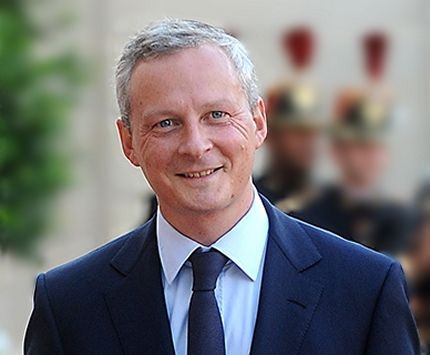 Le feu couvait peut être depuis longtemps? Mais tout semble avoir démarré vers la fin du mois d’octobre. Le feu couvait peut être depuis longtemps? Mais tout semble avoir démarré vers la fin du mois d’octobre.
Dans son édition du 1er novembre, le Canard Enchainé, toujours bien informé relatait que « le chef de l’Etat ne décolérait pas depuis une dizaine de jours » contre son Ministre de l’Economie et des Finances, Bruno Le Maire.
L’origine de la colère jupitérienne : l’ordre donné par Bruno Le Maire à l’Inspection Générale des Finances (IGF) de faire une enquête sur le processus de la désormais très célèbre depuis quelques semaines, décision de création de la Taxe de 3% sur les dividendes des entreprises, ladite décision ayant été sanctionnée par le Conseil Constitutionnel le 6 octobre 2017. (Voir nos pages précédentes).
Bruno Le Maire a fait l’annonce du lancement de cette enquête le 24 octobre au micro d’Europe 1.
Mais crime de lèse majesté ! Bruno Le Maire n’en avait pas référé préalablement au Président de la République !
Petite explication de texte sur cette affaire qui enfle :
Lorsque le principe de cette taxe de 3% a été voté, Emmanuel Macron était Secrétaire Général Adjoint à l’Elysée (sous François Hollande), en charge des questions fiscales. Emmanuel Macron est en outre un ancien membre de l’Inspection Générale des Finances.
De son coté, Bruno Le Maire est un ancien Haut Fonctionnaire, énarque lui aussi. Du point de vue d’un actuel conseiller de l’Elysée, Bruno Le Maire, en cette qualité, ne pouvait pas ignorer la situation particulière dans laquelle il allait placer le Chef de l’Etat, étant donné que l’IGF va devoir déposer un rapport mettant en cause leur ex-collègue, devenu aujourd’hui Président de la République !
Les chiens sont lâchés visiblement de part et d’autre.
Bruno Le Maire semble au vu de ces dernières informations faire cavalier seul. Pire, il ne serait « pas assez actif » aux yeux d’Emmanuel Macron, avec la brosse à reluire, pour faire les louanges du Président de la République, ce qui est interprété comme un signe de défiance voire d’hypocrisie.
Mais est-ce qu’Emmanuel Macron est plus franc vis- à- vis de son ministre ? On sait qu’en matière de loyauté et de franchise, François Hollande pourrait nous apporter des éclairages intéressants sur celui dont il avait fait son conseiller puis son ministre et qui l’a publiquement trahi.
De surcroît, on a déjà compris qu’Emmanuel Macron n’aime pas ceux qui se mettent sur son chemin et entravent son action, tous comportements qui pourraient nuire à sa crédibilité politique et pourquoi pas à son avenir politique.
Ces informations qui ont « fuité » n’ont pas empêché Bruno Le Maire de faire voter, sous forme d’amendement, un texte de correction fiscale et budgétaire (à introduire dans prochaine loi modificative budgétaire - PLFR) au moyen d’une taxe supplémentaire à acquitter par les 300 plus grandes entreprises françaises. Il en a même fait accepter le principe par le Conseil des Ministres le 2 novembre ; le texte a été déjà débattu en Commission des Finances de l’Assemblée Nationale le 6 novembre.
Depuis cet incident, il ne semble pas que les relations se soient apaisées entre les deux hommes politiques.
Bruno Le Maire, qui a encaissé, sait très bien qu’en privé, Emmanuel Macron l’a traité de « serpent », en raison de de son coté sournois ?
Alors, que peut-il donc se passer lorsque deux sournois se rencontrent et s’affrontent? En reprenant le vocabulaire reptilien d’Emmanuel Macron, nous rappellerons le dicton qui énonce « qu’il ne peut pas y avoir deux crocodiles dans un même marigot », car autrement il y en a toujours un qui « bouffe » l’autre.
Bruno Le Maire semble bien connaitre l’adage.
Le Ministre de l’Economie et des Finances, qui manie brillamment la langue allemande et qui est très germanophile, a décidé de rencontrer hier, 8 novembre, son homologue allemand, Peter Altmaier.... officiellement pour évoquer l’avenir de la zone euro, officieusement ...
Selon certaines informations, des négociations auraient eu lieu s’agissant de la Présidence de l’Eurogroupe, négociations qui auraient été mises officieusement à l’ordre du jour de la réunion. Un job prestigieux est en effet à prendre à ce niveau, puisque le président sortant de l’Eurogroupe, le néerlandais Jeroen Dijsselbloeur devrait se retirer, le Parti Travailliste Néerlandais, dont il est membre, ayant perdu les élections. Son mandat expire en janvier 2018. Bruno Le Maire pourrait donc briguer le poste .... Avec le soutien de l’Allemagne. Une bonne façon pour sortir, sans blessure, du marigot français !
Selon Reuters, les discussions à Berlin pourraient avoir été décisives pour l’avenir de Bruno Le Maire. Un article publié par le journal allemand, Frankfurter Allgemeine Zeitung place Bruno Le Maire parmi les favoris pour le poste. D’autres candidats sont en effet sur les rangs, le portugais Mario Centeno, le luxembourgeois Pierre Gramegno, la lettone Dana Reizniere-Orola, le slovaque Peter Kazimir.
La visite de Bruno Le Maire à Peter Altmaier, un allié proche d’Angela Merkel, ne serait donc qu’un prétexte .
Le poste de Monsieur Euro au sein de l’Eurogroupe est un excellent marche- pied. Jean Claude Junker qui l’a occupé de janvier 2005 à janvier 2013, l’a bien compris. Jean Claude Junker plaide en ce moment pour un regroupement (pour des raisons d’efficacité, mais probablement pas seulement ?) des poste de Commissaire chargé de l’Economie et des Finances (poste occupé en ce moment par Pierre Moscovici) avec celle de Président de l’Eurogoupe. La personne en charge de ces deux fonctions fusionnées, serait en outre, de droit, vice-président de la Commission Européenne.
La fonction issue de cette fusion, devrait donc comporter des prérogatives extrêmement importantes, très élargies, en charge de faire respecter par les Etats de l’UE les règles concernant la limite de 3% du déficit budgétaire et les règles sur la réduction de l’endettement des pays. Un poste idéal pour contrôler la politique d’Emmanuel Macron sur le plan fiscal, budgétaire et financier à partir de Bruxelles...Gare !
 Les couloirs parisiens bruissent de spéculations sur le sujet .. Les couloirs parisiens bruissent de spéculations sur le sujet ..
Dans ce contexte, pouvons-nous nous attendre à un remaniement ministeriel dans les prochaines semaines, avant Noël peut-être ?
Si ce jeu de chaises musicales venait à se produire, de toute évidence ce ne serait pas à l’avantage d’Emmanuel Macron, qui aura un censeur potentiel au dessus de sa tête. Une situation de tous les dangers pour l’européiste convaincu qu’il n’a pas cessé d’affirmer depuis son élection.
Pour ce qui concerne Bruno Le Maire, on est en droit de se poser la question de savoir ce qu’il fera de sa toute nouvelle carte de LREM, un retour au bercail chez Les Républicains n’étant pas du tout envisageable.
Le succès de la démarche de Bruno Le Maire dans les semaines à venir devrait faire perdre le caractère hypothétique qu’il a encore, d’un remaniement ministériel à venir.
Dans ces circonstances, il faudra bien sûr nommer quelqu’un au poste de Ministre de l’Economie et des Finances, pour remplacer Bruno Le Maire.
On sait aussi que Christophe Castaner est attendu à la tête de « En Marche ». Il pourrait être « élu » le 18 novembre. Même si traditionnellement, il n’est pas imposé au président d’un parti politique d’abandonner son fauteuil ministériel, certains ont déjà commencé à rappeler que la Présidence du premier parti politique de la Majorité Présidentielle ne semble pas être compatible avec le cumul d’un poste ministériel ?
S’il devait en être ainsi, Emmanuel devra trouver un nouveau porte-parole ?
Mais Christophe Castaner occupe également le porte-feuille des Relations avec le Parlement.. Il faudra donc, là aussi lui trouver un remplaçant. Le nom de Jacques Mézard, Ministre de la Cohésion des Territoires, se murmure, mais rien n’est certain ? Jacques Mézard serait parfaitement satisfait du poste qui lui a été dévolu jusqu’à présent. Le nom de Jacqueline Gourault , proche de François Bayrou est aussi évoqué pour ce poste ministériel sensible. On évoque aussi l’arrivée de petits nouveaux qui se sont déjà faits remarquer depuis les élections législatives, tel que : Hugues Renson, député de Paris, Amélie de Montchalin , députée de l’Essonne et rapporteur du budget. D’autres noms circulent, celui de Gabriel Attal et de Sacha Houlié.
Plus croquinolesque, il se murmura qu’Emmanuel Macron souhaiterait à l’occasion de ce remaniement ministériel, exfiltrer Muriel Pénicaud , la Ministre du Travail, en charge des réformes du Code du Travail, mais qui est citée dans l’affaire Business France et qui pourrait être mise en examen prochainement.
Il se murmure aussi que Julien Denormandie, 37 ans, actuellement Secrétaire d’Etat à la Réforme des Territoires pourrait prendre du galon ?
A l’inverse, il pourrait y avoir des sorties fracassantes comme celle du « senelissime » (adjectif qui lui est donné par certains hauts fonctionnaires) Gérard Collomb, fatigué, de Jean Yves Le Drian, de Jacques Mézard , s’il n’obtient pas le fauteuil des Relations avec le Parlement ou encore Brune Poirson.
Il faudra donc suivre cette affaire de remaniement ministériel qui pourrait nous en apprendre beaucoup sur l’autorité réelle d’Emmanuel Macron, lequel remaniement serait le second en 6 mois de présidence d’ Emmanuel Macron.
|
|
|
|
|
|
|
|
| Clara Mitchell pour DayNewsWorld |
 |
There are no translations available.
LAURENT WAUQUIEZ
LARGEMENT FAVORI
DES ELECTIONS A LA PRESIDENCE DU PARTI
LES REPUBLICAINS
|
|
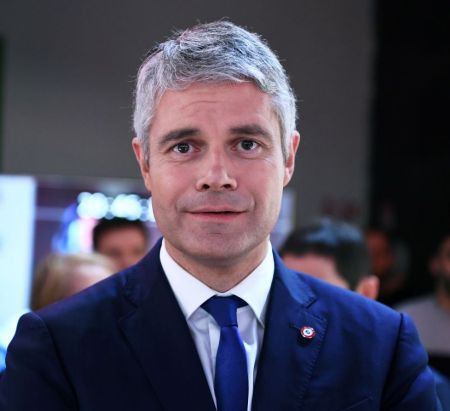 Laurent Wauquiez a des racines lyonnaises. Il est en effet né à Lyon le 12 avril 1975. Issu d’une famille d’Industriels du Nord, il a toujours figuré parmi les premiers de classe. Laurent Wauquiez a des racines lyonnaises. Il est en effet né à Lyon le 12 avril 1975. Issu d’une famille d’Industriels du Nord, il a toujours figuré parmi les premiers de classe.
Arès des études au Lycée Louis- Le- Grand, il fait des études d’histoire et obtient un Master à l’Université de Panthéon-Sorbonne en rédigeant un mémoire de maitrise portant sur le thème : " Le flambeau des Milles et une Nuits et l’Orient des Lumières de 1704 à 1798." Il est reçu à l’agrégation d’histoire après un passage à l’Ecole Normale Supérieure et obtient peu après un DEA de Droit Public. Il entre à l’ENA dont il sort en 2001.
C’est après avoir obtenu son agrégation, qu’il fait la rencontre de Jacques Barrot, Maire d’Yssingeaux en Haute Loire, figure tutélaire de la Démocratie Chrétienne.
Il occupe un poste de stagiaire pendant quelques mois à la mairie. Avant ce premier poste à la mairie d’Yssingeaux, il avait effectué deux séjours de plusieurs mois en Egypte où il a travaillé à l’Ambassade de France tout en aidant parallèlement l’association caritative de Sœur Emmanuelle en donnant des cours de français.
Laurent Wauquiez devient le suppléant de Jacques Barrot à l’occasion des élections législatives de 2002.
Lorsque Jacques Barrot devient Commissaire Européen, (et doit démissionner de son siège de député qui dès lors est vacant) Laurent Wauquiez se présente et se fait élire brillamment à la députation.
 Tout de suite il se met au travail. En sa qualité de député il rédige coup sur coup (ou participe à leur rédaction) plusieurs rapports sur des thèmes à caractère social proches des problèmes quotidiens rencontrés souvent par les citoyens français comme : Tout de suite il se met au travail. En sa qualité de député il rédige coup sur coup (ou participe à leur rédaction) plusieurs rapports sur des thèmes à caractère social proches des problèmes quotidiens rencontrés souvent par les citoyens français comme :
- Réflexion sur les problèmes de l’emploi et la pauvreté (en coopération avec les équipes d’Emmaüs)
- Rapport sur les conditions de vie des étudiants à la demande de François Fillon, alors Premier Ministre
- Réforme de l’attribution des tutelles
- Réflexion sur la protection juridique des majeurs
- Eradication de la pauvreté des enfants
- Etc...
Il devient Secrétaire d’Etat chargé de l’emploi en 2008, après avoir été élu, au premier tour au fauteuil de Maire de la Commune du Puy en Velay.
En sa qualité de Secrétaire d’Etat auprès de Christine Lagarde, il étudie comment reformer en profondeur le marché du travail, comment effectuer la fusion entre l’ANPE avec les ASSEDIC, comment réformer la Formation Professionnelle, comment améliorer l’emploi des seniors.
Difficile selon nous, au vu des investissements intellectuels et sociaux de l’homme et de l’homme politique de voir en lui un « Bad Boy », un traitre voire selon les plus persifleurs un homme violent, indifférent à la détresse d’autrui, éloigné des difficultés quotidiennes de ses concitoyens et seulement habité par une ambition incommensurable.
Certes l’homme est ambitieux mais l’ambition n’est pas en générale un défaut mais plutôt une qualité qu’il a su développée en raison de son parcours personnel et de ses expériences politiques diverses. Plus simplement, il a dû tout simplement et très certainement dérangé un establishment ronronnant et monopolisateur !
Dans le droit fil de son expérience acquise en tant que Ministre des Affaires Européennes de 2010 à 2011 (avant de devenir Ministre de l’Enseignement Supérieur), il semble fondé aujourd’hui à plaider pour une Europe qui assume son identité culturelle et qui soit plus offensive pour protéger les emplois de la concurrence déloyale née d’une mondialisation dévoyée.
Tout son parcours est inspiré par une philosophie personnelle et une réflexion ancrée sur les réalités de terrain et la défense des valeurs culturelles de la France.
Il est donc logique que ses qualités naturelles soulèvent aujourd’hui tant de critiques que ce soit de la part de ses adversaires ou des « amis » de son propre camp, alors qu’il s’est porté candidat à l’élection de la Président du parti « Les Républicains ».
En arrachant la Présidence de la Région Auvergne Rhône Alpes en décembre 2015, il est en effet devenu un homme politique incontournable, jalousé et envié (des études récentes viennent de démontrer que la jalousie était le sentiment le plus partagé des Français, une vraie spécificité française).
En vrac , on l’accuse, malgré sa carrière fulgurante et son âge (il a aujourd’hui 42 ans, soit 3 ans, pas plus, qu’Emmanuel Macron) de n’être qu’un « vieux briscard de la politique » une critique évoquant selon ses détracteurs, coups tordus et absence de loyauté ?
A cela Laurent Wauquiez répond que les élites parisiennes ou européennes (à l’exemple de Michel Barnier, l’ancien Commissaire Européen, avec lequel il y a eu quelques frictions) se sont démonétisées en perdant leur exemplarité vis à vis de l’électorat en général dont ils sont restés distants.
Laurent Wauquiez regarde les gens droit dans les yeux, écoute, cherche à comprendre, gribouille sur son calepin « des petits mots » et finalement séduit inévitablement.
Après être passé par la Droite Sociale, il serait devenu aujourd’hui, selon ses adversaires le représentant de la Droite Dure, « voire extrême », tissant ( ?) des liens avec le FN. A voir ? Dans ses récents discours, il affirme qu’il n’y aura pas d’alliance avec le Front National, espérant bien, comme l’avait fait Nicolas Sarkozy siphonné les voix de Marine Le Pen. Ces critiques semblent mal fondées, une fois de plus, compte tenu de son parcours personnel. Laurent Wauquiez aurait tout simplement mieux senti les sentiments des Français effrayés par une Europe passoire, aux frontières grandes ouvertes, exposée à une immigration de masse et à une mondialisation féroce, voire inhumaine, faisant litière des aspirations des Hommes.
Laurent Wauquiez assume. Et mène une campagne active pour l’élection à la Présidence des LR, élection qui aura lieu les 10 et 17 décembre 2017. Il ne voulait pas être le seul candidat dans la compétition, pour que le parti ne soit pas vu comme un parti qui bétonne et donne l’impression d’être verrouillé, ce qui aurait fait le jeu d’Emmanuel Macron. Il a été entendu puisque, lui y compris il y aura 3 candidats dans la ligne de départ. Ses deux concurrents sont une femme, Florence Portelli , ancienne Filloniste et Maël de Calaen, juppéiste. Il aurait obtenu pour faire valider sa candidature près de 25 000 parrainages, venant de tous horizons : élus et militants.
Personne au vu de ces chiffres ne cherche sérieusement à lui contester son élection, même si beaucoup ont l’intention de le supplanter lors d’élections présidentielles de 2022. A voir là aussi ?
La droite est sonnée depuis la débâcle du printemps 2017. Elle doit être entièrement reconstruite : "Notre famille politique est dans un état lamentable, tout est à rebâtir " dit-il.
Il prône le retour du respect et de l’autorité en se comparant au héros de cinéma d’action, Will Smith, affirmant qu’il n’hésitera à franchir certaines lignes rouges, si c’est pour le bien. Il veut que les Républicains soient au centre du jeu. Il promet « une droite de retour », « une droite qui soit une vrai droite », ne jetant pas un voile pudique sus ses idées D’ailleurs il dit « qu’il ne sait pas ce que c‘est la droite molle, la droite humaniste, la droite centriste ».
Heurté par ceux qu’il considère comme ayant trahi le mouvement (Les Constructifs) qui se sont vendus pour un plat de lentilles (du Puy bien sûr !) pour un poste ministériel, il a annoncé qu’il était dans ses intentions de choisir ses adversaires.
Au passage, il ajoute souhaiter être le premier opposant à Emmanuel Macron , qu’il vient de qualifier « de petit président arrogant et capricieux, qui fait preuve de beaucoup de froideur et d’un vrai manque d’empathie ». Régalien, il estime qu’Emmanuel Macron est un petit président « inconsistant idéologiquement, dépourvu d’amour charnel pour la France », expression de « son désert de l’âme ». Il estime qu’Emmanuel Macron qui penche vers le communautarisme n’a pas pris la juste mesure des menaces faites au pays, en particulier en matière d’attentats.
Certains prétendent qu’il appartient à la tradition bonapartiste de la droite, gaulliste, chiraquienne etsarkoziste ; cornaqué dès ses début en politique par Jacques Barrot , UDF, il serait plutôt un jacobin, régionaliste complètement investi dans sa fonction de Président du Conseil Régionale Auvergne Rhône Alpes... et donc un baron local, proche du terrain, du terrain , toujours du terrain ! Qu’il arpente sans cesse pour « sentir » les aspirations desFrançais au regard de leur racines et de leur mode de vie.
Laurent Wauquiez est un bourreau du travail, méthodique. Il a déjà sa stratégie dans sa tête , mais reconnait qu’il a besoin de l’aide de tous car pour « faire ensemble ce qu’il s’est fixé il a besoin d’être porté »
Laurent Wauquiez , du haut de son 1,91m à l’intention de porter un message fort pendant sa campagne pour la présidence des LR sans oublier les plus faibles et les plus fragiles.
Il sera aidé dans sa démarche par son épouse, Charlotte, dont il est très amoureux (il ne le cache pas). Il s’affiche d’ailleurs ostensiblement avec celle qui partage sa vie et dont il dit qu’elle est la meilleure du couple, en raison de sa « belle âme ». Il porte d’ailleurs traditionnellement la fameuse parka rouge que Charlotte lui aurait offert, dont il dit qu’elle lui aurait porté chance dès sa première élection. Charlotte, qui est administratrice au Sénat lui a donné deux enfants : Baptiste né en 2003 et Louise en 2006. Il porte une grande attention a sa famille (et à la famille en général) et dit qu’il a besoin de la stabilité de celle-ci, dans laquelle Charlotte assure « une fonction régulatrice au niveau de son couple ».
A l‘évidence, aucune critique ne lui sera épargnée, c’est cela le sort des premiers de classe. Il reste au demeurant le grand favori.... et l’amoureux de l’Orient qui pourrait reprendre à son compte le dicton : « les chiens aboient mais la caravane passe ».
|
|
|
|
|
|
|
|
| Clara Mitchell pour DayNewsWorld |
 |
There are no translations available.
VOUS ETES REDEVENU BAVARD
MONSIEUR HOLLANDE
AUSSI SVP DONNEZ VOTRE AVIS SUR CE QUI SUIT
|
|
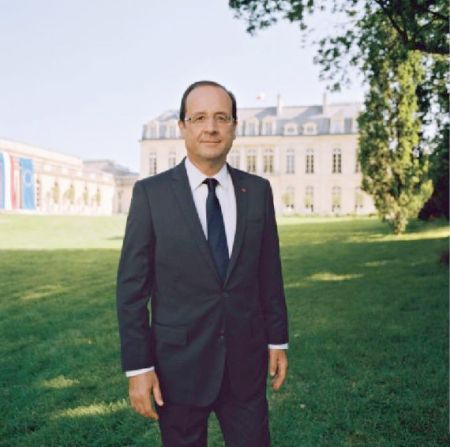 L’événement a été tenu très secret par l’Elysée de l’époque, mais voici ce qu’écrivait en octobre 2016 le WSJ (Wall Street Journal), dans une publication (reprise par Pierre Jovanovic). L’événement a été tenu très secret par l’Elysée de l’époque, mais voici ce qu’écrivait en octobre 2016 le WSJ (Wall Street Journal), dans une publication (reprise par Pierre Jovanovic).
« French President, Francois Hollande, in late October and asked how France could lure finance jobs away from London after Brexit. Mr. Dimon’s message was blunt : The chances that banks would move more employees to France were slim unless the country softens its labor laws. Mr. Hollande reassured Mr. Dimon that change would come. But it would happen under his succesor, he said”
Mr. Dimon est Jamie Dimon (démon, il porte peut être bien son nom ?) qui est toujours le PDG de la JP Morgan and Chase.
Jamie Dimon a été reçu à l’Elysée dans le plus grand secret en octobre 2016 par François Hollande qui voulait et souhaitait transformer Paris en City (à l’identique de celle de Londres) après que les anglais ont voté pour le Brexit.
Traduction rapide :" quand tu auras enlevé tous les droits qui protègent les salariés de ton pays, nous viendrons en France nous installer....Ce à quoi François Hollande a répondu que ce serait fait par le Président suivant, lui même ou un autre..."
On connait la suite. En Décembre 2016, François Hollande a annoncé qu’il ne se représenterait pas à la Présidence de la République. Son successeur élu en mai 2017 a été Emmanuel Macron, au pouvoir maintenant depuis 6 mois environ.
Mercredi 25 octobre 2017, une réunion discrète s’est tenue à l’Elysée, le soir au cours d’un diner, en journée à Matignon avec la participation ... c’est le plus étonnant.....de la Ministre du Travail, Muriel Penicaud.
Pour ce jour là, l’agenda de l’Elysée indiquait sobrement : 20h30 : Diners avec des investisseurs internationaux !.
En anglais ce soir là, devant un auditoire sous le charme, Emmanuel Macron a développé ses arguments : La France était en train de devenir un territoire réunissant les conditions indispensables pour une reprise économique, accompagnée si possible par une montée en gamme des produits français.
Les 5 ordonnances modifiant le Code du Travail venaient d’être publiées (le samedi 23 septembre 2017).
Tous les puissants de la finance, nationale et mondiale étaient là.
Si la Présence du Premier Ministre Edouard Philippe, semblait naturelle, on ne peut que se demander en quoi celle de la Ministre du travail était indispensable. Pour parler des futures et nouvelles réformes du Code du travail et de leur contenu, qui devront prendre en compte la demande de cet aréopage de financiers de haut rang ?
Les réunions qui se sont déroulées toutes la journée du 25 octobre, n’ont pas fait l’objet d’informations détaillées, ressemblant ainsi, sur ce point, à la réunion secrète tenue par François Hollande en octobre 2016. Rien ou presque rien n’a transpiré et très peu de médias se sont fait l’écho de cette réunion et si cela a été fait, cela a été très succinct.
On sait donc peu de chose sur la liste des participants à cette journée.
On sait quand même qu’étaient présentes, la plupart des entreprises du CAC 40 : Michelin, Renault, Airbus, PSA, Bouygues, L’Oreal, Vivendi, Orange, Total etc... Toutes ces entreprises sont françaises ou implantées déjà en France et on ne voit pas très bien l’intérêt de cette réunion pour celle-ci, alors qu’elles fréquentent régulièrement les allées du pouvoir.
En revanche, on sait qu’Emmanuel Macron avait invité des représentants de la haute finance internationale voire de grands fonds de pension : ex : Blackstone (qui gère 5900 milliards de dollars, soit l’équivalent de deux fois le PIB français, Carlyle, ou encore le Fonds souverain de Norvège qui pèse 1000 milliards de dollars.
On ne sait pas de façon sûre au plan français, si AXA Private-Equity était présent ? On peut néanmoins le supposer, Henri de Castries, ancien patron d’Axa Assurances et Banque, qui avait dans un premier temps soutenu le programme de François Fillon, (lequel avait soulevé un tollé en ce qui concerne sa proposition de supprimer la Sécurité Sociale ... pour les petits risques après modification) est devenu le soutien actif d’Emmanuel Macron, allant jusqu’à déclarer dans le Figaro du 25 septembre 2017 « que les réformes allaient dans le bon sens »...
Que des reformes soient nécessaires au pays, on ne peut le nier ! Qu’il faille le moderniser en passant par un accroissant du recours au numérique, on ne peut qu’approuver !
Que la France soit à vendre à l’encan et que ses salariés, généralement reconnus comme bien formés en général et de bonne qualité (la main d’œuvre française est appréciée de part le monde) avec certainement pas. On ne peut donc que se montrer suspect vis-à-vis de cette réunion que l’on a cherché une fois de plus à tenir secrète.
François Hollande qui depuis quelque temps est redevenu bavard, ne pourrait- il pas nous donner ses appréciations (au regard de sa propre expérience) sur cette réunion d’octobre 2017.
Il est très possible que certaines révélations sur ces réunions occultes déclencheraient au travers du pays un torrent d’injures par le bais des réseaux sociaux.
Emmanuel Macron a tout fait pour convaincre les participants à investir en France ... mais il faut que ce soit au profit de la France et non dans la perspective de son dépouillement, Hommes et biens matériels tout à la fois.
Mais si ses propositions n’ont portées que sur la fiscalité et le droit du travail, comme cela a filtré, on ne peut qu’être quelque peu inquiet.
|
|
|
|
|
|
|
|
| Clara Mitchell pour DayNewsWorld |
 |
There are no translations available.
LE CHOIX DE MACRON
CASTENER
A LA DIRECTION DE LREM
|
|
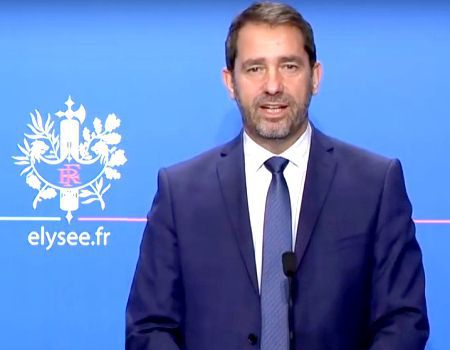 Macron a choisi le porte-parole du gouvernement et secrétaire d'Etat chargé des Relations avec le Parlement, Christophe Castaner, 51 ans, pour prendre la direction de La République en marche! (REM), ont déclaré mardi 24 octobre plusieurs sources gouvernementales et parlementaires. Macron a choisi le porte-parole du gouvernement et secrétaire d'Etat chargé des Relations avec le Parlement, Christophe Castaner, 51 ans, pour prendre la direction de La République en marche! (REM), ont déclaré mardi 24 octobre plusieurs sources gouvernementales et parlementaires.
«En Macronie, on n'est pas demandeur, on a une mission », résumait récemment un proche du chef de l'Etat au sujet de la direction d'un parti de 380.000 adhérents revendiqués.
Depuis l'élection présidentielle, le parti LREM peine à exister sur la scène politique et à retrouver une voix qui porte, Macron a donc pris les choses en mains : il désigne quasiment celui qui va prendre la direction de LREM
"C'est passionnant comme enjeu, vous imaginez? Il faut construire un nouveau mouvement politique, qui va rassembler le plus grand nombre d'acteurs qui sont engagés dans le mouvement en France. Je trouve ça absolument passionnant, bien sûr ça m'intéresse", a déclaré Christophe Castaner .
Bien sûr l’Elysée se refuse à confirmer l'information ne voulant pas admettre officiellement que c’est le président qui décide de la personne à placer à la tête du mouvement qu'il a créé.
Dans les faits, il reste quelques formalités à accomplir. : réunir ses parrainages (60 adhérents membres du Conseil, dont 30 députés, 3 sénateurs, 10 référents territoriaux et 5 élus non parlementaires) déposer son dossier avant le 2 novembre. Puis c'est le conseil national de LREM - le parlement du parti - qui l'élira au poste de "délégué général" lors d'une convention le 18 novembre à Lyon.
À ce titre, l’élection à main levée du 18 novembre par le conseil national de La République en Marche apparaît comme une simple formalité...
Un exemple de fonctionnement démocratique en Macronie !!
|
|
|
|
|
|
|
|
| Britney Delsey pour DayNewsWorld |
 |
There are no translations available.
LA FRANCE ET SES DESERTS MEDICAUX
|
|
D’innombrables français ont fait ces dernières années, directement ou involontairement, le constat qu’ils se trouvaient dans un désert médical : absence ou insuffisance de généralistes, durée interminable pour obtenir un rendez vous avec un ophtalmologue, un gynécologue, un dermatologue etc.. Il faut parfois faire plusieurs kilomètres , pour se rendre dans un de ces cabinets médicaux. Cette problématique est d’ailleurs souvent le sujet favori des conversations en famille, avec des voisins, entre amis, toutes générations confondues.
Pour pallier ces difficultés, nombreux sont ceux qui se rendent directement au service des urgences des hôpitaux, engorgeant souvent et inutilement ces services (la bobologie ne relève pas, il faut le rappeler du service des urgences hospitalières) et augmentant la durée d’intervention (sauf urgence absolue) des médecins urgentistes présents.
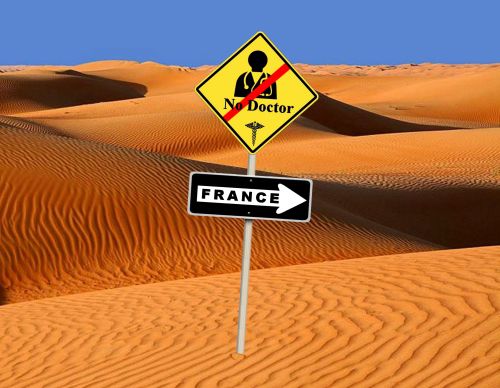 Et pourtant la France n’a jamais compté autant de médecins : au 1er janvier 2017, la France comptait 291 000 praticiens inscrits au tableau de l’ordre. Parmi ceux ci, le nombre de professionnels en activité régulière a reculé de 10% depuis 2007, ramenant le nombre de professionnels actifs à 198 000. Et pourtant la France n’a jamais compté autant de médecins : au 1er janvier 2017, la France comptait 291 000 praticiens inscrits au tableau de l’ordre. Parmi ceux ci, le nombre de professionnels en activité régulière a reculé de 10% depuis 2007, ramenant le nombre de professionnels actifs à 198 000.
Ces chiffres sont donnés par le Conseil de l’Ordre lui même, qui dans ses missions a pour objectif, d’accompagner les médecins, de veiller au maintien des compétences et de la probité du corps médical, et de conseiller les pouvoirs publics.
Depuis de nombreuses années, le Conseil de l’Ordre des médecins a attiré l’attention des pouvoirs publics, sur les bases préoccupantes de la baisse du nombre de généralistes en premier lieu et sur la disparité territoriale en second lieu.
Comment en est on arrivé là ?
Depuis 10 ans, ce n’est pourtant pas moins de 10 plans de relance en matière de santé qui ont été mis en place et qui n’ont pas empêche une aggravation à la baisse de l’offre médicale, toutes spécialités confondues.
Faute d’information fiables, il a en effet été difficile, de toute évidence, de trouver des solutions rapides et efficaces ! Ceci d’autant plus que la notion de désert médical est vaste...
Pour la plupart des Français, un désert médical est un territoire rural, peu peuplé, qui s’est vidé de ses médecins, généralistes en particulier, ceci sous l’effet du vieillissement des praticiens et du désintérêt des jeunes générations de médecins, très féminisées, pour ces territoires d’installation. Mais ce n’est pas que cela ...
La ville de Paris est depuis peu, entrée elle aussi dans le classement, les médecins ayant renoncé à s’installer dans la capitale, eu égard au coût de plus en plus inaccessible de l’immobilier.
Les grandes banlieues et les zones périurbaines, sont elles aussi devenues progressivement des déserts médicaux, ceci sous la pression d’un autre phénomène, celui de l’insécurité à laquelle ils sont confrontés quotidiennement.
C’est donc à ce dossier, délicat et sensible qu’Emmanuel Macron a du s’attaquer, moins de 6 mois après son élection à la présidence, le dossier figurant en haut (très haut) dans la pile des dossiers qui l’attendaient..
Le 13 octobre, c’est donc Edouard Philippe, accompagne de son ministre de la santé, Agnès Buzyn, qui s’y colle, annonçant un plan, qualifié d’inédit, contre les déserts médicaux.
Comme pour d’autres sujets, le maitre mot de la reforme a été selon les deux membres éminents du gouvernement, « le pragmatisme ».. Une reforme baptisée : « renforcer l’accès territorial aux soins »..
Edouard Philippe a martelé, à l’occasion de la présentation du plan, à Châlus en Haute Vienne, que le projet gouvernemental privilégiait la persuasion, l’incitation et que toute coercition, laquelle avait été un échec auparavant, était totalement exclue dans ce plan.
Applaudissement des tous les syndicats libéraux de médecins naturellement ! Ce qui n’a pas empêché Agnès Buzyn de déclarer que malgré la confiance qu’elle plaçait dans les médecins (elle est elle même médecin) elle allait mettre en place un plan rigoureux d’indicateurs destinés à évaluer les dynamiques de terrain au regard des mesures contenues dans le plan.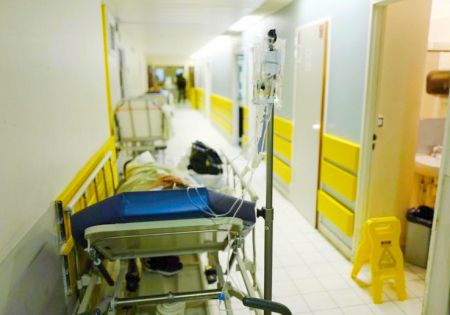
Mais une fois de plus, il a été décidé d’encourager la coopération entre médecins et de favoriser la construction, en concertation avec les élus locaux, de 1000 maisons de santé supplémentaires. Un budget de 400 millions d’euros a d’ailleurs été prévu pour atteindre cet objectif. Les rémunérations des personnels de santé, seront revues à la hausse ! Les infirmières (iers), jusqu’à présent cantonnées dans des missions spécifiques réduites seront désormais autorisées à assurer certains soins et le suivi de certaines maladies chroniques. Le plan prévoit aussi, un décloisonnement entre ville et hôpital, chaque médecin devant être, s’il le souhaite encouragé à partager ses activités entre médecine de ville et médecine hospitalière. Une nouvelle tarification des actes a aussi été prévue dans le plan et des crédits seront affectés au développement de la télémédecine. Tous les EHPAD seront équipés de ce matériel avant 2020.
Reste néanmoins et encore les problèmes de la mobilisation des élus locaux et de la reforme du numerus clausus.
Sous la pression de leurs électeurs également patients ou malades, les élus territoriaux chercheront autant que possible à atteindre, les objectifs du plan, si leur secteur est concerné. Mais comme chacun sait les ressources des collectivités locales, avec notamment la suppression de la taxe d’habitation sont en train de fondre comme neige au soleil, provoquant l’ire des responsables territoriaux...et peut être leur opposition.
Le numerus clausus. ! Depuis que Jacques Chirac l’a décidé et quantifié, le numerus clausus fait débat. Le sujet est même à vif ! La première année d’études de médecine est un immense gâchis. La sélection est rude : 12% seulement des bacheliers, non issus de la filière S, sont inscrits en PACE (première année commune des études de santé), la sélection est tout sauf démocratique (2500 candidats pour 350 places), le redoublement n’est possible qu’une fois.
Pour contourner le système, certains étudiants n’hésitent pas à aller faire leurs études ailleurs en Europe, en Belgique, en Roumanie, pour revenir en France passer leur 6eme année en vue des épreuves du classement national. Le système broie ! Des vocations ont été brisées nettes, provoquant parfois des drames familiaux. A coup de fiches ingurgitées, de QCM par milliers, la fameuse 1ere année ne développe cependant pas les qualités humaines de la plupart des candidats (ou ne permette pas de s’en assurer !)
Le système est à bout de souffle, même si certaines expérimentations comme celle développée au Collège Stanislas (« Stan ») un établissement privé catholique sous contrat, qui a lancé, de façon artisanale tout d’abord, une formation, cherchent à permettre aux étudiants de passer ce cap difficile de la première année de médecine. A « Stan » on a optimisé un accompagnement sur 3 ans, comparable sur la forme, à l’enseignement proposé depuis 150 ans par les Jésuites. Depuis, d’autres organismes privés se sont aussi développés pour soutenir la préparation au concours.
La Ministre a assuré qu’elle reconsidérerait le problème du numérus clausus. Mais en attendant, il faut 8 à 10 ans pour former un médecin, qualifié, compétent et opérationnel.
Aussi, réorientation progressive et diversification des profils, ont été aujourd’hui proposés comme des solutions temporaires, offertes aux étudiants.
En clair, et globalement même si les intentions sont là, selon certains spécialistes, les déserts médicaux ne sont pas près de disparaitre.Les plus catégoriques, qui rappellent sans cesse le rôle négatif des gouvernements qui se sont succédé, des médias et des syndicats médicaux, continuent en effet à penser que toutes ces mesures incitatives risquent d’être une fois de plus , vaines, ceci tant que l’Etat sera omniprésent et omnipotent dans ce dossier des déserts médicaux.
|
|
|
|
|
|
|
|
| Clara Mitchell pour DayNewsWorld |
 |
There are no translations available.
LA MONTEE DES PARTIS POPULISTES EN EUROPE
|
|
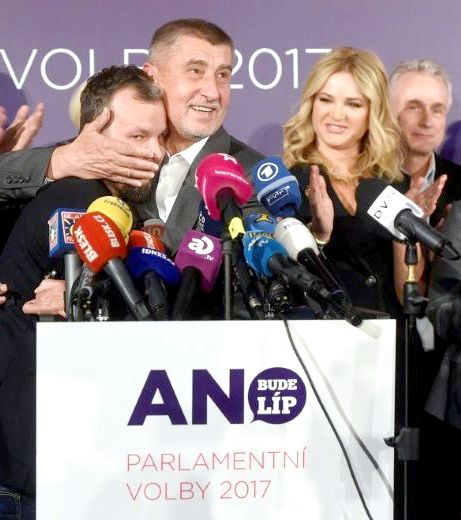 Des élections législatives viennent de se tenir en Tchéquie les 20 et 21 octobre 2017, pour élire les 200 députes de la 8ème législature. Ces députes ont été élus pour 4 ans. Des élections législatives viennent de se tenir en Tchéquie les 20 et 21 octobre 2017, pour élire les 200 députes de la 8ème législature. Ces députes ont été élus pour 4 ans.
La formation « populiste » ANO (Akace Nespokojenych Obcanu/action des citoyens mécontents et « oui » en tchèque) dirigée par le milliardaire Andrej Babis (parfois qualifié de Trump Tchèque) a largement remporté ces élections, en assurant 78 sièges et en faisant campagne contre la corruption, mais aussi contre l’accueil des migrants et contre la zone euro, sans pour autant prôner la sortie de l’Union européenne (UE). Rappelons que la République Tchèque a conservé sa monnaie nationale, la couronne !
On ne peut pas éviter de rapprocher ces résultats électoraux de ceux qui viennent de se dérouler en Autriche. Ces élections autrichiennes, qui ont eu lieu le 15 octobre dernier, ont vu, sans surprise, pour certains observateurs, la large victoire du parti conservateur autrichien (30% des voix) mené par le très jeune Ministre des Affaires Etrangères, Sébastian Kurtz, qui depuis longtemps, lui aussi se bat pour fermer les frontières de l’Europe aux réfugiés. Une thématique proche de la droite extrême qui, il y a quelques mois était aux portes du pouvoir. Les partisans de l’extrême droite ont eux aussi manifesté leur joie, car, ayant fait leur meilleur score historique, ils peuvent former une coalition avec Sebastian Kurz. Sebastian Kurz , qui a tout juste 31 ans est devenu le plus jeune dirigeant européen.
On est aussi dans l’obligation de rapprocher ces derniers résultats électoraux, d’autres résultats électoraux récents qui sont en train de recomposer le paysage politique de l’Europe.
L’Allemagne : la formation « populiste » anti migrants a raflé 12,6% des suffrages au cours des dernières élections législatives, faisant ainsi entrer pour la première fois, au Bundestag, depuis 1945, 90 députes de la droite dure.
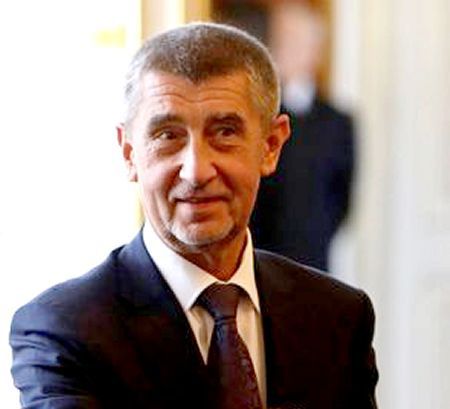 La France : après une campagne axée sur le rétablissement des frontières, la lutte contre l’immigration mais aussi la sortie de l’euro, Marine Le Pen s’est qualifiée pour le second tour avec un score de 21,3% des voix (7,6 millions de voix). Depuis, droite et extrême droite se cherchent. C’est ainsi que Jean Fréderic Poisson, ancien candidat de la droite à la primaire des présidentielles et Nicolas Dupont- Aignan qui avait fait alliance au second tour avec Marine Le Pen, rêvent d’une grande coalition de Droite. La France : après une campagne axée sur le rétablissement des frontières, la lutte contre l’immigration mais aussi la sortie de l’euro, Marine Le Pen s’est qualifiée pour le second tour avec un score de 21,3% des voix (7,6 millions de voix). Depuis, droite et extrême droite se cherchent. C’est ainsi que Jean Fréderic Poisson, ancien candidat de la droite à la primaire des présidentielles et Nicolas Dupont- Aignan qui avait fait alliance au second tour avec Marine Le Pen, rêvent d’une grande coalition de Droite.
« Amoureux de la France » ils préparent ensemble le lancement d’une « plateforme participative » qui sera lancée le 25 octobre à Paris, ceci dans le but de constituer une offre politique, sans tabou, « ouverte aux Français sortis rincés du quinquennat Hollande » et déjà déçus par l’illusion Macron, dont le pouvoir est selon eux déjà menacé.
Les Pays Bas : le parti pour la Liberté (PVV) de Geert Wilder est devenu, en mars dernier, la seconde force politique du Parlement néerlandais, après avoir, pourtant, été longuement ostracisé.
La Bulgarie : les nationalistes bulgares ont fait leur entrée au gouvernement où ils ont obtenu deux postes de vice premiers ministres et deux ministères. Ces nationalistes sont entrés ensuite, dans la coalition « Patriotes Unis », elle aussi anti migrants.
L’Italie : La Ligue du Nord qui a soutenu le « NON » au referendum sur la reforme de la constitution, faisant chuté Mattéo Renzi, détient 18 sièges à la Chambre des Députés.
Elle s’est transformée progressivement en parti anti-euro et anti immigrés, après avoir été un parti sécessionniste. Mais comment ne pas se rapprocher là aussi, cette situation de « l’autre referendum » (informel, sur Internet), celui qui s’est organisé ce dimanche à l’initiative des présidents « Ligue du Nord » de la Vénétie et de la Lombardie. (15 millions d’habitants, deux fois plus que la Catalogne candidate elle- aussi à l’indépendance), lesquels revendiquent, moins de migrants et plus d’autonomie, financière et fiscale au pouvoir central. Ces initiatives pourraient elles avoir un effet domino en Italie ?
La Grèce : « Aube Dorée » a conforté ses positions, à la faveur de la crise migratoire et à cause ou en raison de la crise financière organisée comme une purge par les dirigeants européens.
La Suède : Les Démocrates de Suède (SD) ont réalisé une percée historique. Le parti compte 48 sièges au Parlement sur 349.
En Belgique : Le Vlaams Belang (VB/Intérêt flamand) qui prône l’indépendance de la Flandre, a vu son électorat siphonné récemment par le parti Nationaliste Nouvelle Alliance Flamande (N-VA) très à droite.
La Hongrie ou Viktor Orban développe une ligne dure, anti-immigrationniste.
Et la Pologne , et ... etc...
Très curieusement, l’Europe (UE) et les dirigeants européens ne semblent toujours pas perturbés par la montée des populistes et des Eurosceptiques. L’Europe Monétaire est de son côté en train de glisser lentement sous les coups de boutoirs de ces mouvements nationalistes, tous inspirés par le déficit démocratique imposé, il faut en convenir, depuis longtemps par les institutions européennes jugées trop distantes et trop technocratiques.
|
|
|
|
|
|
|
|
| Clara Mitchell pour DayNewsWorld |
 |
There are no translations available.
L'AUTONOMIE DE LA CATALOGNE SUSPENDUE
|
«Le gouvernement a dû appliquer l'article 155 de la Constitution. Ce n'était ni notre souhait, ni notre intention», a affirmé le premier ministre conservateur, Mariano Rajoy, à l'issue du conseil des ministres. «Nous appliquons l'article 155 parce qu'aucun gouvernement d'aucun pays démocratique ne peut accepter que la loi soit ignorée.»
|
|
|
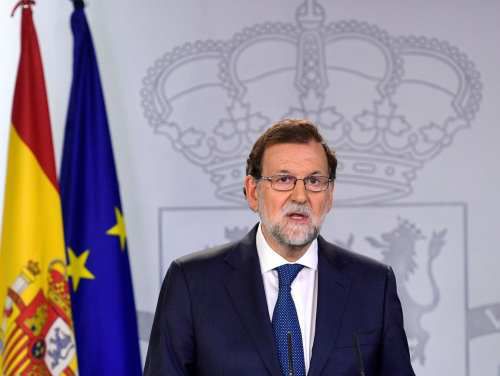 Le couperet est tombé ce samedi matin. Lors d'un conseil des ministres extraordinaire, Mariano Rajoy et les membres de son gouvernement ont enclenché à contre-coeur l'article 155 de la Constitution permettant la suspension de l'autonomie de la région. Reste au Sénat la validation des mesures prévues. Voilà le dernier épisode d'une crise sans précédent pour l'Espagne. Le couperet est tombé ce samedi matin. Lors d'un conseil des ministres extraordinaire, Mariano Rajoy et les membres de son gouvernement ont enclenché à contre-coeur l'article 155 de la Constitution permettant la suspension de l'autonomie de la région. Reste au Sénat la validation des mesures prévues. Voilà le dernier épisode d'une crise sans précédent pour l'Espagne.
Quelques heures plus tôt, le roi d'Espagne , sortant de sa réserve habituelle, est intervenu dans cette crise, la pire qu'ait traversée le pays depuis la fin de la dictature de Francisco Franco en 1975, pour affirmer que l'État saurait faire face à cette "tentative inacceptable de sécession (...) avec ses institutions démocratiques légitimes". "Nous ne voulons pas renoncer à ce que nous avons construit ensemble", a ajouté Felipe VI à la veille du Conseil des ministres. L'UE répète qu'elle ne reconnaîtrait pas l'indépendance de la Catalogne, qui quitterait automatiquement l'Union. Antonio Tajani a rappelé que, « trop souvent par le passé, la perspective de changer les frontières a été présentée comme une panacée divine et s'est transformée en un chaos infernal ». Emmenées par les deux plus grandes banques catalanes, Caixabank et Sabadell, près de 1 200 entreprises ont transféré leur siège social hors de Catalogne.
Au refus de renoncer officiellement à l'indépendance de la Catalogne, Madrid a usé de ses prérogatives. Objectifs affichés : "rétablir la légalité", "revenir à la normalité et la coexistence", "continuer avec la reprise économique" et "organiser des élections". Les mesures seront soumises à l'approbation du Sénat, attendue pour la fin octobre
Le chef du gouvernement a négocié avec l'opposition l'enclenchement de la suspension de l'autonomie.
Les mesures concrètes vont se négocier avec le Parti socialiste (PSOE), principale force d'opposition, et ses alliés centristes de Ciudadanos.
Madrid devrait prendre le contrôle de la police régionale, les Mossos d'Esquadra, dont le chef a été inculpé de sédition pour ne pas avoir empêché le référendum d'autodétermination. La mesure vise aussi à organiser des élections en janvier dans la région. «L'issue logique de ce processus serait la tenue d'élections, organisées conformément à la loi», selon le porte-parole du gouvernement, Inigo Mendez de Vigo.
Dans le but d'éviter toute escalade des tensions, Madrid a insisté sur le fait que ces mesures sont prises pour un temps limité, transitoire, devant déboucher sur de nouvelles élections régionales.
Sommé de revenir à la légalité, le chef du gouvernement catalan, Carles Puigdemont, a au contraire menacé de faire proclamer formellement l'indépendance de cette région de 7,5 millions d'habitants si son autonomie était suspendue.
Une grande manifestation est d'ailleurs prévue à 17 heures à Barcelone pour la libération de deux leaders indépendantistes arrêtés au cours de la semaine et la suspension des prérogatives d'une région très jalouse de son autonomie risque de susciter une forte mobilisation, même si la population est divisée sur la question de l'indépendandance.
|
|
|
|
|
|
| Joanne Courbet pour DayNewsWorld |
 |
There are no translations available.
L'EPREUVE DE FORCE

 CONTINUE CONTINUE
ENTRE BARCELONE ET MADRID
|
|
 Le président du gouvernement espagnol, Mariano Rajoy, avait donné jusqu'à ce jeudi matin 10h00 aux autorités catalanes pour renoncer clairement à une proclamation unilatérale d'indépendance. Passé ce délai, Madrid pourrait suspendre l'autonomie de la région en application de l'article 155 de la Constitution de 1978 Le président du gouvernement espagnol, Mariano Rajoy, avait donné jusqu'à ce jeudi matin 10h00 aux autorités catalanes pour renoncer clairement à une proclamation unilatérale d'indépendance. Passé ce délai, Madrid pourrait suspendre l'autonomie de la région en application de l'article 155 de la Constitution de 1978
Jeudi 19 octobre, Carles Puigdemont, le président indépendantiste catalan, a finalement décidé de ne pas déclarer l'indépendance, tout en indiquant que ce serait le cas si Madrid devait retirer son autonomie à la Catalogne.Le président du gouvernement autonome de Catalogne, Carles Puigdemont, à l'expiration jeudi matin de l'ultimatum lancé par Madrid, a renvoyé tout simplement la balle à Madrid.l
Le gouvernement espagnol pourrait renoncer à suspendre l'autonomie de la Catalogne si le président indépendantiste de la région acceptait de convoquer des élections régionales pour repartir à zéro et mettre fin au conflit qui l'oppose à Madrid, a-t-on appris de source gouvernementale.
Suite à cette déclaration, les services du Premier ministre Mariano Rajoy ont annoncé, à la sortie d'une réunion spéciale du conseil des ministres, que l'article 155 de la Constitution, permettant de suspendre l'autonomie politique de la Catalogne, sera activé samedi. Cet article permet à l'Etat central de prendre le contrôle de la Catalogne, c'est-à-dire le contrôle sur la police catalane, ou encore les finances de la région. Madrid pourrait aussi envoyer des technocrates pour remplacer certains membres du gouvernement catalan.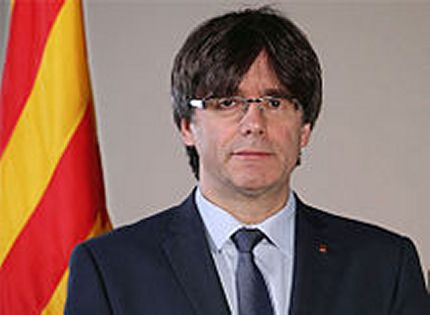
Cette option était soutenue, depuis Bruxelles, par le chef de l'opposition espagnole, le socialiste Pedro Sanchez, en contact permanent avec le chef du gouvernement sur ce sujet .  "La seule voie possible pour M. Puigdemont est de restaurer la légalité et, d'un point de vue politique, convoquer des élections anticipées", a-t-il déclaré. Il a ajouté que cette voie mettrait fin "sans aucun doute" à la menace de suspension d'une autonomie. "La seule voie possible pour M. Puigdemont est de restaurer la légalité et, d'un point de vue politique, convoquer des élections anticipées", a-t-il déclaré. Il a ajouté que cette voie mettrait fin "sans aucun doute" à la menace de suspension d'une autonomie.
Cette offre peut être interprétée comme une ouverture pour désamorcer la crise ouverte depuis des semaines entre Barcelone et Madrid.
Des élections permettrait sans aucun doute d'éviter que ne soit prise cette mesure drastique qui n'a jamais été appliquée depuis que l'Espagne est redevenue démocratique en 1977; Mesure qui risquerait également de déclencher des manifestations ingérables dans cette région de 7,5 millions d'habitants.
Une façon également pour les indépendantistes de renoncer à une déclaration unilatérale d'indépendance en pouvant par ailleurs se renforcer électoralement ...
Si camp pro-indépendantiste pousse Carles Puigdemont à déclarer l'indépendance, les milieux économiques,eux, observent avec une inquiétude non masquée la fuite de centaines d'entreprises de Catalogne.
Une joute verbale continue entre les deux pouvoirs quelque peu sans issue..Reste peu de temps de réflexion...
|
|
|
|
|
|
|
|
| Joanne Courbet pour DayNewsWorld |
 |
There are no translations available.
MACRON OU L'EXERCICE DE RATTRAPAGE
|
|
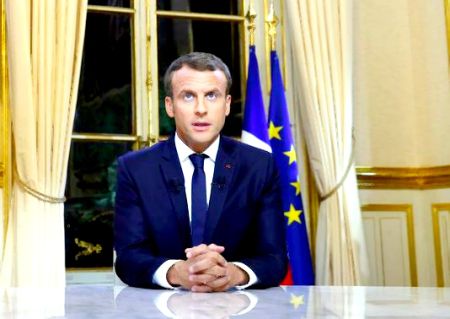 Emmanuel Macron n'a pas réussi à convaincre la majorité des Français malgré ses déclarations appuyées d'un chef d'Etat qui dit qu'il « aime et estime l’ensemble de (ses ) concitoyens ». Emmanuel Macron n'a pas réussi à convaincre la majorité des Français malgré ses déclarations appuyées d'un chef d'Etat qui dit qu'il « aime et estime l’ensemble de (ses ) concitoyens ».
Que retient-on de cette interview qu'il semblait lui-même diriger malgré les trois journalistes venus l'interroger ? Qu 'il ne changerait ni de cap ni de style et que les Français devraient s'habituer à sa façon de parler, loin du « politiquement correct », « aseptisé » de ses prédécesseurs .
Pour lui le peuple l'a investi d'une mission. « Le peuple français ne m'a pas demandé de gérer, mais de transformer » a clarifié le Président.
Cette « transformation en profondeur » nécessite donc une politique demandant des efforts aux Français qui lui ont donné par le truchement des urnes la légitimité pour le faire .
Un vaste chantier qui ne portera ses fruits que dans un an et demi, deux ans, selon le Président inflexible dans sa détermination de mener à bout son programme annoncé durant la campagne.
Pour lui l'essentiel reste la bataille pour l'emploi dans un monde en profonde mutation. Il s'est voulu pédagogique pour expliquer l'action menée en cinq mois : après la réforme du Code du travail qui donne une plus grande souplesse aux chefs d'entreprises, il faut impérativement passer par le deuxième train de réformes portant sur la formation et l'assurance chômage. En dégageant 15 milliards d'euros pour la formation professionnelle il compte « offrir de vraies formations qualifiantes aux chômeurs ». « Si nous ne faisons pas cet investissement nous ne gagnerons pas la bataille contre le chômage » assène-t-il.
La suppression de l’ISF pour la transformer en IFI (Impôt sur la Fortune Immobilière) fait partie intégrale de sa bataille pour l'emploi et il l'assume pleinement en pointant l'erreur de son prédécesseur (la taxe à 75 % sur les hauts revenus) qui a fait partir les grandes fortunes de la France.
« Je ne crois pas à la jalousie envers les riches. ». Ces derniers sont les « premiers de cordée » métaphore lourde de sens : aux autres de s'y accrocher pour gravir la montagne. La suppression de l'ISF, il l'assume également. L’allègement de l’impôt sur le capital va permettre l'investissement et l'innovation. La fortune immobilière est par contre comparée à de la rente facile qui n'est pas réinvestie : cela revient à « jouir de sa richesse plutôt que d’aider l’économie en réinvestissant ».D'où la création de l'IFI .
Qu'on se le tienne pour dit Emmanuel Macron reste droit dans ses bottes, et ne changera pas de cap malgré les résistances.
|
|
|
|
|
|
|
|
| Alyson Braxton pour DayNewsWorld |
 |
There are no translations available.
LA FRANCE EN PLEINE REVOLTE
DES ELUS LOCAUX
|
|
La colère gronde depuis plusieurs semaines chez les élus locaux ; qu’ils soient Maires, Présidents de Conseils départementaux, Présidents de Régions ou simples élus de base, tous sont aujourd’hui remontés comme des pendules contre l’Etat et ses symboles, Bercy et le Président Emmanuel Macron (dont il est lui même issu).
Ici, ou là, à moins qu’ils ne soient très officiellement étiquetés LREM, et considérés comme des élus « godillots », la grogne s’est installée progressivement chez les élus locaux au fur et à mesure des annonces du gouvernement et du Président lui même, annonces très souvent contraires aux promesses de campagne longuement clamées pendant toute l’année qui a précédé l’élection présidentielle 2017.
Et pourtant, tout était bien parti ... Les élections législatives du mois de juin 2017, avaient porté au pouvoir 350 députés, donnant ainsi à Emmanuel Macron , élu président de la République quelques semaines plus tôt, une majorité plus que confortable pour porter son projet. Parallèlement, ces victoires électorales écrasantes avaient autorisé le Président à envisager l’élection d’un nombre significatif de sénateurs à l’occasion du renouvellement de la moitié des sièges de la Haute Assemblée, en septembre. Pari perdu !
Les résultats des élections sénatoriales n’ont pas « été bonnes pour LREM » ... c’est un euphémisme...
Mais rappelons nous, les sénateurs sont élus par des grands électeurs, tous élus locaux. La confiance n’était visiblement plus au rendez vous !
La grogne couvait comme chacun sait depuis le mois de juillet, lorsqu ’après la Conférence Nationale des Territoires et le vote de la suppression de la réserve parlementaire, Edouard Philippe avait annoncé le fameux coup de rabot, entrainant pour les collectivités locales un gel de 300 millions d’euros de recettes.
La grogne couvait ! Mais comme chacun sait, en juillet et en août la France est en vacances, élus compris.
Mais rebelote ! Une seconde passe d’arme a eu lieu, le 27 septembre, à l’occasion de la réunion du Comite des Finances locales consacrée à la préparation du budget 2018.
Les Présidents de Région ont ce jour là claqué la porte. Jacqueline Gouraud (MODEM/ralliée à Emmanuel Macron), Ministre auprès du Ministre de l’Intérieur Gérard Collomb a du faire face, héroïquement, a une levée de bouclier mémorable lorsqu’elle a été amenée présenter le projet budgétaire de baisse de 450 millions d’euros sur les ressources traditionnellement versées aux régions par l’Etat.
Après 4 années de baisse constante de la DGF (Dotation Globale de Fonctionnement) la stabilisation récente du volume de cette DGF avait néanmoins suscité, notamment de la part de élus de petites villes de France des réactions saluant « quelques mesures rassurantes », et « allant dans le bon sens » ??
Mais une quinzaine de jours plus tard, le ton est à nouveau monté de plusieurs crans supplémentaires, et quasiment unanimement, tous élus confondus (élus ruraux, élus de villes de toutes tailles).
Des élus ont même démissionné, fatigué comme Philippe Richert, Président de la Région du Grand Est, ou écœurés , en protestation se sentant une fois de plus trompés, et effrayés pour beaucoup par les conséquences juridiques et politiques de telles mesures : conséquences sur leur budget d’investissement mettant les entreprises du bâtiment et des travaux publics à la diète, avec tous les risques à la clef de suppression d’emplois ... locaux, non délocalisables.. ; conséquence sur leur budget de fonctionnement, risque de déficit budgétaire ou d'augmentation des impôts locaux (ou ce qu'il en restera comme la taxe Foncière)
Tout s’entrechoque en effet au travers de ces réformes multisectorielles: suppression de la taxe d’habitation soit disant compensée, mais on sait ce que valent les promesses de l’Etat sur ce point, fins des emplois aidés, suppression du nombre de fonctionnaires (en grève demain10 octobre), obligation de réaliser 13 Milliards d’euros d’économie etc..
Quelques 70 maires de la Creuse, furieux de ne pas avoir pu rencontrer le Président à Egletons ont appelé leurs pairs à décrocher le portrait d’Emmanuel Macron des murs de leurs mairies.
L’un d’entre eux a même décidé de faire réduire la taille de la photo du Président : 1/3 de dotation en moins, 1/3 de ...surface de photo en moins.
Les Régions ont refusé de signer l’engagement de réduction de dépenses prévues pour les 319 plus importantes collectivités !!.
L’incendie « politique » menace à tous les étages à 6 semaines du 100 éme Congrès des Maires, l’AMF présidée par François Baroin, qui vient de déclarer fermement que le débat n’était pas aujourd’hui entre droite et gauche, mais entre L’Etat et les Territoires, avec remise en cause de la décentralisation initiée en 1982.
Comparé à Jupiter, puis à Napoléon, c’est à Louis XIV qu’il est aujourd’hui associé, car le Roi Soleil, dès son installation au pouvoir (très jeune) s’était lancé lui aussi avec ardeur dans une vague réformatrice, se mettant à dos les Grands du Royaume.
On dit qu ’Edouard Philippe, qui navigue à vue et cherche désespérément à éteindre les incendies (lui qui a été maire du Havre, alors qu’Emmanuel Macron n’a jamais été un élu local) aurait confié qu’il était en train de subir un vrai supplice chinois !! . Ses futures rencontres avec des élus locaux investis de responsabilités diverses s’annoncent agitées, ceux-ci étant chauffés à blanc.
Mais, jusqu’ou le système tiendra t il ?
Emmanuel Macron pourra-t-il-encore tenir longtemps sur cette ligne réformatrice, face à la bronca des élus qui n’en finit pas ?
Se souviendra-t-il à temps de cette phrase célèbre du Duc de Liancourt-de La Rochefoucauld, au moment de la prise de la Bastille, et alors qu’il venait d’informer Louis XVI des événements: « Sire, ce n’est pas une révolte, mais une Révolution » !!
|
|
|
|
|
|
|
|
| Clara Mitchell pour DayNewsWorld |
 |
There are no translations available.
LES FRANCAIS MAJORITAIREMENT CHOQUES
PAR LES PROPOS DE MACRON
DRAPPE EN JUPITER !
|
|
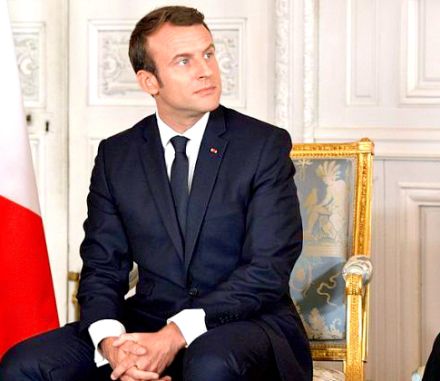 Selon un sondage Harris Interactive pour RMC et Atlantico publié ce vendredi en effet, près de six Français sur dix (57% exactement) se disent choqués par les mots utilisés par le chef de l'Etat. Selon un sondage Harris Interactive pour RMC et Atlantico publié ce vendredi en effet, près de six Français sur dix (57% exactement) se disent choqués par les mots utilisés par le chef de l'Etat.
Lors d'une visite mercredi de l'Ecole d'application aux métiers des travaux publics à Egletons et au cours d'un aparté avec le président de la région Nouvelle Aquitaine, Alain Rousset (PS) évoquant les difficultés de recrutement dans une fonderie d'Ussel (Corrèze), M. Macron s'est fendu de son habituel langage fleuri :
"certains, au lieu de foutre le bordel, feraient mieux d'aller regarder s'ils ne peuvent pas avoir des postes là-bas, parce qu'il y en a qui ont les qualifications pour le faire et ce n'est pas loin de chez eux"
La dernière saillie d'Emmanuel Macron accusant certains salariés "de foutre le bordel" au lieu d'accepter la mobilité a provoqué une telle polémique ce jeudi 5 octobre 2017 que voulant eteindre l'incendie l'entourage de ce denier s'est vu contraint de s'expliquer :
Macron a déclaré "assumer" ses propos, il ne les aurait pas tenus dans "un cadre officiel" !!!
Pourtant, il était bel et bien entouré de caméras ce jour-là lors de sa visite très médiatique en Corrèze … 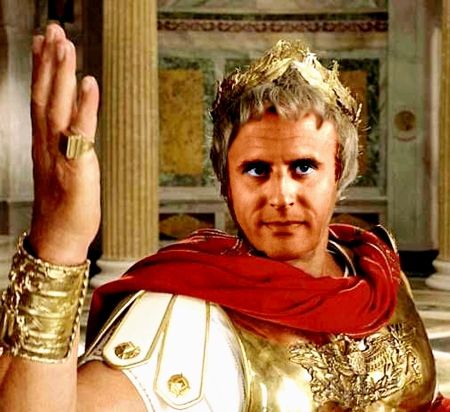
Le chef de l'Etat "ne retire rien sur le fond" de ses déclarations faites, a-t-il fait savoir, via le nouveau porte-parole l'Elysée, Bruno Roger-Petit.
Mais il "n'emploierait pas, dans un cadre officiel, le mot 'bordel', qu'il a utilisé dans une discussion officieuse", a ajouté son entourage. "Ces mots, on les utilise tous. Les Français les utilisent", a de son côté tenté de déminer le porte-parole du gouvernement d'alors Christophe Castaner.. Mais ce dernier a tout de même dû reconnaître que ces mots étaient "surprenants dans la bouche d'un président de la République" .
Mais plus préoccupant encore :Emmanuel Macron n'en est pas à sa première saillie. « les illettrées », « les fainéants » « les riens », « les pauvres en autocar » sont une simple piqûre de rappel d'autres expressions controversées d'Emmanuel Macron.
"C'est de l'arrogance", a fustigé le patron des députés LR Christian Jacob dénonçant "un président qui ne supporte pas la moindre contestation". Et au patrons des députés LR d'enfoncer le clou. Macron, qui n'a "jamais été élu local", "devrait arrêter ce genre de provocation d'enfant gâté »ajoute-t-il d'un ton cinglant
.Le secrétaire général des Républicains Bernard Accoyer n'a pas été plus tendre à l'égard de l'attitude d'Emmanuel Macron :
"Il est le président de tous les Français et la première exigence, c'est un respect à l'égard de tous nos compatriotes quels qu'ils soient et en particulier ceux qui sont en difficulté."
« Ce mépris de répétition » d'Emmanuel Macron fait montre non seulement de l'immense fracture entre une élite sortie tout droit d'une école mais aussi la nécessite impérative d'avoir une bonne connaissance du terrain en tant qu'élu local.
Reste que les Français se disent choqués par ce manque de considération de la part d'un Président qui ne sait pas même employer un langage policé. Jupiter est descendu très vite de son piédestal. Il ne sait que s'attirer les foudres.
|
|
|
|
|
|
|
|
| Kelly Donalson pour DayNewsWorld |
 |
There are no translations available.
LE TERRAIN MINE DE
LA REFORME DE L'ISF
|
|
 La réforme de l'ISF agite les parlementaires de tous bords, y compris au sein de la majorité. La réforme de l'ISF agite les parlementaires de tous bords, y compris au sein de la majorité.
Voici le dossier empoisonné par excellence. À droite comme à gauche il soulevé des crispations. En optant pour la quasi-suppression de l’impôt de solidarité sur la fortune (ISF), le gouvernement vient d’ouvrir une nouvelle séquence politique.
C'est pourquoi Edouard Philippe revient sur la réforme de l’impôt sur la fortune (ISF) qui, selon lui, « ne marche pas », qui a fait « fuir le capital » et qui va se transformer en un « impôt sur la fortune immobilière ».
« En quinze ans d’ISF, on a fait partir 10 000 contribuables représentant globalement 35 milliards de capital. Et quand ils sont partis, ils ne payent pas non plus l’impôt sur le revenu. », affirme le Premier Ministre dans une interview.
Cette option s'avère défendable sur le plan économique : en effet Emmanuel Macron fait le choix de la relance économique et de la création d’emplois en s’appuyant sur ceux qui investissent. Et la fortune immobilière, considérée comme une rente, reste taxée.
Au sein même de la majorité, ce choix met mal à l'aise des députés d' En Marche. A François Bayrou lui-même de parler d'un budget « déséquilibré ». Les socialistes et les syndicats s’engouffrent dans la brèche. Le chef du gouvernement,quant à lui, estime que cette critique « ne correspond pas à la réalité ». « Beaucoup de mesures redistribuent du pouvoir d’achat vers les plus faibles et les classes moyennes », rappelle-t-il.
Mais cette réforme suscite de nombreuses polémiques sur la question de la taxation des « signes extérieurs de richesse », comme les yachts qui sont exclus du champ du nouvel ISF.
C'est la raison pour laquelle Edouard Philippe se dit ainsi « ouvert » à une hausse des « taxes spécifiques » sur certains biens de luxe emboîtant le pas à ses ministres de l’économie et des comptes publics, Bruno Le Maire et Gérald Darmanin.
Pour corriger le tir, le gouvernement prépare un alourdissement des taxes spécifiques sur toute une série de biens considérés comme signes extérieurs de richesse. Finalement, les yachts et les voitures de luxe pourraient être taxés davantage.
En réalité, le débat est surtout symbolique, car la rentabilité de cet impôt est mince. En 2016, il représentait quatre milliards d'euros, soit moins de 0,4% des prélèvements obligatoires.
C'est que l’ISF n’est pas qu’une question fiscale , il relève avant tout du symbole.
Depuis son rétablissement sous la forme de l’ISF par Michel Rocard en 1988 pour financer le RMI (Revenu minimum d’insertion), la droite se méfie de cet impôt auquel elle a préféré ne plus s’attaquer comme l'avait fait à ses dépens Jacques Chirac. Nicolas Sarkozy n’y a pas touché.
Emmanuel Macron décide de le supprimer en gardant la taxation sur l'immobilier considéré comme une rente.
Ce choix fait de lui le Président des riches au yeux de l'opinion publique à un moment où les inégalités se creusent. Le fossé ne cesse de se creuser, souligne l’observatoire des inégalités. 10 % des Français les plus riches possèdent la moitié du patrimoine. Leur contribution à l’effort de redressement, et pas seulement en voyant leurs impôts baisser, peut se défendre.
C’est en effet un choix discutable sur le plan politique tout simplement pour des raisons de calendrier. Cette réforme intervient au moment où le gouvernement baisse les APL, taille dans les contrats aidés et flexibilise les relations du travail au profit des chefs d’entreprise.
|
|
|
|
|
|
|
|
| Alyson Braxton pour DayNewsWorld |
 |
There are no translations available.
|
LIBERTICIDE LE PROJET DE LOI ANTITERRORISTE
|
|
|
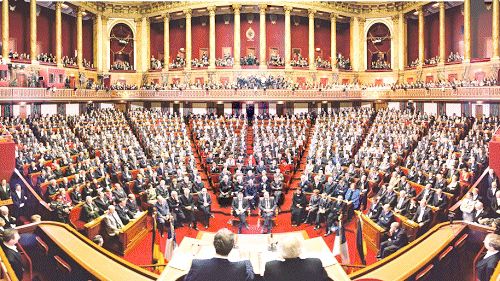 Lundi 25 septembre 2017 le projet de loi antiterroriste a commencé son passage devant l'Assemblée en « session extraordinaire ». Il vise à la transposition dans le droit commun de certaines mesures de l'état d'urgence prises au soir des attentats du 13 novembre 2015. Cette loi doit prendre le relais, le 1er novembre prochain, de l'état d'urgence prorogé à six reprises. Il s'agit de mesures comme les perquisitions rebaptisées "visites", les assignations à résidence en élargissant également le périmètre , et les fermetures administratives de lieux de culte. Lundi 25 septembre 2017 le projet de loi antiterroriste a commencé son passage devant l'Assemblée en « session extraordinaire ». Il vise à la transposition dans le droit commun de certaines mesures de l'état d'urgence prises au soir des attentats du 13 novembre 2015. Cette loi doit prendre le relais, le 1er novembre prochain, de l'état d'urgence prorogé à six reprises. Il s'agit de mesures comme les perquisitions rebaptisées "visites", les assignations à résidence en élargissant également le périmètre , et les fermetures administratives de lieux de culte.
D'autant que la menace terroriste , à son plus haut niveau, devient permanente et endogène. Contre cette menace , l'exécutif entend donc inscrire dans la loi ordinaire les "mesures les plus efficaces" de l'état d'urgence, selon les termes de Gérard Collomb, ministre de l'Intérieur.
Le Sénat a déjà procédé à l'adoption du texte en première lecture, en juillet dernier. Il y a apporté quelques modifications lesquelles ont été désapprouvées par le gouvernement. Plusieurs d'entre elles se sont vues annulées en commission à l'Assemblée nationale.
Mais de nombreuses mesures sont critiquées par les associations de défense des libertés individuelles comme étant liberticides. Ces dernières craignent que les opérations des services de police et de renseignement ne détournent ces lois à son profit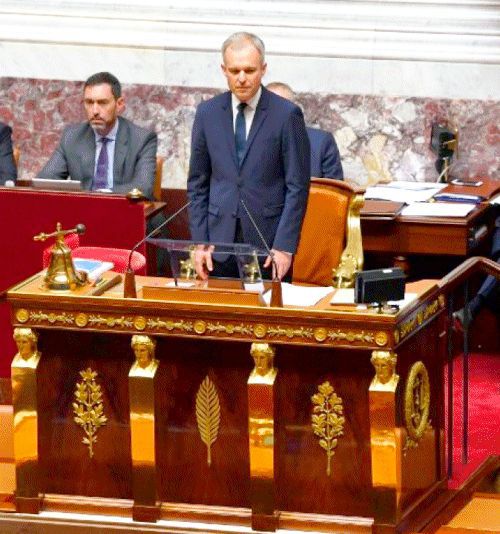
Pourtant le gouvernement assure que toutes les dispositions de la loi constitue un ciblage des plus précis sur les personnes soupçonnées d'être en lien avec la mouvance terroriste.
1°Une plus grande souplesse pour les perquisitions
Le préfet, représentant de l'Etat pourra demander dans le cadre d'investigations concernant le terrorisme des perquisitions, baptisées "visites et saisies". La personne concernée pourra être retenue pendant une quatre heures. Le lieu ciblé exclura le domicile ou le lieu de travail des avocats, magistrats et journalistes.Ces "visites et saisies" seront autorisées par le juge des libertés et de la détention (JLD) du tribunal de grande instance de Paris, après avis du procureur de Paris.
2° Les assignations à résidence
Les assignations d'une durée de trois mois et renouvelables dans la limite d'un an maximum, ne bénéficierait que d'un contrôle a posteriori par un juge administratif. Amnesty International, considère que ce type de décision puisse être pris "sur la foi de simples soupçons peu ou pas étayés des services de renseignement".
3° L'élargissement du périmètre des contrôles d'identité
Le gouvernement , s'appuyant sur l'article 25 du code Schengen, demande non seulement que soient élargies les possibilités de contrôles d'identité aux frontières mais également le périmètre. Ainsi la durée maximale des vérifications passerait de six à douze heures alors que les contrôles pourraient avoir lieu également aux abords des gares internationales (et non plus seulement à l'intérieur) et ce dans un rayon de 20 kilomètres autour des aéroports et des ports. Des associations craignent le détournement de ces mesures à de fins de contrôle de l'immigration irrégulière...
Gérard Collomb a assené que « ne pas maintenir un certain nombre de contrôles aux frontières, c'est sous-estimer la menace. Nous avons vu dans les derniers dossiers terroristes qu'il y avait des allées et venues entre la France et la Belgique, entre la France et l'Espagne » . La porosité des frontières s'avère un danger terroriste.
4° L'ajout de critères pour la fermeture des lieux de culte
Des critères supplémentaires pourrait faciliter la fermeture d'un lieu de culte : si les activités qui s'y déroulent "provoquent à la violence, provoquent à la commission d’actes de terrorisme ou font l’apologie de tels actes". Une fermeture consécutive du lieu de culte portée jusqu'à six mois avec une sanction de trois ans d’emprisonnement et 45.000 euros d’amendes en cas de violation de cette interdiction.
Les sénateurs avaient prévu que la découverte "d'écrits" véhiculant de telles provocations puissent constituer des preuves. L'exécutif a obtenu le fait que les "idées et théories" représentent aussi une menace. Le gouvernement fait la liste des "pratiques" qui sont "désormais beaucoup plus insidieuses", "plus indirectes" faisant clairement allusion à Internet : "La référence à tel ou tel théologien prônant ces idées, la présence de ses ouvrages dans la bibliothèque du lieu de culte, la présence de sa biographie sur le site internet du lieu de culte, ou encore la simple présence sur ce site, d’un lien Internet vers un site organisant une conférence ou vers un ouvrage relayant ces idées".
Serait-ce une atteinte à la liberté de conscience et au libre exercice des cultes garantis tant en droit interne qu’en droit européen et international ?
5° Les possibilités de surveillance renforcées
La mesure censurée en octobre 2016 par le Conseil constitutionnel sur les écoutes hertziennes revient dans l'hémicycle avec un cadre juridique pour y recourir. En fait il s'agit des communications quotidiennes empruntant les réseaux hertziens( GSM, Bluetooth, wifi...). Le texte Les boîtes noires du renseignement offre des algorithmes qui permettent de détecter des connexions suspectes sur Internet et seraient utilisables.Pour tous les citoyens?.
Au nom du terrorisme il faut être très circonspect et ne pas priver le citoyen de toute liberté, par contre il s’avère nécessaire d'opposer une plus grande fermeté, à l'égard d'individus fichés S, des lieux de culte, clubs de sport,prônant la violence par exemple, des opération plus musclées dans des zones repaires ...
|
|
|
|
|
|
| Paul Emison pour DayNewsWorld |
 |
There are no translations available.
LES SENATORIALES
UN SERIEUX REVERS POUR LES LREM
|
|
 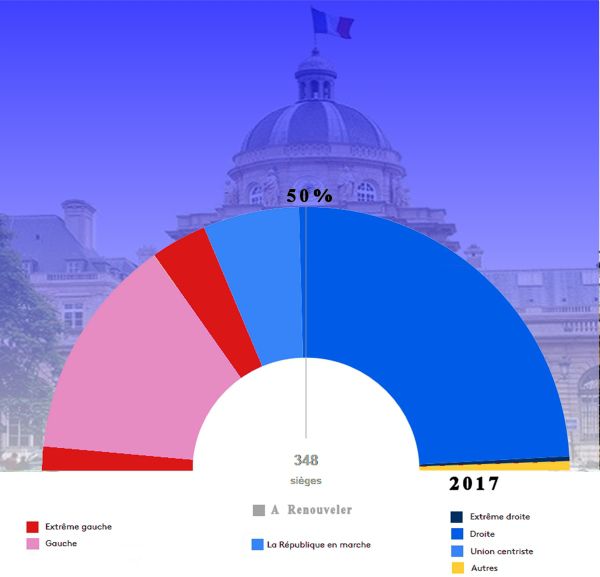
Comme tous les trois ans, pas moins de 76 000 "grands électeurs" (députés, sénateurs, élus locaux...) sont appelés aux urnes, dimanche 24 septembre 2017, pour renouveler, comme tous les trois ans, la moitié des sièges de la Haute Assemblée .
Ce scrutin indirect a valeur de test pour Emmanuel Macron et sa majorité.
Trois mois après le raz-de-marée macroniste à l'Assemblée nationale, il n'y a pas de vague LREM .
La victoire revient à la droite qui devrait même élargir son assise, toujours majoritaire et les LREM obtiennent moins de voix qu'ils ne le pensaient au Sénat:
une petite trentaine et siègeront en quatrième position.
Une soirée un peu compliquée pour Macron dont l'objectif était de passer à 45, voire 50 membres.
A défaut d'un avertissement, c'est l'expression d'un profond malaise de la société française
.A suivre
|
|
|
|
|
|
|
|
| Alyson Braxton pour DayNewsWorld |
 |
There are no translations available.
MELANCHON OPPOSANT NUMERO UN DE MACRON MAIS DERAPAGE VERBAL AVEC "LES NAZI"
|
|
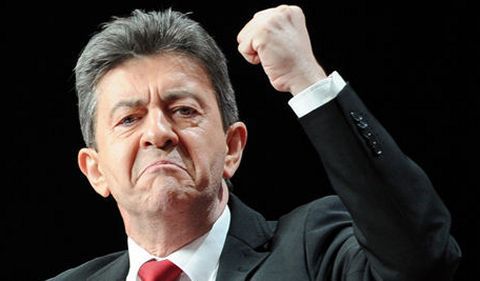
Jean-Luc Mélenchon a mobilisé contre la réforme du Code du travail. Ils sont venus « contre le coup d'Etat social ». Au total, 150 000, selon les organisateurs. 30 000, d'après les chiffres de la police.
Et d’autres combats ont été annoncés contre les autres réformes à venir comme sur la formation professionnelle, l’assurance chômage, le logement…
"la bataille ne fait que commencer" lancé le tribun. Ces sujet ne relèvent plus des ordonnances comme celles du code du travail.
Et le licencié de philosophie compte encore faire descendre dans la rue l'opposition et l'incarnait à l'heure où les partis politiques de droite comme de gauche sont laminés.
Macron et Mélanchon ont en commun de ne plus croire à la pertinence du clivage gauche-droite . Que veut-t-t-il montrer ?
Que le pouvoir peut se prendre dans la rue ?
Répliquer à la formule du Président expliquant sur CNM que la démocratie ne se fait pas dans la rue ?
« Personne n'avait parlé au peuple de cette façon ! Ni les rois ni les gouvernements ! » a-il lancé et de poursuivre « Il vous reste à consulter l'histoire de France, le tance Mélenchon. C'est la rue qui a abattu les rois. C'est la rue qui a abattu les nazis. C'est la rue qui a abattu le plan Juppé. C'est la rue qui a obtenu le retrait du CPE. »
Le député a appelé les organisations syndicales à «déferler à un million sur les Champs-Elysées.
Nous sommes prêts à nous ranger derrière elles. La bataille n'est pas finie. Elle commence. ».
Le chef de file des Insoumis se positionne en unique opposant contre le libéralisme de Macron.
Mais ces outrances langagières provoquent de vives réactions d'indignation et déplaisent fortement.
Samedi, le leader de La France insoumise a évoqué «la rue qui a abattu les nazis» en réponse au président Emmanuel Macron, qui avait dit plus tôt dans le semaine que «la démocratie, ce n'est pas la rue»..
Mais beaucoup pointe du doigt un amalgame «insupportable»». Ces propos du chef de la gauche radicale Jean-Luc Mélenchon a provoqué l'indignation de la classe politique française dimanche, l'exécutif dénonçant «une faute politique» et «morale
Face aux critiques, le chef de file de La France insoumise a tenté de se justifier en assurant n'avoir «jamais comparé le gouvernement actuel aux nazis».
Le porte-parole du gouvernement, Christophe Castaner, a dénoncé dimanche «une faute politique» et «morale» et jugé que «cet amalgame avec les nazis est totalement insupportable».
«Indigne de porter ces couleurs quand on mêle démocrates «Indigne de porter ces couleurs quand on mêle démocrates et républicains à la fange nazie», avait tweeté dès samedi M. Castaner en partageant une photo sur laquelle on voit M. Mélenchon s'adresser à la foule, drapé dans son écharpe tricolore de député.
La droite aussi a critiqué la sortie de M. Mélenchon. «Les nazis; c'était autre chose» et «quand on est un tribun, il faut être à la hauteur de la tribune», a martelé l'ancien ministre Les Républicains Eric Woerth.
|
|
|
|
|
|
|
|
| Alize Marion pour DayNewsWorld |
 |
There are no translations available.
NUMERO DEUX AU FRONT NATIONAL
OU UNE PLACE MAUDITE
|
"Le destin des dauphins, parfois, c'est de s'échouer", avait déclaré Jean-Marine Le Pen, à propos de Bruno Gollnisch...
|
|
|
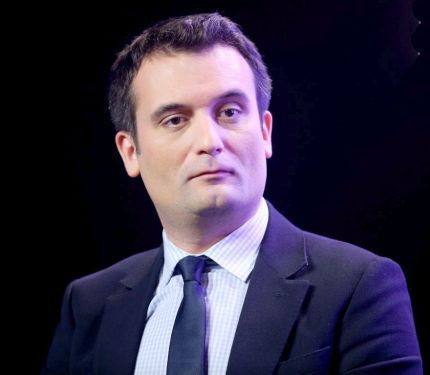 Entre Florian Philippot et le Front national, c'est le divorce. Entre Florian Philippot et le Front national, c'est le divorce.
Florian Philippot, le vice-président du FN, a annoncé ce mercredi 21 septembre qu'il « quittait » le parti . Ce haut responsable du parti d'extrême- droite français Front national, était considéré comme le bras droit de Marine Le Pen. Ce départ, après celui de Marion Maréchal , fait montre des tensions que traverse cette formation depuis l'échec à la présidentielle de mai.
Florian Philippot avait été rétrogradé mercredi soir au rang de vice-président sans attribution du Front national pour avoir refusé de quitter la présidence de son association "Les Patriotes".
"On m'a dit que j'étais vice-président à rien... Ecoutez, je n'ai pas le goût du ridicule, je n'ai jamais eu le goût de rien faire, donc bien sûr je quitte le Front national", a déclaré l'ancien numéro deux signant la fin d'une relation privilégiée avec Marine Le Pen,des années durant ce qui avait permis au parti d'augmenter fortement ces scores . N'oublions pas que Marine Le Pen avait recueilli lors de la dernière présidentielle plus de 10 millions de voix.
Les internautes ont rapidement fait le lien avec le fameux #Couscousgate, cette fameuse photo qui a circulé sur la toile où l'on pouvait voir Florian Philippot et la conseillère régionale Sophie Montel manger un couscous dans un restaurant. Les militants du FN s'étaient affrontés sur les réseaux sociaux à ce propos.. .
Mais au-delà de cette anecdote les raisons de ce départ mérite d'être plus profondément analysées vue la virulence des réactions politiques au sein même du FN , à l'image de celle du député FN des Pyrénées Orientales Louis Aliot, pour qui Floriant Phillipot n'avait pas sa légitimité au sein de la famille Le Pen.
 L’extrême droite en France n’est jamais parvenue à unir ses différentes chapelles. L’extrême droite en France n’est jamais parvenue à unir ses différentes chapelles.
Le numéro deux du FN incarnait surtout le courant social et souverainiste de Chevènement .
Pendant ses années au Front National , Florian Philippot a travaillé au sein du parti à travers son image médiatique qui donnait une assise de haut-fonctionnaire (énarque) capable d'être aux manettes de la France. Il connaissait non seulement bien ses dossiers mais également les rouages du pouvoir.
En outre il continuait l’œuvre de « dédiabolisation » du parti commencée par Marine Le Pen en 2007 qui avait provoqué le départ de plusieurs figures historiques du parti ( comme le catholique traditionnaliste Bernard Antony, l’ancien de l’OAS Roger Holeindre, le nationaliste Carl Lang, Jérôme Bourbon le maurrassien) en désaccord avec ce qu’ils appellent la normalisation.
Surtout en régions Rhône-Alpes et Paca, des mouvements identitaires se forme alors autour d’ex-proches de Bruno Gollsnich.
D’anciens militants et élus du FN en désaccord avec le fonctionnement de la famille Le Pen créent des mouvements régionaux ou locaux. Exemple : Jacques Bompard est réélu maire d’Orange depuis 1995 et député sous les couleurs de la Ligue du Sud.
Un départ d'une extrême violence. Il était à cet égard le Bruno Mégret de Marine Le Pen.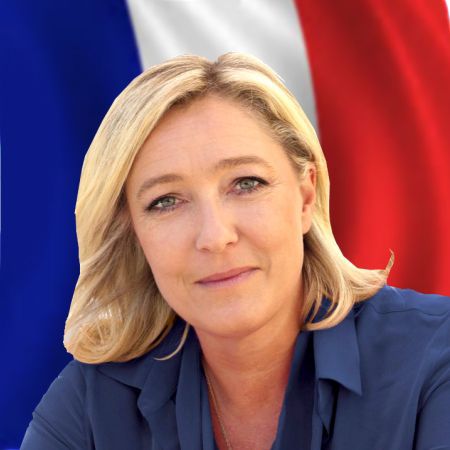
Mais à la différence de ce dernier Florian Philippot n'avait pas de réel enracinement dans ce parti. Son comportement hautain ne plaisait d'ailleurs pas du tout à la "base".
Bruno Mégret était l'homme d'appareil, l'intellectuel du parti de Jean-Marie Le Pen . Il avait claqué la porte en disant que « le parti n'appartenait à personne » et il avait emporté une bonne partie de l'appareil du parti, à la différence de Philippot , assez isolé.
Départ également d'une extrême violence, J-M Le Pen traitant son ancien numéro deux de « félon » mais il n' empêcha pas Jean-Marie Le Pen d’accéder au second tour de la présidentielle en 2002 avec 16,8%.
Aujourd'hui le départ du numéro deux est tout aussi violent. Le compagnon de Marine Le Pen l'a traité de « sectaire, de traître ».
D'autres d' énarque « arrogant »,« extrémiste », plein de « haine » et de « morgue », « une montgolfière gonflée à l'hélium médiatique ».
En fait l'ex- numéro deux du FN paie l'échec de la Présidentielle. Il sert de bouc émissaire.
Victoire momentanée de la fabrique Le Pen ?
Le départ de Florian Philippot va permettre un réalignement de la stratégie du parti sur ce que souhaitent vraiment sa base militante et électorale. D'ailleurs dans son premier discours après deux mois de silence, elle ne s'est adressée qu'à ses militants..
On ne peut que constater l'explosion des différents partis le PS , les LR et maintenant le FN avec une Marion Maréchal-Le Pen, actuellement partie du FN, qui prône un rapprochement avec Wauquiez, futur Président des LR ? Une stratégie d'union des droites ?
|
|
|
|
|
| Joanne Courbet pour DayNewsWorld |
 |
There are no translations available.
ELECTIONS SENATORIALES
TOUT SAVOIR
|
|
 Les élections sénatoriales vont avoir lieu ce dimanche 24 septembre 2017. Les élections sénatoriales vont avoir lieu ce dimanche 24 septembre 2017.
L’assemblée sénatoriale (Senat) compte 348 sénateurs.
Les sénateurs sont élus au suffrage universel indirect par un collège électoral comptant des grands électeurs, tous élus dans la circonscription unique qu’est un département, métropolitain ou d’Outremer. Il faut néanmoins, comme pour l’assemblée nationale, compter quelques sièges pour la représentation des Français de l’étranger (12). Les grands électeurs sont donc : des députes, des sénateurs, des conseillers départementaux, des conseillers régionaux et des conseillers municipaux.
La durée du mandat d’un sénateur est de 6 ans (contre 5 pour les députés).
Le renouvellement de l’assemblée sénatoriale a lieu par moitié, tous les 3 ans depuis la loi 2011-410 du 14 avril 2011.
Selon ces principes, c’est donc 178 sièges qui sont à renouveler ce dimanche 24 septembre 2017, tous appartenant à la série 1, comprenant les départements numérotes de 37 à 66 ,plus des départements d’Outremer, plus 6 sénateurs (sur 12) représentant les Français de l’étranger.
En plus du suffrage universel indirect, les sénateurs sont élus au scrutin uninominal à deux tours dans les départements comptant un ou deux sénateurs ; dans les autres départements comptant plus de 2 sénateurs, le scrutin est un scrutin de liste.
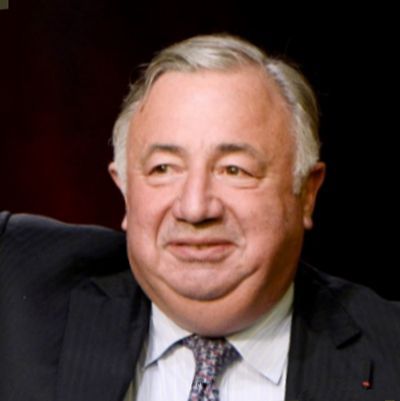 Le Sénat est actuellement présidé par Gérard LARCHER, qui par ailleurs est le second personnage de l’Etat, puisque constitutionnellement, c’est le président du Sénat qui remplace le Président de la République en cas de décès par exemple. C’est ce qui s’est passé en 1973 par exemple, après la mort de Georges Pompidou ; Alain Poher, Président du Sénat au moment de la mort du Président de la République a assuré la présidence de la République jusqu’au 10 mai 1974, date à laquelle a été élu le nouveau Président Valery Giscard d’Estaing. Le Sénat est actuellement présidé par Gérard LARCHER, qui par ailleurs est le second personnage de l’Etat, puisque constitutionnellement, c’est le président du Sénat qui remplace le Président de la République en cas de décès par exemple. C’est ce qui s’est passé en 1973 par exemple, après la mort de Georges Pompidou ; Alain Poher, Président du Sénat au moment de la mort du Président de la République a assuré la présidence de la République jusqu’au 10 mai 1974, date à laquelle a été élu le nouveau Président Valery Giscard d’Estaing.
Gérard LARCHER, est un élu de droite (ex-RPR), représentant à ce titre la majorité de droite issue des urnes suite au renouvellement de 2014. (La gauche était majoritaire au Sénat avant 2014).
Le Sénat et les sénateurs sont essentiellement des représentants des collectivités territoriales, fins connaisseurs par principe des problèmes de terrain, au plus près des élus locaux.
Dans le régime bicamériste qui est constitutionnellement celui de la France, le Sénat vote les lois et naturellement les amende selon sa conviction et ses tendances politiques, ceci dans le cadre de ce que l’on a l’habitude de qualifier de navette parlementaire.
En cas de divergence avec l‘assemblée nationale, une tentative de conciliation est organisée dans le cadre d’une commission mixte. C’est néanmoins l'Assemblée nationale qui a toujours le dernier mot et c’est donc le texte issu du dernier vote de celle-ci qui devient exécutoire.
Les élections sénatoriales sont des élections politiques, comme la plupart des élections et chaque parti ou chaque camp politique (droite ou gauche) cherche à emporter la majorité.
Dans cette optique, la droite espère bien conserver sa domination, objectif qu’il semble possible d’atteindre, les élections locales (municipales, départementales, régionales qui ont eu lieu de 2014 à 2015) ayant majoritairement été emportées par la droite.
Mais le nouveau venu qu’est La République en Marche (LREM) espère de son côté devenir la seconde force du Sénat, pour soutenir le Président de la République Emmanuel Macron et parvenir à constituer une majorité des 3/5 du Parlement (Sénat + Assemblée nationale) pour parvenir à mettre en œuvre les reformes constitutionnelles promises par le candidat Macron.
Tout cela parait simple sur le papier, mais comme toute élection politique les résultats des scrutins peuvent apporter leurs lots de surprises et modifier ici ou là les équilibres politiques présents. Ces surprises peuvent avoir diverses origines. En général elles sont le résultat de changement d’alliances de dernière minute, de tractations entre les deux tours ou de la notoriété très forte localement de certains candidats...
De ce point de vue, un certain nombre de points chauds ont été recensés :
Paris : La droite est divisée, mais la gauche qui était unie en 2011, part elle aussi dispersée. Elles sont toutes deux concurrencée par une liste LREM, conduite par Julien Bargeton, Adjoint aux Finances de la ville de Paris. Malgré tout, Pierre Laurent, N° 1 du PCF semble assuré de conserver son mandat, comme l’écologiste Esther Benbassa.
Seine et Marne : La tète de liste LREM avait été promise à Nicole Bricq qui vient de décéder récemment accidentellement. Elle a finalement été attribuée à un élu LR « constructif », Arnaud de Belenet. Anne Chain-Larché et Vincent Eblé, respectivement tête de liste LR et PS devraient néanmoins être réélus.
Yvelines : Gérard Larcher, le président actuel du Sénat se voit défier sur son terrain par l’ancien député Jacques Myard. Gérard Larcher compte sur sa popularité auprès des élus locaux pour être reconduit dans un nouveau mandat. Mais à gauche Philippe Esnol (RDSE) qui a soutenu Emmanuel Macron va tenter de garder son poste lui aussi.
Essonne : La droite semble en position de foncer. A noter, que sur la liste LR figure Laure Darcos, épouse de l’ancien ministre de l’Education, Xavier Darcos. Mais le PS fait front uni derrière l’ancien bras droit de Manuel Valls, Carlos da Silva. Le PS sera néanmoins en concurrence avec une liste communiste.
Seine Saint Denis : Le président du Groupe communiste au Sénat défend son siège, dans cet ancien fief du PCF. Mais sa liste doit affronter 3 autres listes de gauche. A droite, les deux sortants, Philippe Dallier et Vincent Capo-Canellas, ne devraient pas avoir de problème. Mais il n’en est pas de même pour Eric Raoult , ancien ministre qui se présente pour la première fois.
Isère : Rappelons que la ville de Grenoble, est tenue par une majorité écologiste (EELV) et PCF. Cinq sièges sont à pourvoir et les écologistes soutenus par leurs alliés de gauche pourraient tirer leur épingle du jeu. Néanmoins André Vallini, ancien ministre PS, candidat à sa réélection" estime que la colère montent chez les élus locaux, même chez ceux qui ont parrainé Emmanuel Macron et avoue ne pas savoir à qui profitera de cette situation", à la droite ou à la gauche ?.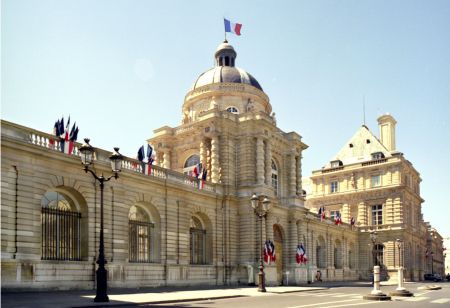
Morbihan : La gauche avait raflé les 3 sièges en 2011, mais cette fois ci la droite et le centre pourraient réaliser une percée ?
Nord : 5 listes de droite sont en compétition, une LR, dirigée par Philippe Daubresse, une UDI présidée par Valérie Letard, ancienne secrétaire d’Etat. Les 3 autres sont tirées par Jean Pierre Decool, Jean Pierre Bataille, Dany Wattebled. Malgré les défaites accumulées par les socialistes à l’occasion des élections locales, l’ancien ministre des sports, Patrick Kanner, tête de liste du PS devrait être réélu.
Pas de Calais : très affaiblie aussi dans ce département, la gauche qui détient actuellement 4 sièges sur 7 part en ordre dispersé. Malgré cela, le Président du Conseil Départemental PS, Michel Dagobert , largement soutenu , part en dissident. Le FN pourrait profiter de la situation pour enlever un siège dans ce département dont Marine Le Pen est l’une des députées.Il y a néanmoins en face du FN, deux listes dissidentes d’extrême droite.
Pyrénées Atlantiques : LREM ne présente pas de liste dans le bastion de François Bayrou, mais les deux sénateurs de gauche sortants font liste séparée.
Guadeloupe : L’ancien ministre, Victorin Lurel, que l’on a beaucoup entendu sur les antennes ces derniers jours à l’occasion du passage de l’ouragan Maria... se présente pour la première fois. Il a des adversaires divers gauche (5 listes DVG) . Mais 3 sénateurs sortants sont passés à LREM dont la liste est dirigée par un conseiller Dominique Théophile.
Ces élections sénatoriales qui ne concerne pas le grand public et sont dans la plupart des cas ignorées par lui, ont pour l’instant pas ou peu été commentées ou expliquées.
Que sortira t il néanmoins des urnes qui pourrait changer les équilibres politiques actuels ? Les résultats auront leur importance.
|
|
|
|
|
|
|
|
| Clara Mitchell pour DayNewsWorld |
 |
There are no translations available.
UNE MOBILISATION EN DEMI-TEINTE
CONTRE LA LOI TRAVAIL
|
|
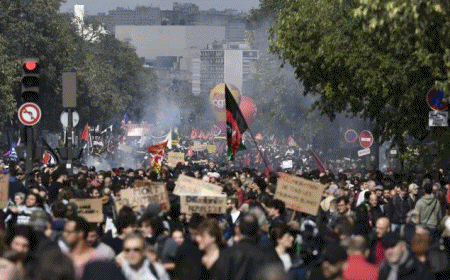 La CGT, organisatrice de la mobilisation, a simplement réussi à sauver les apparences revendiquant 400.000 manifestants à peine dans toute la France (223.000 seulement selon le ministère de l’Intérieur). La CGT, organisatrice de la mobilisation, a simplement réussi à sauver les apparences revendiquant 400.000 manifestants à peine dans toute la France (223.000 seulement selon le ministère de l’Intérieur).
A Paris, où la méthode de comptage de la police a été validée par des experts, la préfecture a dénombré 24.000 personnes ce mardi, soit 4.000 de moins qu'il y a 18 mois. Elles étaient entre 8.000 et 16.000 à Toulouse (contre 10.000 à 20.000).
Pour Philippe Martinez, le secrétaire général de la CGT, ce n'est que le début de la contestation dont les chiffres s'avèrent comparables à ceux observés en avril 2016, au début du mouvement contre la loi El Khomri.
"Cette première journée fait déjà la démonstration du niveau de mécontentement, confirmé par les sondages puisque 57% de l’opinion soutient cette mobilisation contre la réforme du droit du travail."a-t-il affirmé. Mai
Philippe Martinez a appelé à manifester à nouveau le 21 septembre, seulement 2 jours avant la manifestation de la France insoumise. Et la CGT mobilise avant tout ses bataillons issus du secteur public et seuls quelques dissidents de Force Ouvrière et même de la CFDT ont été à l'encontre des consignes de leurs directions...
Force est de constater que les syndicats se montrent très divisés sur la loi du Code du Travail et que même les deux leaders de la contestation n'arrivent pas à s'entendre pour une marche commune puisque Jean-Luc Mélanchon appelle la France Insoumise à manifester de son côté le 23 septembre. C'est que le candidat malheureux à la présidentielle a sa propre stratégie : il désire surtout frapper un grand coup dans dix jours et confirmer ainsi son statut d’opposant en chef au macronisme.
Les fractures de la gauche apparaissent au grand jour et on ne constate aucune jonction des luttes même si Jean -Luc Mélanchon s'est invité à la manifestation de la CGT et a commenté plus tard la réussite de ce premier défilé contestataire ."Ne lâchons rien le 21 et le 23 septembre", a tweeté l’insoumis... Mais entre les anciens trotskystes de La France insoumise et les ex-communistes de la CGT la controverse est historique à tel point que ces deux extrêmes gauches-là paraissent irréconciliables...
Jean-Claude Mailly se trouve certes contesté par son aile gauchiste perdant 52 unions départementales et huit fédérations de Force Ouvrière mais le néo-réformiste qu'il est reste largement majoritaire à la commission exécutive. Il veut avant tout peser sur les prochaines réformes de la formation professionnelle et de l’assurance chômage. "Pour éviter le pire", dit-il.
De son côté Laurent Berger, le secrétaire général de la CFDT exclut de battre le pavé. Pour lui c'est un mode d’expression devenu inapproprié. Alors que la centrale réformiste progresse à chaque élection professionnelle il veut consolider la voie du pragmatisme que plébiscitent les salariés du secteur privé.
Conscient de ces zizanies l'exécutif campe sur ses positions. « Nous tiendrons », a confirmé ce mardi le ministre de l'Economie, Bruno Lemaire
|
|
|
|
|
|
|
|
| Alyson Braxton pour DayNewsWorld |
 |
There are no translations available.
UNE POMME ET DES BISCUITS
EN GUISE DE REPAS
POUR DES POLICIERS CHARGES
DE LA PROTECTION DE MACRON !!!
|
|

Comment ne pas être indigné du maigre repas qu'on a bien daigné offrir aux policiers de Nancy chargés d'assurer la protection du président de "3h30 à 17h" lors de sa visite à Forbach ?
Le syndicat Unité-SGP-Police FO de Meurthe-et-Moselle.a fait circuler sur Facebook la photo du repas montrant les largesses de l'Etat :
en guise de repas on leur a servi une pomme, une briquette de jus d'orange, une bouteille d'eau et des biscuits. Scandaleux !!!
Rien d'étonnant que le syndicat Unité-SGP-Police FO se plaigne du peu de considération de l'administration envers leur profession !
"La photo illustre une fois de plus la considération de l'administration car le repas tant attendu s'est avéré être un simple goûter", s'est indigné le syndicat.
"Sachant que ceux-ci ont passé la journée entière sur un service d'ordre épuisant physiquement et psychologiquement", a-t-il martelé tout en omettant pas de signaler que la mobilisation avait duré de 3h30 à 17h.
Cette visite d'une école primaire le jour de la rentrée scolaire encadrée par des policiers de la Section d'intervention de Nancy (Meurthe-et-Moselle) se situait hors du lieu de résidence. En cas de déplacement, les fonctionnaires ont droit à un forfait repas de 15,25 euros...
Le secrétaire départemental d'Unité-SGP-Police FO 54 compte "alerter le préfet délégué et saisir le CHSCT".
Les policiers ,à ce régime là, peuvent garder la ligne !
|
|
|
|
|
|
|
|
| Mia Kennedy pour DayNewsWorld |
 |
There are no translations available.
QUI EST BRUNO ROGER-PETIT
LE PORTE-PAROLE DE L'ELYSEE ?
|
|
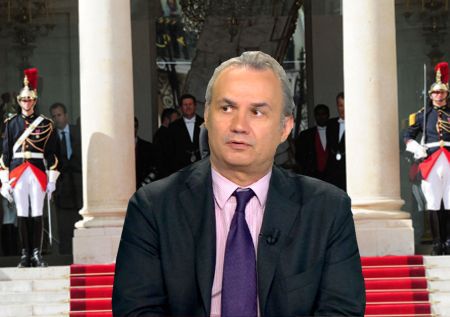 La relation entre Emmanuel Macron et les journalistes continue de faire jaser. La relation entre Emmanuel Macron et les journalistes continue de faire jaser.
Alors que le nouveau président de la République a voulu « bunkériser » sa communication, c'est pourtant bien un journaliste qui rejoint le palais présidentiel. Le journaliste Bruno Roger-Petit vient d'être nommé porte-parole de l'Élysée.
Dans un communiqué, le palais présidentiel a précisé que l'ancien journaliste de France Télévisions et collaborateur sur L'Obs et Challanges "aura pour mission de relayer la parole publique de l'Élysée, et utilisera pour ce faire tous les moyens à sa disposition, notamment le compte Twitter de la Présidence". Le sien, en revanche, a été supprimé il y a quelques heures…
A l'heure où les réseaux sociaux parasitent l'image du fondateur d'En Marche! ce qui, pour le moins, est gênant pour le Président à un moment où sa côte de popularité est en chute libre ce dernier choisit un journaliste rompu à la communication numérique avec son compte twitter abondamment alimenté !
D'où le choix de nommer un homme de médias de confiance, l’un des rares journalistes conviés par le futur chef de l’Etat à la soirée organisée à la Rotonde, au soir du premier tour, ce qui en dit déjà long. Ces derniers mois, Bruno Roger-Petit avait couvert la campagne présidentielle pour le site Challenges.fr. Au printemps dernier, la SDJ de la rédaction papier du magazine dans un article dénonce d'ailleurs la profusion de ces articles pro-Macron dans sa version digitale.
Cette fonction n'avait plus été attribué depuis le départ de David Martinon sous Nicolas Sarkozy en 2008, François Hollande ne l'ayant pas remise à l'honneur.
Le porte-parolat de l'Elysée n'a toutefois rien d'un exercice facile dans un univers médiatique bouleversé par la multiplication des canaux d'information et les réseaux sociaux. D'ailleurs non sans ironie David Martinon ne s'est pas privé d'aller de son petit commentaire.
"Bravo pour cette belle mission. Je vous souhaite le meilleur. Passionnant et amusant. Vous verrez", a tweeté non sans ironie David Martinon après l'annonce de la nomination de "BRP"
Cette nomination signifie-elle que l'Elysée veut muscler sa parole pour contrer les critiques qui tombent de toutes parts ?
|
|
|
|
|
|
|
|
| Carl Delsey pour DayNewsWorld |
 |
There are no translations available.
PREMIERE INTERVIEW DE BRIGITTE MACRON
|
|

Pour la première fois depuis l'accession de son époux à l'Élysée, Brigitte Macron se confie au magazine Elle.
Cette première interview de Brigitte Macron tombe à point nommé pour l'Élysée à un moment où la popularité du Président est en baisse et où la plainte pour «harcèlement et atteinte à la vie privée»
du Président Macron contre un photographe et la garde à vue du de ce dernier a mis le feu aux poudres dans la stratégie de communication du Président.
Si une partie de la presse française muselée se tait, les médias étrangers s'offusquent d'une telle plainte.
L'épouse du chef de l'État clarifie le rôle qu'elle va jouer à l'Elysée.
Brigitte Macron
«tellement habituée à ce qu'il [lui] arrive des choses extraordinaires avec Emmanuel »
confirme la publication prochaine d'une charte de transparence et non une loi.
«Ce qui est important, c'est que tout soit très clair: comme toutes celles qui m'ont précédée, j'assumerai mon rôle public, mais les Français sauront désormais quels moyens sont mis à ma disposition»,
indique-t-elle.
Et d'ajouter :
«Sur le site de l'Élysée, seront mis en ligne mes rendez-vous, mes engagements, afin que les Français sachent exactement ce que je fais.»
Le président de la République a dû renoncer à une promesse celle de donner un statut à l'épouse du chef de l'État s'inspirant du modèle de la First lady américaine dont les prérogatives sont aussi larges que strictement encadrées par une loi de 1978.
Premièrement ce statut aurait demandé a minima un débat parlementaire voire une modification de la Constitution.
Deuxièmement suite à la loi de moralisation de la vie publique qui interdit désormais aux députés et sénateurs l'embauche des membres de leurs familles comme assistants parlementaires, octroyer un statut à l'épouse du chef de l'État serait passé comme d'un emploi familial.
Et enfin la pétition en ligne initiée par l'artiste Thierry-Paul Valette contre l'officialisation d'un statut pour Mme Macron a obtenu en quatre semaines plus de 313 000 signatures.
On n'élit pas un couple mais un Président dans la Véme République !
|
|
|
|
|
|
|
|
| Boby Dean pour DayNewsWorld |
 |
There are no translations available.
UN CHANGEMENT DE PIED
SUR LE STATUT
DE LA PREMIERE DAME
|
|

Le candidat, Emmanuel Macron avait déclaré vouloir "clarifier" le statut de l'épouse du chef de l'Etat en lui donnant un rôle officiel, avec pour objectif de "sortir d'une hypocrisie française", avait-il expliqué.
Mais à l'heure où la loi de moralisation de la vie pue la défense blique doit interdire aux parlementaires d'employer des membres de leur famille, à l'heure de la restriction des budgets des ministères- comme celui du ministère de la Défense la volonté de l'Elysée passe mal auprès de l'opinion publique lassée des scandales à répétition .
Thierry Paul Valette, fondateur d'Egalité nationale, un mouvement de lutte contre la corruption est à l'origine de la pétition.
L'activiste craint qu'un statut officiel de la Première dame lui fasse bénéficier d'un budget, d'un rôle important, de nombreux collaborateurs, chauffeurs, protection renforcée et autres avantages..."
C 'est pourquoi à l’Elysée , face à la polémique , on préfère aujourd'hui parler de Charte plutôt que de statut. Joue-t-on sur les mots ?
L'on sait déjà que l’épouse du Macron ne sera donc pas rémunérée.
Son agenda sera publié sur le site de l'Elysée, et elle devrait continuer d'effectuer au moins un déplacement par semaine, principalement autour de la thématique du handicap.
|
|
|
|
|
|
|
|
| Paul Emison pour DayNewsWorld |
 |
THE POPULARITY OF
EMMANUEL MACRON FREE FALL
|
|
|
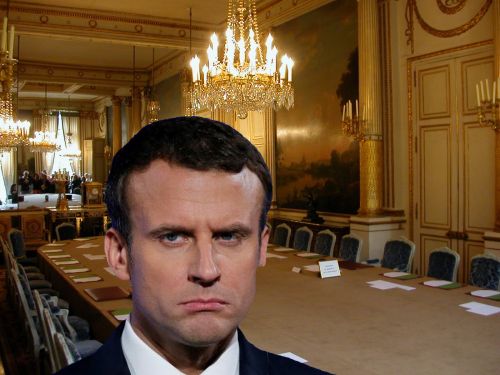
Two months after his election, Emmanuel Macron is experiencing a dramatic drop in his popularity, as evidenced by the YouGov poll for the Huffington Post and CNews aired Thursday (August 3rd).
Its popularity has dropped 7 points in one shot since the last poll in July.
Only 36% of respondents retained a favorable opinion on the President:
A decline unparalleled throughout the Fifth Republic. The fall is particularly noticeable among the right and center supporters with whom Emmanuel Macron loses respectively 8 and 14 points, but also in his left electorate.
The state of grace turns out well!
This discontent affects different categories of the population . It is most pronounced among officials who live the restitution of the day of deficiency, the freezing of the wage index, and budget cuts as a betrayal.
The retirees are worried about the announced increase of the CSG which will reduce their standard of living. The drop in the APL by five euros per month, as well as the gradual spreading of the abolition of the housing tax are very badly experienced by the more modest .
According to JL Mélanchon, five euros a month is equivalent to a one-day meal. As for the wealthier classes, they are afraid to pay for the others.
But beyond the unfulfilled promises, the numerous couacs in the Assembly is the authoritarianism of Emmanuel Macron with respect to the general of General staff of Villiers who resigned. Besides, 15 senior officers of the army having left the service - including five generals - wrote an open letter to support the Chief of Staff.
Public opinion is increasingly feeling that it is dealing with an outstanding communicator in the service of a policy of austerity.
|
|
|
|
|
|
|
|
Alize Marion for DayNewsWorld
|
 |
BREAKING FOR MORALIZATION
OF PUBLIC LIFE
|
|
 
After being examined by the Senate in early July, the bill on the moralization of public life is debated this week in the Assembly during stormy sessions, chaired by Members of Parliament.
The introduction of a "compulsory compulsory ineligibility penalty" in the event of a breach of probity has already been adopted when the promise of candidate Macron consisted of the requirement of a criminal record abandoned for risk of unconstitutionality
Another project debated this Wednesday and Thursday that of the prohibition of family jobs by ministers and parliamentarians and local elected officials ..
The deputies finally voted against the prohibition of family work for ministers and parliamentarians.
Pars Against the Question of Senior Officials was left out of scope by the text
The Socialist Delphine Batho regrets that "the issue of corruption in the senior public service [is] at this stage postponed".
Julien Aubert, a former ecologist, has not deprived himself of a scathing remark, pointing out that, as "pig fever: a pig is sick, then the whole flock is slaughtered." He is one of those who counted his wife in his collaborators But, despite some reluctance the law was voted Wednesday and Thursday by the Assembly.
The Fillon affair of supposedly fictitious jobs of Penelope Fillon and two of the couple's children, very badly perceived by the citizens, was a trigger for a moralization of public life demanded by François Bayrou ... for his rallying To the Movement On the Move during the Presidential elections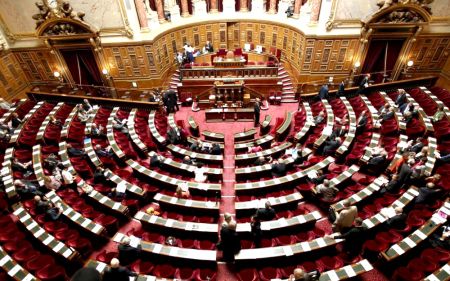 . .
"It is not a question of reacting automatically to polemics or business but to meeting the expectations of voters," argued Laëtitia Avia (LREM). In Germany or Italy ", and since 2009 in the European Parliament it is already the case.
But what do we really mean by "family jobs"?
The Law Commission has relied on the Quebec model of a two-tier system: family jobs "for the immediate family" (spouse, partner of PACS, cohabiting partner, parents and children, and spouse, partner of Pacs or Concubine) are no longer possible under penalty of three years in prison and 45,000 euros in fines. And the employment of any other person in the second circle (former family or non-family), will be subject to a mandatory declaration such as cross-employment (hiring an employee from the family of another elected official or minister).
Removal of the representative fee for representative representative fees
The National Assembly also voted on Thursday (July 27th) the abolition of the much-maligned representative fee for mandate (IRFM), a flat-rate envelope (5,373 euros net of parliamentarians and 6110 euros for senators) not subject to tax On income. It voted for the reimbursement of parliamentary expenses only on supporting documents.
Today the debate will be polarized around the end of the parliamentary reserve which public under the preserve of the hints of clientelism. The abolition of this annual windfall of 147 million euros, of which deputies and senators have used to subsidize the municipalities or the associations risks to pose some bellicose passes of arms. The group in It is a casus belli for the Republican, the leader LR, Christian Jacob denouncing there a way "to attack the local anchoring of the deputy".
|
|
|
|
|
|
|
|
| Joanne Courbet for DayNewsWorld |
 |
AS PROBLEMS ACCUMULATE
EMMANUEL MACRON RECEIVES RIHANNA
|
|
 It is Brigitte Macron who welcomed on the steps of the Elysee Rihanna, to accompany it then to the presidential office where Emmanuel Macron expected the star. It is Brigitte Macron who welcomed on the steps of the Elysee Rihanna, to accompany it then to the presidential office where Emmanuel Macron expected the star.
It was Rihanna herself who had asked to be received by the Elysee.
Born on February 20, 1988 in Saint Michael, Barbados, she is now 29 years old. She is young and beautiful!
Rihanna is a singer, singer-songwriter, actress and director!
As a youngster she wanted to look like Britney Speer. It seems that she has succeeded, offering to her public in addition to the particular timbre of her voice, generous necklines emerging (according to her latest style) of empire ruffling and frilly dresses.
Emmanuel Macron will certainly have had the sight capsized and the face purged for a few moments ... meeting ... well ... we can hope. !! ??

The star, in its beginnings is only an illustrious unknown to the golden skin that carries a frail silhouette. But she has an unusual voice and looks for her style.
Little by little the flower blossomed. It passes successively from a style baggy XXL and golden brassiere, with the smooth hair and the eye of doe !! She dances on stage in a style bling bling and gradually becomes the icon of a generation ....
From album to album she will evolve her style going from stylish hairstyles, sometimes very short to a hair of fire or black of jay

She is noticed on the red carpets where she dares puffed and disproportionate dresses; She once wore one, signed by the Chinese designer Guo Pei whom some called "omelette dress". !!! an entire program !
Rihanna, who defines herself as a VIP of luxury militates for education, reason why, it is very probable, she was welcomed by Brigitte Macron, herself professor of French.
Rihanna received the award from the prestigious Harvard University designating her as the humanitarian personality of the year.
She was in Paris these last days to support the launch of Luc Besson's latest film "Valerian and the Cities of the Thousand Planets" in cinemas from 27 July. We see that Rihanna does not forget the business !!
The visit of Rihanna to Emmanuel Macron has made laugh the aficionados of the social networks. Go and find out why?
Valerian and the Cités des Milles Planètes is a film with many special effects. Luc Besson said he fought to have Rihanna in his film, against skeptical producers. But he's got it!
Rihanna plays Bubble in the film, an artist who changes form and is supposed to help the main character Dan Dettaan.
This role may possibly allow him to be the Oscar that made him dream so much. We wish him wholeheartedly in any case! |
|
|
|
|
|
|
|
| Clara Mitchell for DayNewsWorld |
 |
There are no translations available.
MAX GALLO EST MORT !
|
|
Un peu plus de 15 jours après la disparition de Simone Veil, un autre académicien vient de nous quitter
Atteint depuis 2015 de la maladie de Parkinson, Max Gallo s’est éteint le 18 juillet 2017.
C’est un historien, un journaliste, un écrivain et un homme politique qui vient de nous quitter. C’est un homme atypique qui vient de disparaitre.
Max Gallo est né le 7 janvier 1932 à Nice. Il est le fils d’un immigré italien : son père était originaire de la région du Piémont, sa mère de la région de Parme.
Max Gallo a passé toute son enfance et son adolescence à Nice, au côté d’un père qui fut résistant pendant la seconde guerre mondiale mais n’a jamais mis sa famille dans la confidence.
Il commença ses études par un parcours technique aux termes duquel il obtint un CAP d’ajusteur.
Avec en main un baccalauréat de mathématiques, il s’oriente finalement vers les lettres et fait propédeutique.
La guerre d’Algérie arrive. Il n’est pas envoyé dans le « bled » mais fait son service militaire au Bourget où il rencontre Jean Pierre Coffe, tous deux fondent un journal antimilitariste qui ne sortira qu’à 3 exemplaires. !!???

La guerre d’Algérie terminée, il reprend ses études et obtient son agrégation d’histoire. Il devient professeur d’histoire au Lycée Masséna en 1960. Il poursuit encore des études pour obtenir un doctorat en 1968, grâce à sa soutenance de thèse de 3ème cycle consacrée à la propagande de l’Italie fasciste. Il finira professeur à l’Institut d’Etude Politique de Paris.
Parallèlement, Max Gallo fut journaliste : éditorialiste à l’Express tout d’abord, puis rédacteur en chef au Matin, puis animateur dans l’excellente émission « Esprit Public » (tous les dimanches de 11H à 12H sur France Culture).
Politiquement il s’engagea très jeune au Parti Communiste où il restera jusqu’en 1954. Il adhère au Parti Socialiste niçois en 1981. Le PS niçois cherchait à l’époque une personnalité pour le représenter.
Il rencontrera François Mitterrand en 1976 l’occasion de l'émission de Bernard Pivot, Apostrophe.
En 1983, il est nommé secrétaire d’Etat, flanqué d’un directeur de cabinet qui ne fut autre que ……….
François Hollande. Il quitte le gouvernement un an plus tard pour se consacrer entièrement à l’écriture, ce qui ne l’empêcha pas de soutenir Jean Pierre Chevènement pour l’élection présidentielle de 2002.
Il milita contre le referendum sur le traité constitutionnel européen dit de Maastricht.
Déçu par la gauche, enthousiasmé par l’épopée gaulliste et le personnage de Napoléon, il apporta son soutien à Nicolas Sarkozy en 2007.
Max Gallo a écrit de nombreux ouvrages. (environ 200).
Il a écrit sur toutes les époques dans lesquelles il plongeait avec ravissement, mais surtout pour dévoiler les grandes passions humaines qui mettent les hommes en mouvement.
Ses réflexions sur les Grands Hommes ou les Grandes Femmes ont tranché sur l’esprit du Déterminisme (Hegel-Marx) ambiant de l’époque.
Selon lui, sans de tels Hommes ou Femmes le cours de l’histoire aurait été différent. Et selon lui toujours, c’est à travers l’action des grands Hommes ou des grandes Femmes que la Liberté Humaine s’est le mieux révélée ;
Amoureux de la France, il en a chanté les plus belles pages de son histoire, dans un style accessible à tous.
Max Gallo a été le chantre d’une histoire nationale, simple, fière, patriotique, le contraire de celle que certains ont transformé en instrument de déconstruction nationale, allant jusqu’à la haine de la patrie.
Selon lui, cette autre histoire « qui croyait engendrer des Hommes libres a fabriqués des individus déculturés ».
Max Gallo n’a pas cédé à cette fâcheuse tendance. Pour Max Gallo la fierté nationale n’a rien d’un patriotisme cocorico comme on le voit à l’occasion de grandes compétitions sportives sur les stades. Pour lui la fierté nationale est le résultat d’un récit national, au travers duquel il est possible d’admirer les grands Hommes, le grandes Femmes le tout concourant à la construction d’une identité nationale.
Ce qui intéressait Max Gallo, c’était l’âme de la France. Au fil du temps il était passé d’une conception un peu aride de la République à une passion charnelle pour son pays.
Sur ses dernières années il a développé l’idée d‘une crise nationale qui a commencé à la fin de la première guerre mondiale et qui se poursuit encore, écrivant notamment un livre résumant parfaitement sa pensée : « je n’appartiens pas à la France de la Repentance ».
En 2005, il avait rejoint un groupe d’historiens qui refusait la réécriture du passé à l’aulne des lois mémorielles. Pour lui, la loi doit être séparée de l’histoire..
C’est dans cet état d’esprit qu’il a contesté la position de Jacques Chirac à propos de la responsabilité de l’Etat Français dans la Shoah, ainsi que la loi Taubira qui reconnaissait la traite et l’esclavage comme un crime contre l’Humanité, visant en premier la France.
Nul doute que s’il n’avait pas été très malade, proche de la mort, il aurait aussi critiqué le discours d’Emmanuel Macron prononce à l’occasion de la venue de Benjamin Netanyahu le 16 juillet lors de la commémoration de la rafle du Vel d’Hiv.
Max Gallo est mort le 19 juillet 2017
Un grand Homme vient de partir !
Un grand académicien aussi : il a été élu le 31 mai 2007 académicien, fauteuil 24, fauteuil occupé précédemment par Jean François Revel, mais aussi par Jean Baptiste Colbert, Jean de la Fontaine, Sully Prudhomme, Louis Pasteur .. Et beaucoup d’autres.
Nul doute qu’il est allé au Paradis des Académiciens rejoindre Simone Veil, académicienne elle aussi et elle aussi née à Nice.
|
|
|
|
|
|
|
|
| Clara Mitchell pour DayNewsWorld |
 |
There are no translations available.
|
APRES LA DEMISSION INEDITE DU CHEF-D'ETAT-MAJOR LE GENERAL DE VILLIERS
NOMINATION DU GENERAL FRANCOIS LECOINTRE
|
|
 La démission de Pierre de Villiers a sonné comme un coup de tonnerre. Démission inédite, fait sans précédent sous la Ve République. La démission de Pierre de Villiers a sonné comme un coup de tonnerre. Démission inédite, fait sans précédent sous la Ve République.
En désaccord avec Emmanuel Macron sur les ressources allouées à la Défense, le chef d'état-major des armées françaises, Pierre de Villiers, a quitté son poste mercredi sous les applaudissements de la haie des militaires
"Dans les circonstances actuelles, je considère ne plus être en mesure d’assurer la pérennité du modèle d’armée auquel je crois pour garantir la protection de la France et des Français"a écrit mercredi le général de Villiers .
"Ce n'est pas le rôle du chef d'état-major" de défendre le budget des armées "mais celui de la ministre", selon le président de la République, interrogé France 2 sur la démission du général de Villiers qui avait critiqué les coupes financières imposées à la Défense
Cette démission signe la première crise du quinquennat.
Le chef du groupe Nouvelle gauche (ex-Parti socialiste et apparentés) à l'Assemblée, Olivier Faure, a déploré "une crise de confiance entre les armées et le chef de l'État".
C'est la première fois qu’un Cema est nommé de la sorte, en Conseil des ministres, quelques heures à peine après l'annonce de la démission de son prédécesseur.
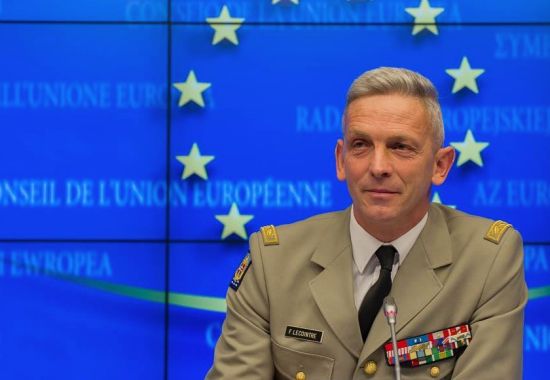 Le général François Lecointre, jusqu'à présent chef du cabinet militaire du Premier ministre, va lui succéder. Le général François Lecointre, jusqu'à présent chef du cabinet militaire du Premier ministre, va lui succéder.
Il s'agit, selon Emmanuel Macron, d'"un héros militaire comme il y en a peu", d'un "grand général de l'armée de terre".
Cet homme athlétique de 55 ans est issue de l'infanterie de marine et a derrière lui une longue expérience du terrain (Irak, Somalie, Rwanda, ex-Yougoslavie, la première guerre du Golfe (1991) Djibouti ...) ainsi qu'un parcours dans différents états-majors et en ministère.
"C'est un officier exceptionnel et expérimenté", a salué la ministre des Armées, Florence Parly, tout en rendant dans la foulée "hommage à l'action du général de Villiers".
François Lecointre, nouveau poste de chef d’état-major des armées (Cema), va devoir faire montre de courage! L’ancien chef du cabinet militaire à Matignon arrive en plein désaccord entre le gouvernement et l’armée.
Les expériences de terrain l'ont profondément marqué .
comme le raconte Michel Goya dans une partie de son livre Sous le feu-La mort comme hypothèse de travail.
"L’opération Turquoise" et le génocide rwandais, qui a vu mourir plus de 800.000 personnes en une centaine de jours l'ont marqué à jamais.
"J'ai appris sur ma propre violence. La mort appelle la mort […] Ceux qui assistent au massacre sont tentés de mort […] Ceux qui assistent au massacre sont tentés de se faire justiciers. On se dit dans ces moments que, si on respecte les règles, on ne peut rien empêcher. Il faut lutter contre cette idée." selon le nouveau chef d'etat-major.
Le général Lecointre, marié et père de quatre filles, est également membre de l’équipe fondatrice de la revue "Inflexions", dont il est aujourd’hui directeur de la publication.
Cette revue donne la parole à de nombreux experts civils et militaires - Jean-Yves Le Drian ou Pierre de Villiers, l’ancien Cema, y ont écrit des articles - et jouit d’une reconnaissance certaine dans le milieu de l’armée. Sous-titrée "Civils et militaires : pouvoir dire", la revue "ambitionne de participer au débat intellectuel autour de problématiques actuelles centrées sur l’action militaire."
Ce nouveau Cema semble surtout avoir "le sens de l’Etat". "Sa lucidité fait parfois un peu peur [...] il n'est pas vendeur de rêves", confie un conseiller qui l’a côtoyé . Ce qui risque de poser problème, alors que l’armée se plaint déjà de l’usure de certains équipements...
Et désormais François Lecointre va devoir apprendre à faire autant, voire plus, avec moins 850 millions d’euros de baisse du budget des Armées !
Et en 2012, François Lecointre avait évoqué dans la revue Inflexions « les contraintes budgétaires croissantes pesant sur les militaires » et souhaité que la nation manifeste à chaque soldat « la reconnaissance que son engagement extraordinaire doit lui valoir ». Des propos d'une d’actualité brûlante...
|
|
|
|
|
|
| Joanne Courbet pour DayNewsWorld |
 |
There are no translations available.
ETAT D'URGENCE ET LOI ANTITERRORISTE
|
|
 Devant le Congres, réuni à Versailles, Emmanuel MACRON a annoncé, lundi 3 juillet qu’il rendrait aux Français leurs libertés en levant l’état d’urgence, à l’automne dans les faits le 1er novembre 2017. Devant le Congres, réuni à Versailles, Emmanuel MACRON a annoncé, lundi 3 juillet qu’il rendrait aux Français leurs libertés en levant l’état d’urgence, à l’automne dans les faits le 1er novembre 2017.
L’état d’urgence aurait¨dû prendre fin le 21 juillet, si Emmanuel Macron n’avait pas fait cette annonce le 3 juillet.
Et pourtant, Emmanuel Macron, qui avait fortement critiqué l’état d’urgence prolongé à 5 reprises par son prédécesseur, n’avait-il pas promis pendant la campagne électorale qu’il souhaitait sortir au plus vite de cet état d’exception ???
C’est en tout état de cause ce qu’il avait assuré dans son livre « Révolution », publié en Novembre 2016.
Et c’est donc quelques semaines après son élection et la nomination d'’Edouard Philippe, selon la volonté en ce sens de nouveau Président, que deux textes ont été déposés en Conseil des Ministres. : un premier prolongeant l’état d’urgence, un second pour transposer dans le droit commun les principes en vigueur en situation d’état d’urgence.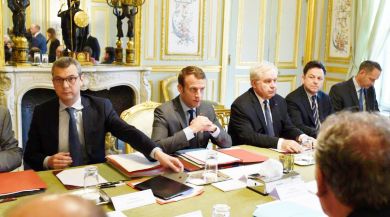
Le projet de loi (second texte) qui sera examiné pour la première fois par le Sénat a donc pour objet de transposer dans en droit commun les dispositions renforçant la sécurité intérieure et la lutte contre le terrorisme. Les mesures inscrites autrefois dans une loi d’exception vont donc devenir pérennes à partir de novembre 2017.
Certains ont applaudi, jugeant indispensable, dans un contexte de menace terroriste le renforcement du dispositif ; d’autres et pas des moindres ont déjà vu dans la volonté d’Emmanuel Macron, un virage clairement sécuritaire….
Aussi en a-t-il été du Défenseur des droits, Jacques Toubon qui a déclaré récemment que « permettre que la loi française fasse courir le risque d’une dérive sécuritaire, c’était aller sur le terrain des barbares » !!!!
Christine Lazerges, Présidente de la Commission Consultative des Droits de l’Homme (CNCDH) s’est quant à elle carrément prononcée en faveur de l’abandon du projet de loi, pas moins !
L ’Eglise Catholique a de son côté manifesté ses craintes sur la fermeture des lieux de cultes …
Sous la pression de l’opinion publique et du Conseil d’Etat, le texte rédigé initialement et en toute discrétion, en tenant l’autorité judiciaire à l’écart, a donc dû déjà être modifié, avant son adoption le 22 juin en Conseil des Ministres …
Le projet de loi renforçant la sécurité intérieure et la lutte contre le terrorisme comporte principalement 8 mesures :
- 1° Possibilité pour le préfet d‘établir des périmètres de protection pour assurer la sécurité d’événements ou de lieux particulièrement exposés à la menace terroriste
- 2° Création d’une procédure de fermeture administrative de certains lieux de culte, qui par les propos qui y sont tenus et les idées qui y sont diffusées, incitent à la haine et à la commission d’actes de terrorisme. Cette décision est prise par le Préfet pour une durée maximum de 6 mois.
-3° Création d’un régime de surveillance individuelle pour toute personne dont le comportement constitue une menace grave et qui entretient des relations avec des organisations aux visées terroristes.
- 4° Création d’un nouveau régime de visites et saisies à domicile ; plus encadrées qu’en période d’état d’urgence, visites et saisies seront soumises à l’autorisation préalable de l’autorité judiciaire.
-5° Transposition de la directive européen « Passager Name Record » (PNR) en adaptant le système français au Droit de l’Union Européenne.
- 6° Création d’un système national de centralisation des données issues des dossiers des passagers du transport maritime à destination ou au départ de France.
-7° Etablissement d’un cadre juridique pour les opérations de surveillance des réseaux hertziens.
-8° Renforcement des possibilités de contrôle aux frontières aux abords des ports, aéroports et gares ferroviaires ou routières ouverts au trafic international
C’est Michel Mercier, sénateur centriste UDI, professeur universitaire de droit et ancien garde des Sceaux de Nicolas Sarkozy qui a été nommé rapporteur du texte.
Dès le mercredi 12 juillet la commission des Lois du Sénat a passé au crible le texte.
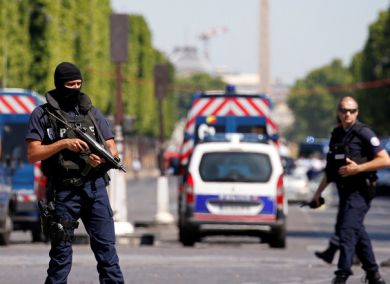 Les sénateurs ont décidé de limiter dans le temps (jusqu’au 31 décembre 2021/soit 4 mois avant les présidentielles de 2022 ??) les mesures contenues dans le projet de loi du Ministre de l’Intérieur, Gérard Collomb dont l’assignation dans la commune, le bracelet électronique et les perquisitions administratives, préférant donner un statut expérimental au texte et aux desiderata d’Emmanuel Macron, afin d’éviter ainsi la mise en place d’un état d’urgence permanent !! Les sénateurs ont décidé de limiter dans le temps (jusqu’au 31 décembre 2021/soit 4 mois avant les présidentielles de 2022 ??) les mesures contenues dans le projet de loi du Ministre de l’Intérieur, Gérard Collomb dont l’assignation dans la commune, le bracelet électronique et les perquisitions administratives, préférant donner un statut expérimental au texte et aux desiderata d’Emmanuel Macron, afin d’éviter ainsi la mise en place d’un état d’urgence permanent !!
Les dispositions obligeant une personne à déclarer tous ses n° d’abonnement et identifiants de communication électronique ont été purement supprimées, les sénateurs ayant estimé que « cette mesure porte une atteinte aux libertés constitutionnelles qui relèvent du respect de la vie privée, du secret des correspondances et des droits de la défense ». Les mesures de pointage au commissariat, prévues à raison d’une par jour dans le projet Collomb ont été limités à 3 par semaine.
Les sénateurs ont introduit le juge judiciaire dans les mesures de surveillance individuelle. Ils ont par ailleurs davantage encadré les perquisitions administratives, mesures selon eux constitutionnellement le plus attentatoires aux libertés individuelles, faisant au passage le juge judiciaire compétent en matière de contestation desdites perquisitions administratives (cela relevait auparavant de la compétence des juridictions administratives).
Le texte remanié par les sénateurs doit être examiné en première lecture à partir du 19 juillet, en séance publique au Sénat.
Nul doute que la vigilance sénatoriale légendaire va continuer à s’exercer légitimement.
Toutes ces modifications ont autorisé certains à dire que le Sénat était en train de s’attribuer le beau rôle en matière libertés individuelles et de garanties constitutionnelles.
Beau rôle ou pas LREM n’est pas majoritaire au Sénat (un groupe LREM vient seulement de tenter de s’organiser).
Les sénateurs ont toujours fait preuve d’indépendance vis-à-vis du pouvoir dominant. Espérons qu’il en sera encore longtemps ainsi et que la vague macronienne qui vient de bouleverser le paysage politique français n’atteindra pas la Haute Assemblée à la faveur du renouvellement des sénatoriales du mois de septembre prochain.
|
|
|
|
|
|
|
|
| Clara Mitchell pour DayNewsWorld |
 |
There are no translations available.
LES NOMBREUSES BEVUES DU PRESIDENT MACRON
|
|
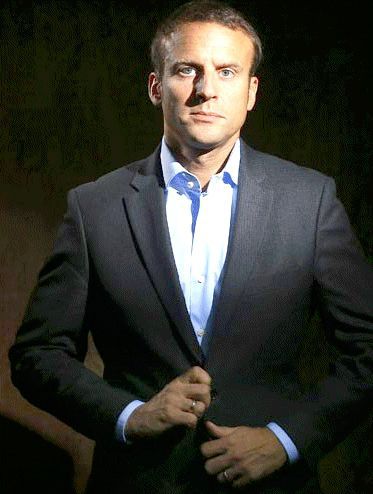 Emmanuel Macron n'en est pas à son premier écart de langage. Un nouveau qui n'a pas fini d'étonner pour un jeune Président. Emmanuel Macron n'en est pas à son premier écart de langage. Un nouveau qui n'a pas fini d'étonner pour un jeune Président.
En marge du G20 qui venait de s’achever en Allemagne, Emmanuel Macron, le président français, a donné une conférence de presse samedi 8 juillet. Au cours de celle-ci, un journaliste ivoirien, faisant référence au « partenariat [du G20] avec l’Afrique » et au « Plan Marshall », lui a posé la question suivante :
« Concrètement, combien les pays du G20 sont prêts à mettre dans l’enveloppe pour sauver l’Afrique ? Et quelle sera la contribution de la France ? »
Après avoir dit d’emblée qu’il ne « croyait pas une seconde à ces raisonnements »,
le leader français a expliqué que le
« Plan Marshall était un plan de reconstruction, dans des pays qui avaient leurs équilibres, leurs frontières, leur stabilité ».
Or, a-t-il enchaîné, le « défi de l’Afrique est différent, il est beaucoup plus profond, il est civilisationnel », avant de lister la myriade de problèmes auxquels est confronté le continent –
« Les Etats faillis, les transitions démocratiques complexes, la transition démographique » –
Certes l'analyse a du vrai et reste très superficielle Mais le langage diplomatique est de rigueur dans de tels sommets !
Si bien que de tels propos n’ont pas manqué de susciter de vives réactions au sein des communautés africaines, en France ou sur le continent.
Certains ont vu dans cette référence à la « civilisation » le dernier avatar d’une série de réflexions racistes émises par les dirigeants français depuis le Général de Gaulle.
D’autres ont fustigé le cynisme de dirigeants hexagonaux pourtant responsables aux yeux de beaucoup des fameux « Etats faillis » dénoncés par le locataire de l’Elysée.
« Quand des pays ont encore aujourd'hui 7 à 8 enfants par femme, vous pouvez décider d'y dépenser des milliards d'euros, vous ne stabiliserez rien », a-t-il ajouté!!!. Point de doute, la controverse était lancée.
|
|
|
|
|
|
|
|
| Alize Marion pour DayNewsWorld |
 |
There are no translations available.
DES LARMES ET DU SANG
SUR LE RING
|
|
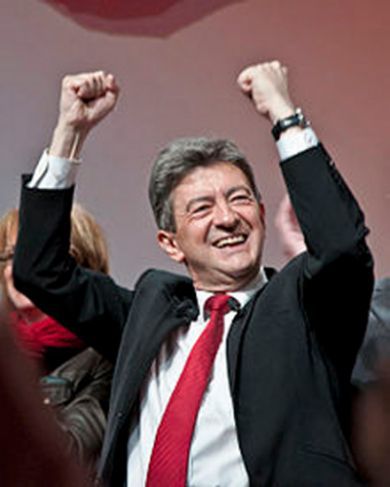 Jean Luc Mélenchon suspecte Emmanuel Macron de préparer un coup d’Etat social. Jean Luc Mélenchon suspecte Emmanuel Macron de préparer un coup d’Etat social.
C’est ce que vient de déclarer notre tribun national, mercredi dernier (05/07/2017) à Jean Jacques Bourdin qui l’interrogeait sur BFMTV.
Pas moins que cela ! !
En tout cas, le Président de la France Insoumise prépare en riposte à cette menace, un rassemblement de résistance pour le 12 juillet et promet simultanément une rentrée de septembre « agitée » si le gouvernement persiste dans sa reforme du droit du travail.
Depuis quelques semaines, le leader de la France Insoumise, entretient, à raison, ou non, des polémiques médiatiques et fait le buzz en permanence.
Cette stratégie du coup de gueule semble porter ses fruits d’une part en raison du comportement despotique des députés LRMR à l’assemblée nationale, d’autre part en raison du fait que la droite républicaine , qui vient d’annoncer sa scission , peine à organiser une opposition claire, déterminée et efficace.
L’utilisation de la théorie du populisme de gauche qui avait fait l’objet de vifs débats intellectuels pendant la campagne présidentielle , notamment lorsqu’il s’agissait de dénoncer l’inefficacité d’une stratégie organisée sur cette base idéologique , semble aujourd’hui au contraire s’imposer à la faveur du contexte politique actuel et de l’inexpérience et des couacs divers de la majorités LREM . Même Emmanuel Macron le Président de la République vient d’offrir à Jean Luc Mélenchon, sur un plateau d’argent, une nouvelle occasion de promouvoir le recours à cette philosophie du populisme de gauche, qui a failli lui permettre d’accéder au second tour de l’élection présidentielle.
Emmanuel Macron vient en effet de tenir des propos désastreux pour son image, le 29 juin 2017, à l’occasion de l’inauguration de l’incubateur (d’entreprises) situé dans l’ancienne halle Freyssinet. La phrase va faire date : « une gare est un lieu ou l’on croise des gens qui réussissent et des gens qui ne sont rien » a-t-il dit à la stupeur de beaucoup ..
Cette déclaration pour le moins maladroite et au plus méprisante a provoqué la colère de personnalités de divers bords, mais surtout celle de Jean Luc Mélenchon.
A la suite du discours du Premier Ministre, Edouard Philippe, précédent le vote de confiance, Jean Luc Mélenchon a déclaré tout net, bien sûr qu’il ne voterait pas la confiance, mais que « les riens (qu’il considère représenter) lui disent (..) que nous sommes peut être aujourd’hui des riens, mais que demain nous seront tout »…
La menace est à peine voilée ! Contre celui ( Emmanuel Macron) que beaucoup commence à considérer comme un joueur de flûte, fripon, qui a trompé les citoyens par des manipulations déloyales.
Méritons-nous en effet, nous Français, un tel mépris de la part de celui qui fut l’assistant du philosophe Paul Ricœur, mais qui semble avoir dissimulé une personnalité de Janus.
Jean Luc Mélenchon n’a pas manqué de dénoncer cette situation, tout en jubilant très certainement dans son for intérieur. Macron vient en effet de redonner très imprudemment du sens à l’Internationale : « Debout les damnés de la terre, nous ne sommes rien, mais nous sommes tout » /.
Mais aussi il vient de permettre à d’autres de rappeler les propos de notre Simone Veil disparue ces derniers jours qui disait : « un peuple que l’on n’encourage pas à retrouver son unité et un jour son harmonie, se condamne à un destin tragique » emporté par les populismes de tout poil …
De son côté, Albert Camus pensait que « toute forme de mépris si elle intervient en politique, prépare ou instaure le fascisme ».
Par ses méthodes et de tels propos, Macron préparerait donc peut être un coup d’Etat social, justifiant ou entrainant l’installation d’une dictature ? Et il se pourrait donc que Jean Luc Mélenchon ait raison ?
Dans tous les cas de figure, dérapages involontaires ou convictions profondes, l’attitude d’Emmanuel Macaron, vient de redonner corps à une opposition de gauche, conduite pour l’essentiel par Jean Luc Mélenchon.
Les sondages sur la popularité du Président et de son premier ministre ont vertigineusement baissé en quelques jours. Le président d’Odoxa vient en effet d’administrer la preuve à l’occasion de son dernier sondage, que « les Français sont de plus en plus circonspects et ne sont pas convaincus par les choix de l‘exécutif » :% d’entre eux, selon ce sondage n’ont déjà plus confiance en Emmanuel Macron.
Les premiers accrocs de l’executif qui sont déjà apparus, sont donc lourds de conséquences. Nul doute qu’il y en aura encore !
Par un effet domino, ma Macron ou le syndrome de l’Autruche que l’on a connu au moment des présidentielles , tels que vient de les décrire Yvan Rioufol du Figaro, semble en train de se guérir rapidement , par réaction à l’emphase et au pédantisme, face à la technocratie encore toute puissante, face à une mondialisation qui baigne dans les anglicismes, face à la menace du terrorisme islamique et la mise en cause concomitante de notre modèle culturel et social qui subit chaque jour les coups de butoirs d’un islam conquérant et politique , face enfin à une immigration de masse que rien ne semble freiner ….ensemble de faits qu’ Emmanuel Macron rejetait d’un revers de manche et négligeait , convaincu qu’il ne s’agissait que de l’expression « des gens de rien »…adeptes d’un populisme de pacotille.
Alors ! C’est peut être la fin de l’épidémie de Macronisme. Et du syndrome de l’autruche qui est en train de s’esquisser Il se peut néanmoins que la maladie persiste encore dans quelques foyers, qui gravitent autour de l’exécutif et qui eux semblent avoir encore garde la tête dans le sable.. Pour ne pas voir que tout ce qui a trait à des bouleversements identitaire fragilise la nation..
Sous la conduite de Jean Luc Mélenchon, le passage entre ceux qui « ont » et ceux qui « sont » risque de s’avérer agité voire déterminant pour notre avenir. Emmanuel Macaron serait bien inspirer de réfléchir vite, très vite.
|
|
|
|
|
|
|
|
| Clara Mitchell pour DayNewsWorld |
 |
TRIBUTE TO SIMONE VEIL
|
|
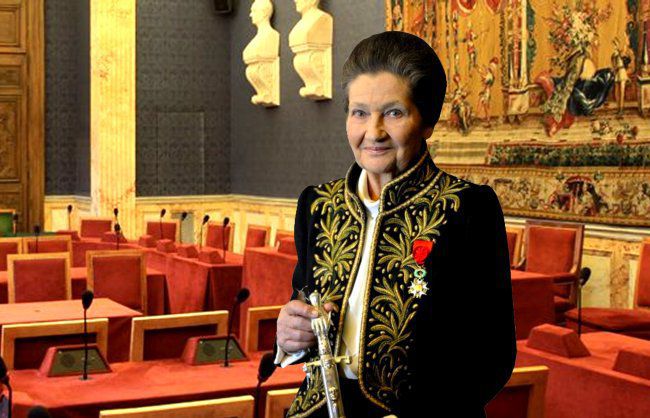
Simone Veil, who died on June 30, 2017, will be buried today in the presence of several heads of state, at the Montparnasse cemetery, after a ceremony in the Court of Invalides, where she lives the Dome all her life windows of the apartment she occupied. She has long been the favorite personality of the French ...
Since the announcement of his disappearance, praise and flowers in front of his home, Rue Vauban, have not stopped accumulating.
Simone Jacob (married to Antoine Veil) was born in Nice.
His father, who was an architect, gave the family a comfortable standard of living until the crisis of 1929 hit his business.
 The whole family had to move and leave a beautiful bourgeois building to settle in a more modest apartment. The whole family had to move and leave a beautiful bourgeois building to settle in a more modest apartment.
Despite this reversal of fortune, Simone Veil has always said that she still had an excellent memory of her childhood and adolescence in the midst of a family of four children surrounded by a cultivated and attentive mother whose memory will not leave her not..
Very good student, she passed her bac in 1944 ... she was 16 years old.
But for 3 years, at the insistence of her father, she lived in semi-secrecy. Since the German occupation the Jacob family felt threatened. She even had to leave high school where she was studying to hide while still burning at home, thanks to the classes that her high school friends brought her.
As any teenager, she wanted to celebrate the event ... and for the first time in many months agreed an exit between friends ..
But this joyous escapade leads her ... imprudently .. in front of the Excelsior Hotel where the Gestapo was installed ...
It was there that she was arrested and then interrogated for six days before being taken to Drancy .
We know the rest of the story: the Auschwitz-Birkenau camp, then Bergen-Belsen. ..
The tragedy of the family began as she lost her mother, who died of typhus, her father and her brother.
Discreet, she spoke little of this sini 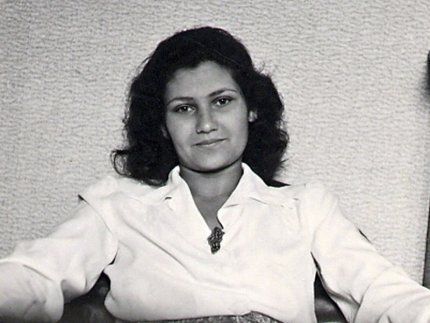 this period (in communist and Stalinist France the day after the war, it was impossible to talk about the Holocaust anyway) ... except at the end of her life when she had the opportunity to return "on pilgrimage" to Auschwitz …. this period (in communist and Stalinist France the day after the war, it was impossible to talk about the Holocaust anyway) ... except at the end of her life when she had the opportunity to return "on pilgrimage" to Auschwitz ….
Any other woman would have remained prostrate following such a misfortune and such painful experiences. But Simone Veil was already a strong and determined woman, who embraced life with courage, above French quarrels.
When the war was over, she finished her studies, became a law student, and became a magistrate, a senior official in charge of important files in the Ministry of Justice. It was there that Valéry Giscard d'Estaing, who became President of the Republic in 1974, appointed her Minister of Health with the objective of preparing a law decriminalizing abortion.
His public destiny was played at that moment.
Everyone (each) remembers the hard struggle she had to face in the National Assembly, an assembly then made up exclusively of men (there are now 224 women deputies!), Mostly hostile to the reform. During all the days of discussions and debates, she struggles, under the anathemas and insults of all kinds .. some quite ignoble, questioning her Jewishness up to treat her as a Nazi, child exterminator, favorable to euthanasia
Drained by complicated, malicious and long debates she confided: "there was in this assembly of men a hatred of the woman dare to make an IVG .."
A height! 
We saw her then, discreetly wipe away tears.
The Veil Act, which erased the 1920 law that banned contraception and abortion, made an impression; marked also a new beginning in the evolution of our society. The fight she won not only for her, but for all women; for the cause of women who have been confronted for centuries, most often only in situations of unwanted pregnancy and the resulting difficulties.
Because women are the ones who, since the dawn of time, have had to assume this kind of situation alone ... Once the embryo was well planted, they had to manage and assume; ensure the consequences of a birth but then very often feed and educate children. Until recently, the education of children was the business of women, centered at the expense of their personal life on the home and family responsibilities ... men being ... elsewhere ... outside ... all occupied by their career and their selfish pleasures.
All women owe him a lot; but it has much to valuable politicians like Valery Giscard d'Estaing or Lucien Neuwirth, who a few months ago had passed the law on contraception.
In these debates, although non-militant feminist, she expressed feminist positions flying not only to help the distress of women but also denouncing the power of men on them who finally wanting to control their fertility made them lose almost automatically their male and patriarchal age-old authority. She remained convinced all her life that abortion was not a method of contraception.
Everything changed thanks to it, from the 1970s.
Aided by this political victory and this decisive victory over the evolution of society, she was entrusted with the UDF list of the European elections that followed.
Esteemed for her competence and courage, she won the confidence of the elected representatives of the European Parliament who made her the first president.

But beside the woman politician, there was the woman just. Wife of Antoine Veil, founder of the Club Vauban, she never stopped looking for a balance in her marriage and making sure that her shining husband, too, did not take offense to her dazzling political rise.
Past the ministry door, she was an attentive mother and grandmother, knowing how to partition family and professional life .. a feat for the time, as successful professional lives often excluded women from a fulfilling family life. Success required!
His career could not stop there. Noted for her intelligence, her culture and her charisma she was proposed to enter the French Academy. The chair where she settled was the one occupied by Racine, an illustrious author of the XVII who described the psychological and moral tears of female heroines, torn between love and duty !!
An emblem that did not fail to highlight Jean d'Ormesson, a dear friend, who made his praise of introduction under the dome on March 18, 2010. Always so dignified, she wore the feminized costume of the academicians that day, designed and made by her friend Karl Lagerfeld.
Jean d'Ormesson! An academic friend too! A great friend who, on hearing of his disappearance, will cry out the immeasurable sorrow that this loss caused him.
From the first days of his disappearance, many asked for his pantheonization. ... which comes, after agreement of the family, to be accepted by the President of the Republic. She will be the fifth woman to get the honor of entering this Republican temple that is the Pantheon
Remained Jewish culture, she had nevertheless expressed the wish in his last wishes that the Kaddish is recited on his coffin ... his wishes were granted.
Simone Veil will remain in the memory of all, as an exceptional woman, as an icon .. a great lady with a remarkable dignity. Wherever she has been, she has made things progress, in depth, politics not interested .... one of the reasons probably for which she never exercised a local or national mandate ...
|
|
|
|
|
|
|
|
| Clara Mitchell for DayNewsWorld |
 |
There are no translations available.
CONTOURNEMENT DES REGLES DE PASSATIONS MARCHES PUBLICS DANS L'AFFAIRE PENICAUD
|
|
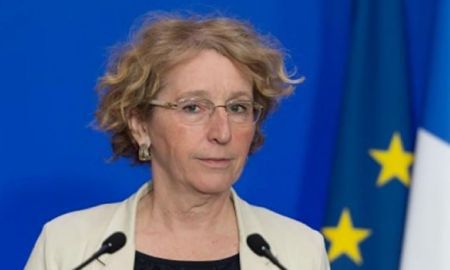 D’après le quotidien Libération, la ministre du travail et ex-dirigeante de l’organisme public avait transmis aux organes de contrôle une synthèse biaisée,où étaient gommés les risques judiciaires. D’après le quotidien Libération, la ministre du travail et ex-dirigeante de l’organisme public avait transmis aux organes de contrôle une synthèse biaisée,où étaient gommés les risques judiciaires.
Le dossier embarrassant du ministre Muriel Penicaut lié à l’organisation, sans appel d’offre d’une soirée à grands frais autour d’Emmanuel Macron à Las Vegas le 6 janvier 2016 connaît de nouveaux rebondissements
.En effet Business France serait passé outre les règles en vigueur lorsque le groupe confie à Havas les prestations relatives à cet événement, sans passer par la procédure d’appel d’offres, pour un coût total de 381 000 euros – un coût ramené in fine à 290 000 euros, hors frais d’hôtels.
Une enquête préliminaire est en cours au parquet de Paris pour « favoritisme, complicité et recel de favoritisme ». Muriel Pénicaud avait déclaré avoir diligenté un audit indépendant, en mars 2016, sitôt « alertée » d’« une erreur de procédure ».
Un courriel a été retrouvé sur ce que savait vraiment l’ex-patronne de Business France des dysfonctionnements de procédure liés à la tenue de cet événement. N'oublions pas que cet événement était en réalité commandé par le cabinet du ministre de l’économie de l’époque, Emmanuel Macron !
Les principaux arguments de défense de Mme Pénicaud reposent sur le fait qu’elle aurait « immédiatement déclenché un audit interne et externe » et « alerté le conseil d’administration ». Or Libération affirme qu’elle n’a en fait informé son conseil d’administration qu’en décembre 2016, presque un an après la réunion de Las Vegas.
L’audit commandé par Pénicaud, resta dans le bureau de Pénicaud de longs mois avant d’atterrir sur le bureau de Michel Sapin en décembre 2016. Les enquêteurs de l’IGF estiment qu’entre trois et cinq cadres de Business France pourraient être incriminés pour « favoritisme ».
Quant à Emmanuel Macron, Michel Sapin a estimé que l’ex-ministre de l’économie n’avait pas de responsabilité dans cette affaire. « Il n’est fait à aucun moment la moindre référence à Emmanuel Macron ou à son cabinet dans le rapport de l’IGF, Emmanuel Macron n’y est jamais cité ou mis en cause. C’est un dysfonctionnement de Business France », a t-il déclaré au Monde le 15 mars. Mais à Libération de nuancer en indiquant que que Macron le cabinet d’Emmanuel Macron a interféré à plusieurs reprises dans l’organisation de la soirée, notamment dans le choix de l’hôtel. Une ingérence mentionnée brièvement par la pilote de l’organisation de la soirée, Fabienne Bothy-Chesneau, dans un email retranscrit dans l’audit d’E & Y agacée par l’attitude du cabinet de: « C’est Business France qui décide et nous sommes aimables et associons la mission French Tech ainsi que le cab. Pas l’inverse. »
« Mais surtout, elle y présente une synthèse tronquée, qui minore les dysfonctionnements pointés par un audit alarmant du cabinet EY (ex-Ernst & Young), qu’elle avait elle-même commandé en mars 2016 », selon le le quotidien. Muriel Pernicault n'aurait en fait non pas communiquer la totalité du rapport d’une soixantaine de pages mais aurait communiqué qu'une synthèse de quelques lignes, dans un document général rédigé par ses services.
Ce document minore les irrégularités, et on peut notamment lire que « Business France a immédiatement lancé une mise en concurrence »
La synthèse se contente seulement d'évoquer un « risque d’irrégularité des prestations contractuelles » au regard « des règles applicables en droit de la commande publique » et propose donc que cette situation soit réglé en adoptant un protocole transactionnel, déjà signé par Havas.
D'autres dysfonctionnements ignorés
1° « La mise en concurrence n’a pas eu lieu concomitamment entre les trois prestataires contactés. »
2° La situation est susceptible « d’engager la responsabilité pénale [délit de favoritisme] des auteurs ». Des éléments qui ne figurent pas dans la synthèse présentée par Mme Pénicaud.
Le cabinet de la ministre refuse de toute façon de répondre aux questions relatives à ce dossier.
Mme Pénicaud était au courant du problème de contournement des règles de passation des marchés publics, le fond de l’affaire. Elle avait au moins été avertie, en amont, des difficultés financières soulevées par cette soirée.
|
|
|
|
|
|
|
|
| Carl Delsey pour DayNewsWorld |
 |
There are no translations available.
DE NOMBREUX APPELS
A LA PANTHEONISATION
DE SIMONE VEIL
|

Une pétition a été lancée pour réclamer que Simone Veil, décédée vendredi à l'âge de 89 ans, fasse son entrée au Panthéon.
Les signataires s'adressent à Emmanuel Macron et Marlène Schiapa, secrétaire d'Etat chargée de l'Égalité entre les femmes et les hommes.
Il s'agit de saluer le combat de l'ex-ministre de la Santé pour légaliser l'IVG et son parcours de survivant de la Shoah.
"Ce qui justifie à mon sens la Panthéonisation de Simone Veil c’est avant tout l’héritage qu’elle a et qu’elle amène aux Français en terme d’idéal européen et d’universalisme, et en terme d’idéal féministe.
Beaacoup de Français se retrouvent dans cet héritage", insiste Fatima El Ouasdi, la présidente du collectif à l'origine de la pétition.
|
|
|
|
|
|
|
|
| Alyston Braxton pour DayNewsWorld |
 |
There are no translations available.
OUVERTURE DE LA LEGISLATURE
DE LA VEME REPUBLIQUE DE LA PRESIDENCE D'EMMANUEL MACRON
|
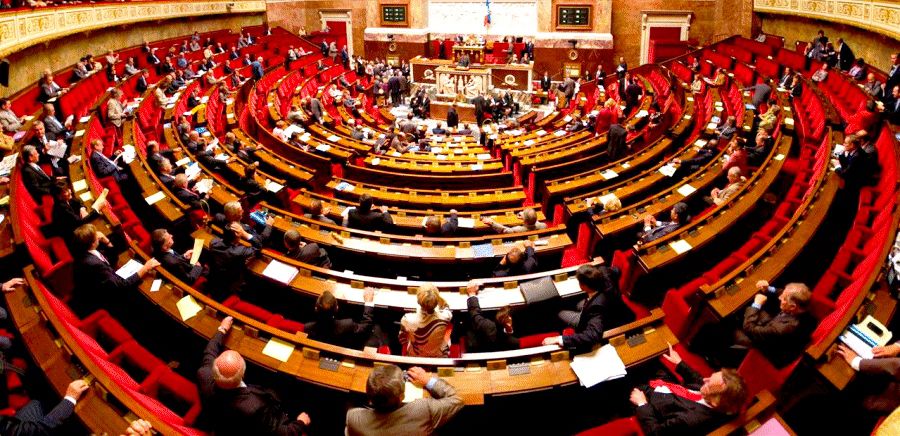 27, 17, XVIIème ,que des terminaisons en 7 , de quoi donner des maux de têtes et ouvrir des réflexions spéculatives ou divinatoires aux numérologues de tout poil, adeptes de prospectives en tout genre … 27, 17, XVIIème ,que des terminaisons en 7 , de quoi donner des maux de têtes et ouvrir des réflexions spéculatives ou divinatoires aux numérologues de tout poil, adeptes de prospectives en tout genre …
Les 577 députes élus les 11 et 18 juin , ont fait sous ces auspices leur entrée à l'assemblée nationale.
Rappelons que cette cuvée a vu arriver 432 députés fraîchement élus , dont beaucoup n'ont jamais été élus et n'ont jamais siégés dans une assemblée publique.
Assis par ordre alphabétique,les nouveaux députes ont pris place dans l’hémicycle. La réunion a commencé sous la présidence de Bernard Brochant , députe cacochyme le plus âgé , élu des Alpes Maritime (qui a échappé au degagisme),et qui ….rions un peu , lança un vibrant appel à l'audace , de l'audace, toujours de l'audace ... dans son discours introductif.

C'est François de Rugy qui a été élu président de cette toute nouvelle assemblée nationale , soutenu par les 313 députes En Marche. Ce ne fut pas une surprise, son nom circulait depuis plusieurs jours .
Avec son image d'écolo sérieux , François de Rudy avait séduit Emmanuel Macron depuis le début de l'aventure En Marche! et cette nomination n'était qu'une juste rétribution d'un ralliement de la première heure .
Après l'installation du Président , sont venus les annonces des groupes parlementaires et leurs installations.
Il n'y en a 7 , (encore le chiffre 7) un chiffre inédit depuis le début de la Veme République , qui n'en a jamais comporté autant. !!
Viennent en première position bien sûr, le groupe LREM auquel s'est rattaché Manuel Valls : 42 députes qui ne manqueront pas de faire entendre leur voix , dans une ambiance qui risque d'être parfois cacophonique et dissipée en raison de leur inexpérience .
Viennent ensuite les Républicains , qui se sont divisés entre les députés «dits constructifs » et ceux de la droite historique et décomplexée.
C'est Frank Riester qui a pris la présidence des constructifs dont le groupe compte 35 députes LR et UDI confondus.
De son côté Christian Jacob a gardé la présidence du groupe historique réduit à 100 … ???
Sur la gauche de l’hémicycle se sont installés les 28 membres de la nouvelle Gauche (ex PS), 28 députés qui ont échappé au degagisme ambiant .
Le groupe de la gauche radicale , s'est quant à lui divisé en 2 groupes : le groupe de la France Insoumise,cornaqué par Jean Luc Mélanchon (17 membres) et celui de la gauche démocratique et républicaine (16 députés) .
Pour finir , il faut ajouter les 18 députés sans rattachement à un groupe , ceux que l'on nomme traditionnellement les non inscrits , mais qui comptent des voix connues comme celle de Jean Lassalle, Gilbert Collard, Marine Le Pen , Nicolas Dupont Aignan et que l'on n'a pas fini d'entendre .
15 est le nombre qui permet de constituer un groupe doté de moyen financier et d'un droit légal de peser dans le débat parlementaire.
Pour marquer leur différence et commencer à faire sauter les codes de la vénérable assemblée nationale les députes de la France Insoumise se sont présentés sans cravates (Oh ! My God) portant néanmoins costume de ville de bon aloi. (exit les culottes courtes.... le règne des sans culottes n'est pas encore arrivé)
Selon les chiffres définitifs et malgré les efforts pour assurer la parité totale , seules 224 femmes ont été élues et sont donc entrées à l'Assemblée Nationale. C'est 27 % de plus que précédente législature.
Mais l’avancée des femme s'est arrêtée là : aucune n'a été élue à la présidence d'un groupe ???
Curieusement , ce constat est resté très discret …
Depuis le 28 Frimaire an XII (20 décembre 1803) il y a 3 questeurs à l'assemblée nationale . Les questeurs sont placés sous la direction du Président de l’Assemblée Nationale et du Bureau . Ils sont chargés des services administratifs et financiers . Aucune dépense ne peut être engagée sans leur avis favorable. Les questeurs sont élus pour 3 ans . Ils disposent chacun d'un logement de fonction luxueux (une des raisons pour laquelle le poste est très envié) et d’une prime complémentaire de 5000 € .
Ils jouent un rôle important dan la préparation du budget,son exécution et son contrôle .
Ils participent à l’administration générale et nationale.
Autant dire que la désignation des questeurs fait l'objet d’âpres discussions, de belles querelles et de rancœurs larvées.
Deux questeurs reviennent de droit au groupe majoritaire .
Florian Bachelier et Laurence Rossi qui ont recuelli chacun 378 et 306 voix respectivement ont été élus questeurs . Pour 3 ans ….
Thierry Solène a été désigné questeur , or il ne représente pas le groupe le plus important après celui LREM
Eric Ciotti était candidat , pour la groupe LR comptant 100 députés .Si la règle avait été respectée ,il aurait dû être élu à la place de Thierry Solère .. Il s'est fait damné le pion … par la méthode macroniste déjà en action .
Cela a provoqué une grosse colère de Christian Jacob qui a vu bien sûr dans cette bataille la main du gouvernement et de … JUPITER …
" Nous venons de rompre avec près de 50 ans de pratique parlementaire" , s'est emporté Jacob qui a ajouté que les droits de l'opposition venaient d’être bafoués.
|
|
| |
|
| |
|
| |
|
Clara Mitchell pour DayNewsWorld .
|
 |
There are no translations available.
DECES DE SIMONE VEIL A 89 ANS
COURAGE ET HUMANITE
|
|
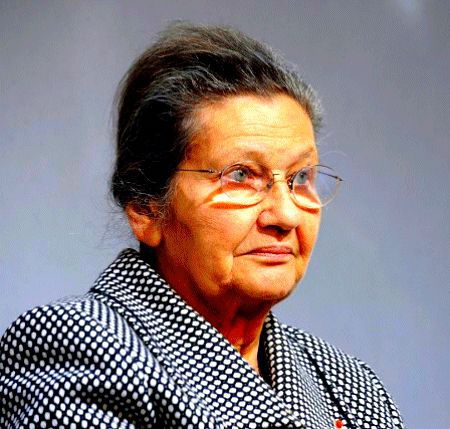

|
|
|
| SIMONE VEIL 1927- 2017 Courage et humanité |
|
Simone Veil est décédée vendredi 30 juin 2017 à 89 ans.
Née le 13 juillet 1927 à Nice et fille d'un architecte, Simone Veil est une rescapée des camps de la mort, où elle avait été déportée à 16 ans. Elle avait rencontré à l'Institut d'études politiques de Paris son futur mari Antoine Veil, décédé en 2013.
Grande figure de la vie politique française, survivante de la Shoah, européenne et féministe convaincue, c’est Simone Veil, qui avait porté en 1974 la loi légalisant l'avortement en France.
L'avocat Jean Veil son fils à indiqué ce matin : « Ma mère est morte ce matin à son domicile. Elle allait avoir 90 ans le 13 juillet ».
Simone Veil s'était notamment illustrée en faisant voter en 1974 la loi portant son nom sur l'interruption volontaire de grossesse (IVG). Elle était alors ministre de la Santé sous la présidence de Valéry Giscard d'Estaing
Femme de conviction, cette centriste historique attachée aux valeurs morales et républicaines, est l’une des personnalités politique les plus populaires de France.
Elle fut également la présidente du premier Parlement européen élu au suffrage universel, et membre du Conseil constitutionnel de 1998 à 2007.
L'ex-président Valéry Giscard d'Estaing, 91 ans s'est dit « bouleversé ». « C'était une femme exceptionnelle qui avait connu les plus grands bonheurs et les plus grands malheurs de la vie », a-t-il estimé.
Autre réaction « Simone Veil reste immortelle », a estimé un autre ancien président, Nicolas Sarkozy, confiant son admiration et son amour pour la défunte.
Le président Emmanuel Macron à déclaré « Puisse son exemple inspirer nos compatriotes, qui y trouveront le meilleur de la France ».
François Hollande a salué une femme qui « a incarné la dignité, le courage et la droiture ».
Tous les partis politiques français, depuis l'extrême-droite de Marine Le Pen dont le père avait pourtant violemment combattu Mme Veil, jusqu'à la gauche radicale de Jean-Luc Mélenchon, ont rendu hommage à celle qui « appartient au meilleur de notre Histoire », selon les mots de ce dernier.
Le maire de Paris, la socialiste Anne Hidalgo, a annoncé vouloir donner son nom « à un lieu marquant » de la capitale.
Antonio Tajani, le président du Parlement européen, a quant à lui estimé que le message de Simone Veil sur « le droit des femmes en Europe » et sur l'antisémitisme restait « vivant ».
Son décès a suscité une pluie de réactions unanimes en France, dans la classe politique comme dans la société civile.
Le grand rabbin de France, Haïm Korsia, a salué une femme « déterminée et toujours digne », qui avait choisi, à la fin de sa vie, de consacrer son énergie à la Fondation pour la mémoire de la Shoah créée en 2000.
Dans une lettre ouverte adressée à Emmanuel Macron, Jean-Claude Juncker Président de la Commission européenne a de son côté dit « Elle avait vécu dans sa chair les déchirements tragiques de l'Europe et avait su, par son engagement politique, contribuer à bâtir une paix durable en Europe ».
Le Planning familial français lui rend hommage pour sa « bagarre » pour le droit à l'avortement, un combat qui « demeure d'une brûlante actualité ».
Après un début de carrière au ministère de la Justice, Simone Veil est la première femme à devenir Secrétaire Général du Conseil supérieur de la magistrature (1970-1974).
Elle est nommée ministre de la Santé en 1974. Tête de liste du parti centriste français UDF lors des premières élections au Parlement européen au suffrage universel en 1979, elle renonce à siéger au gouvernement pour devenir présidente du Parlement européen (1979-1982). Elle y siégera jusqu'en 1993.
De 1993 à 1995, Simone Veil est ministre d'État, ministre des Affaires sociales, de la Santé et de la Ville, dans le gouvernement de droite d'Édouard Balladur, sous la présidence de François Mitterrand.
En 2008, Simone Veil est élue à l'Académie française et, en 2012, élevée à la dignité de grand-croix de la Légion d'honneur, la plus haute distinction honorifique française.
Nous retiendrons d’elle « Courage et humanité » !!!
Toutes nos pensées émues vont envers sa famille et ses proches dont nous partageons la peine. !!!
|
|
|
|
| Paul Emison pour DayNewsWorld |
 |
There are no translations available.
LA PAGAILLE A L'ASSEMBLEE
|
Président jupitérien majorité pour partie de néophytes de La République en marche.
Premier épisode de cette série politique française ubuesque à rebondissements.
|
|
|
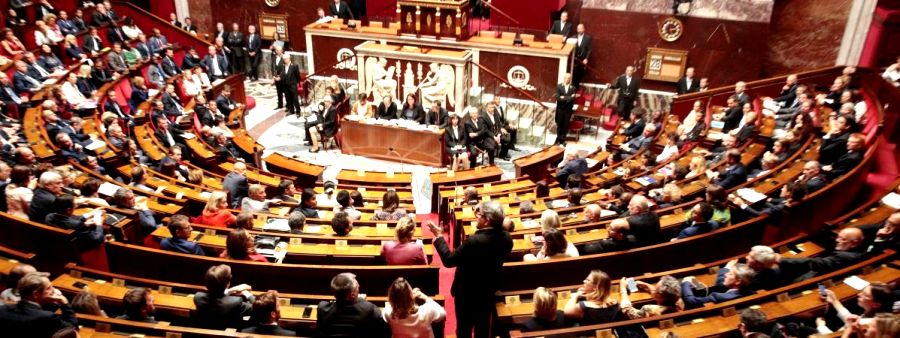 Le rapt du poste de questeur revenant à l'opposition grâce à l'appui d'En marche !par les «constructifs» ont achevé leur rupture avec LR. Un Palais Bourbon en champ de bataille. Le rapt du poste de questeur revenant à l'opposition grâce à l'appui d'En marche !par les «constructifs» ont achevé leur rupture avec LR. Un Palais Bourbon en champ de bataille.
Ce premier test de la domination de La République en marche dans une Assemblée recomposée, sur la répartition des postes clés, a donné lieu mercredi 28 juin à une bataille entre "groupes d'opposition" virant à un psychodrame "digne de la IVème République" selon certains. Un beau bazar du début 15h à la fin 0h35.
Voilà que les primo-députés ont connu leur baptême du feu mercredi avec la poursuite de la séance d'installation du bureau de l'Assemblée.
Une journée certainement mémorable pour eux puisqu'elle a vite viré à la plus grande des pagailles ! comme le Palais Bourbon en a peu connu. le président François de Rugya ouvert en début d'après-midi la séance laquelle commençait par l'élection des trois questeurs qui ont la haute main sur l'administration et les finances de l'institution.
Une formalité en principe dans la mesure où les tractations se font en coulisses et dans le secret des groupes.
Deux des postes doivent revenir à la majorité et le troisième à un membre de l'opposition. Florian Bachelier (Ille-et-Vilaine) et Laurianne Rossi (Hauts-de-Seine) avaient été désignés par En marche!, Eric Ciotti, lui, était le candidat de LR. Traditionnellement, un des trois postes de questeurs – ceux qui tiennent les cordons de la bourse de l’Assemblée – revient à l’opposition.
Mais coup de théâtre. Rugy annonce qu'il y a un quatrième prétendant : Thierry Solère, député LR mais «constructifs».
Une candidature recevable sur le papier. En effet le groupe «constructifs», composé pour moitié de LR en rupture et pour l'autre d'UDI, est dûment inscrit dans les groupes d'opposition, bien que ses élus soient de leur propre aveu «Macron compatibles». Résultat du vote: Solère recueille 306 suffrages, grâce au soutien d'élus d'En marche! et du MoDem, Ciotti 146. Il pique l'unique poste à l'opposition grâce aux voix de LREM. !
La veille, le groupe Constructifs s'était donné deux co-présidents (Franck Riester pour les LR et Stéphane Demilly pour les UDI). Pourquoi ce choix ? «Je ne peux pas être par monts et par vaux et en même temps président du groupe», avait-il confié . Insinuait-il qu'il courait plusieurs lièvres à la fois ? Un parachutage à la présidence de la commission des Finances dévolue, elle aussi, à l'opposition? La questure alors? «Franchement, ce n'est pas sérieux», avait-il encore assuré. Il est bien connu que la nuit de mardi à mercredi porte conseil et l'a fait revenir sur son choix.
On ne peut qu'imaginer l'agitation et « l'atmosphère « » du palais Bourbon!
Christian Jacob, patron des députés républicains a lâché que «les droits de l'opposition (étaient) bafoués»
L'élection de Thierry Solère au poste de questeur, avec l'appui d'élus de la majorité, a mis ses «amis» de LR en ébullition. «M. Solère, et c'est son plus grand droit, a fait campagne pour que M. Macron ait une majorité. Qu'on ne nous explique pas maintenant qu'il peut représenter l'opposition!», s'emporte-t-il. «C'est inadmissible que la majorité choisisse les représentants de l'opposition au sein du bureau de l'Assemblée», s'insurge Daniel Fasquelle. «Les droits de l'opposition piétinés à l'Assemblée nationale, l'hégémonie en marche», explique encore Bruno Retailleau, patron des sénateurs LR.
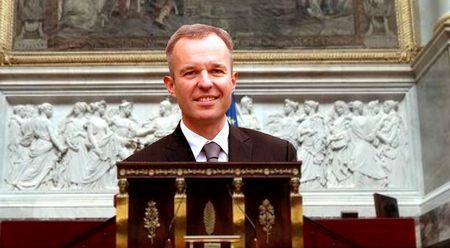 Fin de séance ! 30 minutes qui deviendront presque trois heures. Le tenant du perchoir a disparu. Macron ne l'aurait-il pas par le plus pur des hasard convoqué à l'Elysée ? Fin de séance ! 30 minutes qui deviendront presque trois heures. Le tenant du perchoir a disparu. Macron ne l'aurait-il pas par le plus pur des hasard convoqué à l'Elysée ?
Emmanuel Macron a annoncé à qui de droit que le Congrès est convoqué lundi à Versailles. Le président de la République doit y présenter son projet de réforme des institutions avec notamment une réduction du nombre de parlementaires d'un tiers, l'introduction d'une dose de proportionnelle aux législatives, la limitation du nombre de mandats successifs… cette annonce sidère à l'Assemblée
Plusieurs députés annoncent qu'ils boycotteront le Congrès qui est convoqué la veille de la déclaration de politique générale d'Édouard Philippe et du vote de confiance. «La volonté de concentrer tous les pouvoirs à l'Élysée»,selon l'ancien président du groupe UDI, Philippe Vigier .
Reprise de la séance à l'Assemblée après 19 heures : Christian Jacob n'a pas décoléré
sur le «coup de force» de la questure et dénonce «un déni de démocratie». Son groupe, annonce-t-il, refuse de siéger au bureau de l'Assemblée, «tant que les droits de l'opposition ne sont pas rétablis».
Un chaos sans nom !
Coup de pression par la majorité LREM-MoDem
À la reprise de l’interminable suspension de séance, François de Rugy lance le vote pour les six VP le LR poursuivant son boycott et ne présentant aucun candidat. La majorité LREM-Modem ne perd pas le nord et présente donc six candidats. Ils raflent l’intégralité de la mise, tout en assurant qu’ils ne font que garder la place au chaud pour quand le boycott de LR sera fini. "Dès que Les Républicains voudront reprendre leurs responsabilités, les candidats élus céderont la place", assure Richard Ferrand, patron des députés LREM, évoquant "une bouderie".Du jamais vu !
Pour les forces minoritaires de gauche, voilà l'occasion rêvée de planter quelques piques sur En marche!
«Vous prenez toutes les places après avoir dit exactement le contraire», lance Jean-Luc Mélenchon (FI) en dénonçant une «pantalonnade».
«Votre mot d'ordre à l'élection présidentielle et aux élections législatives, c'était d'entrer dans un nouveau monde. Dans quel nouveau monde sommes-nous désormais?», lance à son tour Olivier Faure, patron des socialistes. Nous demandons que vous respectiez les droits de toutes les minorités.»
André Chassaigne (PCF) s'insurge: «Quelle image vous donnez de notre Assemblée, quelle image vous donnez à la France! Vous êtes en train de faire la démonstration que sous des mots qui apparaissent novateurs, vous êtes sur des calculs, sur des comportements qui ne méritent qu'un seul adjectif: petits».
A Jean Lassalle de faire son petit onemanshow ...
Candidat à la présidentielle, rescapé des législatives, le voici à noveau en selle , toujours partant pour assurer le show : au député béarnais de jouer les casques bleus et de… proposer sa candidature à la vice-présidence de l’Assemblée. Rires rires de ses pairs.
Impossible de revenir sur l'élection des questeurs. Le scrutin pour les vice-présidences est finalement organisé.Après une dernière interruption de séance, le résultat est sans surprise: les cinq candidats d'En marche! et celui du MoDem sont élus. Une heure du matin. Séance levée. Dix candidats pour six postes.
Le résultat est annoncé à 0h30 : 5 LREM et 1 MoDem sont désignés vice-présidents. Soit toutes les vice-présidences pour la majorité.
Dans l'attente du prochain épisode, ce jeudi.
|
|
|
|
| Joanne Courbet pour DayNewsWorld |
 |
There are no translations available.
VERROUILLAGE DU POUVOIR PAR MACRON?
|
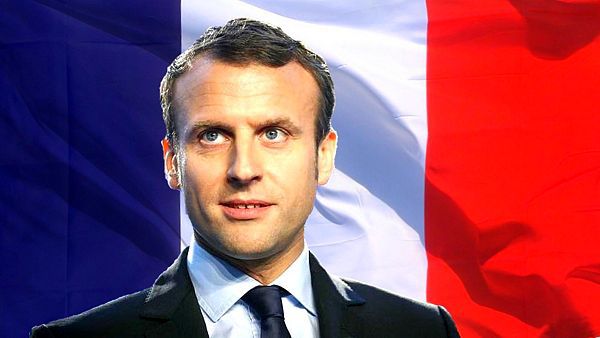 Le président de la République pourrait s'exprimer, dès début juillet, devant l'ensemble des parlementaires, à Versailles.Et ce la veille du discours de politique générale de son Premier ministre. Le président de la République pourrait s'exprimer, dès début juillet, devant l'ensemble des parlementaires, à Versailles.Et ce la veille du discours de politique générale de son Premier ministre.
C'est pour le moins surprenant !
Cette procédure exceptionnelle autorise le président de la République à s'exprimer directement devant l'ensemble des parlementaires - députés et sénateurs - sans que la contradiction lui soit portée.
Ce congrès devrait se tenir dès le 3 juillet.
.Les motivations possibles du président consisteraient bien sûr à respecter une de Ses promesses de campagne comme l'a fort justement rappelé Christophe Castaner
"Emmanuel Macron avait pris l'engagement devant les Français de réunir chaque année le Parlement, c’est-à-dire l’Assemblée nationale et le Sénat, en Congrès à Versailles", a indiqué ce dernier.
Prônant le "renouveau démocratique", assurant s'engager "à aller rendre compte chaque année des avancées de son programme devant le Parlement, réuni en Congrès" il désirait alors amorcer une révision constitutionnelle.
La tenue de ce congrès pourrait ouvrir la voie à une révision constitutionnelle.
L'occasion, par exemple d'entériner la réduction à trois du nombre maximum de mandats électoraux.
Mais ne soyons pas dupe pour autant !
Emmanuel Macron ne veut-il pas également de part le choix du calendrier un moyen contourner son Premier ministre ?
Olivier Faure, le président du groupe PS à l'Assemblée ne fait pas dans la dentelle en parlant carrément d' une "humiliation" pour le Premier ministre. Si Emmanuel Macron parle "avant lui", Edouard Philippe ne serait plus alors qu'un simple "répétiteur" juge-t-il.
Pour Thierry Solère, président des Républicains-constructifs et UDI-indépendants, son approche semble différer : "Que le président de la République nous donne les grandes lignes et qu'ensuite le Premier ministre vienne expliquer, avec un vote de confiance derrière, sa méthode, ses priorités, son calendrier ».
Point de doute cependant : Emmanuel Macron a toujours su comment s’y prendre pour voler aux autres la vedette. Cette fois-ci, c’est à son premier ministre, Edouard Philippe, que le chef de l’Etat pourrait courtcircuiter.
Comme il l’avait promis pendant la campagne, M. Macron envisage de réunir chaque année les députés et les sénateurs en Congrès à Versailles, se calquant ainsi sur le président des Etats-Unis qui, une fois par an, délivre son « discours sur l’état de l’Union », prononcé devant le Congrès américain.
Une communication calquée sur celle d’Obama qui l'a ouvertement soutenu.
« Après avoir théorisé le contournement des corps intermédiaires, prévu celui du Parlement avec les ordonnances, un discours du président la veille de celui du premier ministre [si la date du 3 juillet était confirmée] serait une humiliation pour ce dernier, renvoyé au statut non plus de collaborateur mais de simple répétiteur », met en garde le patron des députés socialistes, Olivier Faure.
« Il n’y a pas d’expression du président de la République sur les grandes orientations qui ne soit travaillée avec le premier ministre et inversement », a tenté de relativiser, le porte-parole...
Chacun restera juge!!!
|
|
|
|
|
|
|
|
| Jenny Chase pour DayNewsWorld |
 |
There are no translations available.
DANS UN CONTEXTE POLITIQUE CHARGE ...
LE NOUVEAU GOUVERNEMENT PHILIPPE II
ET DESIGNE PAR LES DEPUTES LREM
FRANCOIS DE RUGY PEUT ETRE AU PERCHOIR
|
|
La semaine qui a commencé au lendemain du deuxième tour des élections législatives et qui se termine a été marquée par une suite d’événements et de rebondissements inattendus pour beaucoup .
Tout d'abord s'agissant de la nomination du gouvernement Philippe II....
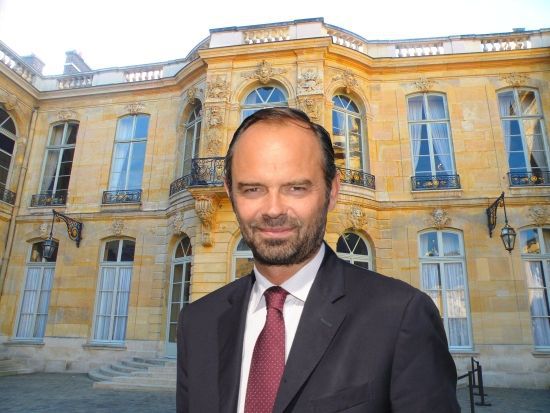 Il a fallu retarder d'un jour son annonce tant de choses inattendues se sont produites .Un jour supplémentaire de réflexion et de tractations a en effet été nécessaire, obligeant à renvoyer à jeudi la réunion du premier conseil des ministres qui en temps ordinaire a lieu le mercredi ... Il a fallu retarder d'un jour son annonce tant de choses inattendues se sont produites .Un jour supplémentaire de réflexion et de tractations a en effet été nécessaire, obligeant à renvoyer à jeudi la réunion du premier conseil des ministres qui en temps ordinaire a lieu le mercredi ...
Les discussions se sont d'abord ouvertes sur le cas de Richard Ferrand. Premier macroniste, fidèle parmi les fidèles, Richard Ferrand avait été nommé ministre de la Cohésion des territoires dans le gouvernement Philippe I .
Mais comme chacun sait, Richard Fernand fait l'objet d'une enquête préliminaire , suite aux révélations faites par le Canard Enchaîné (mais de mauvaises langues /ou des langues bien informées,prétendent que l’ADP le savait bien avant et qu'à la demande du pouvoir Macron elle a dissimulé l'information avant les consultations électorales) concernant les affaires immobilières pour le moins pas claires du ministre lorsqu’il dirigeait les Mutuelles de Bretagne. Pour beaucoup, ces affaires qui remontent à 2011 ont un caractère douteux, tant elles semblent avoir favorisé les intérêts personnels du ministre et par népotisme, ceux de certains membres de sa famille ou de proches.
La situation était embarrassante pour le président de la République qui a mené tout sa campagne sous signe de la moralisation de la vie publique .
Le ton ne cessait d'enfler sur cette affaire devenue de plus en plus épineuse, tant et si bien que l’intéressé a finalement fait part de sa démission, tout en indiquant son intention de briguer le poste stratégique de Président du groupe parlementaire LREM . Démission ou exfiltration habile du gouvernement ? La question du maintien de Richard Ferrand dans le gouvernement était devenue au fil des jours de plus en plus délicate , un vrai boulet au pied pour Emmanuel MACRON qui ne voulait cependant pas sacrifier un de ses premiers fidèles .
Déchu du gouvernement , Édouard Ferrand a finalement été élu le 24 juin Président du groupe LREM de l'Assemblée Nationale …ceci à main levée...une nouvelle méthode politique qui en a surpris plus d'un, le vote à bulletin secret étant traditionnellement d'usage . Aurait-on voulu un groupe de députés godillots, qui marcheront le petit doigt sur le couture du pantalon au coup de sifflet d'Emmanuel Macron .. ???
La seconde surprise vient de la démission inattendue de Sylvie Goulard , Ministre des Armées, un poste régalien. Sylvie Goulard a annoncé mardi sa décision «de ne plus faire partie du gouvernement »pour pouvoir « démontrer librement sa bonne foi » dans l'enquête sur les soupçons d'emplois fictifs présumés au MODEM dont l'enquête préliminaire a débuté le 9 juin . Sylvie Goulard, ex membre du MODEM ancienne députée européenne était citée dans l'enquête préliminaire.
Cette démission , de la part d'une femme réputée pour sa droiture et son éthique personnelles a cependant donné le clap de départ de la démission de François Bayrou et de Marielle de Sarnez, tous deux visés par ladite enquête sur les attachés parlementaires du MODEM . La décision de Sylvie Goulard, a entraîné de facto et quasiment automatiquement la démission du couple politique mythique du MODEM ; les Français n'auraient pas compris s'il n'en avait pas et ainsi .
 Mais la vérité semble plus complexe pour beaucoup d'autres : Sylvie Goulard aurait-elle été poussée par l’Élysée vers la sortie dans le but de provoquer la chute de Bayrou ? Mais la vérité semble plus complexe pour beaucoup d'autres : Sylvie Goulard aurait-elle été poussée par l’Élysée vers la sortie dans le but de provoquer la chute de Bayrou ?
Mais elle aussi avec son profil de première de classe a crée des interrogations en raison du fait qu'elle a été conseiller spécial de l'Institut Berggruen où elle émargeait à 10000 € /mois, voire plus. Cette situation a duré d'octobre 2013 à janvier 2016.Cette information figure sur sa déclaration d’intérêt au Parlement de STRASBOURG . Ce Think tank , crée et financé par Nicolas Breggruen, fils du richissime marchand d'art californien, est chargé de réfléchir aux systèmes de gouvernance.. !!!!!. Malgré ses protestations dénonçant « un non sujet » et l'absence de liens des uns envers les autres , l'information a un petit rien de gênant . !!.
François Bayrou , qui ne cache pas sa déception, a cependant renouvelé son admiration pour Emmanuel Macron qu'il a choisi de ne pas exposer au climat des affaires , dans la conférence de Presse qu'il a donné le 21 juin 2017 .
Il en a profité néanmoins pour dénoncer les sycophantes , nom donné dans l’Athènes antique aux délateurs professionnels, reconnaissant qu'il n'est pas une vie humaine qui résiste à l'inquisition mais assurant qu'on ne lui imposera pas un bâillon pour l'avenir .
Ferrand, Bayrou, Sarnez, Goulard … c'est à une véritable purge que l'on vient d'assister au sein de gouvernement et pour ces 4 anciens ministres , dont la durée de fonction n'aura été que de 35 jours …!!!
Selon certains , les démissions Bayrou, Sarnez, Goulard procéderaient d'une volonté d'Emmanuel Macron de faire le grand ménage , dès lors qu'avec 308 députe LREM, il détient la majorité absolue à l'assemblée nationale; le MODEM qui ne compte que 42 élus, n'est donc plus une force d'appoint …. enfin … pour l'instant ???? .
Le reste du gouvernement Philippe II est composé d’après les experts de techniciens compétents . Mais force est de constater que les voix politiques fortes qui portaient ont toutes disparus Et François de Rugy désigné candidat de LREM pour la présidence de l’Assemblée nationale.
|
|
| |
|
|
|
|
|
| Clara Mitchell pour DayNewsWorld |
 |
There are no translations available.
HUIT PERSONNES ARRETES
ATTENTAT DE BOGOTA
|
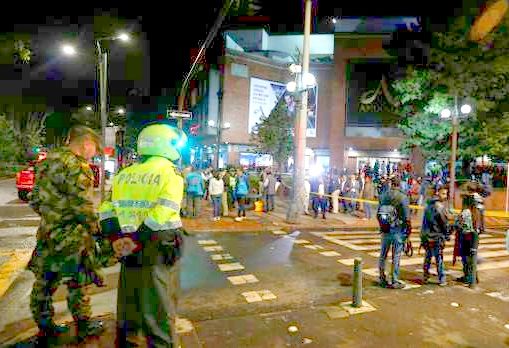 Lors de l'attentat à la bombe du 17 juin dans un centre commercial de Bogota avait tué trois personnes. Lors de l'attentat à la bombe du 17 juin dans un centre commercial de Bogota avait tué trois personnes.
Huit personnes ont été arrêtées pour être soupçonnées d'être impliquées dans l'attentat à la bombe du 17 juin à Bogota qui avait tué trois personnes, dont une Française, dans les toilettes d'un centre commercial, a annoncé le ministère colombien de la Défense.
«Félicitations pour la capture de 8 responsables présumés des actes de terrorisme de Bogota», a indiqué le ministère sur son compte Twitter, en accusant les personnes interpellées d'appartenir au Mouvement révolutionnaire du Peuple (MRP), un groupuscule connu par les autorités colombiennes pour divers petits attentats dans la capitale.
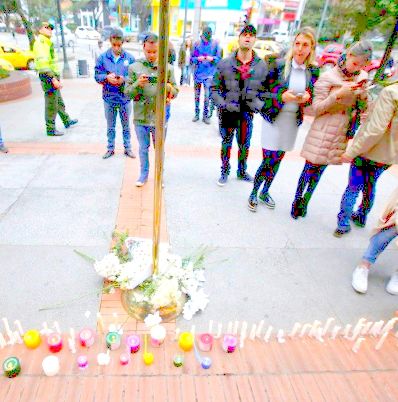
Les huit personnes ont été arrêtées simultanément à Bogota et à Espinal, dans le département de Tolima, par des enquêteurs de la Direction des enquêtes criminelles et Interpol. grâce aux images des caméras de surveillance dans le centre commercial, a précisé le ministère.
Julie Huynh, 23 ans, la Française décédée dans l'attentat, était bénévole pour l'ONG «Projeter sans frontières» aidant des jeunes déplacés à cause de la violence.
La mère de Julie Huynh qui venait voir sa fille avait été blessée dans l'explosion.
Cette attaque n'a pas été non revendiquée et est inhabituelle.Le choc en Colombie a été retentissant.
En effet la Colombie a connu des années durant deux guérillas : les Forces armées révolutionnaires de Colombie (Farc, marxiste), avec lesquelles un accord a été signé en novembre, et l'Armée de libération nationale (ELN, guévariste), avec laquelle des négociations sont en cours.
Alors que ces guérillas sont sur le point de cesser, cet attentat a été ressentie par les Colombiens comme une onde de choc.
Les deux guérillas avaient condamné immédiatement cet acte .
|
|
|
|
|
|
|
|
| Joanne Courbet pour DayNewsWorld |
 |
There are no translations available.
POUVOIR DES AGENTS
DE RENSEIGNEMENT CLANDESTINS
|
|
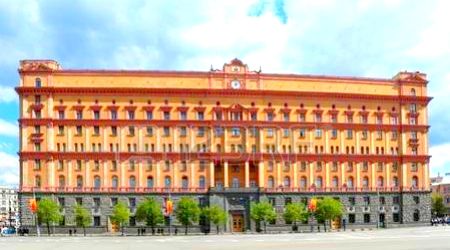 Le président Poutine a félicité les agents de renseignement clandestins faisant l'éloge samedi des agents de renseignement clandestins, des « personnes pas comme les autres » dont le dévouement à la patrie est exemplaire. Le président Poutine a félicité les agents de renseignement clandestins faisant l'éloge samedi des agents de renseignement clandestins, des « personnes pas comme les autres » dont le dévouement à la patrie est exemplaire.
« Renoncer à sa vie, à ses proches et quitter son pays pour beaucoup d'années, en consacrant sa vie à la patrie, tout le monde n'est pas capable de faire cela », a déclaré l'ex-agent du KGB, âgéé de 64 ans.
« Ce sont des personnes pas comme les autres, qui ont des qualités pas comme les autres, des convictions pas comme les autres, un caractère pas comme les autres »,
a-t-il estimé, précisant que son travail pour le service de renseignement extérieur à l'époque soviétique avait été lié « notamment au renseignement clandestin ».
« Ce sont des personnes uniques. Je leur souhaite du bonheur et de la prospérité », a ajouté le président russe.
Lui-même ancien membre du Service de renseignement extérieur (SVR) du KGB, Vladimir Poutine a été en poste à Dresde, en Allemagne de l'Est, alors au sein du bloc socialiste, entre 1985 et 1990, selon sa biographie officielle publiée sur le site du Kremlin.
« Même avant de terminer ma scolarité, j'avais déjà envie de devenir agent de renseignement », avait confié M. Poutine dans cette biographie .
Même avant de terminer ma scolarité, j'avais déjà envie de devenir agent de renseignement », avait confié M. Poutine dans cette biographie, précisant avoir fondé son opinion sur le KGB sur la base des récits romantiques sur le travail des agents de renseignement ».
|
|
|
|
|
|
|
|
| Carl Delsey pour DayNewsWorld |
 |
There are no translations available.
|
L'HABILITE D'UN EMMANUEL MACRON
|
|
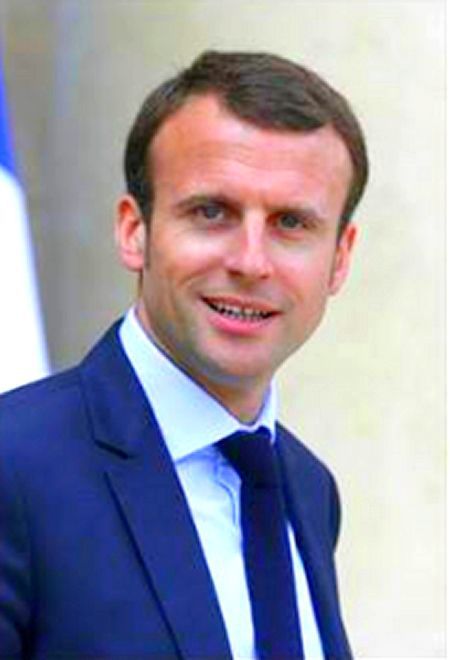
Le politologue Jean Garrigues pense que le remaniement du gouvernement suite aux affaires montre à quel point le président a pris la mesure de la demande de moralisation de la politique française. L'opération mains propres heureusement arrive bien tardivement.
Jean Garrigues auteur de «Scandales de la république: de Panama à l’affaire Cahuzac» (Nouveau monde éditions, 2013).
Remaniement, affaires… Ce début de quinquennat de Macron commence-t-il par un faux départ ?
On ne peut que noter la réactivité de Macron dans un climat d’intransigeance éthique de la France bousculé par des scandales à en vomir
Le remaniement du gouvernement tombe à pic, possant vers la porte les trois ministres Modem, soupçonnés par la justice de financement douteux de leur parti .
Par contre le cas de Richard Ferrand exfiltré vers le parlement est des plus contestable dans la mesure où il est promu en quelque sorte à un poste clé de l’assemblée, celui de chef du groupe La République en marche au parlement. Un tour-de- passe peu élégant.
Il faut redonner la priorité de la légitimité à la classe politique française.
«la démission surprise de Sylvie Goulard oblige (Emmanuel Macron) à agir sous la contrainte. Et à se poser la question globale de la présence du MoDem au gouvernement»
selon un de nos confrère. D'autant que le garde des Sceaux est celui qui doit aussi doit défendre défendre un projet de loi sur la moralisation de la vie publique qu'il a lui-même conditionnait à son alliance avec la candidat Macron de l'époque.
Le règne de l'hypocrisie fait penser à la redoutable statue de Glaucus...
Le remaniement annoncé pour mercredi devait être initialement purement «technique» après les élections législatives ;
Le voilà qu'il revêt dès lors une dimension très politique. Le premier ministre n'a plus droit à l'erreur !
|
|
|
|
|
|
|
|
| Joanne Courbet pour DayNewsWorld |
 |
There are no translations available.
REMANIEMENT DU GOUVERNEMENT
|
|
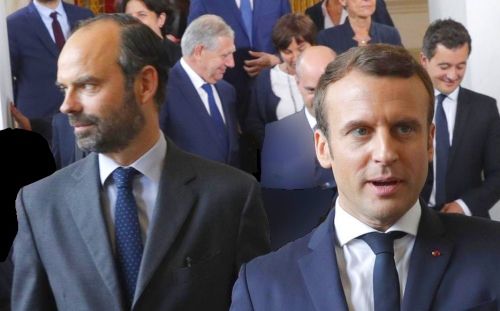 L'essentiel du remaniement ministériel: L'essentiel du remaniement ministériel:
Le gouvernement Macron a été remanié suite aux élections législatives, selon la tradition républicaine. La liste officielle des nouveaux ministres et secrétaires d'Etat a été dévoilée:
Les ministres qui composent le gouvernement Philippe II sont :
Gérard Collomb, ministre de l'Intérieur
Nicolas Hulot, ministre de la Transition écologique l'Environnement
Nicole Belloubet, ministre de la Justice
Jean-Yves Le Drian, ministre de l'Europe et des Affaires étrangères
Florence Parly, ministre des Armées
Jacques Mézard, ministre de la Cohésion des territoires
|
|
Agnès Buzyn, ministre des Solidarités et de la Santé
Bruno Le Maire, ministre de l'Economie
Françoise Nyssen, ministre de la Culture
Murielle Pénicaud, ministre du Travail
Jean-Michel Blanquer, ministre de l'Education nationale
Stéphane Travert, ministre de l'Agriculture
Gérald Darmanin, ministre de l'Action et des comptes publics (Budget)
Laura Flessel, ministre des Sports
Elisabeth Borne, ministre des Transports
Frédérique Vidal, ministre de l'Enseignement supérieur
|
Nathalie Loiseau, ministre des Affaires européennes
Annick Girardin, ministre des Outre-es Armées
Jacques Mézard, ministre de la Cohésion des territoires
Agnès Buzyn, ministre des Solidarités et de la Santé
Bruno Le Maire, ministre de l'Economie
Françoise Nyssen, ministre de la Culture
Murielle Pénicaud, ministre du Travail
Jean-Michel Blanquer, ministre de l'Education nationale
Stéphane Travert, ministre de l'Agriculture(Budget)
|
|
Les secrétaires d'Etat composent le gouvernement Philippe II sont :
Christophe Castaner, secrétaire d’Etat chargé des Relations avec le Parlement, porte-parole du gouvernement
Marlène Schiappa, secrétaire d’Etat chargée de l’Egalité entre les femmes et les hommes
Sophie Cluzel, secrétaire d’Etat chargée des Personnes handicapées
Mounir Mahjoubi, secrétaire d’Etat chargé du numérique
Sébastien Lecornu et Brune Poirson, secrétaires d'Etat auprès du ministre chargé de la Transition écologique
Jean Baptiste Lemoyne, secrétaire d’Etat auprès du ministre de l’Europe
Geneviève Darrieussecq, secrétaire d’Etat auprès du ministre des Armées
Julien Denormandie, secrétaire d’Etat auprès du ministre de la Cohésion des territoires
Benjamin Griveaux, secrétaire d’Etat auprès du ministre de l’Economie et des finance.
Les sortants au nombre de 4:
l'ex-ministre de la Justice François Bayrou
l'ex-ministre de la Cohésion des territoires Richard Ferrand
l'ex-ministre des Armées Sylvie Goulard
l'ex-ministre des Affaires européennes Marielle De Sarnez,
qui avaient tous pris les devants en quittant le gouvernement Philippe
|
|
|
| Britney Delsey pour DayNewsWorld |
 |
There are no translations available.
|
LES ONZE NOUVEAUX MEMBRES
DU GOUVERNEMENT
|
|
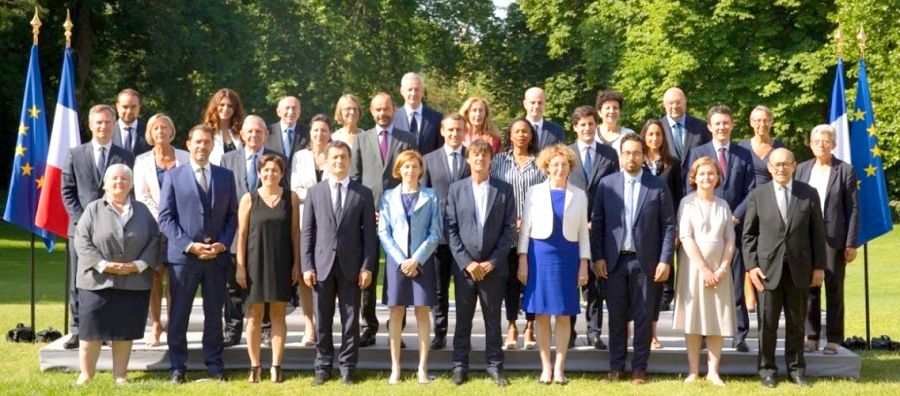 Cinq ministres et six secrétaires d'Etat ont fait leur entrée au gouvernement Phillippe II, mercredi 21 juin, lors du remaniement consécutif aux élections législatives et aux démissions de François Bayrou, Sylvie Goulard, Marielle de Sarnez et Richard Ferrand. Cinq ministres et six secrétaires d'Etat ont fait leur entrée au gouvernement Phillippe II, mercredi 21 juin, lors du remaniement consécutif aux élections législatives et aux démissions de François Bayrou, Sylvie Goulard, Marielle de Sarnez et Richard Ferrand.
Nicole Belloubet, ministre de la Justice
Nicole Belloubet est une agrégée de droit public et membre du Conseil constitutionnel depuis 2013. Elle succède à François Bayrou comme garde des Sceaux. Cette docteure en droit de 62 ans a été, après avoir enseigné, rectrice de l'académie de Limoges (1997-2000), puis de celle de Toulouse (2000-2005).
La nouvelle ministre de la Justice a également fait une carrière politique locale. Première adjointe au maire socialiste de Toulouse, Pierre Cohen, et vice-présidente du conseil régional de Midi-Pyrénées elle a été nommée au Conseil constitutionnel le 12 février 2013 par le président socialiste du Sénat, Jean-Pierre Bel.
Florence Parly, ministre des Armées
La ministre de la défense Florence Parly prend la place de Sylvie Goulard
Florence Parly,à 54 ans, a une solide expérience en politique. Elle a été conseillère budgétaire de Lionel Jospin jusqu'en 1997, puis elle a été nommée secrétaire d'Etat au Budget en 2000. Candidate aux élections législatives dans la première circonscription de l'Yonne, en 2002, elle a battu l'ancien ministre UMP Jean-Pierre Soisson.
Vice-présidente du conseil régional de Bourgogne entre 2004 et 2006, Florence Parly a ensuite quitté la politique pour travailler au sein d'entreprises publiques comme Air France et la SNCF.
Stéphane Travert, ministre de l’Agriculture et de l’alimentation
Stéphane Travert, 47 ans, est un des soutiens de la première heure d'Emmanuel Macron. Il avait rencontré le chef de l'Etatau moment de l'examen à l'Assemblée du projet de loi sur la croissance. Il est par la suite devenu un des relais d'Emmanuel Macron à l'Assemblée, et un des neuf délégués nationaux de son mouvement.
Diplômé d'une école de commerce, Stéphane Travert a travaillé dans l'industrie avant de se lancer en politique. Il a été conseiller régional de Basse-Normandie puis élu député de la 3e circonscription de la Manche en 2012. Il a été réélu sous l'étiquette République en marche.
Jacqueline Gourault, âgée de 66 ans, est une proche de Bayrou. Professeure d'histoire-géographie, elle a effectué son premier mandat en tant que conseillère municipale de La Chaussée-Saint-Victor (Loir-et-Cher), en 1983. Elle est ensuite devenue maire de la commune (1989-2014).
En 2001, Jacqueline Gourault est élue au Sénat . Elle est spécialisée dans les collectivités locales et rentre au MoDem, créé en 2007. Elle est devenue vice-présidente du Sénat en 2014.
Nathalie Loiseau, ministre chargée des Affaires européennes
Diplomée de Sciences Po et de l'Institut national des langues et civilisations orientales, Nathalie Loiseau a 53 ans. Elle a fait une longue partie de sa carrière aux Affaires étrangères. D'abord à la direction de l'information et de la presse (1986-1988), elle a aussi été conseillère du ministre Alain Juppé (1993-1995), secrétaire d'ambassade en Indonésie, au Sénégal et au Maroc, puis porte-parole de l'ambassade de France aux Etats-Unis (2002-2007).
Nathalie Loiseau a été nommée en 2012 à la tête de l'ENA avec la volonté de diversifier le recrutement de l'école .
Brune Poirson, secrétaire d’Etat auprès du ministre de la Transition écologique
Brune Poirson , jeune femme de 34 ans, "née aux Etats-Unis", a été élue au second tour des élections législatives dans la 3e circonscription du Vaucluse. Elle affrontait le candidat du FN Hervé de Lépinau, candidat à la succession de Marion Maréchal-Le Pen.
Cette diplômée de l'IEP d'Aix-en-Provence a travaillé avec une députée travailliste britannique . Elle a poursuivi sa carrière dans la recherche sur "l'innovation sociale et la responsabilité sociale des entreprises" à Boston, aux Etats-Unis. Elle a exercé dans le secteur public, pour l'Agence française de développement, dans le privé (Veolia) et pour des associations.
Sébastien Lecornu a été nommé également secrétaire d'Etat auprès de Nicolas Hulot. Ce membre des Républicains, âgé de 31 ans, est devenu en 2005 le plus jeune assistant parlementaire de France du député UMP Franck Gilard.
Il poursuit des études de droit à l'université d'Assas à Paris. Conseiller auprès de Bruno Le Maire, secrétaire d'Etat aux Affaires européennes dans le premier gouvernement Fillon , maire de Vernon (Eure) en 2014. Il est également devenu le plus jeune président de département de France, un an plus tard, à 27 ans
Jean-Baptiste Lemoyne, secrétaire d’Etat auprès du ministre de l’Europe et des Affaires étrangères
Jean-Baptiste Lemoyne a été élu au Sénat dans l'Yonne en 2014. Apparenté au groupe Les Républicains, cet homme de 39 ans a soutenu Emmanuel Macron avant le premier tour de la présidentielle.
|
|
|
|
|
|
|
|
| Carl Delsey pour DayNewsWorld |
 |
There are no translations available.
OPERATION MAIN PROPRE
POUR EMMANUEL MACRON ?
|
|
 Du travail dissimulé à la prise prise illégale d'intérêts en passant par « de faux témoignage »...tout y passe. Malgré les promesses de présenter aux législatives sous son étiquette que des hommes et femmes " propres", Plusieurs députés de La République en marche, élus dimanche 18 juin, sont sous la menace d'une procédure judiciaire ou ont été condamnés par le passé. Où est la promesse de probité du président de la République et l'exigence d'un casier judiciaire vierge pour ses candidats élus ? Certainement à l'image de son leader ! Du travail dissimulé à la prise prise illégale d'intérêts en passant par « de faux témoignage »...tout y passe. Malgré les promesses de présenter aux législatives sous son étiquette que des hommes et femmes " propres", Plusieurs députés de La République en marche, élus dimanche 18 juin, sont sous la menace d'une procédure judiciaire ou ont été condamnés par le passé. Où est la promesse de probité du président de la République et l'exigence d'un casier judiciaire vierge pour ses candidats élus ? Certainement à l'image de son leader !
Oh quelle cruelle déception ! Et attendez que les novices soient dans le secret des combines ...Ce n'est que le début.
On en connaissait déjà dans les potentiels comme le ministre de la Cohésion des territoires Richard Ferrand, dans le Finistère comme la ministre des Affaires européennes, Marielle de Sarnez, à Paris, dans la11e circonscription de Paris nullement inquiétés.
Mais une autre petite liste à la Prévert qui nous prévient que ces députes ne feront guère mieux que leurs prédécesseurs vilipendés à juste titre d'ailleurs.
Puis accumulation des révélations: sur les pratiques du parti centriste. L'un des anciens collaborateurs de Jean-Luc Bennahmias, député européen, a dénoncé un emploi fictif à la justice. Une dizaine d'employés du parti avaient été rémunérés comme assistants parlementaires, bulletins de salaires "pour le moins troublants" à l'appui. Le cas de la secrétaire particulière du président du MoDem, François Bayrou, elle aussi rémunérée par l'Europe. Une enquête préliminaire pour "abus de confiance et recel de ce délit" ouverte le 9 juin par le parquet de Paris.
*Le député Bruno Bonnell, 6e circonscription du Rhône.
Pendant la campagne, l'ancien patron d'Infogrames a vu remonter à la surface des pratiques de gestion pas toujours reluisantes de chef d'entreprise puique condamné à verser 40 000 euros à l'Autorité des marchés financiers.
*La députée Emilie Guerel, 7e circonscription du Var
La députée est visée par une plainte contre X pour "escroquerie à l'assurance maladie", une plainte déposée par l'un de ses adversaires,Jean-Pierre Colin (UDI).
*Corinne Vignon, en Haute-Garonne, 3e circonscription de Haute-Garonne
Le parquet de Toulouse a ouvert une enquête préliminaire contre Corinne Vignon après un signalement de l'administration fiscale. Cette dernière a relevé une possible dissimulation de revenus liée à son activité... de voyance astrologique facturée 90 euros la prestataire!
*Le député Romain Grau , 1ère circonscription des Pyrénées-Orientales
est visé par une enquête pour "harcèlement moral" après une dénonciation anonymeBleu Ce camarade de promotion d'Emmanuel Macron à l'ENA est directeur général d'EAS Industries, entreprise spécialisée dans la maintenance aéronautique à l'aéroport de Perpignan. Sur plus de 250 employés, au moins 10% sont en arrêt maladie, notamment pour surmenage. Le candidat s'est dit étonné.
*Le député Didier Martin, 1re circonscription de Côte-d'Or
Le parquet de Dijon a ouvert une enquête préliminaire contre l'élu de Côte-d'Or. Comme le raconte France 3 Bourgogne-Franche-Comté, cet ancien président de l'office du tourisme de Dijon est soupçonné de "faux témoignages" dans une histoire de licenciement.
|
|
| IRREPROCHABLES CES NOUVEAUX DEPUTES !!! |
|
| ET LA MINISTRE DE LA DEFENSE SE VOIT DANS L'OBLIGATION DE DEMISSIONNER!!! |
|
|
|
| Alyson Braxton pour DayNewsWorld |
 |
There are no translations available.
RESULTATS LEGISLATIVES
FRANCE 2017
|
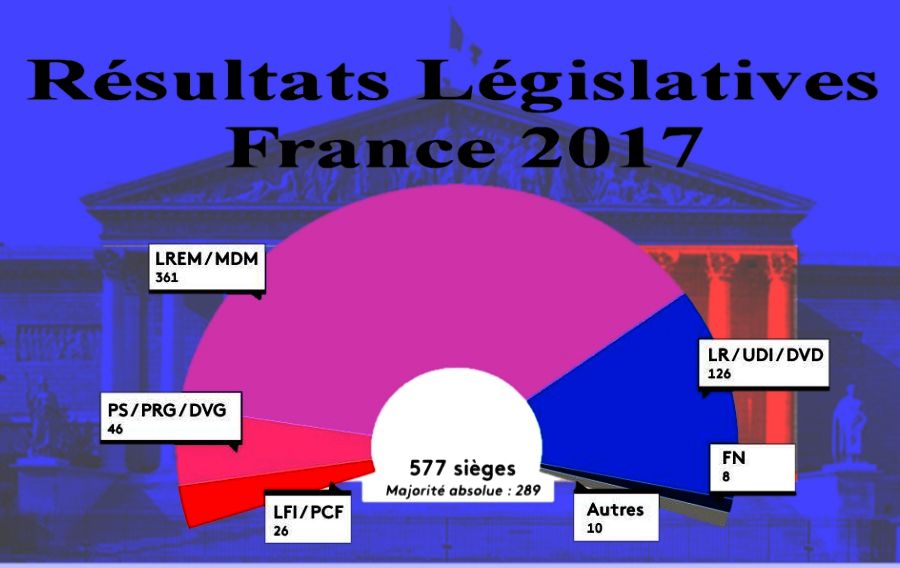 |
|
| UN RENOUVELLEMENT COMPLET DE L'ASSEMBLEE! |
|
| A Suivre ..... |
|
|
|
| Paul Emison pour DayNewsWorld |
 |
There are no translations available.
TOUS INQUIETS FACE AU
« TSUNAMI POLITIQUE » DE LREM
|
François Baroin, sénateur-maire de Troyes et chef de file du parti Les Républicains pour les législatives, a été ce jeudi matin l'invité de Jean-Jacques Bourdin.
|
|
|
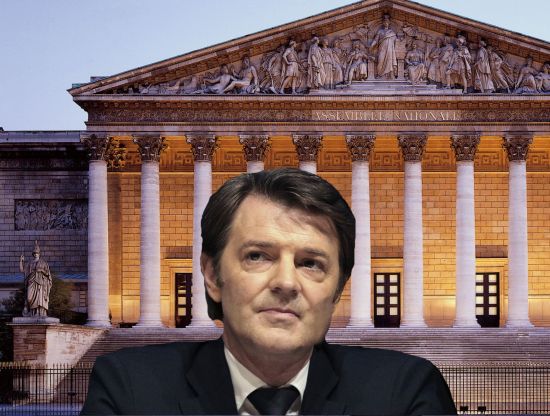 François Baroin s'est dit inquiet face au risque qu'"une majorité écrasante écrase le débat" de LRM. Il s'est montré très clairvoyant à ce sujet et n'a pas mâché ses mots.Dommage qu'il ne l'est pas été auparavant. François Baroin s'est dit inquiet face au risque qu'"une majorité écrasante écrase le débat" de LRM. Il s'est montré très clairvoyant à ce sujet et n'a pas mâché ses mots.Dommage qu'il ne l'est pas été auparavant.
Avec 400 députés du même parti à l'Assemblée, sur 577 sièges. "Quand vous êtes 400, vous dominez", s'explique François Baroin. "Vous écrasez les autres, si quelqu'un s'oppose de manière intelligente, républicaine, sur un sujet, tout de suite c'est les brouhahas, le volume sonore (...). Si on veut faire entendre un point de désaccord, ce sera très difficile".
A moins d' « un sursaut de l'électorat » en faveur de la droite et du centre pour le second tour des législatives -et il est fort à parier que les couches populaires ont déjà jeté l'éponge et resteront pour une deuxième fois abstentionnistes- Emmanuel Macron pourrait disposer "des pleins pouvoirs".
"Les Français le lui donnent, c'est ce qu'il voulait, mais il se met dans une situation où il va être seul face au reste du monde, sa responsabilité est immense", estime-t-il. "C'est lui que les Français ont élu une deuxième fois avec les législatives. Ce ne sont pas les candidats. Il est hyper-présidentiel".
Il est vrai que ce pouvoir de la verticalité que voudrait s'arroger Emmanuel Macron va mettre en avant les décisions d'une technocratie plutôt de centre droit libéral validé par le Président. Les chefs de cabinets déjà nommés sont d'obédience juppéiste . Et quid de l'Assemblée nationale composée d'une grandes majorité de novices ? " Dans les poulaillers acajou les belles basses-cours à bijoux..."
L'Assemblée ne pourra être qu'aux ordres de la présidence et de l'administration...puisque la présidentielle et les législatives sont liées.Et à un vieux routiers de la politique,l'ancien président LR de la commission des Finances, Gilles Carrez de conclure amèrement que l'issue des élections législatives ne déboucherait sur la constitution d'une Assemblée au service d'Emmanuel Macron, devenant « sa créature ». Selon lui, la vague LREM est un véritable « tsunami politique ».
Mais comment réagira « cette créature » face aux potentielles difficultés qu'elle va indubitablement rencontrer sur le terrain ? « Dans un deuxième temps, face aux difficultés dans la rue, cette créature va commencer à se rebeller, à se morceler », pronostique cet élu de 68 ans candidat à sa réélection dans la 5e circonscription du Val-de-Marne, en ballotage défavorable face à une candidate La République en marche (REM). « Rendez-vous dans un ou deux ans ! », lance M. Carrez.Et nous revoilà dans le scénario catastrophe de la Hollandie!
Des jours à venir qui promettent bien des soubresauts...
A moins que selon le très optimiste sondage Elabe pour BFMTV publié jeudi, 61 % des électeurs français pourraient revoir leur vote à l’occasion du second tour, dimanche 18 juin, afin de ne pas donner à l'homme providentiel une majorité trop importante. ..Sauf qu'aucun débat n'a eu lieu entre les deux tours.
ALLEZ CITOYENS AUX URNES !
A suivre.
|
|
|
|
|
|
| Joanne Courbet pour DayNewsWorld |
 |
There are no translations available.
Réforme du Code du travail
Que contiennent très exactement
les textes sur la Réforme du Travail ??
|
|
 C'est la question que se posent depuis le 7 mai 2017, date de l’élection d'Emmanuel MACRON à la Présidence de la République , de plus en plus d’électeurs. C'est la question que se posent depuis le 7 mai 2017, date de l’élection d'Emmanuel MACRON à la Présidence de la République , de plus en plus d’électeurs.
Certes, le candidat a développé à plusieurs reprises dans les différentes séquences de la période pré-électorale /présidentielle ,ses intentions sur le sujet , allant faire dire aux plus gauchistes que la philosophie macronienne sur le sujet était d'inspiration « Thathcherienne ». Mais convenons que le débat n'a jamais été approfondi , tant la question a été enveloppée d'un flou artistique dans un langage énarchique pur sucre .
Mais , pour beaucoup, le sujet est resté angoissant ;
Car de fait,et en tout état de cause , il a été impossible pour les plus pragmatiques fatalistes ou délibérément optimistes , d'y voir clair pendant plusieurs semaines …
La seule information disponible était celle concernant le recours aux ordonnances pour aller vite en besogne dans la réforme !!
Depuis qu'Emmanuel Macron est installé à l’Élysée , commentaires et supputations sont donc allés bon train pour savoir … au bout du bout … ce que le nouveau le sphinx jupitérien préparait dans le détail , car chacun sait que c'est dans le détail que le diable se cache ..
Si au début , le besoin d'information détaillée ne concernait que les décideurs publics ou privés ou une certaine élite républicaine engagée, depuis peu, à quelques jours du premier tour des élections législatives du 11 juin, les citoyens français sont de plus en plus impatients de savoir ce que contient réellement la Réforme projetée.
Normal ! Son contenu pourrait faire changer certains de points de vue, ce qui pourrait perturber le bel ordonnancement électoral patiemment construit depuis le 7 mai 2017 et modifier quelque peu les résultats des élections législatives (1% de plus ou de moins , pèse 25 députes selon les spécialistes) .
Emmanuel Macron et ses conseillers ont bien compris cette problématique et ses dangers . Ils ont tout fait pour éviter des fuites ou des révélations , renvoyant à l'après législative les débats de fond sur le sujet qui devait garder pour quelques semaines encore un parfum de secret … Ceci sauf si ..le secret était éventé !!!
Patatras !!!
C'est , après Médiapart, le journal « Le Parisien » qui vient d'éventer le secret en révélant le texte … de la Réforme du Code du Travail …
Médiapart avait dans un premier temps publié un calendrier prévisible de la mise en place de la réforme." Le Parisien" a ensuite complété l'information , ce qui tout naturellement a rendu nerveux le gouvernement (provisoire) Macron I et ses ministres (temporaires) et .. et … les différents partenaires sociaux qui craignent « un bis repetita de la Réforme El Khomeri » qui s'est achevée dans le désordre que l'on sait avec un parfum d'inachevé... ou de brutalité selon le cas .
La situation née des fuites enregistrées au lendemain du long week- end de Pentecôte a obligé la Ministre du Travail Muriel Penicaud et le Premier Ministre Edouard Philippe a présenter globalement le projet et les textes envisagés ceci dans le cadre d'une conférence de presse qui s'est tenue hier , mardi 6 juin . Il fallait en effet, après un épisode de communication mal maîtrisé reprendre la main et essayer de calmer le jeu … Il le fallait absolument à quelques jours du premier tour des élections législatives du juin . !!! Il fallait de suite éteindre l'incendie provoqué par les fuites publiées par les deux organes de presse cités plus haut !!!
"Avec les syndicats, cela s'est bien passé parce que je ne leur ai rien dit!" avait annoncé notre président à quelques confidents," avec le sourire d'un gamin qui a fait un coup pendable couplé au regard entendu d'un vieux renard"
Sur la base de quel scenario ?
Tout d'abord, croix de bois croix de fer …qu'on se le dise , selon les ministres, les documents publiés par Le Parisien ne sont pas le résultat des travaux menés en secret depuis le 7 mai par les conseillers ministériels … C'est ce qu'a soutenu en tout cas, le lundi le 5 juin , Christophe Castaner , porte parole du gouvernement .
Le document qui a circulé n'est selon lui « que le résultat d'une contribution rédigée durant la campagne électorale des présidentielles par un obscur juriste pour le compte du comité travail d’en Marche ??? .Cette contribution n'avait en outre été rédigée qu'à titre informatif … » .
On aurait bien voulu le croire ? Mais ? ???
Malgré ces déclarations rassurantes du 5 juin, Édouard Philippe et Muriel Penicaud ont jugé nécessaire de « s'y coller » et de se lancer dès le lendemain, dans une présentation du vrai projet gouvernemental .
Selon eux, un projet de loi sera annoncé le 28 juin en conseil des ministres . Ce projet autorisera le gouvernement à légiférer par ordonnance pendant l'été pour une ratification à l'automne, l’exécutif devant avoir le feu vert du législatif pour lancer sa Réforme , dans le respect d'un cadre légal strict.
L'objectif est de rénover le modèle social français, tout en luttant contre le chômage de masse (dont celui des jeunes en particulier ) en assurant les besoins des entreprises, tout en respectant les partenaires sociaux … Globalement , le projet de loi contient une baremmisation des dommages et intérêts attribués aux Prud'hommes en cas de licenciement abusif, la mise en place du principe du referendum d'entreprise, la fusion des CE, CHSCT, délégués du personnel et des délégués syndicaux, une reforme des assurances chômage, une reforme de la formation professionnelle et de l'apprentissage... etc..
Les ministres ont assuré que tout se passera dans le cadre de « la concertation et du renforcement du dialogue économique et social entre les différents acteurs » …
Mais alors ! Diantre ! pourquoi entretenir autant de secret autour d'une reforme qui ne veut que du bien aux Français ???
Si l'état d'esprit des premiers rounds des rencontres a été salué par les syndicats, il n'en reste pas moins que cette reforme reste dans un flou total quant à ses détails .
Une certaine méfiance semble par ailleurs être née depuis quelques jours chez les citoyens français … Cette méfiance pourrait enfler d'ici le 11 juin et contrarier le plan de bataille voulu et annoncé par les équipes Macron .
Gageons en effet que d'ici là les candidats aux élections législatives d'En Marche , qui sont en campagne sur le terrain jusqu'à dimanche , risquent d'être interrogée parfois sévèrement ou souvent pied à pied sur les détails de la réforme . … que l'on ne connaît toujours pas à la veille d'un scrutin important … Triste démocratie que la nôtre en ce moment !!!
Un texte vient en tout cas d'être enfin posé sur la table … et les vrais problèmes viennent peut-être de commencer pour Emmanuel Macron et ses soutiens … A suivre …
|
|
|
|
|
|
|
|
| Clara Mitchell pour DayNewsWorld |
 |
There are no translations available.
UBUESQUE « MACRONMANIA »
|
|
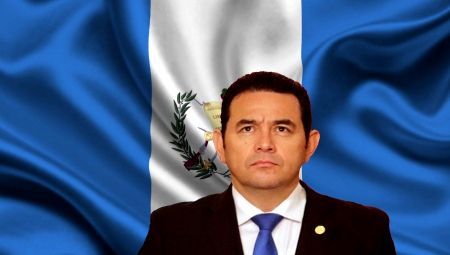 Hier le couple présidentiel recevait son homologue guatémaltèque, une rencontre au sommet sur le perron de l'Élysée. Et la Première Dame élégante en robe blanche. Hier le couple présidentiel recevait son homologue guatémaltèque, une rencontre au sommet sur le perron de l'Élysée. Et la Première Dame élégante en robe blanche.
Le chef d'État du Guatemala de passage pour trois jours dans la capitale française s'est rendu au Sénat avant de rendre visite à la maire de Paris Anne Hidalgo, à qui il a remis le titre de Grand Croix de l'Ordre d'Antonio José de Irisarri, pour son soutien à la cause des femmes guatémaltèques.
Cet ancien enseignant de la faculté des Sciences Jimmy Morales du a aussi produit sept films dans lesquels il a joué avant d'accéder à la tête de l'État! Le Guatemala a promis de de plus rester dans la black liste des paradis fiscaux . ..
La discussion de Macron sur Facebook pendant 20 minutes avec des internautes anonymes ne passe pas non plus inaperçue et ce coup de com' semblent charmer les électeurs .Tout semble sourire pour l'instant au jeune Président de 39 ans.
Même les législatives !
Un mois après avoir élu président le jeune centriste Emmanuel Macron, les Français doivent choisir dimanche leurs députés à l'Assemblée nationale .Le parti présidentiel pourrait 'obtenir la majorité nécessaire pour réaliser les réformes promises pendant la campagne électorale.
À l'avant-veille du premier tour du scrutin, les sondages donnent avance au camp Macron, avec autour de 30 % des intentions de vote .Selon plusieurs projections, il pourrait avoir près de 400 députés, bien au-delà du seuil de 289 sièges requis la majorité absolue.
Mais la perspective d'une concentration des pouvoirs inquiète les autres forces politiques françaises.
« Une stratégie de domination hégémonique [...] je ne pense pas que ce soit sain pour le débat démocratique pour les cinq années à venir », a ainsi déploré vendredi François Baroin, le chef de file du parti de droite Les Républicains (LR) pour les législatives
« Un vent nouveau se lève », selon le ministre de l'Intérieur Gérard Collomb.
|
|
| Reste les grands défis de la France à relever! L'encensement du couple atypique Macron ne suffira vraiment plus... |
|
| "De Gaulle avait raison: tous des veaux, mais qui avec Macron iront sûrement tous à l'abattoir". |
|
|
|
| Britney Delsey pour DayNewsWorld |
 |
There are no translations available.
DELICATE SITUATION POUR
BAYROU
DEFENSEUR DE LA MORALISATION
DE LA VIE PUBLIQUE
|
|
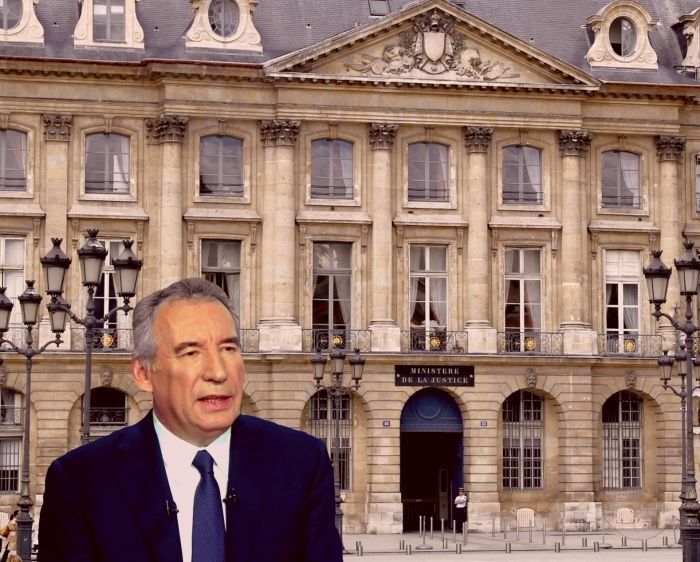 L'affaire Richard Ferrand EST au cœur d'une enquête préliminaire sur un montage immobilier à l'époque où l'actuel ministre dirigeait les Mutuelles de Bretagne,voilà un nouveau dossier judiciaire juste avant les législatives !! L'affaire Richard Ferrand EST au cœur d'une enquête préliminaire sur un montage immobilier à l'époque où l'actuel ministre dirigeait les Mutuelles de Bretagne,voilà un nouveau dossier judiciaire juste avant les législatives !!
Le MoDem se retrouve à son tour pris dans la tourmente des assistants parlementaires européens.
Le parquet de Paris a annoncé vendredi avoir ouvert une enquête préliminaire pour abus de confiance afin de faire la lumière sur les soupçons d'emplois fictifs du MoDem au Parlement européen à deux jours du premier tour des législatives.
À la suite d'un courrier envoyé par un ancien salarié de l'UDF, le parquet de Paris a annoncé l'ouverture d'une enquête préliminaire pour abus de confiance et recel d'abus de confiance, à l'encontre du Modem soupçonné d'emplois fictifs.
L'ouverture de cette enquête fait suite à "un courrier -avec documents à l'appui- déposé par un ancien salarié du Modem dans lequel il expose avoir, signé un contrat de travail à temps plein avec l'UDF (...) et également un avenant de détachement à ce contrat 'afin d'exercer des fonctions de collaborateur auprès de Monsieur Bennahmias'". L'ancien salarié du Modem a précisé avoir été rémunéré pendant près d'un an par le parti (à l'époque l'UDF) ainsi que par l'Association pour une Europe citoyenne présidée par Jean-Luc Bennahmias, alors qu'il n'aurait jamais travaillé pour le candidat à la primaire PS. Le parquet a alors ouvert une première enquête préliminaire portant sur une vingtaine d'eurodéputés, dont Marielle de Sarnez et un autre parlementaire du MoDem.
Les soupçons touchent une formation alliée à Emmanuel Macron représentée, qui plus est, au gouvernement par François Bayrou, ministre de la Justice, et Marielle de Sarnez, chargée des Affaires européennes
Une dizaine de salariés du siège, sur la période 2009-2014, pourraient être concernés par les soupçons d'emplois fictifs."Les cas des deux députés du MoDem objet de l'enquête préliminaire du 22 mars sont joints à l'enquête ouverte ce jour", précise le parquet dans son communiqué.
«Sur la période 2009-2014, une dizaine de salariés du siège du parti étaient parallèlement collaborateurs des députés européens du Modem», surenchérit France Info qui a également pu recueillir le témoignage de l'ex-collaborateur de Jean-Luc Bennahmias. La députée du Grand Est, Nathalie Griesbeck, aurait employé à mi-temps la standardiste du parti. Le député Robert Rochefort aurait, lui, recruté deux salariés du service communication du parti comme assistant. L'eurodéputée Sylvie Goulard, devenue ministre des Armées, aurait quant à elle embauché le responsable de la formation des élus au sein du MoDem. Enfin, Marielle de Sarnez aurait salarié sa secrétaire particulière et une attachée de presse.
A la lumière de l'ensemble de ces éléments, le parquet a ouvert une enquête pour abus de confiance et recel d'abus de confiance, confiée l'Office central de lutte contre la corruption et les infractions financière et fiscales (OCLCIFF).
Bien entendu loyauté et solidarité obligent :"Je ne crois pas que sa position soit fragilisée", a déclaré vendredi le Premier ministre, Edouard Philippe, à propos de son gardes des Sceaux érigé en défenseur de la moralisation de la vie politique. .En revanche "Un problème institutionnel" pour Corinne Lepage,avocate de formation.
Le MoDem s'est pour sa part défendu en affirmant dans un communiqué publié jeudi avoir "respecté toutes les règles et toutes les obligations d'un employeur".
Le député George Fenech, secrétaire national à la Justice des Républicains (LR), a estimé vendredi dans un communiqué que ces soupçons plaçaient François Bayrou "dans une situation flagrante de conflit d'intérêts".
Le ministre "se retrouve destinataire de tous les éléments synthétiques d'enquête qui le visent personnellement et par voie de conséquence en mesure d'allumer des contre-feux pour échapper à sa responsabilité personnelle et politique", a-t-il jugé.
Beaucoup de Français doivent se scandaliser à la suite de telles révélations toujours plus éhontées de cette caste politique. Toucher des doubles rémunérations pour des emplois fictifs: une spécialité française!
«L'an passé, le département en charge des dossiers internes a été inondé.»
Le patron de l'Office anti-fraude européen, Giovanni Kessle
Corinne Lepage, l' invitée d'Olivier Truchot sur BFMTV n'a pas été surprise.. L'auteure de Les Mains propres - plaidoyer pour la société civile au pouvoir", paru en 2014 aux éditions, Autrement dénonçait déjà certaines pratiques qu'elle avait constatées au Modem.
"Il y avait déjà une enquête qui concerne 19 eurodéputés dont Marielle de Sarnez. La nouveauté, aujourd'hui, c'est une enquête préliminaire qui concerne spécifiquement le Modem. Ce qui concernait Marielle de Sarnez dans l'autre enquête a été rapatrié dans celle-là", a-t-elle souligné.
François Bayrou est "dans une position extrêmement difficile"étant à la fois ministre de la Justice et patron du Modem. "Là, on est dans un problème institutionnel. Le garde des Sceaux est le patron du parquet et l'enquête a été ouverte par le parquet de Paris, le procureur de la République de Paris est sous la dépendance du garde des Sceaux. Il y a donc une difficulté pour éviter les interférences de la part du garde des Sceaux sur une enquête qui le concerne".
Selon l'avocate, il y a là un "problème institutionnel et politique".
|
|
|
|
|
|
|
|
| Alyson Braxton pour DayNewsWorld |
 |
There are no translations available.
PETITE AFFAIRE ENTRE AMIS
|
|
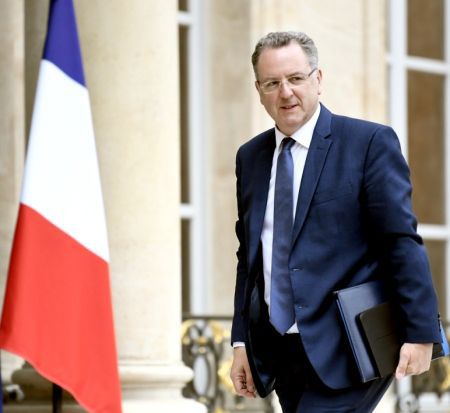 Le ministre de la Cohésion des territoires Richard Ferrand qui garde le soutien du premier ministre Édouard Philippe, exclut de démissionner car il a sa «conscience pour lui» et n'est «pas mis en cause par la justice». Le ministre de la Cohésion des territoires Richard Ferrand qui garde le soutien du premier ministre Édouard Philippe, exclut de démissionner car il a sa «conscience pour lui» et n'est «pas mis en cause par la justice».
Une affaire de plus qui entache gravement la crédibilité du nouveau gouvernement : l'affaire Ferrand, ce soutien de la première heure d'Emmanuel Macron.
Comble de bonheur l'exécutif prépare une loi sur la moralisation de la vie politique !! A se demander jusqu'où les politiques iront dans l'abjection en prenant les Français pour des « veaux ». Le Général de Gaulle (dont la tombe a été profanée récemment,petit aparté) n'avait-il pas raison avec sa lucidité clairvoyante ? Ces derniers jours, les voix à droite comme à gauche, se multiplient pour demander la démission du ministre de la Cohésion des territoires, Richard Ferrand, épinglé pour une affaire immobilière impliquant sa compagne.
Une semaine après les premières révélations du Canard enchaîné, voilà celle du Monde qui l'accuse tout bonnement de «mélange des genres». Il était à la tête des Mutuelles de Bretagne puis chargé de mission après en avoir quitté la direction des mutuelles et dans ses fonctions de député. Au même moment, relève Le Monde, il déposait à l'Assemblée un projet de loi avec d'autres socialistes sur les activités des mutuelles...et ne creusons pas dans les recrutements . Trop, c'est trop.
Richard Ferrand aurait simplement été remplacé à la tête du mutualiste par une proche collaboratrice, dont il a recruté le compagnon comme assistant parlementaire. On taira les noms par pudeur.
Quelle est vraiment cette affaire ?
Plusieurs sociétés et personnes sont concernées par les informations sur le ministre de la cohésion des territoires. Une SCI, un assistant parlementaire, une compagne, une ex-femme ,un fils ...
Les faits remontent à 2011, quand Richard Ferrand était directeur général des Mutuelles de Bretagne. L'organisme à but non lucratif recherchait des locaux commerciaux à Brest pour ouvrir un centre de soins. Trois propositions: l'établissement choisit une société civile immobilière, la Saca pour un loyer annuel de 42.000 euros annuel.
Mais petit problème : Saca, qui propose un "petit" loyer appartient à la compagne de Richard Ferrand, Sandrine Doucen, avocate. Ce serait Richard Ferrand lui-même qui aurait quelque mois plus tôt acheté les locaux concernés. Il aurait notamment signé en décembre 2010 une promesse de vente conditionnée à la conclusion d'un bail commercial entre une SCI, devant se substituer à lui, et les Mutuelles de Bretagne. De plus la promesse de location aurait permis à sa compagne d'obtenir un prêt bancaire.
Offre de Sandrine Doucen la mieux-disante ? La proposition de Mme Doucen était certes la moins chère MAIS sans prendre en compte le coût important des travaux pris en charge par les Mutuelles par la suite soit la bagatelle de 184 000 euros.
On a l’impression de nager en eaux troubles dans le rôle joué par Richard Ferrand autour des Mutuelles de Bretagne.
Précisons qu'il a été directeur général des Mutuelles de Bretagne de 1998 à 2012, avant d’y conserver un poste de chargé de mission de 2012 à 2017. ..
Toujours aucun conflit d'intérêts ?
Réponse du ministre : «Je ne suis ni marié, ni pacsé avec Sandrine Doucen. Avec ma compagne, nous ne vivons pas sous le régime matrimonial. Nous n'avons pas de patrimoine commun. On peut se séparer demain, chacun gardera ses biens.» , a-t-il cru bon de déclarer ; Charmante réponse pour la concernée.
La SCI Saca appartient aujourd’hui à Sandrine Doucen (99 % des parts) et à la fille qu’elle a eue avec Richard Ferrand (1 %). Les loyers de ces locaux brestois ont permis à la SCI d’acquérir en 2013 un appartement de 353 000 euros à Paris. Belle opération immobilière !
On campe toujours sur la même position : pas de conflit d’intérêt.
Dans la foulée Le Canard enchaîné révélait également que l'ancien député socialiste du Finistère, actuellement en campagne pour sa réélection, avait embauché son fils pendant plusieurs mois, en 2014, comme collaborateur parlementaire pour un salaire 8704 euros brut sur l'ensemble de la période.
Pour le moment, Richard Ferrand exclut clairement de démissionner. «Je ne le ferai pas pour deux raisons: d'abord j'ai ma conscience pour moi, je ne suis pas mis en cause par la justice de la République que je respecte profondément, et (...) je veux me consacrer aux priorités de mon ministère», a-t-il réaffirmé sur France Inter mercredi matin. Mais la pression s'accentue.
Toujours est-il que Richard Ferrand garde le soutien de son premier ministre, invité mardi soir du 20 Heures de France à 2 . À la question de savoir si le ministre de la Cohésion des territoires peut rester au gouvernement, Édouard Philippe a répondu que oui. On se serre les coudes .On est entre soit. Certains responsables demandent désormais à Emmanuel Macron et à son ministre de la Justice, François Bayrou, de s'exprimer sur la question.
Seulement, les Français ne sont pas tout à fait du même avis et expriment à juste titre un ras-le-bol optimal. Selon un sondage de l'institut Harris Interactive publié mercredi, 73% des personnes interrogées jugent que les faits reprochés à Richard Ferrand sont graves. Pour 70%, le ministre doit quitter ses fonctions au sein du gouvernement.
A la suite de ces révélations, le parquet national financier (PNF) a précisé que ces faits n’entraient pas dans son « champ de compétence ». Le parquet de Brest d'ouvrir à ce stade une enquête préliminaire. Vendredi, le procureur de la République de Brest, Éric Mathais, a annoncé que les faits relatés ne constituaient pas une infraction «Le parquet national financier a fait connaître qu'il n'entendait pas se saisir de ces faits», rappelle le magistrat dans son communiqué.
|
|
|
|
|
|
|
|
| Paul Emison pour DayNewsWorld |
 |
There are no translations available.
L'ARROSEUR ARROSE !!
|
|
Jusque vers la mi-février 2017, François BAYROU ambitionnait encore une 4ème candidature pour les élections présidentielles 2017, espérant cette fois-ci accéder au sommet du pouvoir .
Las ! A la date fatidique du dépôt des candidatures, il n'avait pas réussi a rassembler les 500 signatures exigées par la loi et vérifiées par le Conseil Constitutionnel.
Alors qu'Emmanuel MACRON peinait dans les sondages à la même époque, le fondateur du Modem s'est précipité devant les caméras , en évoquant « la gravité de la situation » , « la décomposition de a démocratie » et les « risques de dissidence des Français » pour justifier son ralliement au candidat En Marche .
La décision inattendue du représentant du Modem qui a surpris toute la classe politique a été accueillie avec bonheur par Emmanuel Macron qui traversait une mauvaise passe sondagière.
L'effet Bayrou fut immédiatement constaté dans les sondages:
Macron gagnait 3 points dès le premier sondage réalisé après cet événement.
Le ralliement de Bayrou avait des contreparties , la première d'entre elles, le vote rapide , quasiment immédiat , d'une loi de moralisation de la vie publique et de lutte contre les conflits d’intérêts.
S'en est suivie une longue campagne , émaillée d’incidents de toutes natures au cours de laquelle le candidat Macron n'a pas cessé de marteler que s'il était élu , il présenterait des candidats dans les 577 circonscriptions rappelant que les quelques 10 000 candidatures spontanées déposées auprès de la Commission des Investitures , Présidée par Jean Paul Delevoye serait examinées à l'aulne de ces nouvelles exigences éthiques.
Emmanuel Macron a de son coté fait la même chose avec les candidats à son gouvernement.
Dès son installation il s'est attelé à examiner les différentes candidatures qui lui étaient soumises, scrupuleusement et conformément aux exigences renforcées de transparence et d’éthique .
Ce tout nouveau gouvernement a été présenté a la Presse le 11 mai 2017 … avec quelques jours de retard par rapport à l'agenda initial … « un délai supplémentaire ayant été jugé nécessaire pour approfondir et faire approfondir par la Haute Autorité le profil (éthique) de chacun des futurs ministres. »
Et Patatras !!!
Le vendredi 19 mai on apprenait que le nouveau Garde des Sceaux , qui n'est autre que François Bayrou, était convoqué le même jour, à 14 h devant le 17ème chambre Correctionnelle de Paris … pour une audience de fixation entre avocats de la date du jugement de l'affaire.
François Bayrou n'était pas présent .
Cette convocation fait suite à une mise en examen de François Bayrou qui est intervenue en Novembre 2016.
Tient!Tient !
Francois Bayrou était donc mis en examen à la date de sa nomination comme Garde des Sceaux!!! Ministre de la Justice !!!
Que s'est il passe ? Emmanuel Macron ignorait il que son compère était mis en examen ? Avait il voulu minorer cet événement ? A-t-il utilisé la classique formule de raisonnement « dite à géométrie variable » Emmanuel Macron serait il fort avec les faibles et faible avec les forts .. ?
Cette information a beaucoup surpris .
Alors, de quoi s'agit il ?
François Bayou aurait émis publiquement des doutes sur l’honnêteté et le fonctionnement de l'association EL SISTEMO France, qui aide les enfants défavorisés en leur apprenant la musique classique et qui comme toute association de cette nature recherche auprès des structures publiques des aides financières .
François Bayrou aurait brutalement déclare que l'association « voulait se faire de l'argent sur une expérience artistique », des propos inadmissibles selon l'avocate de l'association et relevant
selon-t- elle de la diffamation.
L'audience de fixation a fixé au 18 janvier 2019 l'audience de jugement.
La date est lointaine … mais…
L'association a déposé ces jours-ci une nouvelle plainte en diffamation contre François Bayrou,- dont la raideur qui n'est un secret pour personne- , ce dernier ayant réitéré ses accusations, se lançant une fois de plus dans une diatribe contre l'association, diatribe qui a été diffusée sur le Web TV Pau Pyrénées et est accessible sur Dailymotion.
Cette fois ci, il accuse El SISTEMO « d'extorquer des contributions financières auprès des maires » . !!!
Fondée ou infondée, cette mise en examen démontre qu'Emmanuel Macron est prêt à s'extraire des contraintes qu'il a fixés vigoureusement aux membres de son mouvement .. Tout cela n'est pas dénué d'intentions politiciennes...
Alors , Monsieur Propre est il aussi propre que cela ??? Est il malléable à la demande , en fonction de la nature de l 'événement ?
Selon l'évolution de ce dossier cette affaire pourrait se retourner contre Emmanuel Macron lui même ,alors qu'il est aujourd’hui président de la République ..
|
|
|
|
|
|
|
|
| Clara Mitchell pour DayNewsWorld |
 |
There are no translations available.
AUCUN ETAT DE GRACE
ACCORDE PAR LES FRANCAIS
A MACRON PRESIDENT.
|
|
Au lendemain de sa victoire les Français ne déroulent pas le tapis rouge au Nouveau Président.
 Inutile même de leur parler d'un éventuel état de grâce de 100 jours. Ils ne veulent pas le lui accorder. Inutile même de leur parler d'un éventuel état de grâce de 100 jours. Ils ne veulent pas le lui accorder.
Et pour cause.
Le couple exécutif n'obtient déjà pas la confiance de la majorité des Français selon un sondage Elabe pour Les Echos.
Le président de la République bénéficie à peine de 45% de cote de confiance et 46% des Français ne lui font pas confiance. Au même stade de son mandat, François Hollande obtenait, en 2012, un 58%tout comme Nicolas Sarkozy en 2007 59%
«On sent un certain attentisme des Français et face à eux, un président de la République et un premier ministre qui vont avant tout devoir faire leurs preuves», commente Yves-Marie Cann, le directeur des études politiques d'Elabe cité par Les Echos.
C'est que beaucoup ont voté par défaut, un certain abstentionnisme l'a d'ailleurs démontré.Les Français ,dépités d'une telle classe politique à jamais sans foi ni loi, ne se contentent plus de promesses. Pire, ils ne s'attendent pas à ce que la situation s'améliore sous le seul effet de l'élection
Le premier ministre Edouard Philippe obtient seulement 36% de confiance pâtissant de son manque de notoriété. Et puis comment pourrait-il engranger la confiance de tous les électeurs de François Fillon ? Issu des rangs de la droite ? C'est paradoxalement chez les électeurs d'Emmanuel Macron qu'il obtient le meilleur score (73%)...
De quoi être déboussolé. Car Emmanuel Macron veut faire exploser les partis de droite et le PS ,mais encore faut-il propose une voie alternative ...Et la petite stratégie politicienne des vils calculs ne suffit pas à cerner un programme viable et plus que vitale pour le redressement de la France.
Et si les électeurs ont encore un soupçon de mémoire, le gouvernement ne ressemble pas tout à fait aux promesses du candidat Macron qui avait dressé à plusieurs reprises le portrait-robot de son futur gouvernement."Ce sera une équipe gouvernementale resserée, d'une douzaine de ministres, paritaire, et qui refletera le renouvellement et le pluralisme d'En marche. Ca veut dire qu'il y aura entre un tiers et la moitié des ministres qui viendront de la société civile, et pour les autres, reflétant ce pluralisme politique qui va de la social-démocratie jusqu’au gaullisme social." répondit-il à un confrère sur Radio Classique .
Les jeux sont faits : les promesses sont passés aux oubliettes. L'équipe d'Edouard Philippe compte 22 membres si on inclut les quatre secrétaires d'Etat annoncés mardi au lieux des douze promis..
Même la promesse de renouvellement n'est pas là. Emmanuel Macron : "Vous avez bien compris que je prônais le renouveau des visages. Donc il s’applique pour l’équipe gouvernementale, de manière très claire." . On compte pourtant deux anciens ministres de François Hollande dans la nouvelle équipe : Jean-Yves Le Drian qui passe de la Défense aux Affaires étrangères et Annick Girardin, ancienne ministre de la Fonction publique et désormais ministre des Outre-mer. Bruno Le Maire a été ministre de l'Agriculture entre 2009 et 2012 et secrétaire d'Etat aux Affaires européennes . Et loin de nous de passer au crible les promesses non tenues, ces dernières ne sont qu'en demi-teintes comme la fameuse parité où sur les 11 femmes seulement Sylvie Goulard, nommée "ministre des armées" obtient un ministère régalien...
Et que penser de la méthode Macron ?
Emmanuel Macron a livré jeudi, lors du conseil des ministres, son discours de la méthode de l'action gouvernementale avec comme valeurs cardinales, la « solidarité », la « collégialité » et la « confidentialité », a rapporté le porte-parole du gouvernement Christophe Castaner. Parmi les « règles de bon fonctionnement », a souligné le nouveau chef de l'État, figure « d'abord la solidarité nécessaire entre tous les membres du gouvernement » ainsi qu'un « travail collégial ». Histoire de ne pas récidiver les erreur du prédécesseur. Certes.
Le rôle du président de la République est de « fixer la stratégie », de « donner un cap, un sens » et de préserver « les équilibres de nos institutions ». Le rôle du Premier ministre est d'« arbitrer ». Certes, on est loin du" bateau ivre" de son prédécesseur, mais de là à museler ses ministres à la sortie du premier conseil des ministres..
.D'ailleurs la presse frondeuse est rapidement montée au créneau devant ce qui est perçu comme une volonté de fermeture de l'Elysée vis-à-vis de médias qui n'ont fait pour beaucoup que de hisser le Président sur un pied-d'estale. Le retour d'ascenseur a été brutal pour certains! !"Monsieur le Président, il n'appartient pas à l'Élysée de choisir les journalistes" . D'où opération de déminage : L'Elysée tente de calmer la fronde des médias qui digèrent mal la méthode de communication du Président .
Selon le courrier cité par RSF, l'Elysée affirme que sa démarche "est le contraire d'une démarche de fermeture: elle est une démarche d'ouverture" . Le chef de l'Etat "est très attaché au traitement de fond des sujets et souhaite ouvrir l'Elysée aux journalistes sectoriels [rubricards] qui portent sur l'action présidentielle un autre regard. C'est dans cet esprit qu'il a été proposé aux rédactions d'élargir aux journalistes spécialisés Défense ou Diplomatie le voyage officiel auprès des forces armées". On peut en juger par nous-mêmes.
Mais le déminage en direction de la presse doit être d'une efficacité redoutable car un autre défi de taille, celui des législatives du 11 et 18 juin arrive. Et l'Elysée aura plus que besoin des bonnes grâces des médias !
|
|
| A SUIVRE... |
|
|
|
|
|
| Joanne Courbet pour DayNewsWorld |
 |
There are no translations available.
LE GOUVERNEMENT
D'EDOUARD PHILIPPE
|
|
 Le nouveau président français Emmanuel Macron a dévoilé mercredi son premier gouvernement : Le nouveau président français Emmanuel Macron a dévoilé mercredi son premier gouvernement :
Une équipe de rupture marquée par une stricte parité hommes-femmes .
Un melting-pot politique intégrant des personnalités de gauche, de droite, du centre et de la société civile.
Un «renouvellement» politique et une équipe resserrée qui soit à la fois «et de droite et de gauche» en vue de la bataille des législatives, les 11 et 18 juin
Un premier ministre issu de la droite modérée, Édouard Philippe, 46 ans.
Cinq ministres venant du centre et de la droite: trois centristes du Modem - François Bayrou (Justice), Sylvie Goulard (Armées) et Marielle de Sarnez (Affaires européennes) - et deux du parti de droite Les Républicains (LR): Bruno Le Maire (Économie) et Gérald Darmanin (Action et comptes publics).
Cinq personnalités venant de la gauche: l'ex-ministre socialiste de la Défense de François Hollande, le poids-lourd politique Jean-Yves Le Drian, 69 ans au ministère des Affaires étrangères, Annick Girardin, du Parti radical de gauche (PRG) obtient la Fonction publique aux Outremers.
L'Agriculture :au sénateur PRG Jacques Mézard
Un dosage subtil qui va rendre la tâches des adversaires compliquée !
|
|
|
Le gouvernement d'Édouard Philippe
- Ministre d'État, ministre de l'Intérieur: Gérard Collomb
- Ministre d'État, ministre de la Transition écologique et solidaire: Nicolas Hulot
- Ministre d'État, garde des Sceaux, ministre de la Justice: François Bayrou
- Ministre des Armées: Sylvie Goulard
- Ministre de l'Europe et des Affaires étrangères: Jean-Yves Le Drian
- Ministre de la Cohésion des Territoires: Richard Ferrand
- Ministre des Solidarités et de la Santé: Agnès Buzyn
- Ministre de la Culture: Françoise Nyssen
- Ministre de l'Economie: Bruno Le Maire
- Ministre du Travail: Muriel Pénicaud
- Ministre de l'Éducation nationale: Jean-Michel Blanquer
- Ministre de l'Agriculture et de l'Alimentation: Jacques Mézard
- Ministre de l'Action et des comptes publiques: Gérald Darmanin
- Ministre de l'Enseignement supérieur, de la recherche et de l'innovation: Frédérique Vidal
- Ministre des Outre-mer: Annick Girardin
- Ministre des Sports: Laura Flessel
- Ministre auprès du ministre d'État, ministre de la Transition écologique, chargée des Transports: Elisabeth Borne
- Ministre auprès du ministre de l'Europe et des Affaires étrangères, chargée des Affaires européennes: Marielle de Sarnez
Secrétaires d'État auprès du premier ministre:
- Chargé des Relations avec le Parlement, porte-parole du gouvernement: Christophe Castaner
- Chargée de l'Égalité entre les femmes et les hommes: Marlène Schiappa
- Chargée des personnes handicapées: Sophie Cluzel
- Chargé du numérique: Mounir Mahjoubi
|
|
|
|
|
|
| Paul Emison pour DayNewsWorld |
 |
There are no translations available.
LE NOUVEAU PREMIER MINISTRE
DU PRESIDENT MACRON
|
« Il ne faut pas raisonner en termes de gauche ou de droite », a insisté sur Europe 1 Benjamin Griveaux, porte-parole de La République en marche (LREM). « Il faut un passé parlementaire mais surtout être dans une démarche de rupture avec les codes du monde ancien ».
|
|
|
On connait le Premier ministre du gouvernement :
Edouard Philippe

Au lendemain de la passation de pouvoir entre François Hollande et Emmanuel Macron, on attend le nom du Premier ministre nommé par le nouveau président de la République.
Un choix révélateur crucial dans sa stratégie de rassemblement pour les mois à venir.
En effet le jeune président doit convaincre de sa capacité à rassembler autour de son projet
"ni de droite, ni de gauche"
tout en se trouvant une majorité avant les législatives des 11 et 18 juin.
|
|
| On souhaite bonne chance à Edouard Philippe premier ministre intérimaire jusqu'aux législatives. |
|
|
|
| Joanne Courbet pour DayNewsWorld |
 |
There are no translations available.
Je vois dans ma boule de cristal...
|
|
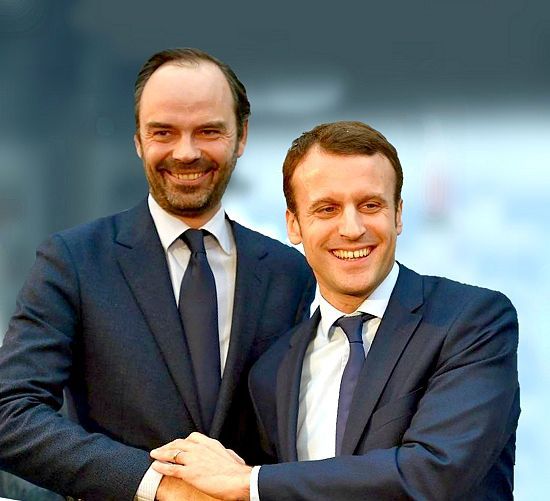
Alors on y va.
Dimanche Notre chouchou notre nouveau Président de la République va nous annoncer qui est notre Premier Ministre.
Mais j'ai envie de me la jouer à Mme Irma.
Je vois dans ma boule de cristal.
«Le Maire Du Havre Edouard Philippe»
Et vous donnez votre pronostic du loto gagnant Sylvie Goulard, François Bayrou ?
A vous de jouer par contre à la clef vous gagnerez des éclairs au café!
|
|
|
|
|
|
|
|
| Mia Kennedy pour DayNewsWorld |
 |
There are no translations available.
LEGISLATIVES
|
« Nous continuons à approfondir un certain nombre d’échanges et de travaux », a précisé Richard Ferrand.
|
|
|
Législatives : 428 candidats investis par La République en marche, dont 52 % issus de la société civile.
|
|
|
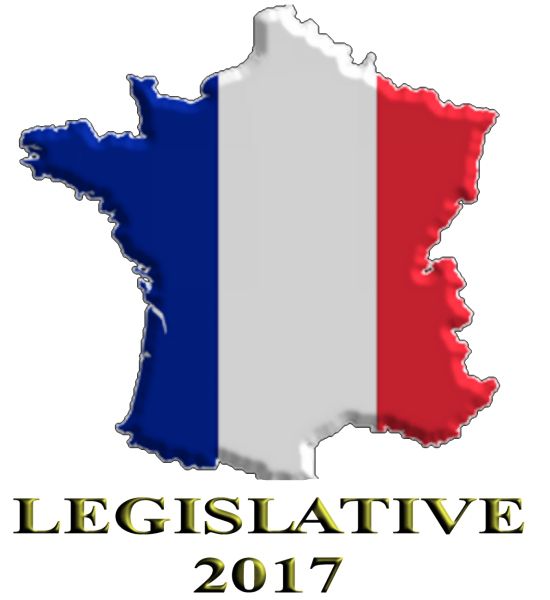 Plusieurs circonscriptions n’ont pas encore de candidats. C'est normal dans le mesure où le mouvement prend le temps de la réflexion jusqu’à mercredi . Plusieurs circonscriptions n’ont pas encore de candidats. C'est normal dans le mesure où le mouvement prend le temps de la réflexion jusqu’à mercredi .
La liste présentée par Richard Ferrand, secrétaire général de La République en marche (LRM) reste donc incomplète pour les candidats du mouvement d’Emmanuel Macron. 428 investitures sur 577 ont été annoncées. Le mouvement souhaite que « d’ici mercredi puisse être maintenu vivant un espace permettant à la recomposition du paysage politique français de se poursuivre encore », a-t-il ajouté.
Pour les investitures actées, Richard Ferrand estime que leur liste « signe le retour définitif des citoyens au cœur de notre vie politique », en prenant le soin de souligner que « 52 % des candidats n’ont jamais exercé de mandat électif et n’exercent aujourd’hui aucun mandat politique ». 214 des candidats sont des hommes et 214 sont des femmes.
« 24 parlementaires » sortants sont investis. « Des députés socialistes », a précisé M. Ferrand. Manuel Valls ne sera cependant pas investi aux législatives par La République en Marche mais le parti d’Emmanuel Macron ne présentera pas de candidat contre lui dans sa circonscription de l’Essonne.
Tous remplissent les "critères de renouvellement voulus par Emmanuel Macron: la parité réelle, la probité, le pluralisme politique et la cohérence", a ajouté le secrétaire général du mouvement.
LRM quant à lui prend quelques jours pour savoir dans quelles circonscriptions il pourrait ne pas présenter de candidats. « Un certain nombre de candidats Les Républicains ont déclaré vouloir aider le nouveau président de la République et participer à la dynamique de rassemblement » selon Richard Ferrand. Mais des personnalités de droite posent comme préalable à leur collaboration avec le mouvement d’Emmanuel Macron le choix d’un premier ministre de leur camp.Les Républicains et l’UDI ont présenté leur projet, qui sera porté par leurs candidats sous l’étiquette « Majorité pour la France, Union de la droite et du centre ».
La rupture voulue par François Fillon s’efface au profit de propositions plus classiques.
Ce projet LR-UDI pour les législatives s'avère un peu moins libéral économiquement par rapport à celui porté par François Fillon. La suppression de l’impôt de solidarité sur la fortune ainsi que la revalorisation des petites retraites et pensions de réversion seraient à l'ordre du jour. Quant à la hausse de deux points du taux normal de TVA elle serait abandonnée pour permettre à la droite d’orienter sa campagne contre la hausse de la CSG prévue par E . Macron.
La plateforme prévoit également de « supprimer les 35 heures » et de « laisser pendant dix-huit mois à chaque entreprise (ou à chaque branche pour les petites entreprises) la liberté de négociation du temps de travail » sans préciser pas par quoi les 35 heures seraient remplacées ensuite
Les 428 candidats investis jusqu'alors seront réunis samedi au musée du quai Branly « pour un séminaire de présentation et de travail » (Ferrand.)
|
|
|
|
| Paul Emison pour DayNewsWorld |
 |
There are no translations available.
DERNIERS BRUITS DE COULOIR
EDOUARD PHILLIPE PREMIER MINISTRE ?
|
|
 Edouard Philippe, actuel député-maire LR du Havre, figurerait parmi les favoris pour entrer à Matignon appartenant la short-list des premiers ministrables pour succéder à Bernard Cazeneuve à Matignon. Maire Les Républicains du Havre, Edouard Philippe sera-t-il le chef du premier gouvernement d'Emmanuel Macron le 15 mai? Edouard Philippe, actuel député-maire LR du Havre, figurerait parmi les favoris pour entrer à Matignon appartenant la short-list des premiers ministrables pour succéder à Bernard Cazeneuve à Matignon. Maire Les Républicains du Havre, Edouard Philippe sera-t-il le chef du premier gouvernement d'Emmanuel Macron le 15 mai?
A côté de Richard Ferrand, de Jean-Yves Le Drian, de Sylvie Goulard : Edouard Philippe. Maire Les Républicains du Havre, ce quadragénaire très proche d'Alain Juppé pourrrait incarner le rôle de Premier Ministre de Macron. Diplômé de Science Po en 1992, puis de l’ENA (promotion Marc-Bloch, 1995-1997), il a commencé sa carrière au Conseil d’Etat en 1997. Alors militant du Parti socialiste, il soutient Michel Rocard avant de basculer vers le centre-droit puis décide d’accompagner Alain Juppé lors de la création de l’UMP . Il y occupe les fonctions de directeur général des services jusqu’en 2004. Membre du cabinet d'Alain Juppé en 2007, il sera par la suite directeur des Affaires Publiques d'Areva.
Il a été élu maire du Havre en octobre 2010 après la démission d’Antoine Rufenacht puis réélu en mars 2014 puis député de la 7eme circonscription de la Seine-Maritime en 2012.
Bref cet inconnu du grand public, député-maire du Havre, proche d’Alain Juppé puisque porte-parole d'Alain Juppé lors de la primaire des Républicains pour cette présidentielle 2017 , a pris ses distances avec Les Républicains après le déclenchement du Penelopegate.
Il pourrait devenir le prochain locataire de Matignon, symbole du renouvellement voulu par Emmanuel Macron : « il est "jeune", relativement "nouveau" en politique, avec une expérience de parlementaire et d'élu local, plutôt classé centriste. »
Peut-être également une manière de déstabiliser « Les Républicains »
Dans la mesure où, selon Le Canard enchaîné, Édouard Philippe s'apprêterait à la création d'un nouveau parti avec le maire de Valenciennes, Laurent Degallaix. Ces derniers ne se retrouveraient plus dans l'orientation de "LR "jugée trop droitière et ce avec la bénédiction du maire de Bordeaux, Alain Juppé.
La dynamique "LR" pour les législatives serait alors entravée au plus grand profit du nouveau Président.
|
|
|
|
|
|
|
|
| Joanne Courbet pour DayNewsWorld |
 |
There are no translations available.
MENACE TERRORISTE
AUX PHILIPPINES SUR
LES SITES TOURISTIQUES .
|
«J'ai donné l'ordre aux forces de sécurité de tirer à vue. Tuez-les», a déclaré à Manille Rodrigo Duterte.
|
|
|
 Des «groupes terroristes» préparent des enlèvements d'étrangers dans des sites touristiques des Philippines, ont averti mercredi des gouvernements occidentaux, un mois après une opération ratée du groupe islamiste Abou Sayyaf. Des «groupes terroristes» préparent des enlèvements d'étrangers dans des sites touristiques des Philippines, ont averti mercredi des gouvernements occidentaux, un mois après une opération ratée du groupe islamiste Abou Sayyaf.
Le président Rodrigo Duterte a déclaré que la sécurité avait été fortement renforcée sur l'île occidentale de Palawan, l'une des destinations les plus touristiques de l'archipel.
«L'ambassade des États-Unis a reçu des informations crédibles selon lesquelles des groupes terroristes pourraient être en train de planifier des opérations visant les étrangers dans des zones de Palawan», peut-on lire dans cet avertissement aux voyageurs.
Deux endroits potentiels seraient visés: la capitale Puerto Princesa et le Parc national de la rivière souterraine de Puerto Princesa, patrimoine mondial de l'Unesco.
Puerto Princesa ne se trouve qu' à 400 kilomètres au nord-ouest des îles du sud de l'archipel qui sont les bastions du groupe Abou Sayyaf. Ce groupe est connu pour être une organisation spécialisée dans les enlèvements crapuleux . Il a prêté allégeance au groupe djihadiste État islamique. Des combattants d'Abou Sayyaf le mois dernier avaient tenté des enlèvements sur l'île touristique de Bohol, en arrivant sur les lieux à bord de vedettes rapides. Heureusement les forces de sécurité avait réussi à déjouer le raid des islamistes.
Mais il n'en demeure pas moins qu'Abou Sayyaf a kidnappé depuis la création de son groupe dans les années 1990 des dizaines d'étrangers et encore bien plus de Philippins. Le groupe n'hésite pas à décapiter faute d'obtenir des rançons.
Les sites touristiques comme Palawan, ainsi que les sites du centre de l'archipel proches de Bohol, comme Dumaguete, Siquijor et Cebu sont fortement déconseillés aux touristes.
|
|
|
|
|
|
| Paul Emison pour DayNewsWorld |
 |
There are no translations available.
Nouveau Président de la République
|

|
|
|
Emmanuel Macron vient d'être élu président de la République. Son programme se veut ambitieux après un quinquennat désastreux. Mais l'état de grâce va-t-il résister cent jours vu l'état de la France? Des résultats sont attendus par une France plus que à jamais sortie meurtrie d'une campagne électorale qui a montré ses fractures béantes.
Son leitmotiv: tirer le meilleur parti de l'économie de marché tout en libérant les forces entrepreneuriales, et en garantissant aux plus fragiles un bon niveau de protection sociale et un meilleur niveau de vie en supprimant la taxe d'habitation pour 80 % des ménages, une mesure pour 18 millions de foyer fiscaux et pour un coût de 10 milliards d'euros par an. ..Avec quelle majorité compte-t-il gouverner ? Le parti socialiste moribond, les Républicains proches de l'implosion et le Front national en grande forme . Le chantier qui l'attend s'annonce semé d'embûches.
Prochain combat: les législatives où chaque parti compte reprendre la main !?
Depuis que les législatives suivent d’aussi près la présidentielle, le président à peine élu a toujours obtenu une majorité parlementaire. Mais cette année, les élections législatives des 11 et 18 juin prochains s’annoncent en effet indécises ...
|
|
|
|
| |
|
| Paul Emison pour DayNewsWorld |
 |
There are no translations available.
BRIGITTE MACRON
UNE HISTOIRE HORS-NORME
|
«Cela fait 20 ans que je suis prête à tout avec lui!»
|
|
|
 Brigitte Auzière a commencé son idylle avec le nouveau Président Emmanuel Macron à Amiens en 1993. La voilà depuis aujourd'hui la Première Dame. En vingt ans une ascension fulgurante. Se doutait-elle de ce destin ? Brigitte Auzière a commencé son idylle avec le nouveau Président Emmanuel Macron à Amiens en 1993. La voilà depuis aujourd'hui la Première Dame. En vingt ans une ascension fulgurante. Se doutait-elle de ce destin ?
Petit flash-back :
Amiens : Elle a bientôt 40 ans, lui à peine 15. Brigitte Auzière est alors mariée à un banquier, mère de trois ados et enseigne au lycée la Providence. Emmanuel Macron est un élève brillant qui fréquentait avec assiduité les cours de théâtre de son professeur de lettres Brigitte. Et ils se sont aimés « J’ai senti que je glissais, lui aussi », confie-t-elle à Paris Match en avril 2016
Des années durant ils ont du subir les regards désapprobateurs de la bourgeoisie conformiste et à cheval sur les principes. D'autant plus que la famille de Brigitte est connue pour ses macarons : la chocolaterie Trogneux est une institution depuis 1872. « Brigitte, c’est elle, la vraie transgressive », dit Emmanuel Macron.
Un couple « fusionnel »,selon Jacques Attali. Brigitte ? Sa « part non négociable », répète Emmanuel.
Quelle femme de Président sera Brigitte Macron ?" Elle aura une existence, une voix, un regard ", a dit Emmanuel Macron, un « rôle public », non rémunéré. Il avait prévenu en s'adressant à un autre journaliste : "Si demain je suis élu, (...) elle ne sera pas dissimulée, pas derrière un tweet, une cachette ou autre. Elle sera à mes côtés, parce qu'elle a toujours été à mes côtés." Fallait-il y voir un petit tacle adressé à Valérie Trierweiler. Sa femme Brigitte de plus n'a jamais caché son admiration pour une certaine ex-First Lady, Carla Bruni...
Mais le statut de la « Première dame » n'existe pas dans la Constitution et Madame Macron devra se cantonner dans son rôle de représentation comme celles qui l'ont précédée.
D'ailleurs déjà en campagne, elle ne participait pas aux comités politiques, mais se contentait d' accompagner son mari alors candidat, et de gérer son agenda.
Par contre dans l'intimité, ou avec les lieutenants du candidat, elle relisait les discours, les améliorant s'il fallait d'un œil critique. Elle était incontournable pour ceux qui désiraient approcher son époux .La future première dame a joué un rôle essentiel lors de cette campagne présidentielle, et cette réussite est la leur.
Gageons que le nouveau couple présidentiel trouvera ses marques sous les ors de l’Elysée.
|
|
|
|
|
|
| Mia Kennedy pour DayNewsWorld |
 |
There are no translations available.
MAIS MONSIEUR MACRON !
QUI ETES-VOUS VRAIMENT ??
|
|
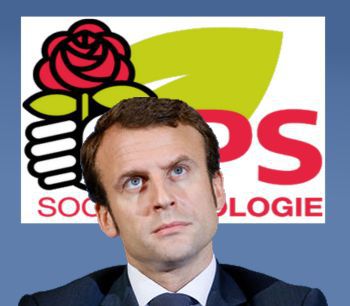
Mr le futur? Président Emmanuel Macron expliquez- nous qui vous êtes,car je ne sais pas quoi penser de vous?
Pour commencer point de vue politique vous n' êtes ni de droite ni de gauche.
Mais si je ne me trompe pas en travaillant à la banque Rothschild vous n'étiez pas un peu capitaliste d’où de droite puis vous avez retourné votre veste en allant rejoindre votre mentor Mr Le Président de La République Hollande.
Votre rôle de Ministre nous a montré que vous étiez de gauche dure et pure ?!
Maintenant vous soutenez tout le monde les voiles en université, vous soutenez Israël, les PME artisans les grandes entreprises bref vous êtes l'ami de tout le monde.
Chez l’être humain c'est drôle on a toujours des catégories que l'on n'aime pas notre Président actuel c'est « les sans dent »..
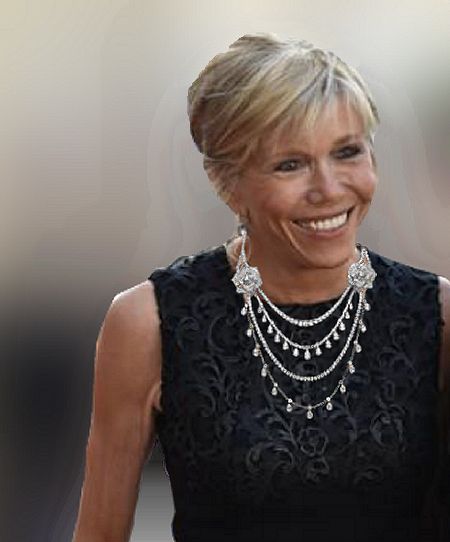 Pendant le débat vous étiez mignon dans votre costume votre chemise blanche une classe folle vos yeux bleu nous faisiez presque fantasmer. Impeccable jusqu'au bout des ongles mais mais. Pendant le débat vous étiez mignon dans votre costume votre chemise blanche une classe folle vos yeux bleu nous faisiez presque fantasmer. Impeccable jusqu'au bout des ongles mais mais.
Alors cela est étrange vous aviez deux bagues à chaque main.Là encore je ne sais plus où vous situer.
Une est l'alliance à l'autre main ne dit on pas que c'est le symbole du passé ou de l'appartenance au monde gay?
C'est vrai que vous êtes marié avec Brigitte qui est classe mais on vous soupçonnait d'avoir une liaison avec la muse de Frédéric Mitterrand , Mr Gallet Mathieu, qui est beau on dirait une égérie de L’Oréal puisque vous le valez bien.
Pour le premier ministre vous avez évoqué la présence d'une femme pour ma part je mets des paris sur Sylvie Goulard mais peut-être allez- vous encore retourner votre pantalon pour le maire de Lyon.
39 ans vous n’êtes ni jeune ni vieux. Car vous êtes pour les jeunes et vu l'age de votre épouse que j'adore vous devez avoir un esprit plus réfléchi pour pouvoir discuter avec elle.
Par contre après votre débat avec Marine Le Pen qui était un peu une cour de récréation certes pas toujours de votre faute.
En partant vous avez salué, embrassé des personnes avant de monter dans votre voiture mais moi qui idolâtre votre épouse vous ne l'avez ni regardé ni embrassé vous l'avez planté là toute seule, ce n'est pas très sympa.
|
|
|
|
|
|
|
|
| Mia Kennedy pour DayNewsWorld |
 |
There are no translations available.
PUNCH-BALL
LE PREMIER FACE-A-FACE
LE PEN / MACRON.
|
|
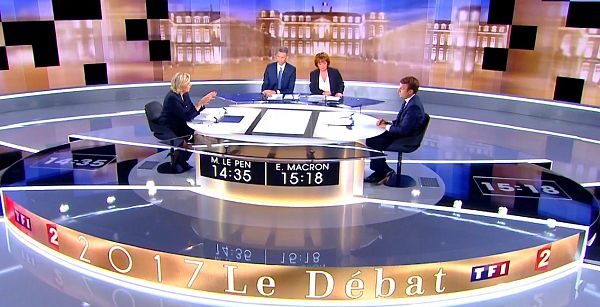 C'est la première fois qu'ils se retrouvent seuls, face- à- face, pour un débat. Emmanuel Macron et Marine Le Pen s'opposent, mercredi 3 mai, sur TF1 et France 2. C'est la première fois qu'ils se retrouvent seuls, face- à- face, pour un débat. Emmanuel Macron et Marine Le Pen s'opposent, mercredi 3 mai, sur TF1 et France 2.
Etre au top face à leur rival c'est d'abord expliquer pour convaincre.
Or si Macron est pédago, Le Pen l'est moins.
Un n'a pas de métier et se montre vite arrogant et cassant, l'autre a du métier, connaît les ficelles et reste sereine.
Ce face à face ne peut être qu'offensif, musclé mais attention à ne pas trop travailler sur la virilité de l'exercice oppose un homme et une femme qui a trois enfants et le revendique souvent.
Donc on est loin d'être dans le débat traditionnel. Et l'arrogance d'un quadra face à une femme peut vite apparaître comme misogyne.
Le mieux pour les deux protagonistes de ce soir c'est de s'opposer sur le fond.
L’intérêt des Français.Et être concret.
Car en la matière, ils ne sont d'accord sur rien...
D'un coté la continuité du hollandisme avec tous les ralliements du gouvernement jusqu'au soutien officiel de François Hollande ou Ségolène Royal !
La nouveauté de l'autre coté et de la jeunesse avec Marion Maréchal-Le Pen.
Les questions économiques et sociales pour Macron. Les questions régaliennes, immigration, insécurité, "terrorisme islamiste".. .pour Le Pen
Ce débat n'est pas du tout « plié » d'avance .
|
|
|
|
|
|
|
|
| Joanne Courbet pour DayNewsWorld |
 |
There are no translations available.
RALLIEMENT A MARINE LE PEN
NICOLAS DUPONT-AIGNAN
LEADER DE DEBOUT LA FRANCE
|
|
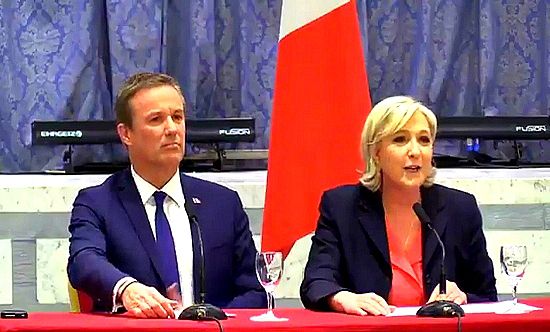 Après des hésitations, Nicolas Dupont-Aignan a annoncé, vendredi soir sur France 2, son ralliement à Marine Le Pen. «Ce soir, j'annonce officiellement que je soutiendrai Marine Le Pen, que je ferai même campagne avec elle sur un projet de gouvernement élargi», a lancé le souverainiste . Après des hésitations, Nicolas Dupont-Aignan a annoncé, vendredi soir sur France 2, son ralliement à Marine Le Pen. «Ce soir, j'annonce officiellement que je soutiendrai Marine Le Pen, que je ferai même campagne avec elle sur un projet de gouvernement élargi», a lancé le souverainiste .
«Nous avons signé un accord de gouvernement avec une évolution de son programme, avec des éclaircissements, des infléchissements et même des ajouts de mon programme présidentielle», a précisé Nicolas Dupont-Aignan . Et en direction d' Emmanuel Macron: «Je ne veux pas donner la France à la Bourse de Paris.»Notre pays (...) a vécu cinq ans terribles avec François Hollande, et je pense que Macron est un François Hollande puissance dix, fabriqué par des intérêts financiers, médiatiques..." a-t-il martelé inquiet d'une telle situation.. « J'aurais pu faire comme beaucoup de personnalités politiques, me laver les mains au second tour, l'intérêt personnel c'est de faire ça, l'intérêt de mon parti aussi, qui n'a jamais donné de consigne de vote. Mais je pense que la France est à la croisée des chemins »
Le député-maire de Yerres a toutefois insisté sur le fait qu'aucun accord électoral n'avait été conclu pour les élections législatives de juin: «Mon parti, Debout la France, aura des candidats partout. Les Français auront le choix. Il y aura des candidats DLF face à des candidats FN. Les Français conserveront le choix entre deux patriotismes, comme ils l'ont eu au premier tour de la présidentielle .»
Lors du conseil national de son parti qui a obtenu 4,7% de voix, , des proches du député l'ont mis en garde contre le risque de voir DLF «être satellisé et marginalisé».
C 'est une surprise stupéfaite pour certains.
Dominique Jamet, le vice-président de DLF quitte le parti et le responsable du projet, Eric Anceau. «Je renonce ce jour à toutes mes fonctions au sein de DLF», a annoncé ce dernier sur Twitter.
Une déclaration commune est annoncée samedi matin à Paris.
|
|
|
|
|
|
|
|
| Joannes Courbet pour DayNewsWorld |
 |
There are no translations available.
UN des IMPOTS MACRON ?
Taxer les propriétaires sur des loyers fictifs ..
|
|
C'est Marc LE FUR , député LR des Cotes d’Armor , qui le premier est parti en guerre contre, ce qui n'est pas totalement une rumeur , comme le journal Le Monde le prétend, l’idée farfelue (et confiscatoire) de taxer les propriétaires de leur logement sur la base d'un loyer fictif (ou virtuel) de leur résidence . Voilà pour le plan fiscal !
Sur le plan politique « l'objectif est de ramener l’électorat néo-populaire (traduisez populiste /Le Pen / JL Melanchon) vers un centre gauche (et aussi centre droit??) tendance sociale libérale(on reconnaît le projet Macron) .
L’équipe Macron s'est aussitôt empressé de démentir cette information . Mais Olivier Marleix , députe LR d'Eure et Loire, rapportait dans la foulée que le promoteur de cette funeste idée avait rejoint début janvier 2017 l’équipe Macron ??
C'est en janvier 2017 que cette information a commencer à circuler au travers d'un document rédigé par France Stratégie datant de décembre 2016.
France Stratégie est un organisme gouvernemental public. C'est un laboratoire d'idées dont le rôle est de proposer une vision stratégique pour la France ; pour cela, auparavant, il doit évaluer les politiques publiques, anticiper les évolutions de la société, débattre avec différents partenaires et proposer des politiques nouvelles , des reformes et des orientions .
France Stratégie a été créée par décret le 22 avril 2013 (soit 1 an après l’élection de François Hollande qui a donc donné son aval) . Terra Nova est la structure qui a été le plus écoutée par France Stratégie . Terra Nova est un Think Tank classe à gauche, qui a aidé François Hollande à se faire élire en 2012.
De quoi s'agit il concernant cette taxe ?
Ce projet de taxe est conçu comme une part de l’intégralité d'une nouvelle super taxe qui remplacerait la taxe foncière existante a la faveur de la transformation de ISF (Impôt sur les grandes fortunes) . Par cette taxe nouvelle, il s'agirait de fournir aux finances publiques une rentrée fiscale supplémentaire , ceci alors même que , constatent les membres de France Stratégie l'efficience fiscale de l'économie est aujourd'hui négative en cette fin du mandat présidentiel de François Hollande !!!!!!
Le Journal Le Monde a démenti par deux fois . Mais... Rappelons qui sont les patrons de Presse propriétaires du Monde : ex Pierre Bergé fervent soutien d'Emmanuel Macron …
Rappelons également que le Président de France Stratégie est Jean Pisani-Ferry, qui lui aussi a rejoint l'équipe de campagne d'Emmanuel Macron. Pour la petite (ou la grande histoire) Jean Pisani Ferry a participer à la réunion des Bilderberg qui s'est tenue à Vougliament, en Grèce, les 14 et 15 mai 2009 (source Courrier International). Il siégeait alors en qualité de Directeur de Bruegel sous le classement d'invite international (INT)
Autre information et de taille , le 7 novembre 2014, les ministres de l'économie et des finances , français et allemand, soit Emmanuel Macron et Sigmar Gabriel ont commandé un rapport sur les mesures à prendre dans un cadre d’austérité.
Pour la France , c'est Jean Pisani-Ferry qui a été chargé de rédiger le rapport . La loi El Komeri est directement issue de ce rapport par exemple … lequel préconise par ailleurs pour la France plus d’austérité ( Macron n'a t il pas déclare il y a quelques semaines que les Français étaient trop payés!!!) et plus d'immigration …
Le lien entre le rapport franco-allemand qui dénonce le « manque d'audace »des Français (lisez manque de progressisme en opposition au conservatisme représenté par Marine Le Pen ) et France Stratégie, est Jean Pisani Ferry dont on vient de démontrer les accointances .. mondialistes
L’idée d'imposer sur des loyers fictifs les propriétaires a suscite une levée de bouclier, chez tous les propriétaires français ou qui rêvent de l'être et se sentant concernés par la menace de cette mesure. De nombreuses personnes ont demandé au candidat , Emmanuel Macron d’éclaircir cette proposition, puisque jusque-là ,seules les médias avaient évoquées le problème .. A ce jour, il est resté silencieux (candidat menteur, imposteur,dissimulateur ?? ) .
Macron et ses conseils ont été déclares dingues .. Mais en l’état , un grand nombre d'électeurs ont compris qu'après avoir remboursé sur leur salaires les mensualités d'un prêt immobilier, en se privant beaucoup par ailleurs, pour acquérir une maison ou un appartement , l’État, présidé par Emmanuel Macron , à l’échéance final de ce prêt allaient leur faire payer une taxe sur un loyer fictif ..cqfd....
Tout cela remet en cause l de mon point de vue le droit, constitutionnel de la propriété... Tout cela comporte en germe une menace sérieuse pour les activités du Bâtiment, qui comme chacun sait « quand il va , tout va » ..
Ces gens sont dingues ! Mais ils arrivent en principe toujours à leur fins …si on leur en donne les moyens . C'est ce genre de folie qui nous attend si Emmanuel Macon était élu le 7 mai 2017 ….Le racket des citoyens français et européens continuera de plus bel …
Alors ! Vous avez compris ???…
A bon entendeurs salut !!!!
|
|
| |
|
|
|
| Clara Mitchell pour DayNewsWorld. |
|
| |
 |
There are no translations available.
QUELQUES PROPOS DE
MONSIEUR CAMBADELIS A MEDITER .
|
|

Quand on se dit homme d'Etat, on prend ses responsabilités en appelant à faire barrage au FN".
annonce Christophe Cambadélis, premier secrétaire du PS .
"Je crois que quand on veut être président de la République, il faut avoir de la détermination, mais il faut aussi avoir de l'écoute parce que on peut très facilement ne plus entendre ce que dit le peuple, ou les autres",
a mis en garde M. Cambadélis sur France 2.
"Quand vous n'êtes pas capable d'écouter, il est clair que vous n'écouterez pas les Français",
continue-t-il dans la même veine.
« Je crois qu'il a pensé qu'il était déjà élu »
|
|
| A qui pense donc Monsieur Cambadélis ? |
|
|
|
|
|
| Larry Ricky pour DayNewsWorld |
 |
There are no translations available.
BRIGITTE MACRON NOTRE FUTURE PREMIERE DAME?!
|
|
  Dans deux semaines peut- être notre future première dame sera-elle Brigitte Macron? Dans deux semaines peut- être notre future première dame sera-elle Brigitte Macron?
Son nom de jeune fille est Trogneux, elle est issue d'une famille de chocolatiers réputée pour ses macarons de la région d'Amiens.
Histoire d'amour un peu cocasse entre Emmanuel Macron et sa femme car celle-ci est son aînée, lui a 39 ans tandis qu'elle en a 63. Emmanuel Macron en est tombé amoureux alors que celle-ci était son professeur de français.
Âgé de 17 ans il lui dit: quoique vous fassiez je vous épouserai!
Sur ce après quelques péripéties ils se sont mariés en 2007 au Touquet.
C'est sûr que Brigitte Macron en intimité surnommée bibi porte bien la toilette: nos couturiers de mode française vont pouvoir montrer leur savoir- faire même si ce n'est pas la jolie première dame qu' était Carla Sarkosy.
Il faut lui souhaiter beaucoup de courage car un mariage est très dur à maintenir lorsque son mari est président.
Comme par exemple Mr Macron avant le premier tour a dû faire face à une rumeur calomnieuse. Emmanuel Macron a démenti sa double vie avec un homme, on lui avait inventé comme amant Mathieu Gallet PDG de Radio France, lors de son meeting le 6 février dans la salle de Bobino à Paris.
Donc nous pouvons imaginer facilement ce que va devoir subir Brigitte face au futur Ragot. Nous la savons forte d'où..... Mme Macron n'oubliez pas si vous arrivez sur le perron de l'Élysée un de vos macarons pour Mr François Hollande!
|
|
|
|
|
|
| Mia Kennedy pour DayNewsWorld |
 |
There are no translations available.
DERNIER ROUND TELEVISE
POUR LES CANDIDATS A LA PRESIDENTIELLE CE SOIR !
|
|
 A trois jours du premier tour, les onze candidats aux présidentielles se retrouvent ce jeudi soir sur France 2. Cette émission sera diffusée également sur France Inter, TV5Monde et franceinfo .Pour chacun un quart d’heure de parole en direct et séparément. A trois jours du premier tour, les onze candidats aux présidentielles se retrouvent ce jeudi soir sur France 2. Cette émission sera diffusée également sur France Inter, TV5Monde et franceinfo .Pour chacun un quart d’heure de parole en direct et séparément.
Dans une campagne mouvementée par les affaires l'émission de ce jeudi soir sera la dernière grande avant l’échéance de dimanche. Quatre candidats sont en position de se retrouver au second tour : Marine Le Pen, Emmanuel Macron, et, très peu derrière, François Fillon et Jean-Luc Mélenchon.,
Durant l’émission, les candidats auront un quart d’heure de parole chacun, séparément. A la fin, les candidats se retrouveront tous ensemble vers 22h45 pour une conclusion de 2 minutes 30 chacun, toujours en direct.
Ce choix est motivé par la volonté d éclaircir le programme des candidats avec sérieux devant les quelques 20% d'indécis à J-3! Car il faut bien l'avouer la campagne a été polluée par un flots de révélations plus ou moins dérangeantes et nauséabondes au point de biffer les thématiques les plus importantes pour l'avenir des Français.
«On ne va pas aller vers la politique spectacle» mais «une forme sérieuse, cadrée, statutaire», a affirmé le directeur de l’information de France Télévisions, Michel Field.
Il était plus que temps et les médias ont eu toute leur part de responsabilité dans cette campagne spectacle, ne leur en déplaise.
«Le débat, c’est formidable, c’est les "punchlines", les petites phrases, les postures», mais «trois jours avant le scrutin, ce n’est pas de ça dont les citoyens ont besoin»,
Les thèmes abordés concerneront le pouvoir d’achat, le chômage,les questions internationales, le sort de Europe et «une ou deux questions de précision du programme». A chaque candidat également «une carte blanche» sur la thématique de son choix.
Le passage a été choisi par le tirage au sort .Les candidats seront interviewés par les journalistes David Pujadas et Léa Salamé. A la « barre » Jean-Luc Mélenchon (20h), Nathalie Arthaud (20h15), Marine Le Pen (20h30), François Asselineau (20h45), Benoît Hamon (21h), Nicolas Dupont-Aignan (21h15), Philippe Poutou (21h30), Emmanuel Macron (21h45), Jacques Cheminade (22h00), Jean Lassalle (22h15) et François Fillon (22h30).
Pour la conclusion un autre tirage au sort a prévalu: Mélenchon, Hamon, Fillon, Poutou, Lassalle, Cheminade, Asselineau, Dupont-Aignan, Arthaud, Macron, Le Pen.
Puis silence radio à partir de vendredi soir.
Un deuxième round d'entre les deux tours est prévu pour le le 4 avril sur BFMTV et Cnews.
Un grand débat le 3 mai.
De l' inédit dans l’histoire électorale française.
|
|
|
|
|
|
|
|
| Britney Delsey pour DayNewsWorld |
 |
There are no translations available.
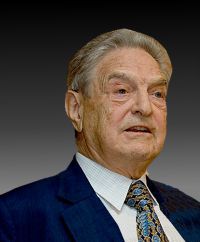  Emmanuel Macron Emmanuel Macron
L'Union Européen
la mondialisation et Georges Soros …
La présidentielle 2017 en France
le Candidat Macron
|
Je vais essayer de démontrer les liens entre la Très Haute Finance Internationale et les élections présidentielles 2017 en France , démonstration à laquelle la plupart d'entre vous ne s'attendent probablement pas !
|
|
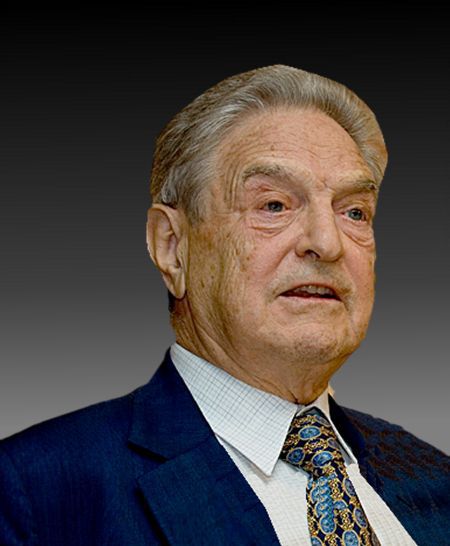 Qui ne connaît pas Georges SOROS ? Qui ne connaît pas Georges SOROS ?
Georges SOROS, qui vient de faire parler de lui à la faveur de l’élection de Donald TRUMP est un financier américain riche de 20 milliards de $ en 2012 (combien aujourd'hui , je ne sais pas, mais cela ne peut qu'avoir augmenté ???) .
Georges SOROS a utilisé sa fortune personnelle pour développer des activités philanthropiques (??) dont le but affiché est le développement de sociétés démocratiques … ouvertes...,... la légalisation de la marijuana et du cannabis et autres théories libertaires.
Il est à l'origine des Hedges Funds qui depuis des années font trembler la planète. Il a « fait sauter » la Banque d'Angleterre en 1992 (mercredi noir) en pariant sur la baisse de la livre. Il a été condamné pour délit d'initié dans l'affaire de la Société Générale qui avait vu le gouvernement socialiste de la fin des années 1980 fermer les yeux sur une tentative d'OPA avec Georges Pebereau et Robert Lyon , président de la Caisse des Dépôts et Consignations
(et précédemment patron des HLM de France) …tous deux , socialistes convaincus
Ses accusateurs d'aujourd'hui , l'accusent de spéculer contre l'euro...
Bref ! Georges SOROS est un milliardaire qui du haut de sa tour de milliardaire (comme Trump, il est propriétaire d'un building à New York, qu'il habite dans les étages supérieurs) est un agitateur politique et économique qui joue avec la vie des gens.. Comment concrètement ?
Récemment l'agence Frontex a été obligée de reconnaître que SOROS et ses ONG , favoriseraient le trafic de migrants , en cofinançant les équipages des bateaux …
De ce fait, Soros se comporterait comme un trafiquant d'êtres humains !! .
Il est au demeurant , l'homme de Rothschild , qui encourage ladite immigration , « l'un des 7 piliers de la sagesse mondialiste »... Parallèlement , en ce moment, il conseille à l’UE. d'emprunter 30 milliards d'€ pour financer l'immigration de masse, une immigration saluée comme chacun sait , par Angela Merkel et par ….Emmanuel Macron, qui la jugent necessaire Il est évident que pour Soros, le Brexit est une catastrophe. !!.
Le Frexit , la sortie de l'euro, la reforme de la BCE ou la renégociation des traites européens dans un sens plus respectueux des peuples et des nations qui les representent , l'inquietent au plus haut point !! Or, pourtant , c'est ce que 9 candidats sur 11 ont développé le 4 avril 2017, lors du débat électoral sur BFM/TV ..
 C'est dire que l'issue des élections présidentielles en France le préoccupe beaucoup, au point de s'en être mêlé, depuis plusieurs mois … C'est dire que l'issue des élections présidentielles en France le préoccupe beaucoup, au point de s'en être mêlé, depuis plusieurs mois …
Macron serait un homme de SOROS .. ???
Un nombre de plus en plus important d'entre nous pensent en effet que c'est de plus en plus vraisemblable et les soupçons sont de plus en plus étayés.
De fait, Macron qui est passé chez Rothschild , est aujourd'hui la vedette de la présidentielle, favorable à la mondialisation et à la société ouverte si chère à Georges Soros.
Cette même société ouverte est défendue par les associations philanthropiques soutenues par Georges Soros , elles mêmes rassemblées dans une OPEN SOCIETY , appelée « in march » …ce n'est pas un hasard. Or, « En marche » est le nom du parti politique crée l'année dernière par Emmanuel MACRON , candidat annoncé aux elections presidentielles 2017. .
C'est en tout cas ce que démontre François ASSELINEAU, une des révélations de cette présidentielle (un des petits ?? candidats )…. suite au débat du 4 avril 2017. Emmanuel Macron est soutenu par Georges Soros selon lui …
François ASSELINEAU n'a eu de cesse en effet ce soir là de dénoncer les violations récurrentes des traités depuis 2003 pour favoriser l'adaptation de l'Europe aux règles du mondialisme voulu par Georges SOROS et ses amis , et ceci en contradiction avec la volonté des peuples (exprimée par le Non au referendum de 2005 en France par exemple …)
Dans ce contexte, il ne faut pas s'étonner de la montée des théories souverainistes!
En Europe, Viktor Orban, premier ministre hongrois , qui persiste à résister à la vague de migrants qui s'est présentée aux frontières de la Hongrie, l'année dernière, s'oppose lui aussi aux visées de SOROS .
Les ONG humanitaires , en partie financées par Georges Soros , sont dans le collimateur du premier ministre hongrois. Sourd au protestation de la rue, la majorité du parlement hongrois qui le soutient vient en effet de voter il y a quelques jours la fermeture de l'Université d'Europe Centrale financée.... par Georges SOROS et installée il y a 25 ans pour accueillir ...les étrangers.
Le personnage d'Emmanuel Macron inquiète de plus en plus de Français … il est possible, au vu de cette de cette démonstration que ce soit justifié. A vous de juger, chers lecteurs !
|
| Clara Mitchell pour DayNewsWorld |
 |
There are no translations available.
UN FRANCOIS FILLON PLUS QUE JAMAIS
COMBATIF DANS UNE DEMONSTRATION DE FORCE
|
Avec Macron, « c’est le hollandisme qui se continuera dans son jeune héritier, rallié chaque jour par ceux qui espèrent se survivre à l’abri des combinaisons nouvelles", a-t-il affirmé»
|
"J’ai vu qu’Emmanuel Macron se présentait comme le candidat de l’alternance profonde. Voilà bien une pensée de sous-marin", a ajouté M. Fillon,
"Je ne vous demande pas de m'aimer, je vous demande de me soutenir, parce qu'il y va de l'intérêt de la France. Il ne s’agit pas de choisir un copain. Il s’agit de choisir un président, et, à travers lui, le destin que nous voulons ouvrir à la France", a fait valoir M. Fillon.
|
|
|
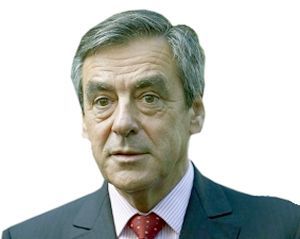 Devant la plupart des ténors de la droite, plus de 25.000 personnes selon les organisateurs, Francois Fillon a montré qu'il n'avait en rien perdu sa détermination à conduire les Français à "l'alternance", pour "faire de la France la première puissance européenne en dix ans". Devant la plupart des ténors de la droite, plus de 25.000 personnes selon les organisateurs, Francois Fillon a montré qu'il n'avait en rien perdu sa détermination à conduire les Français à "l'alternance", pour "faire de la France la première puissance européenne en dix ans".
Auparavant une bonne dizaine de parlementaires et de soutiens ont chauffé la salle défilant à la tribune. Bien sûr ils ont vanter les mérites de leur candidat mais à cœur joie ont étrillé l'ennemi Macron. Et chacun y est allé de son petit tacle.
"C'est Macron, l'héritier de François Hollande", a par exemple lancé François Baroin, devant 25.000 personnes en liesse. Selon ce dernier, Emmanuel Macron "doit tout' au président de la République.
A la présidente de la région Île-de-France, Valérie Pécresse, de donner de la voix. "Désormais, les masques sont tombés: le candidat du 'ni droite ni gauche', le candidat de l'extrême flou, a montré son vrai visage: Emmanuel Macron, c'est Hollande saison 2", s'est-elle exclamée.
« Vous avez aimé la synthèse molle de Hollande? vous adorerez l'eau tiède de Macron », a surenchéri Luc Chatel.
Aucun doute Emmanuel Macron est un catalyseur mobilisateur très efficace chez François Fillon.
François Fillon, a promis de "tout donner" pour faire mentir les sondages qui le donnent tous éliminé au premier tour, dimanche lors d'un grand rassemblement à Paris.A son tour lui aussi de se déchaîner contre Emmanuel Macron, "jeune héritier" du hollandisme.
François Fillon fragilisé par une mise en examen et les derniers sondages qui l’empêcheraient d’être au second tour ? Il est là plus combatif que jamais dans la stature d'un président. Dansson discours le candidat de droite a dit sentir monter une « force » qui va « stupéfier les prétendus faiseurs d’opinion ». Ces sondages truqués le placent pour la première fois ce dimanche au coude à coude Jean-Luc Mélenchon – Celui de La France insoumise « se rêve en capitaine du cuirassé Potemkine mais négociera la ferraille du Titanic » a-t-il ironisé.
D'ailleurs les électeurs ne sont-ils pas de vraies girouettes changeant de candidat selon leur prestation télévisuelle avec leur hotte remplie de cadeaux illusoires. Voilà d'un seul coup Melenchon propulsé à 19% par la magie d'un débat et de sondages. Allons un peu de sérieux ! Que les indécis vote pour redresser le pays et non pour le saigner un peu plus « Cinq ans de marche arrière, la France de Macron, c’est la France de maintenant. » L’ancien ministre de François Hollande, qualifié de « jeune politicien » et d’« imposteur », a été critiqué sur la culture. « Je ne ferai pas comme Emmanuel Macron. Je ne porterai pas en terre le cercueil de la culture française », a lancé François Fillon à ses fidèles.
C'est que l'heure est grave et . le monde de plus en plus incertain.
François Fillon a déclaré voir « avec effroi poindre les nuages noirs de la guerre ». Après une attaque chimique sur une ville rebelle syrienne le 4 avril, puis le bombardement décidé par le président américain Donald Trump, François Fillon a prévenu : « la responsabilité de la France, c’est d’abord de faire respecter le droit international et de défendre par tous les moyens la paix mondiale dont nous sentons qu’elle est chaque jour un peu plus fragile. Je ne me résoudrai jamais au retour d’une guerre froide entre les deux plus grands arsenaux nucléaires du monde ». « Président de la République, je ne ménagerai pas mes efforts pour la paix car je vois avec effroi poindre les nuages noirs de la guerre », a-t-il martelé. « Il est plus que temps d’avoir à la tête de la France un gaulliste », a-t-il encore souligné;
La culture française n'existerait pas à écouter le jeun loup Macron. « Je ne ferai pas comme Emmanuel Macron. Je ne porterai pas en terre le cercueil de la culture française », a lancé en réponse François Fillon ;
"Mon projet est fondé sur le bon sens, il est là pour propulser la France en tête!", s'est-il exclamé, devant une marée de drapeaux tricolores.
|
|
| Paul Emison pour DayNewsWorld |
 |
There are no translations available.
UN MACRON PRET A TOUT POUR GAGNER LES SUFFRAGES DE LA COMMUNAUTE ASIATIQUE?
|
|
 Emmanuel Macron a reçu vendredi à son QG de campagne,la famille de Shaoyao Liu, le Chinois tué par la police il y a une semaine. Emmanuel Macron a reçu vendredi à son QG de campagne,la famille de Shaoyao Liu, le Chinois tué par la police il y a une semaine.
Mais petit souci : lors de cette rencontre y figurait un homme présenté par la DGSI comme un agent de Pékin, d'après les informations du Parisien.
Les journalistes ont eu connaissance de cet entretien à huis-clos grâce à un cliché de la rencontre de journalistes chinois présents dans la délégation.
Dans l'entourage du candidat d'En Marche on aurait indiqué être "au courant" tout en assumant la démarche. .
Jacques Sun dément les soupçons de la DGSI qui pense que Pékin ne serait pas pour rien dans les manifestations parisiennes de la communauté asiatique après la mort de Shaoyao Liu.
De bonne guerre Jacques Sun présidant le CRAAF (Conseil représentatif des associations asiatiques de France) dément fermement les allégations de la DGSI, assurant n'être là que "pour venir en aide à une famille très choquée".
Macron prêt à tout pour gagner les suffrages de cette communauté ?
|
|
| Larry Ricky pour DayNewsWorld |
 |
There are no translations available.
Emmanuel MACRON
Billet d'Humeur / Billet D'Humour !!!
|
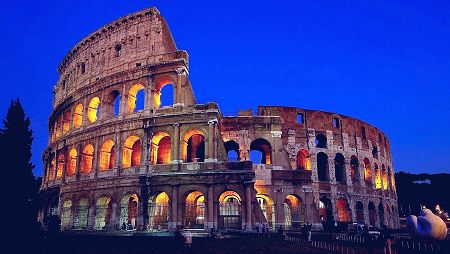 Tout d'abord, un peu d'Histoire (réduite à peau de chagrin dans les derniers programmes scolaires imposés par Najat Vallaud Belkacem !! et soutien pour la Présidentielle 2017 de Benoit Hamon) Tout d'abord, un peu d'Histoire (réduite à peau de chagrin dans les derniers programmes scolaires imposés par Najat Vallaud Belkacem !! et soutien pour la Présidentielle 2017 de Benoit Hamon)
Un certain MACRON (de son vrai nom Quintus Naevius Cordus Sutorius Macro), choisi par l'Empereur TIBERE pour être nommé préfet du Prétoire au Ier siècle après Jésus Christ, tyrannisa le Sénat après être devenu empereur et transforma Rome en écuries d'Augias ...
Il serait par ailleurs.... l'assassin de l'empereur qui lui avait fait confiance ... Les preuves de cet assassinat ne sont, néanmoins, pas formelles ....mais !!??
Comparaison n'est pas raison comme chacun sait ...
La comparaison est au demeurant tentante...entre ces deux visages de l'histoire, d'une part le visage de MACRON Préfet à Rome et d'autre part Emmanuel MACRON ,hologramme de François Hollande, poupée marionnette/faux nez de ce dernier mais qui tel Pinocchio pourrait avoir envie de vivre sa vie ... autrement que par procuration au bout de quelques ficelles de marionnettiste (rappelez- vous quand même à ce stade, que dans la série de noms du vrai Macron Romain figure Neavius (nerf de boeuf) Cordus (corde)..
|
|
|
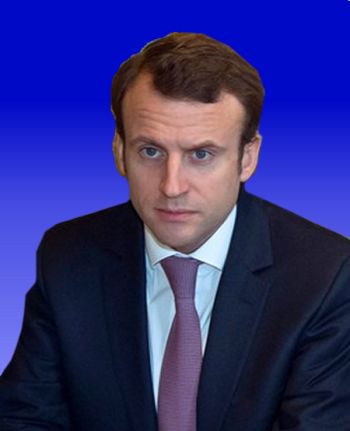 Emmanuel MACRON, candidat 2017.... Rapatout.. à la présidence de la République: pour certains, sa candidature apparait en effet comme un acte de libérations par rapport aux anciens dogmes et aux anciens clivages politiques Emmanuel MACRON, candidat 2017.... Rapatout.. à la présidence de la République: pour certains, sa candidature apparait en effet comme un acte de libérations par rapport aux anciens dogmes et aux anciens clivages politiques
.Avec son air angélique, les mêmes voient en lui le visage de l'Emmanuel Biblique et Christique , celui qui paré des vertus de l'Esprit Saint serait le sauveur de son peuple !!
Tel un pasteur évangélique..il nous annoncerait des jours meilleurs pour son prochain (??) quinquennat, dont il assure avoir préparer sereinement, doctement et patiemment tous les ingrédients grâces à ses analyses multiformes et multi-cibles...y compris l'inévitable numérique..
Mais s'il n'était pas l'Emmanuel annonciateur des jours heureux ??
S'il n'était que le M.A.C.R.O.N (grrr !!!) romain dissimulateur, manipulateur, menteur, hypocrite, ambitieux, traitre, malfaisant, insuffisant, sans expérience, joueur, acteur ... et pour finir assassin , prêt à mettre notre pays, la France dans une situation inextricable (un grand bordel ) qui lui fera perdre la voix de référence internationale qu'elle est encore.
Après avoir tiré lui même toutes les ficelles ... et opposé pour finir les uns autres.... après avoir fait semblant au début de les rassembler, il pourrait mettre brutalement ... voire sanguinairement..
Fin à un épisode qui au départ avait fait rêver...
Le rêve se terminera alors en cauchemar, la France ayant été livrée, tels les bourgeois de Calais, la corde au cou, aux spéculateurs et à la tyrannie de la Haute Finance Internationale, dont il connait tous les codes, grâce a son passage, éphémère certes, chez Rothschild.
Mais, l'Histoire devrait nous servir de leçon à tous, car comme chacun sait, on ne peut bien préparer son avenir qu'en connaissant bien son passé
Restons optimiste en effet, car "At the End", Macron, préfet romain, fut éliminé, comme beaucoup d'autres, par ceux là même qui l'avait fait empereur, vizir à la place du vizir..
En attendant, ne nous laissons pas séduire par les envolées lyriques et creuses du candidat Emmanuel Macron, aujourd'hui à Marseille demain...je l'espère, ailleurs, qu’à l'Elysée.
|
|
| Clara Mitchell pour DayNewsWorld |
 |
There are no translations available.
SCANDALE !!!!
CABINET NOIR !!
|
|
 Le Scandale Cabinet Noir remonte à Richelieu, il s’agit des services chargés d'espionner voire de nuire et même d’éliminer par tous les moyens les adversaires du pouvoir en place. Le Scandale Cabinet Noir remonte à Richelieu, il s’agit des services chargés d'espionner voire de nuire et même d’éliminer par tous les moyens les adversaires du pouvoir en place.
Ce type d'organisation a toujours existé jusqu’ à nos jours sous des formes diverses.
Pour exemple : le cabinet occulte de Georges Pompidou, de François Mitterrand, pour protéger sa maîtresse et sa fille, logées aux frais du contribuable !
«Cabinet noir», assassinat politique voire physique ?
Tout est possible et tout à déjà été vu !
|
|
|
|
 Ne soyons pas angéliques tous les présidents de la république ont leur cabinet noir, certains en ont plus abusé que d'autres et François Hollande ne déroge pas à la règle ! Ne soyons pas angéliques tous les présidents de la république ont leur cabinet noir, certains en ont plus abusé que d'autres et François Hollande ne déroge pas à la règle !
Pourtant dans l'affaire François Fillon on est dans le jamais vu !
En effet il est d’évidence que les questions d'emplois fictifs etc... auraient pu se déclencher de nombreux mois avant le début de la campagne !
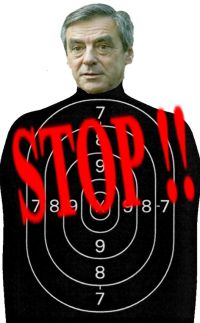
Il est donc clair qu'il s'agit bien d'un vilain coup bas pour « pourrir la campagne électorale » ce qui pousse légitimement à penser que cette affaire est creuse et n'a d'autre but que de nuire à la campagne du candidat de la droite et du centre.
Toute personne honnête intellectuellement ne peut que reconnaître le courage de François Fillon qui fait une campagne dans des conditions infernales !
Si les Français sont raisonnables ils choisiront le courage d'un homme et son programme de qualité et François Fillon a les deux !
Quand au « cabinet noir » pour que cela s’arrête de nombreuses réformes et mesures seront à prendre pour que l'on puisse mettre fin à de telles pratiques qui sont de plus renforcées grâce aux nouvelles technologies.
En effet le « Big Data », les écoutes numériques d'un monde de plus en plus numérique, construisent autour des E-mails, Sites Web, Téléphones portables GSM, des Téléphones fixes qui sont intégrés dans des réseaux numériques, des Réseaux sociaux qui sont en fait des égouts numériques ( soit- disant gratuits et qui rapportent des milliards de dollars à leurs propriétaires )qui sont tellement faciles à espionner qu'il y a de tout évidence un terrain propice au Cabinet Noir et à l'espionnage de tous !!!
|
|
|
| Paul Emison pour DayNewsWorld |
 |
There are no translations available.
LE SOUTIEN OFFICIEL DE VALS A EMMANUEL MACRON.
|
|
C'était attendu depuis plusieurs jours !!
Et ce matin sur BFMTV-RMC, l'ancien Premier ministre a officialisé son soutien. «Non», a-t-il répondu, il ne votera pas pour Benoît Hamon. «Je voterai pour Emmanuel Macron», a-t-il assuré.
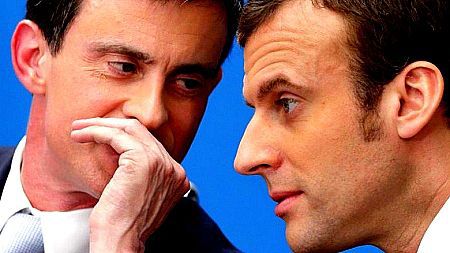 Ce n'est une surprise pour personne : Valls vient d'annoncer sur BFM qu'il soutenait Emmanuel Macron malgré son engagement lors de la primaire socialiste à soutenir le vainqueur. Un traître de plus selon les soutiens de Benoît Hamon. Décidément cette campagne présidentielle bien offre des rebondissements . Ce n'est une surprise pour personne : Valls vient d'annoncer sur BFM qu'il soutenait Emmanuel Macron malgré son engagement lors de la primaire socialiste à soutenir le vainqueur. Un traître de plus selon les soutiens de Benoît Hamon. Décidément cette campagne présidentielle bien offre des rebondissements .
Traître Manuel Valls ? Non :«Je ne veux prendre aucun risque pour la République»,s'est justifié Manuel Valls . Il prendrait simplement ses responsabilités face au « danger du populisme, de l'extrême droite, du Front national». « Je suis convaincu que le FN est beaucoup plus haut que ce que nous en disent les sondages. » a ensuite affirmé Manuel Valls .
Loin d'être un « un ralliement», cette prise de position souligne tout simplement qu'il vote utile.L'intérêt du pays va au delà des règles» et c’est la raison qu'il invoque admettant tout de même qu'il ne se reconnaît pas dans le programme de Benoît Hamon. L'ancien Premier ministre a par ailleurs reconnu « beaucoup de points communs » avec Emmanuel Macron.
Invité sur d'Europe 1, Emmanuel Macron n'a pas manqué de «remercier ».Valls. «Je pense que ça traduit ce que j'avais indiqué il y a plusieurs mois, c'est-à-dire que les primaires n'étaient pas en situation de regrouper l'ensemble de la gauche, et cela traduit le fait que les sociaux-démocrates et les femmes et les hommes de gauche responsables sont prêts à s'inscrire dans une démarche qui est la mienne», a-t-il ainsi justifié le « choix de raison » de l'ancien Premier Ministre.
.Mais pour un candidat qui ne parle que de « renouvellement »ne trouve-t-il pas encombrant ces ralliements de vieux caciques du PS ?
|
|
| Joanne Courbet pour DayNewsWorld |
 |
There are no translations available.
Drôle de débat politique!!!
|
|
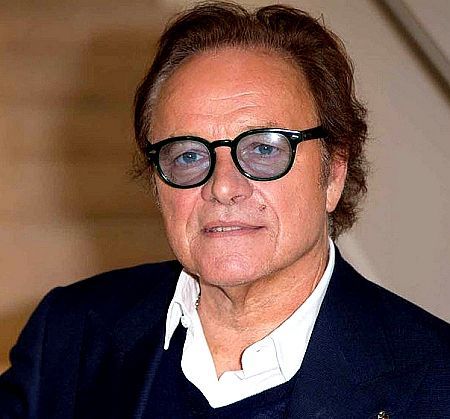
Tout le monde en parle:
Guillaume Durand se fait traiter de con en direct dans son émission matinale sur Radio Classique.
En effet le célèbre avocat Gilbert Collard lui rétorque par deux fois je vous prends pour un con.
Guillaume Durand lui a répondu cela ne me dérange pas du tout et avec son professionnalisme il a continué l'interview.
On se demande bien où vont nous conduire ces présidentielles!
|
|
| Mia Kennedy pour DayNewsWorld |
 |
There are no translations available.
BREXIT: DE RUDES NEGOCIATIONS S'ANNONCENT ENTRE LA GRANDE-BRETAGNE ET L'UNION EUROPEENNE .
|
|
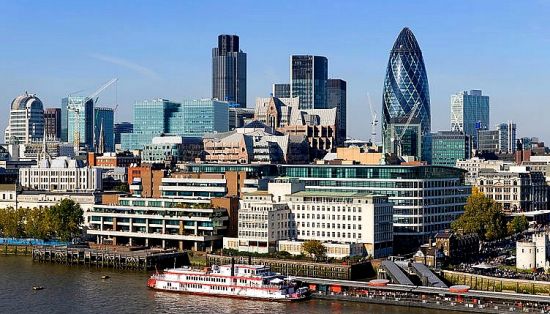 Ce mercredi 29 mars, le Royaume-Uni a déclenché officiellement l’article 50 du traité de Lisbonne, notifiant sa volonté de sortir de l’UE. C'est parti pour deux ans de négociations au couteau. Un délai très court pour de telles négociations. Ce mercredi 29 mars, le Royaume-Uni a déclenché officiellement l’article 50 du traité de Lisbonne, notifiant sa volonté de sortir de l’UE. C'est parti pour deux ans de négociations au couteau. Un délai très court pour de telles négociations.
La Première ministre britannique s’est adressée au Parlement de Westminster pour préciser l’orientation qu’elle souhaite donner au Brexit. "C'est un moment historique, sans retour en arrière", a-t-elle déclaré. "Regardons vers l'avenir avec optimisme et espoir."
"Je veux que le Royaume-Uni profite de cette opportunité pour devenir plus fort, plus juste et plus uni", a-t-elle annoncé en promettant d'avoir comme priorité le sort des citoyens.
De leur coté les 27 dirigeants des Etats membres de l'Union européenne ont rédigé un communiqué précisant que cette dernière «agira de manière unie et préservera ses intérêts» dans la procédure de négociations tout en regrettant que le Royaume-Uni quitte l'UE.
Mais «Nous ne devons pas oublier que le Royaume-Uni reste un partenaire dans l'Otan et en Europe. Il s'agira toujours de surmonter des défis ensemble», a déclaré,lucide, un porte-parole de la chancelière Angela Merkel, Ulrike Demmer seulement quelques minutes après que Londres a enclenché le processus de divorce.
Mais les discussions s’annoncent très difficiles.
Comment détricoter quarante-quatre ans de législations imbriquées les unes dans les autres depuis que le Royaume-Uni a rejoint la Communauté économique européenne, en 1973 ?
Les dossiers ne vont pas manquer (liaisons aériennes, transport des déchets nucléaires, finance, entre autre) et les Britanniques ,fin négociateurs, vont savoir jouer sur les désaccords entre les 27 pays.
Theresa May ne veut certes plus de la libre circulation, dont certaines dispositions figurent dans les accords avec la Suisse et la Norvège... mais ne veut pas non plus devenir une sorte d’Etat américain offshore.
|
|
| Joanne Courbet pour DayNewsWorld |
 |
There are no translations available.
LES GAFFES D'EMMANUEL MACRON :
UNE GEOGRAPHIE RIEN MOINS
QU'APPROXIMATIVE DE LA FRANCE !
|
|
A quelques heures du début d'une grève générale en Guyane, lundi 27 mars, Emmanuel Macron a commenté la situation. Une seule chose a été retenue : son erreur. quelques heures du début d'une grève générale en Guyane, lundi 27 mars, Emmanuel Macron a commenté la situation. Une seule chose a été retenue : son erreur.
En effet, le candidat d'En marche ! a parlé d'une "île' pour le département français.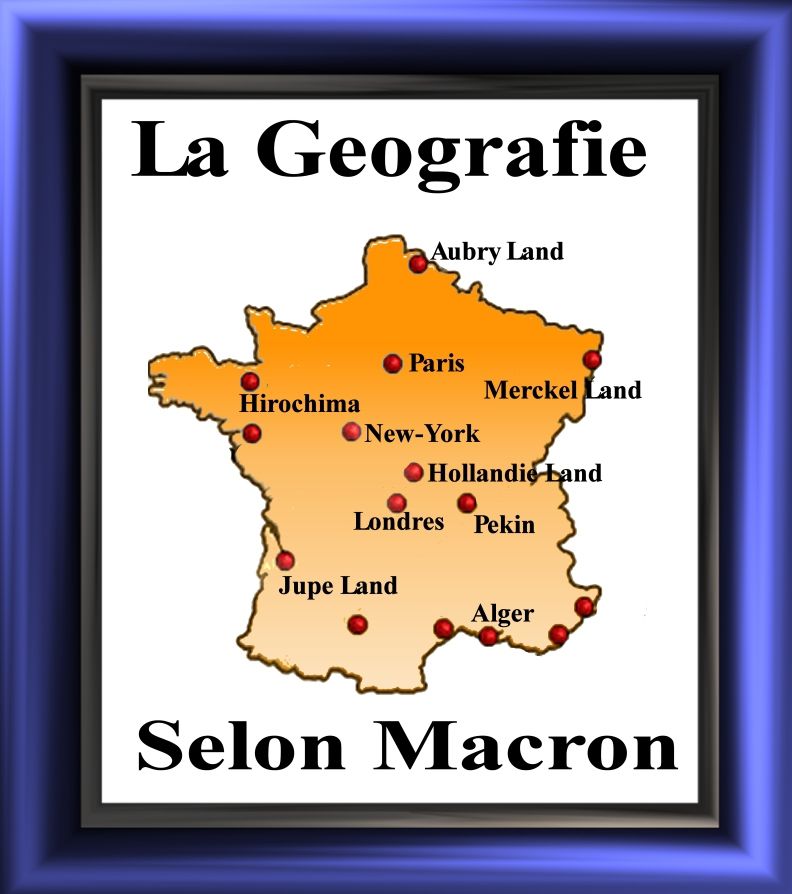
Ce n'est pas la première fois que l'ancien ministre de l'économie s'illustre avec une géographie plus qu'approximative.
Or la Guyane, n'est que la deuxième plus grande région de France avec une superficie de plus de 80 000 km2, partageant plus de 1 20O km de frontières avec le Brésil et le Surinam en Amérique latine.
En décembre, Emmanuel Macron partageant sur Twitter un selfie posant avec un lycéen.
« Avec Mathias, lycéen à Bourg-en-Bresse. Il rejoint sa mère expatriée en Guadeloupe pour Noël », est-il écrit.
Depuis quand les Antilles ne font-elles plus partie de la France ?
Autre erreur de géographie :
dans Révolution, le livre du candidat d'En marche !
On apprend que Villeurbanne se trouve en région lilloise...
Il est temps pour le jeune loup de revoir sa géographie de la France.
Un des fondamentaux de l'école primaire, Monsieur l'ex-ministre de l'Economie !
|
|
| Britney Delsay pour DayNewsWorld |
 |
There are no translations available.
LA GUYANE S'INVITE DANS LA PRESIDENTIELLE
|
|
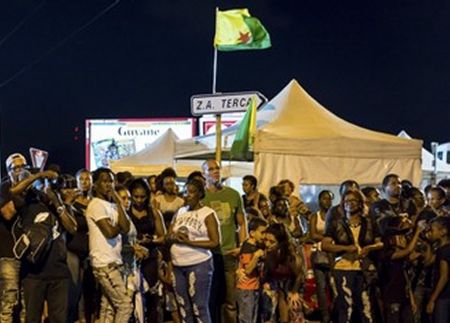 Les 37 syndicats réunis au sein de l'Union des travailleurs guyanais (UTG) - une organisation syndicale proche de la CGT défendant plutôt les thèses indépendantistes de la Guyane - ont voté samedi à la quasi-unanimité « la grève générale illimitée » à compter de lundi sur ce territoire ultramarin d’Amérique du sud ; Les 37 syndicats réunis au sein de l'Union des travailleurs guyanais (UTG) - une organisation syndicale proche de la CGT défendant plutôt les thèses indépendantistes de la Guyane - ont voté samedi à la quasi-unanimité « la grève générale illimitée » à compter de lundi sur ce territoire ultramarin d’Amérique du sud ;
Des groupes très disparates nés en quelques jours réunissent également leurs forces sous la bannière du « collectif pou la Gwiyann Dekolé » (« pour que la Guyane décolle », en créole guyanais).
Outre les syndicats, des collectifs citoyens tels que les “500 frères”, sont en tête de la contestation soutenue par la classe politique .
Ce mouvement de grogne sociale d'une grande ampleur a de lourdes conséquences.
Cela fait plusieurs jours que tous les secteurs de l'économie de la Guyane sont paralysés par un vaste mouvement social : établissements publics et nombreux commerces fermés, trafic aérien perturbé.
La fusée Ariane , vitrine économique du territoire, a dû retarder son lancement lundi dernier : en cause un barrage à l'entrée du Centre spatial guyanais à Kourou et une grève au sein de la société Endel .Depuis jeudi, des barrages routiers filtrants sont installés et ont gravement ralenti toute activité économique, sur ce territoire de plus de 250 000 habitants.
Malgré la venue d'une mission interministérielle dès ce week-end à Cayenne la tension n’est pas pour autant retombée. 13 des 22 maires de Guyane réclament « la venue des ministres et refusent de rencontrer la mission interministérielle » à laquelle ils ne donnent aucune légitimité. La ministre des Outre-mer, Ericka Bareigts, leur a remis leur lettre de mission demandant « un cahier des charges ».
«Je suis aussi très attaché à ce qu'en Guyane, comme partout ailleurs sur le territoire national, ce soit le respect et la concertation qui prévalent sur toutes les formes de violences», a déclaré Bernard Cazeneuve pour soutenir sa ministre.
Syndicats et mécontents, soutenus par la population et les élus locaux, ont donc appelé à la grève générale ce lundi pour réclamer un plan d'investissement massif.
Les raisons de cette contestation sont multiples .
Tous en appellent à « un plan Marshall » , en d'autre termes au Pacte pour l'Avenir de la Guyane, promis par François Hollande en 2013.
Ils réclament de l’État des mesures énergiques contre l’immigration clandestine et la délinquance, l’insécurité endémique dans le territoire français comptant le plus d’homicides dans le département
Viennent s'ajouter les questions de développement économique et d’emploi, de santé et d’éducation, l’insuffisance d’offres de soins également.De plus des catégories professionnelles sont inquiets à propos de leur avenir : les agriculteurs reprochent les lenteurs administratives et des refus d'aide, les transporteurs s'inquiètent de la répartition des marchés du chantier du futur pas de tir d'Ariane 6, les Amérindiens se mobilisent contre le «vol» de leur terre et un projet d'extraction aurifère, ainsi que les associations de lutte contre l'orpaillage...
Car le constat est unanime.
Ce département français, de 200.000 habitants, souffre depuis de nombreuses années. En 2015, le taux de chômage était évalué à 22%, soit 18.000 personnes «au sens du Bureau international du travail (BIT)» touchant surtout les 15-24 ans, qui représentent 46% des chômeurs. La Guyane est également l'un des territoires français les plus touchés par la criminalité.
En 2015, 38 personnes ont été assassinées, pas moins de 42 en 2016. En 2016 3 vols pour 1000 habitants étaient recensés par le Ministère de l'Intérieur, «soit 13 fois plus que dans l'Hexagone».
Il apparaît clairement qu'une telle situation ne peut perdurer.
Certes le maintien du centre médical de Kourou, l'expérimentation d'un scanner à l'aéroport «pour le contrôle du trafic de drogue», l'envoi de troupes supplémentaires pour le renforcement de la sécurité ont été proposés par la Métropole Mais ce saupoudrage de mesurettes s'avère bien insuffisant pour les Guyanais .
À moins d’un mois du premier tour de la présidentielle, les candidats s'emparent du conflit.
Pour François Baroin, soutien de François Fillon et ancien ministre de l’Outre-Mer, qui considère que le gouvernement les traite « par le mépris »en envoyant une mission .
Marine Le Pen (FN) fustige le « service cruellement minimum » des gouvernements successifs vis-à-vis de la Guyane, Nicolas Dupont-Aignan (Debout La France) s’interroge sur« la démission de l’État »
Face à ces attaques, le gouvernement a dénoncé « l’instrumentalisation à des fins électoralistes » de la « crise sociale » en Guyane par « certains candidats à l’élection présidentielle ou leur porte-parole »
|
|
| Joanne Courbet pour DayNewsWorld |
 |
There are no translations available.
QUAND FRANCOIS FILLON SE DECLARE
" PROBABLEMENT SUR ECOUTE "
|
|
 e candidat est prêt à en découdre avec ses détracteurs après son annonce jeudi soir d'un «cabinet noir ». e candidat est prêt à en découdre avec ses détracteurs après son annonce jeudi soir d'un «cabinet noir ».
Le calendrier de sa mise en examen, à la veille de la présidentielle, ne peut pas être selon lui le fruit du hasard.
Et maintenant il estime même qu'il pourrait être surveillé par l'Elysée.
«On est dans une situation où il est probable que compte tenu des procédures judiciaires je sois sur écoute quand j'apprends que le Président se fait remonter les résultats des écoutes judiciaires à l'Elysée. (...)
Cela veut dire que le président de la République peut potentiellement écouter un candidat à l'élection présidentielle. Mais attendez, on est dans quelle démocratie là?»,a-t-il glissé à des journalistes.
Sa mise en examen pour détournement de fonds publics, recel et complicité d'abus de biens sociaux, pourrait bien lui servir pour étayer ses propos. Être sur écoute n' avait-il pas déjà été pratiqué par la justice pour le Président actuel des Républicains dans une mise en examen classée sans suite ?
François Fillon contre-attaque en allant donc plus loin. Le chef de l’Etat serait, selon lui, à l’origine des fuites dans la presse sur ses affaires judiciaires puisque nous sommes en pleine campagne électorale.
"Quand j'apprends que le président de la République se fait remonter les résultats des écoutes judiciaires, ça veut dire qu'il peut potentiellement écouter un candidat à la présidentielle, qu'on est dans une situation où il est probable que je sois sur écoute", a accusé François Fillon.
Le candidat se sent boosté dans l'adversité:. "Plus on m'attaque, plus je suis en forme"
"Nous sommes en train d'identifier toutes les infractions qui sont mentionnées dans le livre Bienvenue Place Beauvau et, dans les jours qui viennent, nous rendrons publiques la liste de ces infractions et on demandera qu'une enquête soit ouverte", a-t-il prévenu en pensant à l'altercation avec Christine Angot sur France 2. "Madame Angot, elle m'a fait du bien. Je savais avant qu'elle arrivait. Je ne devrais pas le dire. J'ai mes services de renseignement", dit-il en souriant.
L'ancien Premier Ministre rend coup pour coup. Le candidat voyant un reporter essayer de faire un peu plus propre la table non débarrassée après le repas lance :. «Ce n'est pas la peine, je suis un homme du peuple», taclant ainsi David Pujadas qui lui avait demandé s'il était « un homme d'argent?»
Car le candidat même pendant le repas avec les agriculteurs du Pays-Basque n'a visiblement pas oublié l'émission de France 2
«C'est du jamais vu! Du début à la fin, ce sont des interlocuteurs à charge. On a atteint un sommet de la caricature», indique-t-il. «Ça me profite. Ça provoque chez les Français un réflexe démocratique. », surenchérit-il. Pour le candidat aucun doute qu'il devancera Emmanuel Macron au premier tour.
«Je vais gagner cette élection en partie grâce à vous. Une partie de la presse a décidé d'une scénarisation et ne veut pas en sortir. Mais une grande partie des Français veut l'alternance, qui ne peut pas être Emmanuel Macron.» . Pas tendre avec la presse qu'il juge trop clémente avec le leader D'En Marche, il ne ménage pas non plus son rival du premier tour :
«Vous avez un candidat à la présidentielle qui a gagné 3,5 millions et qui a déclaré 350.000 euros de patrimoine. Et ça ne vous pose aucun problème», interroge-t-il.
Il ne nie pas qu'est né «un mouvement de fond pour Emmanuel Macron comme il y avait un mouvement de fond pour Alain Juppé » mais juge qu'avec tous ces ralliements venant du gouvernement son « programme se socialise »,qu' «il va finir par être le candidat des socialistes» et ironise même :« Sur tous les sujets c'est une stratégie qui consiste à faire plaisir à tout le monde».
François Fillon reconnaît par contre que «l'avalanche de polémiques et d'affaires» le déstabilise au profit du FN mais il ne croit pas Marine Le Pen «en mesure de gagner l'élection présidentielle» .
Pour lui le pays aspire à l'alternance .Et «Personne n'a envie de continuer avec François Hollande et ses amis», continue-t-il de marteler.
A trente jours du premier tour, François Fillon se veut plus «en forme» que jamais. «Je ne redoute rien du tout»,assène François Fillon.
|
|
| Joanne Courbet pour DayNewsWorld |
 |
There are no translations available.
TENSION ENTRE LA MALAISIE ET LA COREE DU NORD DEPUIS L'ASSASSINAT DE KIM JONG-NAM , DEMI-FRERE DU DIRIGEANT NORD-COREEN.
|
"La Corée du Nord a adressé une demande pour la restitution du corps, mais avant de le remettre, nous avons besoin d'identifier le corps"ont déclaré les autorités malaisiennes.
|
|
|
 Des policiers continuent de monter la garde devant l'entrée du bâtiment de médecine légale de l'hôpital de Kuala Lumpur en Malaisie où se trouve a la morgue le corps du défunt Kim Jong-Nam assassiné à l'aéroport. Des policiers continuent de monter la garde devant l'entrée du bâtiment de médecine légale de l'hôpital de Kuala Lumpur en Malaisie où se trouve a la morgue le corps du défunt Kim Jong-Nam assassiné à l'aéroport.
Kim Jong-Nam, 45 ans, avait été attaqué en début de semaine par deux femmes qui lui auraient jeté un liquide au visage à l'aéroport alors qu'il devait embarquer pour Macao.
L'homme s'était ensuite plaint de maux de tête hurlant de douleur avant de succomber pendant son transfert à l'hôpital.
Les investigations continuent en Malaisie et la police malaisienne a annoncé samedi l'arrestation d'un Nord-Coréen dans le cadre de l'enquête sur le meurtre du demi-frère du dirigeant nord-coréen Kim Jong-Un.
L'homme arrêté possédait des documents fournis aux travailleurs étrangers qui ont permis de l'identifier comme étant Ri Jong Chol, un Nord-Coréen de 46 ans, a précisé la police dans un communiqué.
Quatre personnes sont maintenant détenues dans le cadre de l'assassinat spectaculaire de Kim Jong-Nam, imputé par Séoul à des agents œuvrant pour la Corée du Nord. La police interrogeait déjà deux suspectes, l'une détentrice d'un passeport vietnamien, l'autre d'un passeport indonésien, ainsi que le petit ami de cette dernière, un Malaisien.
Les relations entre Pyongyang et Kuala Lumpur étaient jusqu'à maintenant cordiales puisque les visiteurs des deux pays sont exemptés de visa, ce qui est rare pour les ressortissants nord-coréens. Mais depuis l'assassinat du demi-frère du Président de la Corée du Nord et la volonté des autorités malaisiennes de pratiquer l'autopsie eux-mêmes les relations se tendent. Le corps du défunt est au centre d'une bataille entre Pyongyang et Kuala Lumpur.
En effet des experts malaisiens viennent d'effectuer des analyses d'échantillons du défunt, afin de déterminer la substance toxique qui a apparemment été aspergée sur son visage alors qu'il se trouvait à l'aéroport de Kuala Lumpur.
Et le ministre de la Santé a prévenu que cette analyse pourrait prendre jusqu'à deux semaines, et qu'aucune information ne serait communiquée "tant que nous n'aurons pas trouvé quelque chose de sûr". Kuala Lumpur a affirmé que le corps ne serait pas remis à Pyongyang tant que les procédures ne seraient pas achevées.
"Jusqu'ici, aucun membre de la famille ou proche n'est venu identifier ou réclamer le corps. Nous avons besoin d'échantillons ADN d'un membre de la famille pour établir le profil de la personne décédée", a déclaré à l'AFP Abdul Samah Mat, chef de la police de l'Etat de Selangor, où est situé l'aéroport.
La première réaction officielle nord-coréenne depuis l'assassinat vient de l'ambassadeur nord-coréen en poste en Malaisie qui a affirmé que son pays rejetterait de toute façon les résultats de l'autopsie dans la mesure où son pays n'y participait pas. Il n'a pas manqué d'annoncer qu'il avait "fermement" demandé la restitution du corps au chef de la police malaisienne mais que ce dernier avait refusé.
"Ils sont de mèche avec des forces qui nous sont hostiles",selon l'ambassade nord-coréenne. Cette dernière insinue ainsi qu'il s'agirait d'une tentative de la Corée du Sud pour porter atteinte à son voisin du nord.
|
|
|
|
| Joanne Courbet pour DayNewsWorld |
 |
There are no translations available.
FRANK-WALTER STEINMEIER : LE 12 EME PRESIDENT ELU DE L'ALLEMAGNE.
|
|
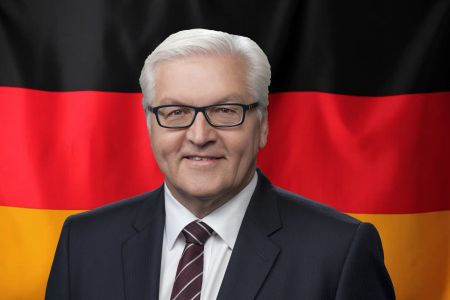 L’ancien ministre social-démocrate des affaires étrangères a été élu dès le premier tour Président de l'Allemagne, succédant à L Joachim Gauck officiellement le 18 mars. Ce résultat était attendu. En effet M. Steinmeier était non seulement le candidat de son parti, le SPD, mais aussi celui des conservateurs de la CDU/CSU. Il avait également le soutien des Verts et des libéraux-démocrates du FDP. Les seuls deux grands principaux partis politiques avait présenté leur candidat : Die Linke (gauche radicale) avec l’ancien professeur de science politique Christoph Butterwegge et Alternative pour l’Allemagne (extrême droite) avec le juriste Albrecht Glaser . C'est une victoire haut la main qu'il a remporté avec 931 voix parmi les 1260 grands électeurs chargés de désigner le président allemand. A l'âge de 61 ans, il accède donc à un poste surtout honorifique, qui lui donne une autorité morale sur le pays. L’ancien ministre social-démocrate des affaires étrangères a été élu dès le premier tour Président de l'Allemagne, succédant à L Joachim Gauck officiellement le 18 mars. Ce résultat était attendu. En effet M. Steinmeier était non seulement le candidat de son parti, le SPD, mais aussi celui des conservateurs de la CDU/CSU. Il avait également le soutien des Verts et des libéraux-démocrates du FDP. Les seuls deux grands principaux partis politiques avait présenté leur candidat : Die Linke (gauche radicale) avec l’ancien professeur de science politique Christoph Butterwegge et Alternative pour l’Allemagne (extrême droite) avec le juriste Albrecht Glaser . C'est une victoire haut la main qu'il a remporté avec 931 voix parmi les 1260 grands électeurs chargés de désigner le président allemand. A l'âge de 61 ans, il accède donc à un poste surtout honorifique, qui lui donne une autorité morale sur le pays.
Mais ce nouveau président entend bien user de son autorité morale.
En effet en tant qu'ancien ministre des Affaires étrangères social-démocrate au sein de la grande coalition dirigée depuis 2005 par Angela Merkel , il se donnait déjà comme mission de se battre contre la montée des populismes en Europe et avant tout en Allemagne où le mouvement nationaliste allemand AfD obtient des scores importants dans certains Lander. Ce fut également le cas jeudi 26 janvier 2016 à Paris quand le futur chef de l’Etat allemand fit son dernier déplacement en tant que ministre et reçut la Légion d’honneur par son homologue Jean-Marc Ayrault : « S’il vous plaît, ne cédez pas aux sirènes du populisme. » déclara M. Steinmeier devant son auditoire.
|
|
|
Un peu plus tard devant les élus de Bavière :
« Je voudrais être, en tant que président, comme un contrepoids aux simplificateurs sans limites. »
M. Steinmeier s' était permis également de qualifier Donald Trump, en août 2016, de « prêcheur de haine ».
|
|
|
Fils de charpentier, ancien homme de confiance du chancelier Gerhard Schröder, Frank-Walter Steinmeier est longtemps resté dans l'ombre . C'est lorsque Schröder, ministre-président de Basse-Saxe, succède à Helmut Kohl à la tête du gouvernement fédéral que le nouveau président devient numéro deux de la chancellerie.
Il œuvre pour le vaste programme de réformes entre 2003 et 2005 appelé l'Agenda 2000 qui a permis à l’Allemagne, considérée alors comme « l’homme malade de l’Europe », de devenir la première puissance économique du continent. Il occupa à deux reprises le poste de Ministre des Affaires étrangères. Cet homme posé n'est venu que tardivement sur le devant de la scène des Allemands. Grâce à ses deux mandats successifs à la tête de la diplomatie allemande, où il a montré son sens du dialogue, notamment avec la Russie au cours de la crise ukrainienne et dans la crise syrienne, il est devenu une figure très populaire en Allemagne.
Pendant cinq années M. Steinmeier va occuper le château Bellevue, siège de la présidence de la République, situé dans le parc de Tiergarten, au cœur de Berlin. Et du haut de sa fonction honorifique il ne manquera pas de délivrer quelques messages très politiques.
|
|
| Joanne Courbet pour DayNewsWorld |
 |
There are no translations available.
ACCIDENT OU VIOLENCE DELIBEREE DE LA PART
D'UN POLICIER DANS L'AFFAIRE THEO.
|
|
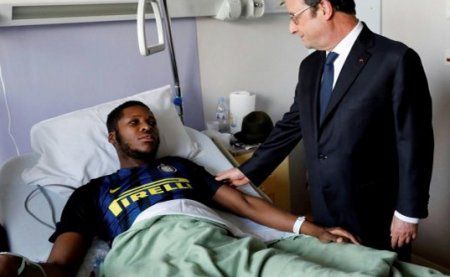 Une semaine après l'interpellation musclée d'un jeune homme de 22 ans en Seine-Saint-Denis, devenue l"affaire Théo" les émeutes dans le quartier des 3000 et dans quelques villes comme Lille, Nantes , Bordeaux, Rennes se sont pratiquement calmées malgré encore quelques incidents épars dans d'autres villes de Seine-Saint-Denis . Il était temps Une semaine après l'interpellation musclée d'un jeune homme de 22 ans en Seine-Saint-Denis, devenue l"affaire Théo" les émeutes dans le quartier des 3000 et dans quelques villes comme Lille, Nantes , Bordeaux, Rennes se sont pratiquement calmées malgré encore quelques incidents épars dans d'autres villes de Seine-Saint-Denis . Il était temps
L’IGPN, l’Inspection générale de la police nationale, a transmis ses premières observations et comptes-rendus d’enquête à la juge d’instruction en charge de l’affaire .
Les enquêteurs ont visionné les images de vidéosurveillance et sont parvenus à la conclusion que Théo n'ayant pas accepté d'être menotté une bagarre a éclaté avec trois des quatre policiers et que l’un d’entre eux a fait usage de sa matraque pour neutraliser ce dernier. Lors de l'interpellation, le policier donne «des coups au niveau des jambes et des cuisses pour le faire tomber», selon Me Frédéric Gabet. Les enquêteurs affirment que le policier ne lui ne lui aurait pas baissé son pantalon pour lui introduire la matraque.
L'IGPN déplore donc un « accident grave et réel »tout en écartant l' « l'idée de viol délibéré » en raison d'absence d'élément intentionnel.
Viol ou violences, les parties s'opposent sur cette question juridique.
Le policier plaide pour un geste "involontaire" tandis que le jeune homme dit que le policier lui aurait "enfoncé volontairement" sa matraque "dans les fesses". Toujours hospitalisé une semaine après son arrestation , le jeune homme a eu 60 jours d'incapacité totale de travail (ITT) un médecin ayant diagnostiqué "une plaie longitudinale du canal anal" de 10 centimètres.
Le parquet de Bobigny a rappelé dans un communiqué que « les investigations se poursuivent »pour être en mesure de retenir « la qualification pénale susceptible d'être appliquée. »
Il faut tout d'abord que la juge puisse visionner la vidéo qui lui permettra de qualifier à bon escient les poursuites.
C'est dans ce contexte de polémique que le ministre de l'Intérieur Bruno Le Roux s'est vu obligé d' annoncer que policiers et gendarmes seront prochainement dotés de 2.600 caméras mobiles, pour "apaiser les interventions et faire en sorte de rassurer les forces de sécurité". Ce qui se fait déjà dans d'autres pays.
Toutefois il s'avère totalement irresponsable de la part des politiques de s’exprimer sans connaître parfaitement le déroulement des faits. Dans un communiqué commun, les avocats des quatre policiers ont du rappeler qu'il fallait respecter « la présomption d'innocence», se révoltant contre les «pressions politiques et les propos irresponsables tenus dans l'ignorance du contenu du dossier pénal».
|
|
|
|
| Joanne Courbet pour DayNewsWorld |
 |
There are no translations available.
MACRON : EPISODE II DE HOLLANDE
|
« Je suis le candidat des classes moyennes et des classes populaires », a-t-il assuré, pour répliquer à Marine Le Pen qui l'accuse d'être le candidat des élites et du « mondialisme ».
|
|
|
C'est un document d'une trentaine de pages que le désormais favori des sondages pour emporter la présidentielle, le candidat d'En marche !, a présenté un document d'une trentaine de pages à la presse.'Emmanuel Macron a dévoilé lors d'une conférence de presse jeudi dernier pour donner les grandes ligne de son programme .
Il reprend tout simplement le programme que n'a pas réussi à mettre en œuvre l'actuel Président ! A quelques variantes près.
Un programme tout simplement d'inspiration sociale-libérale bâti entre « liberté » et « protection » ;
Tout comme Hollande il veut faire plaisir à tout le monde : une part de gâteau aux retraités qui ne verront pas leur situation changer, aux salariés qui ne verront pas l'âge de la retraite augmenter, aux
propriétaires dont 80% ne s'acquitteront plus de taxes d'habitation, aux chômeurs avec son projet d'universalisation de l'indemnisation chômage (étendue aux indépendants) aux enseignants avec la création « entre 4 000 et 5 000 » postes, aux handicapés avec 100 euros de plus par mois la richesse à portée de main !
Certes il s'attaquera au vaste chantier de la réforme du chômage avec la fin des régimes spéciaux de retraite, et en copiant le modèle suédois mais il n'oublie pas d'ajouter :« Nous rechercherons un consensus sur les modalités de fonctionnement du nouveau système. À l'issue de cette concertation, le gouvernement prendra ses responsabilités et présentera un projet de loi au Parlement. La réforme ne commencera à s'appliquer qu'au cours de la législature suivante ». Des mots, de la réflexion mais pas d'action durant la première législature ? Alors à quand cette fameuse réforme urgente pour notre système de retraite Monsieur le candidat d'En marche ?
L'opportuniste Macron surfe de plus sur du velours avec sa « grande loi » de moralisation de la vie publique. Eh oui le voilà en habit de Chevalier Blanc face aux affaires de la droite sorties bien sûr par pure coïncidence par une justice de gauche. C'est que Fillon et Marine Le Pen semblent déranger plus d'un petits juges!! ! En pleine affaire Fillon, le candidat veut interdire « aux parlementaires l'emploi de proches ou de membres de leur famille, pour mettre fin au népotisme », ou empêcher ces mêmes parlementaires d'exercer des activités de conseil... deux éléments qui ont jeté dans la tourmente le candidat de la droite. M. Macron a d'ailleurs commencé sa présentation par une charge en règle contre François Fillon et Marine Le Pen. M. Macron n'a pas eu de peine à accuser ses deux rivaux, visés par des affaires d'emplois fictifs, de « s'attaquer délibérément à l'État de droit » en s'en prenant à la justice. Alors que la justice suive son cours même avec un petit coup d'accélérateur zélé, rien ne semble plus normal d'ailleurs. Mais il est vrai que les frais de bouche pris sur l'argent du Ministère des Finances de l'ancien protégé de Hollande ne sont qu'une broutille...pour l'ex-banquier de Rotchild et pour les petit juges .
Dans cette « grande loi » de moralisation de la vie publique, imposée par son alliance avec Bayrou, mais surtout opportuniste, il prévoit également de réduire d'un tiers le nombre de parlementaires.
|
|
|
Sa réforme ne doit de toute façon en aucun cas servir, à court terme, à redresser les finances publiques. Et cela tombe bien, le candidat ne prévoyant pas que sa réforme entre en application au cours des cinq prochaines années ! Et à Macron de balayer d'un revers de main la critique récurrente de n'être un « élément de continuité » du quinquennat de François Hollande, en voulant pour preuves son départ du gouvernement et sa candidature. Bien voyons où se trouve la rupture par rapport au président actuel si ce n'est dans sa jeunesse et sa com' ?
|
|
|
|
| Paul Emison pour DayNewsWorld |
 |
There are no translations available.
AFFAIRE FILLON et LES PETITS JUGES ! ! !
|
"Je ne céderai pas, je ne me retirerai pas". "J'irai jusqu'au bout", a déclaré le candidat des Républicains devant la presse à son siège de campagne, dénonçant un "assassinat politique".
"Au-delà de la procédure judiciaire, c'est au peuple français et à lui seul que j'en appelle désormais (...) parce que seul le suffrage universel et non pas une procédure menée à charge peut décider qui sera le prochain président de la République", a expliqué M. Fillon.
|
|
|
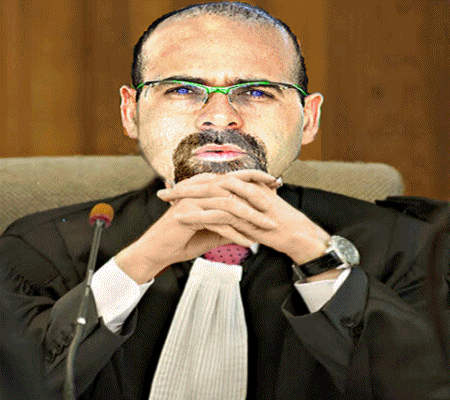 Le monde agricole la presse son équipe de campagne l'attendait de pied ferme . Pourtant mars le candidat de la droite à l'élection présidentielle fait faux bond. Le monde agricole la presse son équipe de campagne l'attendait de pied ferme . Pourtant mars le candidat de la droite à l'élection présidentielle fait faux bond.
Un passage pourtant obligatoire pour tout candidat à l'élection présidentielle.
Que se passe-t-il ?
Il se rend finalement dans l'après-midi au salon de l'Agriculture au son de ses partisans ("Fillon, président") et de ses adversaires ("Voleur! Rends l'argent").
Il s'est expliqué dans l' improvisation: "Mon avocat a été informé que je serai convoqué le 15 mars par les juges d'instruction afin d'être mis en examen". Il a assuré qu'il se rendrait bien à cette convocation
Sa épouse Penelope, visée par des accusations d'emplois fictifs comme collaboratrice parlementaire ainsi qu'à La Revue des Deux Mondes, est également convoquée chez les juges d'instruction à des fins de mise en examen
Depuis le 24 février, le parquet financier a ouvert une information judiciaire pour « détournement de fonds publics, abus de biens sociaux, complicité et recel de ces délits, trafic d'influence et manquement aux obligations de déclaration à la Haute Autorité sur la transparence de la vie publique ».
. Gérard Longuet défend un « homme courageux attaqué injustement. C'est un homme solide qui se trouve dans une épreuve dont le fondement est dérisoire à l'égard de l'enjeu pour le pays ».
Avant lui Nicolas Sarkozy, Marine Le Pen, et maintenant François Fillon .
Arrêtons de prendre les Français pour des imbéciles : la justice accélère les dossiers des candidats de la droite. Il est vrai qu'à gauche ils sont blancs comme neige...Peu importe que Macron aurait détourné de l'argent public pour des frais de bouche ...Et oui c'est normal, il est ni de gauche,ni de droite.Il a juste la bonne idée,lui, de manger à tous les rateliers. Et là le "gouvernement des juges" ne sais pas encore sur quel pied danser!
|
|
| Paul Emison pour DayNewsWorld |
 |
There are no translations available.
MEETING DE MARINE LE PEN OFFENSIF.
|
« Notre projet est en phase avec le monde, il entre en résonance avec le grand mouvement planétaire qui voit le réveil des peuples, le retour des frontières nationales et des fiertés nationales », a-t-elle lancé, référence au Brexit ou à l’élection de Donald Trump.
|
|
|
A deux mois du premier tour de l’élection présidentielle, la présidente du Front national, Marine Le Pen, a tenu dimanche 26 février un discours à Nantes (Loire-Atlantique), un meeting de campagne où l attendait un public nombreux, plus de 3500 militants.
|
|
|
 Des violences et heurt contre les cars de militants FN « avec la complicité plus ou moins évidente du gouvernement » selon Marine Le PEN Des violences et heurt contre les cars de militants FN « avec la complicité plus ou moins évidente du gouvernement » selon Marine Le PEN
Marine Le Pen n'a pas manqué de mentionner les incidents survenus hier dans la ville, en marge d'une manifestation contre la venue de la candidate du Front national.
« Nous ne nous soumettrons jamais à voir des milices d'extrême gauche attenter à l'intégrité physique des policiers comme hier à Nantes" a-t-elle déclaré.
En effet des heurts ont éclaté samedi 25 février au centre de Nantes pour protester contre la venue dimanche 26 février de cette dernière au Zénith de la ville.
Des dégradations ont eu lieu :mobilier urbain endommagé, notamment de nombreux abris de tramway, devantures de magasins saccagées...
Dimanche plusieurs autocars transportant des militants frontistes ont été pris pour cible , caillassés par une cinquantaine de militants anti-FN.
Le ministre de l’intérieur Bruno Le Roux s'est contenté de « condamner avec la plus grande fermeté les violences commises ». Huit personnes ont été interpellées dont quatre placées en garde à vue.Onze policiers et gendarmes ont été blessés.
N'est-il pas possible de mettre un dispositif policier plus efficient alors que les intentions des anti Lepenistes étaient connues ?
Cependant plus d'une heure durant, la candidate de la France apaisée a fait son premier meeting de campagne dans un climat explosif sans se laisser démonter.
Un règlement de compte acerbe avec les médias :
À 55 jours de la présidentielle, la candidate est toujours annoncée en tête des intentions de vote au premier tour . La présidente du FN arriverait en tête avec 27%, devant le fondateur du mouvement En Marche! (25%), qui bénéficie notamment de son alliance avec François Bayrou. Ce qui paraît interessant pour le FN dans ces sondages c'est que 83% des sondés qui comptent voter pour Marine Le Pen se disent sûrs de leur choix, 75% des électeurs de François Fillon sont eux aussi sûrs de leur vote, alors que seulement 58% pour ceux de Emmanuel Macron et de ceux de Benoît Hamon.Tout n'est donc pas joué d'avance comme semble porter à croire les médias en éliminant Marine Le Pen au second tour au profit d'un Emmanuel Macron. Au second tour, l'ancien ministre de l 'Economie récolterait 61% des suffrages, contre 39% pour la présidente du FN selon un dernier sondage Odoxa-Dentsu Consulting pour France 2 publié ce dimanche 26 février
Pas étonnant que la candidate d’extrême droite a attaqué violemment les médias : « Dans cette élection, (ils) ont choisi leur camp, ils font campagne de manière hystérique pour leur poulain », Emmanuel Macron d’après elle.« Ils se parent de morale, prétendent en rester à l’analyse des faits, hurlent à la liberté de la presse quand on les critique --c’est un droit fondamental pour la démocratie-- et puis ils pleurnichent d’avoir perdu la confiance du peuple qui se tourne --et c’est légitime-- vers internet pour s’informer », a encore lancé Marine Le Pen. Elle a notamment fustigé Pierre Berger et Patrick Drahi pour avoir fait le choix de soutenir Macron par le biais de leurs titres de presse.. Le Monde faisait ce week-end sa Une sur les affaires de financement du Front national et ses ennuis judiciaires et les médias détenus par Patrick Drahi (propriétaire de L'Express et de Libération) seraient "entièrement au service de M. Macron".
Une attaque en règle contre les magistrats :« Les magistrats sont là pour appliquer la loi, pas pour l'inventer »
La candidate du Front national s'en est pris à la justice française qui soupçonne une éventuelle fraude impliquant la création d'emplois fictifs au Parlement européen organisée au détriment de l'Union européenne. Le Monde a notamment évoqué un « document très compromettant » lors d'une perquisition en début de semaine. Marine Le Pen a annoncé cette semaine qu'elle refusait de répondre aux questions de la justice qui enquête sur cette affaire.En outre l'un de ses proches, Frédéric Chatillon, déjà renvoyé en correctionnelle pour le financement des campagnes électorales de 2012, vient d'être mis en examen pour celles de 2014 et 2015. Le temps de la justice s’est accéléré cette semaine avec la mise en examen de sa cheffe de cabinet, Catherine Griset. Elle ne pouvait que fustiger ce qu'elle appelle le « gouvernement des juges »
Elle a aussi mis en garde contre «une dérive antidémocratique, oligarchique (...) Les magistrats sont là pour appliquer la loi, pas pour l'inventer, pas pour contrecarrer la volonté du peuple, pas pour se substituer au législateur » a tancé la présidente du FN . « Si un magistrat souhaite changer la loi parce qu'elle ne lui convient pas, c'est simple, il se met en congé et se présente aux élections », prévient l'ancienne avocate.
Consciente cependant du manque de moyens de la justice elle propose « d'augmenter les moyens » de cette dernière, mais pas sans contrepartie : « La formation des magistrats sera revue, parce qu'on ne peut plus supporter le laxisme qui prévaut dans la magistrature aujourd'hui », a-t-elle simplement précisé, formulant presque une invitation à désobéir aux fonctionnaires qui seraient mêlés à ces "cabales d'Etat".
Ses principaux adversaires Fillon et Macron dans le rétroviseur :
Marine Le Pen a aussi ciblé ses « deux opposants principaux » d’après les sondages, Emmanuel Macron et François Fillon. La patronne du FN (27 %) et l’ancien ministre de l’Economie (25 %) creusent l’écart au premier tour sur l’ancien Premier ministre (19 %)
Marine Le Pen ne s'est pas privé de viser ses adversaires, Emmanuel Macron et François Fillon, accusés d'être aux mains des "puissances de l'argent.
«Les puissances d'argent prennent parti pour Macron» François Fillon, mais surtout Emmanuel Macron. "L'un est le candidat des assurances" a-t-elle dit en référence au premier, "l'autre des banques et des médias".
"Regardez avec quel zèle les puissances d'argent se mettent au service" d'Emmanuel Macron a-t-elle déclamé. "Des puissances d'argent tentent de lancer une OPA hostile sur l'Etat". Puis d'enchaîner sur les conférences données à l'étranger par François Fillon "grassement payé" et sur les accointances professionnelles d'Emmanuel Macron avec la banque Rothschild.
Une détermination inébranlable : «La victoire idéologique est largement acquise»
La candidate a renié gauche et droite confondues. «Notre pays est en train de succomber de ses rois fainéants», a-t-elle lancé. «Je ne me soumets pas» «Je porte une résolution que rien n'intimide, une énergie que rien ne brise», a martelé Marine Le Pen pour qui son «projet est majoritaire». Pour elle «La victoire idéologique est largement acquise»
Pour un Etat fort :
Devant plusieurs milliers de partisans, Marine Le Pen a mis au centre le rôle de l'Etat: « Je rendrai à l'Etat ses prérogatives en rendant à notre nation son indépendance. » . Elle a l'ambition de « remettre la France en ordre en cinq ans, et pour cela, nous allons commencer par remettre l’Etat en ordre ». Un Etat fort, mais également "neutre et impartial". Elle a égrainé également sa vision de la fonction présidentielle. Le Président selon ses propos ne doit pas se contenter d'être « le simple chef politique d'une majorité présidentielle ». Elle a fustigé ces « rois fainéants », « ces présidents normaux, c'est à dire incompétents ». Une attaque en règle contre François Hollande donc. Elle n'a pas oublié son crédo d' un monde dans lequel l'État est menacé par « le mondialisme financier » . Un discours auquel le public a réagi par les traditionnels slogans : « On est chez nous ! ». Marine Le Pen a voulu rappeler sa volonté d'avoir 'un État souverain et stratège. « En France, sans l'Etat, ça merdoie », a-t-elle déclaré, paraphrasant le général De Gaulle. Pour se donner les moyens d'agir, elle désire le retour au « septennat non renouvelable » par un référendum constitutionnel.
Contre une « immigration massive » :
Comme à l'accoutumée, la candidature du Front national a dénoncé l'immigration voulant "reconduire les clandestins derrière une frontière qui existe vraiment" et "rétablir les frontières nationales". La députée européenne a critiqué la politique migratoire de la France. «Les Français n'en peuvent plus de l'immigration massive, légale et illégale», a-t-elle lancé. A ses partisans de hurler «on est chez nous, on est chez nous».
Elle en a profité pour revenir aux propos en Algérie du candidat Macron qui ont déjà fait couler beaucoup d'encre, sur la colonisation crime contre l'humanité : «C'est probablement pour justifier l'autoroute migratoire qu'il veut instaurer entre Paris et Alger» tout comme elle a reproché à Emmanuel Macron d'avoir dit «toute l'admiration» qu'il avait de la politique migratoire de l'Allemagne. Et d'évoquer le ralliement au candidat d'En Marche du président de France Terre d'Asile, « association qui milite pour encore plus d'immigration» selon ses dires.
|
|
|
|
| Joanne Courbet pour DayNewsWorld |
 |
There are no translations available.
Royaume-Uni : Déclenchement du Brexit le 29 mars
|
|
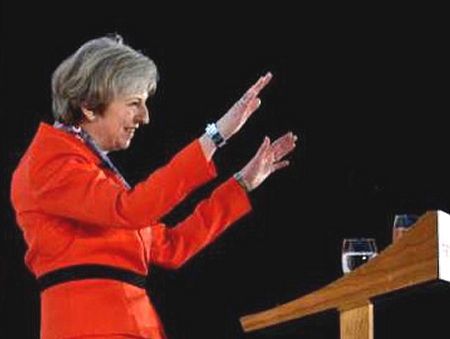 Le gouvernement de Thérésa May activera l'article 50 du traité de Lisbonne le 29 mars, lançant officiellement le Brexit du Royaume-Uni avec l'Union européenne. Le gouvernement de Thérésa May activera l'article 50 du traité de Lisbonne le 29 mars, lançant officiellement le Brexit du Royaume-Uni avec l'Union européenne.
«Le permanent du Royaume-Uni à Bruxelles a informé l'Union européenne ce matin que la Grande-Bretagne activerait l'article 50 le 29 mars», information confirmé lundi par le porte-parole de Downing Street
En effet le 23 juin 2016, "les Britanniques ont pris la décision par referendum de sortir l’Union Européen".
Mercredi le gouvernement va mettre en application cette décision et lancer le processus de l'article 50.
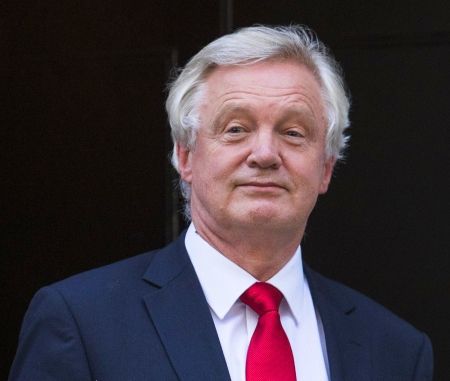 Le ministre en charge du Brexit David Davis, annonce que c'est Le ministre en charge du Brexit David Davis, annonce que c'est
"la négociation la plus importante pour ce pays depuis une génération», et que « le gouvernement était clair sur ses objectifs: un accord qui fonctionne pour toutes les nations et régions du Royaume-Uni et bien sûr pour l'ensemble de l'Europe, un nouveau partenariat positif entre le Royaume-Uni et nos amis et alliés au sein de l'Union européenne».
Le Brexit ouvre la période de négociations de sortie de l'Union Européenne qui doit durer deux ans maximum.
Le porte-parole de l'Union européenne à Bruxelles indique que «tout était prêt pour cette activation de l'article 50 ».
Le Parlement écossais devrais se prononcer ce mercredi sur un nouveau référendum
Le déclenchement du Brexit intervient seulement une semaine après que le Parlement britannique et que l'assentiment royal donné par Elizabeth II ont été donnés !
Thérésa May est confrontée au risque de devoir organiser un nouveau référendum sur l'indépendance de l' Écosse.
Le risque étant l’éclatement du Royaume-Uni, Nicola Sturgeon la Première ministre d’Écosse, vient de demander au Parlement régional l'autorisation de réclamer un nouveau referendum.

Nicola Sturgeon justifie sa demande par
«le mur d'intransigeance» opposé par le gouvernement britannique aux demandes des Écossais concernant le Brexit,
les Écossais eux voulant rester dans le marché unique européen.
Thérésa May souhaite un Brexit clair et net impliquant la sortie du marché unique afin de pouvoir reprendre le contrôle.
L’Écosse avait en effet voté à 62% pour le maintien dans l’Union Européenne lors du référendum du 23 juin 2016
|
|
| Paul Emison pour DayNewsWorld |
 |
There are no translations available.
Le Débat Télévisé de TF1
|
|
 Très gros succès pour le débat télévisé de TF1 lundi soir : 9,8 millions de téléspectateurs en moyenne, soit 48% de part d'audience, selon Médiamétrie . À trente-cinq jours du premier tour de l’élection présidentielle de nombreux électeurs restent indécis malgré les incessants sondages des médias voulant influencer le vote ! Ce premier débat télévisé entre les cinq principaux candidats était donc attendus des Français. Très gros succès pour le débat télévisé de TF1 lundi soir : 9,8 millions de téléspectateurs en moyenne, soit 48% de part d'audience, selon Médiamétrie . À trente-cinq jours du premier tour de l’élection présidentielle de nombreux électeurs restent indécis malgré les incessants sondages des médias voulant influencer le vote ! Ce premier débat télévisé entre les cinq principaux candidats était donc attendus des Français.
Quoique parfois trop formaté par le temps de parole il a malgré tout permis aux candidat de montrer leur capacité à gouverner en abordant les questions de fond.
Il est apparu clairement que François Fillon avait une stature présidentielle même s'il est peu intervenu au début, laissant aux candidats de gauche qui semblent être trois s'écharper avec Marine Le Pen. D'ailleurs François Hollande n' a-il-pas lui- même reconnu que son ancien ministre de l'économie avait un programme semblable à celui qu'il aurait voulu mettre en œuvre !!!
Car comment saisir le programme d'Emmanuel Macron voulant ratisser le plus largement possible ? Il se montrait tantôt en accord avec l'un puis l'autre jouant au yoyo si bien que que le leader de la droite et du centre a constaté que cet électron libre piochait une fois à droite, une fois à gauche. Et de souligner qu'il se prenait les pieds dans le tapis sur la question des 35 heures allant jusqu'à se contredire. A Marine Le Pen de résumer à son tour le programme inexistant du leader D'En Marche en une phrase cinglante : "Vous avez un talent fou. Vous arrivez à parler sept minutes, je suis incapable de résumer votre pensée, vous n'avez rien dit. C'est le vide absolu, sidéral!" à propos de sa longue tirade sur la politique étrangère.
Les affaires ont été reléguées au second plan malgré quelques allusions entre les candidats mais Benoît Hamon s’est interrogé clairement et à juste titre, semble-t-il, sur le financement de la campagne d’Emmanuel Macron qui s'est senti directement visé. A Marine le Pen enfonçant le clou, il s'en sort par une pirouette « Vous vous ennuieriez, si je n’étais pas là ! » et branditt la traditionnelle arme de la diffamation.
Les problèmes qui occupent les Français comme la laïcité, l’immigration, la sécurité et le chômage ont fait l'objet d' échanges vifs et tendus.
Sur les questions de sécurité, d’immigration ou de laïcité, la présidente du Front national a ainsi été prise à partie par le trio Benoît Hamon Jean-Luc Mélenchon, et Emmanuel Macron, le premier* avec le reproche de « diviser la société française » le second lui reprochant sa volonté d’« instrumentaliser ces questions à des fins électoralistes » avec une conclusion brillantissime du candidat D'En Marche prônant une« laïcité forte » .
François Fillon , posé, a affirmé que la montée de l’intégrisme « pose un problème de laïcité » et a proposé d'instaurer des « quotas » pour l'immigration variant selon les capacités économiques de la France pour accueillir ces derniers.
Sur le plan économique, le candidat officiel du PS,utopiste, a parlé du «revenu universel » pensant sortir les milliards de son chapeau. Les candidats de la droite et du FN ont deux projets différents mais ce sont les deux seuls candidats crédibles et cohérents pour les Présidentielles.
Jean-Luc Mélanchon, le clown triste , aurait pu nous faire rire si la situation de la France n'était pas aussi préoccupante.
L'ensemble des candidats de gauche, Macron inclus, n'ont rien de sérieux à proposer aux Français, ils sont dans la continuité de la faillite de la Hollandie.
Que François Hollande se rassure il a de dignes héritiers !
|
|
| Paul Emison pour DayNewsWorld |
 |
There are no translations available.
BRUTAL, CONFUS, EPROUVANT
|
|
"Échanges d’insultes", "combat verbal", "duel à couteaux tirés",
|
|
|

"Il a dit qu'elle racontait des mensonges. Elle l'a traité d'arrogant. Il l'a accusée de répéter des 'bêtises'.
Elle l'a coupé et lui a dit de ne pas lui donner de leçons. Il secoua tristement la tête, et elle rit de façon sarcastique".NEW-YORK TIMES.
|
|
|
|
|
QU'EN PENSEZ-VOUS CHERES LECTRICES , CHERS LECTEURS A UNE HEURE AUSSI GRAVE?
CONTACTEZ NOS ADRESSES MAILS POUR NOUS REPONDRE: NOUS PUBLIERONS CERTAINS DE VOS COMMENTAIRES HUMORISTIQUES!
|
|
| PAUL Emison pour DayNewsWorld |
 |
There are no translations available.
LA COURBE DESCENDANTE DE MACRON ?
|
|
  Macron est trop imprécis, trop flou dans son programme Une nébuleuse. Macron est trop imprécis, trop flou dans son programme Une nébuleuse.
Ce soir sur France 2, il doit absolument dégainer.
Récupérer les derniers socio-libéraux encore attachés à Benoit Hamon.
Les deux finalistes de l'élection présidentielle s'affrontent ce soir
Marine Le Pen va frapper fort de coups Emmanuel Macron, mais le match de ce soir est aussi Macron contre Macron.Président et non pas favori.
Or le dernier duel télévisé est la clé de voûte de la présidentielle.
Et jusqu'à maintenant à part faire de la com', reprise de partie de discours de Hollande- pourquoi lui en vouloir puisqu'il n'est que la continuité avortée du hollandisme- le reprise de la gestuelle sarkosiste -et oui ne vous en déplaise!- la synthèse est bien décevante.
Son épouse Brigitte Macron, professeur de théâtre et sa conseillère de téléréalité mimi Marchand ne suffisent plus au fond...
apte pendant cinq ans à diriger la France exige bien d'autres qualité d'esprit et de profonde connaissance de dossiers.
Allez à vos marques ! Prêt !
|
|
|
|
|
|
|
|
| Joanne Courbet pour DayNewsWorld |
 |
There are no translations available.
A MEDITER
OU EST PASSE LE FRONT REPULICAIN ?
PLUTOT LA DICTATURE DU VOTE ?
|
|

Vote FN: Estrosi, Lagarde et Pécresse demandent l'exclusion de Christine Boutin et de tous ceux qui n’ont pas appelé à voter pour Emmanuel Macron.
Valérie Pécresse:
“C'est une ligne rouge que l'on ne peut pas franchir. Sens commun a eu la sagesse de ne pas suivre Christine Boutin dans cette voie. Je leur demande d'aller plus loin et de voter contre Marine Le Pen. Rien ne serait pire que de la faire élire”
a-t-elle demandé dans une interview au Figaro.
La présidente d’honneur du Parti Chrétien Démocrate avait appelé lundi au “vote révolutionnaire” pour la candidate du Front national dans une série de tweets.
"L'exclusion est le témoin de l'échec (comme la fessée sur un enfant)", a-t-elle ajouté dans un autre tweet.
|
|
|
Et le candidat d'En Marche qui exclue toute alliance PS-En Marche-LR?
Ou sont passés les gourous de l'évangéliste Macron sortis tout droit de la télérealité comme son coach Mimi MARCHAND pour nous éclairer?
|
|
| , |
|
|
|
| Joanne Courbet pour DayNewsWorld |
 |
There are no translations available.
CABINET NOIR : DES MENACES A L'ENCONTRE DE COLLABORATEURS DE L'ELYSEE .
|
|
Les « affaires » qui ont touché François Fillon durant cette campagne, n'en finissent pas de faire des remous. Combatif plus que jamais sur ce terrain également, le candidat de la droite affirme une fois de plus avoir des preuves tangibles contre François Hollande à l'origine de ses ennuis judiciaires.
Plusieurs proches collaborateurs du Président auraient reçu selon l'Elysée des menaces de mort.
"Thomas CAZENAVE Gaspard GANTZLER Vous êtes morts !... dans 1 semaine ?... dans 2 ans ? et qui de vos proches ?", menacerait ce courrier, révélé la semaine dernière par le site du Point
De quoi donner des sueurs froides à ces derniers...
Toujours selon Le Point Thomas Cazenave, secrétaire général adjoint de L'Elysée, aurait même déposé plainte le 27 mars dernier pour menaces de mort.
Jouer aux apprentis sorciers n'est pas toujours sans conséquence.
|
|
| Paul Emison pour DayNewsWorld |
 |
There are no translations available.
PRESIDENTIELLE: LES DECLARATIONS DEVOILENT
LE PATRIMOINE DES CANDIDATS
|
|
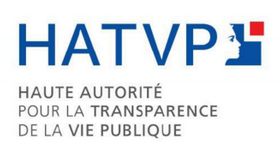 La Haute Autorité pour la transparence de la vie publique a publié mercredi soir à 18h les déclarations de patrimoine des onze candidats à la présidentielle. La Haute Autorité pour la transparence de la vie publique a publié mercredi soir à 18h les déclarations de patrimoine des onze candidats à la présidentielle.
C'est une première pour les onze prétendants à la succession de François Hollande.
Tous les candidats ont dû faire une nouvelle déclaration même ceux qui étaient déjà dans l'obligation d'en produire une en raison de leur mandat électif.
Ces informations resteront consultables jusqu'à la proclamation des résultats du premier tour du scrutin et laisseront ensuite place aux déclarations des deux finalistes.
Une fois le vainqueur connu, seule la sienne restera sur le site de la HATVP jusqu'à la fin du quinquennat. La déclaration du vainqueur ne sera pas contrôlée durant le quinquennat.
Nos lecteurs vont trouver que de nombreuses zones d'ombre subsistent. C'est qu'il faut avoir clairement à l'esprit ce qui doit être obligatoirement déclaré par les candidats sélectionnés à la Présidentielle.
En effet seuls les biens immobiliers et mobiliers (d'une valeur supérieure à 10.000 euros, NDLR) détenus par le candidat, le montant sur ses comptes en banque, ses véhicules et les prêts en cours doivent figurer sur la déclaration. 2017. Le candidat est tenu de préciser s'il s'agit de biens propres, de biens de la communauté ou de biens indivis.
Les revenus par contre ne sont pas concernés.
 La déclaration de patrimoine de François Fillon diffère légèrement de celle qu'il avait effectué en tant que député. La déclaration de patrimoine de François Fillon diffère légèrement de celle qu'il avait effectué en tant que député.
Sa société de conseil, 2F Conseil, est estimée au 1er janvier 2017 à 97.888 euros.
Le candidat de la droite et du centre a contracté deux nouveaux prêts , l'un, de 50.000 euros, effectué "entre particuliers" pour faire des travaux, l'autre, de 30.000 euros, pour "paiement de dettes fiscales".
François Fillon, amateur de montres, en possède deux, d'une valeur de 15.000 et 12.000 euros.
Nicolas Dupont-Aignan, lui préfère la pierre.
Le candidat de Debout La France possède six appartements à Paris, dont un qui est en réalité "une boutique en mauvais état". Il faut ajouter à cela une maison dans l'Essonne.
François Asselineau, président de l'UPR, lui aussi a investi dans la pierre puisqu'il possède une maison achetée à 56000 francs et son appartement principal à 3 millions de francs. La valeur actuelle est donnée en euros ! A vos calculettes ! Il est en plus propriétaire de deux appartements en Polynésie française.
La présidente du Front national ne possède ni voiture, ni objet de valeur. La valeur de ses parts du manoir de Montretout, demeure familiale des Le Pen est actuellement estimé à 312.500 euros. Elle a contracté deux prêts pour financer sa campagne. Un premier, à hauteur de 2 millions d'euros, en août 2016puis un deuxième de 4 millions d'euros en décembre dernier auprès de Cotelec, le micro-parti de son père, Jean-Marie Le Pen.
Emmanuel Macron, l'ex-banquier rejoint par de nombreux socialistes, le dernier en date étant l'actuel ministre de la défense Jean-Yves Le Drian, ne déclare ni maison, ni appartement ni voiture.Il ne posséderait que 274.000 euros, avance sur les droits d'auteur de son livre Révolution .Cette déclaration aussi modeste suscite nombre de commentaires dubitatifs. Emmanuel Macron aurait-il triché sur sa déclaration ?(cf article suivant)
La déclaration de Philippe Poutou est rapide à éplucher: à part une Peugeot 3008 et 22.600 euros sur ses comptes bancaires.
La candidate de Lutte ouvrière possède moins de 9.000 euros en cumulant son compte courant, son livre A, un CEL, son compte joint et un appartement acheté à crédit qu'elle continue de rembourser ; Comme voiture une Citroën C3 .
Benoît Hamon, un compte à l'étranger mais celui du fonds de retraite volontaire des députés européens, localisé à Bruxelles. Benoît Hamon a été eurodéputé entre 2004 et 2009. Le candidat socialiste déclare deux emprunts immobiliers, deux appartements et plusieurs comptes bancaires.
Jacques Cheminade déclare « une collection » d'art pré-colombien
Quant au leader de la France Insoumise Jean-Luc Mélenchon son patrimoine s 'élève à près d'un million d'euros.
Jean Lassalle posséde une terre agricole , a contracté deux prêts l'année dernière, en août et en septembre à des fins de "consolidation de trésorerie" et possède une Citroën C6 et une Fiat Doblo cargo.
Mais à quoi sert donc ce petit inventaire à la Prévert ?
Cette déclaration est censée révéler les liens d'intérêts financiers du candidat compte tenu des actions qu'il pourrait détenir et du nom des particuliers qui pourraient lui avoir prêté de l'argent.
Le formulaire, fourni par la HAPTVP, a été remis par les équipes de campagne vendredi 17 mars au Conseil constitutionnel . Mais ce dernier ne peut pas contrôler ces déclarations, contrairement à toutes celles qui sont délivrées à la HATVP dont celles des parlementaires et ministres. Le Conseil constitutionnel s'y est opposé en estimant que la HAPTVP aurait eu dès lors un trop fort impact sur le déroulement du scrutin. Il s'agit donc simplement d'une déclaration où les candidats sont tenus sur l'honneur à l'honnêteté...
Nous reste donc à compter sur l'honnêteté de nos candidats !!!
|
|
|
|
|
| Paul Emison pour DayNewsWorld |
 |
There are no translations available.
PORT DU VOILE: L'UE DEFEND UNE CONCEPTION
PLUS FRANCAISE DE LA LAICITE.
|
|
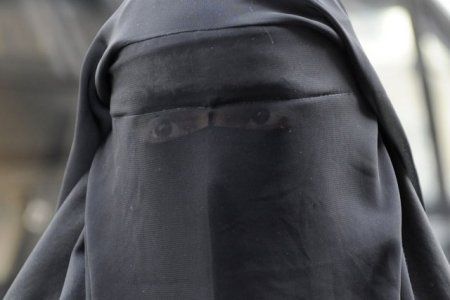 Mardi 14 mars, la Cour de justice européenne (CJUE) a tranché.Elle a donné le droit aux entreprises d'interdire tout signe ostentatoire religieux ou politique, à condition que ce soit mentionner dans le règlement interne.Une règle interne d'une entreprise interdisant le port visible de tout signe politique, philosophique ou religieux ne constitue pas une discrimination directe". Mardi 14 mars, la Cour de justice européenne (CJUE) a tranché.Elle a donné le droit aux entreprises d'interdire tout signe ostentatoire religieux ou politique, à condition que ce soit mentionner dans le règlement interne.Une règle interne d'une entreprise interdisant le port visible de tout signe politique, philosophique ou religieux ne constitue pas une discrimination directe".
Elle se prononçait sur deux dossiers, en Belgique et en France, de femmes musulmanes qui estimaient avoir été discriminées au travail,car licenciées en raison du port du voile dans l'entreprise.
François Asselin, président de la CGPME, précise que cette décision vient renforcer le droit français et contribuer à l'apaisement des tensions qui peuvent voir le jour parfois autour de ce sujet délicat . Pour Michel Miné, professeur et chercheur en droit du travail au Conservatoire national des arts et métiers les deux arrêts de la CJUE «ne vont toutefois pas terriblement bousculer le régime juridique français» : En effet en France, la loi encadre déjà l’expression religieuse dans les entreprises privées. Elle stipule qu’un employeur ne peut pas interdire aux salariés d’exprimer leur religion, mais peut limiter ce droit d’expression, s’il entrave le bon fonctionnement de l’entreprise. En juillet la loi travail avait été plus loin : "si demain un employeur se sert de son règlement intérieur pour éviter tout signe ostentatoire, il a un moyen tout à fait factuel pour être sûr que les choses se passent bien et qu'il reste, avec ses représentants du personnel, le patron chez lui".
Si cette interdiction "ne constitue pas une discrimination directe", explique la Cour, elle doit cependant se justifier par la poursuite d'"un objectif légitime", par exemple une politique affichée de neutralité vis-à-vis des clients.
|
|
| Joanne Courbet pour DayNewsWorld |
 |
There are no translations available.
MACRON AURAIT-IL TRICHE
SUR SA DECLARATION DE PATRIMOINE ?
|
|
 Anticor estime que "le caractère exhaustif, exact et sincère" de la déclaration de patrimoine du candidat d 'En Marche à la présidentielle manque de clarté et doit être soumis pour vérification à la Haute Autorité pour la transparence de la vie publique (HATVP). En effet la fortune personnelle d'Emmanuel Macron suscite bien des questions. Anticor estime que "le caractère exhaustif, exact et sincère" de la déclaration de patrimoine du candidat d 'En Marche à la présidentielle manque de clarté et doit être soumis pour vérification à la Haute Autorité pour la transparence de la vie publique (HATVP). En effet la fortune personnelle d'Emmanuel Macron suscite bien des questions.
L'association anticorruption Anticor pointe un "manque de cohérence entre les revenus et le patrimoine déclarés" du candidat.
Comme gérant, puis associé-gérant chez Rotschild & Cie entre 2008 et 2012, il n'est soumis pas soumis à l'impôt sur la fortune (ISF) .Lors de son entrée au gouvernement sa déclaration de patrimoine paraît étrangement modeste pour un ancien banquier d'affaires.
Anticor s'interroge, semble-il, avec raison.
Difficile de jongler avec les chiffres et de retomber sur ses pieds avec les déclarations d'un ancien banquier.
 Dans sa déclaration d'intérêts signée le 24 octobre 2014, Emmanuel Macron indique qu'il a perçu, en tant que banquier à la banque Rothschild puis comme secrétaire général adjoint à la présidence de la République, "3,3 millions d'euros de revenus avant impôts"sur la période de 2009 jusqu'à son entrée au gouvernement comme ministre de l'Economie en août 2014, selon un communiqué d'Anticor. Dans sa déclaration d'intérêts signée le 24 octobre 2014, Emmanuel Macron indique qu'il a perçu, en tant que banquier à la banque Rothschild puis comme secrétaire général adjoint à la présidence de la République, "3,3 millions d'euros de revenus avant impôts"sur la période de 2009 jusqu'à son entrée au gouvernement comme ministre de l'Economie en août 2014, selon un communiqué d'Anticor.
Ses activités dans la banque d'affaires lui ont permis de toucher "2,8 millions d'euros" entre 2009 et sa nomination en mai 2012 au secrétariat général de la présidence sous François Hollande.
Mais dans sa déclaration de patrimoine, signée également en octobre 2014, M. Macron a fait état d’un patrimoine de « 1,2 million d’euros et d’un endettement de 1 million d’euros », « soit un patrimoine net de seulement 200 000 euros »
L’association Anticor a annoncé lundi 13 mars qu'elle a saisi la Haute Autorité pour la transparence de la vie publique (HATVP) pour lui demander de « vérifier le caractère exhaustif, exact et sincère » de la déclaration de patrimoine d’Emmanuel Macron.
|
|
A SUIVRE..... !!!
|
|
| Paul Emison pour DayNewsWorld |
 |
There are no translations available.
AFFAIRE DES COSTUMES DE FRANCOIS FILLON
CONTRE TENUES
AUX PRIX EXORBITANTS DE BRIGITTE MACRON ?
|
|
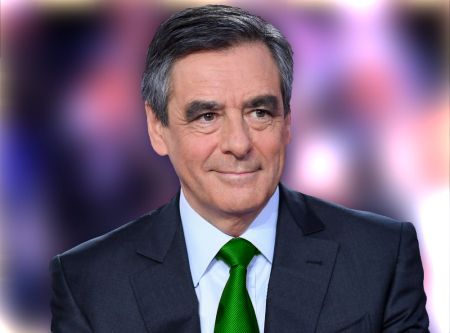 L’imbroglio politico-judiciaire voudrait-il enfin cesser en pleine campagne présidentielle? L’imbroglio politico-judiciaire voudrait-il enfin cesser en pleine campagne présidentielle?
Un mois de révélations qui ont écorché à la fois le candidat de la droite, François Fillon, la candidate du Front national, Marine Le Pen ?
Soyons sérieux !
A à peine un mois de la campagne on s'acharne sur celui qui était le favori de la droite François Fillon. Mercredi il sera auditionné par la justice pour des présumés emplois fictifs d’attachés parlementaires.
Et voilà que maintenant une certaine presse monte en mayonnaise « l'affaire des costumes Fillon» !
Faudrait -il qu'un candidat à la Présidentielle s'habille avec des costards de 100 euros achetés au marché aux puces ?
N'a-t-il pas le droit non plus de recevoir des cadeaux ?
Et depuis quand les cadeaux d'amis feraient-il partie de la sphère publique ?
Que cesse l'acharnement contre ce candidat !
Et pourquoi ne s'en prend -on pas à Emmanuel Macron et surtout à sa femme Brigitte Macron ?

Quel est le prix des costumes de l'ancien banquier de Rothschild ?
Et les tenues très fashion et luxueuses de son épouse Brigitte Macron ?
D'ailleurs l'entourage d'Emmanuel Macron commence à s'inquiéter des frais vestimentaires de Madame Macron toujours vêtue de marque de grands couturiers.
Face à l'acharnement de la presse contre Fillon, les prix des vêtements et accessoires de luxe de Brigitte Macron pourraient également à leur tour être pointés du doigt par une la presse.. .
Et cela pourrait réellement ternir l'image du candidat ni de droite ni de gauche.
Caroline Derrien et Candice Nedelec dans Les Macron publié le 8 mars chez Fayard le font remarquer et Brigitte Macron a pour seule réponse :
« Différentes maisons me proposent des vêtements chaque semaine. Et pour les soirées de gala, je trouve cela sympa de montrer ce qu’est la création française ».
|
|
|
|
Et qu'en pensent les Français à l'heure de la grave crise que connaît la France ?
|
|
|
|
| Kate White pour DayNewsWorld |
 |
There are no translations available.
FILLON CONTINUE A SE DEFENDRE APREMENT CONTRE CE QU'IL APPELLE"UN COUP D'ETAT INSTITUONNEL"
|
|
 Comme par hasard le vilaines affaires sortent au moment où le candidats de la droite se trouve au en passe de gagner les présidentielle. Une enquête est ouverte pour détournement de fonds publics depuis que Le Canard Enchaîné a révélé que la femme de l'ancien premier ministre a été son assistante parlementaire pendant plusieurs années. Le candidat de droite à la présidentielle avait réclamé d'être rapidement entendu pour s'expliquer. C'est pourquoi hier François et Penelope Fillon ont été entendus séparément à Versailles par les policiers de l'office central de lutte contre la corruption et les infractions financières (OCLCIFF). Comme par hasard le vilaines affaires sortent au moment où le candidats de la droite se trouve au en passe de gagner les présidentielle. Une enquête est ouverte pour détournement de fonds publics depuis que Le Canard Enchaîné a révélé que la femme de l'ancien premier ministre a été son assistante parlementaire pendant plusieurs années. Le candidat de droite à la présidentielle avait réclamé d'être rapidement entendu pour s'expliquer. C'est pourquoi hier François et Penelope Fillon ont été entendus séparément à Versailles par les policiers de l'office central de lutte contre la corruption et les infractions financières (OCLCIFF).
Mais cette affaire de la rémunération de son épouse n'en finit plus d'embarrasser la droite qui avait triomphalement désigné M. Fillon lors de la primaire de la droite.
En effet au terme de leur intrusion à l'Assemblée nationale, les policiers n' ont rien découvert pour conforter la version du couple Fillon
L'enquête avance vite et devrait se poursuivre avec l'audition ce mercredi de Marc Joulaud, l'ancien suppléant de François Fillon. Marc Joulaud avait récupéré la place de François Fillon dans l'hémicycle et avait continué d'embaucher son épouse Penelope entre 2002 et 2007. Elle aurait perçu en 2007, 10.167 euros brut par mois, selon Le Canard Enchaîné. Soit plus que l'enveloppe allouée à tous les députés pour rémunérer leurs collaborateurs
Actuellement la défense s'appuient sur des éléments immatériels comme les déclarations du couple Fillon. La semaine dernière, François Fillon détaillait les tâches accomplies par son attachée: sa femme corrigeait ses discours, lui prodiguait des conseils, réalisait des synthèses de presse.Mais aucun badge, aucune boîte mail à son nom et aucune permanence dans la Sarthe non plus Seuls quelques bulletins de paie ont été fournis à la justice, notamment ceux de la période 2012-2013 mais aucun sous le mandat de Marc Joulaud. .De plus « son salaire dépasse même de plus de 1.200 euros par mois les crédits accordés alors par l'Assemblée pour payer l'ensemble des collaborateurs de ce dernier.Et la fin de contrat coïncide avec la loi Cahuzac qui oblige les élus à mentionner le salaire de leurs conjoints dans leur déclaration de patrimoine à la Haute autorité.
Le Canard Enchainé vient de révéler aujourd'hui la rémunération de deux des enfants de François Fillon lorsqu'il était sénateur : 84.000 euros brut en qualité d'assistants parlementaires.Sa fille Marie âgée alors de 23 ans et pas encore avocate a été embauchée comme "assistante de sénateur" du 1er octobre 2015 au 31 décembre 2016 avec une rémunération de 57.084 euros brut au total et son frère Charles pour un salaire total de 26.651 euros brut.
Pour sa femme: 831.440 euros brut au total davantage que ce qu'annoncé précédemment. Le Canard Enchaîné révèle également l'existence d' "une quinzaine de comptes au Crédit Agricole de Sablé-sur-Sarthe", et non d' un seul compte commun. comme l'avait affirmé François Fillon, dimanche lors de son meeting.
 Certes les Républicains font bloc derrière leur champion triomphalement élu en novembre au terme d'une primaire ayant rassemblé plus de 4 millions d'électeurs. " Penelope Fillon a toujours secondé François Fillon", rapportait mardi sur BFMTV Bruno Retailleau . « Dans des circonstances qui nous échappent, parfois, des étudiants se tournent vers leur père pour lui demander de les aider à travailler » surenchérissait Gérard Longuet, sénateur de la Meuse. M. Accoyer accrédite l'idée selon laquelle cette affaire n'a qu'un seul objectif, celui d' "empêcher un candidat de se présenter". Il désire que la conclusion de l'enquête soit très rapide, faute de quoi "nous serions devant (...) une très grave intrusion de l'autorité judiciaire dans la vie démocratique française" Certes les Républicains font bloc derrière leur champion triomphalement élu en novembre au terme d'une primaire ayant rassemblé plus de 4 millions d'électeurs. " Penelope Fillon a toujours secondé François Fillon", rapportait mardi sur BFMTV Bruno Retailleau . « Dans des circonstances qui nous échappent, parfois, des étudiants se tournent vers leur père pour lui demander de les aider à travailler » surenchérissait Gérard Longuet, sénateur de la Meuse. M. Accoyer accrédite l'idée selon laquelle cette affaire n'a qu'un seul objectif, celui d' "empêcher un candidat de se présenter". Il désire que la conclusion de l'enquête soit très rapide, faute de quoi "nous serions devant (...) une très grave intrusion de l'autorité judiciaire dans la vie démocratique française"
L'enquête sur d'éventuels emplois fictifs de l'épouse de François Fillon se poursuit avec l'audition de son ancien suppléant, tandis que le candidat de la droite a rencontré les élus de son camp les exhortant à « tenir quinze jours ». M. Fillon a taxé ces révélation d "une opération professionnelle de déstabilisation" sans précédent dans l'histoire de la Ve République, "à moins de trois mois d'une élection présidentielle",allant jusqu'à évoquer "un coup d'Etat institutionnel" venant "de la gauche .L'Elysée s'est empressé de démentir.
Au sortir du QG de candidat de droite son conseiller Bruno Le Maire a admis que "les sommes mises en jeu" dans l'affaire Penelope Fillon "choquent beaucoup de Français" d'autant que le candidat a utilisé comme un argument politique dans la primaire son honnêteté et sa la rigueur notamment des deniers publics
En effet selon un sondage Elabe pour BFMTV les Français sont 76% à ne pas croire aux arguments du couple Fillon. et selon un sondage réalisé pour les Echos et Radio Classique, François Fillon serait éliminé dès le premier tour de la présidentielle, devancé par Emmanuel Macron et Marine Le Pen.
A SUIVRE...
|
| Joanne Courbet pour DayNewsWorld |
|

|
There are no translations available.
ATTENTAT DANS UNE MOSQUEE DE QUEBEC.
|
«Nous condamnons cet attentat terroriste dirigé contre des musulmans se trouvant dans un lieu de culte et de refuge», a déclaré le Premier ministre canadien Justin Trudeau dans un communiqué affirmant que «La diversité est notre force et, en tant que Canadiens, la tolérance religieuse est une valeur qui nous est chère »
|
|
 Alors que le chef du gouvernement avait lancé la veille un message de rassemblement et d'unité en promettant d'accueillir les réfugiés «indépendamment de leur foi» après la décision du président Donald Trump d'interdire l'entrée des États-Unis aux ressortissants de sept pays musulmans, deux personnes armées et cagoulées ont ouvert le feu sur des fidèles rassemblés pour les prières du soir. Alors que le chef du gouvernement avait lancé la veille un message de rassemblement et d'unité en promettant d'accueillir les réfugiés «indépendamment de leur foi» après la décision du président Donald Trump d'interdire l'entrée des États-Unis aux ressortissants de sept pays musulmans, deux personnes armées et cagoulées ont ouvert le feu sur des fidèles rassemblés pour les prières du soir.
On déplore déjà la mort de six personnes et huit blessées dans une fusillade survenue dimanche soir dans une mosquée de la ville de Québec. Une cinquantaine de personnes étaient rassemblées dans ce lieu de culte.
Le premier ministre canadien a condamné un «attentat terroriste dirigé contre des musulmans».
Deux personnes ont été arrêtées et placées en garde à vue.
La port-parole de la police de Québec, Christine Coulombe, a dit ne pas pouvoir donner davantage de précisions sur l'identité et les motifs des suspects. «La situation est sous contrôle», a annoncé la police sur son compte Twitter, précisant que les occupants de la mosquée avaient été évacués.
Un des suspects aurait été interpellé après une courte-poursuite avec la police locale. Le deuxième homme pour sa part arrêté sur l'île d'Orléans aurait appelé les services d'urgence pour avouer son crime. «La structure de gestion policière contre le terrorisme est déployée», a-t-elle ajoutée.
Les agressions visant la communauté musulmane se sont multipliées dans la province de Québec ces dernières années. En juin, une tête de porc pendant le ramadan avait été déposée devant la porte de ce centre culturel islamique de Québec à Sainte-Foy, également connu sous le nom de grande mosquée de Québec.
Ce n' est pas la première fois que de tels actes haineux, qui jusqu'alors était qualifiés d'actes isolés, ont eu lieu : Dans la province voisine de l'Ontario, une mosquée en 2015 avait été incendiée, au lendemain des attentats de Paris, le 13 novembre 2015. D’autres mosquées au Canada ont également été la cible de graffitis à caractère raciste ces derniers mois.
|
|
| Kate White pour DayNewsWorld. |
|

|
There are no translations available.
HAMON LE GRAND VAINQUEUR DE CETTE PRIMAIRE DE GAUCHE
|
« Notre pays a besoin de la gauche, mais une gauche moderne, innovante, tournée vers l’avenir » a-t-il affirmé avant de poursuivre « demain je veux commencer à rassembler les socialistes, tous les socialistes, parce que c’est ma famille politique ». Benoît Hamon
|
|
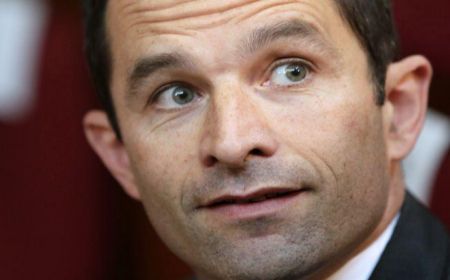 Le second tour de la primaire socialiste s’est déroulé dimanche 29 janvier. Le second tour de la primaire socialiste s’est déroulé dimanche 29 janvier.
Benoît Hamon est arrivé en tête avec 58,88 % des voix contre 41,12 % pour Manuel Valls.
Le miracle espéré par les vallsistes n'a donc pas eu lieu.
Une surprise?.
Arrivé en tête au soir du premier tour, Benoît Hamon disposait du plus large réservoir de voix, ayant obtenu dès la semaine dernière le ralliement d'Arnaud Montebourg alors que Manuel Valls a eu du mal à rassembler le Parti socialiste.
Avec sa victoire à la primaire, c'est la revanche des « frondeurs » sur l’exécutif !
Très rapidement, les premiers ralliements se sont exprimés.
Jean-Luc Bennahmias, soutien de Manuel Valls mais lui aussi défenseur du revenu universel, s'est empressé de soutenir le vainqueur de la soirée.Peillon, Montebourg et Manuel Vals ont également rejoint le député des Yvelines de 49 ans.
|
| Joanne Courbet pour DayNewsWorld |

There are no translations available.
LA FAMINE AUX PORTES DU YEMEN.
|
|
"Le conflit au Yémen constitue à présent la plus grande urgence pour la sécurité alimentaire dans le monde."
|
|
L’Organisation des Nations Unies alerte le monde du risque de famine qui frappe ce pays déchiré par un conflit depuis deux ans.
 Près de 14 millions de personnes, soit 80% de la population du pays, souffre de malnutrition. Deux millions de Yéménites n’ont plus accès à l’eau. 2,2 millions d'enfants connaissent la famine. Si le CICR n’utilise pas encore le terme de famine, «il est certain que l’insécurité alimentaire est très grave. Le prix du blé a doublé et seulement la moitié des importations de nourriture peuvent être effectuée La mortalité infantile a augmenté de 150% depuis le début du conflit. Toutes les dix minutes un enfant de moins de dix ans meurent de causes qui auraient pu être évitées selon l’ONU.Le conflit yéménite a fait déjà fait selon les Nation-Unis plus de 10.000 morts et 40.000 blessés. Et cela dans l'indifférence générale. Près de 14 millions de personnes, soit 80% de la population du pays, souffre de malnutrition. Deux millions de Yéménites n’ont plus accès à l’eau. 2,2 millions d'enfants connaissent la famine. Si le CICR n’utilise pas encore le terme de famine, «il est certain que l’insécurité alimentaire est très grave. Le prix du blé a doublé et seulement la moitié des importations de nourriture peuvent être effectuée La mortalité infantile a augmenté de 150% depuis le début du conflit. Toutes les dix minutes un enfant de moins de dix ans meurent de causes qui auraient pu être évitées selon l’ONU.Le conflit yéménite a fait déjà fait selon les Nation-Unis plus de 10.000 morts et 40.000 blessés. Et cela dans l'indifférence générale.
Plus de la moitié des structures de santé du Yémen ont été détruites.
La fermeture de l’aéroport de Sanaa pèse lourd sur le sort des civils. Les médicaments ne pouvant plus être acheminés par avion «Les personnes souffrant de maladies chroniques, comme le diabète, ne peuvent plus être soignées.».
Cette guerre opposant les rebelles Houthis soutenus par l'Iran aux forces pro -gouvernementales appuyées par la coalition sous commandement saoudien fait de nombreuses victimes.
L'Arabie saoudite a pris la tête d'une coalition de neuf pays arabes, pour affronter la rébellion houthi contrôlant 'une partie du Yémen. Dans le même temps, la menace djihadiste s'étend, Al-Qaïda dans la péninsule arabique (Aqpa) étant désormais concurrencé par Daech. En mars 2015, l’Arabie saoudite, soutenue par une coalition a lancé une campagne de bombardements pour soutenir les forces loyalistes et combattre les Houthis. En octobre, les frappes font 140 victimes civiles lors d’une cérémonie funéraire à Sanaa, conduisant les États-Unis à prendre leurs distances avec leur allié saoudien. En plus de l’embourbement de l’Arabie Saoudite dans ce conflit, le pays est devenu le terrain de jeu des groupes djihadistes qui profitent du chaos régnant.
De plus la campagne aérienne et terrestre de bombardements contre le groupe armé Houthi et ses alliés menée depuis un an par l'Arabie Saoudite font des civils les premières victimes de ce conflit.
L’ONU a notamment dénoncé l’utilisation par la coalition de bombes à sous-munitions américaines, britanniques et des lance-roquettes brésiliens pour utiliser de telles munitions.Particulièrement dangereux pour les civils, ces missiles répandent de nombreux éclats et n’explosent pas toujours en vol, représentant un danger supplémentaire au sol. ..La majorité des civils a été tuée par des frappes aériennes de la coalition Elle a régulièrement bombardé marchés, écoles et hôpitaux, au mépris total du droit international humanitaire.
Le CICR appelle les parties au combat à faciliter l’accès aux ressources humanitaires. Un appel partagé par l’ONU, qui demande un cessez-le-feu. «Les combattants ne semblent pas du tout enclins à collaborer», déplore Iolanda Jaquemet.
Qu'attend-on ?
|
| Paul Emison pour DayNewsWorld |

There are no translations available.
FRANCOIS FILLON RIPOSTE FERMEMENT
A LA VEILLE DE SON DISCOURS FONDATEUR ET DEFEND
SON EPOUSE PENELOPPE AVEC DETERMINATION .
|
"Mon épouse est remarquable, elle est exceptionnelle. Vous n’imaginez pas à quel point elle souffre qu’on puisse penser qu’elle n’a pas respecté les règles. Je la défendrai, je l’aime, je la protégerai. Et je dis ce soir à tous ceux qui voudront s’en prendre à elle qu’ils me trouveront en face."
|
|
Après la bombe lancée.le 25 janvier par un article du Canard Enchaîné soupçonnant l'épouse de François Fillon d’emploi fictif à l’Assemblée nationale, le Parquet national financier a ouvert une enquête préliminaire pour « détournement de fonds publics, abus de biens sociaux et recel de ces délits ».
Riposte avant le discours fondateur de dimanche.
Pas question de voir feuilletonner l'affaire.François Fillon se devait de riposter avant son « discours fondateur » dimanche 29 janvier 2017, véritable lancement de sa campagne présidentielle à à Paris, Porte de La Villette.
Le candidat a voulu éteindre très vite le début d'incendie. Jeudi, Antonin Lévy, un de ses avocats, a ainsi remis au parquet financier des éléments pour prouver que Penelope Fillon avait bien travaillé pour le compte du député François Fillon.et le soir même le candidatà la présidentielle se rendait sur le plateau de TF1
Visiblement affecté par cette polémique il a dénoncé «les calomnies» lancées contre lui et son épouse. Il n'aurait eu qu'un seul sentiment celui de «dégoût» face au «caractère abject de cette accusation, qui consiste à atteindre (sa) femme pour (l') atteindre», à trois mois de la présidentielle. François Fillon a montré sa ferme détermination à se défendre et à défendre son épouse : « Mon épouse est remarquable, elle est exceptionnelle. Vous n’imaginez pas à quel point elle souffre qu’on puisse penser qu’elle n’a pas respecté les règles. Je la défendrai, je l’aime, je la protégerai. Et je dis ce soir à tous ceux qui voudront s’en prendre à elle qu’ils me trouveront en face. »Le message est d'autant plus clair que la calomnie est punissable comme délit au pénal.
Un emploi «légal, réel et transparent»
Aucun doute» pour lui sur l'emploi «légal», «réel», et «parfaitement transparent» de son épouse comme collaboratrice parlementaire. Il n'a pas manqué de souligner que «tout le monde savait. Il y a des déclarations au fisc, tout cela est parfaitement transparent» D’ailleurs depuis son premier mandat électif en 1981 elle aurait toujours été à ses côtés et faisait notamment remonter les information de son fief de la Sarthe
|
|
|
|
 François Fillon affirme également que son épouse a bien été « conseillère » de Marc Ladreit de Lacharrière un an et demi durant lorsque celui-ci était directeur de la publication de La Revue des Deux Mondes. L’intéressé « montrera à la justice » les travaux justifiant un salaire de 100 000 € brut François Fillon affirme également que son épouse a bien été « conseillère » de Marc Ladreit de Lacharrière un an et demi durant lorsque celui-ci était directeur de la publication de La Revue des Deux Mondes. L’intéressé « montrera à la justice » les travaux justifiant un salaire de 100 000 € brut
François Fillon a aussi dévoilé que deux de ses fils, avocats avaient reçu des rémunérations lorsqu'il était sénateur de la Sarthe dans le cadre de missions bien précises relevant de leur compétences Mais que depuis 2013, il avait lui-même décidé de ne plus employer aucun membre de sa famille comme collaborateur parlementaire, une pratique légale.
Il a rappelé que les parlementaires disposent d’une « enveloppe fixe » affectée à la rémunération de collaborateurs. Celle-ci est de 9 561 € au profit d’une à cinq personnes. « À l’intérieur de cette enveloppe, ils font ce qu’ils veulent : ils choisissent les collaborateurs qu’ils souhaitent et ils fixent les missions qu’ils souhaitent », a-t-il insisté.
L'ancien premier ministre a annoncé qu'il porterait «plainte contre les journaux affirmant que sa femme avait un emploi fictif».
François Fillon qui a, selon ses propres termes « le cuir dur » se présentera à la Présidence : «Ça me renforce, ça me renforce dans l'idée qu'il y a quelque chose de pourri de notre démocratie. (...) Oui je serai candidat.» Seule une mise en examen le ferait renoncer «Cette histoire fera “pschitt”. Il n'est pas question de laisser prendre en otage la campagne, les choses sont trop graves.» ll se tient à la disposition de la justice.
" En réalité ma femme travaille pour moi depuis toujours, depuis 1981, depuis ma première élection, a rétorqué François Fillon. Elle m’a toujours accompagné dans ma vie publique. Et d'ailleurs je pense que je n'aurais pas fait ce parcours que j'ai fait sans son soutien et son aide"
|
|
|
| Joane Courbet pour DayNewsWorld |

There are no translations available.
UNE DECLARATION ETONNANTE DE LA PART DE L'ACTRICE AUSTRALO-AMERICAINE NICOLE KIDMAN .
|
|

On a tous en mémoire le discours anti-Trump de Meryl Streep aux Golden Globes et nombreuses sont les célebrités à avoir vilipender l'ex homme d'affaires comme président.
Alors que la journaliste de la BBC Two demandait à Nicole Kidman ce qu'elle pensait de l’élection de Donald Trump,,
Elle qui ne parle jamais politique en public, a tout simplement eu cette réponse :
'il fallait accepter le président puisqu'il avait été élu par les Américains.
Pour l'actrice il s'agit avant tout de respecter les valeurs américaines.
|
|
| Mia Kennedy pour DayNewsWorld. |
|

There are no translations available.
Les 7 Nains de la Gauche Où est passée Blanche Neige ?
LES SEPT CANDIDATS DE LA PRIMAIRE DE GAUCHE .
LA PETITE PHRASE QUI TUE:
"Je ne le respecte pas et je ne le supporte plus". La Hollandie se repasse le film.
Vals a propos de Hollande.
|
|
La Haute autorité a validé ce samedi sept candidatures à la primaire à gauche. Les 22 et 29 janvier prochains, les socialistes Benoît Hamon, Arnaud Montebourg, Vincent Peillon, et Manuel Valls affronteront la radicale de gauche Syvia Pinel et les écologistes Jean-Luc Bennahmias et François de Rugy. Qui sont-ils, quels sont leurs atouts et faiblesses ? Petit tour d'horizon.

Benoît Hamon,
L'ancien ministre de 49 ans s'est lancé dans la course au coeur du mois d'août. Mais sa campagne est restée dans l'ombre jusqu'à son passage à l'émission de France 2 où il a pu exposer son projet.
Le revenu universel est au cœur du débat ainsi que sur la réduction du temps de travail. Lors de cette primaire,une partie du MJS (Mouvement des jeunes socialistes) qu'il a un temps présidé le soutiendra. Mais il manque de crédibilité après n'être resté que cinq mois au ministère de l’Éducation nationale . 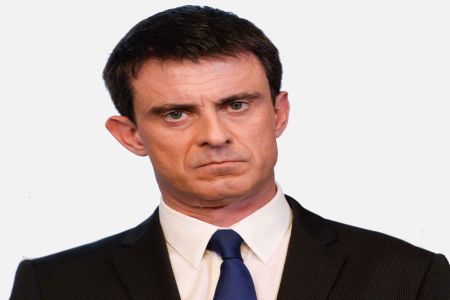
Manuel Valls : Le favori ?
Manuel
Valls s'est finalement lancé dans la course après le renoncement de
François Hollande. . A 54 ans, il a quitté Matignon après deux ans et
demi à la tête
Dans
cette primaire, il devra assumer le bilan de François Hollande. Et
contrairement à 2011, où il avait assumé une ligne à droite du PS, il
doit cette fois rassembler ...

Sylvia Pinel, la seule femme
A
39 ans, l'ancienne ministre du Logement est la seule femme de la
primaire à gauche. Elle est candidate au nom du Parti radical de
gauche.
Très
peu connue du grand public,son passage au gouvernement où elle a
succédé à Cécile Duflot, elle reprend la place qu'avait tenue
Jean-Michel Baylet lors de la primaire de 2011. La députée du
Tarn-et-Garonne portera les mêmes valeurs : défense de la laïcité et
dépénalisation du cannabis notamment.
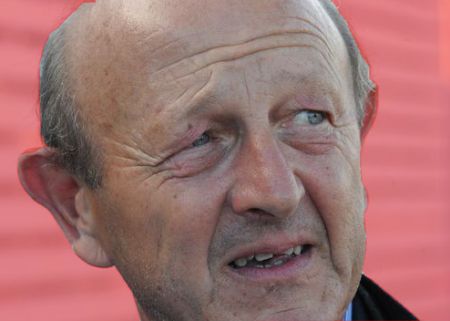
Jean-Luc Bennahmias,l'inconnu.
Ancien
Verts, ancien MoDem, Jean-Luc Bennahmias est conscient qu'il ne
devrait pas être sur le podium à l'arrivée. Il est aujourd'hui à la
tête d'un mini-parti, le Front démocrate, créé pour soutenir François
Hollande.A 62 ans, l'ancien eurodéputé se définit comme progressiste. Lui aussi plaide pour la légalisation du cannabis. La défense d'un
budget européen et d'un revenu minimum universel couplé à une sécurité
sociale professionnelle font également partie de ses propositions.
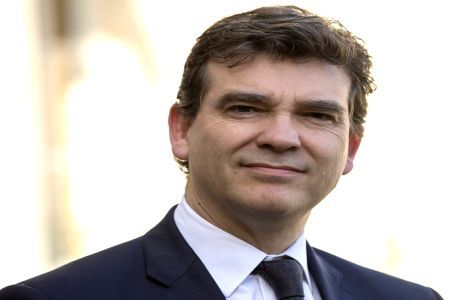
Arnaud Montebourg, le frondeur en chef .
L'ancien ministre le plus critique vis-à-vis du quinquennat de François Hollande a le soutien du chef de file des députés frondeurs, Christian Paul.
Le «made in France» et le soutien aux PME françaises est l'une de ses marques de fabrique. IL insiste sur la nécessité de réorienter l'Europe et de mettre fin aux politiques d'austérité. Il veut également une réforme institutionnelle et une nouvelle République.Arnaud Montebourg, 54 ans, a l'expérience de la primaire puisqu'en 2011, il avait été candidat et avec un score de17%.
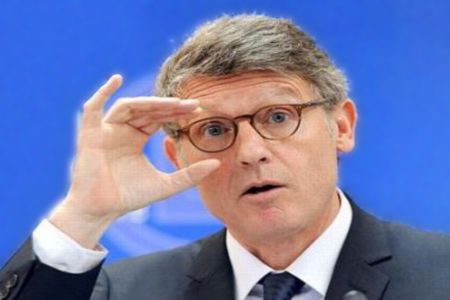
Vincent Peillon, l'inattendu.
A 56 ans, l'ancien lieutenant de Ségolène Royal avait choisi de devenir professeur de philosophie à l'université après que Manuel Valls ne l'avait pas retenu dans son gouvernement en avril 2014.
Il se revendique dans la filiation de François Hollande tout en critiquant plusieurs points du quinquennat ;Il a le soutien d' Anne Hidalgo et de certains socialistes qui ne pardonnent pas à Manuel Valls d'avoir mis la pression sur François Hollande.
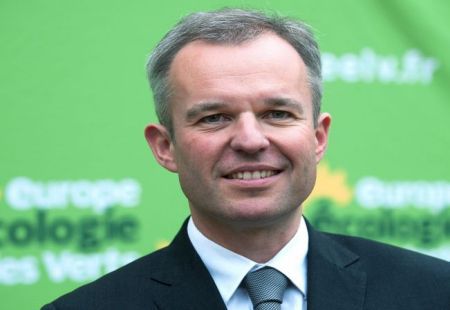
François de Rugy, l'anti-Duflot
Le
député de Loire-Atlantique a quitté EELV l'été 2014 en désaccord
avec la ligne anti-gouvernement de Cécile Duflot et des siens. A 43
ans, le patron du Parti écologiste veut porter ce thème dans cette
primaire. A côté de l'atteinte des 100% d'énergie renouvelable d'ici à
2050, François de Rugy porte également une mesure forte, celle de
rendre obligatoire le droit de vote.
|
|
Autant de candidats dissemblables que rien de l'héritage
de Hollande ne rapproche!
Des électrons libres d'une Gauche en déliquescence .
|
Les 7 mains de la Gauche oui !! Mais il y a 7 Simplets !!!
|
| Joanne Courbet pour DayNewsWorld. |
|

|
|
There are no translations available.
| LE MALAISE DE FILLON SUR LA REFORME ASSURANCE MALADIE. |
|
Malade, assuré…Un étude sérieuse montre l'attachement des Français à leur système d'assurance maladie, jugé "bon" par 84% des personnes interrogées. La même proportion l'estime "meilleur que celui des autres pays". Pourtant la hausse de 3,7% des dépenses d'assurance maladie en août pousse
La Cour des comptes à demander à corps et à cris plus d'efforts pour l'assurance maladie
Certes les Français sont presque autant à le penser "en danger" (79%) et à craindre pour sa "pérennité" (74%). Pour près de six Français sur dix (58%), il n'est pas "viable à long terme".
"Il serait urgent de le réformer en profondeur", estiment une large majorité de sondés(69%).
MAIS le plan drastique de Fillon ne CONVAINC PAS .
Les deux solutions phares proposées par François Fillon, le candidat de la droite à la présidentielle ne convainc pas: 58% s'opposent à une augmentation de la prise en charge des frais de santé par les mutuelles et 89% sont hostiles au fait de ne rembourser que les médicaments pour les maladies les plus graves.
Plusieurs autres mesures sont, en revanche, plébiscitées par les Français : "favoriser les soins ambulatoires pour réduire les dépenses d'hospitalisation" (82% d'approbation), "développer l'usage des médicaments génériques" (77%), "inciter les médecins à limiter les arrêts maladie" (72%).
Mais les Français sont pessimistes quant à la situation de l'assurance maladie. La quasi totalité des sondés (91%) "craint d'avoir à payer plus cher pour sa santé à l'avenir »(enquête Odexa)
|
|
Le candidat de la droite à la présidentielle souhaite réserver la Sécurité sociale aux maladies graves et de longue durée : "l'assurance publique universelle sur des affections graves ou de longue durée, et l'assurance privée sur le reste" .
Ce programme est, en tout cas, déjà contesté aussi au sein même des Républicains .
En effet le volet santé de son programme bouleverse le modèle de la Sécurité sociale, créée en 1945 à de la Libération et inquiète la majorité des Français.
Les trois quarts des Français s'inquiètent pour le devenir de l'assurance maladie et souhaitent une réforme "en profondeur" du système, selon un sondage Odoxa, publié par Le Parisien dimanche.
Qu'entendre par "panier de soins solidaire"? Cancer, diabète ou maladie d'Alzheimer resteraient à charge de l'assurance publique. Mais qu'en sera-t-il des maladies qui, mal soignées, risquent d'avoir des conséquences graves ?
La professeure de génétique à l'Université Paris-Descartes de Paris s'est montrée plus prudente. Elle a précisé que le champ des maladies couvertes dans "le panier de soins solidaire" de Fillon "restait à définir". On est pas malade pour le plaisir de l'être...
Une certitude néanmoins: le périmètre de soins remboursé à 100% par la Sécurité sociale se rétrécirait encore davantage sous son mandat.
Ce traitement de choc qui considère "le désordre digestif temporaire, la grippe - encore qu'une grippe peut être dramatique" à mettre hors du panier de soins est fortement inquiétant.
|
|
Comment financer l'Assurance maladie ?
En payant une TVA plus salée
Le député de Paris veut faire évoluer le financement, en faisant "basculer les cotisations maladies dites patronales vers un mix CSG-TVA".En augmentant 2 points cette dernière taxe, avec cet argument décliné dans Le Monde : "Il faut que ce soit la consommation qui finance notre système social, pas le travail."
Les conséquences ?
Hors alimentation et énergie (taxées à 5,5%), la plupart des biens et services aujourd'hui aux taux normal TVA de 20%, passerait à 22%. Le taux intermédiaire de 10%, lui, passerait à 12%. Gain attendu de cette augmentation : 16 milliards d'euros. Cette somme financerait l'assurance-maladie. Certains économistes, remarque Le Figaro, « craignent que cela entame la consommation des ménages. ».
Pour éviter l'explosion des coûts l'ancien Premier ministre prévoit la création d'une "Agence de contrôle et de régulation de l'assurance privée". Une agence de plus !!! Bien, voyons.
Faut-il envisager un marché de la santé où chacun paie en fonction de son risque (âge, charge de famille...). Un système profondément "inégalitaire" ?.Et comment les mutuelles vont_elles réagir ?
|
|
Ce que propose François Fillon.
-"Introduire une franchise médicale universelle en fonction des revenus dans les limites d'un seuil et d'un plafond (...). Ce dispositif remplacera le ticket modérateur et la franchise de 1 euro actuelle.
-laisser le financement du « risque léger » aux complémentaires santé.
De nombreuses critiques.
C'est pourquoi le candidat et son équipe n’excluent pas que le programme en matière de santé évolue. ..
Le candidat entend mettre en place « un régime spécial de couverture accrue » pour les personnes les moins favorisées, peut-être sur le modèle de l'actuelle couverture maladie universelle. D'autre part, il créerait une « Agence de contrôle et de régulation de l'assurance-santé privée », bénéficiant d'une délégation de service public, pour définir un contrat-type « parfaitement lisible pour les assurances privées avec une variable : le prix ».Ce qui éviterait de donner un blanc-seing.. On peut toujours espérer...
Cette nouvelle répartition des rôles entre assureurs privés et publics semblerait dans l'esprit de ces concepteurs ne pas changer le taux actuel de 75 % de prise en charge publique des dépenses de santé, mais elle pourrait par contre permettre de faire face à l'augmentation des dépenses directement liées à l'innovation..
A VOIR.
.AU DEPUTE FILLON D'AMENDER SA REFORME TRES VITE POUR NE PAS ETRE LA MACHINE A PERDRE.
|
| Joanne Courbet pour DayNewsWorld. |

There are no translations available.
MACRON SUR SON PETIT NUAGE .
|
|
 Emmanuel Macron va-t-il se retrouver de plus en plus isolé comme l'affirme nombre de commentateur ? Emmanuel Macron va-t-il se retrouver de plus en plus isolé comme l'affirme nombre de commentateur ?
Attaqué à gauche comme à droite, le candidat à la présidentielle va devoir convaincre des élus ne pouvant compter sur le soutien du parti socialiste.
Or les militant se prononcent dans les fédérations internes avant la convention du parti le 17 décembre.
Comment remettre ses troupes en ordre avec des électrons libres qui ne se disent ni de droite ni de gauche ?
Emmanuel Macron serait toujours en position de force à gauche devançant l'ex-Premier ministre Manuel Valls, qui réalise une percée après l'annonce de sa candidature.
De plus son espace politique, s’est largement ouvert avec la défaite d’Alain Juppé à la primaire de la droite.
Ses atouts sont réels: jeunesse, charme (plutôt que charisme) et surtout le courage d’une démission …
Le fondateur du mouvement En Marche! a organisé samedi 10 décembre 2016 à partir de 14h30 un grand meeting parisien au parc des expositions, porte de Versailles.
Face à l'insistance de l'appareil il ironise :
« Et maintenant qu'en effet ce rassemblement de progressistes que nous avons construit commence à leur faire peur, il faudrait qu'on aille se perdre dans les chicayas (les querelles) de la primaire » .
Mais attention :
"trop de com'" pourrait compromettre une réelle opportunité politique, pour exemple son style exalté à la fin du meeting...
Décidé à continuer sa course en solitaire il a égrené quelques unes de ses mesures.
A suivre...
|
|
|
| Joanne Courbet pour DayNewsWorld |
 |
There are no translations available.
CONDAMNATION D'UN FIEFFE MENTEUR
FRAUDEUR MINISTRE DU BUDGET EN FRANCE
JEROME CAHUSAC
|
|
| "La condamnation est à la hauteur du scandale.le plus retentissant et le plus ahurissant de ce quinquennat entamé sous le signe de la République exemplaire" dans La Voix du Nord. |
|
| "Une sanction exemplaire à l'encontre d'un ministre qui aurait dû donner l'exemple" |
|
|
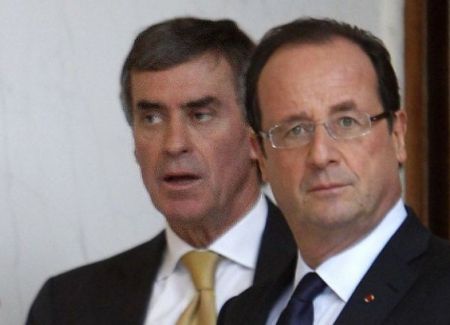
|
|
|
L’ancien ministre du budget, Jérôme Cahuzac, qui avait des comptes cachés à l’étranger, a été condamné jeudi 8 décembre, à Paris, à trois ans de prison ferme, sans aménagement de peine, pour fraude fiscale et blanchiment. Toutefois, Jérôme Cahuzac va faire appel .
La faute était d'autant plus lourde qu'il était ministre du Budget à l’époque. Il est vrai que ce ministre aurait dû donner l'exemple vu ce qu'il demandait aux Français et la lutte contre l'évasion fiscale.
|
|
|
" Un tournant " ou une exception,à cause de l'ampleur médiatique de l'affaire ?
Il fallait que la sanction fasse sens : elle semble sonner l'arrêt de l'impunité pour les cols blancs et permettre d'armer l'État contre ces tricheurs
La sanction des trois ans de prison ferme et cinq ans d'inéligibilité sonne l'arrêt de l'impunité pour . Le tribunal a suivi les réquisitions du parquet national financier
Certes en théorie, la fraude fiscale est passible de 7 ans de prison. Mais les fraudeurs ne se
retrouvent généralement pas derrière les barreaux
En effet il existe un "verrou de Bercy" qui permet au ministère de l’Économie de régler à l'amiable .Et seul ce même ministère est habilité à lancer des poursuites en la matière.
Et dans ce cas les tribunaux prononcent peu de peines de prison ferme.
|
|
|
La justice a décidé de condamner plus durement les fraudeurs. Deux ans de prison, dont un avec sursis, contre l'ancien entraîneur de football, Franck Dumas. L'ancien joueur de Valenciennes, Jeovânio Rocha Do Nascimento, a été condamné à 10 mois de prison ferme.En 2015, Arlette Ricci à un an de prison ferme et un million d'euros d'amende pour fraude fiscale, blanchiment et faillite frauduleuse...
Toutes ces condamnations, celle de Jérôme Cahuzac comprise, doivent être confirmées en appel et restent encore loin des peines maximales prévues. "
Les réquisitions de la procureure Eliane Houlette ont été suivies par le tribunal. Cette dernière avait mis en garde les juges contre les différences de traitement entre délinquance de droit commun et délinquance en « col blanc ». Ses arguments dans une époque difficile ont eu une portée indéniable sur les juges. La procureur signifiat très clairement que les différence de traitement favorisent « le sentiment d’exclusion ressenti par certains »,« les comportements de rupture » tout en « propageant l’idée qu’il existe une impunité des puissants ».
La fraude fiscale n'est-il pas « l’acte antisocial par excellence » ?
Le tribunal précise, dans son jugement, la « rare et exceptionnelle gravité » des faits reprochés à Jérôme Cahuzac, compte tenu de la durée de la fraude et surtout des fonctions qu’il a exercées : député du Lot-et-Garonne, président de la commission des finances de l’Assemblée nationale et ministre du budget.Alors ministre du budget Jérôme Cahuzac « incarnait la politique fiscale de la France » et « était le garant de l’application des trois principes constitutionnels d’égalité devant l’impôt, qui fonde le consentement à l’impôt, de lutte contre la fraude fiscale et de lutte contre l’évasion fiscale ».
De surcroît le tribunal retient qu’« aucune de ses fonctions, aucun événement extérieur, aucune alerte n’ont conduit Jérôme Cahuzac à cesser ses agissements » tout en précisant que son « souhait de dissimulation et d’opacité est allé croissant avec l’importance de ses fonctions politiques ».
De plus les « mensonges » réitérés de l’ancien ministre sans parler du démenti contre les révélations de Mediapart face à l’Assemblée nationale !
|
|
|
Mais le feuilleton Cahusac n'est pas fini...
|
|
| Joanne Courbet pour DayNewsWorld |
|

There are no translations available.
FRANCOIS DIT ADOLPHE H... ET SON ADJOINT MANUEL DIT HEINRICH M...CHEF DE LA GESTAPO VIENNENT ENCORE DE FRAPPER FORT...
Que la France s'inspire du modèle allemand, oui, mais celui d' Angela Merkel!!!
60 millions de Français fichés dans une même base de données dans un mega-fichier des titres d'identité: la CNIL réclame « une évaluation complémentaire du dispositif »!
|
|
Michel Tubiana, président d’honneur de la Ligue des Droits de l’Homme. « Il n’y a aucune garantie pour le futur. Le gouvernement s’est engagé dans une démarche identique au Patriot Act (une loi antiterroriste adoptée par les Etats-Unis sous George W. Bush, ndlr) », critique l’avocat, interrogé par Europe 1.
|
|
La recherche dans le fichier ne serait-elle pas possible?
« Ce que la technique a fait, la technique peut le défaire », estime un détracteur bien informé. Ce « fichier énorme, monstrueux sur le plan pratique » peut être une mine d'informations pour un nouveau gouvernement. C'est tout simplement« une ingérence dans l'exercice du droit de toute personne au respect de sa vie privée » ,la CNIL ne mâche pas ses mots. Surtout dans un contexte où la menace terroriste exige de la police un travail d'enquête et de prévision de plus en plus intensif.
Un pouvoir d’accès, des échanges avec Interpol et Schengen.
Il faut déjà savoir que les services spécialisés du renseignement, dès lors qu’il s’agira de prévenir ou réprimer les « atteintes aux intérêts fondamentaux de la Nation et les actes de terrorisme » (L222-1 du Code de la sécurité intérieure) pourront consulter le fichier.
La direction centrale de la police judiciaire, en lien avec Interpol ou le système d’information Schengen également.
Les policiers, gendarmes et douaniers, lorsqu’ils contrôleront l’identité d’une personne pourront accéder aux données inscrites sur la puce injectée dans le passeport.
Bravo ! Un nouveau fichier général de la population établi comme sous le régime de Vichy ?
|
Retour du fichier des « gens honnêtes » ?
Par un décret publié le 30 novembre au Journal officiel, le ministère de l'intérieur met en place un fichier commun aux passeports et aux cartes d'identité, qui accumule des informations sur la quasi-totalité de la population.
Ce fichier connaît tous ses citoyens par leur sexe, la couleur de leurs yeux, leur taille, le nom de leurs parents, leurs empreintes digitales, leur photo numérisée ou encore leur adresse email. Seuls les enfants très jeunes, ne disposant pas de titre d'identité, y échapperont.
La République a-t-elle besoin d'une telle base de données ? Avec le fichier dit "TES" pour « titres électroniques sécurisés » le gouvernement met en route, malgré les lourdes réserves de la CNIL , un ensemble des données personnelles qui, pour les défenseurs des droits de l'homme, sont contraires aux valeurs d'une démocratie. Grave pour notre liberté ?
Retour d'un projet censuré en 2012 ?
D'ailleurs la CNIL aurait,elle, opté pour un système de puce électronique dans la carte d'identité pour permettre de « conserver les données biométriques sur un support individuel exclusivement détenu par la personne concernée. »
|
| En publiant cet arrêté au J.O., le gouvernement le faisait en connaissance de cause. Il évite les députés et sénateurs. Et il le sait très bien. En utilisant la procédure de l'article 27-l-2° de la loi du 6 janvier 1978, les traitements pour le compte de l’État portant sur des données biométriques sont autorisés par décret en Conseil d'Etat pris après avis motivé et publié de la Commission...De quoi en inquiéter plus d'un ! Merci la Gauche ! Le Parti du Soviet Suprême! |
  |
| Article envoyé par les Anonymus à notre journal. DayNewsWorld |
|

|
There are no translations available.
LE GRAND MERCATO DE L'AUDIOVISUEL (MÉDIAS)
|
|
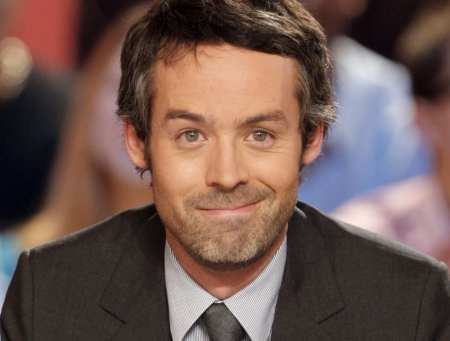 Le PAF connaît une journée éprouvante lundi 9 mai 2016 .Pour la rentrée de septembre.. Après l'annonce du départ de Yann Barthès de Canal Plus pour TF1, c'est l'arrivée prochaine d'Yves Calvi à LCI, transfuge de France 5 devenue officielle. Le PAF connaît une journée éprouvante lundi 9 mai 2016 .Pour la rentrée de septembre.. Après l'annonce du départ de Yann Barthès de Canal Plus pour TF1, c'est l'arrivée prochaine d'Yves Calvi à LCI, transfuge de France 5 devenue officielle.
L' ambition pour LCI"qui a fait son arrivée en gratuit sur la TNT le 5 avril se donne pour objectif la concurrence avec BFMTV, iTélé et la future chaîne publique France Info.
Le départ de Yann Barthès du "Petit Journal" : "L'infotainment n'est plus vraiment au goût du jour"
François Jost, professeur en sciences de l'information et de la communication à l'université de Paris III Sorbonne Nouvelle, analyse le départ de l'animateur de la chaîne cryptée douze ans après sa première chronique sur Canal Plus.
« La formule de "l'infotainment", ce mélange d'information et de divertissement, n'est plus vraiment au goût du jour. Surtout, elle s'est banalisée. Yann Barthès passe sans arrêt d'une séquence légère à une séquence sérieuse : cela brouille le message. Or les téléspectateurs sont sensibles à la catégorisation, ils ont besoin de savoir quel genre d'émission ils regardent. »
De plus cette émission offre une vision de la politique par le petit bout de la lorgnette. Alain Juppé n' avait-il pas pointé du doigt dans le "Supplément" de Canal+ à la séquence du "Petit Journal" l'idiotie mis en exergue de sa chemise à carreaux toute neuve avec l'étiquette encore dessus pour mieux se moquer des méthodes de l'émission …
Les limites de l'infotainment.
La curiosité pour les coulisses, le "off", . les détails, les petites choses, tout cela donne un côté dérisoire à la politique.. François Hollande ne serait plus que le président sur qui il pleut toujours durant ses déplacements et cérémonies.... dont il est par ailleurs friand.
Et le divertissement ne s'avère pas un sésame pour que les jeunes qui ne s'intéressent pas au débat politique...
En fait Yann Barthès s'inscrit dans la lignée de Karl Zéro et de son "Vrai Journal", mais aussi d'"Arrêt sur images".
Et d'autres sont nés. Mais Karim Rissouli a été incendié par un Manuel Valls- goûtant peu au jeu des tweets- qui l'a tancé: "La politique, ce n'est pas du spectacle."Et que penser de Hannouna sur D8 alors.
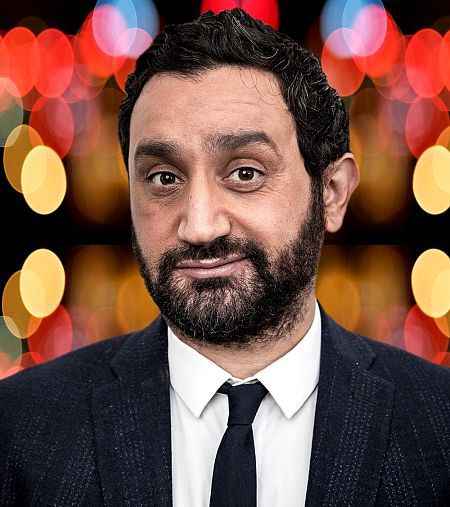 La une de "Charlie Hebdo" : "Pire que Zika, Hanouna, le virus qui rend con" : La une de "Charlie Hebdo" : "Pire que Zika, Hanouna, le virus qui rend con" :
Nouilles dans le slip, plaintes pour menaces : Hanouna et "Touche pas à mon poste" sur le grill des critiques
L'émission de D8 et son présentateur sont sur le grill depuis quelques semaines.
Dans l'émission du 25 janvier, Cyril Hanouna verse un bol de nouilles dans le slip du chroniqueur Mathieu Delormeau. Un acte qui indigne à juste titre le journaliste Bruno Donnet de France Inter. Dans "Après-coup", sa chronique médias hebdomadaire, il estime que Mathieu Delomeau "ne cesse de se faire sadiser" à grand renfort d’humiliations
Cyril Hanouna a traité ledit journaliste scandalisé de "coincé du cul [...] qui ne comprend pas les jeunes". Sic.
L'enquête à charge de "Society"
Un chroniqueur anonyme s'y plaint de l'ambiance en coulisses. :"Chaqu
e soir, on y va en traînant les pieds". Ou encore : "Il [Cyril Hanouna] me disait 'T’as rien compris, t’es qu’une merde, si t’es pas content je te vire demain, c’est moi le vrai roi du groupe Canal !'"
La plainte contre Hanouna pour menaces :
Le Canard enchaîné affirme, dans son édition du 17 février, que le présentateur fait l'objet d'une plainte pour "menaces de violences physiques". Elle a été déposée le 8 février dernier par l'humoriste Julien Cazarre. Selon l'hebdomadaire, le chroniqueur de Canal+ Sport a reçu des appels malveillants de "Cyril Hanouna et compagnie" après avoir refusé de travailler dans "Touche pas à mon sport", l Julien Cazarre a fini par retirer sa plainte.
Cyril Hanouna a également menacé Arnaud Ramsay, journaliste à France Football et chroniqueur à i-Télé,qui a twitter : "En ce temps de dictature médiatique, Julien Cazarre a osé dire 'non' à Hanouna." "On va s’expliquer, je vais venir te défoncer, tu ne sais pas qui je suis, tu vas avoir de gros problèmes", lui aurait alors dit le présentateur au téléphone.
Quel détestable modèle pour notre jeunesse que ce pitre vulgaire !Et il ose se vanter de gagner 15 000 euros par mois pour cette lamentable émission.
Qui a dit que la « connerie » ne payait pas ?
|
|
|
|
|
|
| Joanne Courbet pour DayNewsWorld |
|

|
There are no translations available.
BAS-LES-PATTES DSK-BAUPIN ET COMPAGNIE
OU L'OMERTA SUR LE HARCELEMENT SEXUEL
DANS LE MILIEU POLITIQUE .
|
|
|
Sandrine Rousseau, porte-parole d'EELV, a raconté des faits remontant à octobre 2011. Lors d'une réunion, Denis Baupin « m'a plaquée contre le mur en me tenant par la poitrine, et a cherché à m'embrasser. Je l'ai repoussé violemment. » Elle précise en avoir immédiatement parlé à un membre du parti qui lui a répondu : « Ah ? Il a recommencé. »
L'omerta concertée des ecolo-bobo du parti.
Beaucoup se serait tues pour ne pas blesser sa compagne ! la ministre du Logement Emmanuelle Cosse .
Pourtant Yves Contassot assure que la question avait été posée à la tribune d'un conseil fédéral du parti et son épouse Emmanuelle Cosse, à l'époque secrétaire nationale d'EELV, avait interrompu la discussion : « Stop, j'ai interdit qu'on poursuive ce débat. »
Beaucoup se seraient tues pour ne pas passer pour des « pisse-froides » car il faut se montrer fortes dans ce milieu machiste !
Tiens donc Cécile Dufflot quel propos de faible femmes! Et l'on se dit féministe avant tout dans ce parti ?
Mais de quel droit si vous acceptez toutes aussi facilement l'omerta sur de tels faits délictueux ? Qui plus est sous couvert de prétextes fallacieux .
Pour les Verts, il serait difficile d'admettre que ça puisse arriver dans leur parti, paritaire et ouvert aux questions du féminisme. C'est ce que l'on appelle le déni et c'est grave comme aveuglement et inacceptable.
Yves Contassot . Il assure que la question avait été posée à la tribune d'un conseil fédéral du parti et son épouse Emmanuelle Cosse, à l'époque secrétaire nationale d'EELV, avait interrompu la discussion : « Stop, j'ai interdit qu'on poursuive ce débat. »
La parole se libère...
La parole se libère sur les actes d'agressions et de harcèlement sexuels qui auraient été commis par désormais l'ex-vice-président de l'Assemblée nationale, Denis Baupin. Huit femmes -rien que huit ?- auraient enfin parler après être tombées sur la photo de plusieurs députés, dont Denis Baupin, les lèvres maquillées de rouge pour protester « contre les violences faites aux femmes » le 8 mars. Députée du Calvados, Isabelle Attard évoque pour sa part du « harcèlement quasi quotidien de SMS provocateurs, salaces ». « Il y avait des moments où on n'en avait plus » ; L'élue fait remonter ces faits de juin 2012 à son départ d'EELV, fin 2013, et affirme qu'elles étaient « plusieurs députées à recevoir le même SMS ».
Il étaient grand temps, surtout que les médias sont gourmands de cette nourriture .
Les femmes anonymes et leur courage a braver l'omerta.
Alors que dire des femmes anonymes osant porter plainte pour plus grave comme les violences conjugales ? Elles seraient encore plus féministes ? Non, elles sont tout simplement courageuses bravant les interdits et tabous de notre société.
|
|
|
|
| Joanne Courbet pour DayNewsWorld |
|
|

|
|
There are no translations available.
LE CAS DE L'EX- MINISTRE CAHUSAC LA REPRESENTATION DES "SANS-DENTS" AU PAYS DE LA HOLLANDIE
|
Le procès de l'affaire Cahuzac, le plus important scandale du quinquennat Hollande,
s'est ouvert ce lundi devant le tribunal de Paris. Mais sa tenue est
d'ores et déjà compromise par plusieurs questions prioritaires de
constitutionnalité (QPC) évoquées par les avocats de l'ancien ministre
fraudeur. C'est que notre fraudeur national a plus d'un tour dans sa
besace. Les mensonges du couple sont multiples. Chien d’aveugle, montre en or ,chèque douteux. ..
«
Ma seule erreur, c’est d’avoir accepté d’être ministre… » ; Il fallait y
penser avant! Mais l'attrait du pouvoir et et de l'argent ne font pas
toujours bon ménage. C’est en effet, à partir de ce moment-là que les
ennuis ont commencé pour Jérôme Cahuzac.
Ancien
détenteur d’un compte bancaire frauduleux en Suisse, l’ancien ministre
du Budget est jugé, à Paris , pour "fraude fiscale".
Lors
de la révélation de Médiapart , fin 2012, de l’existence du compte
suisse de Jérôme Cahuzac, les deux époux se déchiraient dans une
procédure de divorce très compliquée. Au fil de leurs auditions, les
enquêteurs se sont aperçus que l’existence des comptes à l’étranger
n’était pas le seul mensonge du couple.
L'ancien
champion de la rigueur budgétaire, 63 ans, doit comparaître jusqu'au 18
février non seulement pour fraude fiscale et blanchiment mais
également pour minoration de sa déclaration de patrimoine en entrant au
gouvernement en 2012. A cela s'ajoute l'utilisation de l'enveloppe parlementaire pas très parlementaire de l'ancien parlementaire.
L'indemnité
représentative des frais de mandat (IRFM) d'environ 6000 euros permet
aux élus de «faire face aux diverses dépenses liées à l'exercice de leur
mandat «pas directement prises en charge ou remboursées par
l'Assemblée » .Cette somme versée chaque mois sur un compte spécifique
doit servir à payer le loyer d'une permanence, des déplacements, des
fournitures, etc. Sauf que Jérôme Cahuzac en avait un usage un peu
différent. Tenez-vous bien :«Certaines dépenses effectuées sur ce compte
(celui de Jérôme Cahuzac,) relevaient plutôt de la sphère personnelle
que professionnelle selon les enquêteurs de Tracfin dans leur rapport. Le journaliste Mathieu Delahousse cite un exemple: 8300 euros payés le
11 décembre 2010 à l'ordre de… «Piscines et décor du Sud», une
entreprise d'installation et d'entretien du bassin de
Villeneuve-sur-Lot. À cela s'ajoutent d'autres dépenses. «Il a été
constaté des dépenses en carte bancaire pour des abonnements à
Canalsatellite ou Canal Plus, des dépenses en lien avec la pratique du golf à Versailles ou encore auprès de magasins d'habillements de luxe».
Et après ces mêmes personnages voudraient imposer aux
autres non initiés de cette petite cour du « roi » la rigueur voire la
spoliation . Allons donc. Nous voilà dans le registre des « sans-dents »
de la Hollandie. Bienvenue au pays des « Sans-Dents »de la Hollandie et de leurs Représentants !
Leurs
représentants eux n'ont pas de problème pour se faire mettre un dentier
dernier cri pour débiter leurs mensonges devant les représentants d'un
peuple spolié sciemment et consciencieusement. « Moi Président » j'ai choisi des ministres à mon image ...
Canal Plus, des dépenses en lien avec la pratique du golf à Versailles ou encore auprès de magasins d'habillements de luxe».
Et
après ces mêmes personnages voudraient imposer aux autres non initiés
de cette petite cour du « roi » la rigueur voire la spoliation . Allons
donc. Nous voilà dans le registre des « sans-dents » de la Hollandie.
Bienvenue au pays des "Sans-Dents" de la Hollandie et de leurs Représentants ! Leurs
représentants eux n'ont pas de problème pour se faire mettre un dentier
dernier cri pour débiter leurs mensonges devant les représentants d'un
peuple spolié sciemment et consciencieusement.
"Moi Président" j'ai choisi des ministres à mon image ...
|
|
|
|
| Joanne Courbet pour DayNewsWorld |
 |
There are no translations available.
|
REFUGIES LA NUIT DE LA HONTE DE
LA SAINT-SYLVESTRE A COLOGNE !!
|
|
Agressions sexuelles à Cologne: « Ils ont commencé à nous toucher les fesses » |
|
Les faits
« Le monde arabe hait les femmes », expliquait déjà l’écrivaine égyptienne Mona Eltahawy en 2012
gré la dramatique nuit de la Saint Sylvestre à Cologne et dans d’autres villes d’Allemagne, les réfugiés continuent d’arriver au rythme d’environ 3000 par jour. Le nombre de demandeurs d’asile accueillis en Allemagne en 2015 (officiellement 1,1 million) sera sans conteste dépassé .
Et l'on a appris par la suite que des agressions sexuelles survenues par centaines à Cologne (plus de 500 plaintes déposées) avaient déjà été constatées lors de manifestations en Suède, en Finlande et en France également ... mais volontairement cachées par les autorités concernées à la population.
La police allemande avait annoncé le lendemain une nuit « globalement calme » sur le parvis de la plus grande église gothique de Cologne.
La faute à qui ?
Que dire face à l'inconcevable barbarie de cette nuit ?
Face à l'inconcevable faute de la police allemande ?
Face à l'inconcevable mensonge des autorités gouvernementales ?
Cette attitude scandaleuse est inconcevable dans nos démocratie occidentales.
Et pourtant le mensonge d’État a eu lieu. Il a été démasqué par les réseaux sociaux et les premières plaintes.
Des réactions vives
La population a vite réagi. La panique s'est emparée du gouvernement.
L’État a failli à son premier rôle, la sécurité et la liberté de ses citoyens .
La population, hier favorable majoritairement, à l'accueil des demandeurs d'asile des pays en guerre, ne les accepte plus maintenant.
Car ce n'est plus désormais seulement aux dépenses publiques que l'on touche mais aussi à la sécurité des Allemandes.Et là les Allemands ne peuvent transiger.
D'où les mesures immédiates prises par la chancelière, l'expulsion hors du pays des malfaiteurs.
Le parti populiste Alternative pour l’Allemagne (AfD) a monté en flèche et a dénoncé clairement de tels dérapages. Et les manifestations de Pegida, parti d'extrême-droite.
En effet la police a admis -grâce aux statistiques ethniques usuelles en Allemagne- que le millier de jeunes sur le parvis étaient dans leur grande majorité d’origine « nord-africaine ou arabe ». Sur les 19 suspects depuis identifiés par la police, dix sont des demandeurs d’asile, dont neuf arrivés en 2015 ,d’origine marocaine ou algérienne en général.
Apparaissent alors clairement les failles du système européen dans l'accueil des réfugiés .
Les failles du système européen.
C'est que les demandeurs d'asile ne doivent pas être confondus avec les émigrés économiques .
Certes l’Allemagne à besoin d'émigration pour redresser sa courbe démographique vieillissante.Mais pas à n'importe quel prix.
Il faut mettre en place une gestion intelligente de l'émigration en distinguant les réfugiés demandeurs d'asile parce persécutés chez eux des simples émigrés économiques. C'est d'ailleurs le raisonnement qui s'impose après ces odieuse agressions de la nuit du 31 décembre. Les agresseurs avaient plutôt le profil de jeunes émigrés économiques du Maghreb. La politique d'émigration souffre depuis longtemps de ce manque de discernement .
Comment relever ces défis majeurs ?
C'est que les demandeurs d'asile ne doivent pas être confondus avec les émigrés économiques .
Certes l’Allemagne à besoin d'émigration pour redresser sa courbe démographique vieillissante.Mais pas à n'importe quel prix.
Il faut mettre en place une gestion intelligente de l'émigration en distinguant les réfugiés demandeurs d'asile parce persécutés chez eux des simples émigrés économiques. C'est d'ailleurs le raisonnement qui s'impose après ces odieuse agressions de la nuit du 31 décembre. Les agresseurs avaient plutôt le profil de jeunes émigrés économiques du Maghreb. La politique d'émigration souffre depuis longtemps de ce manque de discernement .
Comment relever ces défis majeurs ?
|
|
Joanne Courbet pour DayNewsWorld |
|

|
There are no translations available.
JEUNES DIPLOMES ENVOLEZ-VOUS VERS LES ELDORADOS ETRANGERS !
|
|
|
 Il n'y a pas que les capitaux qui s'exilent hors de nos frontières. Il n'y a pas que les capitaux qui s'exilent hors de nos frontières.
Les jeunes français sont de plus en plus nombreux à partir à l'étranger pour trouver un emploi. Dégradation des conditions de travail et manque de reconnaissance, temps de recherche d'emploi trop long , stages à rallonge, notre jeunesse n'est pas choyée dans l'Hexagone. Certains observateurs ajoutent d'autres facteurs liés tant à la morosité actuelle qu'à la perte de repères de notre société .
Déjà près de 2,5 millions de Français travaillent en dehors de nos frontières.
Pourquoi rester dans un pays sinistrosé où l'action du gouvernement se limite à une gestion à court terme de la crise sociale ,de la pénurie alors que d'autres pays leur déroulent le tapis rouge ?:
L’industrie d’outre-Rhin se montre accueillante pour les ingénieurs tricolores.L' Australie est: le pays préféré des expatriés, le Canada l’un des pays les plus ouverts aux Français, surtout s’ils ont moins de 35 ans
Après la crise de 2008 et 2009, la croissance est de retour à Dubaï, les expatriés aussi
Le micro-Etat de Singapour apprécie les cadres de haut niveau expérimentés alors que les États-Unis
(Californie) apprécie la French Touch .
L'Inde, la Chine, le Brésil offrent également des possibilités.
Aveuglés par leur idéologie nos dirigeants refusent de voir les dégâts irréparables causés par l'expatriation des « riches » qui n'auraient pour seule ambition que de protéger leur argent d'une fiscalité confiscatoire et par l'exil des jeunes cerveaux avides de liberté.
« Les entrepreneurs sont des battants qui se fichent de la sécurité et du risque minimum, juge Francis Bécard, directeur de l'ESC Troyes.
La France leur apparaît comme une grande prison, où l'on ne parle que de ce qui est interdit, où l'on oppose les pauvres et les riches, où l'aventure n'est plus autorisée »
Rien de plus normal que les jeunes créateurs tout comme les cadres dirigeants soient captivés par le dynamisme des économies émergentes, nouveau Far West de l'entrepreneuriat. Qui pourrait leur en tenir grief ?
Mais la conséquence est dramatique pour la France : la croissance meurt là où il est interdit de s'enrichir. Avec cette interdiction meurt aussi l'envie d'entreprendre. A nos politiques de réagir sans s'abriter derrière leur dogme égalitariste et leur carcan idéologique!
Alors ne jetons pas l’opprobre sur cette jeunesse avide de conquête et de nouveaux horizons.Ils fuient pour chercher dans un ailleurs ce qu'ils ne trouvent plus dans un pays en déclin, replié sur lui-même ,où règne une instabilité juridique et fiscale incroyables.
Quitte à s'expatrier autant vivre dans un pays enchanteur où les entrepreneurs et créateurs sont vus non comme des « bandits » exploitant les salariés mais comme des aventuriers créateurs d'emplois. !
Bienvenue dans le nouveau Far-West de la jeunesse conquérante .
|
| Joanne Courbet pour DayNewsWorld |
|

|
There are no translations available.
ALLEMAGNE : LA MONTEE DE L' EXTREME- DROITE ?
|
|
 Les résultats de l'Alternative pour l'Allemagne (AfD) lors des trois élections régionales de dimanche montrent que la montée de l'extrême droite n'est plus un phénomène cantonné à l'ex-Allemagne de l'Est. Les résultats de l'Alternative pour l'Allemagne (AfD) lors des trois élections régionales de dimanche montrent que la montée de l'extrême droite n'est plus un phénomène cantonné à l'ex-Allemagne de l'Est.
La montée de l'AfD réside -elle seulement en sa sa capacité de mobilisation et d'attraction de nouveaux électeurs qui s'étaient détournés de la politique ?
Le scrutin régional du 13 mars 2016 ne permet pas cependant l'éviction des Ministres-présidents des Länder concernés. Les régions du Bade-Wurtemberg ( 10 millions d'habitants), de la Rhénanie-Palatinat(4 millions) et de la Saxe-Anhalt (2 millions) gardent malgré tout leur Ministres-présidents.
Cette réussite interpelle cependant l'ensemble des autres formations.
Force est de constater que l'AfD s'implante à l'Ouest de l'Allemagne alors que ce vote de droite radicale concernait surtout l'Est moins développé. Désormais, l'AfD est présent dans presque la moitié des parlements régionaux .
Comment comprendre cette percée à l'Ouest et surtout dans deux États relativement riches ?
Ce vote interpelle car ce parti ne présente aucun programme. Né en 2012 ce dernier qui se voulait au début avant tout anti-européen, a gagné des électeurs sur la contestation de la politique d'accueil des migrants d' Angela Merkel . Ce parti populiste de Frauke Petry codirigeante de AfD,rejoint sur les thèmes xénophobes le mouvement Pegida ((Les Européens patriotes contre l'islamisation de l'Occident).
|
| Joanne Courbet pour DayNewsWorld |
|

|
|